Fact
ba
.
se

Interview: Jason Bateman, Sean Hayes and Will Arnett Interview Joe Biden - November 2, 2022
-
Joe Biden Person
-
Will Arnett Person
-
Jason Bateman Person
-
Sean Hayes Person
Joe Biden
Neutral
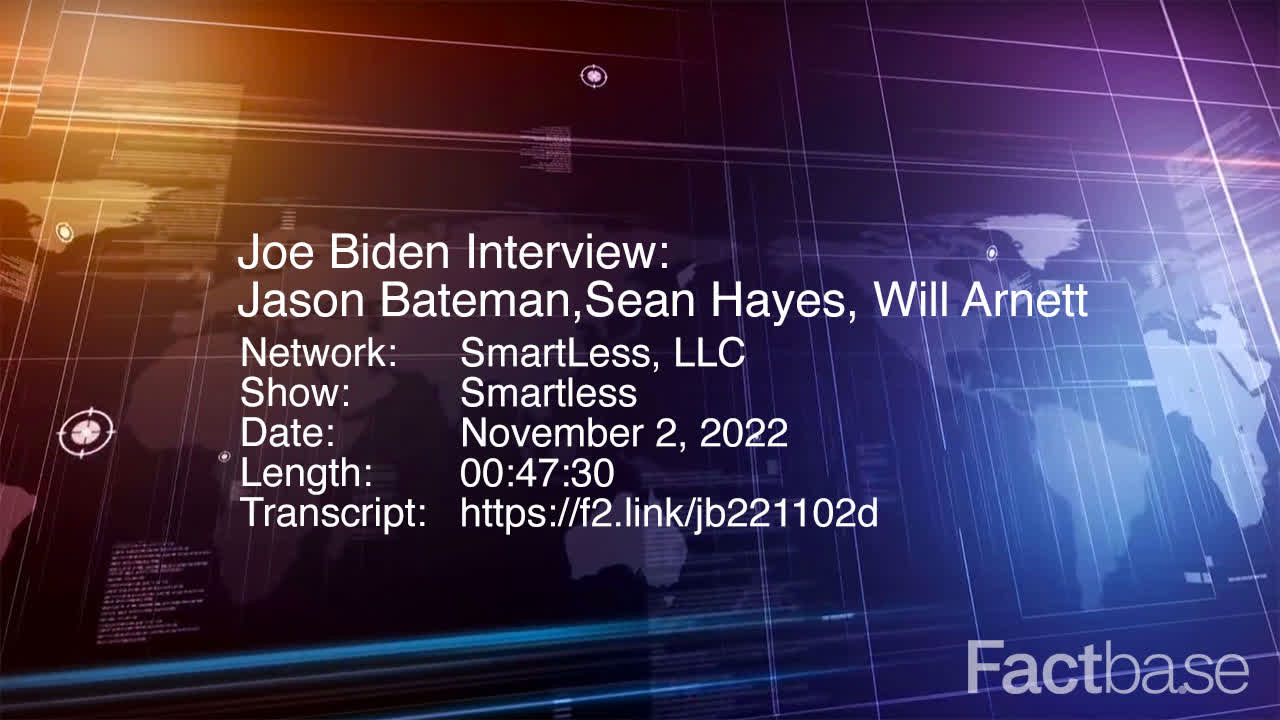
00:00:00-00:00:04 (4 sec)

"You're making me famous with my granddaughters, you guys. I -- I --"
1
Sean Hayes
Very Positive
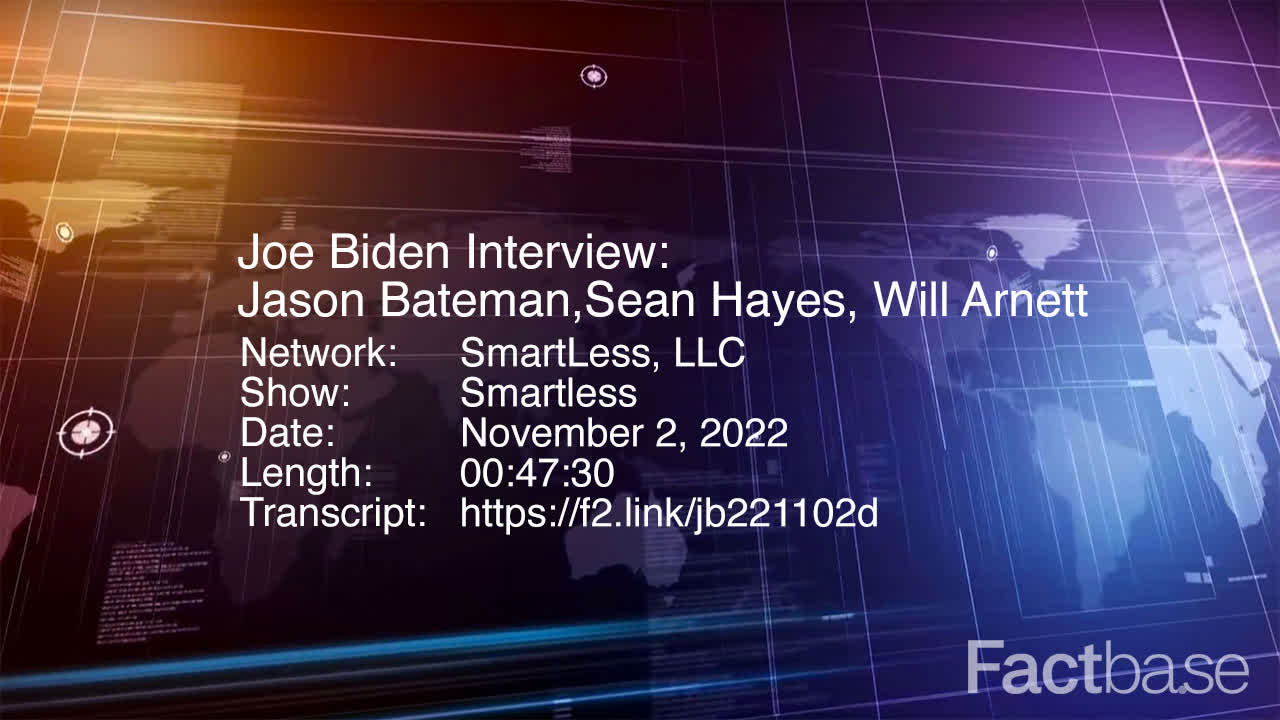
00:00:04-00:00:10 (6 sec)

"This is -- this is wild. This is unbelievable for all of us. So, thank you for being here. It's such an honor. Thank you."
2
Joe Biden
Positive
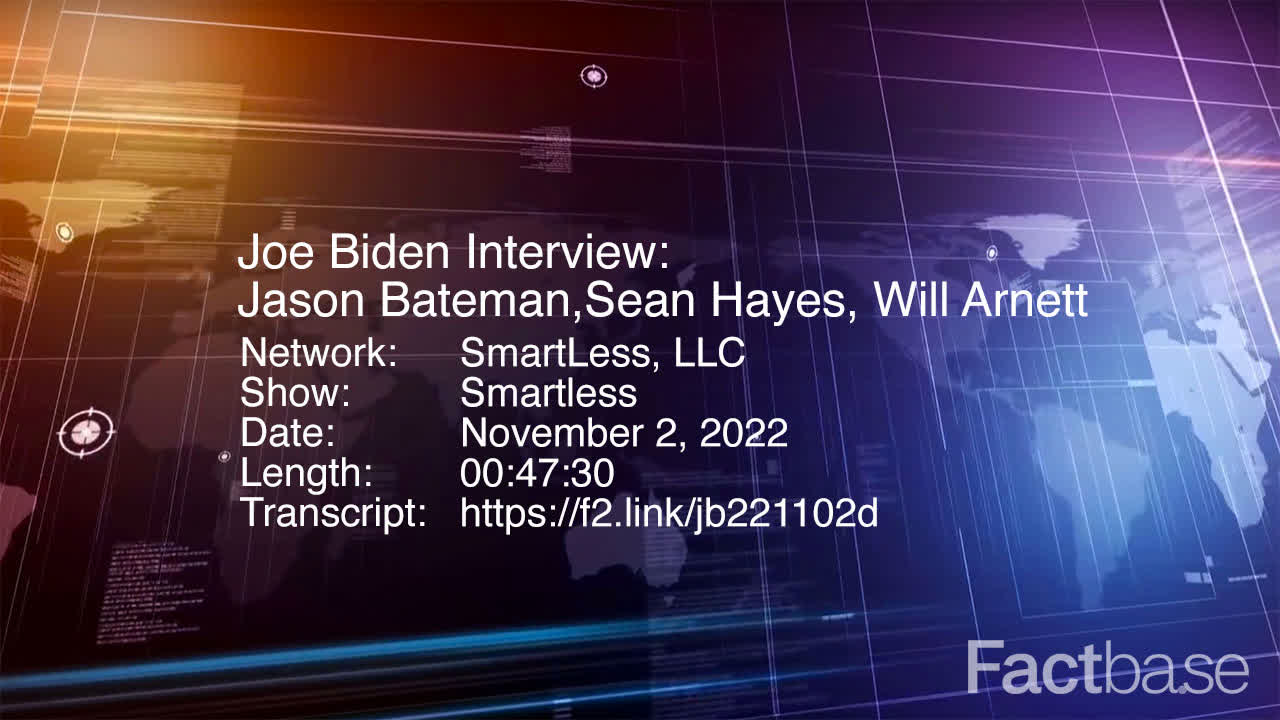
00:00:10-00:00:14 (4 sec)

"Oh, no, it's an honor to be on. I mean, what -- what you guys did to lift people's spirits is important."
3
Sean Hayes
Very Positive
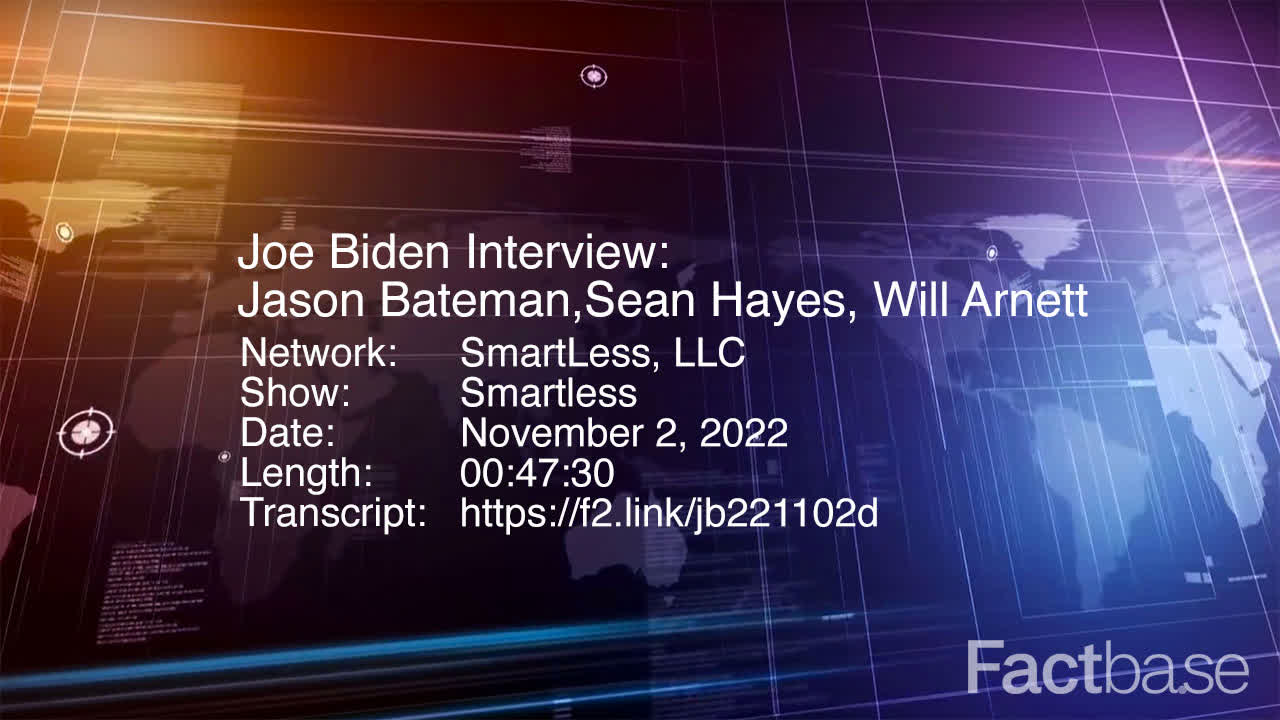
00:00:14-00:00:15 (1 sec)

"Well, thanks."
4
Jason Bateman
Slightly Positive
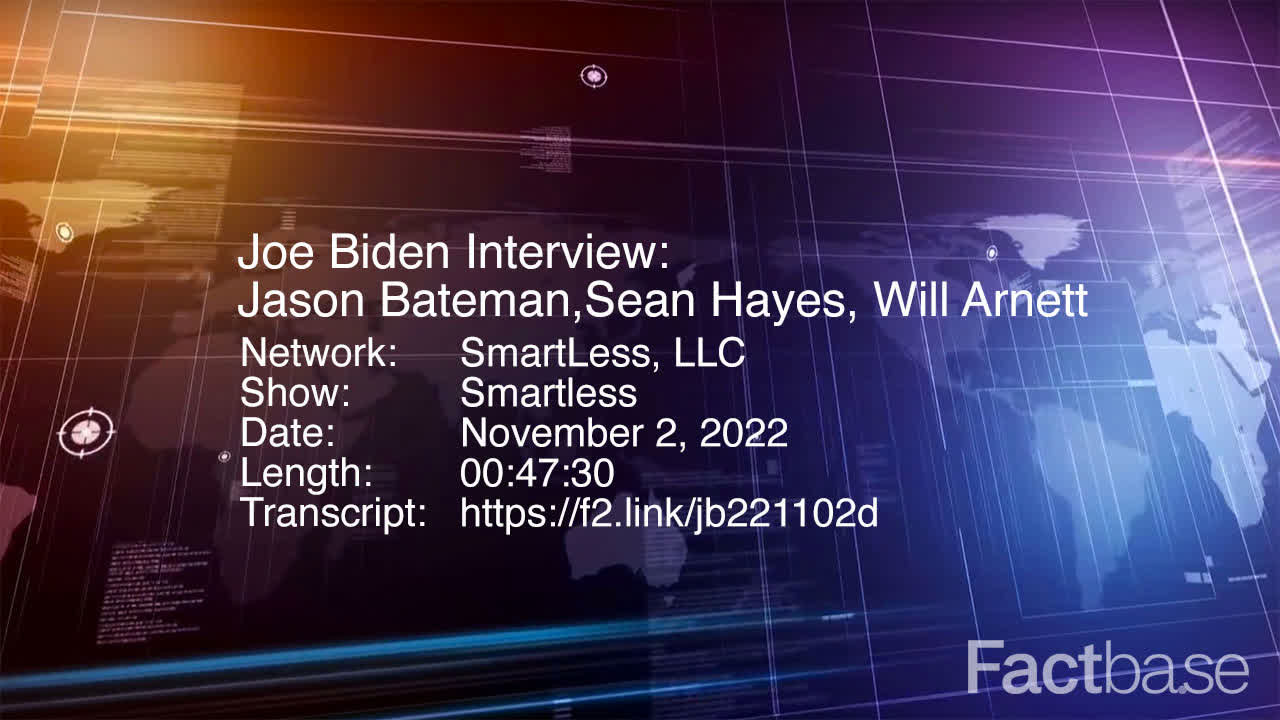
00:00:15-00:00:16 ( sec)

"Well --"
5
Joe Biden
Leans Negative
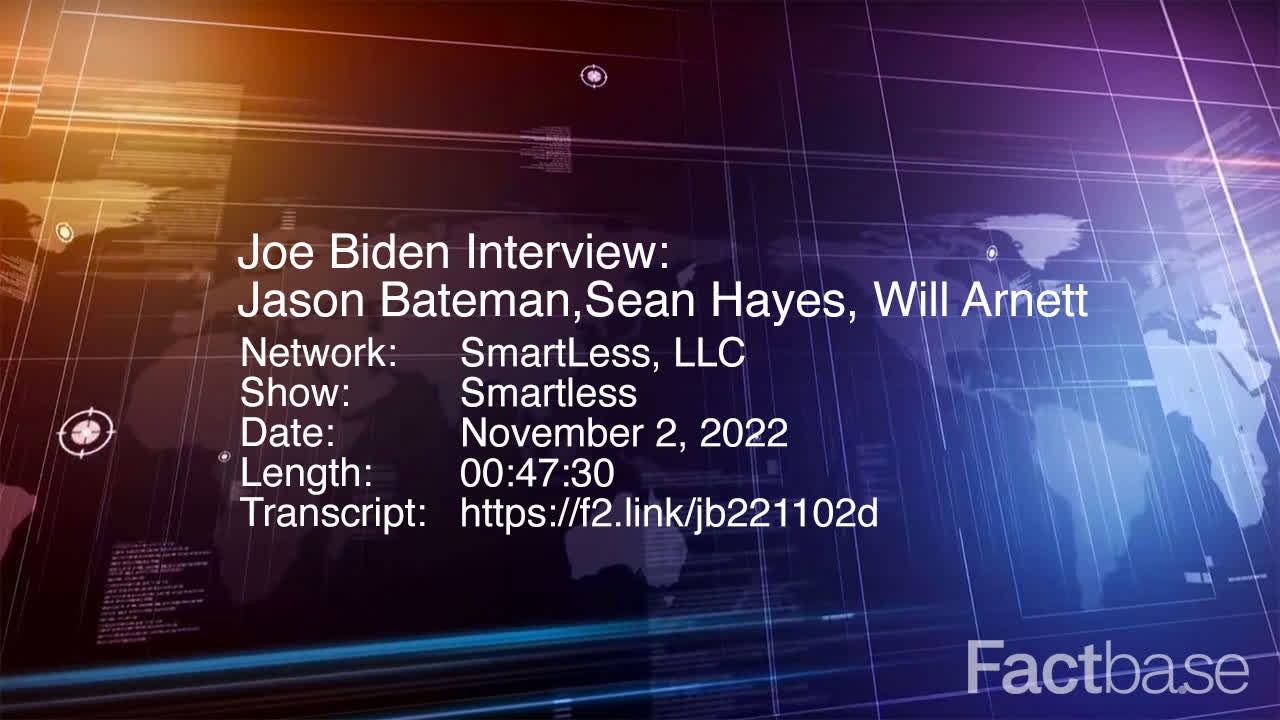
00:00:16-00:00:16 (1 sec)

"It's been a tough time."
6
Jason Bateman
Very Positive
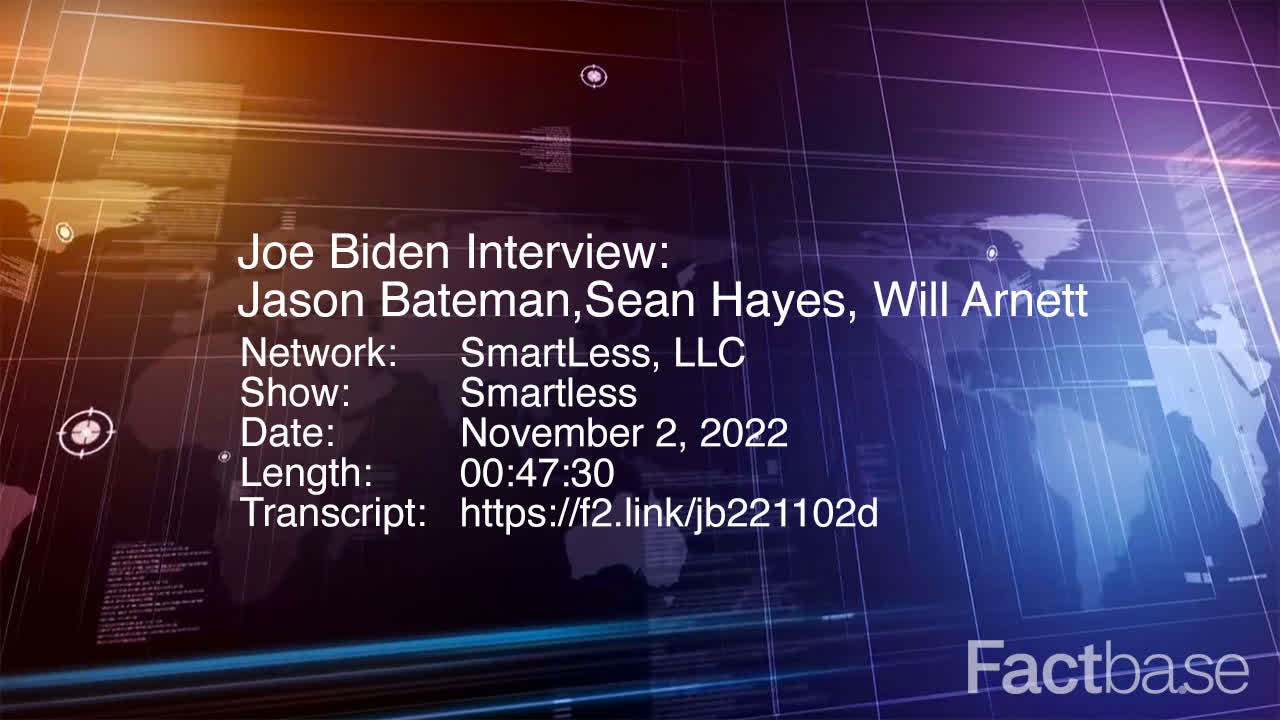
00:00:16-00:00:26 (10 sec)

"And -- and we're surprised that just our -- our silly little chitchats are -- are making people grin. But I guess we'll just -- we'll keep at it because a smile is always worth this --"
7
Will Arnett
Slightly Positive
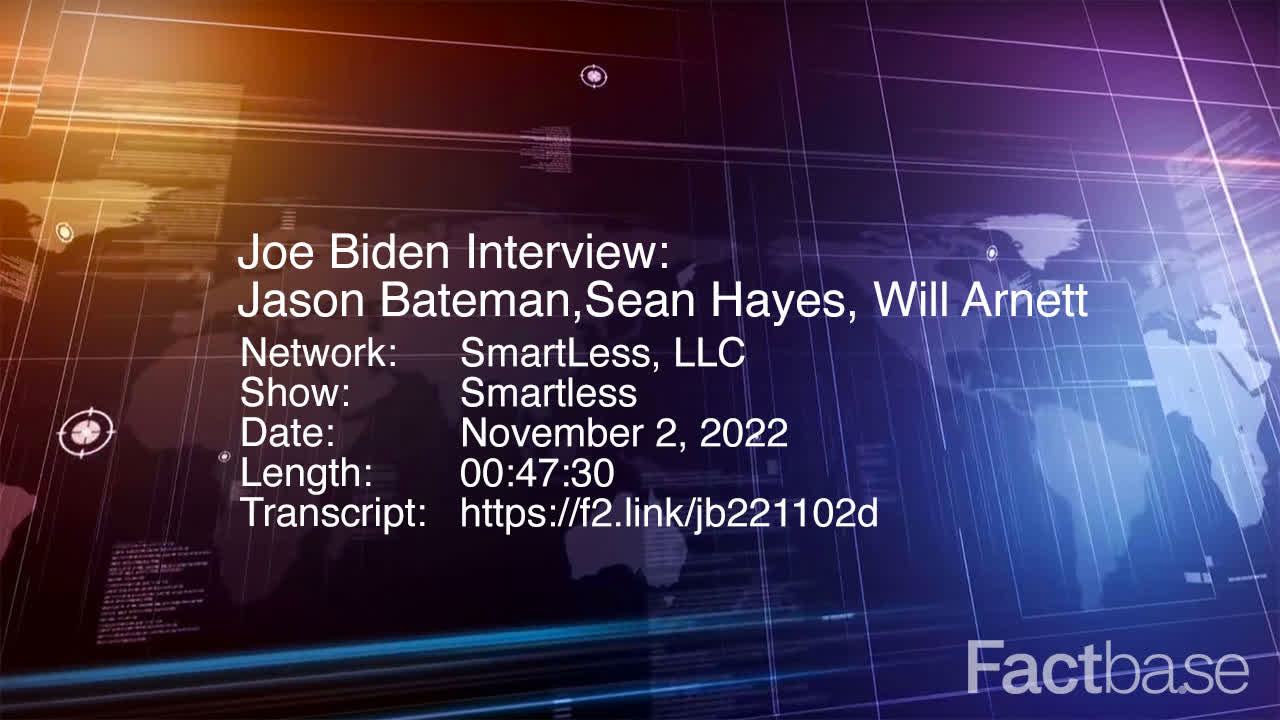
00:00:26-00:00:26 ( sec)

"Yeah."
8
Sean Hayes
Neutral
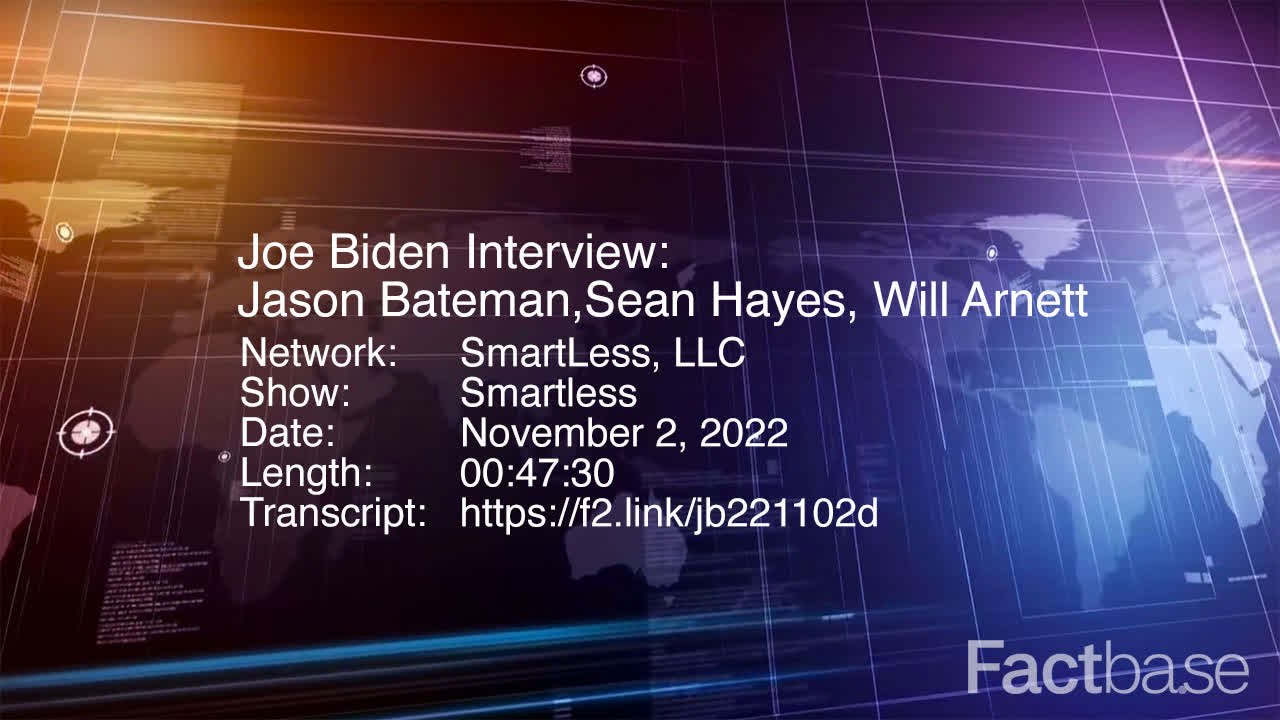
00:00:26-00:00:27 (1 sec)

"Especially nowadays."
9
Will Arnett
Very Positive
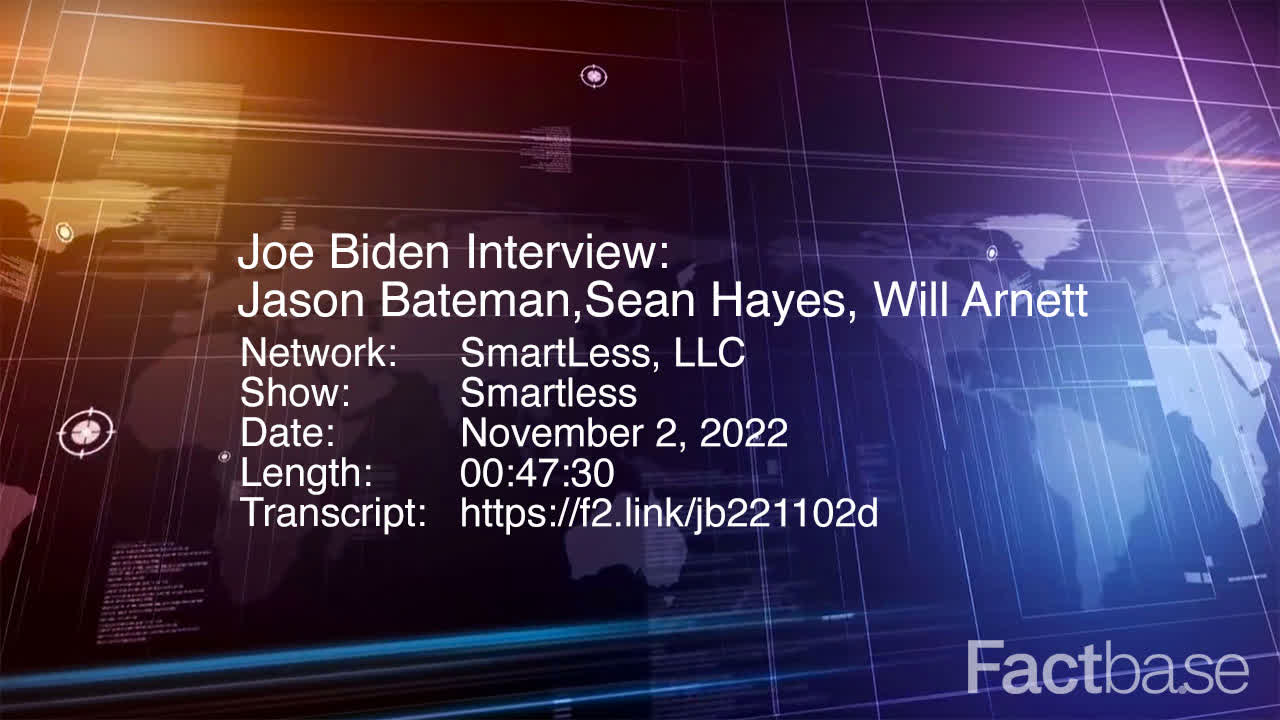
00:00:27-00:00:37 (9 sec)

"And we -- we often have a lot of -- you know, we started by getting a lot of our friends on here and people who are performers and people who are -- and so, Sean won't be able to ask his normal question: Do you have any great theater?"
10
Joe Biden
Very Positive
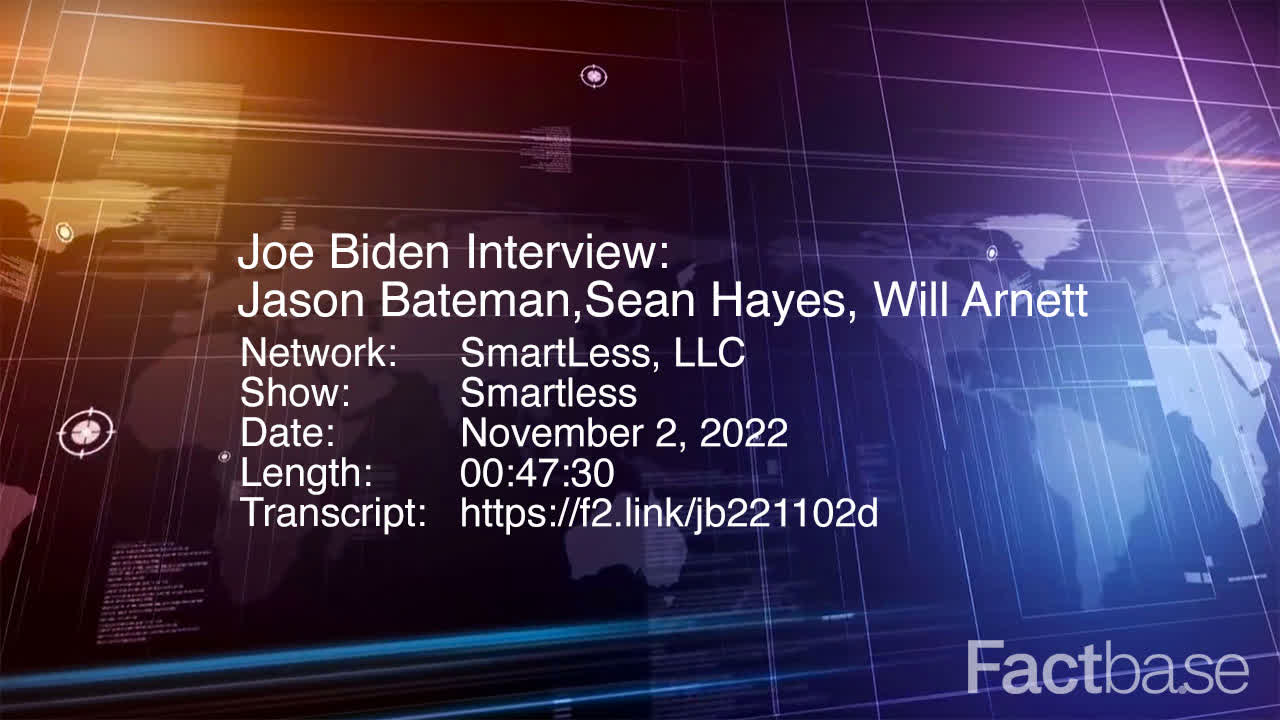
00:00:37-00:00:39 (2 sec)

"I got a lot of great theater."
11
Will Arnett
Neutral
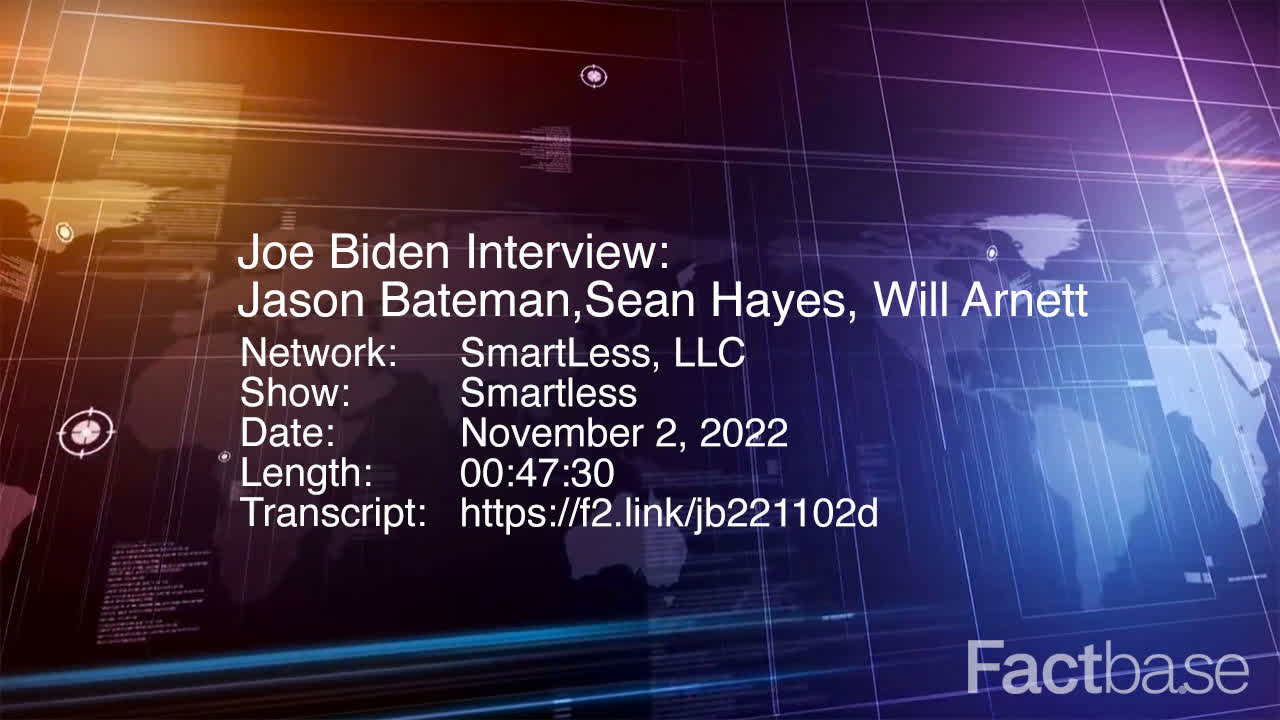
00:00:39-00:00:40 (1 sec)

"Oh, right. Right."
12
Joe Biden
Slightly Positive
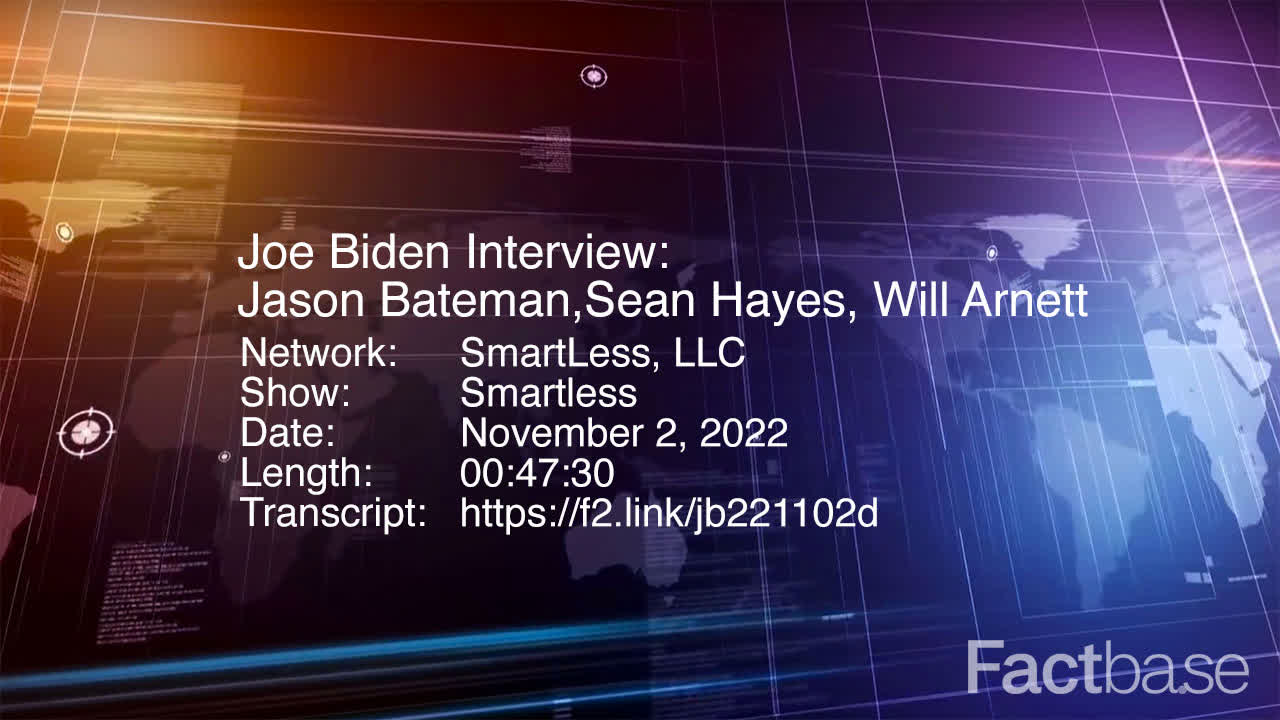
00:00:40-00:00:41 (1 sec)

"Well, I know Trump."
13
Sean Hayes
Very Positive
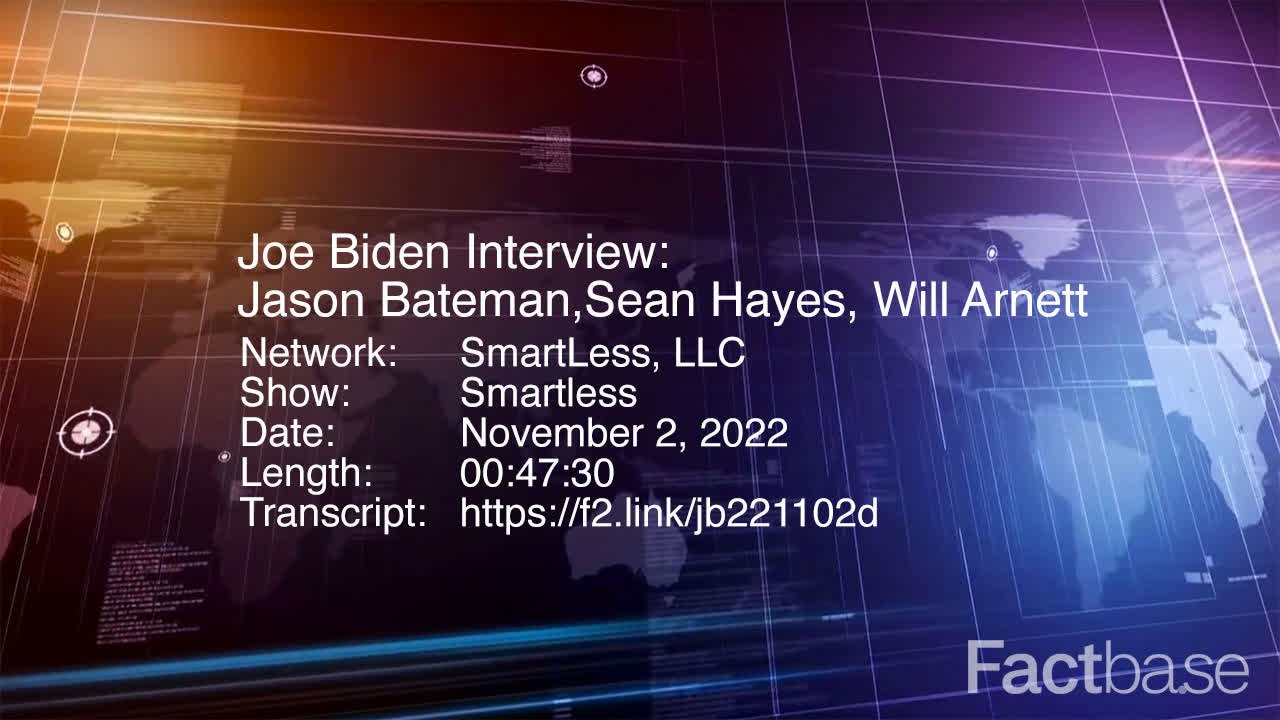
00:00:41-00:00:44 (2 sec)

"That's the best theater ever."
14
Joe Biden
Neutral
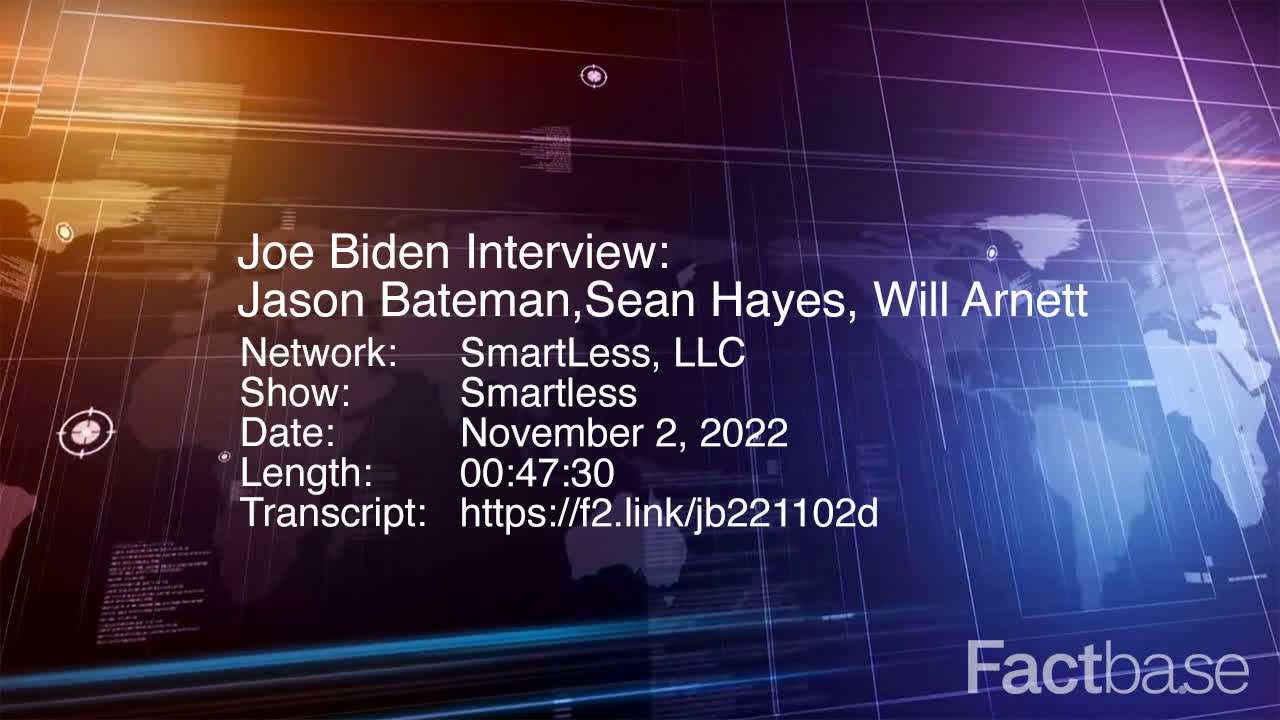
00:00:44-00:00:47 (3 sec)

"A lot of theater."
15
Sean Hayes
Neutral
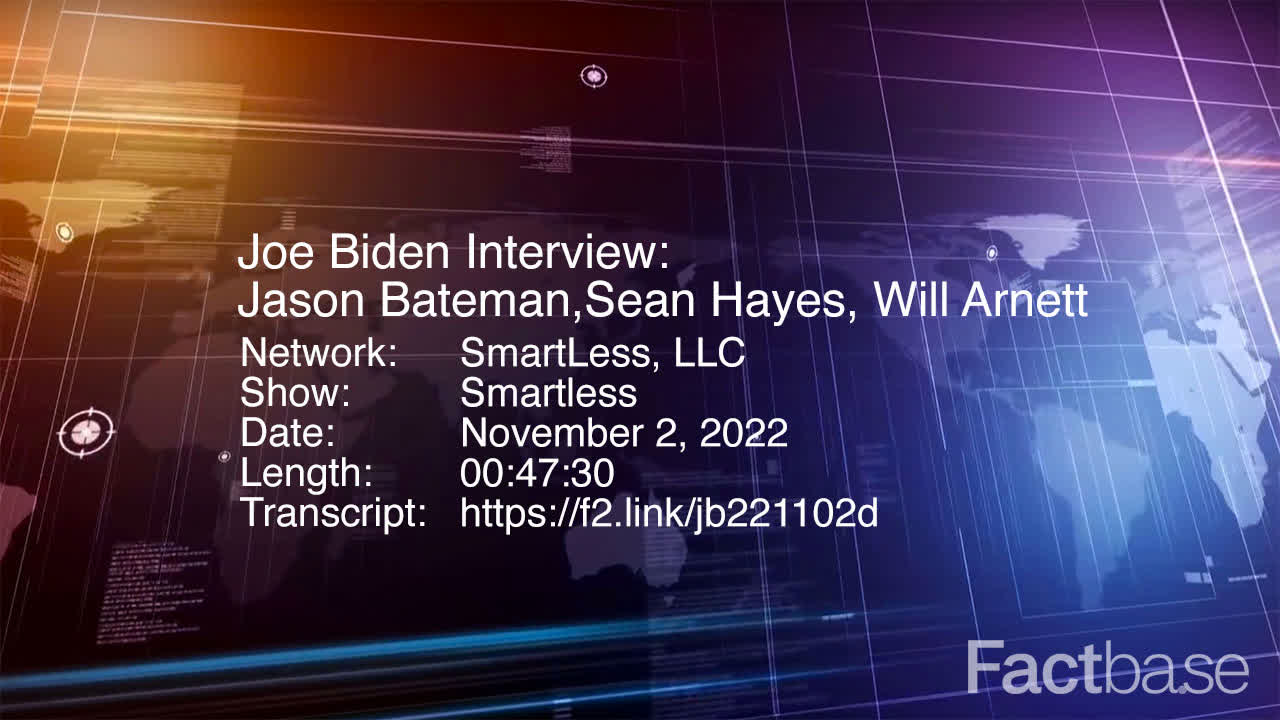
00:00:47-00:00:48 (1 sec)

"Hey --"
16
Will Arnett
Neutral
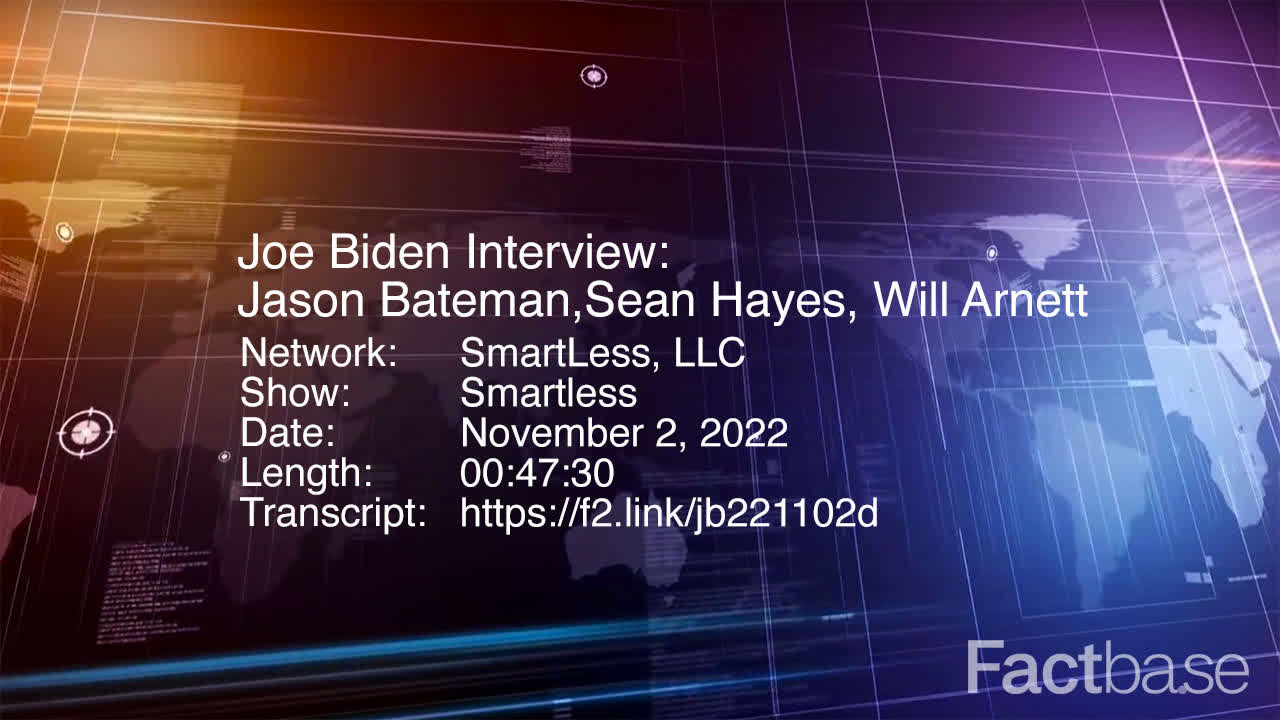
00:00:48-00:00:48 ( sec)

"[Inaudible]"
17
Sean Hayes
Somewhat Positive
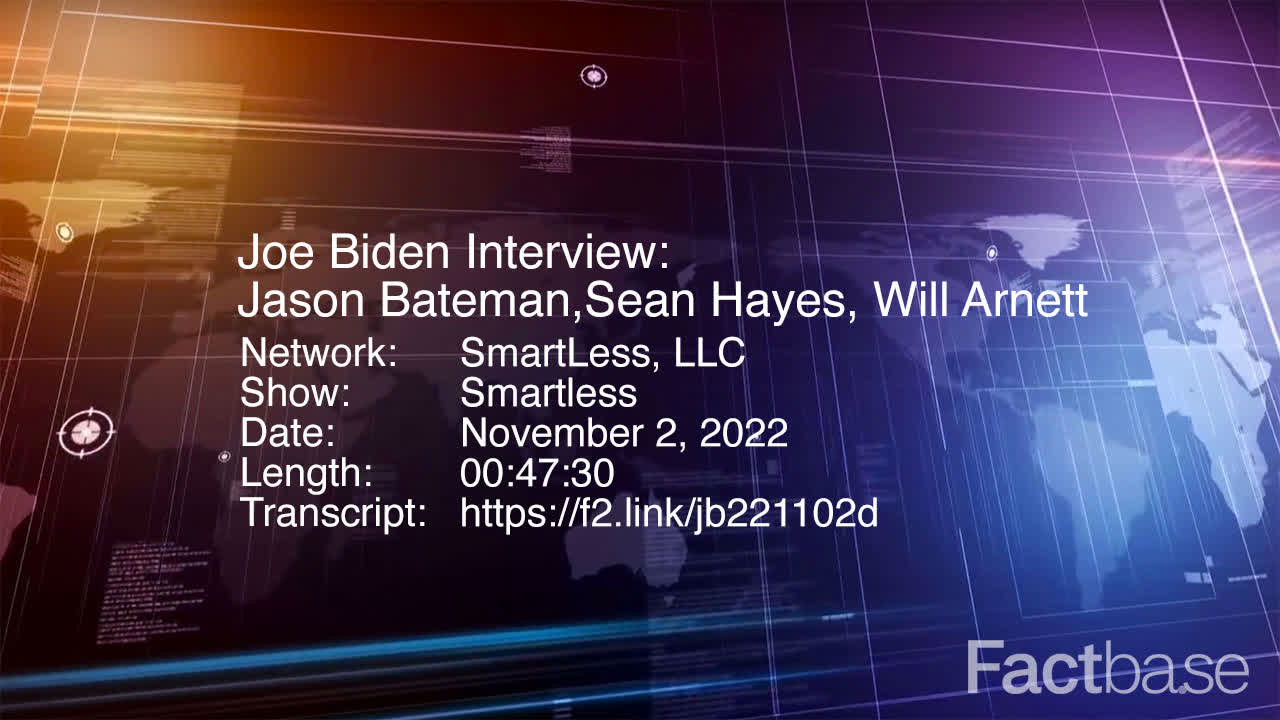
00:00:48-00:01:00 (13 sec)

"Before we start -- I don't have a question. I just want to say a thank you for something, and I have to read a quote that you -- you said almost 10 years ago. And now that you're sitting in front of me, and it's such an honor, and I'm shaking a little bit, but you said --"
18
Jason Bateman
Neutral
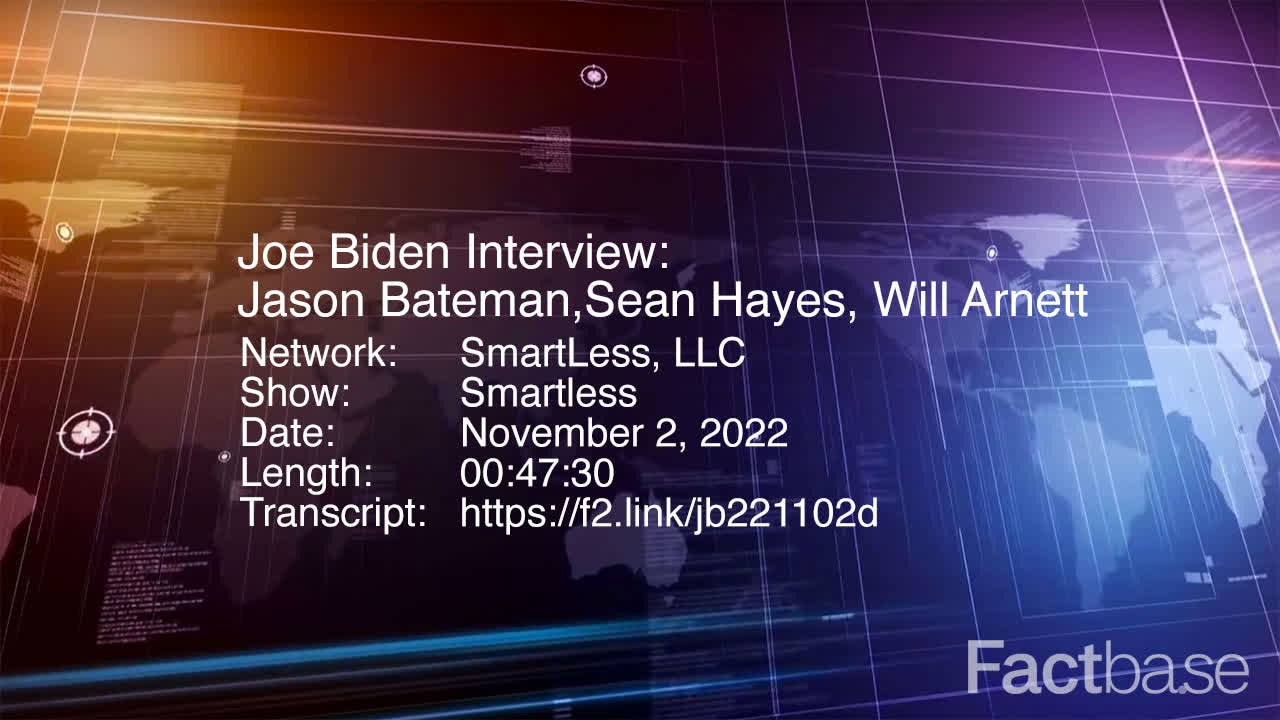
00:01:00-00:01:01 (1 sec)

"A lot of that is sugar."
19
Sean Hayes
Positive
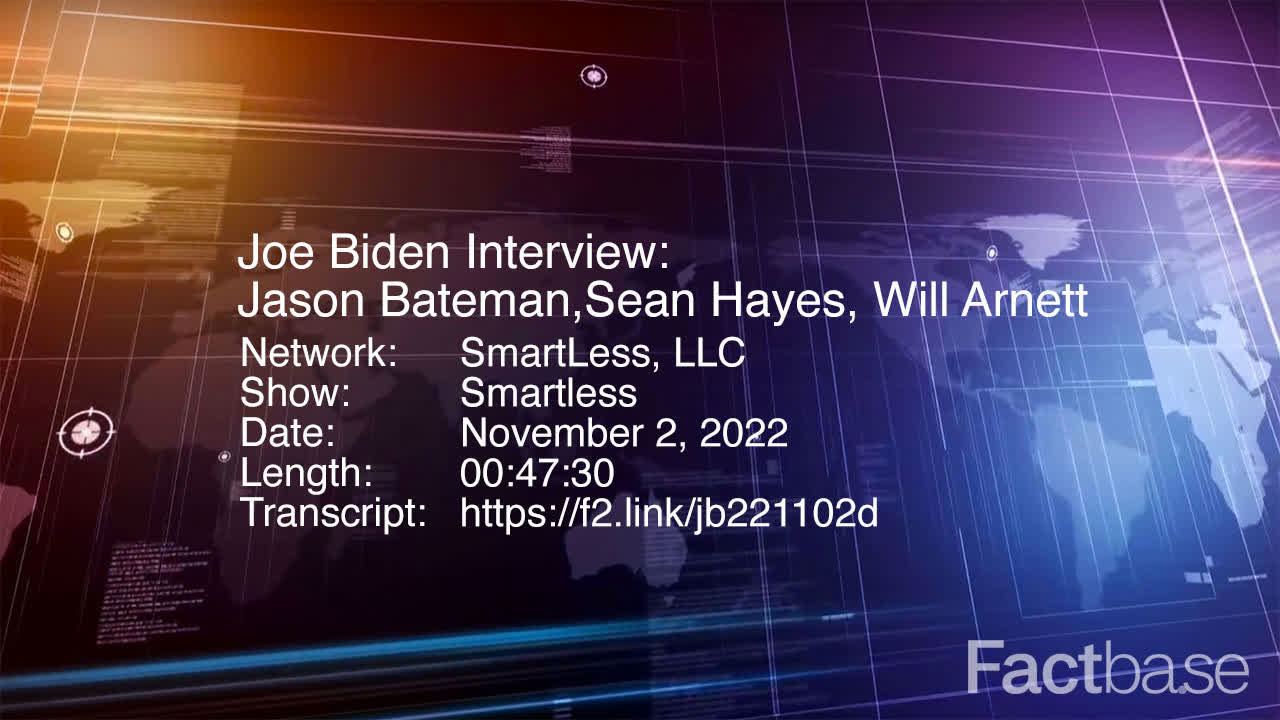
00:01:01-00:01:12 (11 sec)

"Oh, sugar I ate earlier. I -- you said, I think Will and Grace did more to educate the American public more than almost anything anybody has done so far. And as much as [Inaudible]"
20
Joe Biden
Neutral
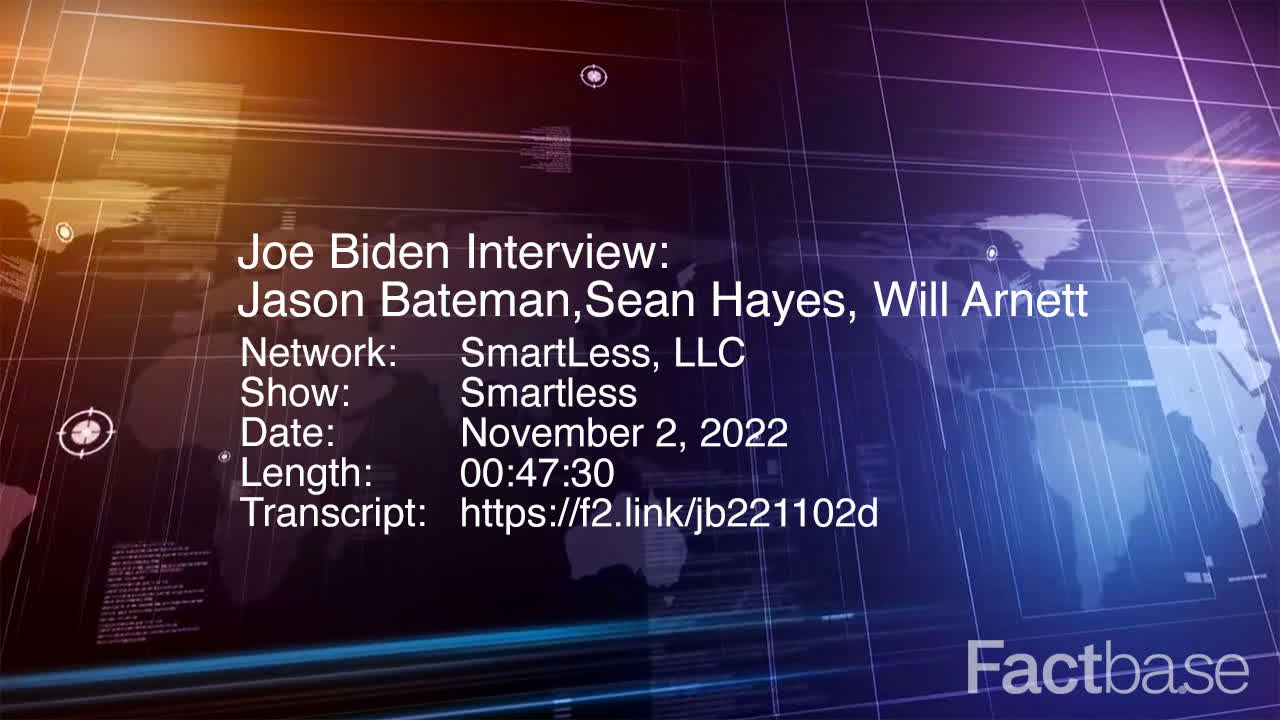
00:01:12-00:01:14 (2 sec)

"And by the way, you did."
21
Sean Hayes
Very Positive
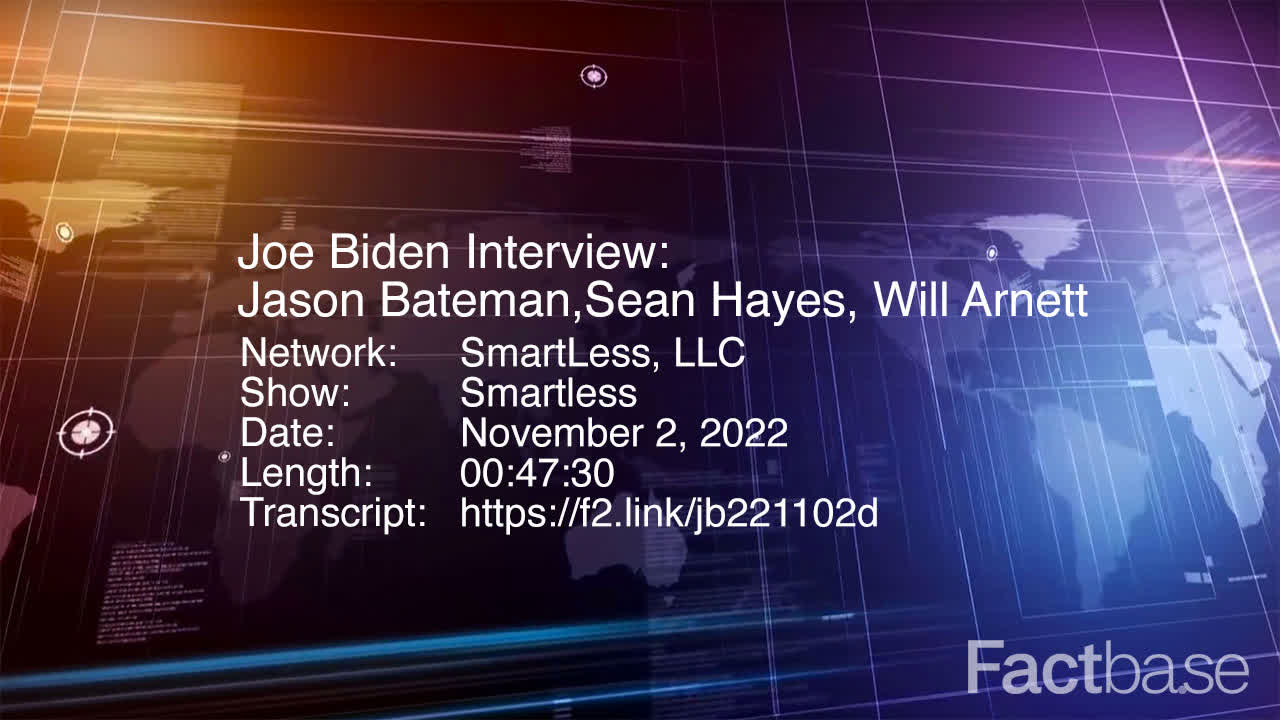
00:01:14-00:01:27 (13 sec)

"Thank you. And I was sitting on the couch. I nearly fell out of my -- my seat. And it -- it just meant so much to me and a million other people -- millions of other people that you recognized us and spoke up for us. So, thank you. I have no question. I just wanted to say thank you."
22
Joe Biden
Leans Positive
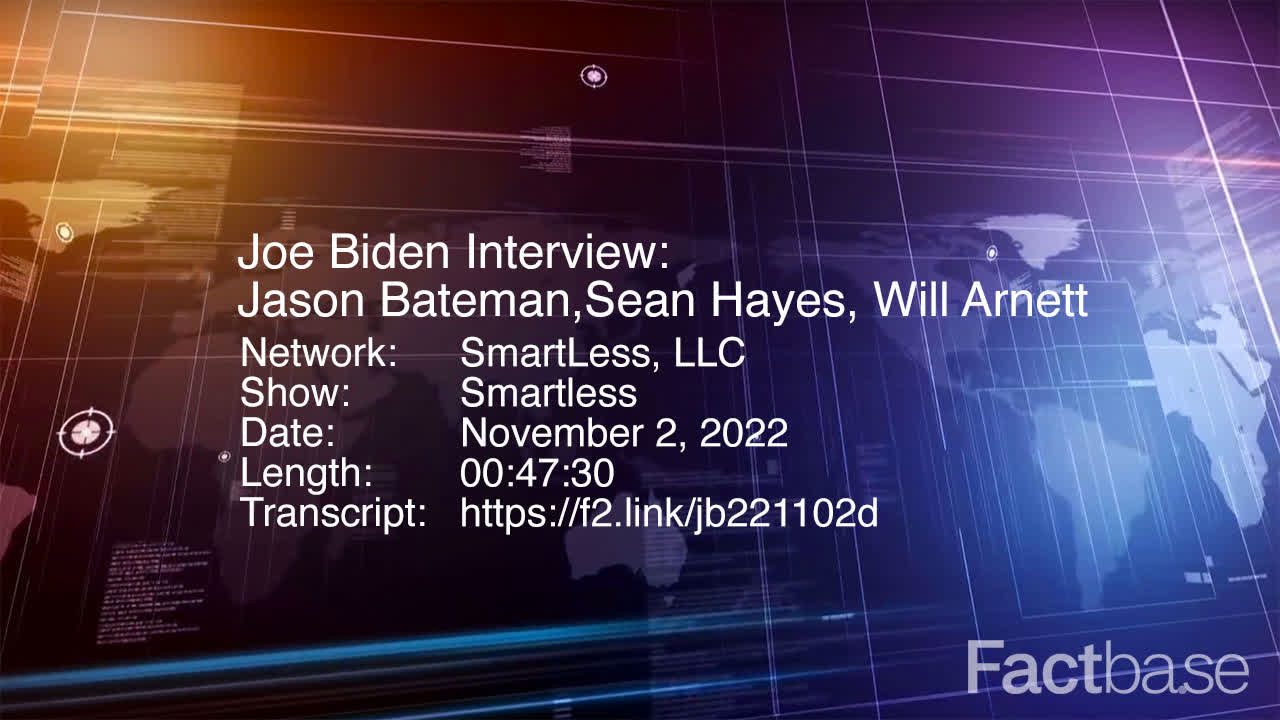
00:01:27-00:01:34 (7 sec)

"No, no. I don't think it was a quote. But look, I -- but it's the truth. You know, people are afraid of what they don't know."
23
Sean Hayes
Slightly Positive
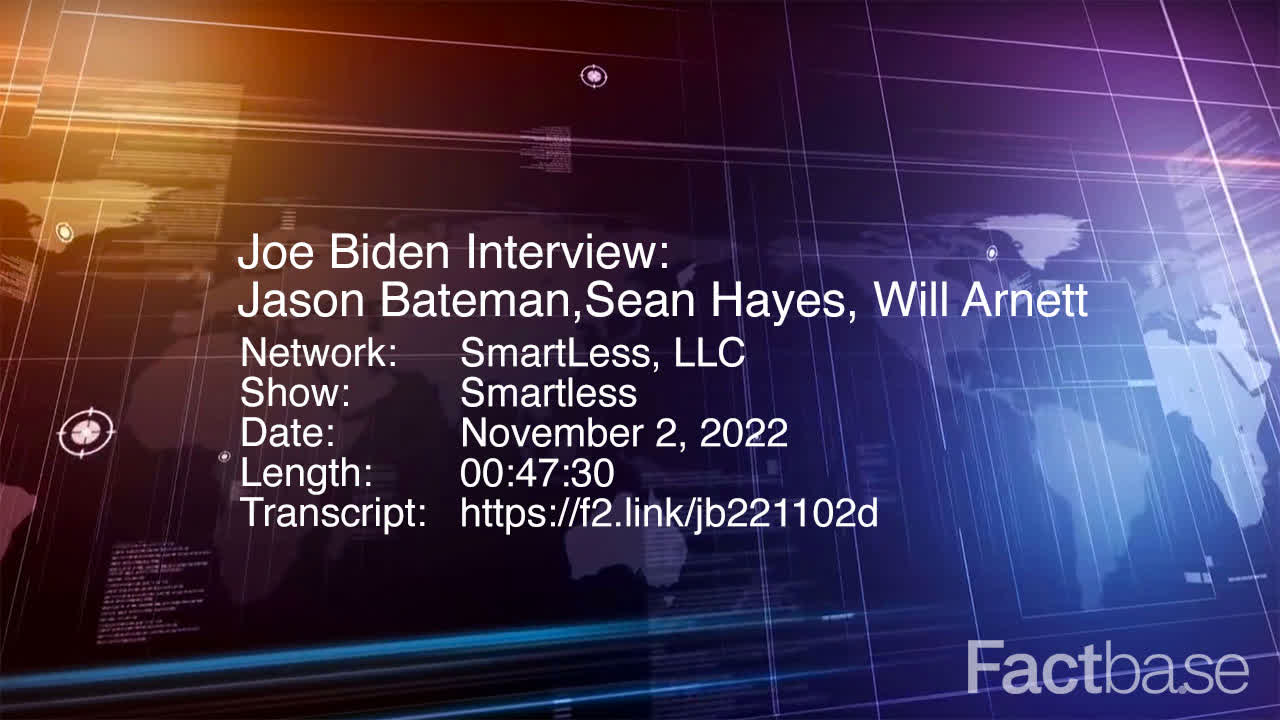
00:01:34-00:01:35 (1 sec)

"Yeah."
24
Joe Biden
Negative
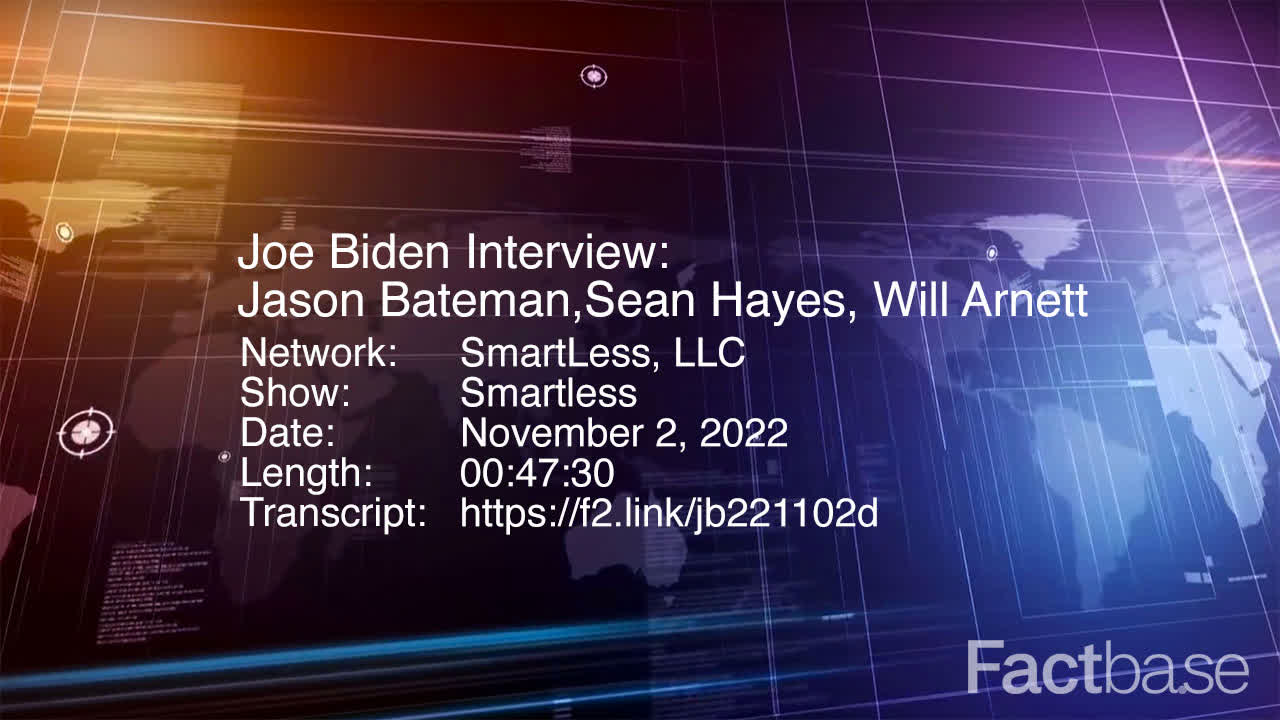
00:01:35-00:01:45 (10 sec)

"And they're -- they're frightened of it. And they had images that every gay person in the world or lesbian was an extremist on everything. I mean, it's --"
25
Jason Bateman
Neutral
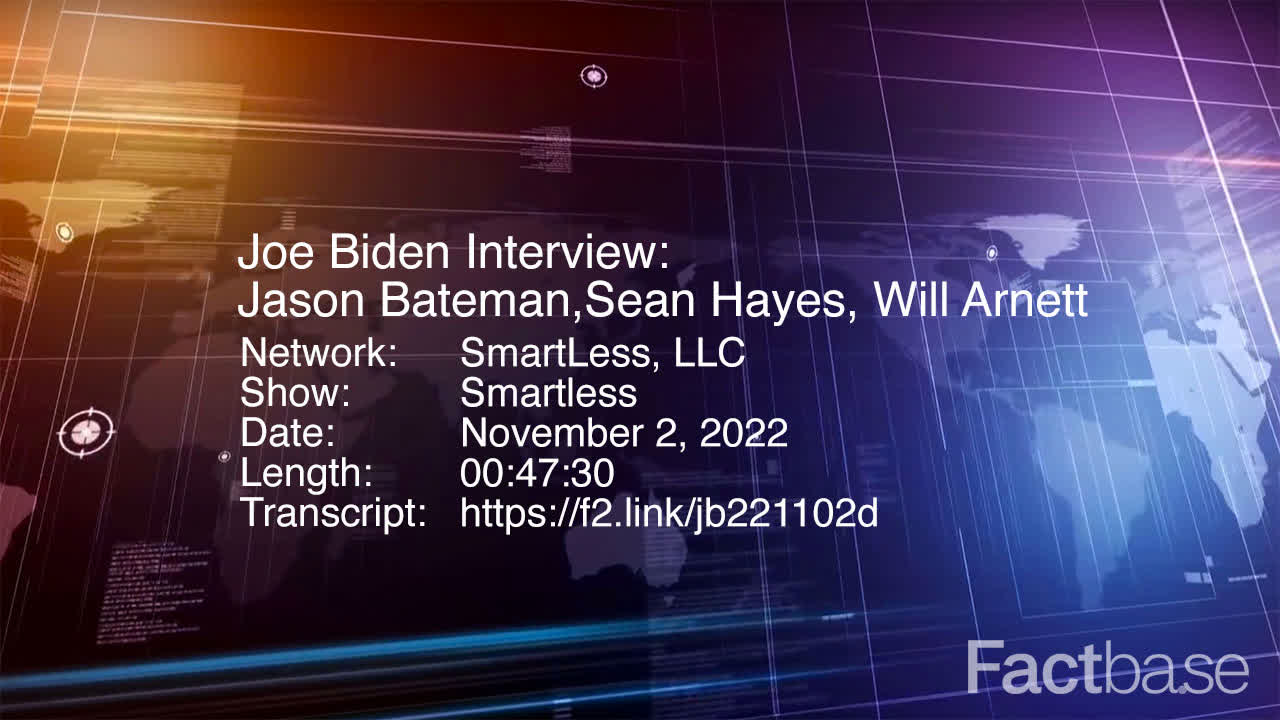
00:01:45-00:01:46 (1 sec)

"Right. Right."
26
Joe Biden
Somewhat Positive
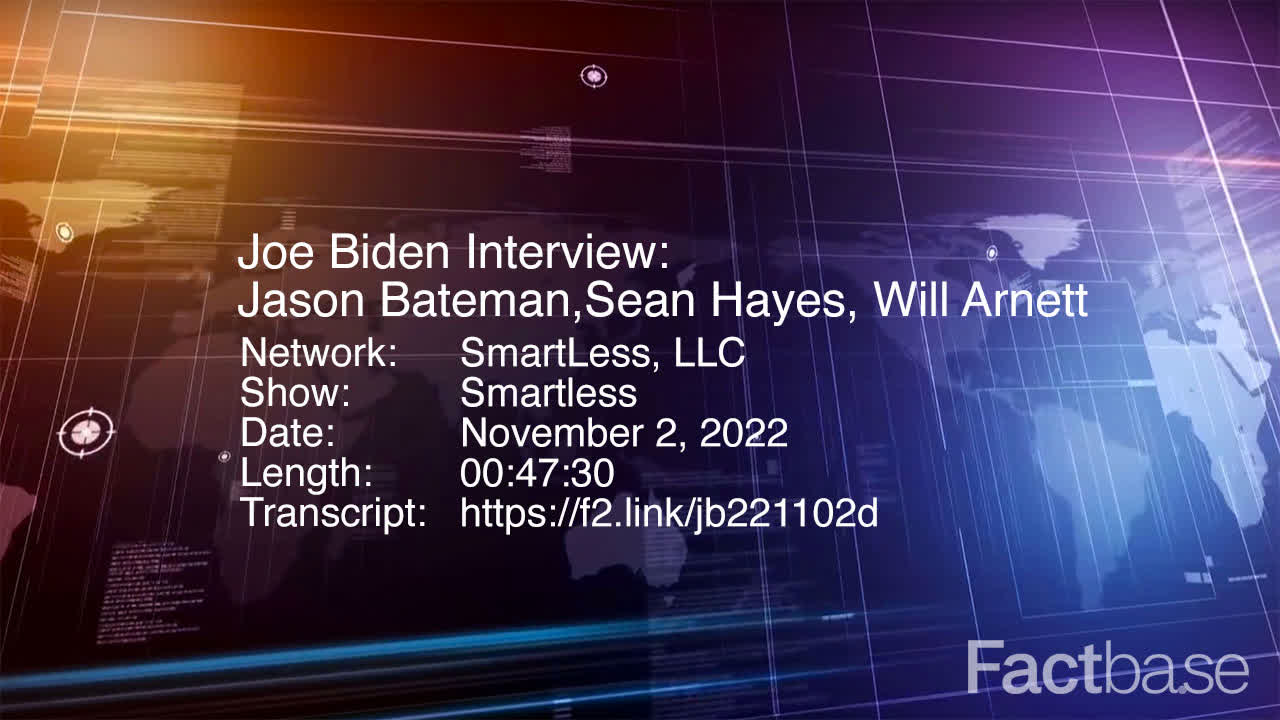
00:01:46-00:01:47 (1 sec)

"But it's like --"
27
Sean Hayes
Somewhat Negative
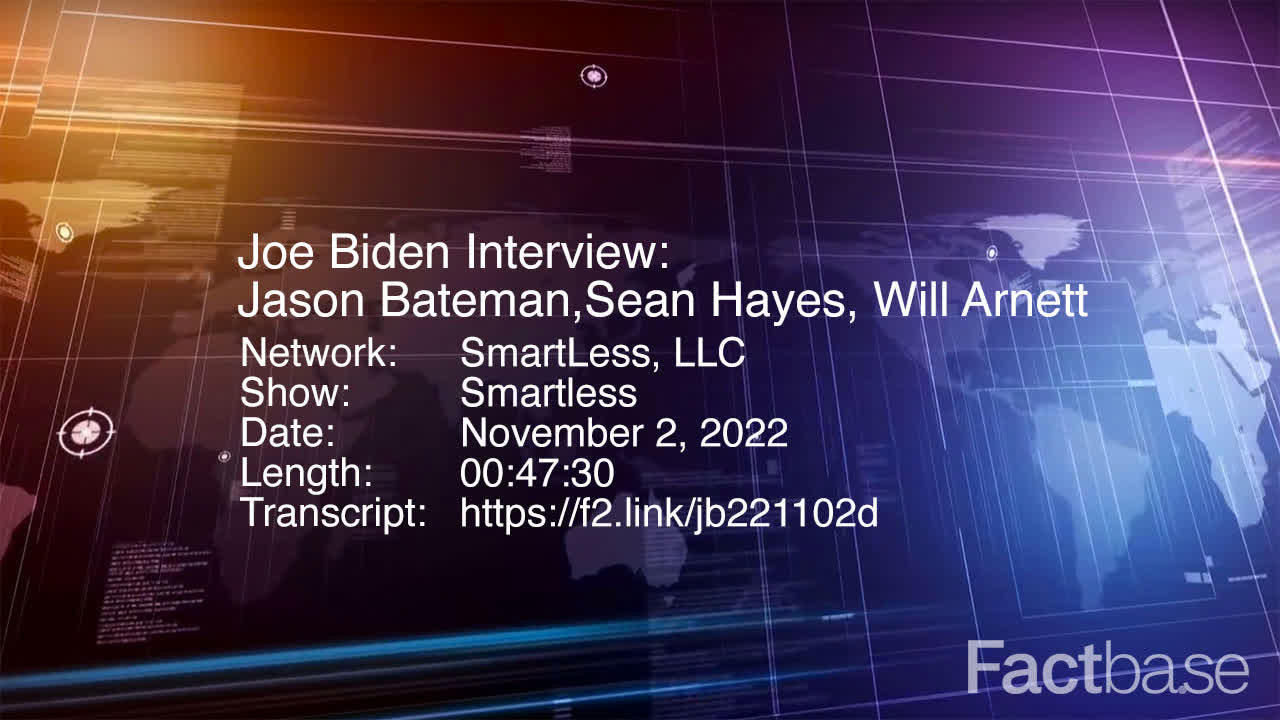
00:01:47-00:01:49 (2 sec)

"We're just as boring as everybody else."
28
Joe Biden
Very Positive
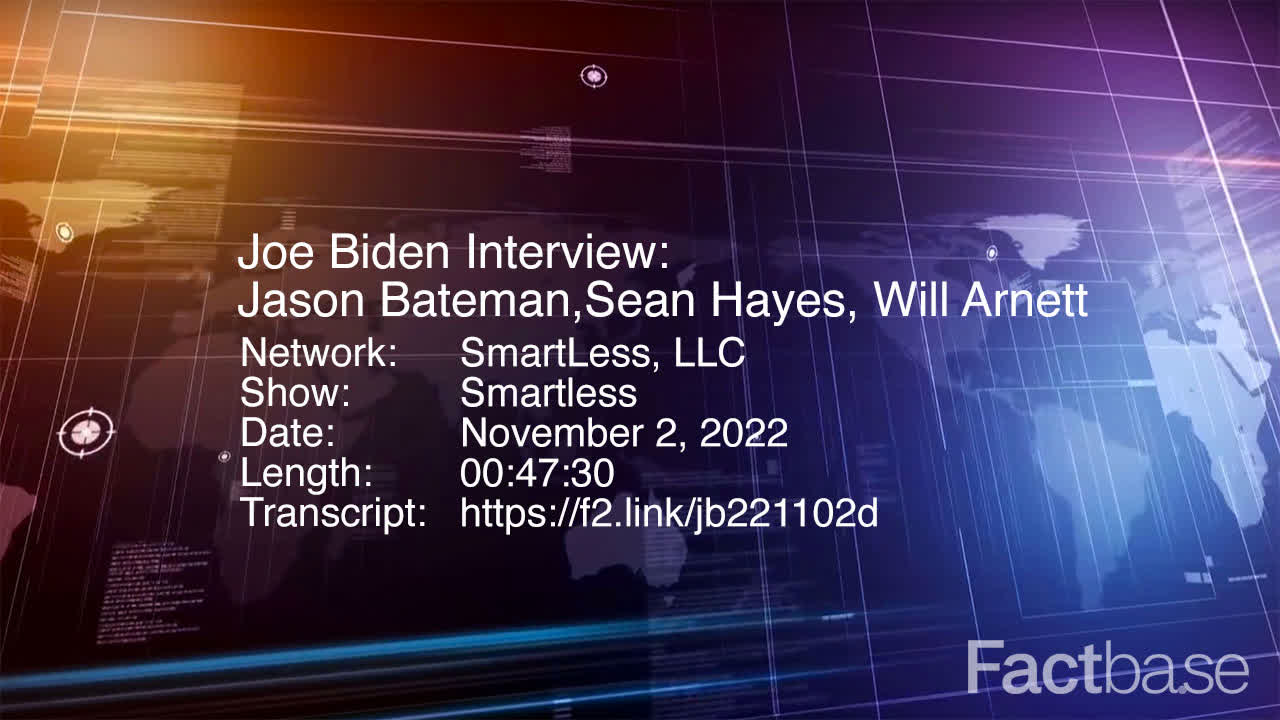
00:01:49-00:01:50 (1 sec)

"Well, that's true --"
29
Sean Hayes
Slightly Positive
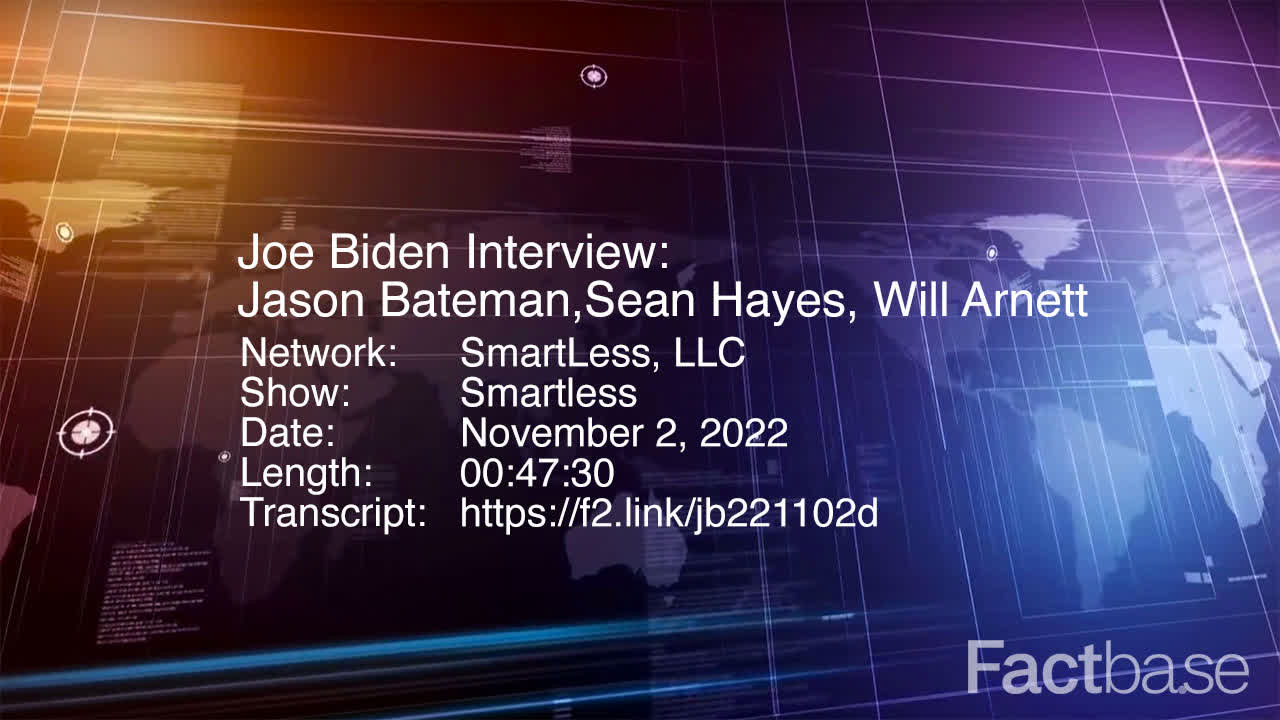
00:01:50-00:01:50 ( sec)

"Yeah."
30
Joe Biden
Neutral
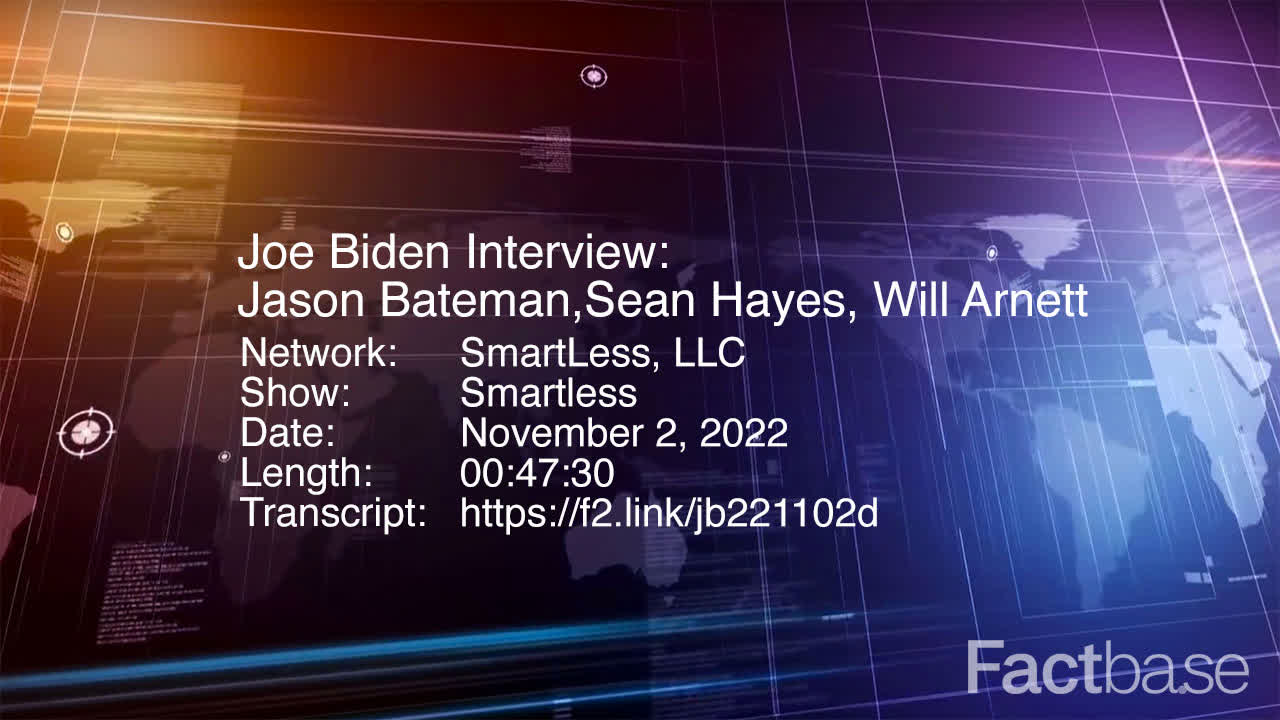
00:01:50-00:01:51 (1 sec)

"By the way."
31
Jason Bateman
Neutral
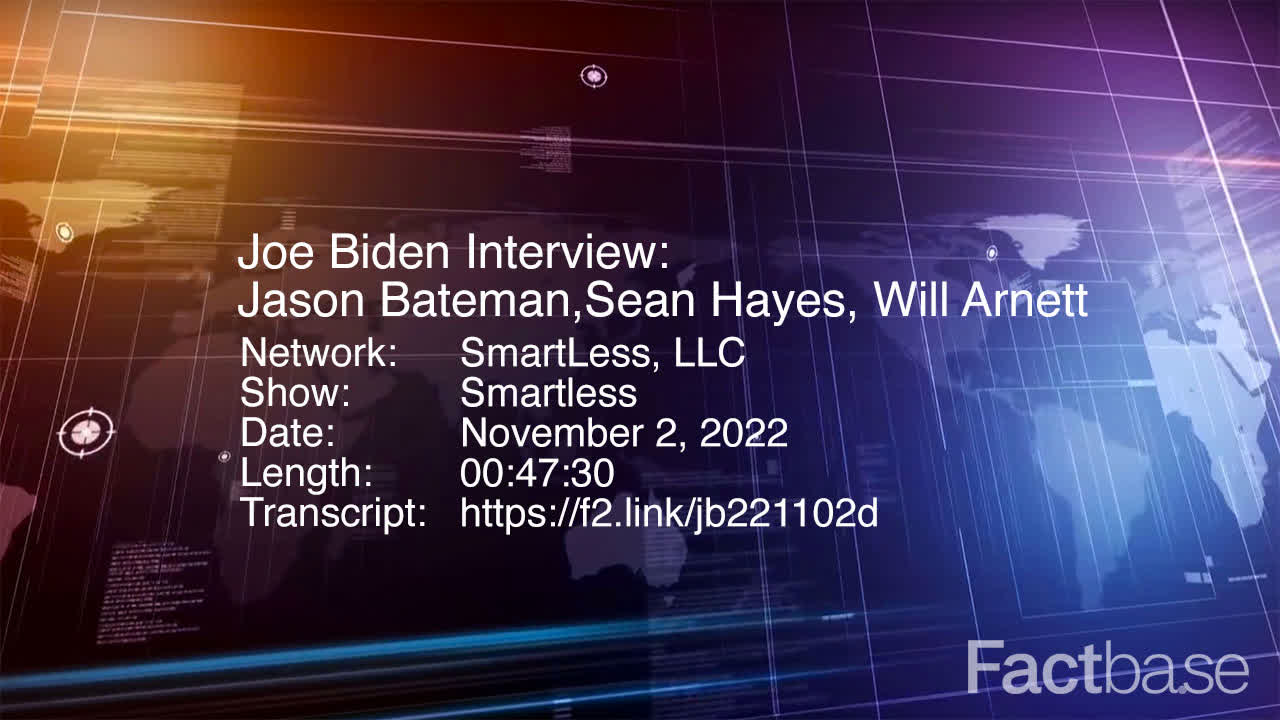
00:01:51-00:01:53 (2 sec)

"Look at his zipped-up cardigan there."
32
Will Arnett
Somewhat Negative
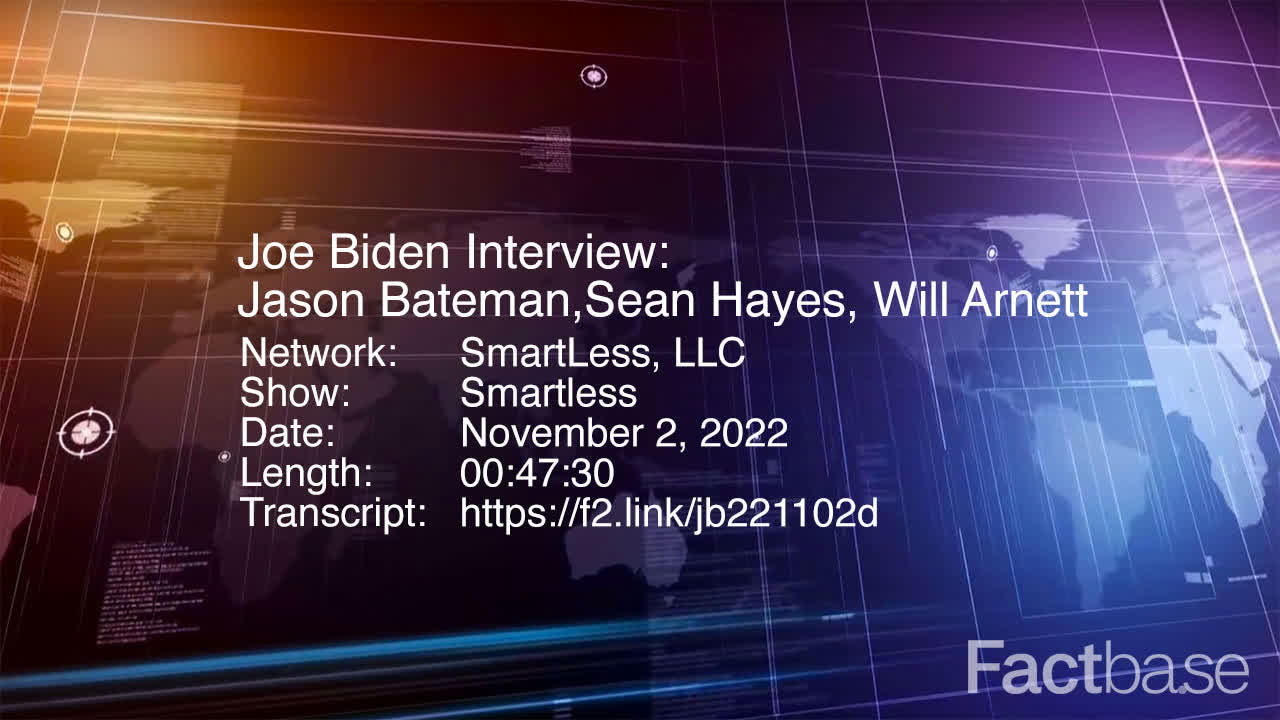
00:01:53-00:01:55 (2 sec)

"Often more -- often more -- often far more boring."
33
Joe Biden
Very Positive
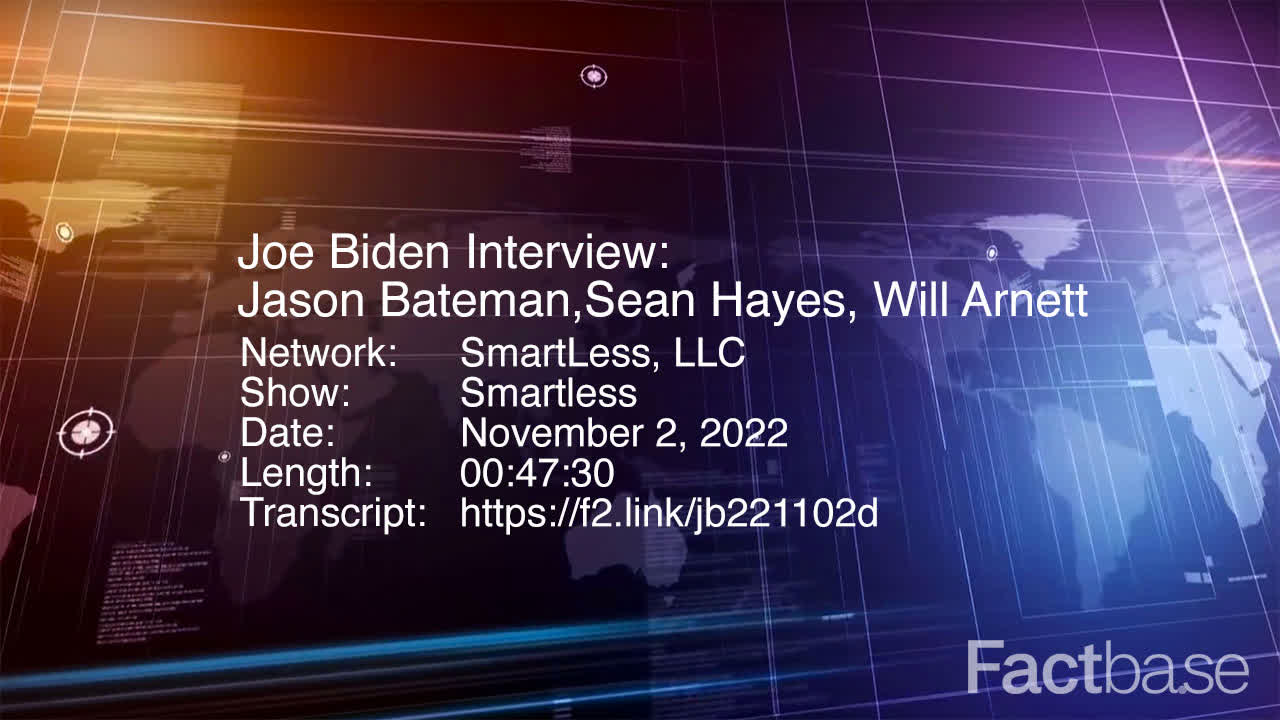
00:01:55-00:02:08 (13 sec)

"No, no, but -- but think -- think about it. You know, the first -- you made it clear that a gay person's interest and -- and life is not any fundamentally different."
34
Sean Hayes
Slightly Positive
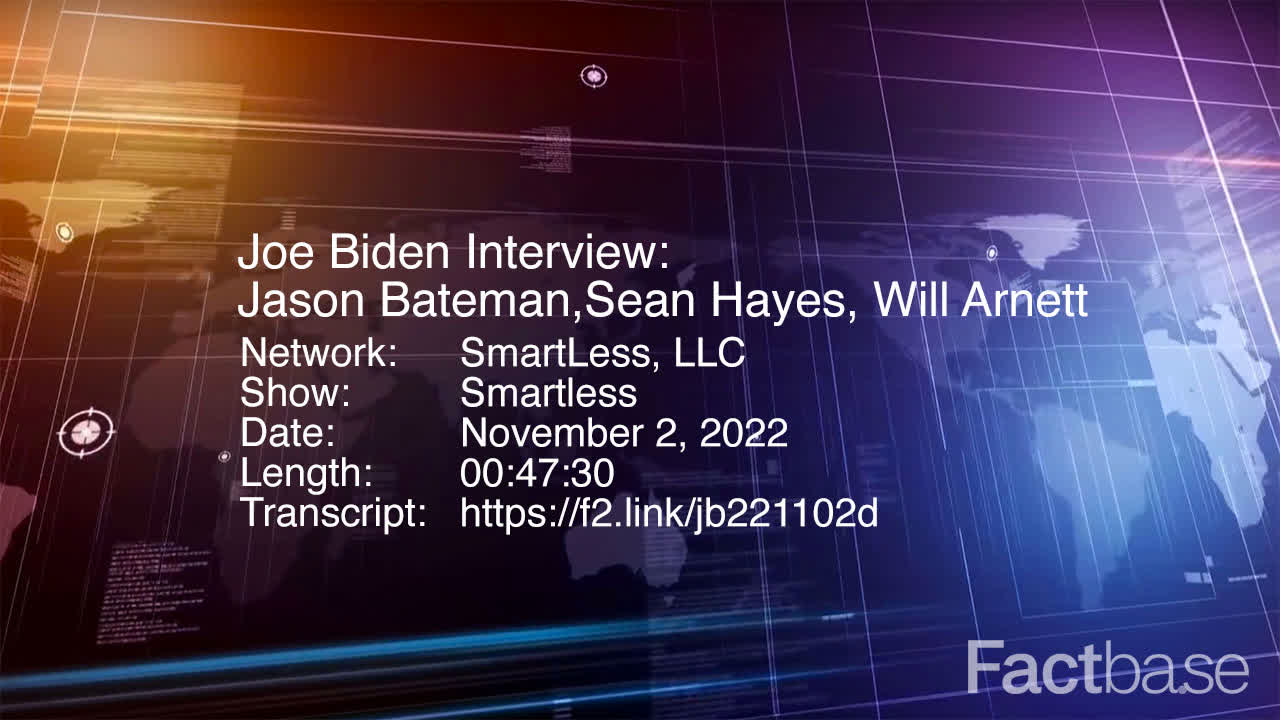
00:02:08-00:02:08 ( sec)

"Yeah."
35
Joe Biden
Neutral
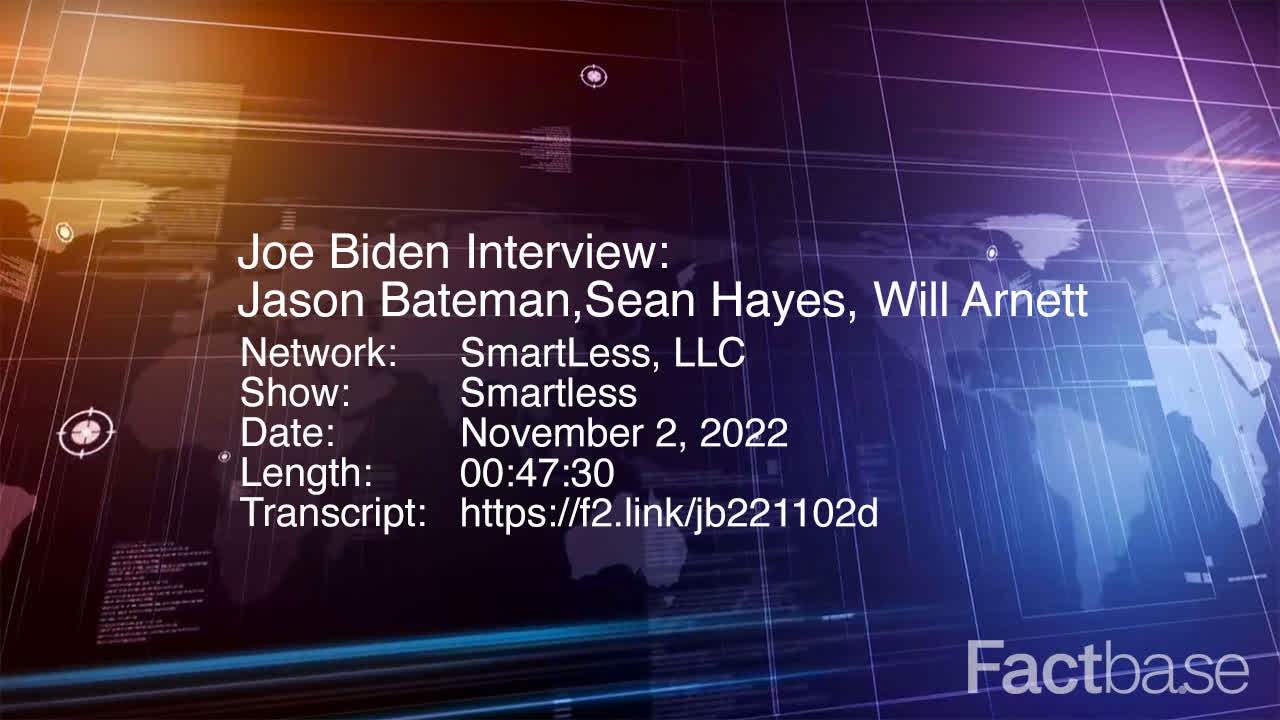
00:02:08-00:02:12 (4 sec)

"I mean, they have the same fears, concerns, ambitions, likes. I mean --"
36
Sean Hayes
Slightly Positive
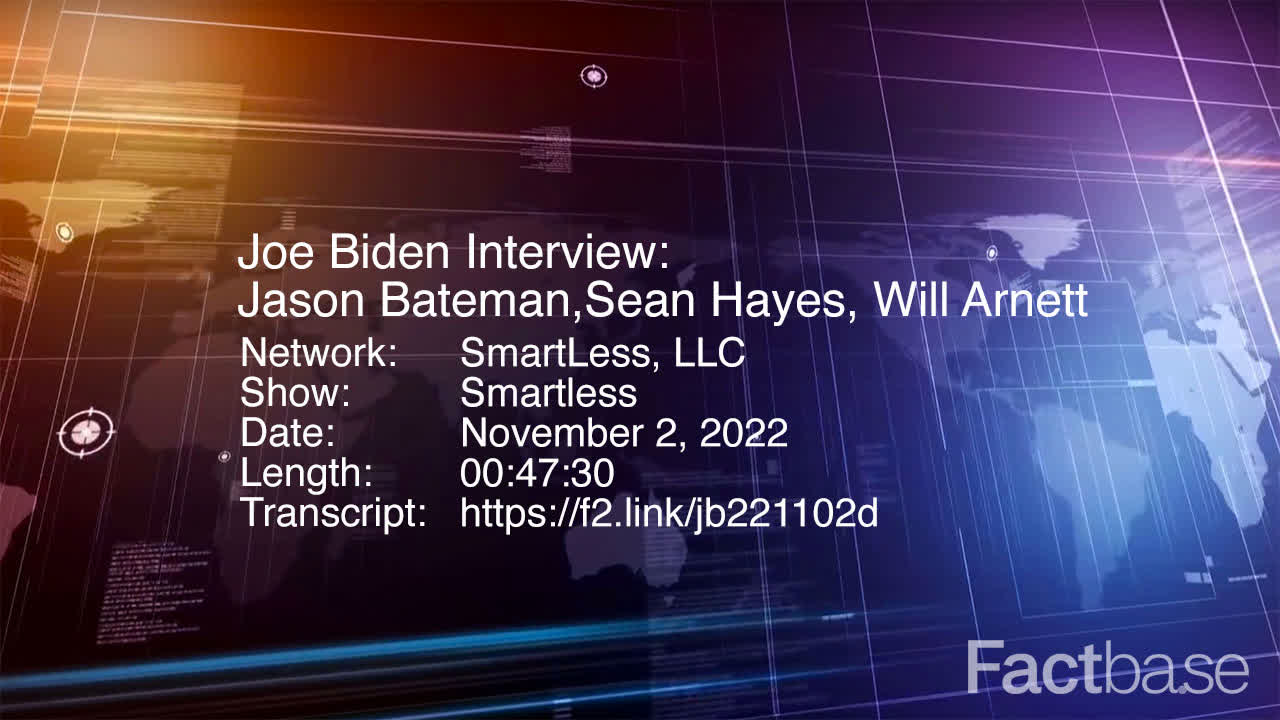
00:02:12-00:02:14 (1 sec)

"Yeah, I know."
37
Joe Biden
Neutral
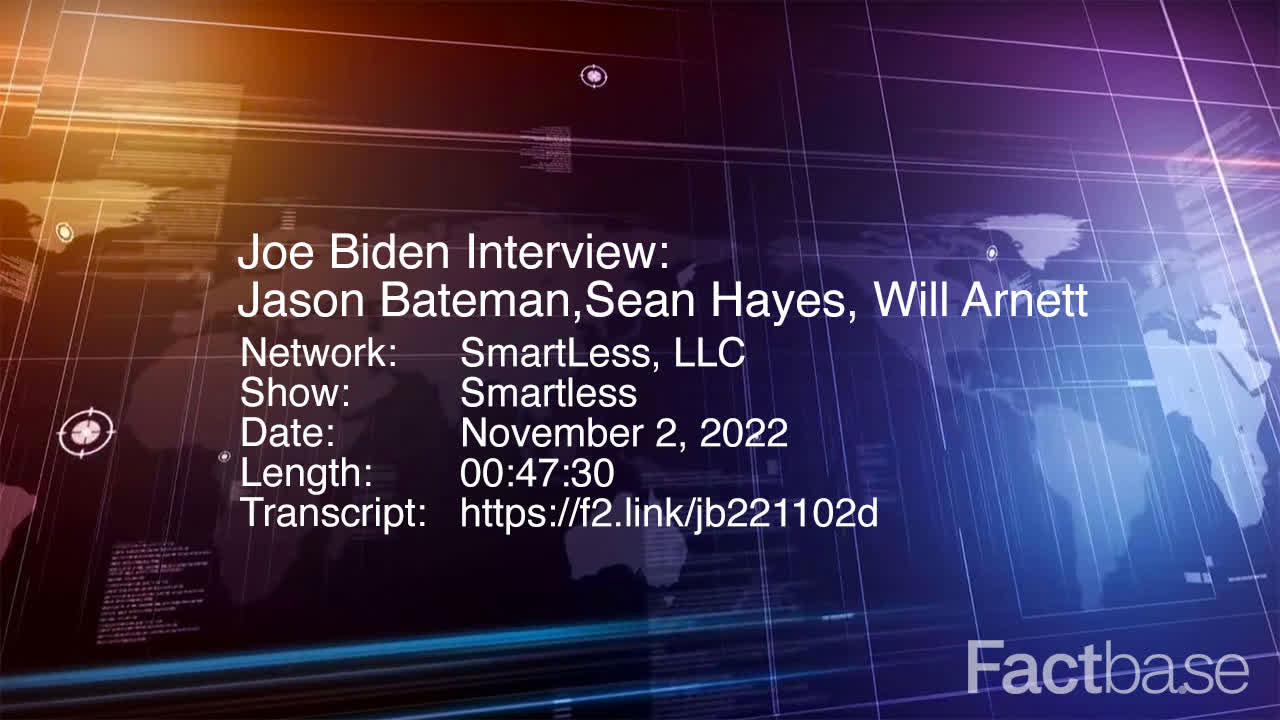
00:02:14-00:02:15 (1 sec)

"It's normal."
38
Sean Hayes
Very Positive
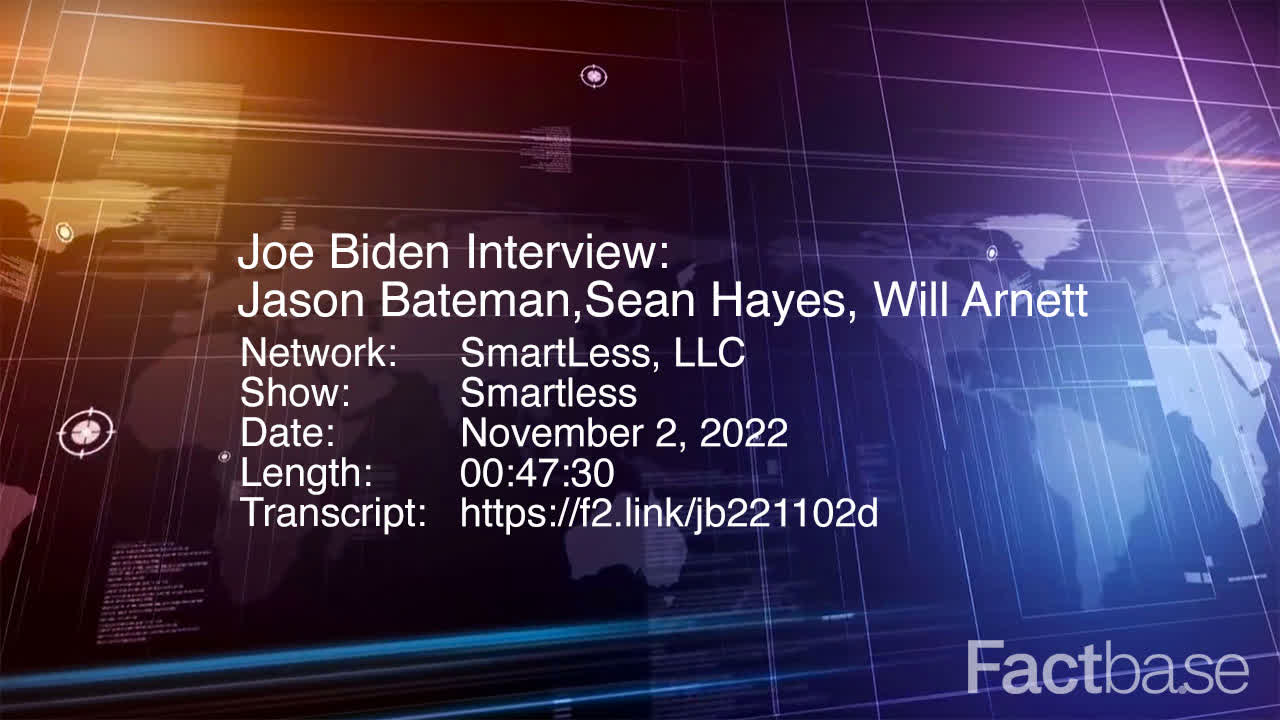
00:02:15-00:02:18 (3 sec)

"Yeah. And thank you for giving us the right -- the same rights as everybody else."
39
Jason Bateman
Neutral
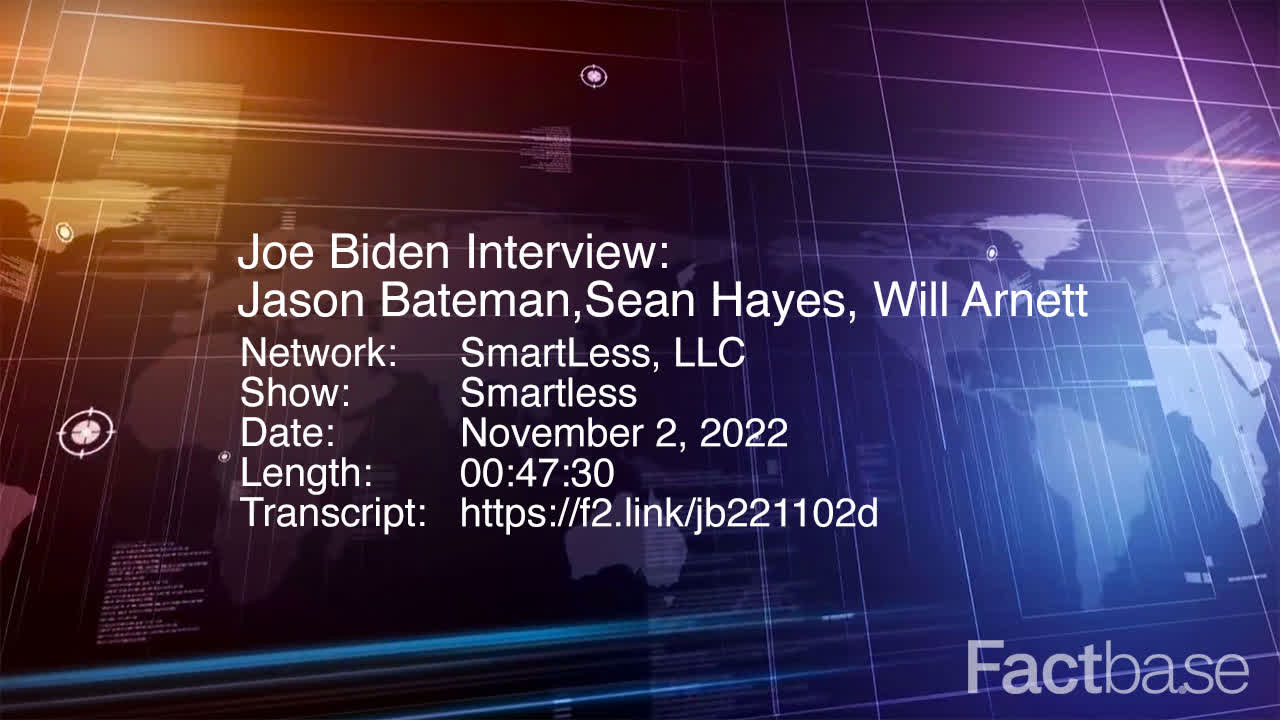
00:02:18-00:02:19 (1 sec)

"Speaking of Sean --"
40
Sean Hayes
Slightly Positive
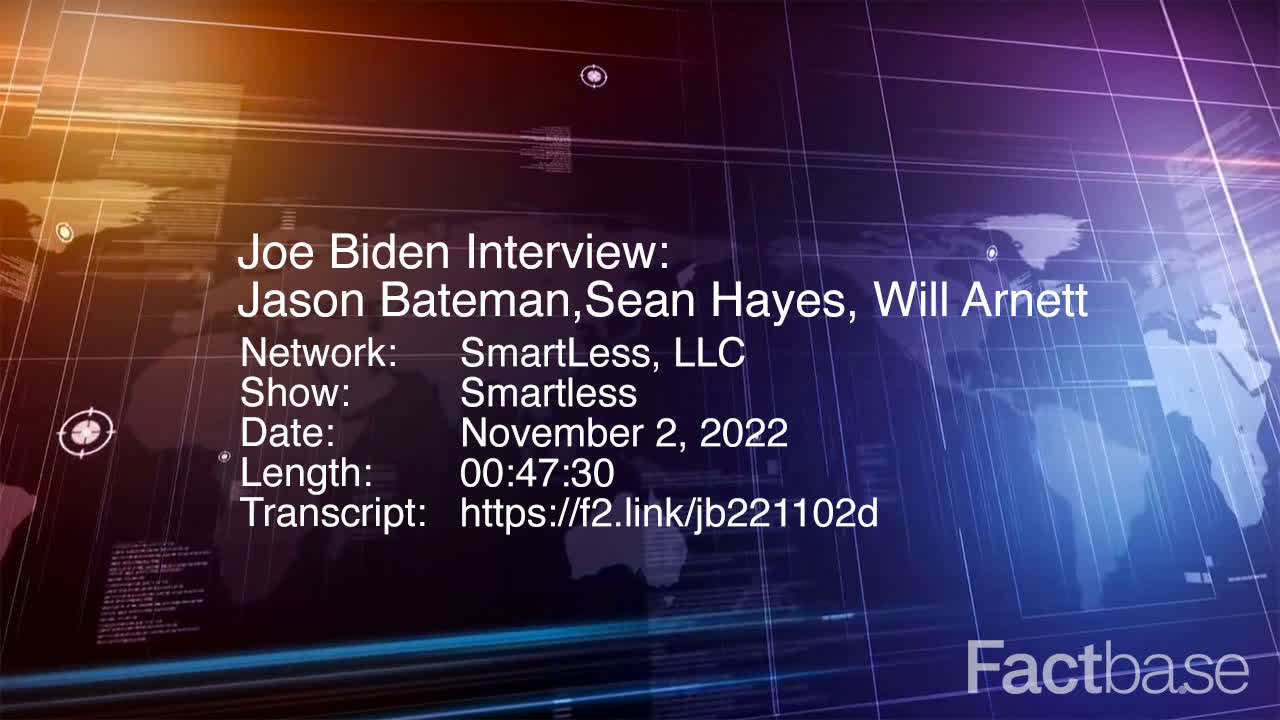
00:02:19-00:02:20 (1 sec)

"Yeah."
41
Jason Bateman
Very Positive
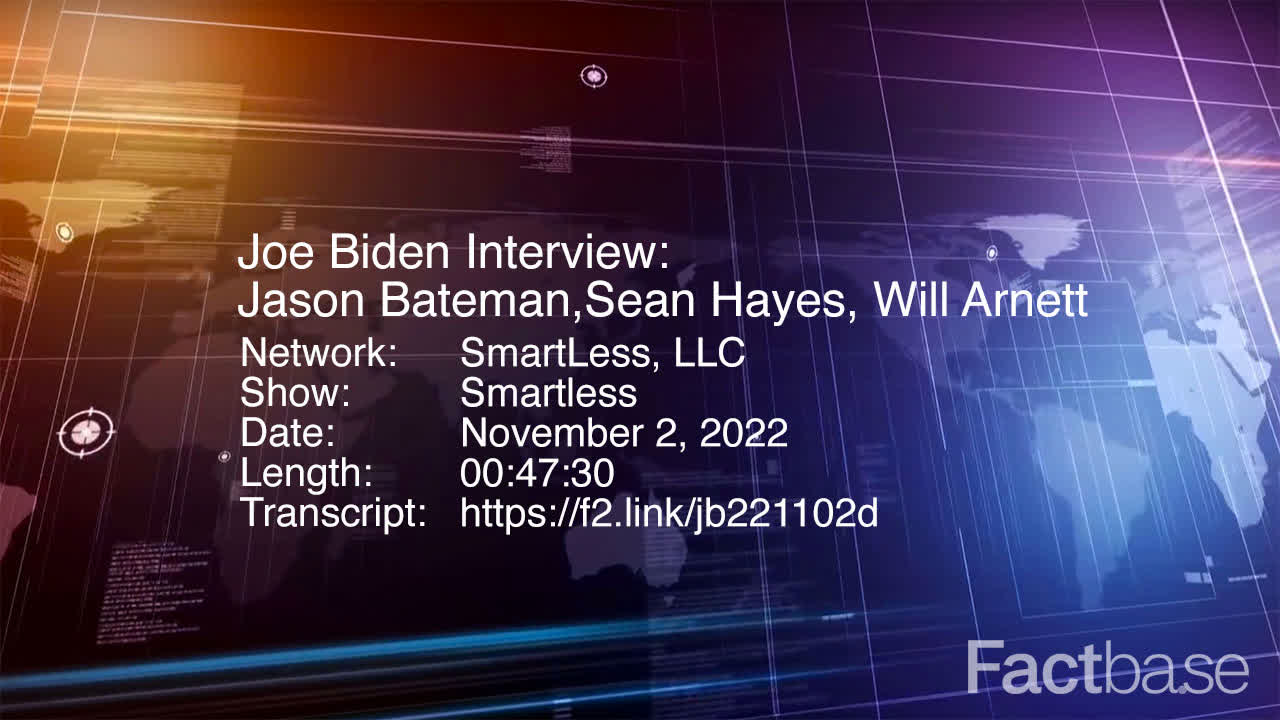
00:02:20-00:02:31 (11 sec)

"You -- you clearly -- you've stated your love for Will and Grace. Now, that makes me think, what other television shows are you able to watch now that you've got a fairly busy job? Is there any TV time for you?"
42
Sean Hayes
Slightly Positive
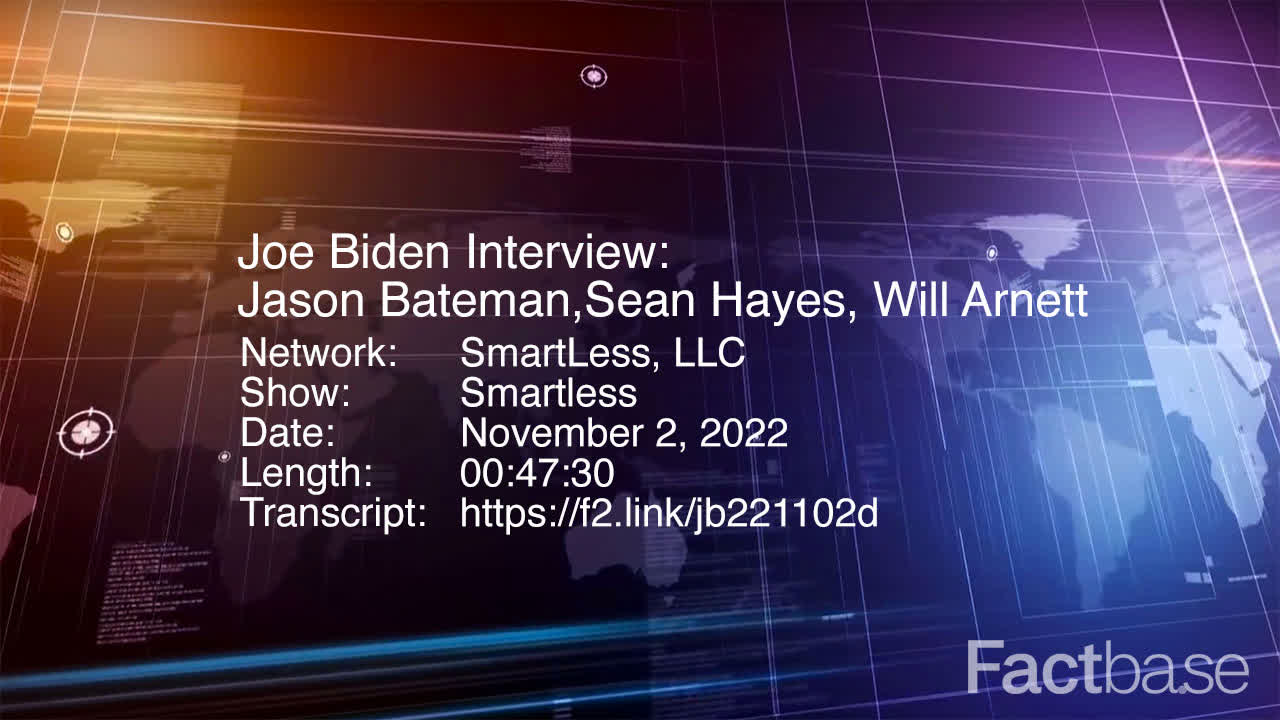
00:02:31-00:02:32 ( sec)

"Yeah."
43
Joe Biden
Very Positive
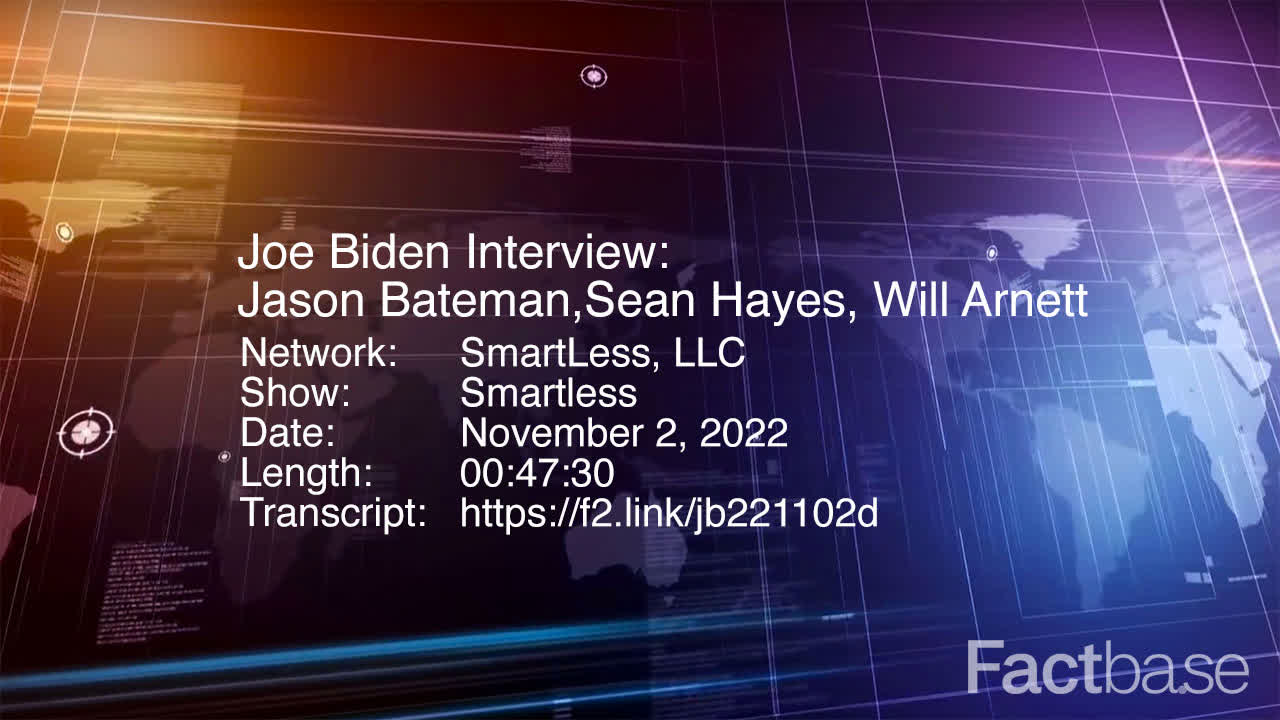
00:02:32-00:02:43 (12 sec)

"Yeah, well, the honest-to-God truth is it's a joke among my granddaughters who -- very little. When I have time on television, what I tend to do is I tend to --"
44
Will Arnett
Neutral
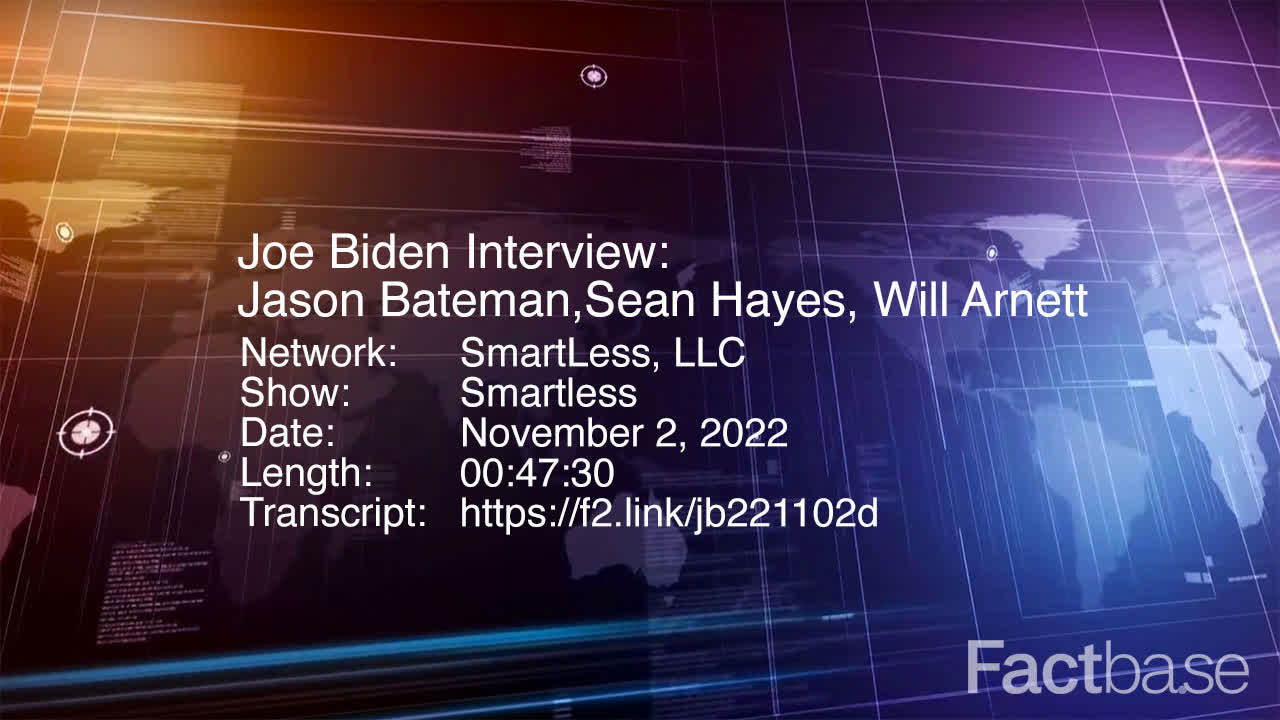
00:02:43-00:02:44 (1 sec)

"You watch the news?"
45
Joe Biden
Very Negative
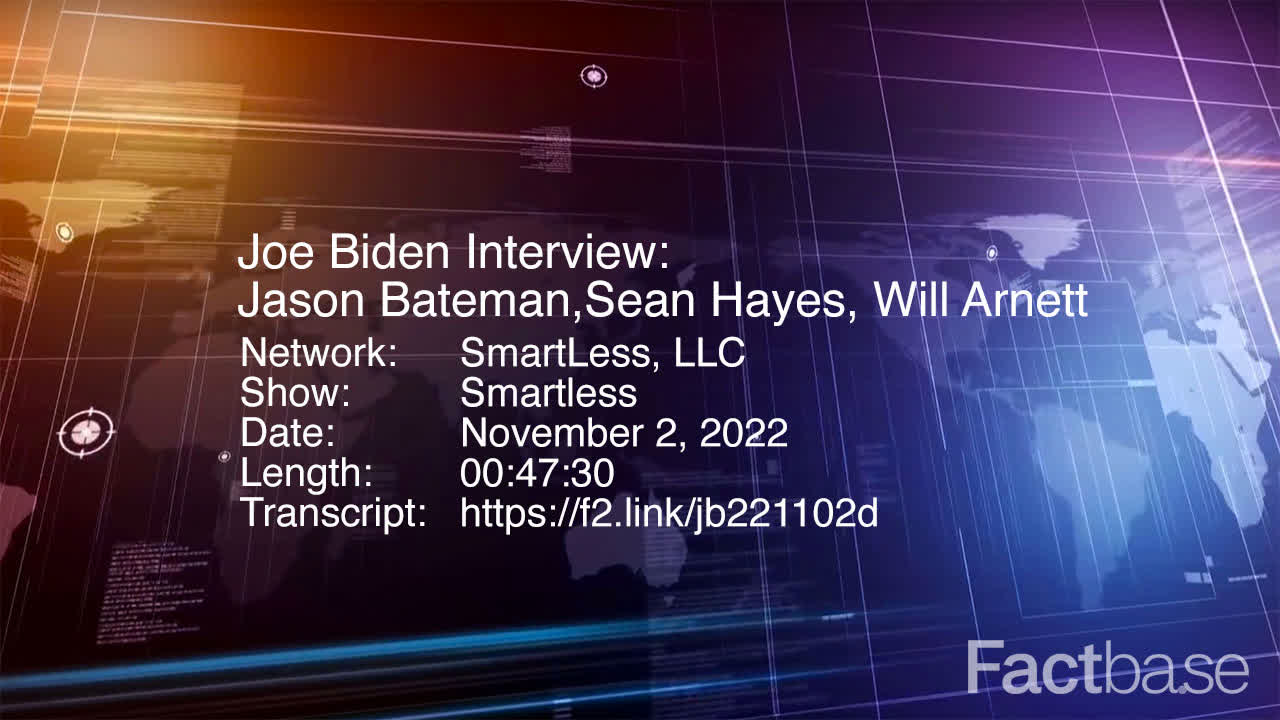
00:02:44-00:02:50 (6 sec)

"Watch sports or watch the news. And by the way, I don't work harder. A lot of people work a hell a lot harder than I do."
46
Jason Bateman
Neutral
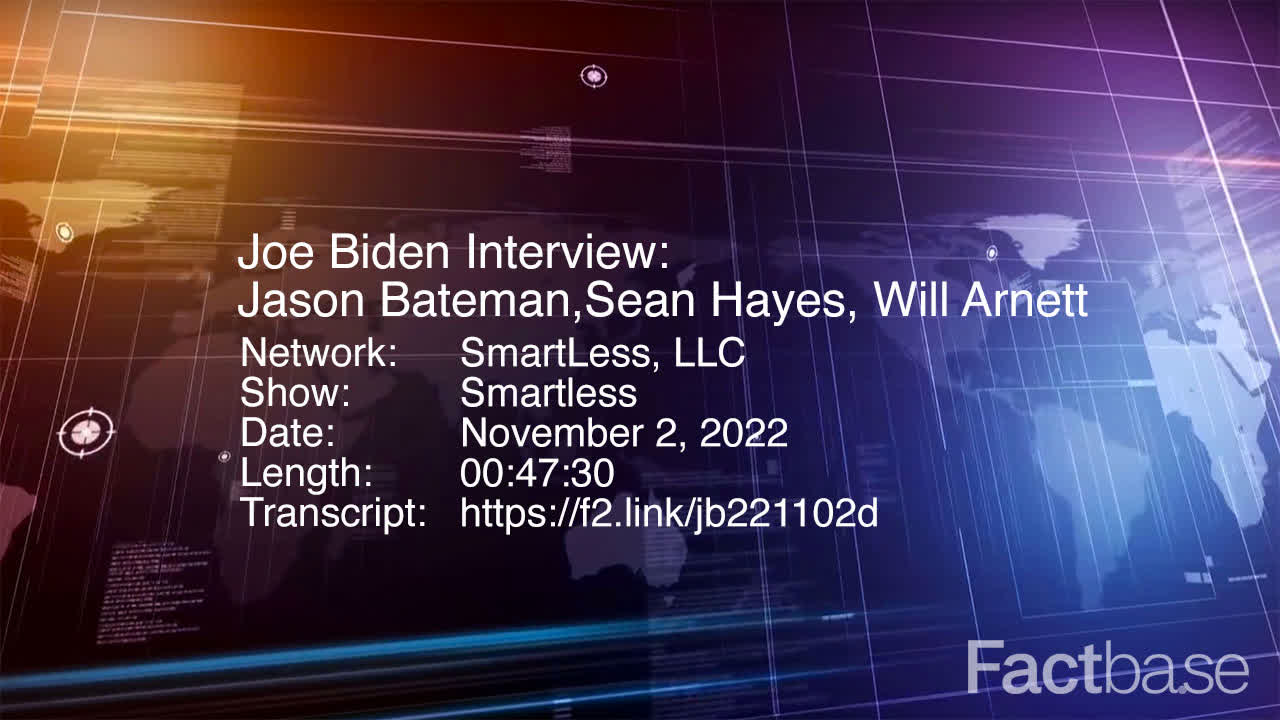
00:02:50-00:02:51 (1 sec)

"I don't know about that."
47
Joe Biden
Neutral
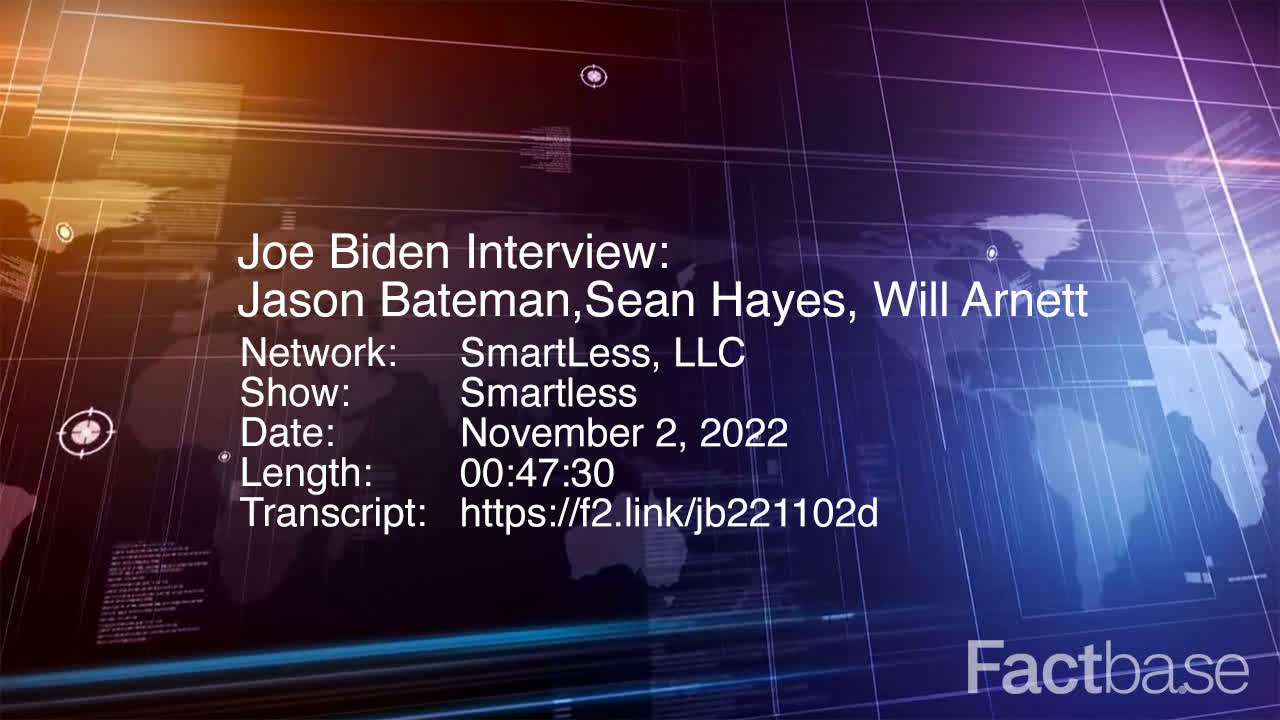
00:02:51-00:02:54 (3 sec)

"But -- but there's just not that many hours. Do you know what I mean?"
48
Sean Hayes
Slightly Positive
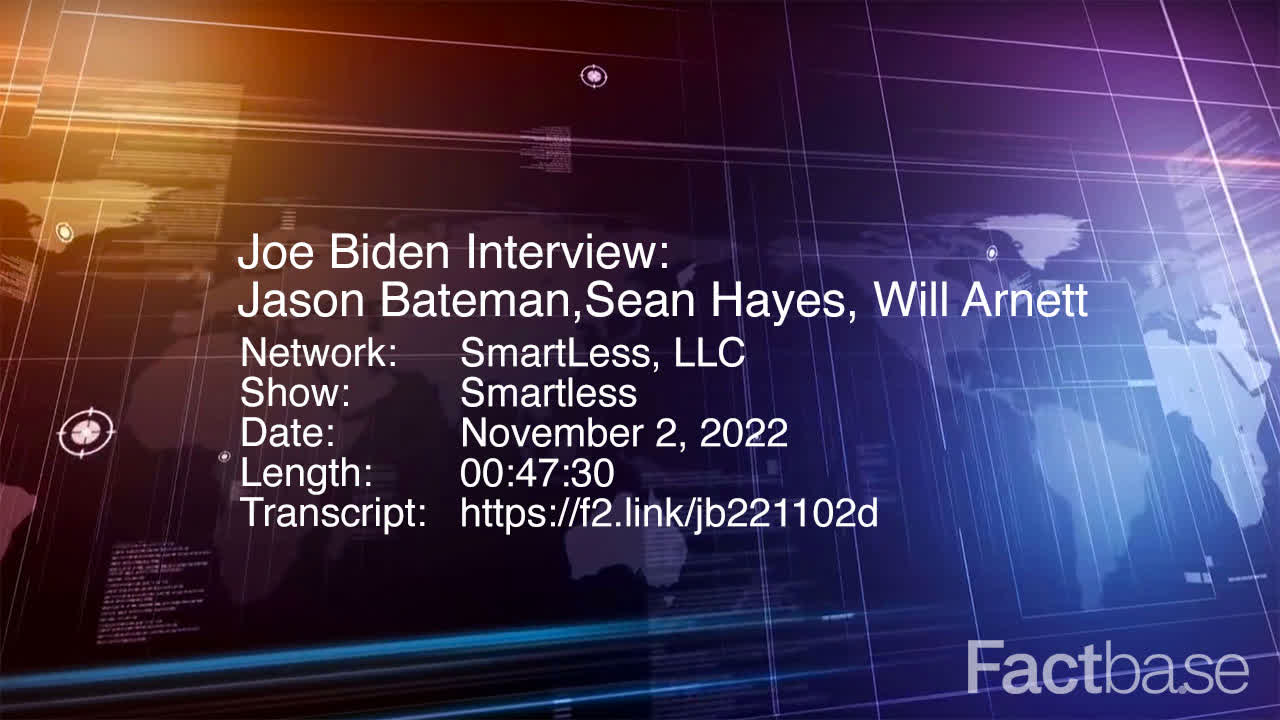
00:02:54-00:02:55 ( sec)

"Yeah."
49
Jason Bateman
Very Positive
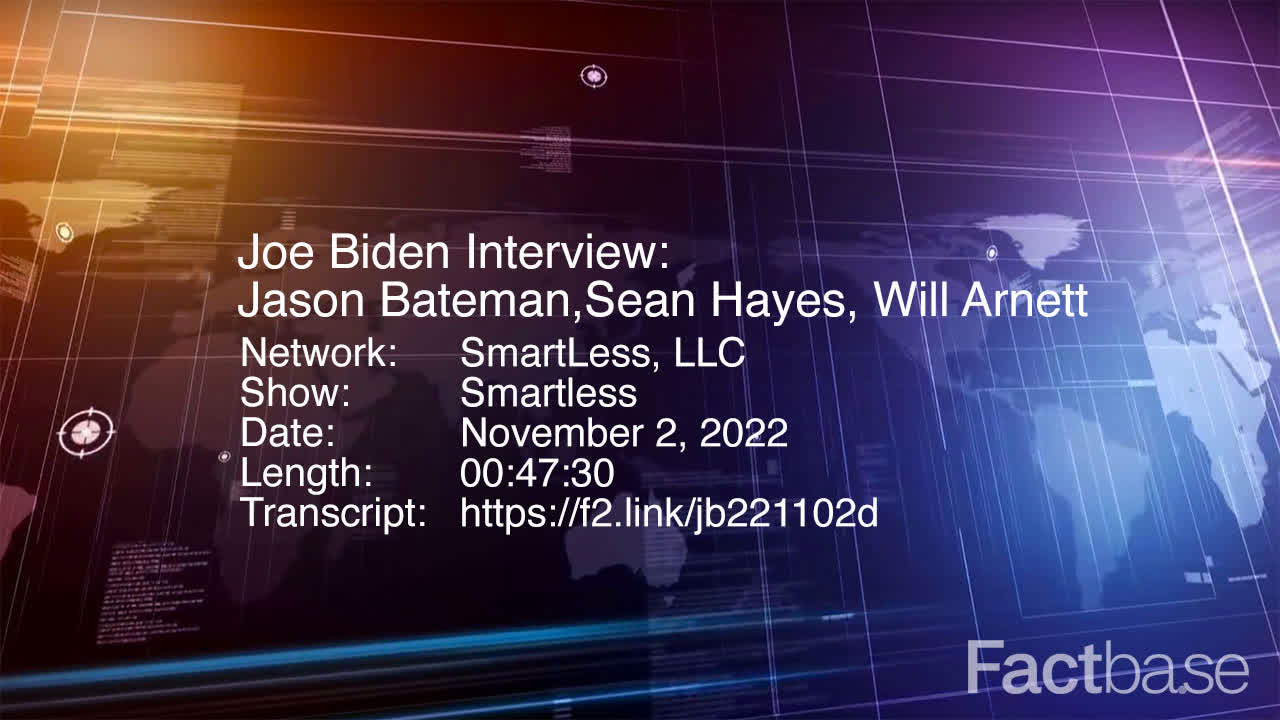
00:02:55-00:03:00 (5 sec)

"But I -- I wanted to like -- because we -- we -- we're not bright enough to ask you really smart questions. I'm really --"
50
Joe Biden
Neutral
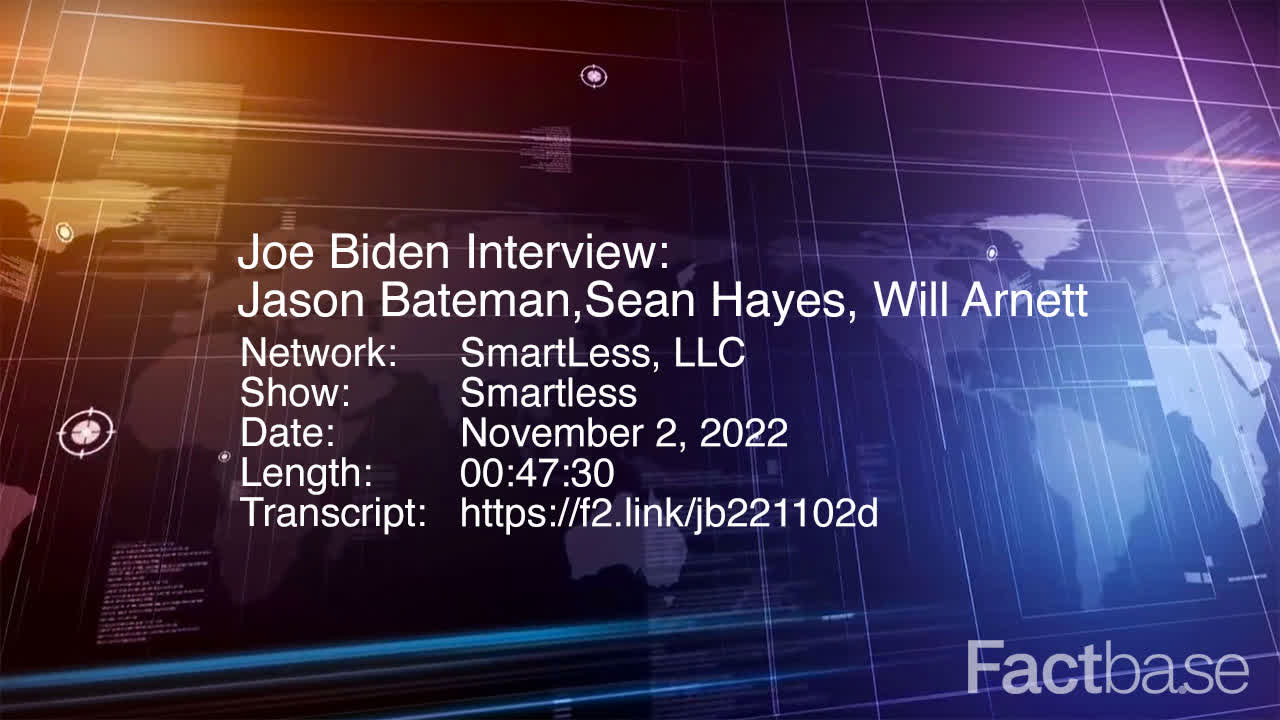
00:03:00-00:03:01 (1 sec)

"Oh, come on."
51
Jason Bateman
Very Positive
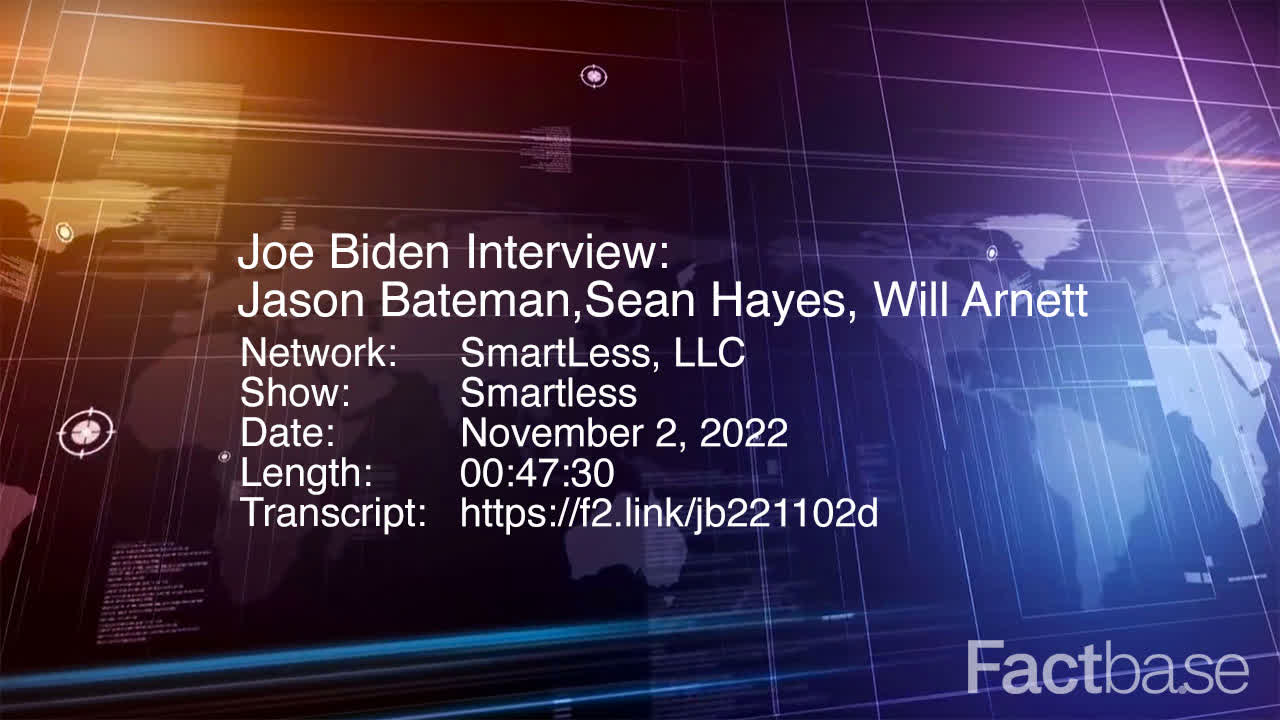
00:03:01-00:03:09 (8 sec)

"I'm really -- I'm -- I'm such a big fan of you as -- as just -- obviously, we've never met before, although I did shake your hand on a school trip in the ninth grade in Delaware, and you were very nice. But I want to know --"
52
Will Arnett
Somewhat Positive
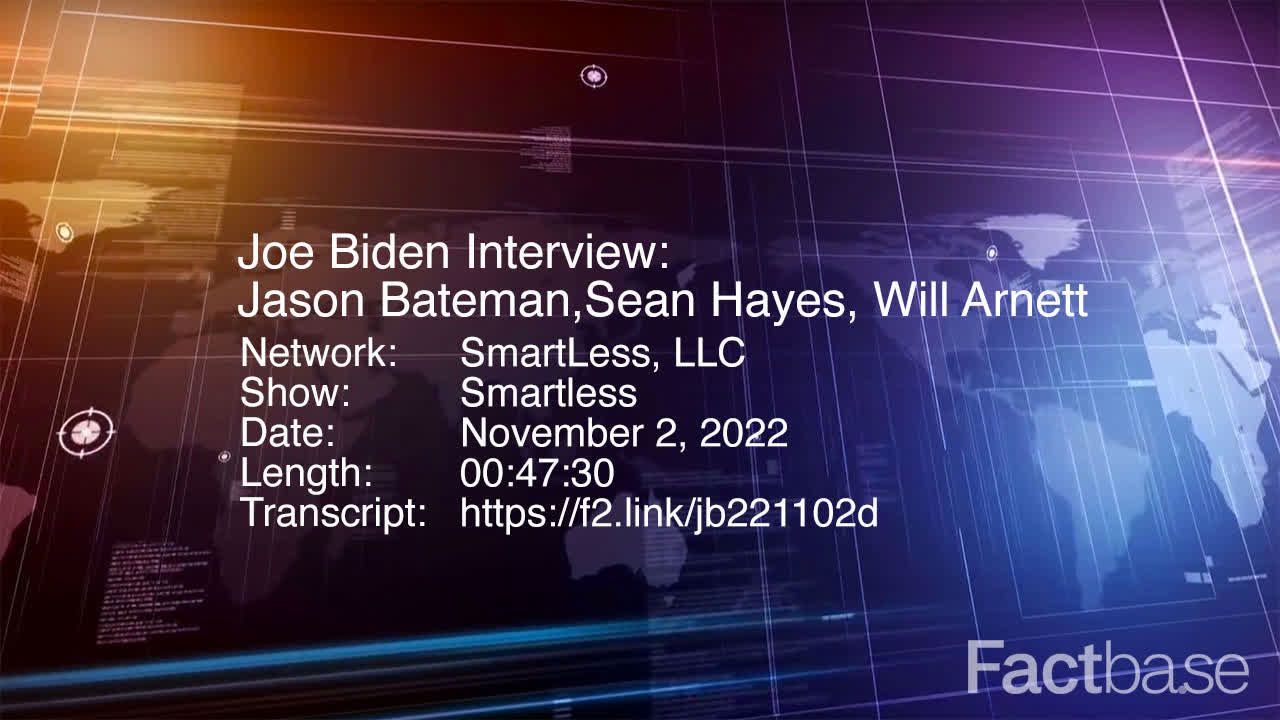
00:03:09-00:03:10 (1 sec)

"Expand on that."
53
Jason Bateman
Neutral
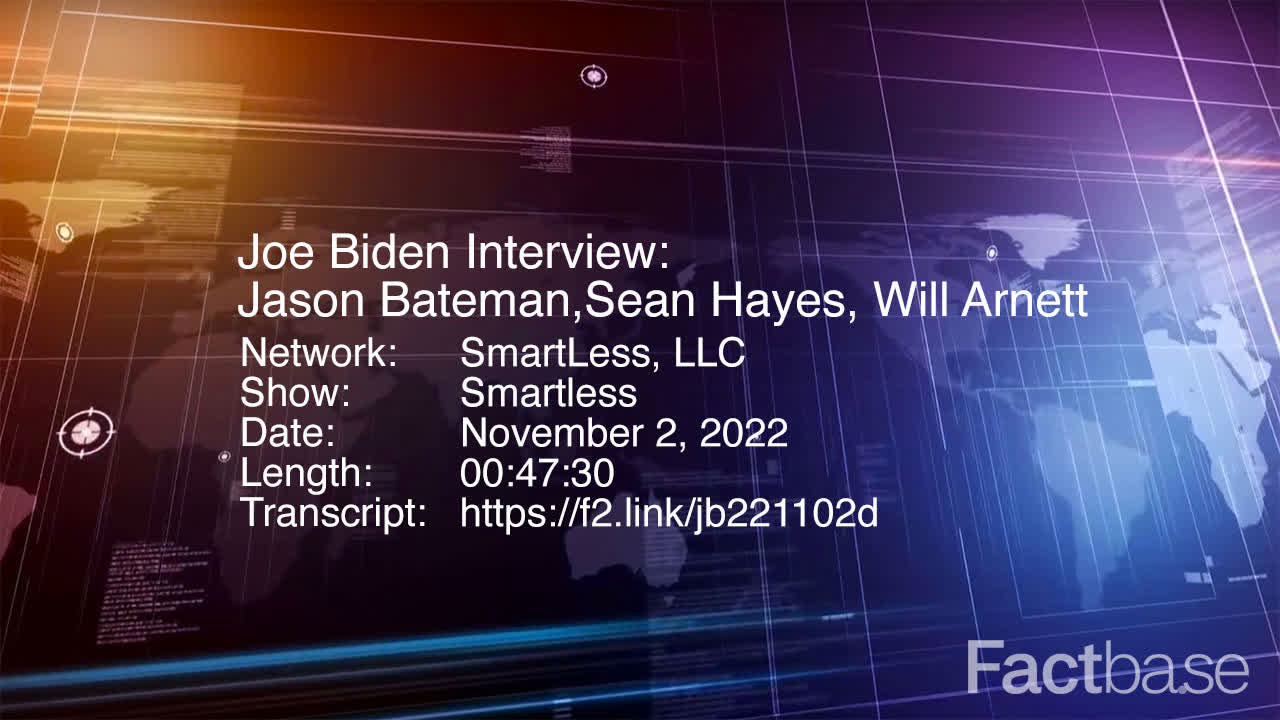
00:03:10-00:03:11 (1 sec)

"I want to know --"
54
Sean Hayes
Neutral
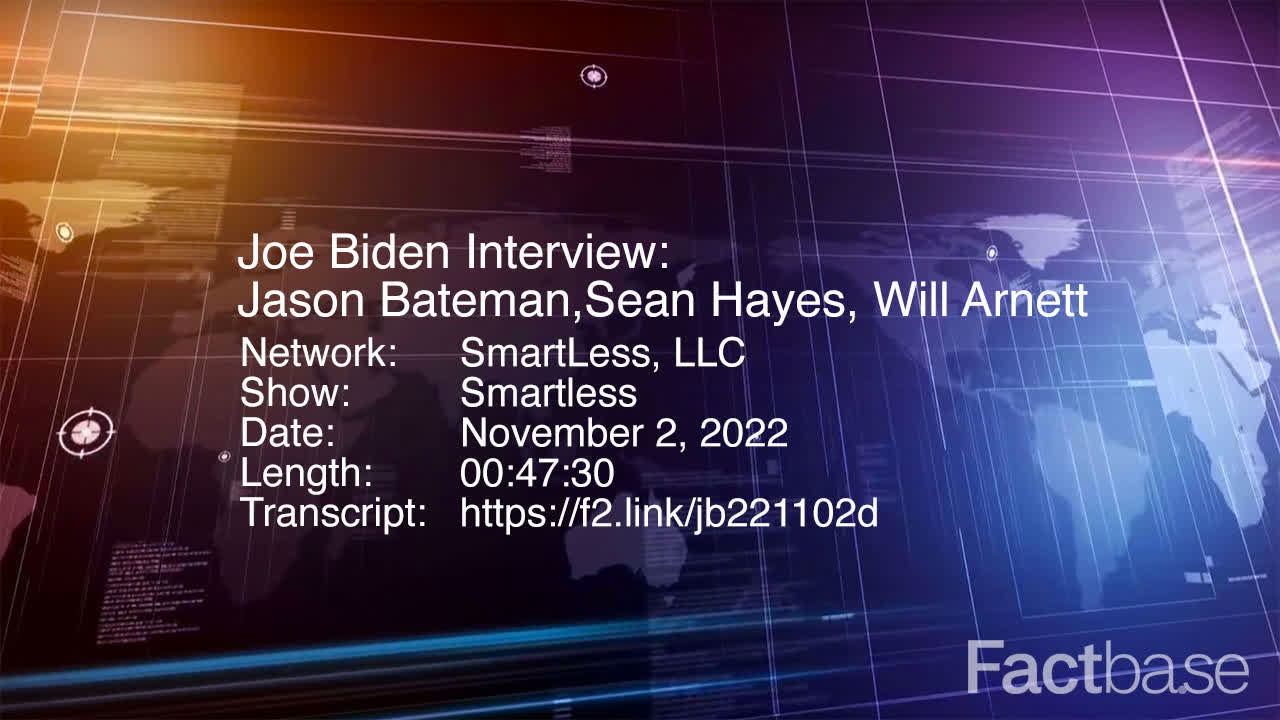
00:03:11-00:03:12 (1 sec)

"How have you been since?"
55
Jason Bateman
Somewhat Positive
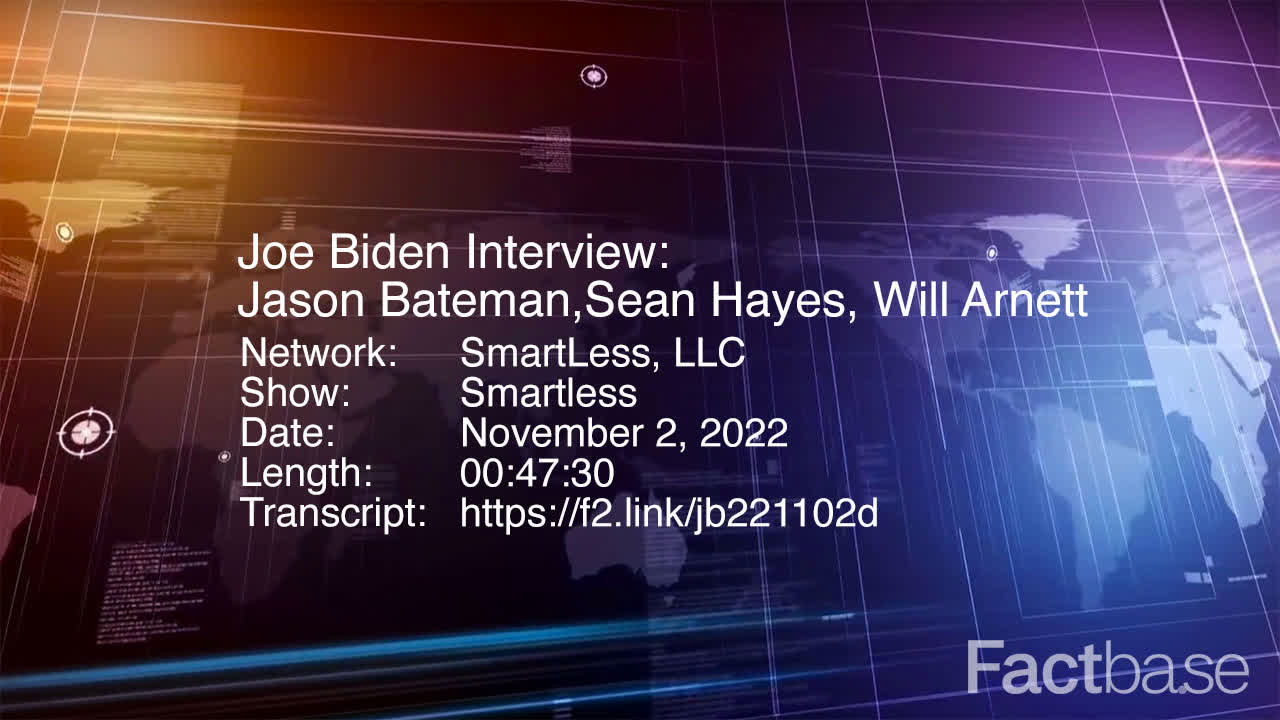
00:03:12-00:03:19 (6 sec)

"You were so sweet to our class. But, like, what time does the day wrap up for you? What -- what -- what -- you go you upstairs --"
56
Will Arnett
Neutral
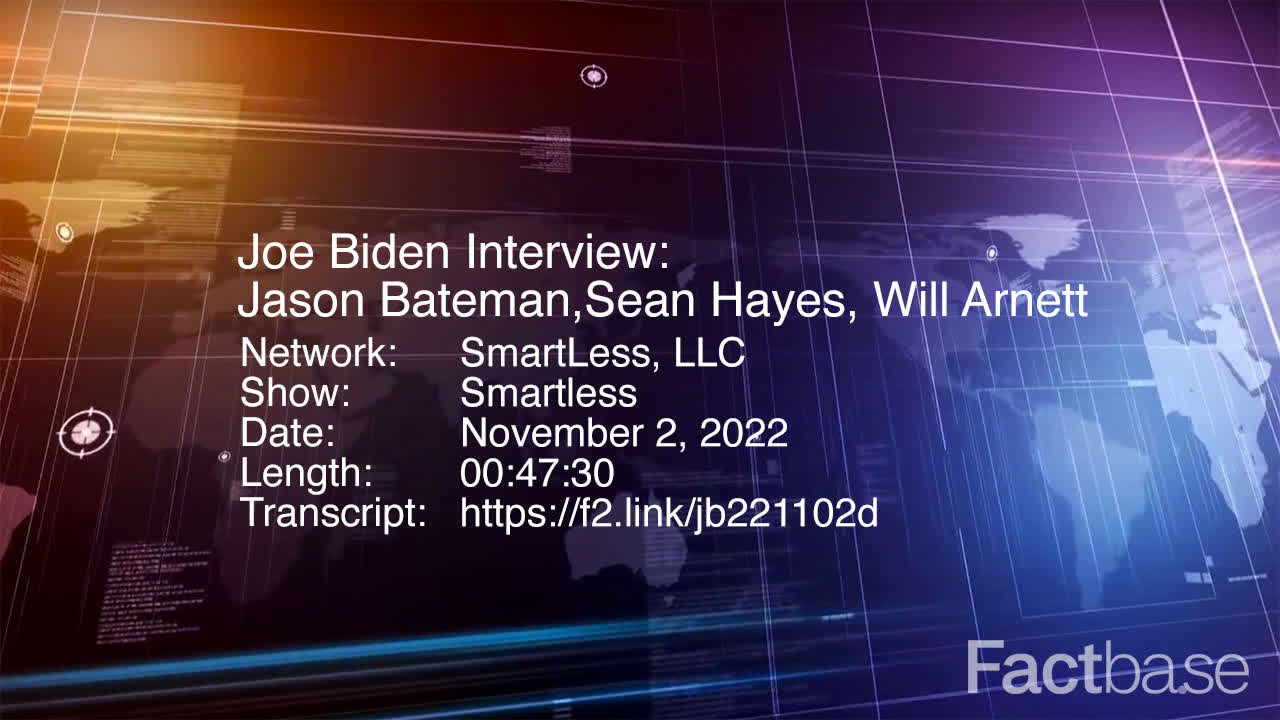
00:03:19-00:03:20 (1 sec)

"You want to know bedtime."
57
Jason Bateman
Somewhat Positive
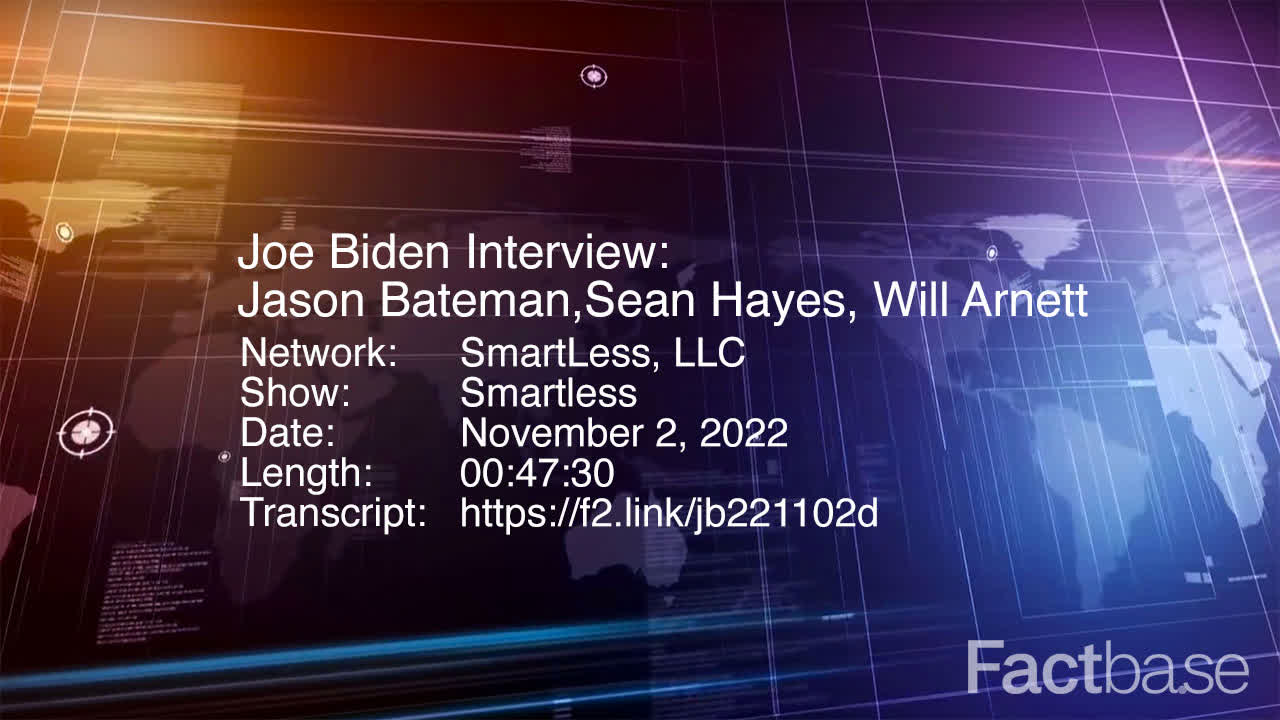
00:03:20-00:03:21 (2 sec)

"Well, I want to know what goes on when --"
58
Joe Biden
Very Positive
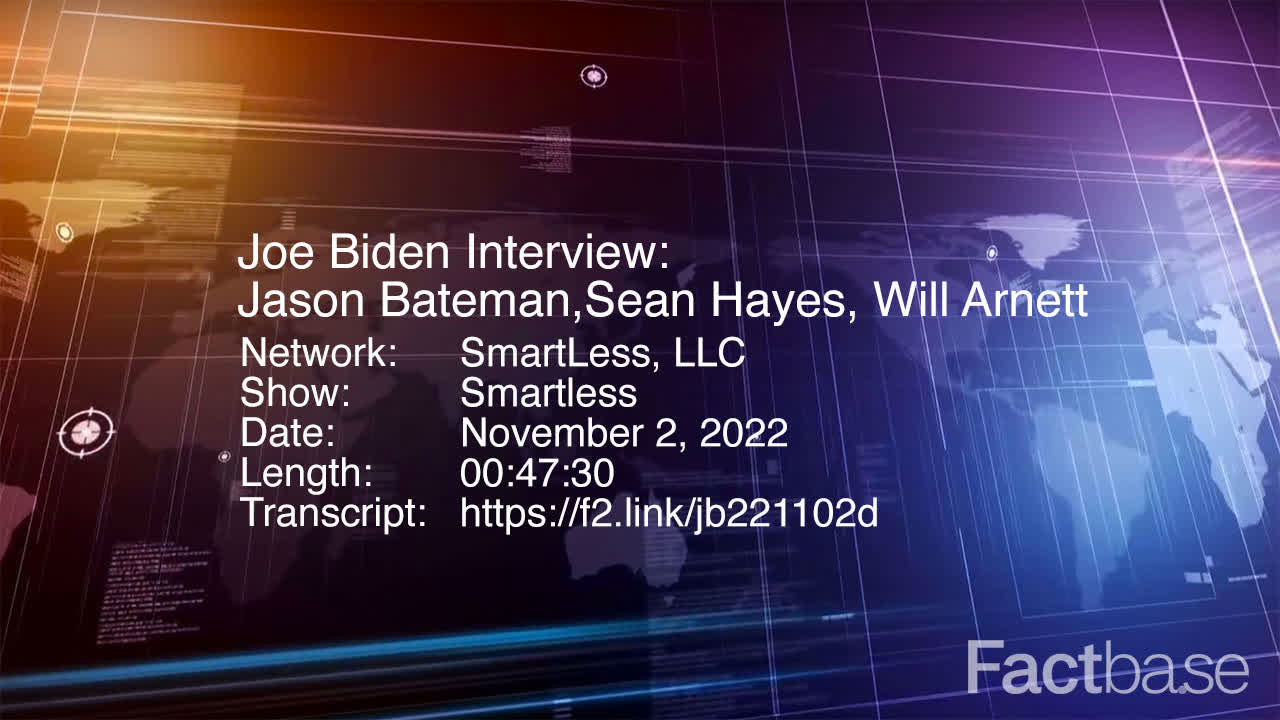
00:03:21-00:03:23 (1 sec)

"Well, my staff is laughing. They're behind you."
59
Jason Bateman
Leans Positive
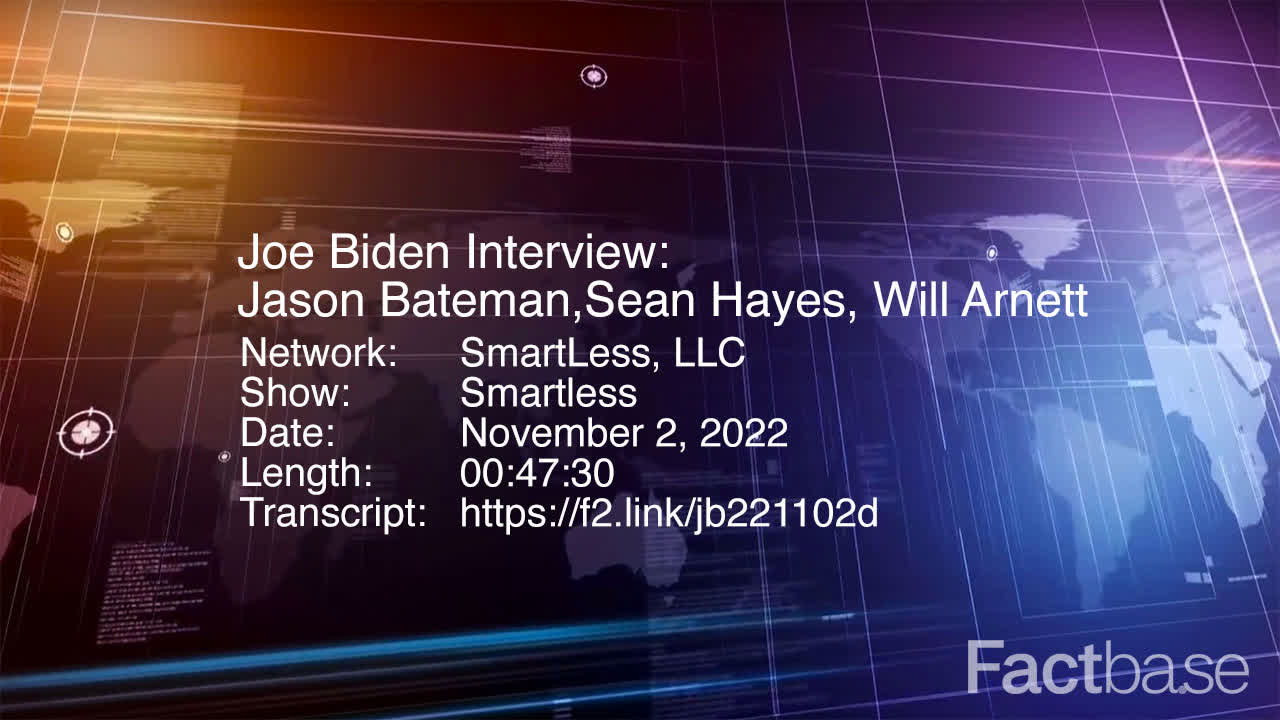
00:03:23-00:03:37 (14 sec)

"When -- but when you go upstairs, you're not lounging around in that. Is there a transition into -- I'm asking because I'm projecting because I get in my PJs as soon as I get home. You get into the PJs. You let them know what you want for dinner, and then you start watching TV with Jill. Is that what -- what -- what happens?"
60
Joe Biden
Neutral
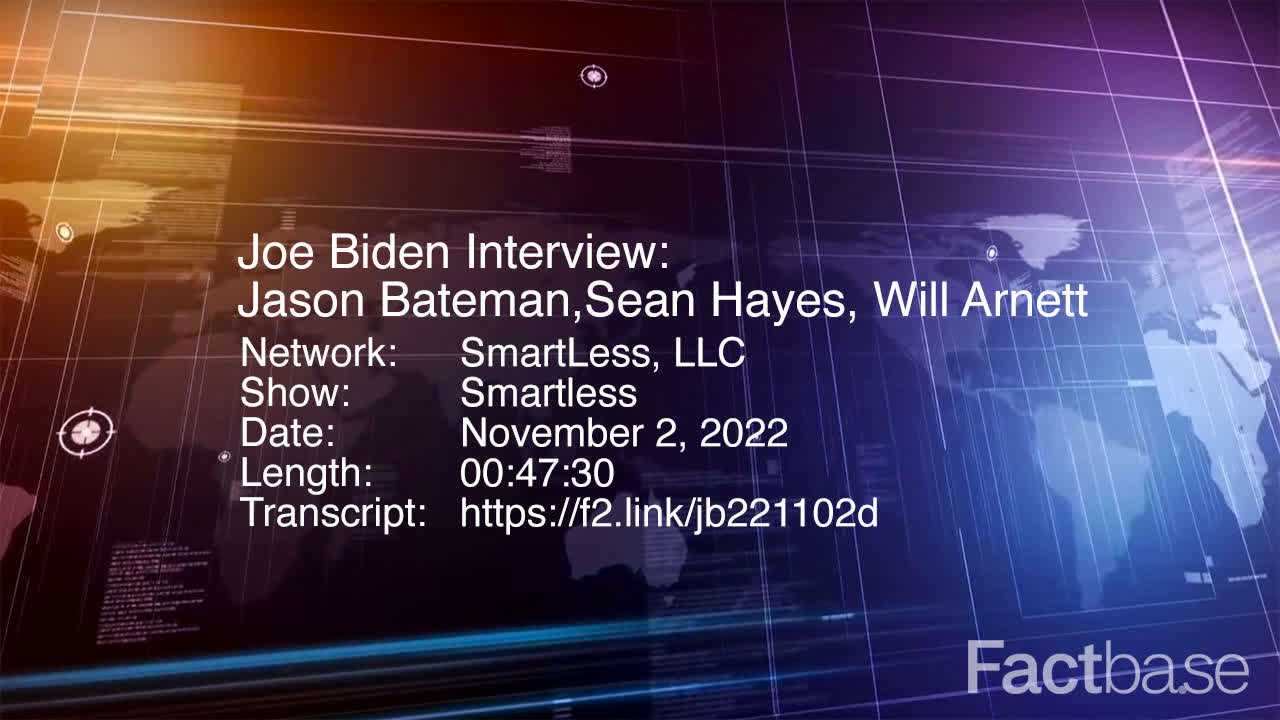
00:03:37-00:03:41 (4 sec)

"Now, that's one of the things Jill and I are working out. And I mean this sincerely."
61
Jason Bateman
Slightly Positive
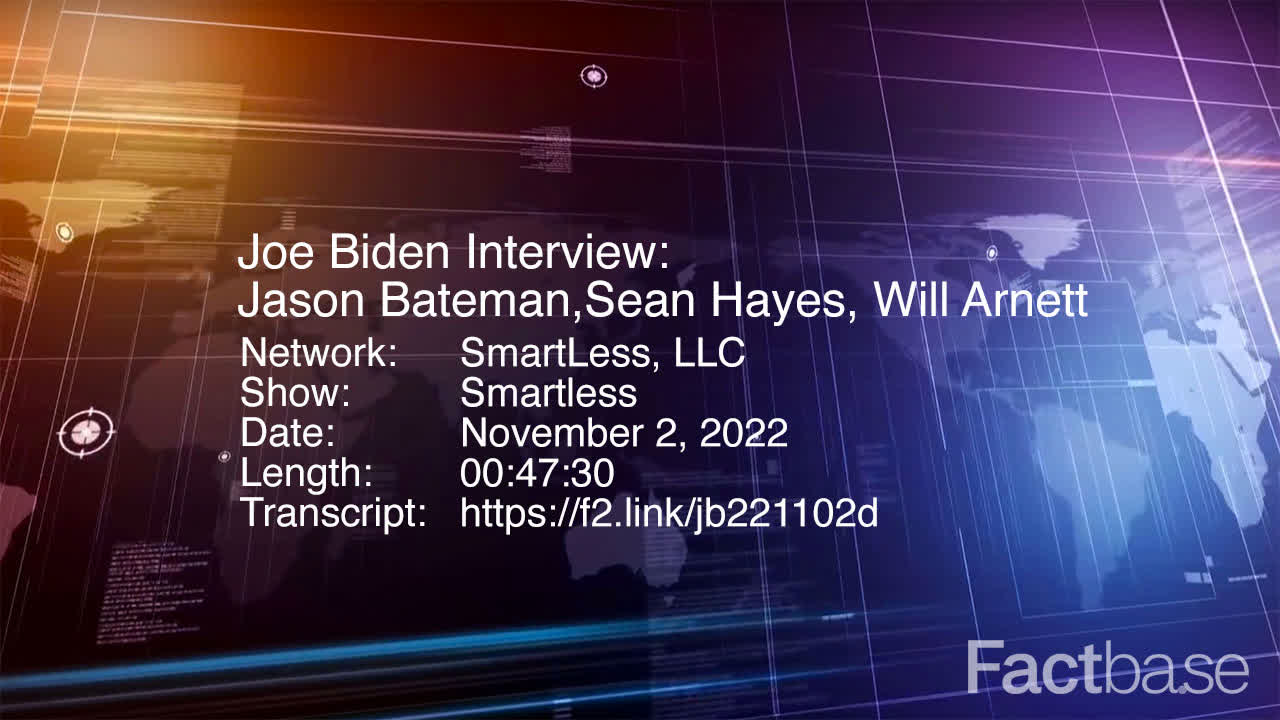
00:03:41-00:03:42 (1 sec)

"Yeah."
62
Joe Biden
Neutral
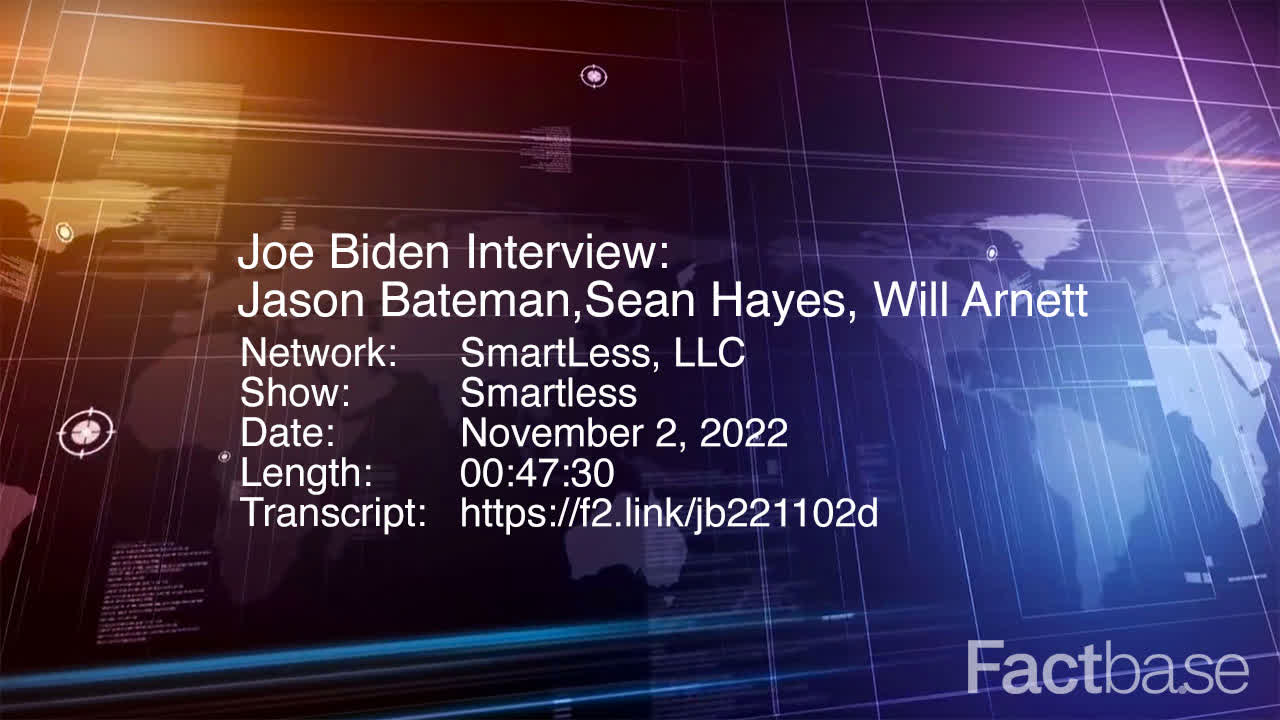
00:03:42-00:03:44 (2 sec)

"Jill, because she teaches full time --"
63
Will Arnett
Slightly Positive
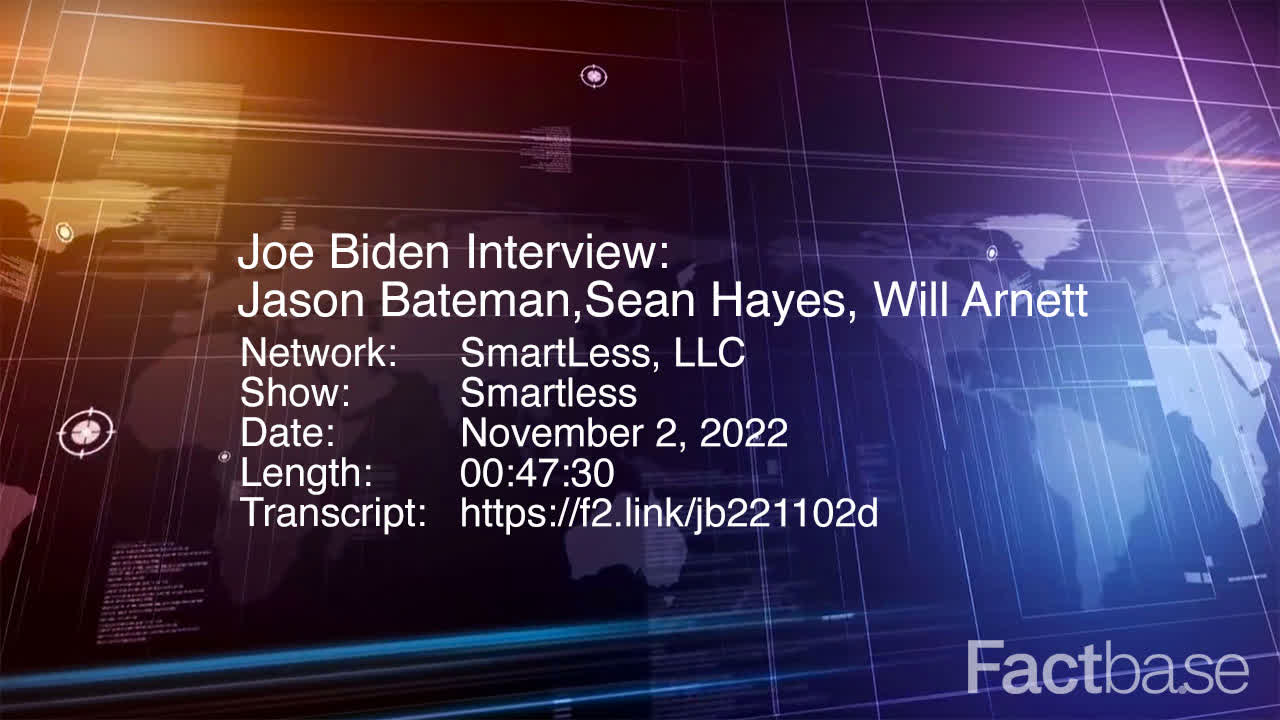
00:03:44-00:03:44 (1 sec)

"Yeah."
64
Joe Biden
Neutral
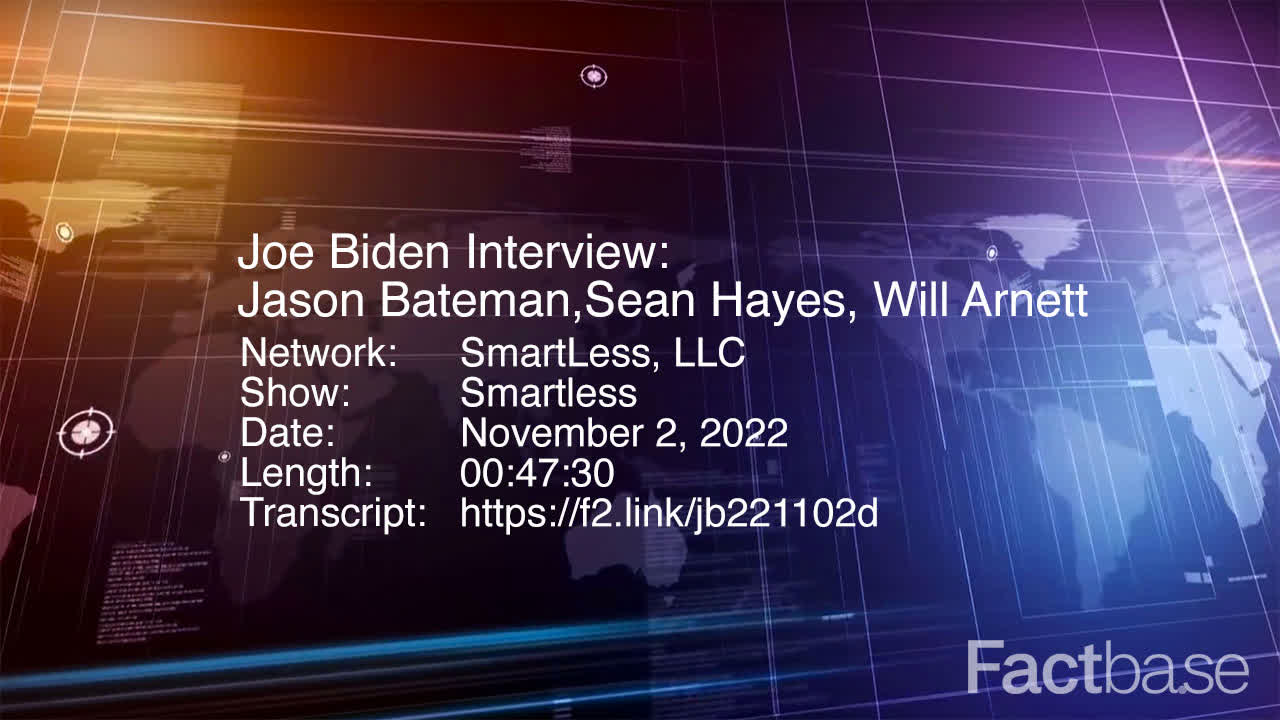
00:03:44-00:03:53 (9 sec)

"Is in bed by 9:30, and -- and I used to go to bed 9:30, 10 o'clock, and we talk before we go to sleep. I mean, we -- we spend time together."
65
Jason Bateman
Slightly Positive
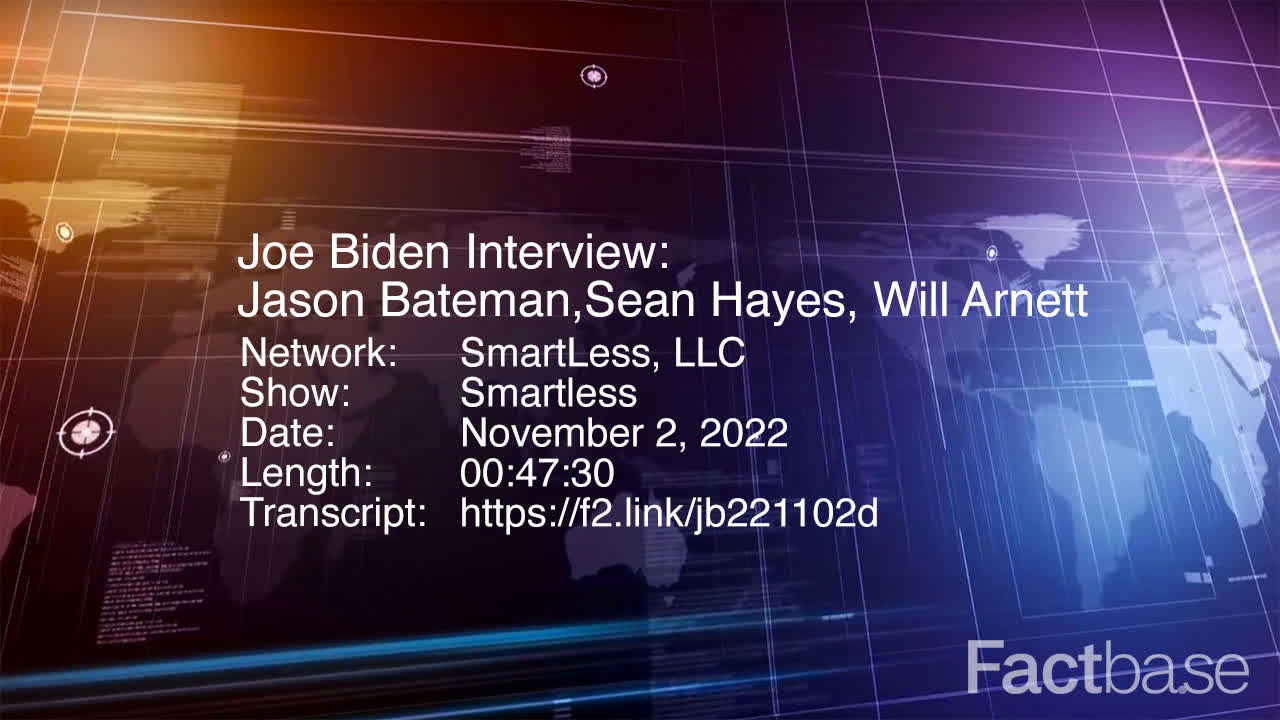
00:03:53-00:03:54 ( sec)

"Yeah."
66
Joe Biden
Neutral
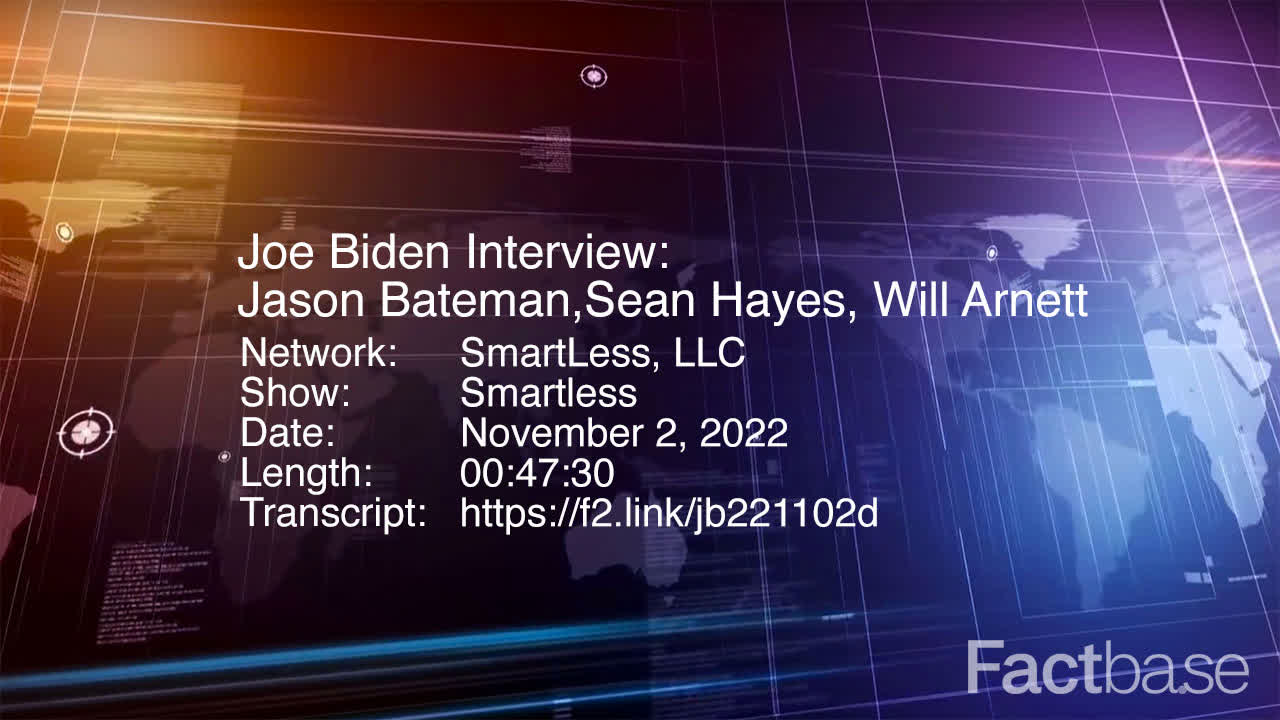
00:03:54-00:04:03 (9 sec)

"But now, I don't get back to my -- even in the White House, I don't get from the Oval Office into my -- in the residence --"
67
Jason Bateman
Slightly Positive
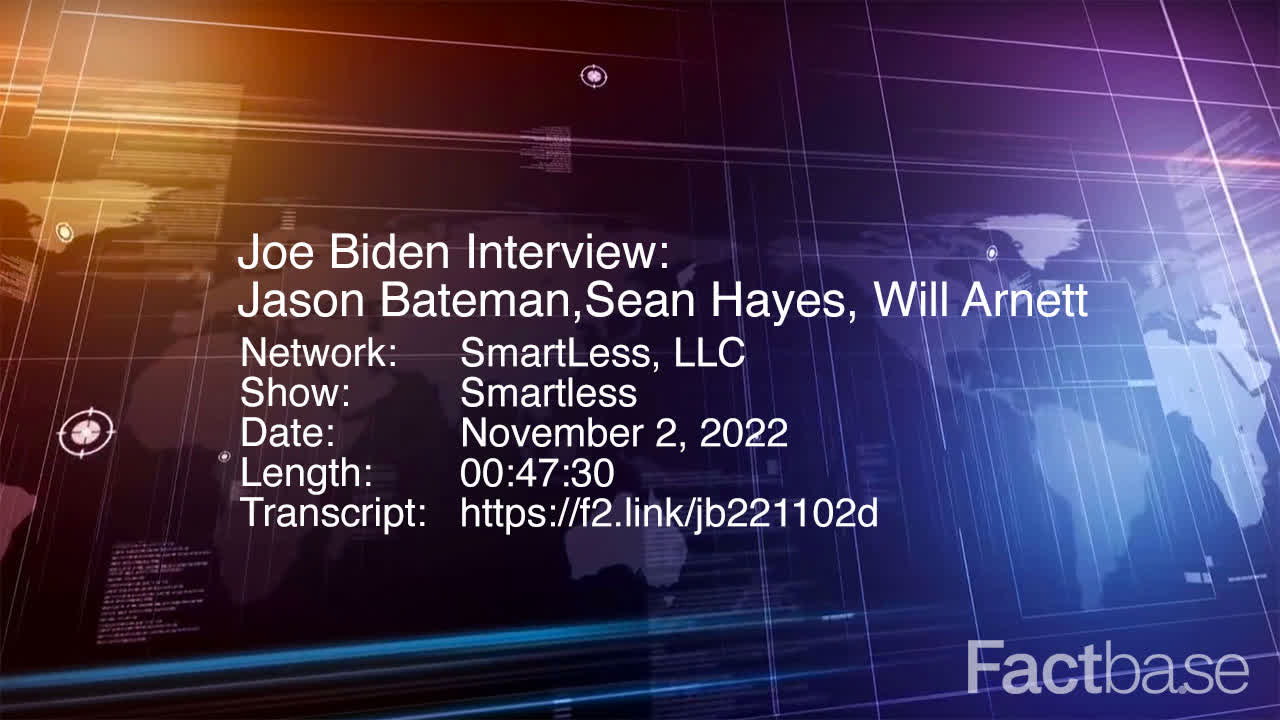
00:04:03-00:04:03 ( sec)

"Yeah."
68
Joe Biden
Neutral
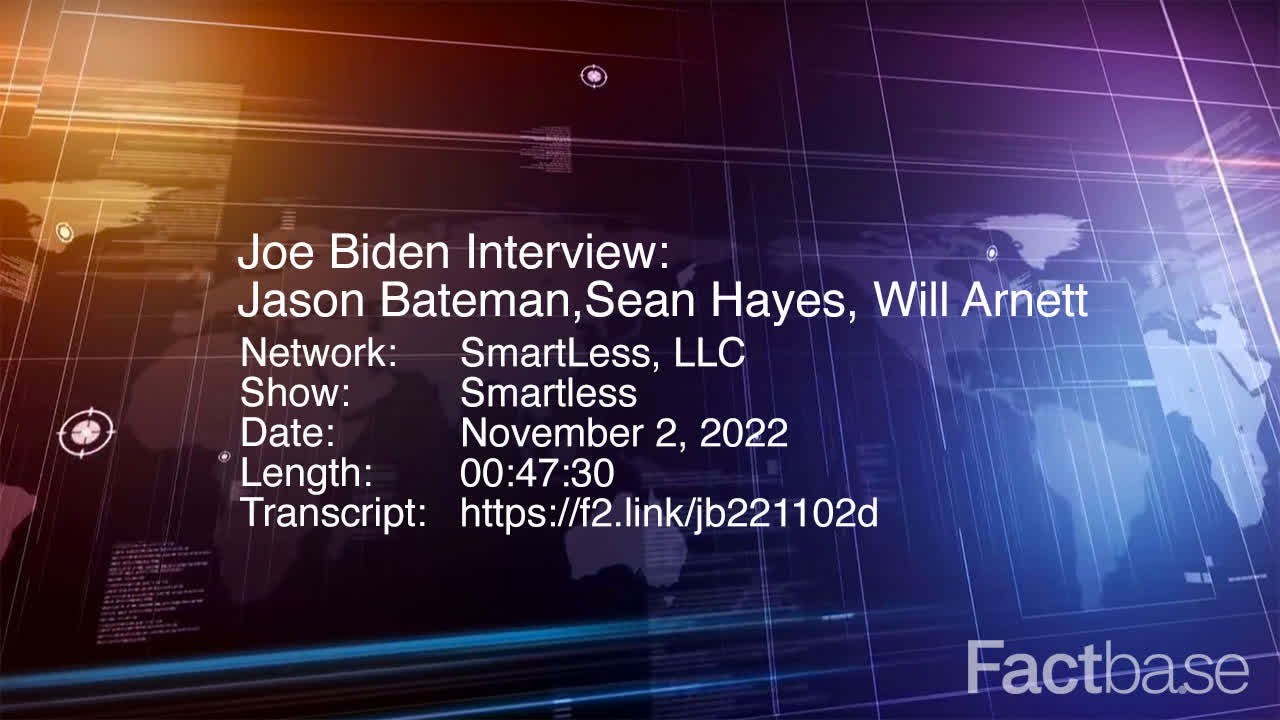
00:04:03-00:04:05 (2 sec)

"Until usually around 7 o'clock."
69
Jason Bateman
Slightly Positive
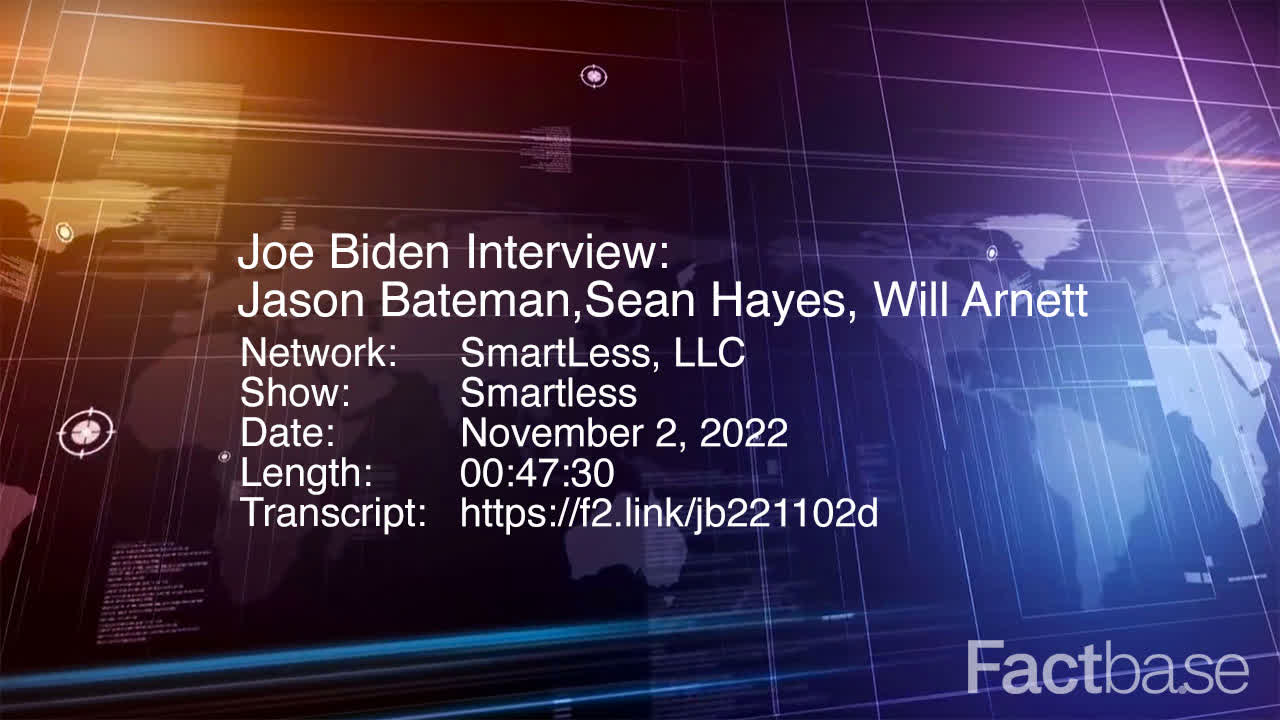
00:04:05-00:04:06 (1 sec)

"Yeah."
70
Will Arnett
Slightly Positive
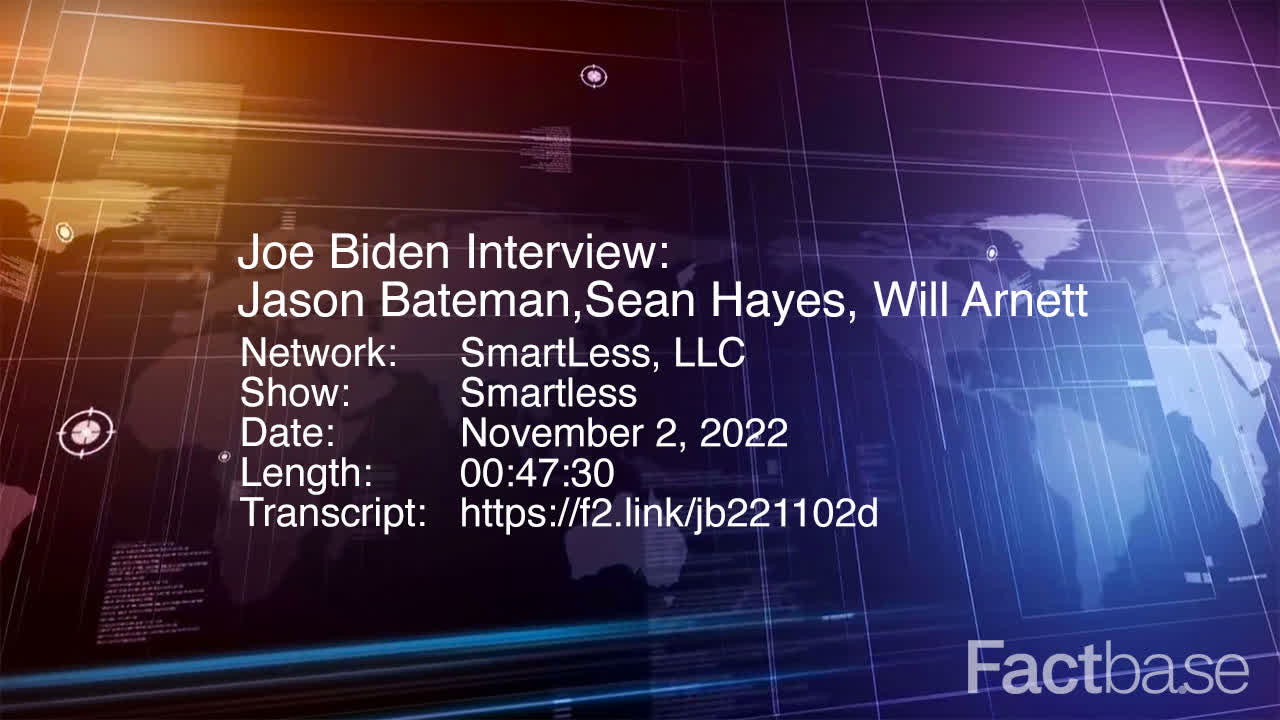
00:04:06-00:04:06 ( sec)

"Yeah."
71
Joe Biden
Neutral
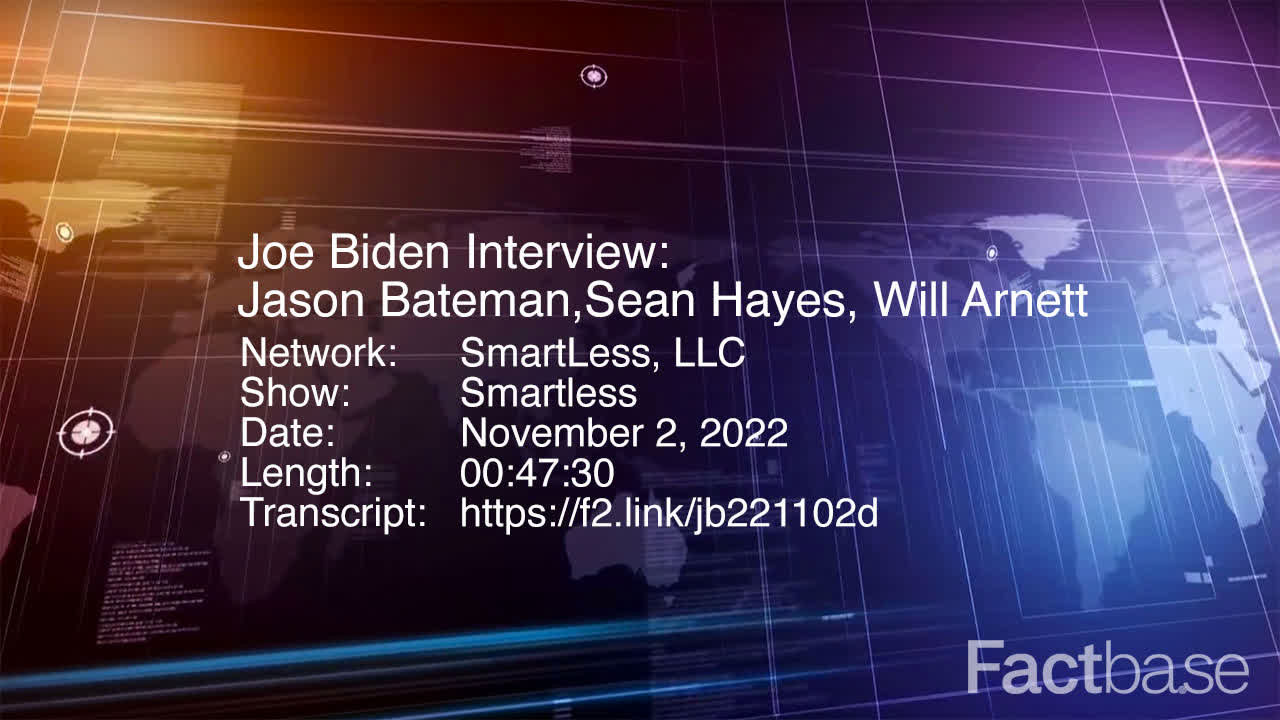
00:04:06-00:04:15 (9 sec)

"We have dinner. And then I have -- and I'm not -- not a complaint. I give my word, but I have a briefing book that is probably 200 pages."
72
Jason Bateman
Slightly Positive
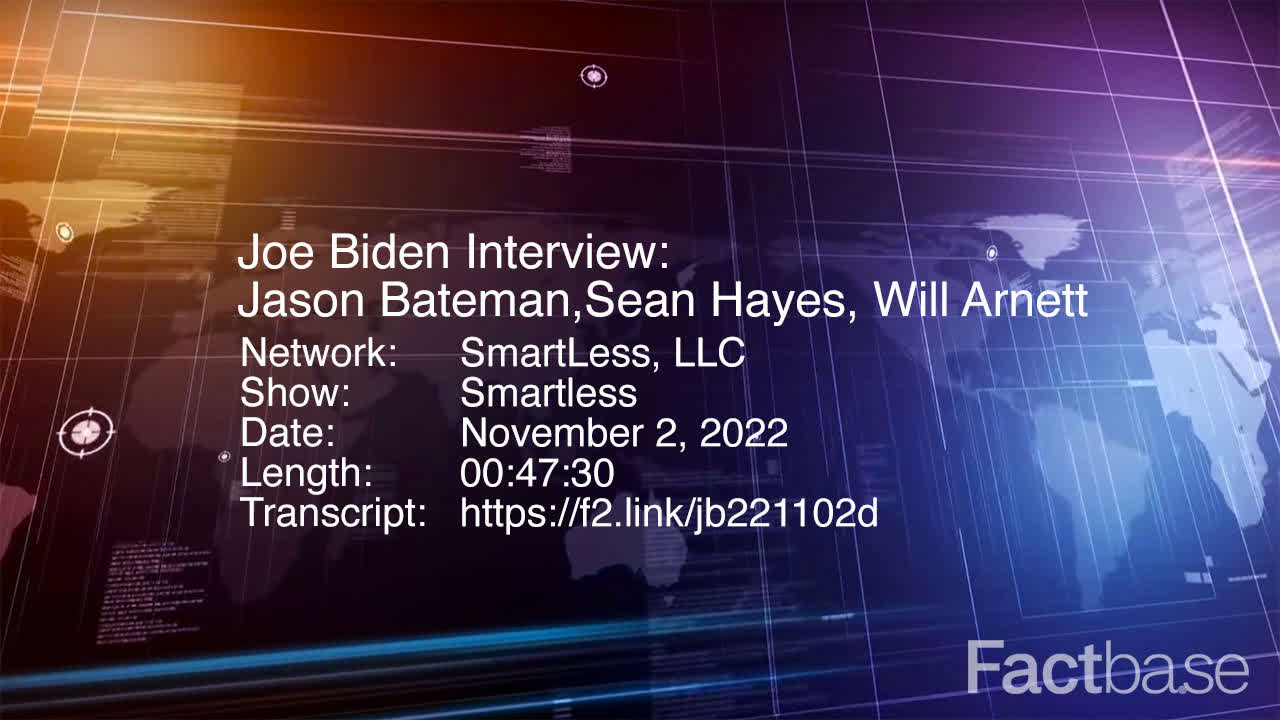
00:04:15-00:04:16 ( sec)

"Yeah."
73
Will Arnett
Slightly Positive
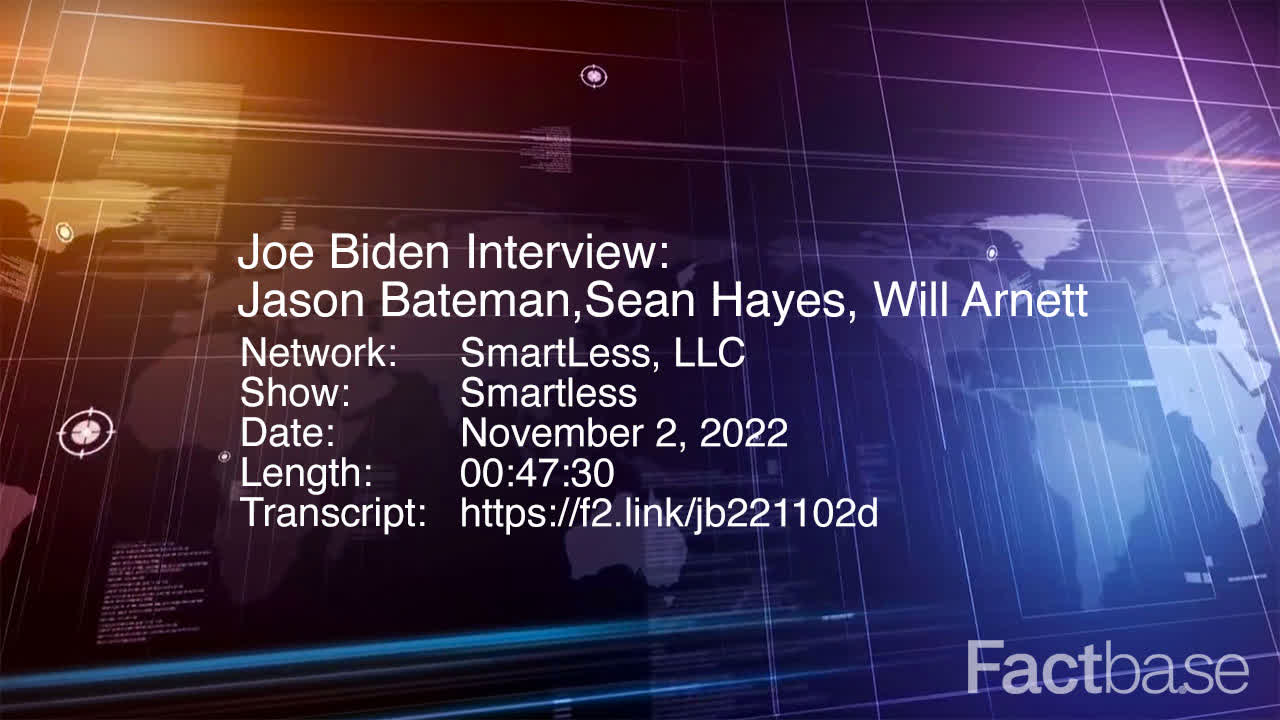
00:04:16-00:04:16 ( sec)

"Yeah."
74
Joe Biden
Somewhat Positive
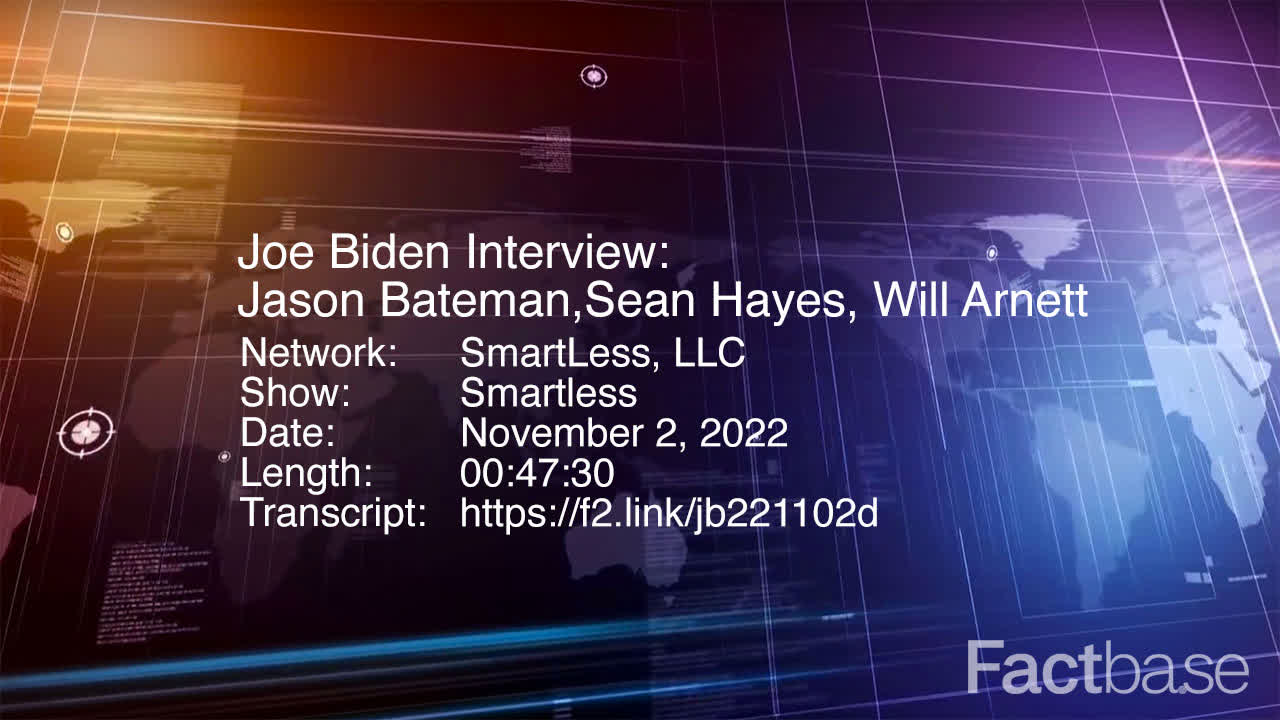
00:04:16-00:04:18 (2 sec)

"I mean, a big binder like that."
75
Will Arnett
Slightly Positive
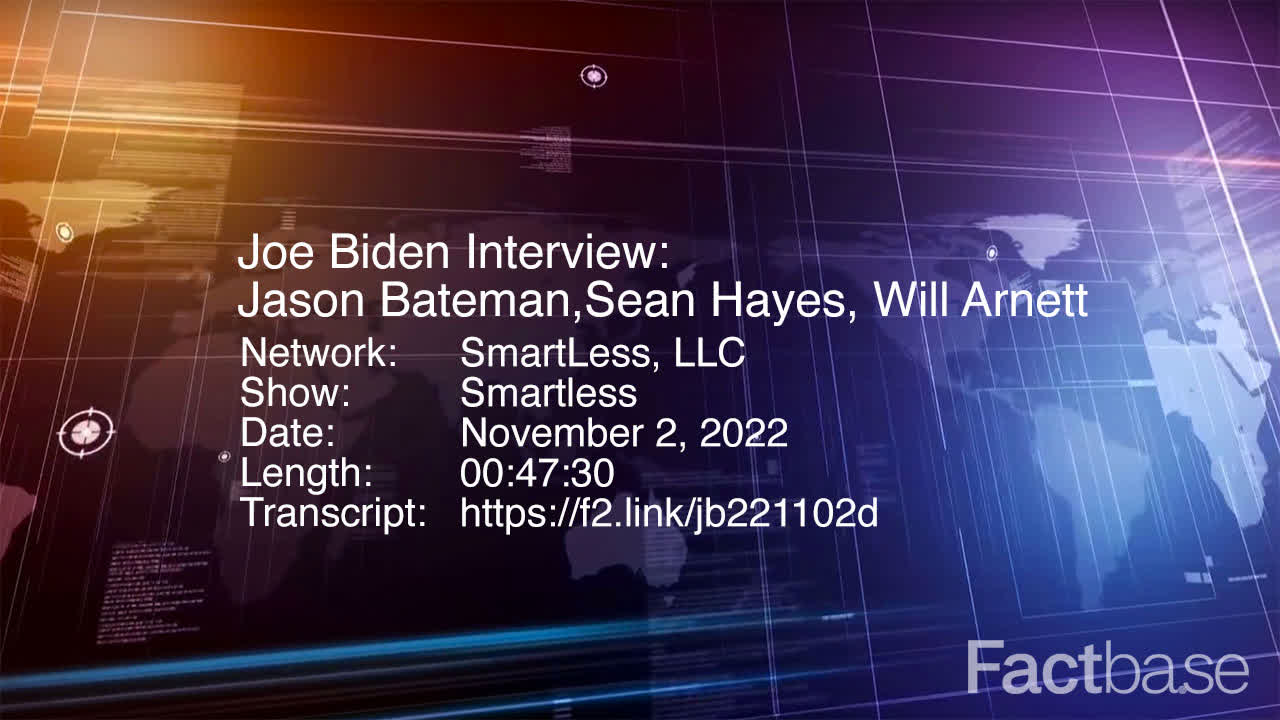
00:04:18-00:04:18 ( sec)

"Yeah."
76
Jason Bateman
Neutral
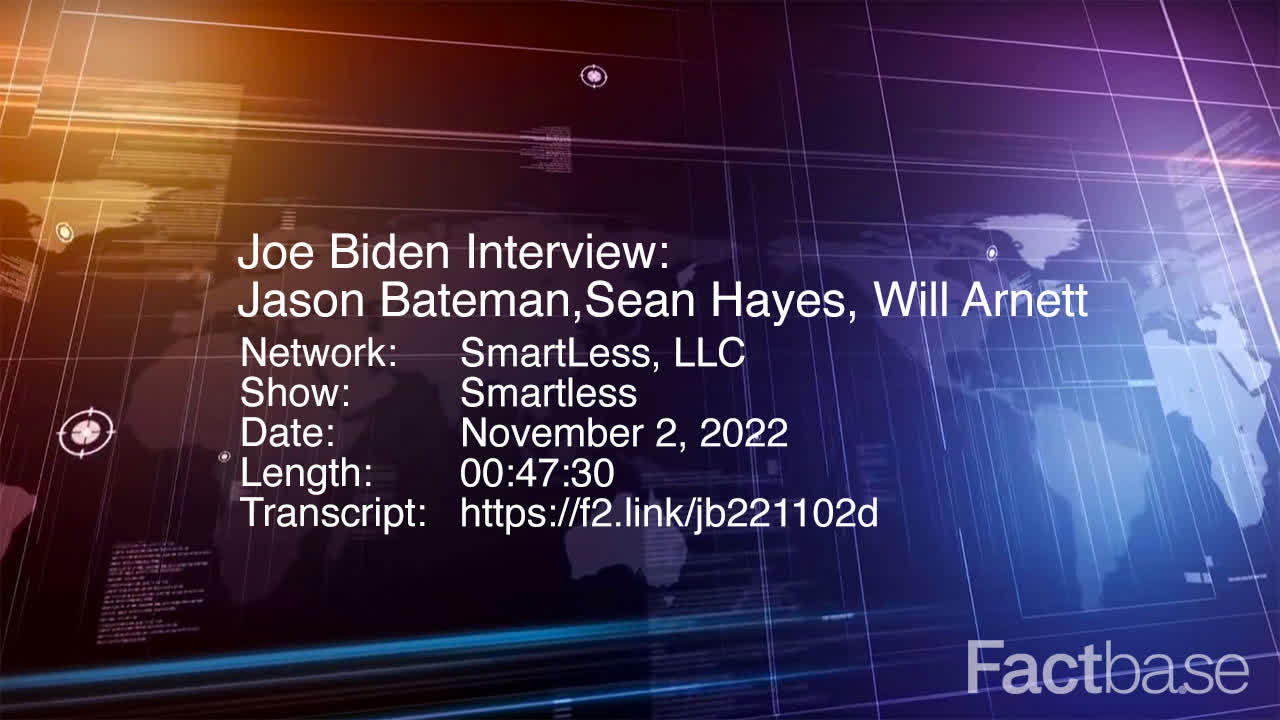
00:04:18-00:04:19 (1 sec)

"Mine has two pages and --"
77
Will Arnett
Slightly Positive
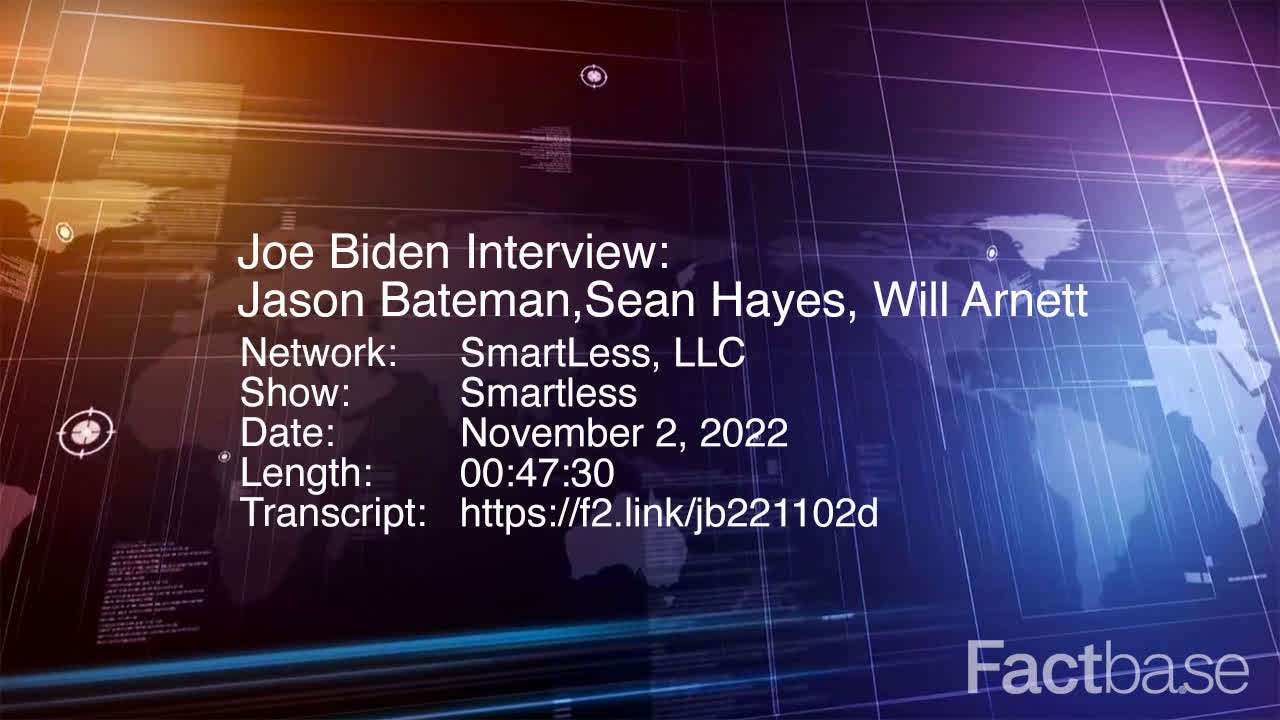
00:04:19-00:04:21 (2 sec)

"Yeah, and they're all deals."
78
Joe Biden
Very Negative
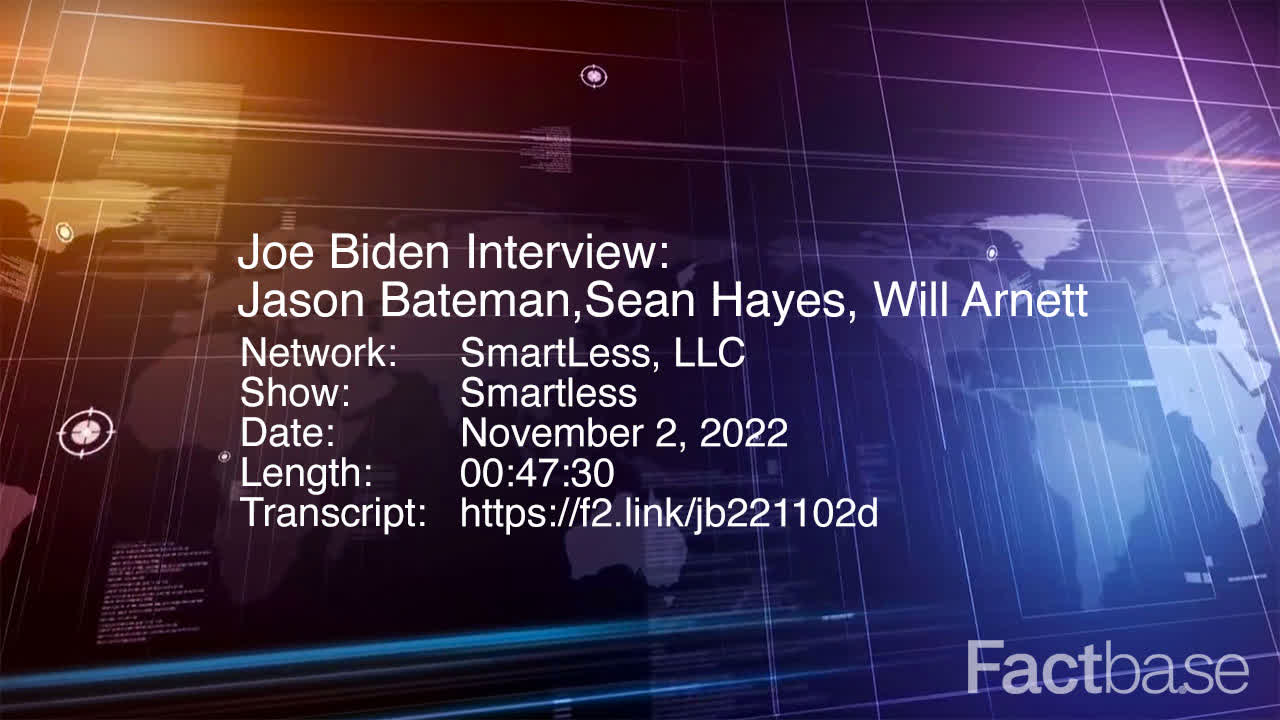
00:04:21-00:04:30 (9 sec)

"No, but -- but worst part, you guys got to memorize your lines. But all kidding aside, so I -- I usually get in bed around 11 o'clock."
79
Sean Hayes
Very Positive
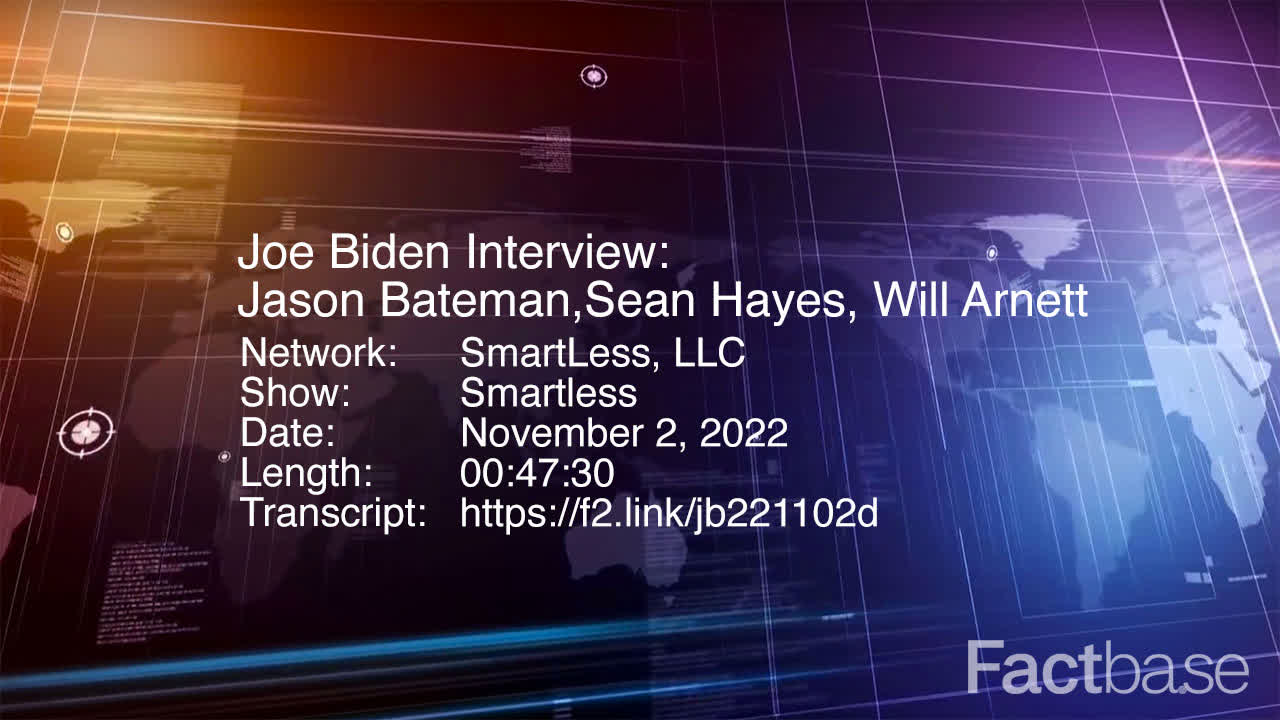
00:04:30-00:04:30 ( sec)

"Oh, wow."
80
Joe Biden
Neutral
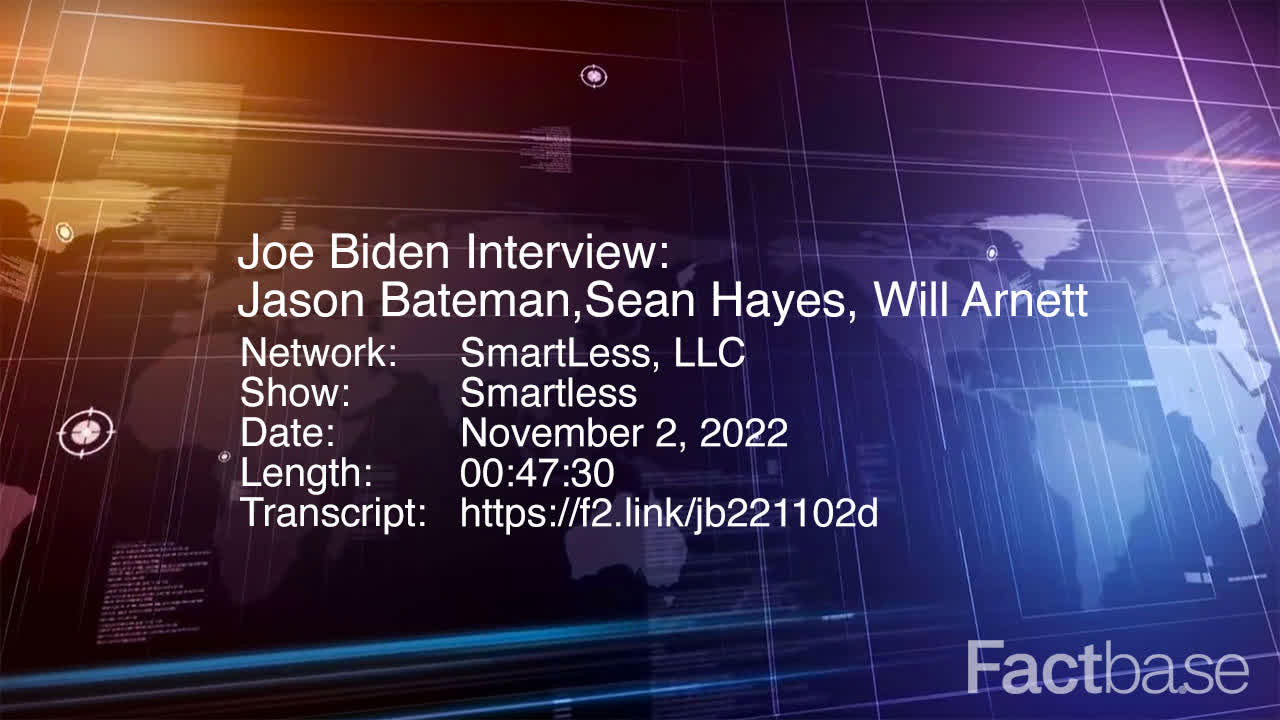
00:04:30-00:04:35 (5 sec)

"Jill gets up at 6:30 and goes -- works out. I get up at 8 o'clock and work out."
81
Jason Bateman
Slightly Positive
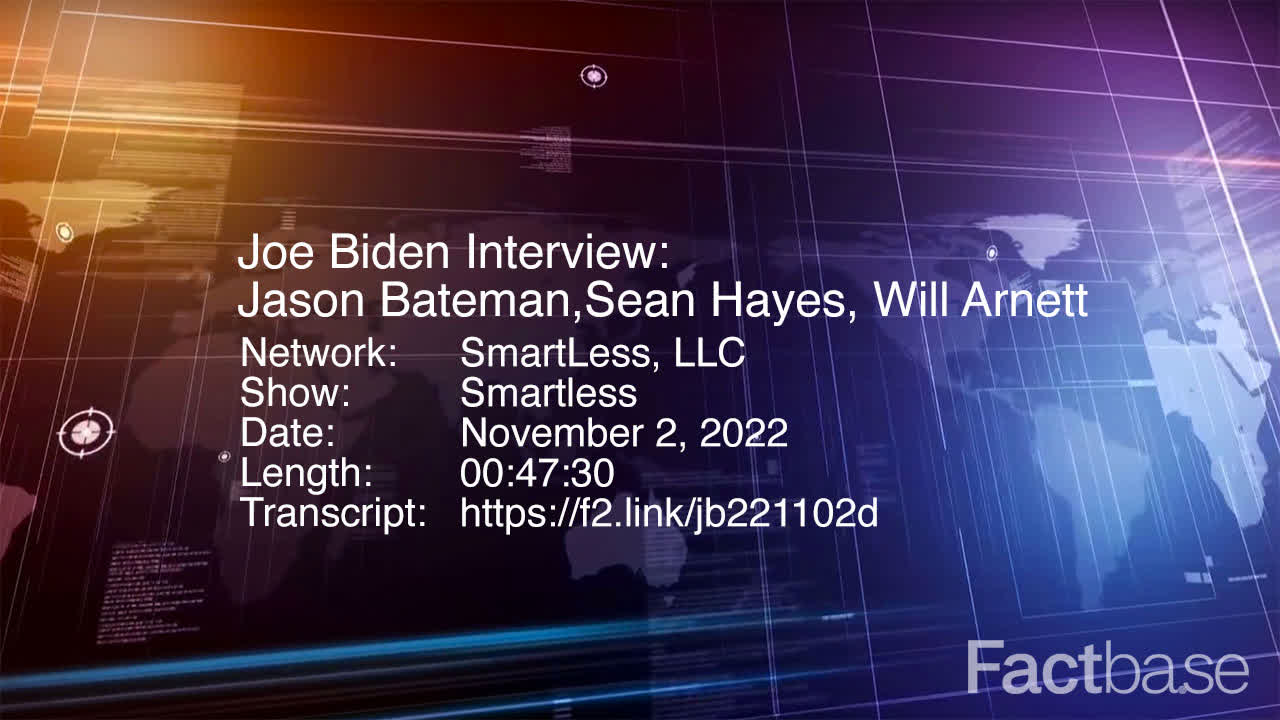
00:04:35-00:04:35 ( sec)

"Yeah."
82
Sean Hayes
Leans Positive
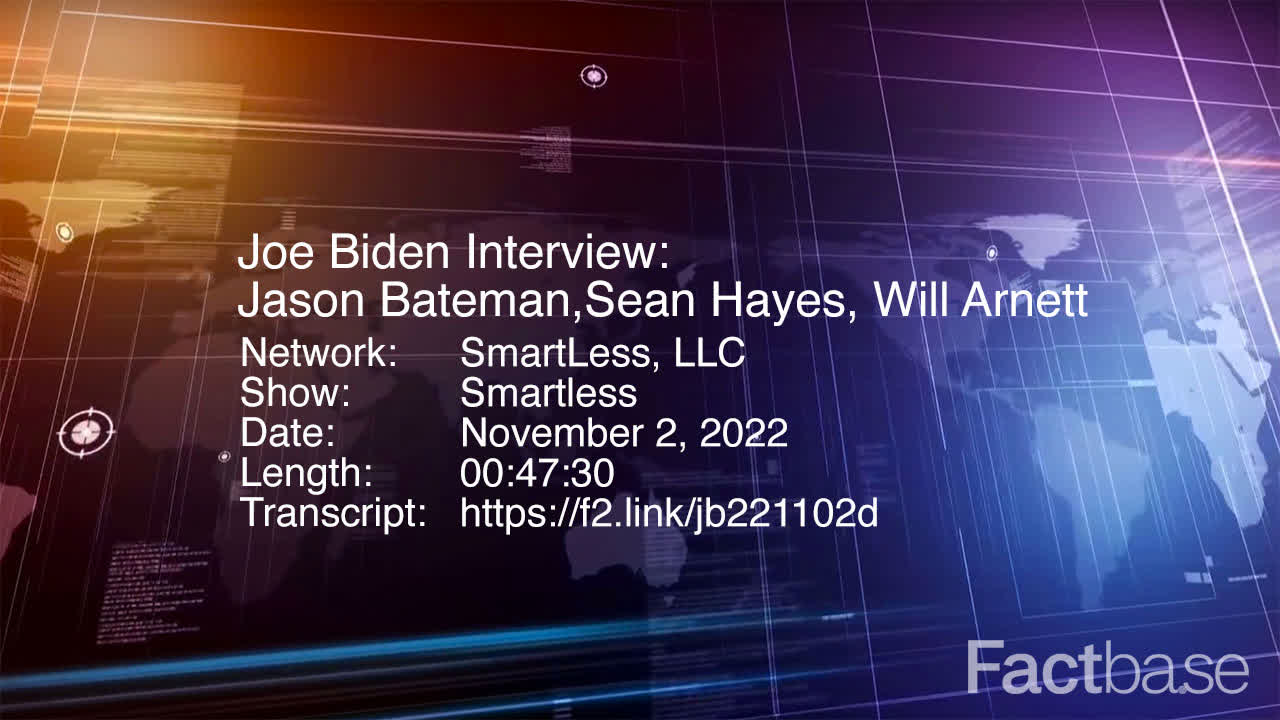
00:04:35-00:04:47 (11 sec)

"But wait, I want to know -- I want to know, though. When -- when you -- is there a time that when you're exercising with Jill -- is there a time where you guys can go away --"
83
Will Arnett
Slightly Positive
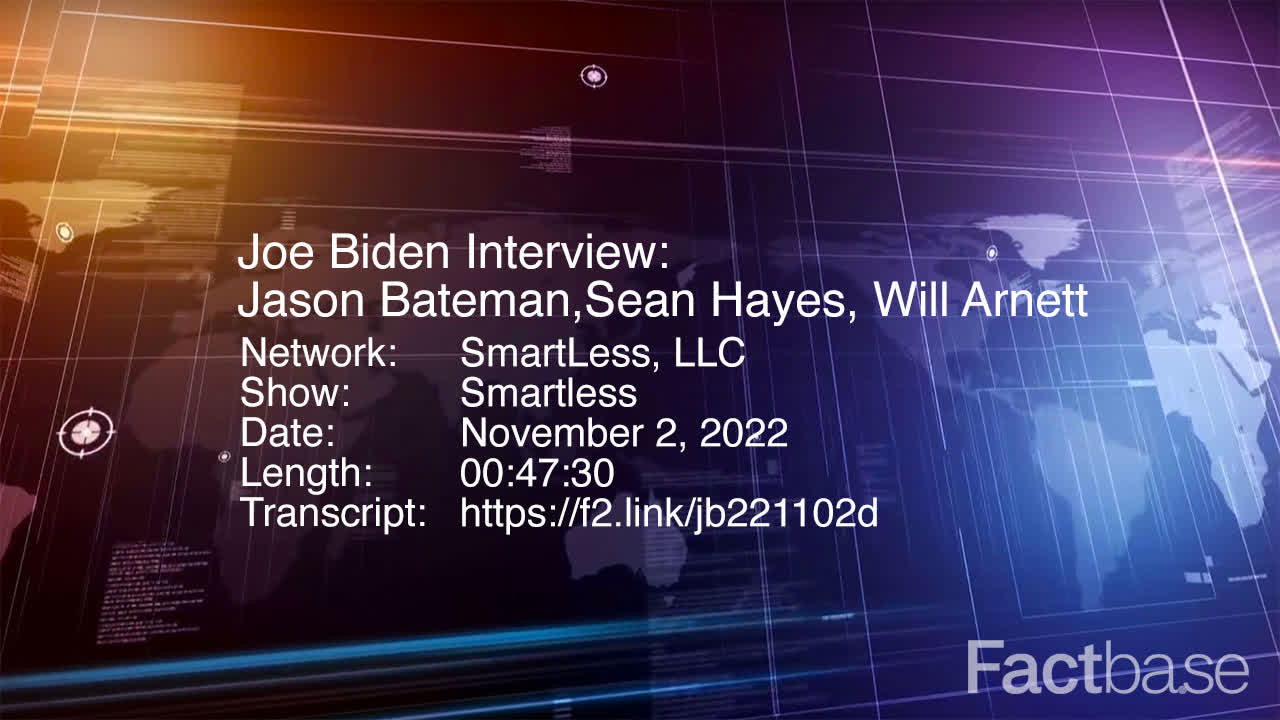
00:04:47-00:04:47 (1 sec)

"Yeah."
84
Sean Hayes
Somewhat Positive
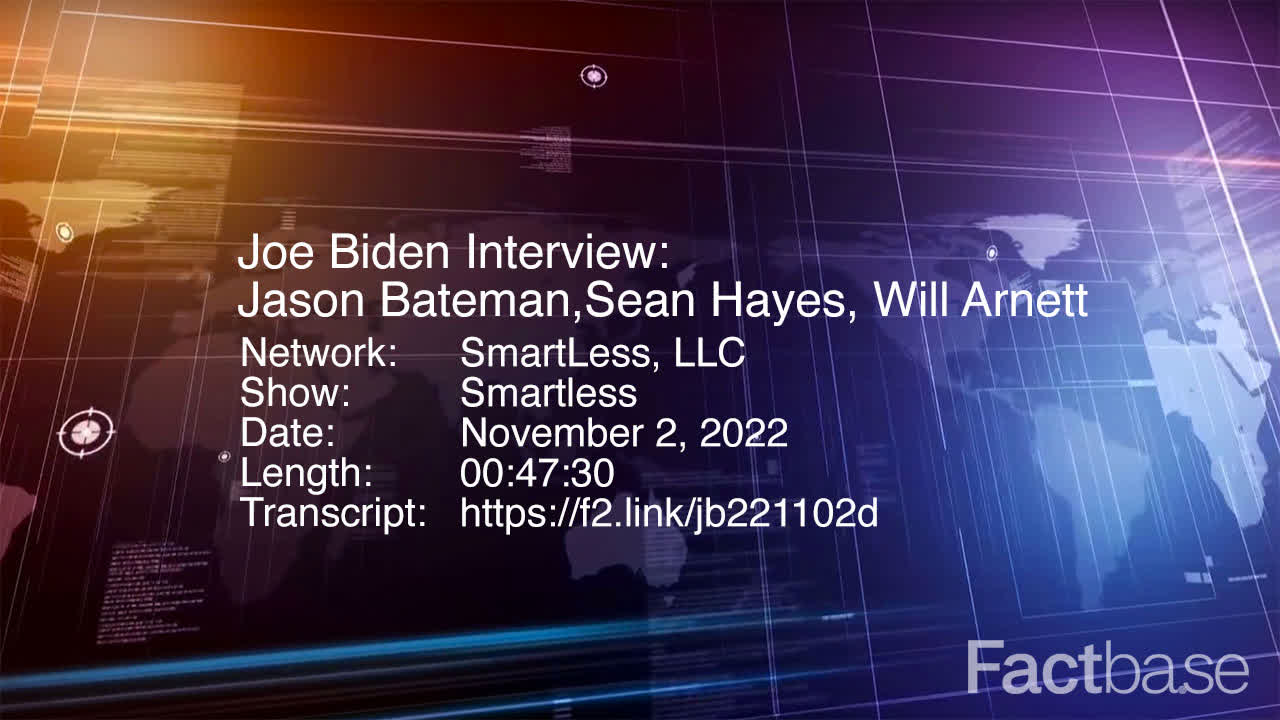
00:04:47-00:04:50 (3 sec)

"And shut it off and just be like --"
85
Joe Biden
Positive
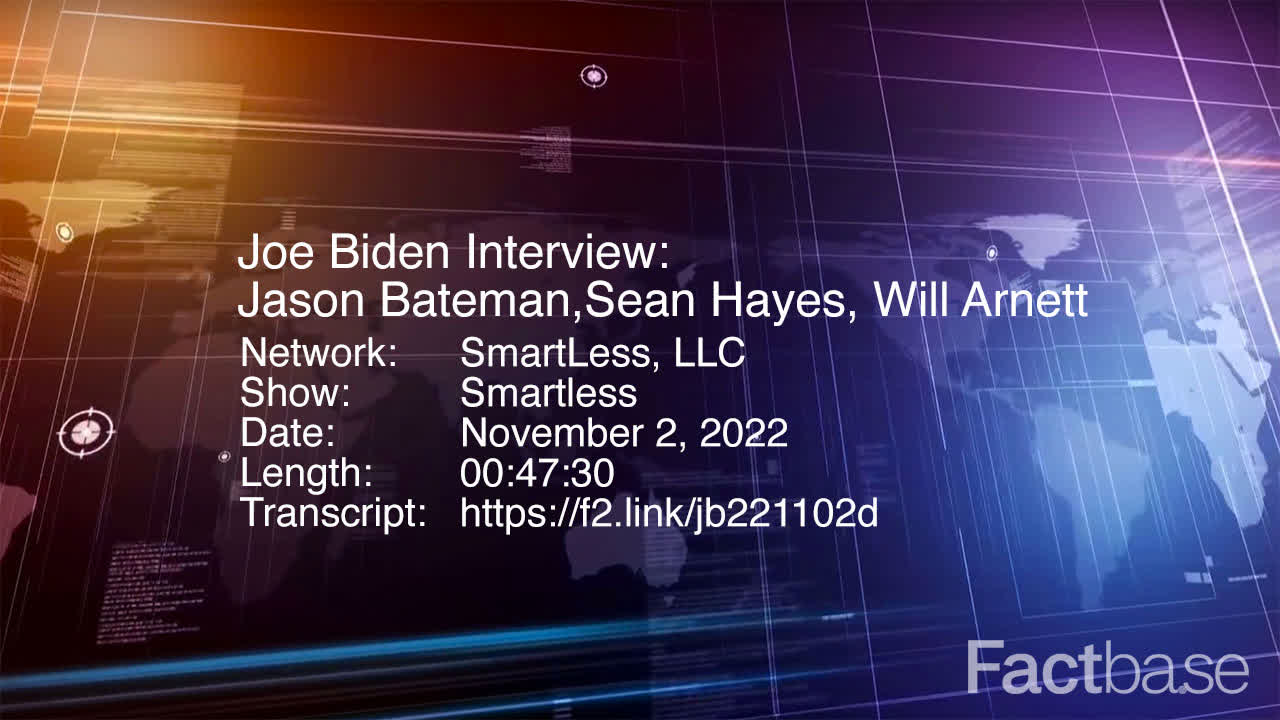
00:04:50-00:04:51 (1 sec)

"Yes."
86
Sean Hayes
Slightly Positive
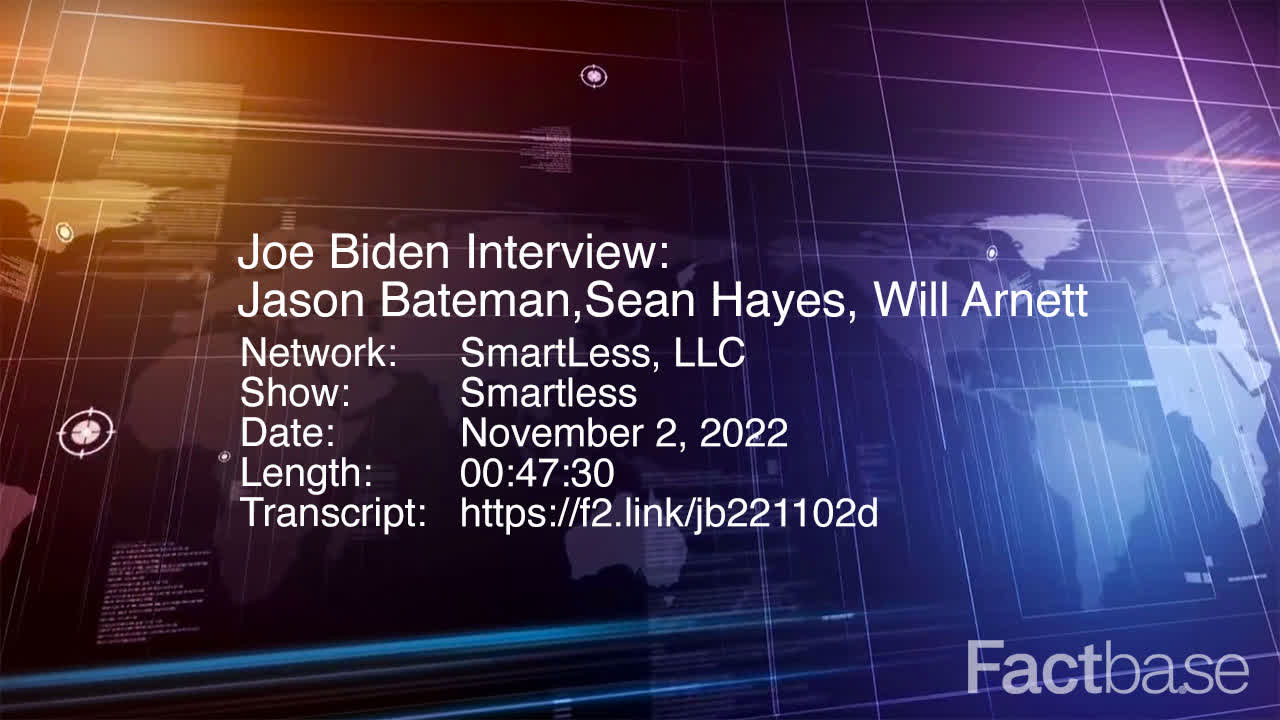
00:04:51-00:04:52 (2 sec)

"Yeah, because --"
87
Joe Biden
Somewhat Positive
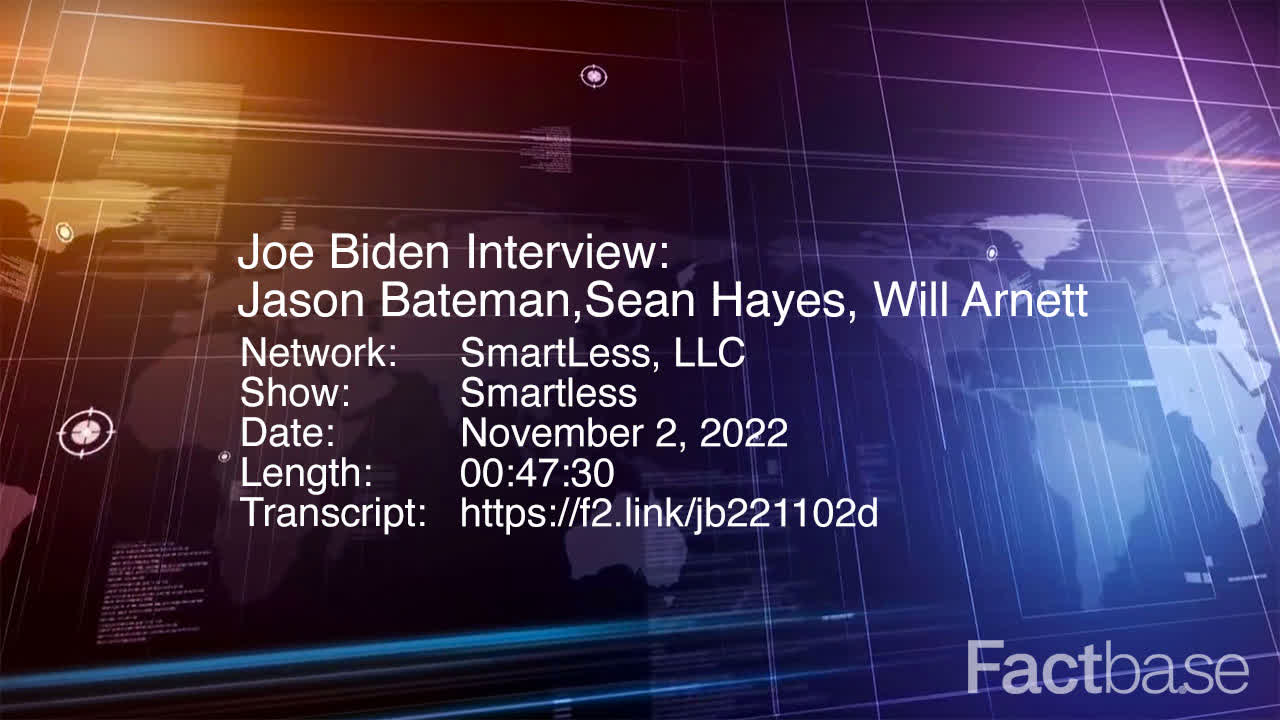
00:04:52-00:05:18 (26 sec)

"Well, we -- we just have to do it because she's worked so long as well. So, we just set time, and I tell Annie, who runs the show for me and my -- and my chief of staff, I'm not doing anything. And so, Jill and I -- but it's -- they're -- they're getting further apart. I mean, in the sense. But usually, we try to do that."
88
Joe Biden
Neutral
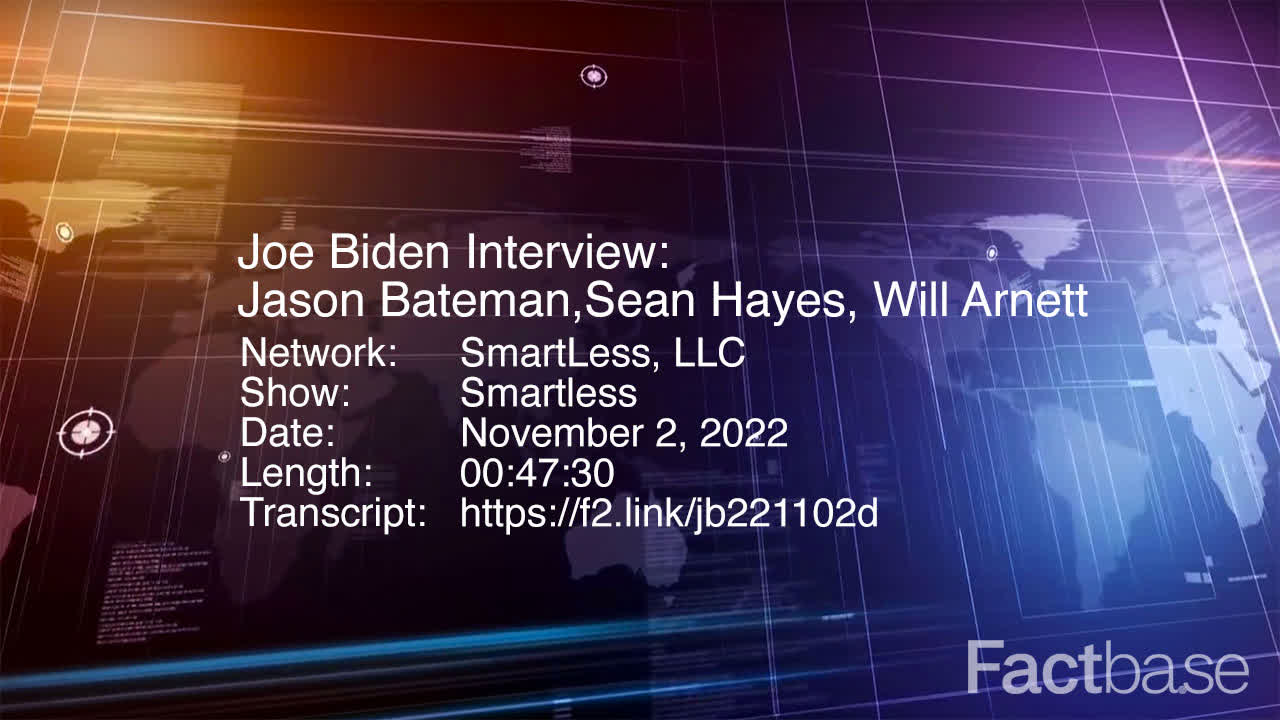
00:05:18-00:05:29 (11 sec)

"We go to Camp David or -- or go back to our house in Delaware, which is secluded enough off the road, that we just, you know, and --"
89
Sean Hayes
Neutral
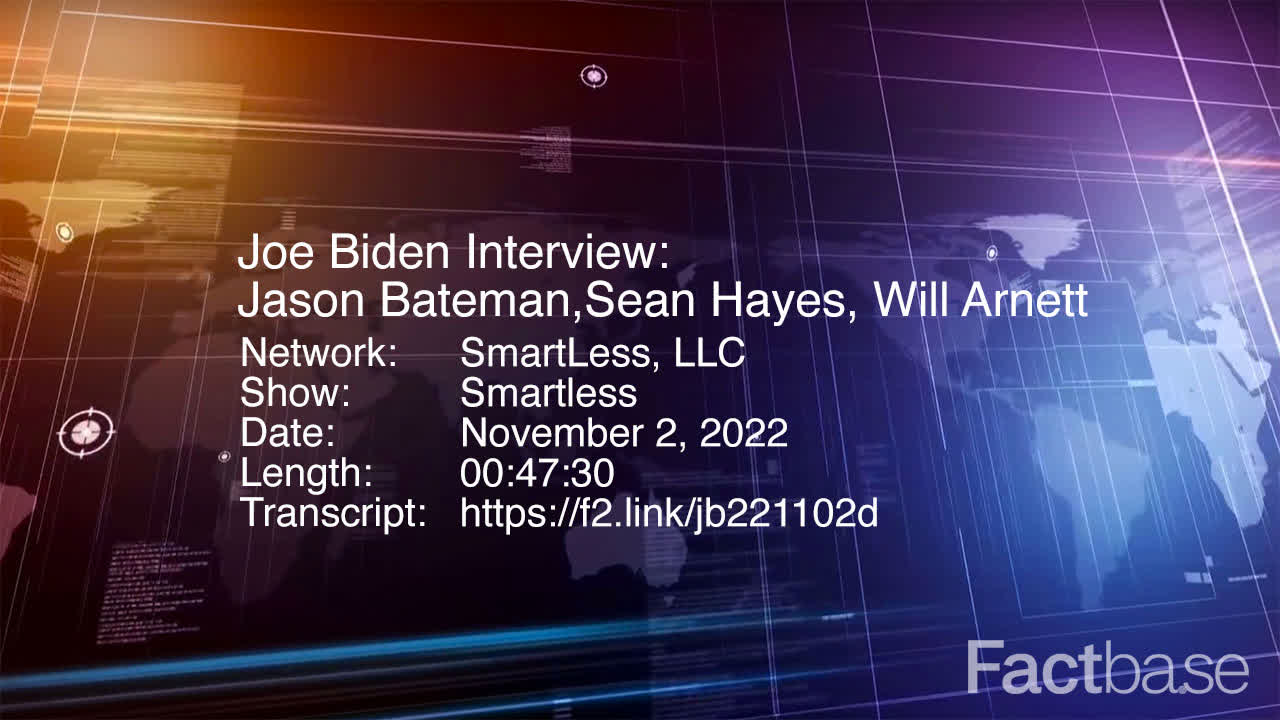
00:05:29-00:05:38 (10 sec)

"And can you really not think about work and you really kind of calm down or is it always there?"
90
Joe Biden
Positive
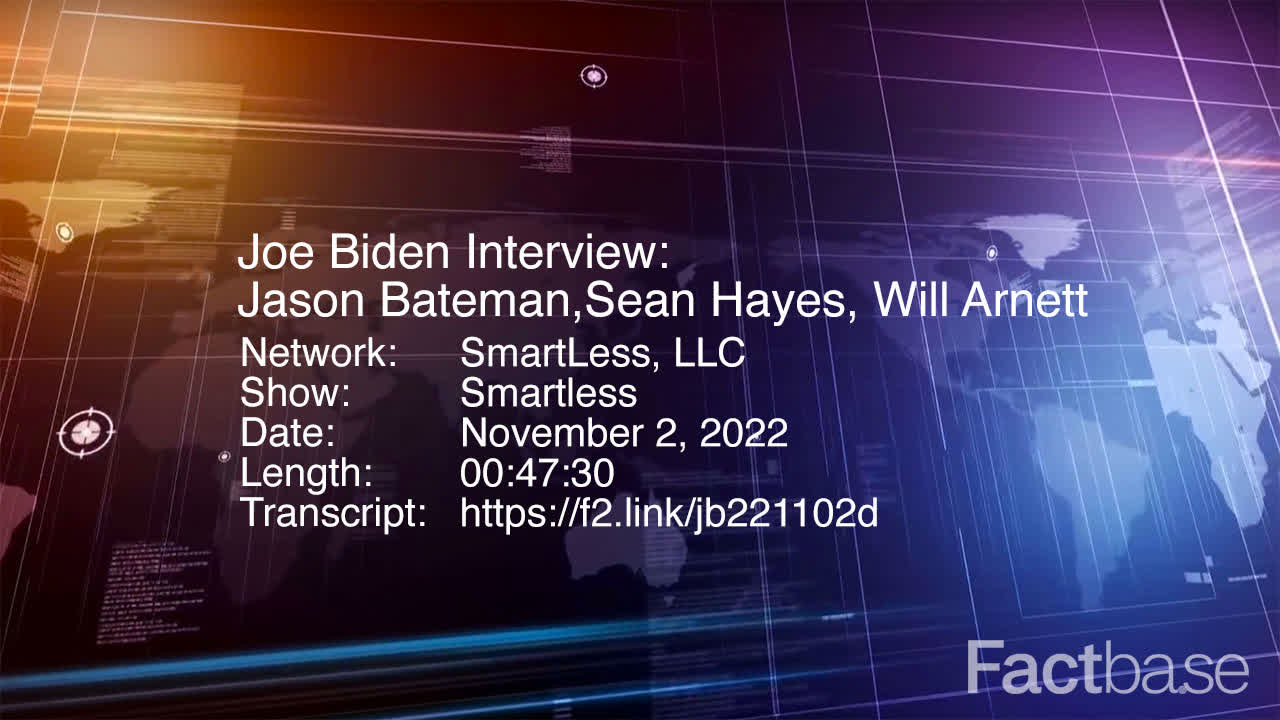
00:05:38-00:05:48 (9 sec)

"Well, yeah. No. Well, there's certain things that -- I mean, like with the war in Ukraine, there's a lot of really --"
91
Will Arnett
Slightly Positive
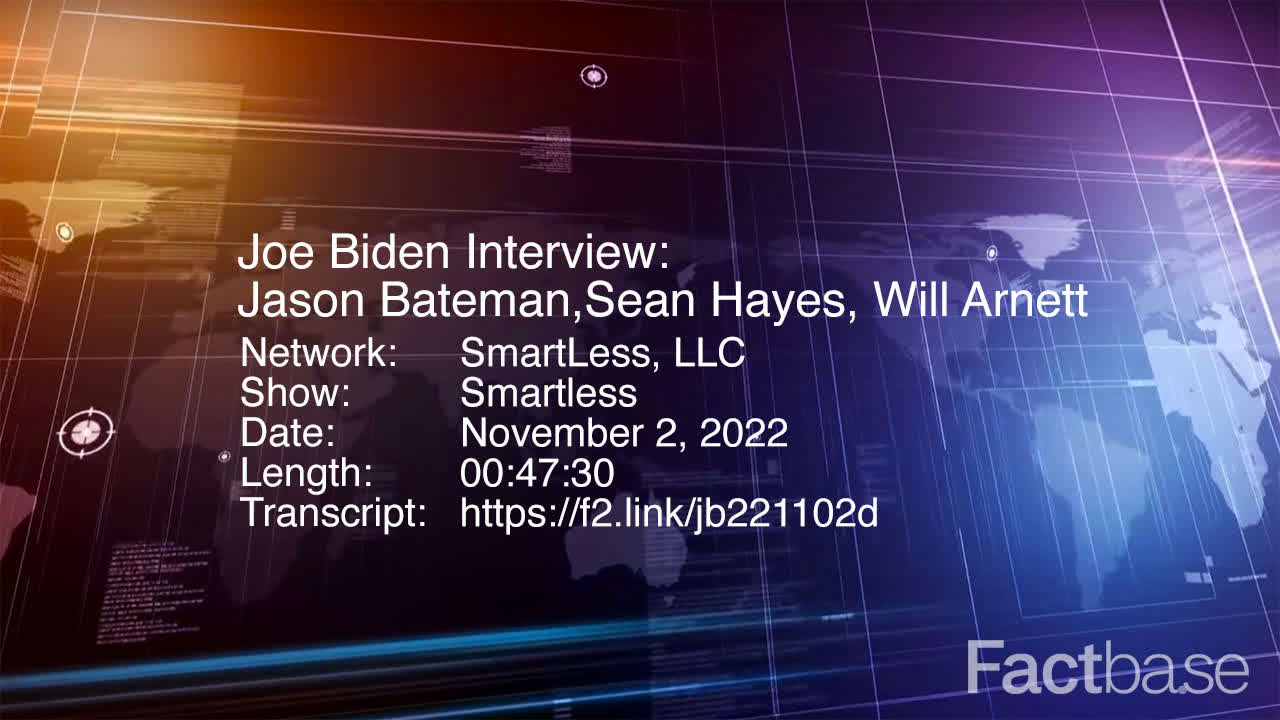
00:05:48-00:05:48 (1 sec)

"Yeah."
92
Jason Bateman
Neutral
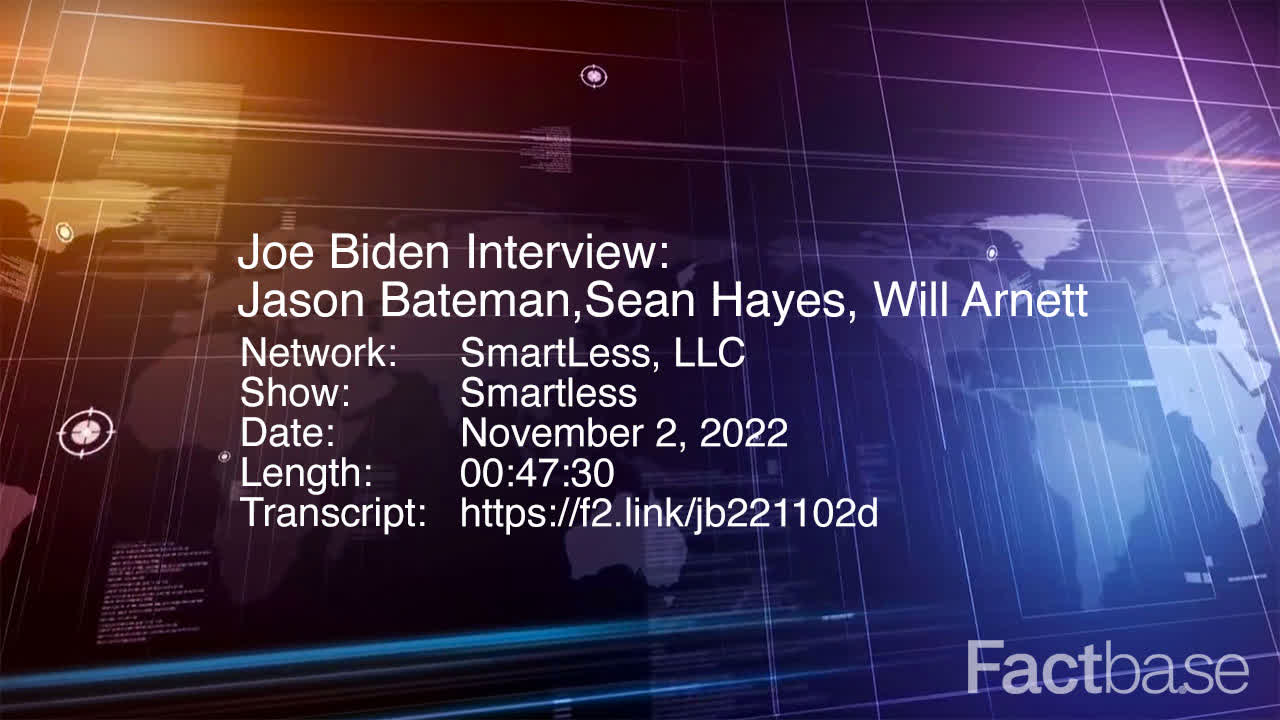
00:05:48-00:05:50 (2 sec)

"You got to stay available."
93
Will Arnett
Somewhat Positive
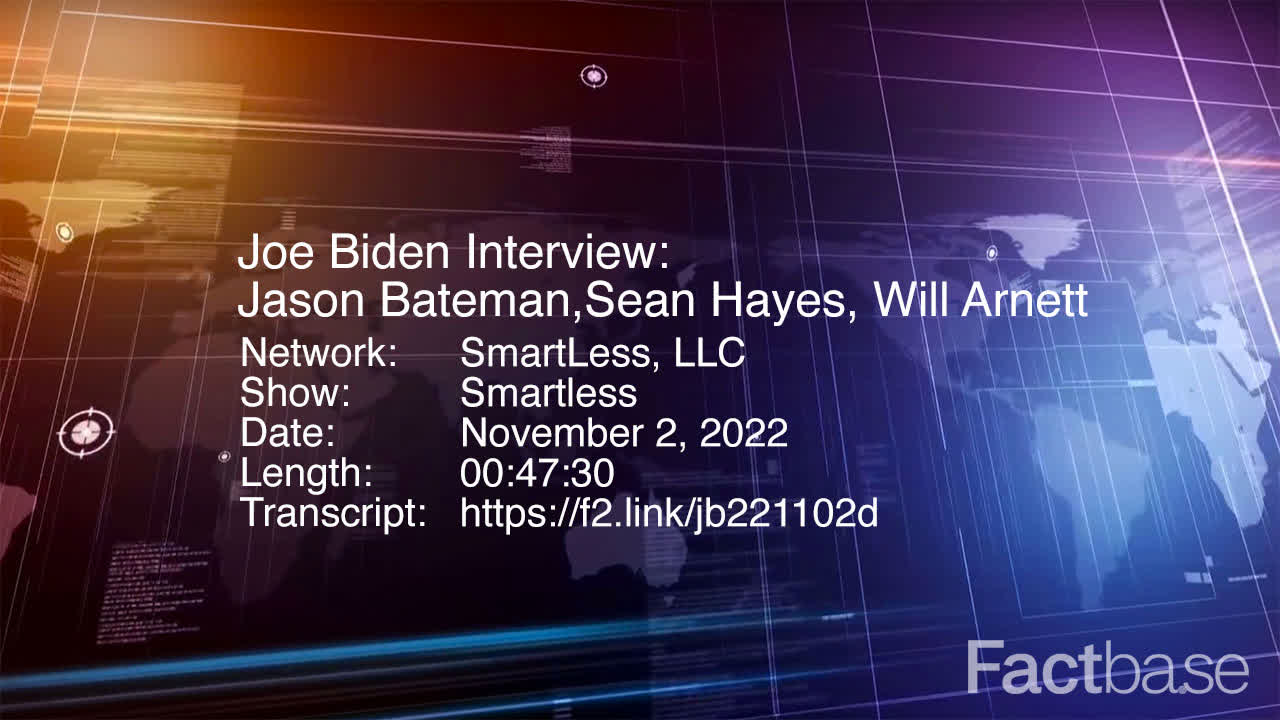
00:05:50-00:05:51 (1 sec)

"Sure."
94
Joe Biden
Leans Negative
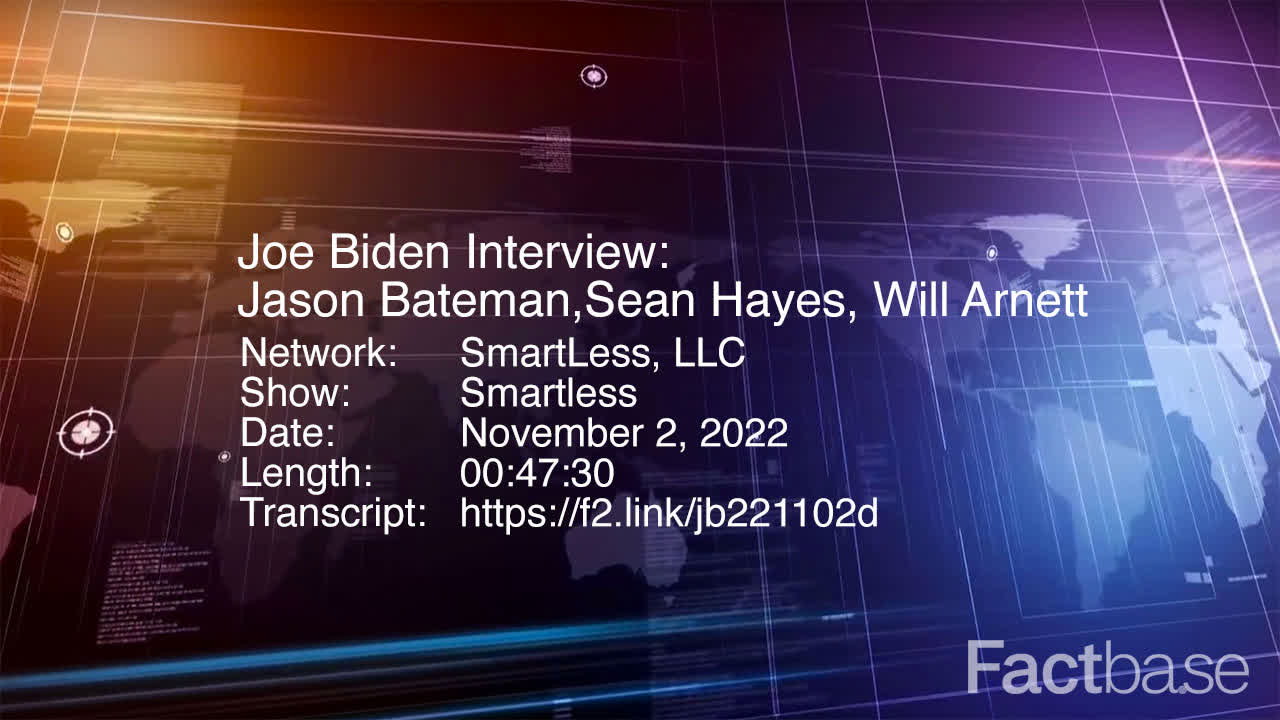
00:05:51-00:05:54 (3 sec)

"But no, I'm always available, but I --"
95
Jason Bateman
Slightly Positive
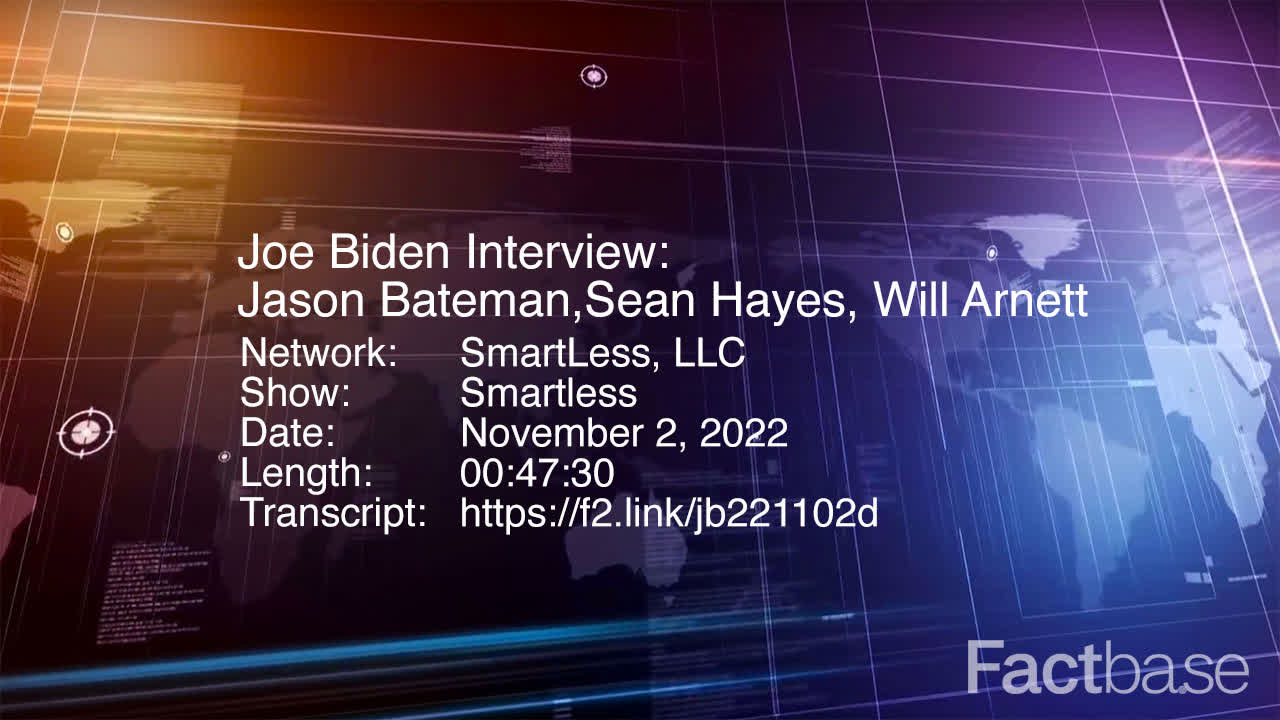
00:05:54-00:06:05 (11 sec)

"Do they try to protect -- obviously, weekends are not off, but you get to go to church on Sundays or you get a little sports time?"
96
Joe Biden
Neutral
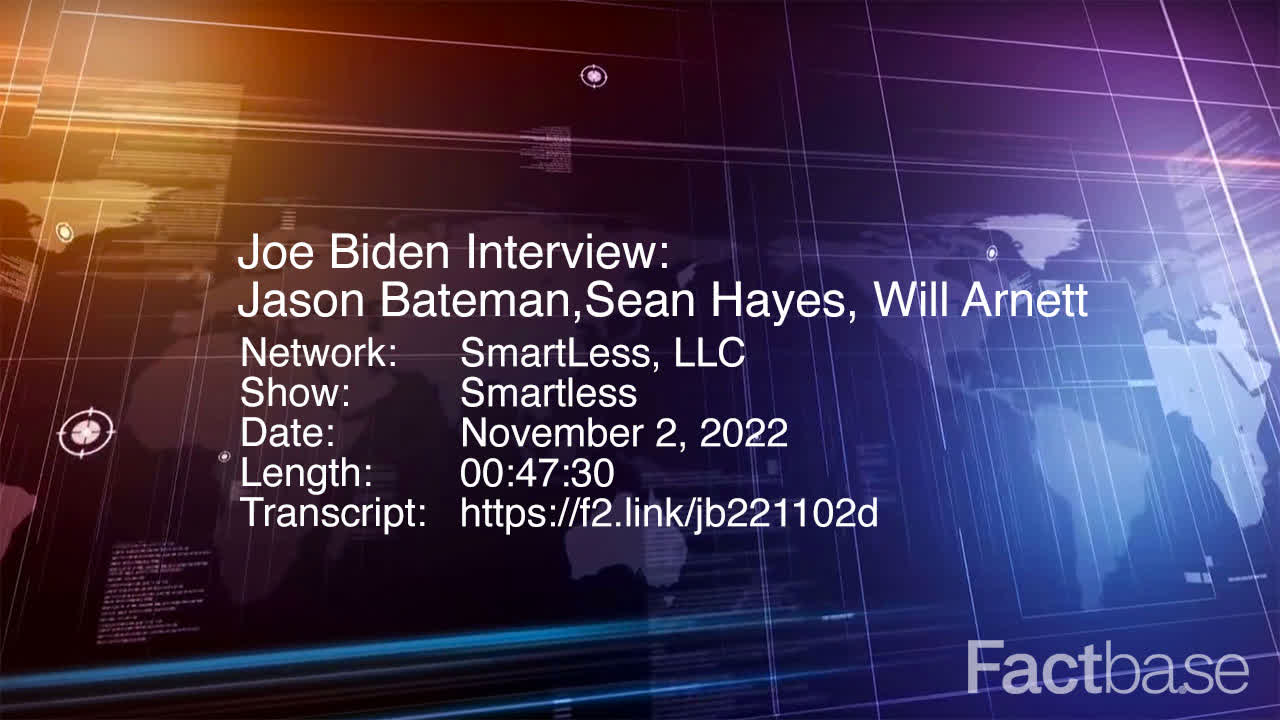
00:06:05-00:06:24 (19 sec)

"Well, here's what I do. My -- my -- my worst part is I -- they -- they kid me and everybody kids me. I'm -- I'm one of those practicing Catholics. My mother come down from heaven if I didn't."
97
Sean Hayes
Slightly Positive
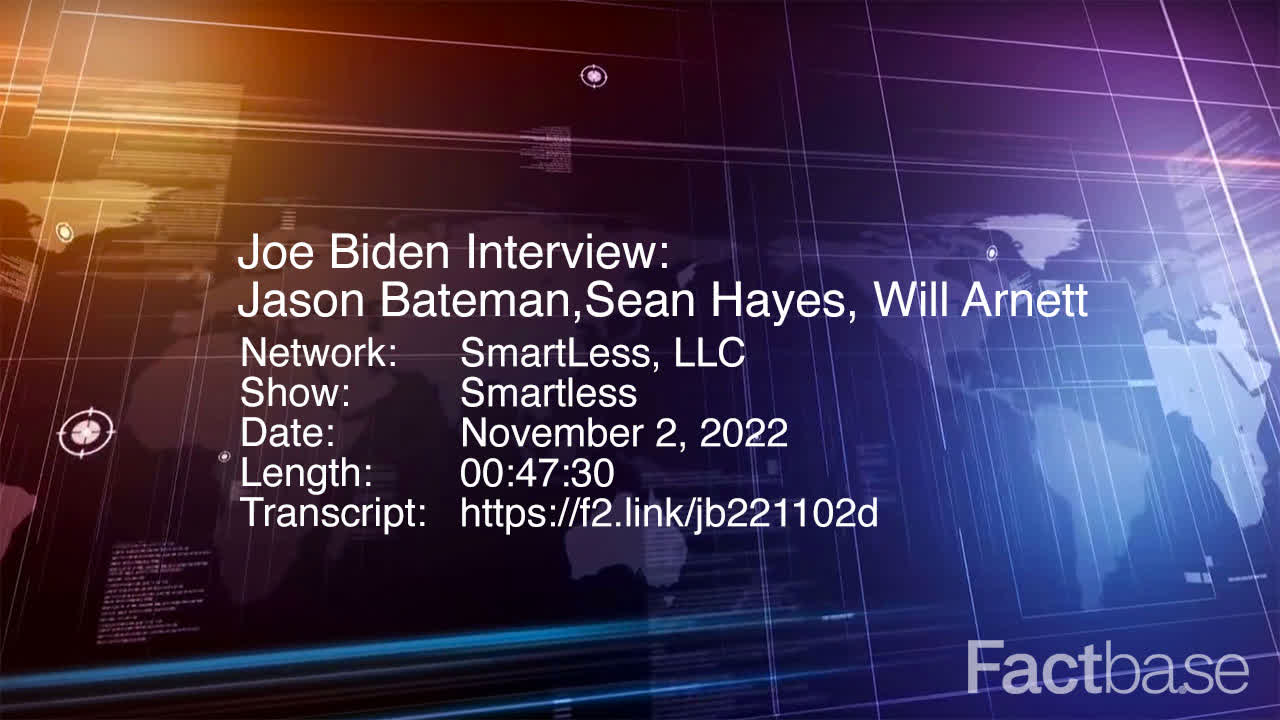
00:06:24-00:06:25 (1 sec)

"Yeah."
98
Joe Biden
Neutral
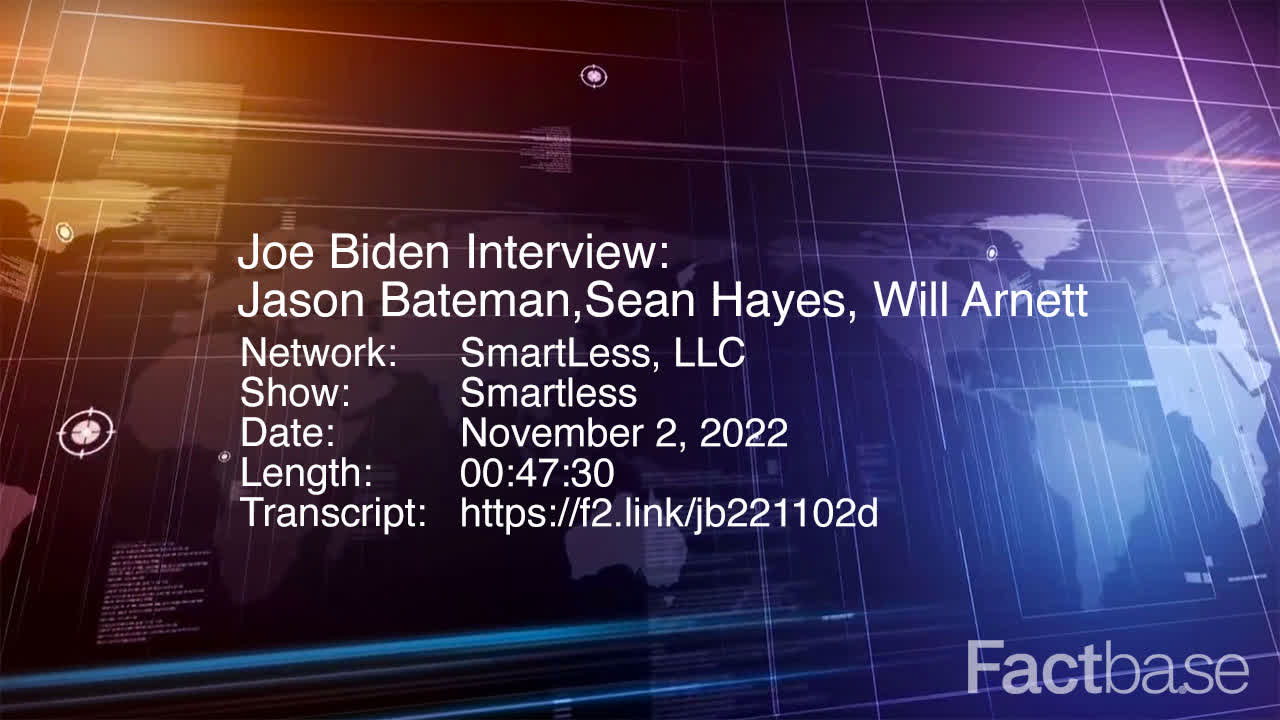
00:06:25-00:06:34 (9 sec)

"But I go to -- I go to -- I don't want to tell everybody because I'll be there. But I -- I go to 5 o'clock mass in my local church."
99
Jason Bateman
Slightly Positive
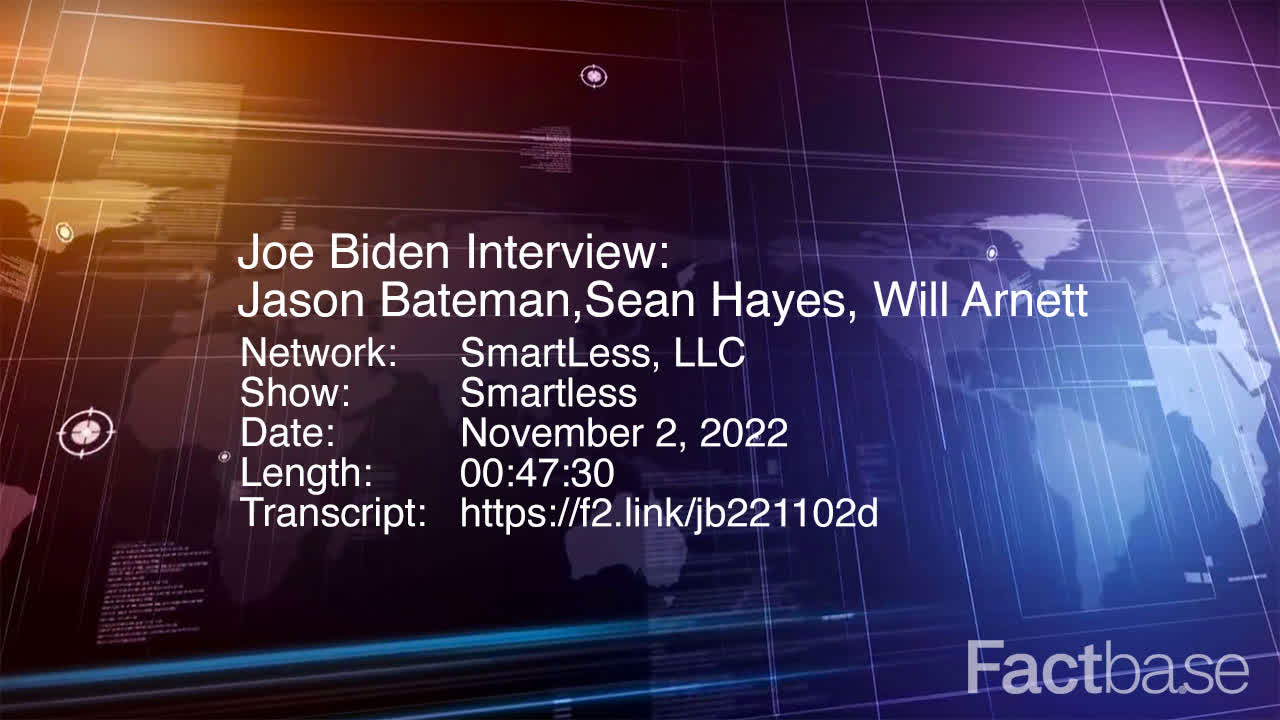
00:06:34-00:06:34 ( sec)

"Yeah."
100
Joe Biden
Neutral
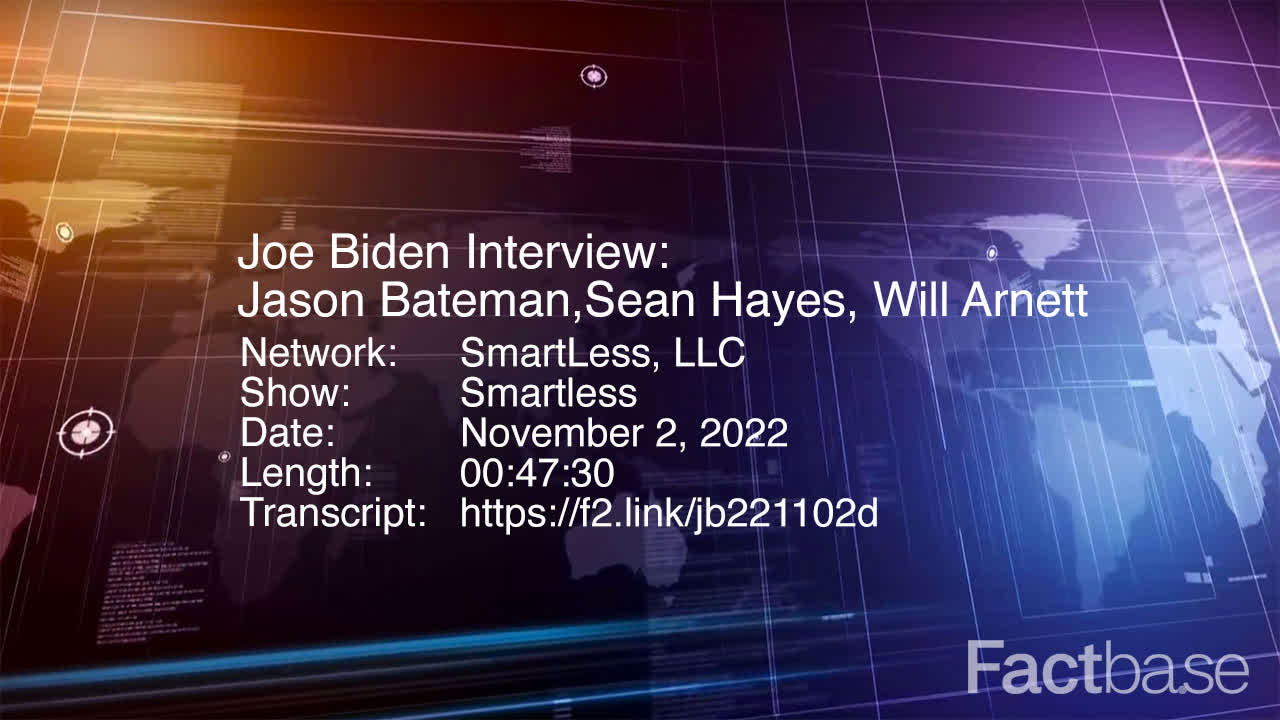
00:06:34-00:06:41 (7 sec)

"Or I go to -- in Washington, I go over to Georgetown to the [Inaudible]"
101
Jason Bateman
Slightly Positive
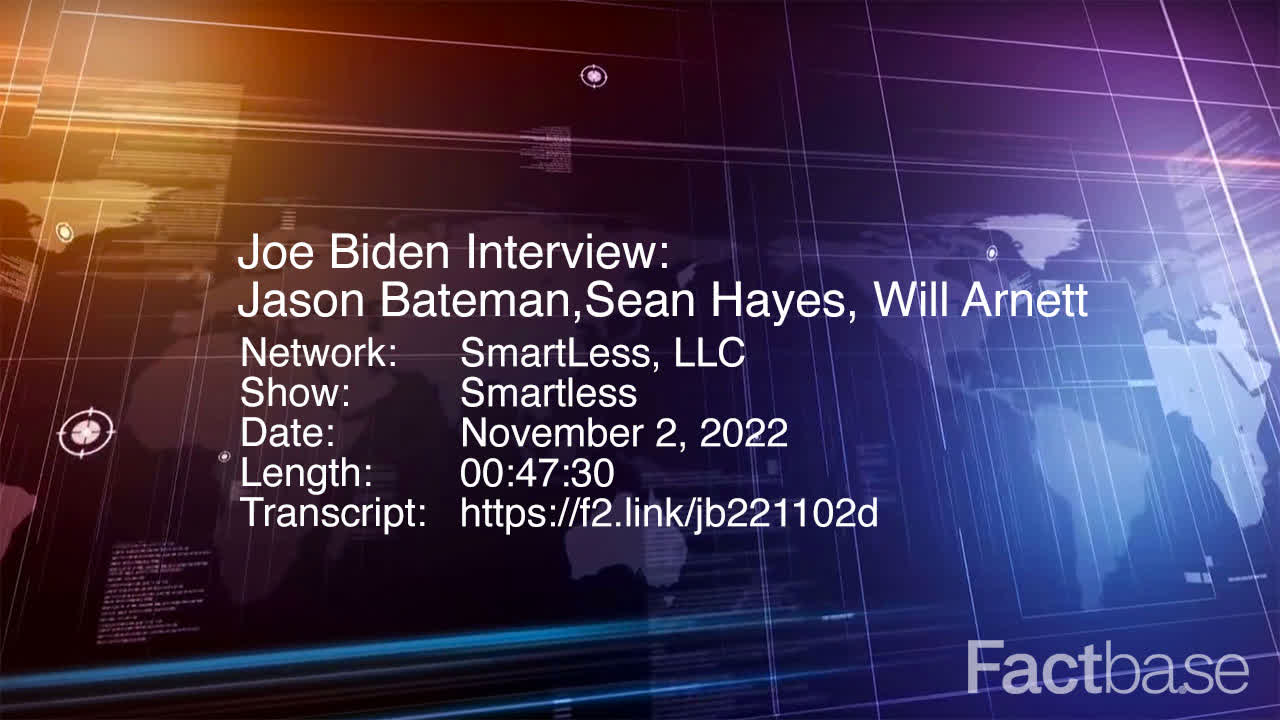
00:06:41-00:06:41 ( sec)

"Yeah."
102
Joe Biden
Slightly Positive
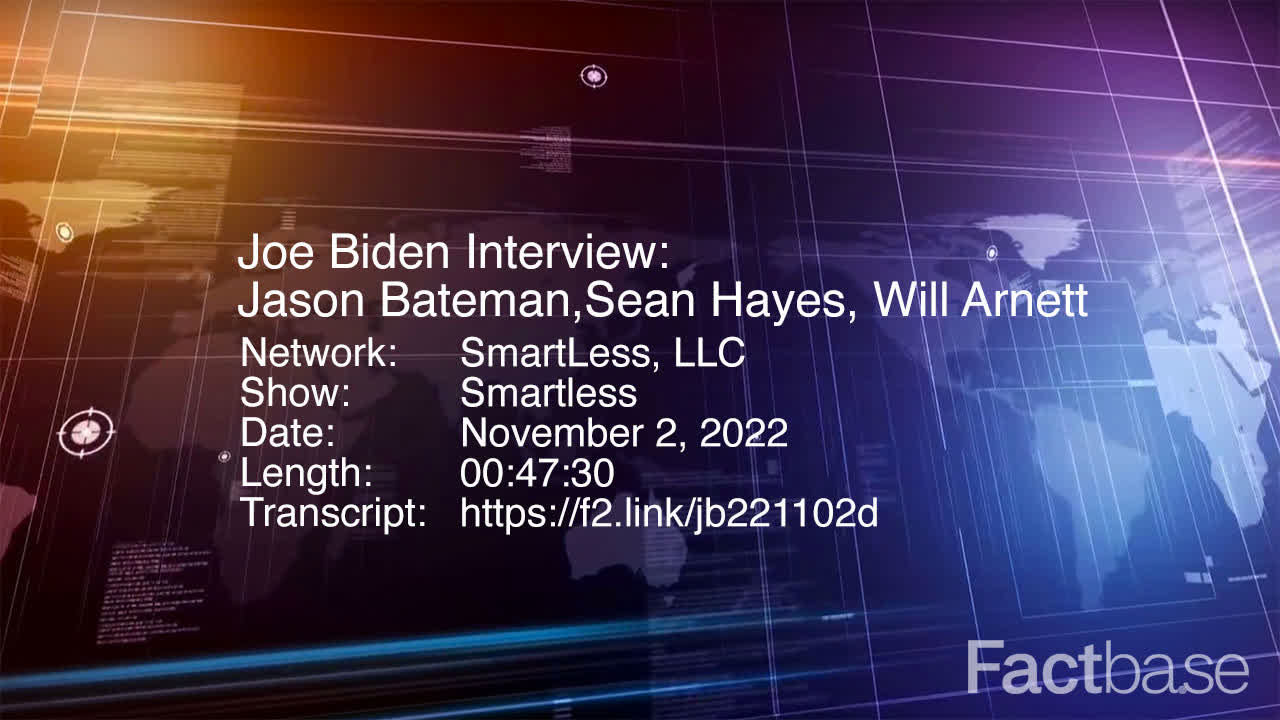
00:06:41-00:06:52 (11 sec)

"And I go to -- there's a 5:00 -- well, there's a 4:30 mass, and I go to mass on Saturday. And then Sunday, I -- we just try to -- try to do nothing."
103
Jason Bateman
Slightly Positive
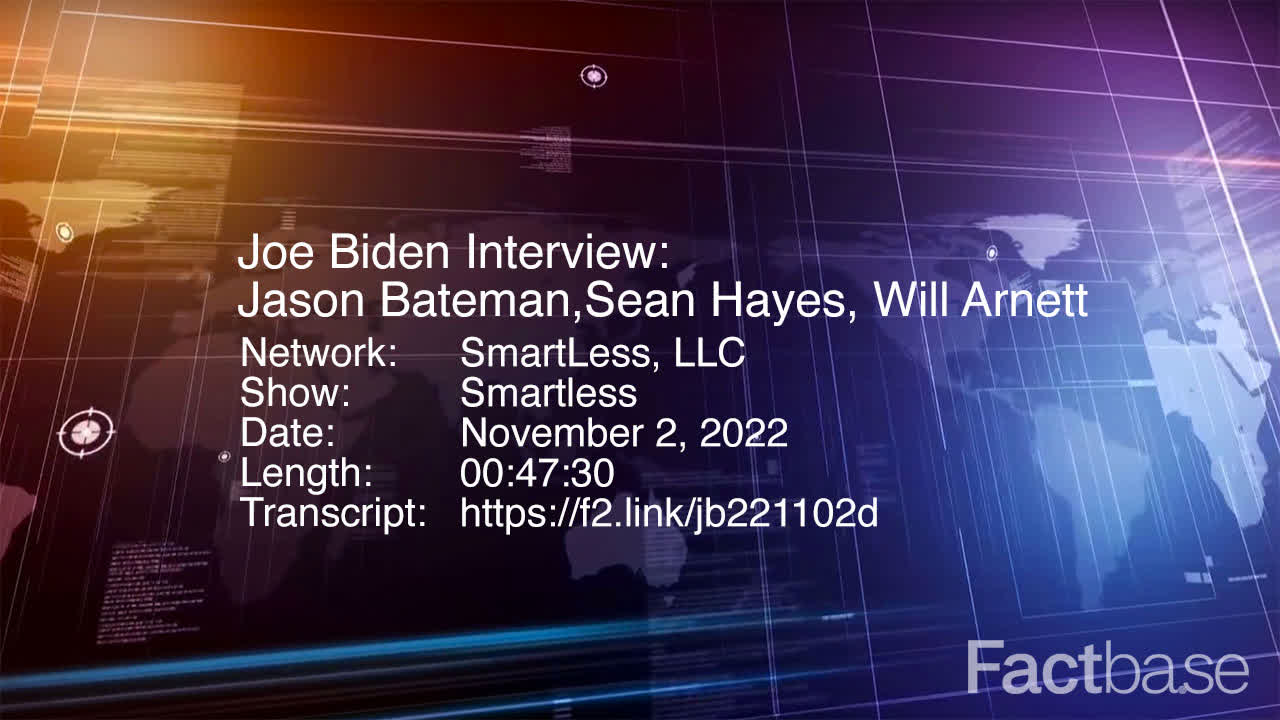
00:06:52-00:06:53 ( sec)

"Yeah."
104
Will Arnett
Very Positive
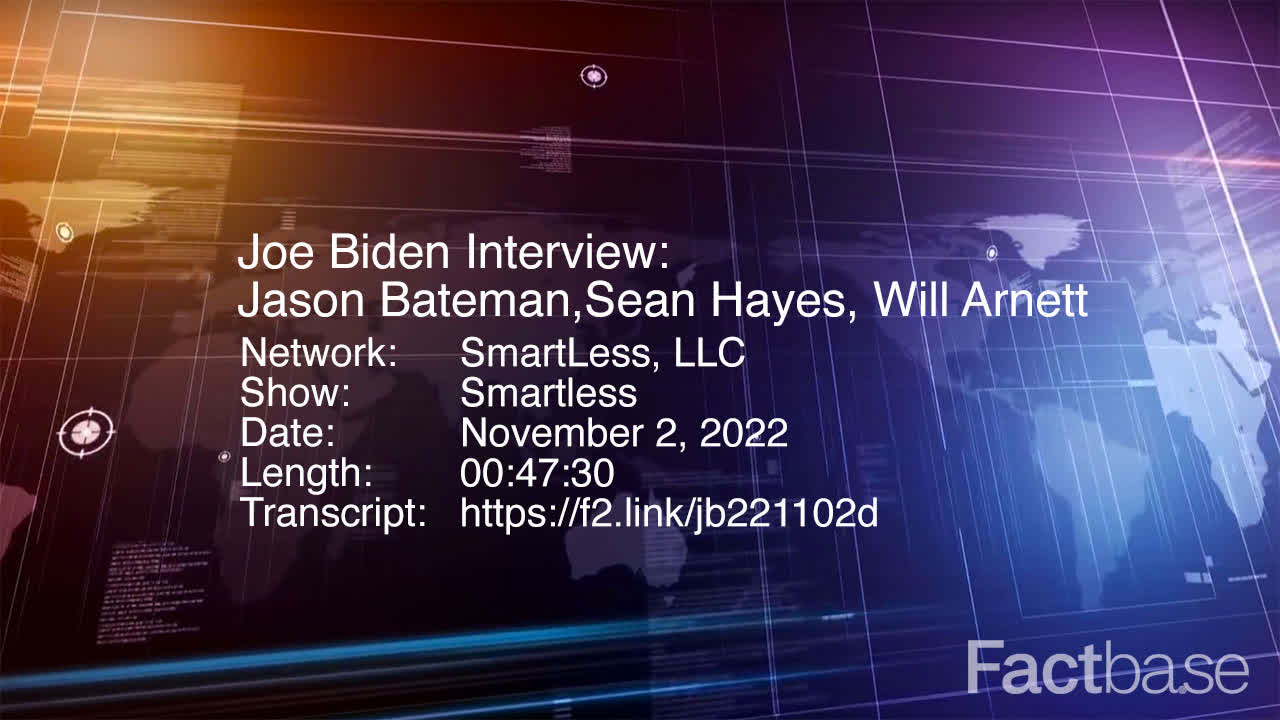
00:06:53-00:06:56 (4 sec)

"Yeah, that's great. I mean, that's pretty good."
105
Sean Hayes
Neutral
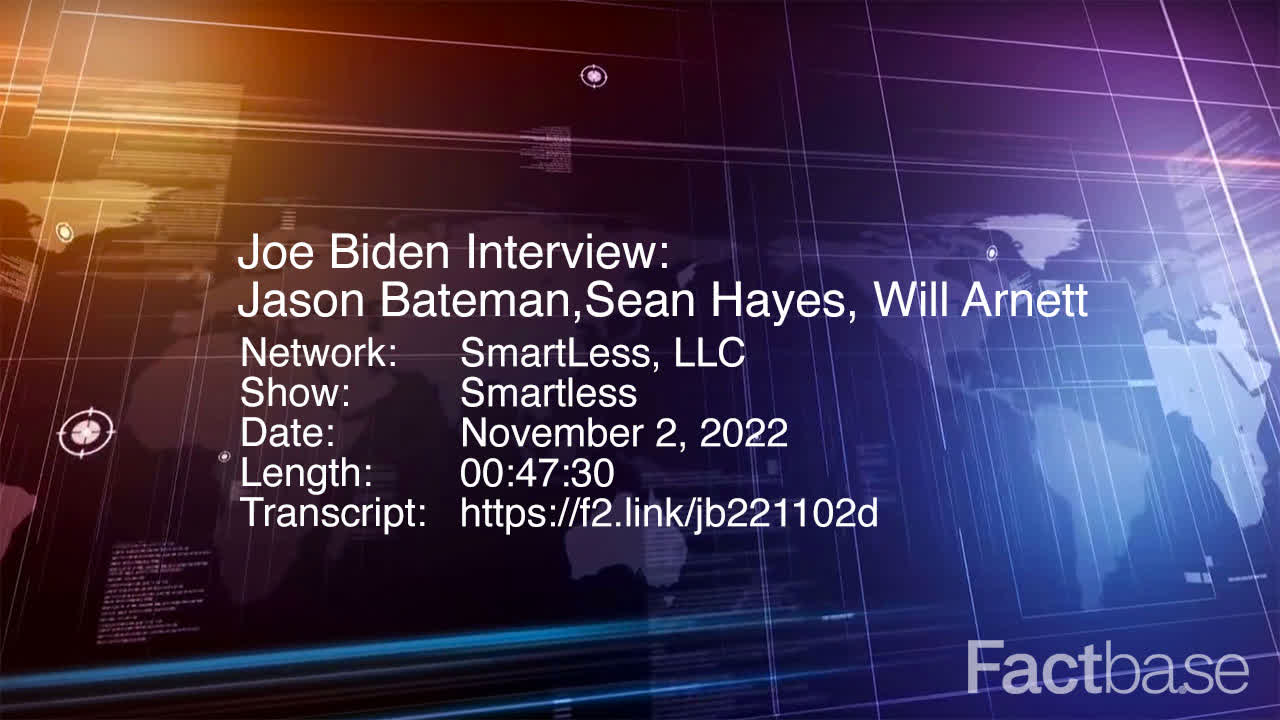
00:06:56-00:06:58 (2 sec)

"I think you have to."
106
Jason Bateman
Somewhat Positive
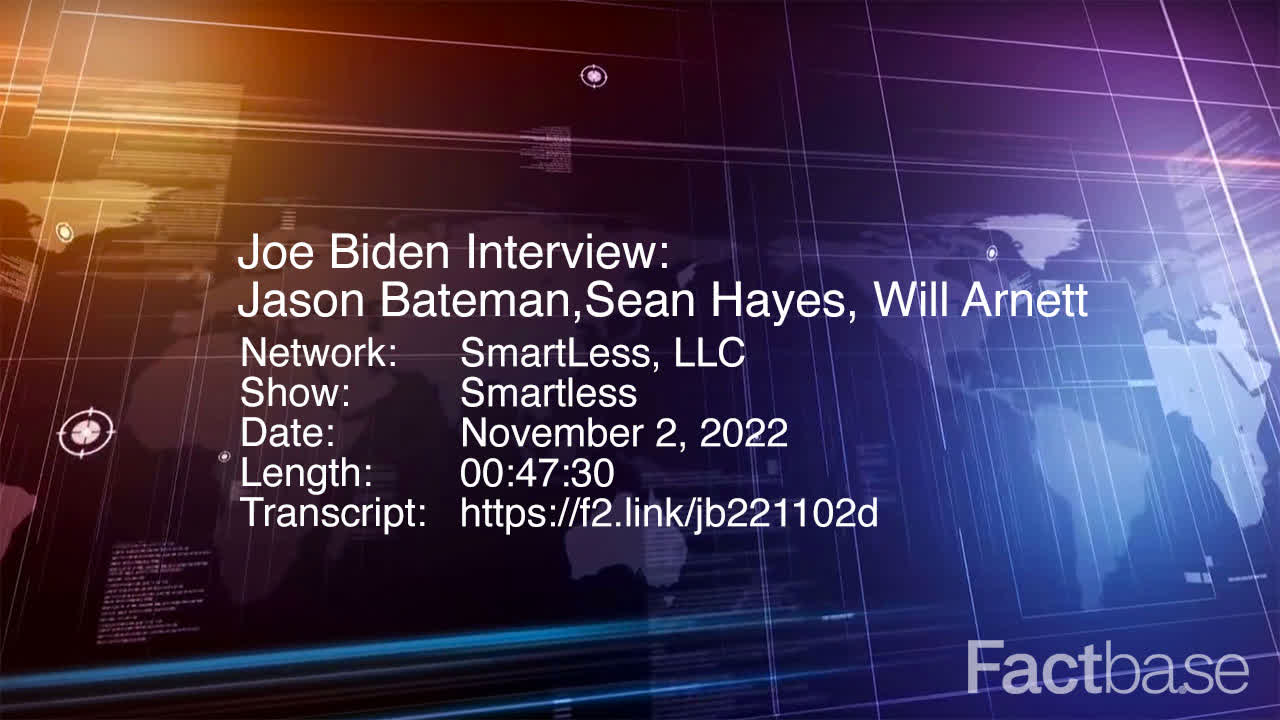
00:06:58-00:07:04 (6 sec)

"You watch a football game or something like that, perhaps."
107
Joe Biden
Slightly Positive
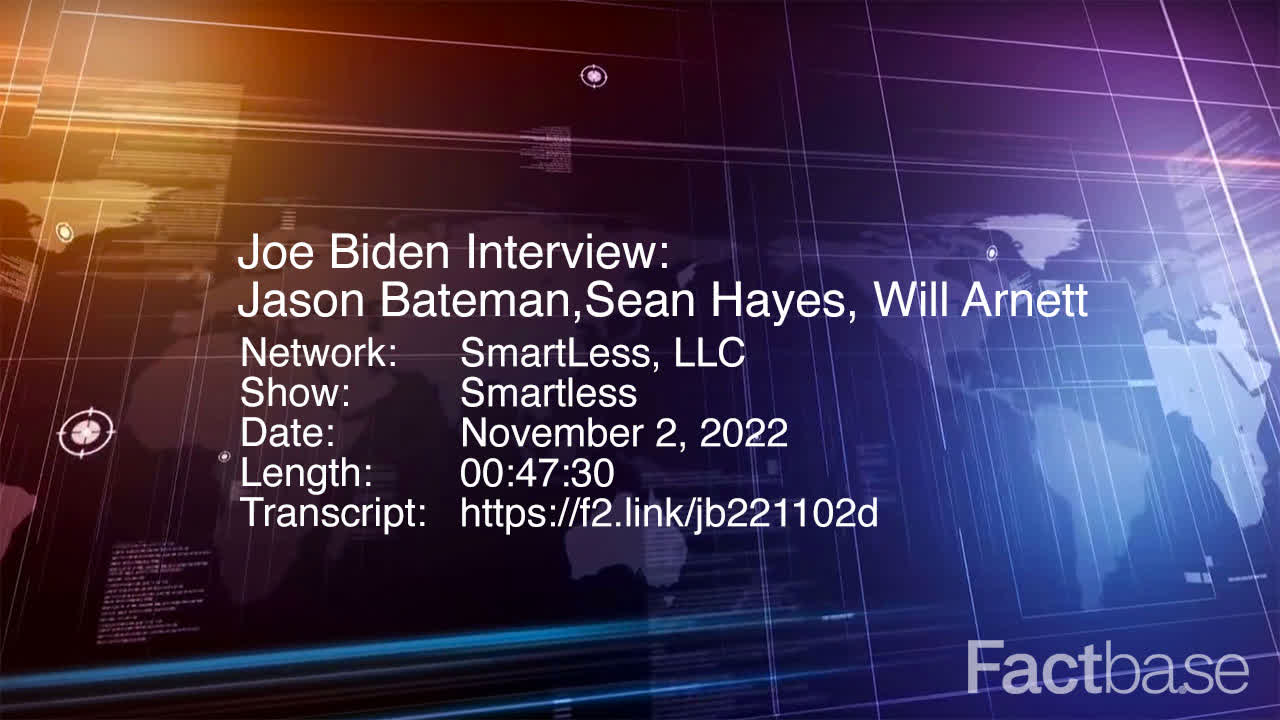
00:07:04-00:07:05 (1 sec)

"Yeah."
108
Jason Bateman
Slightly Positive
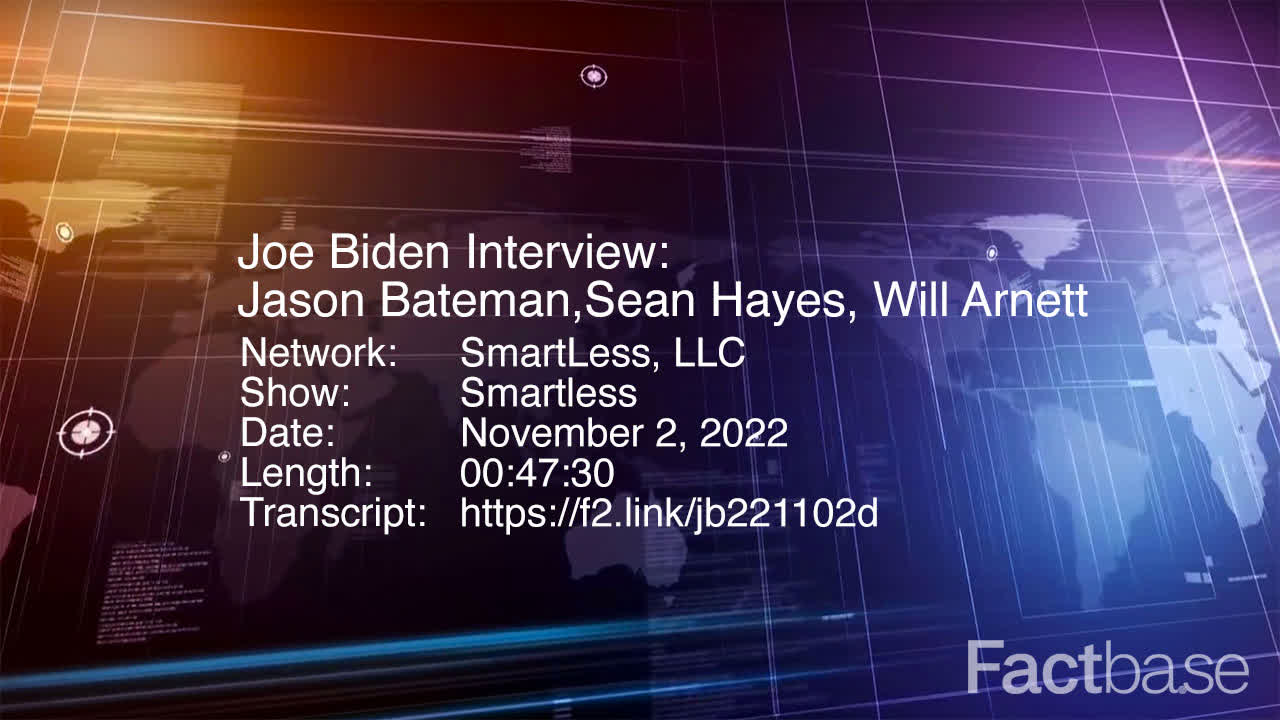
00:07:05-00:07:06 ( sec)

"Yeah?"
109
Joe Biden
Slightly Positive
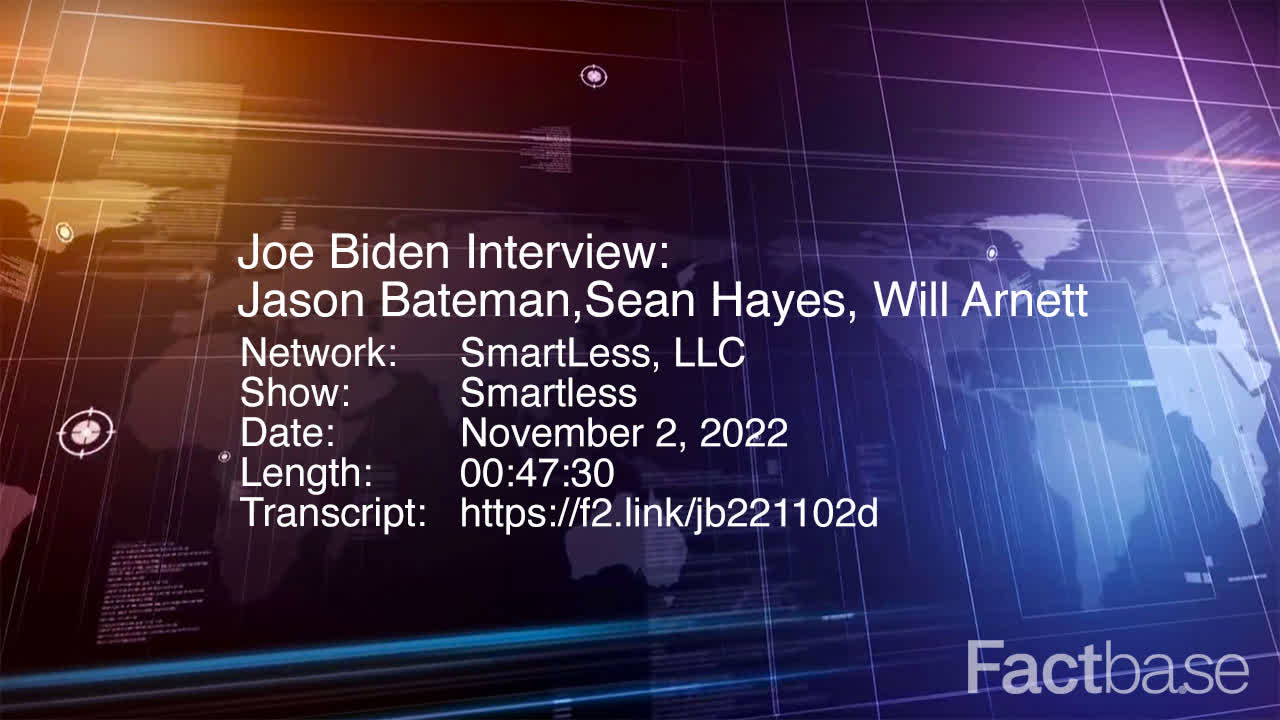
00:07:06-00:07:06 ( sec)

"Yeah."
110
Will Arnett
Neutral
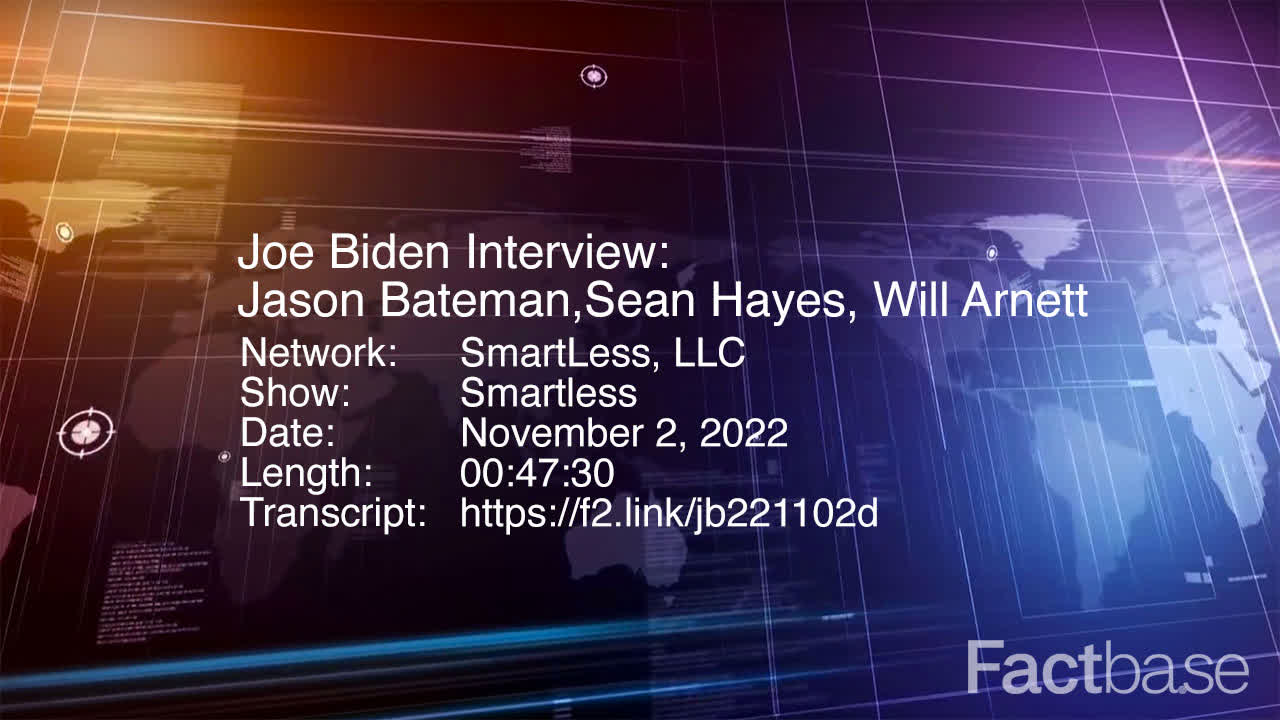
00:07:06-00:07:13 (7 sec)

"What's your No. 1 sport if you had to rank them that you like to watch?"
111
Joe Biden
Neutral
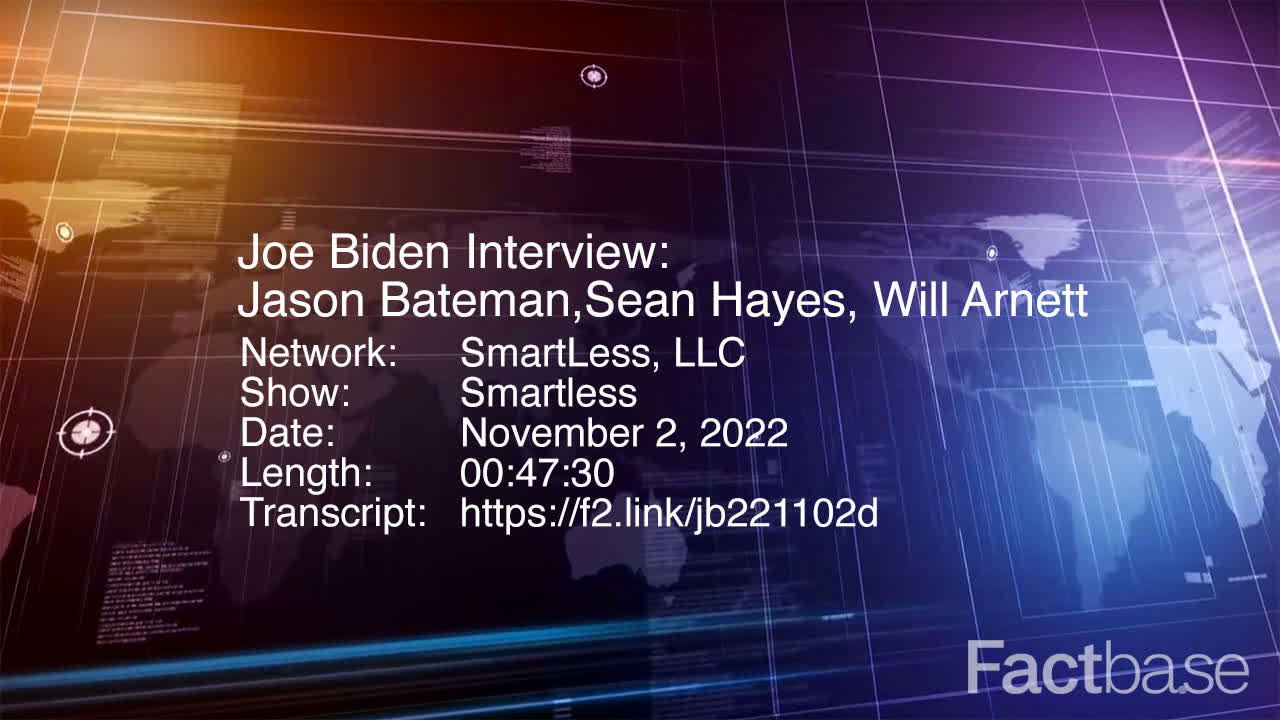
00:07:13-00:07:17 (5 sec)

"Well, my No. 1 sport is football."
112
Will Arnett
Slightly Positive
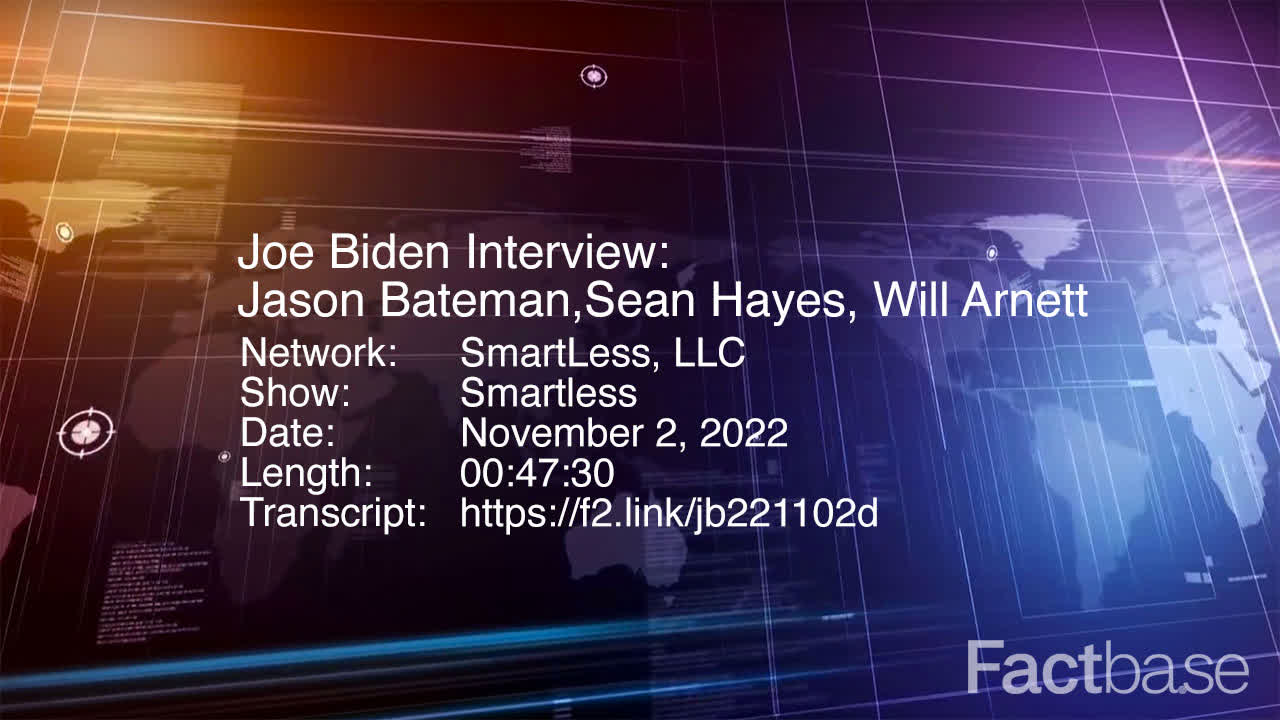
00:07:17-00:07:18 (1 sec)

"Yeah."
113
Joe Biden
Positive
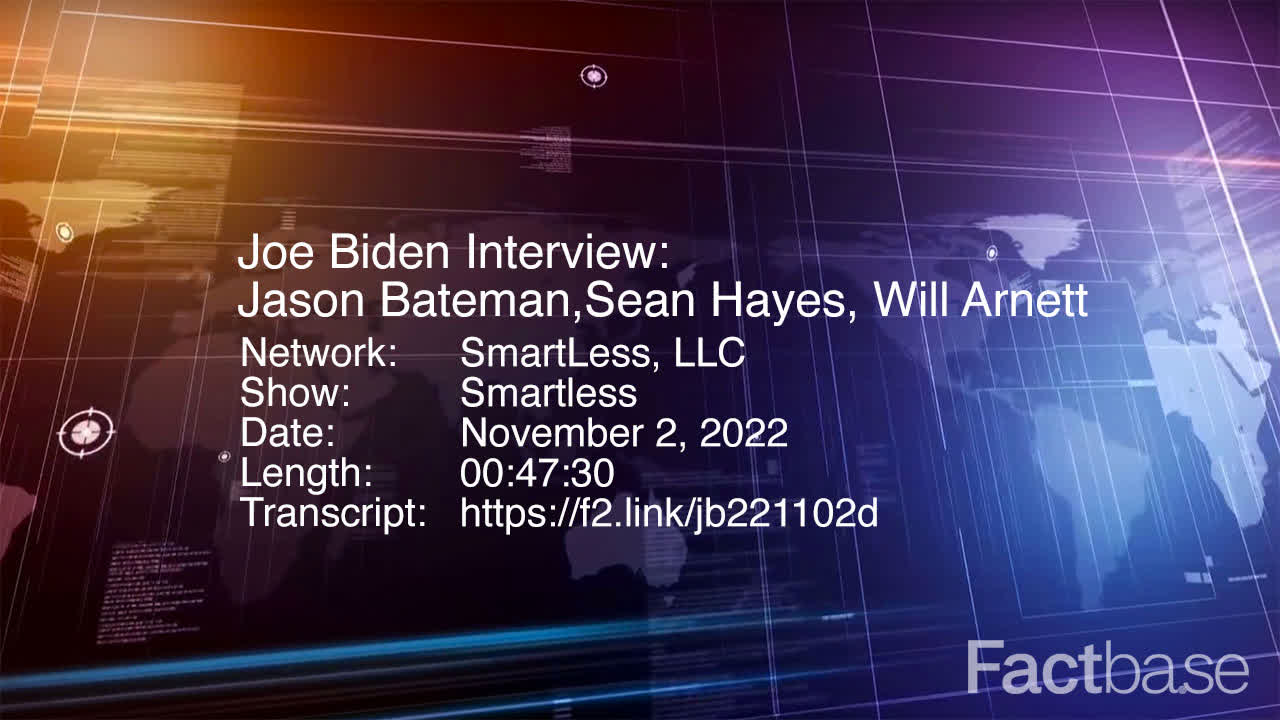
00:07:18-00:07:24 (6 sec)

"But it's changed so much. I -- I was a relatively good ballplayer and --"
114
Jason Bateman
Neutral
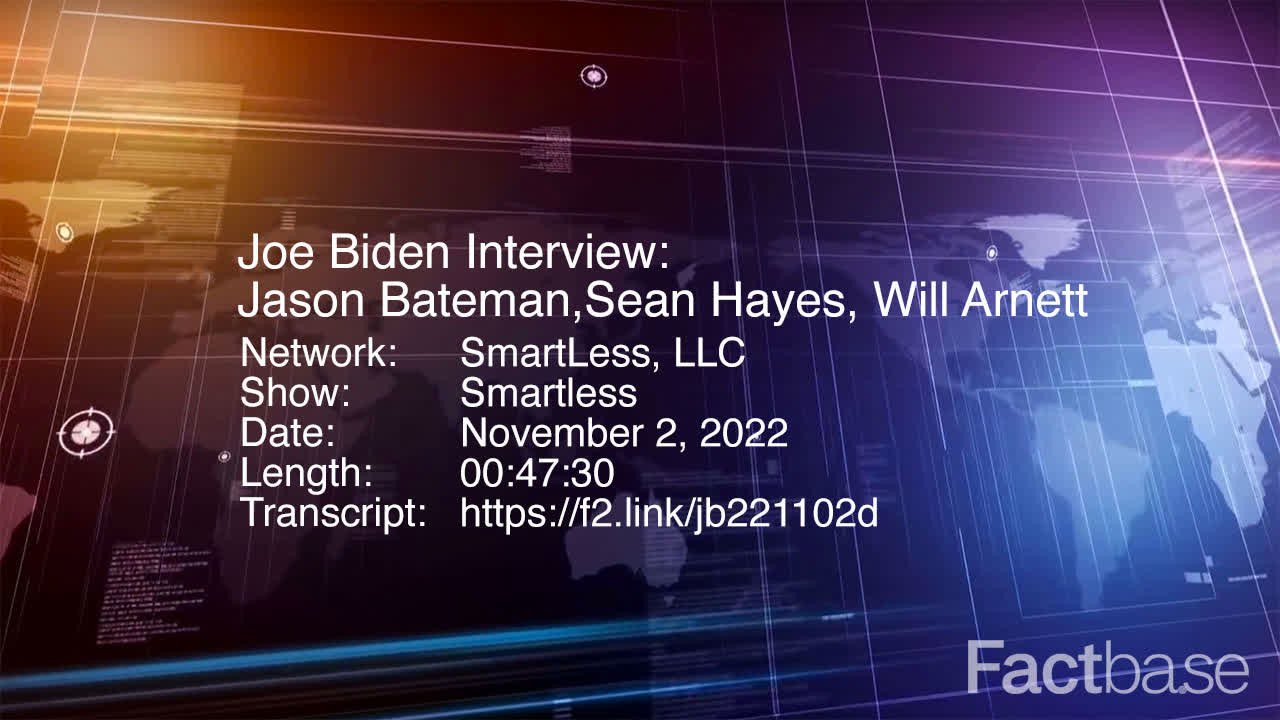
00:07:24-00:07:25 (2 sec)

"What position?"
115
Joe Biden
Neutral
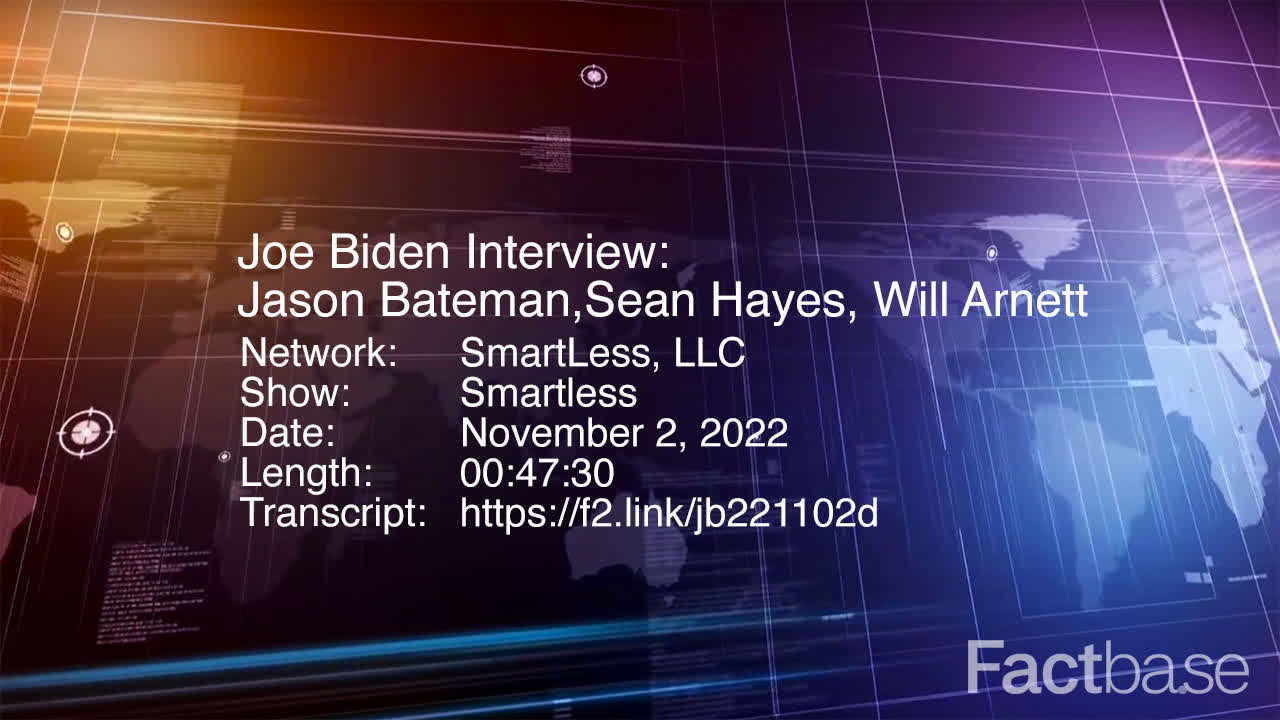
00:07:25-00:07:29 (3 sec)

"A high scorer. I was a flanker back, a halfback."
116
Jason Bateman
Neutral
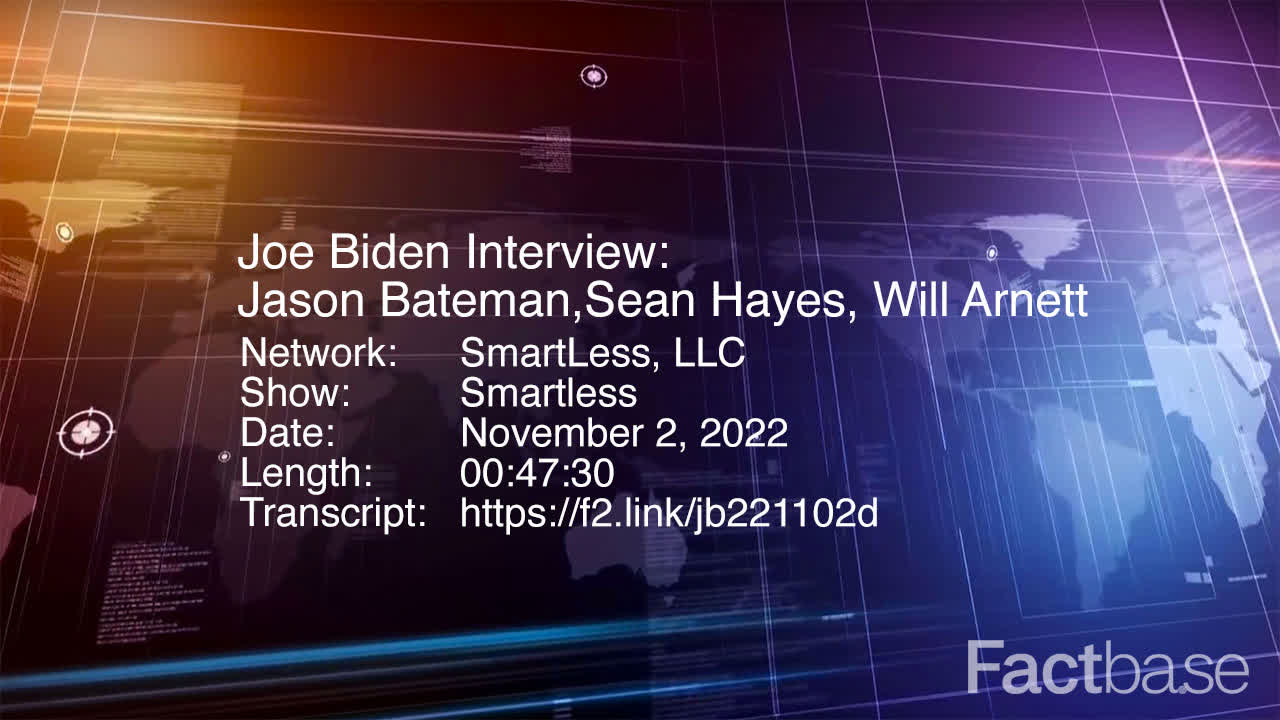
00:07:29-00:07:29 (1 sec)

"Really."
117
Joe Biden
Neutral
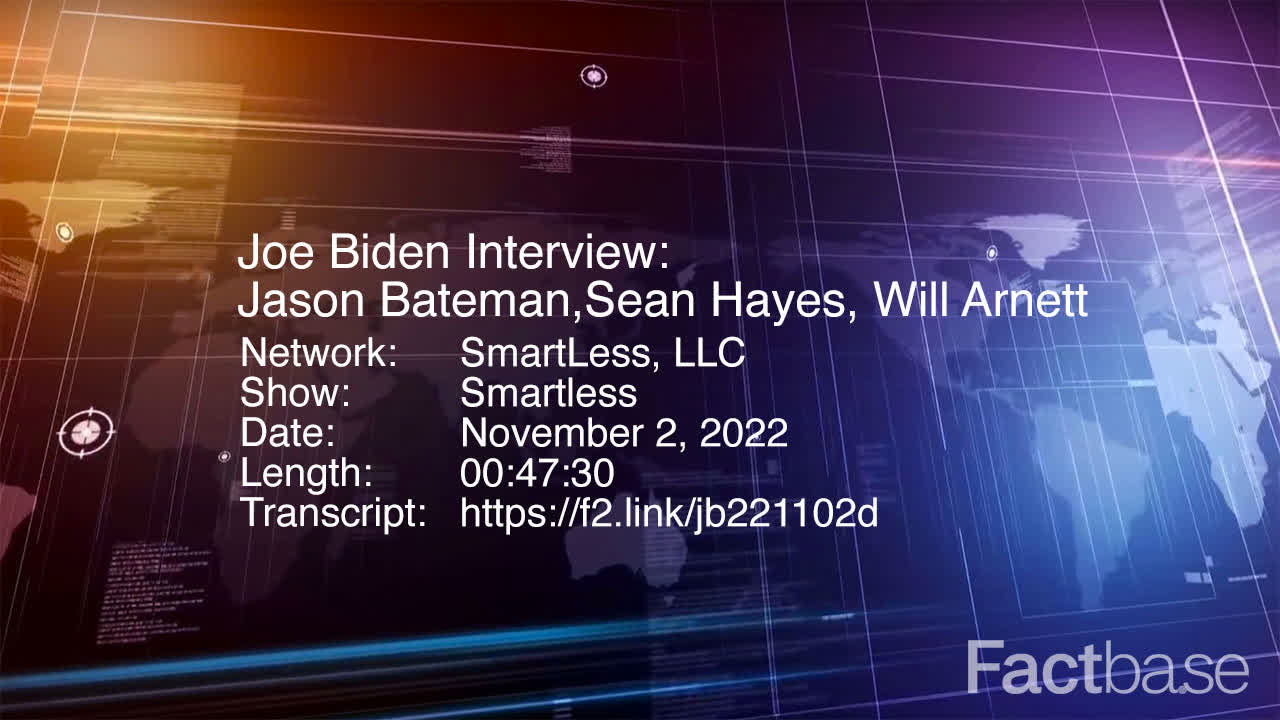
00:07:29-00:07:30 (1 sec)

"And --"
118
Sean Hayes
Somewhat Positive
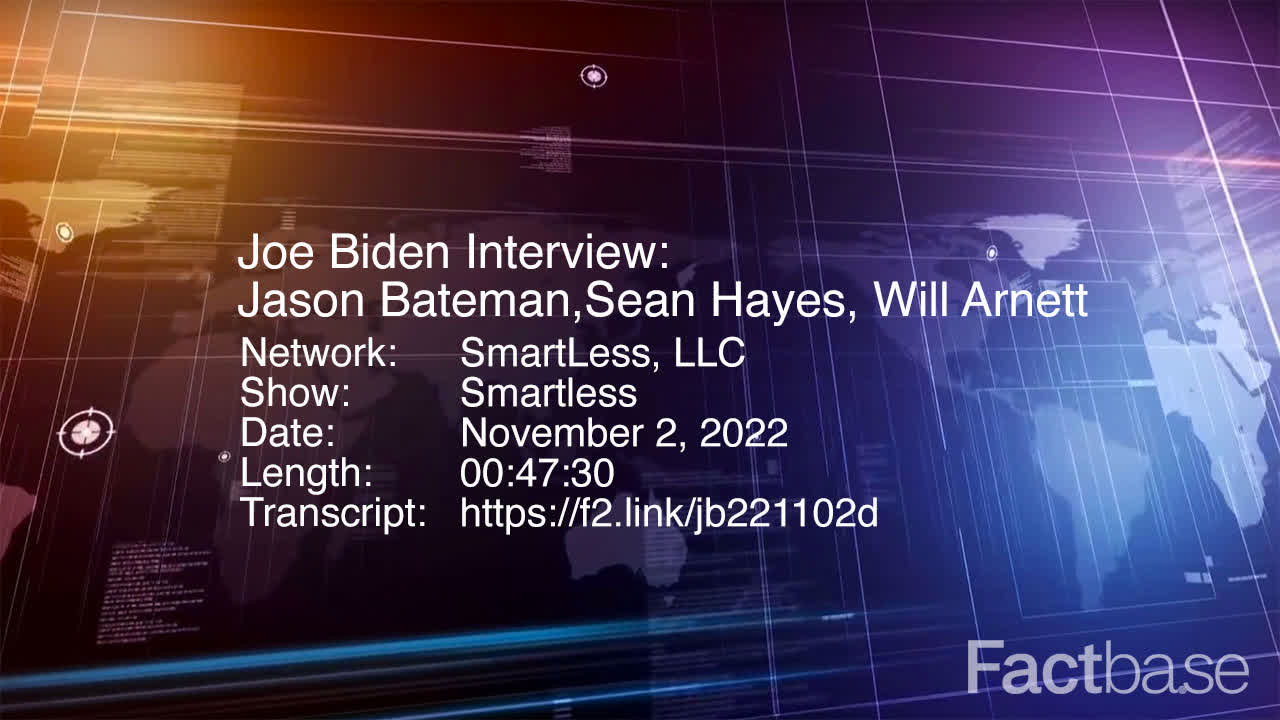
00:07:30-00:07:31 (1 sec)

"I like flanks, too."
119
Joe Biden
Slightly Positive
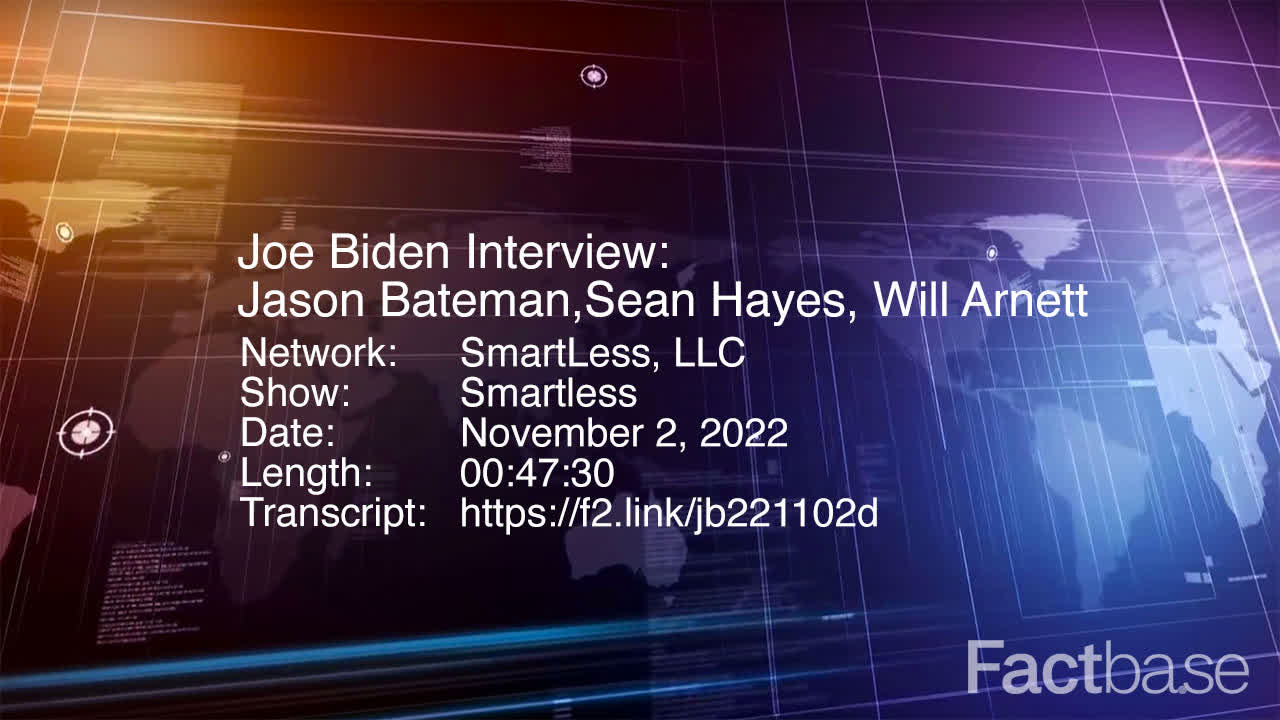
00:07:31-00:07:32 (1 sec)

"And -- yeah."
120
Sean Hayes
Neutral
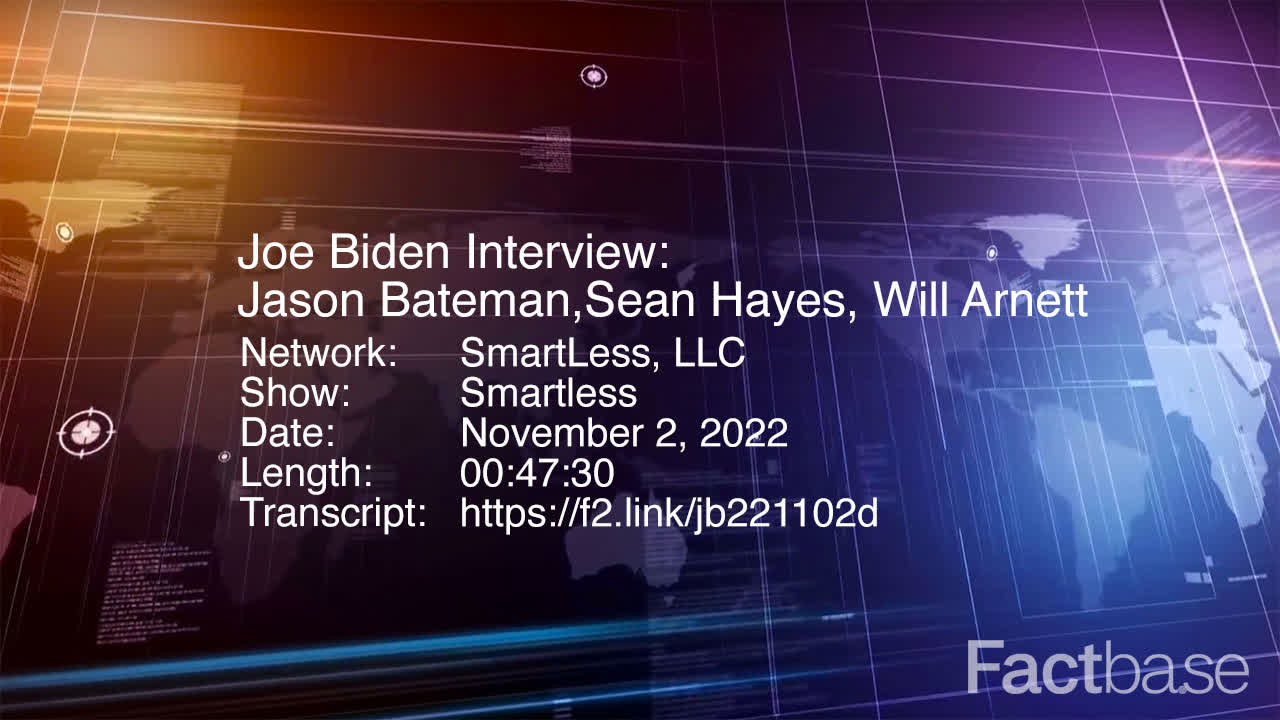
00:07:32-00:07:33 (1 sec)

"I'm just saying."
121
Jason Bateman
Neutral
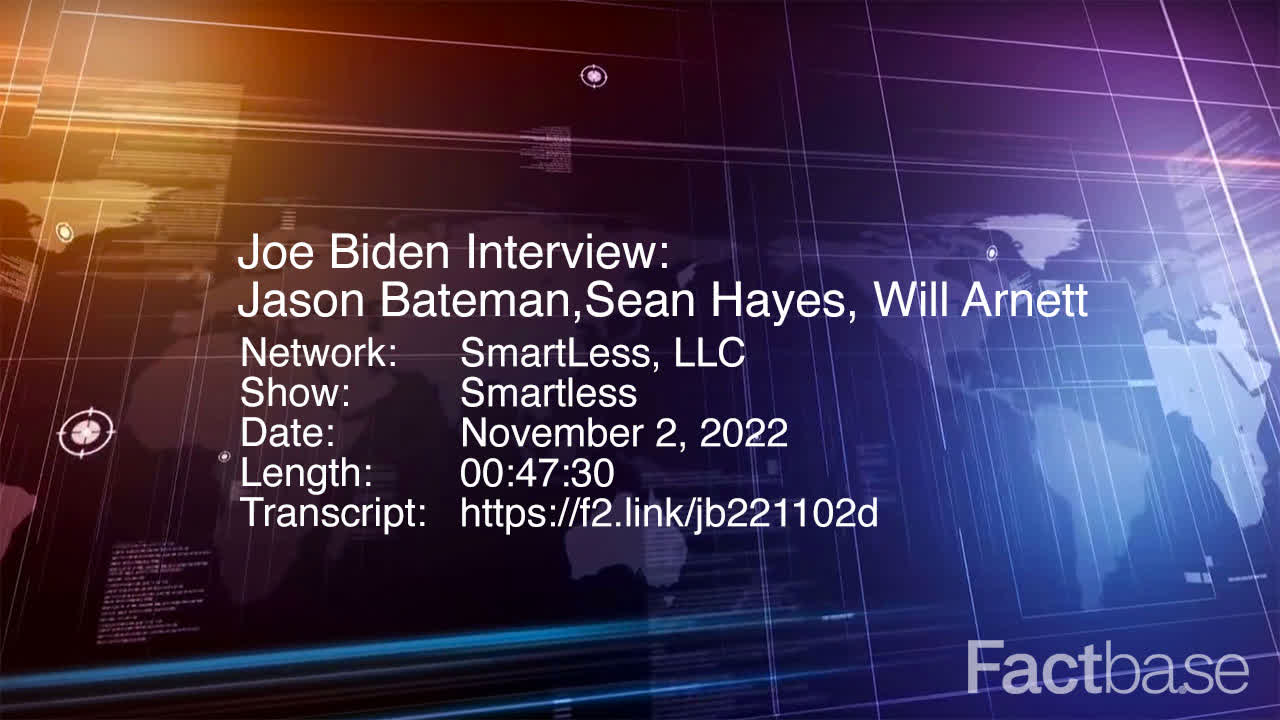
00:07:33-00:07:35 (2 sec)

"Don't pay any attention --"
122
Will Arnett
Neutral
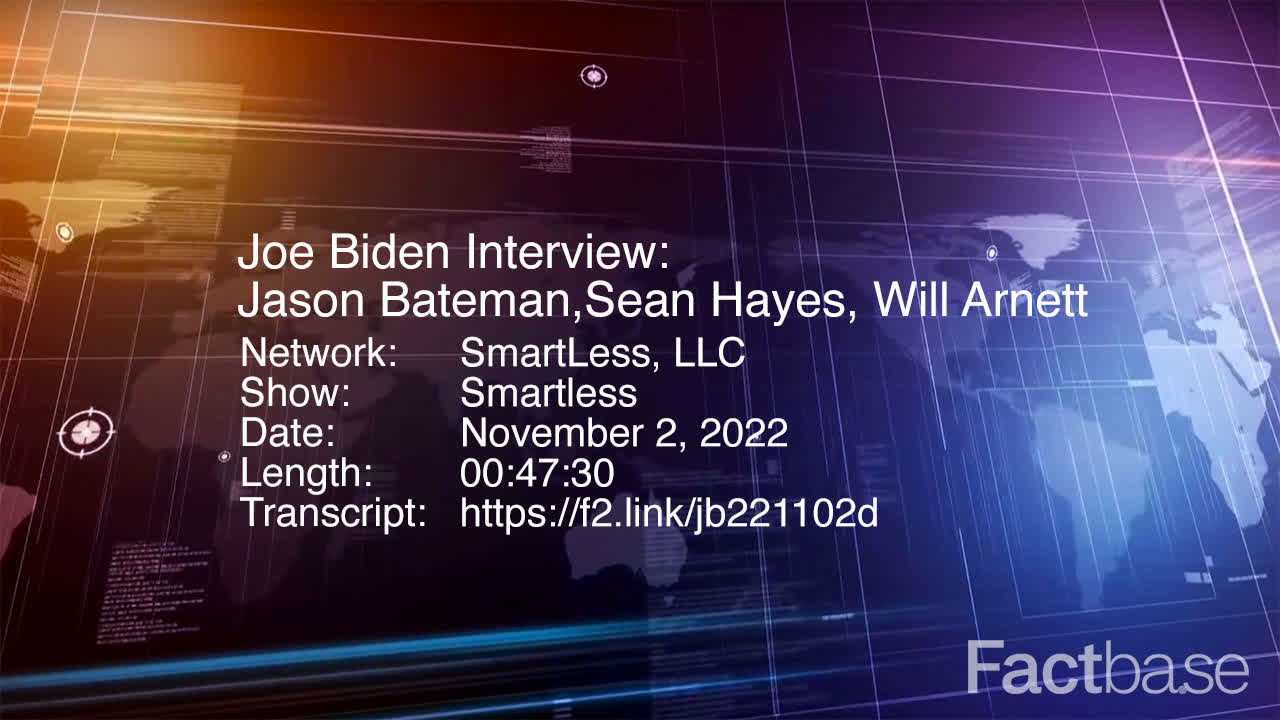
00:07:35-00:07:37 (3 sec)

"You're just saying word association."
123
Sean Hayes
Slightly Positive
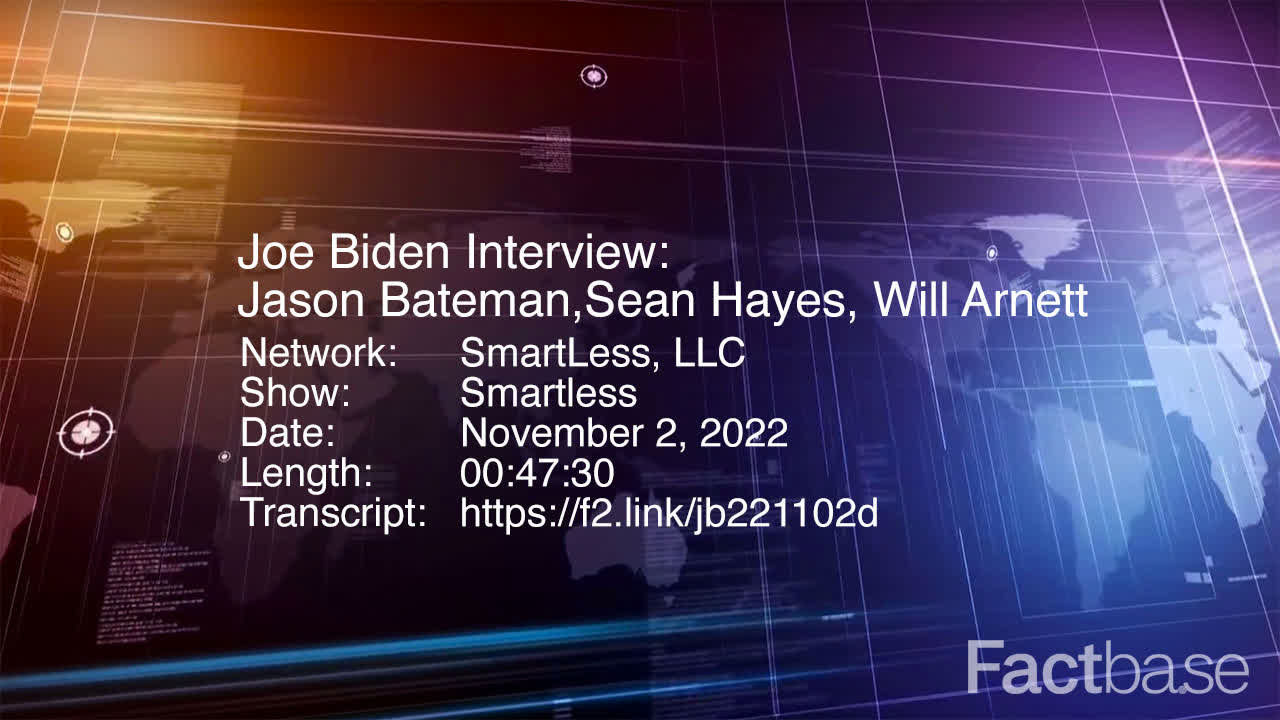
00:07:37-00:07:39 (2 sec)

"Yeah, I'm just [Inaudible]"
124
Joe Biden
Neutral
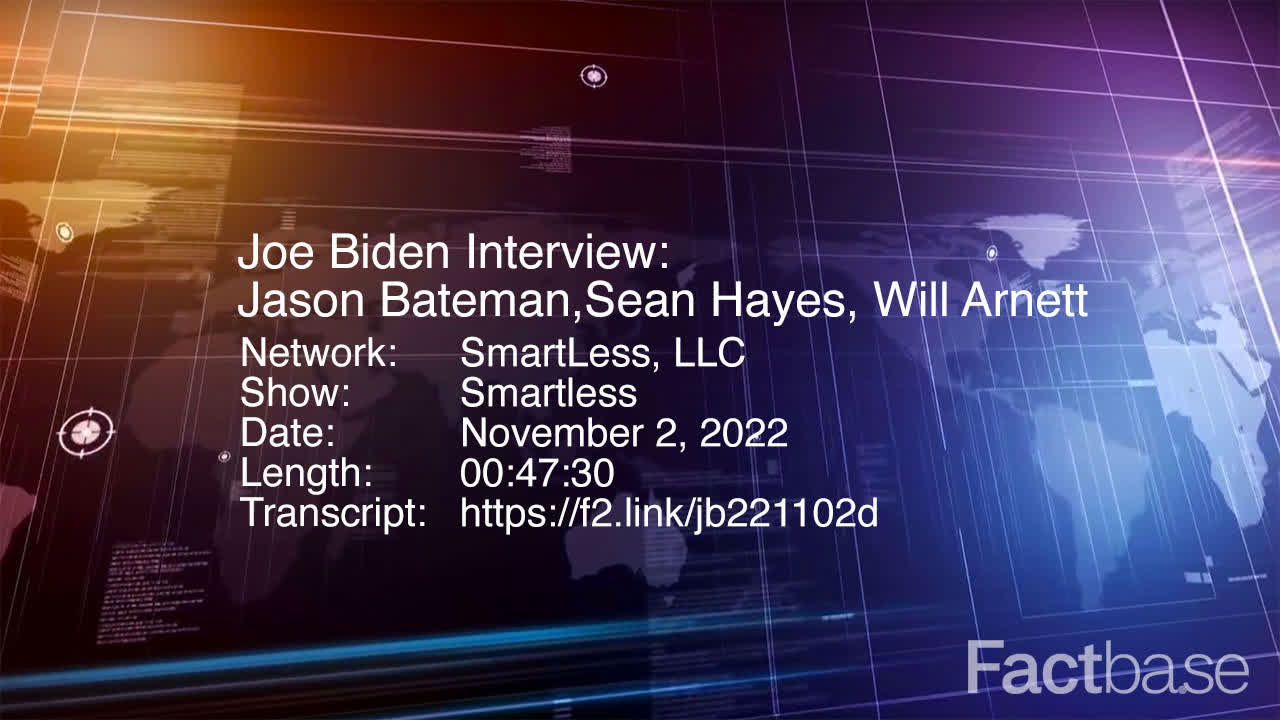
00:07:39-00:07:44 (5 sec)

"But it's a sport that I -- that I watch probably more than any other [Inaudible]"
125
Jason Bateman
Leans Positive
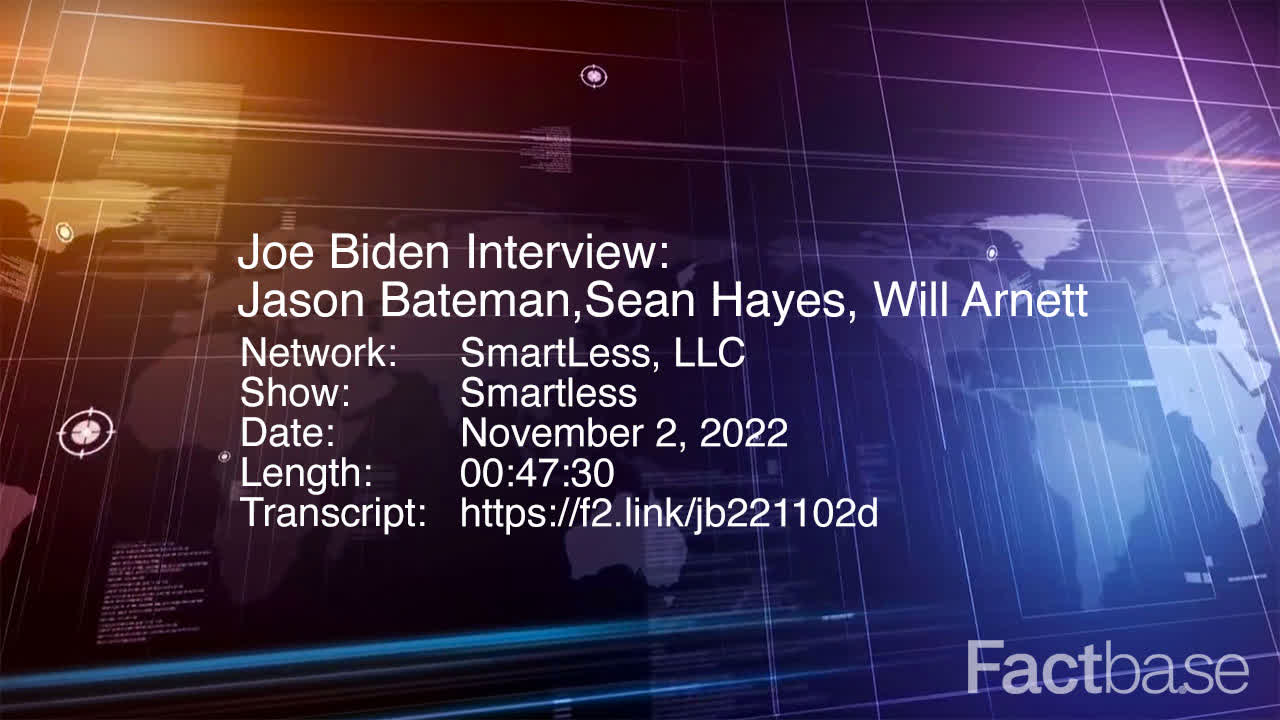
00:07:44-00:07:47 (2 sec)

"You're not -- you're not a terrible golfer."
126
Joe Biden
Neutral
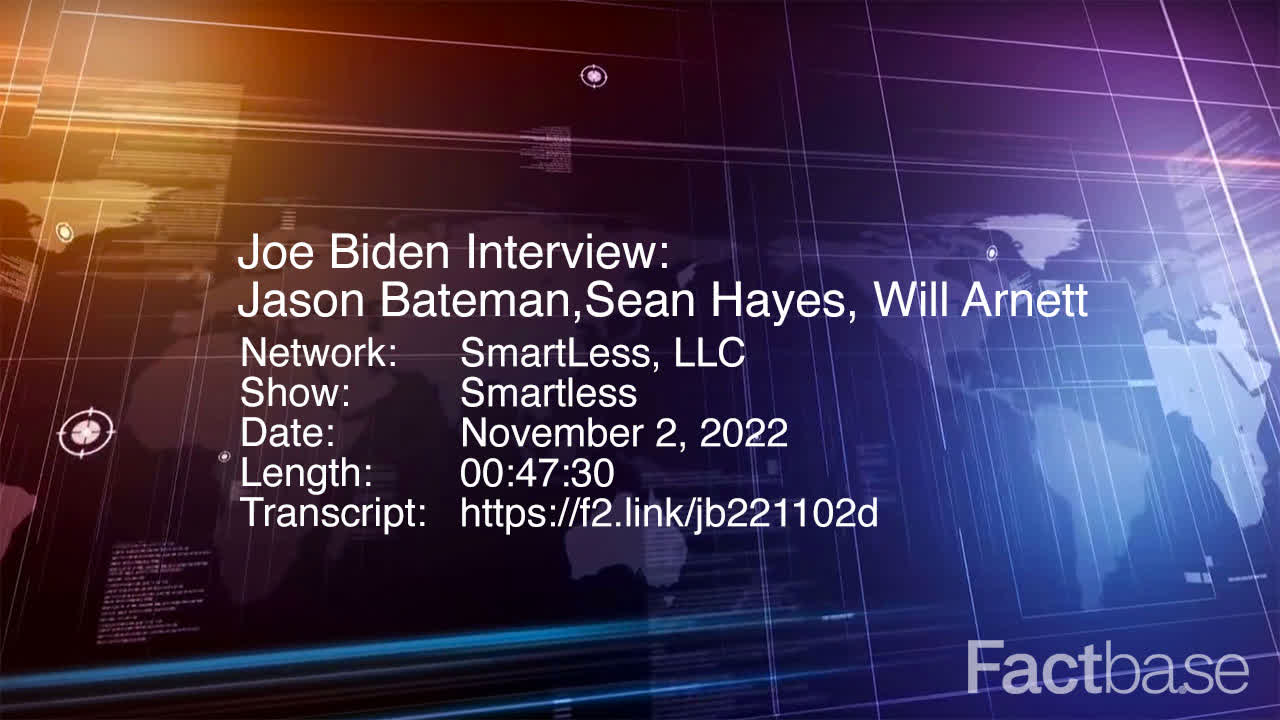
00:07:47-00:07:47 ( sec)

"Now --"
127
Jason Bateman
Neutral
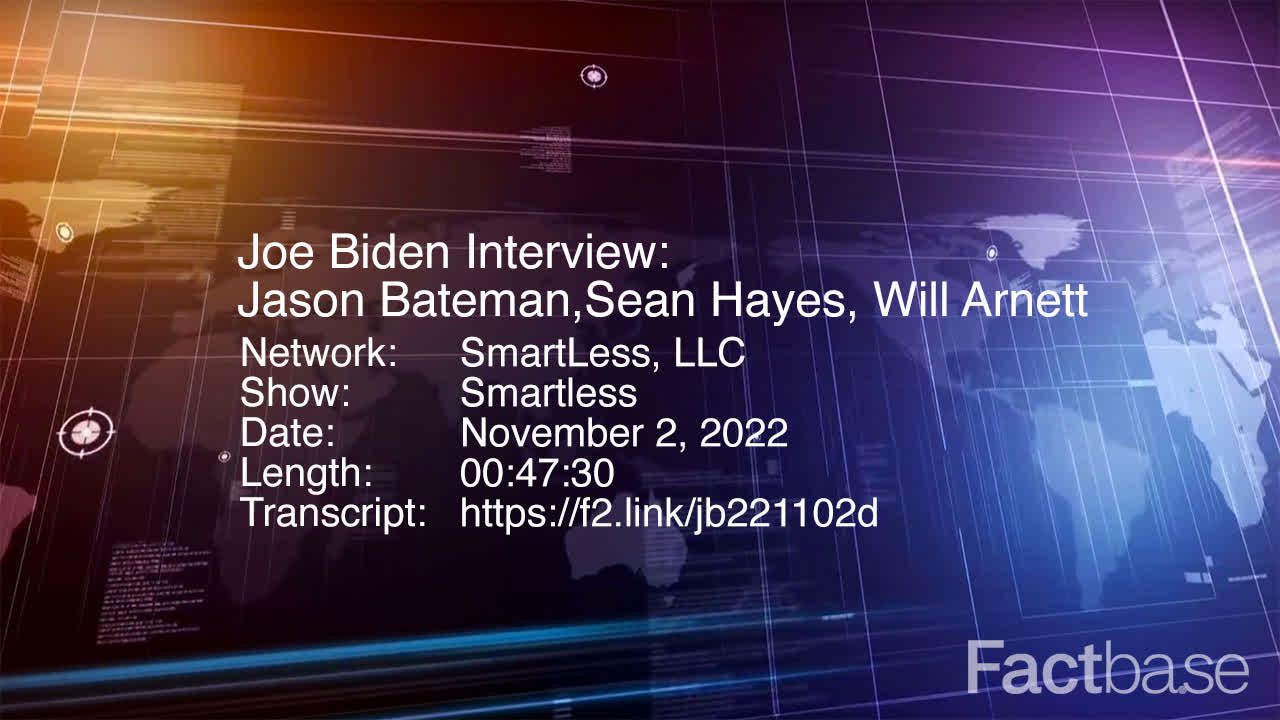
00:07:47-00:07:54 (7 sec)

"I -- I looked up your index."
128
Joe Biden
Very Positive
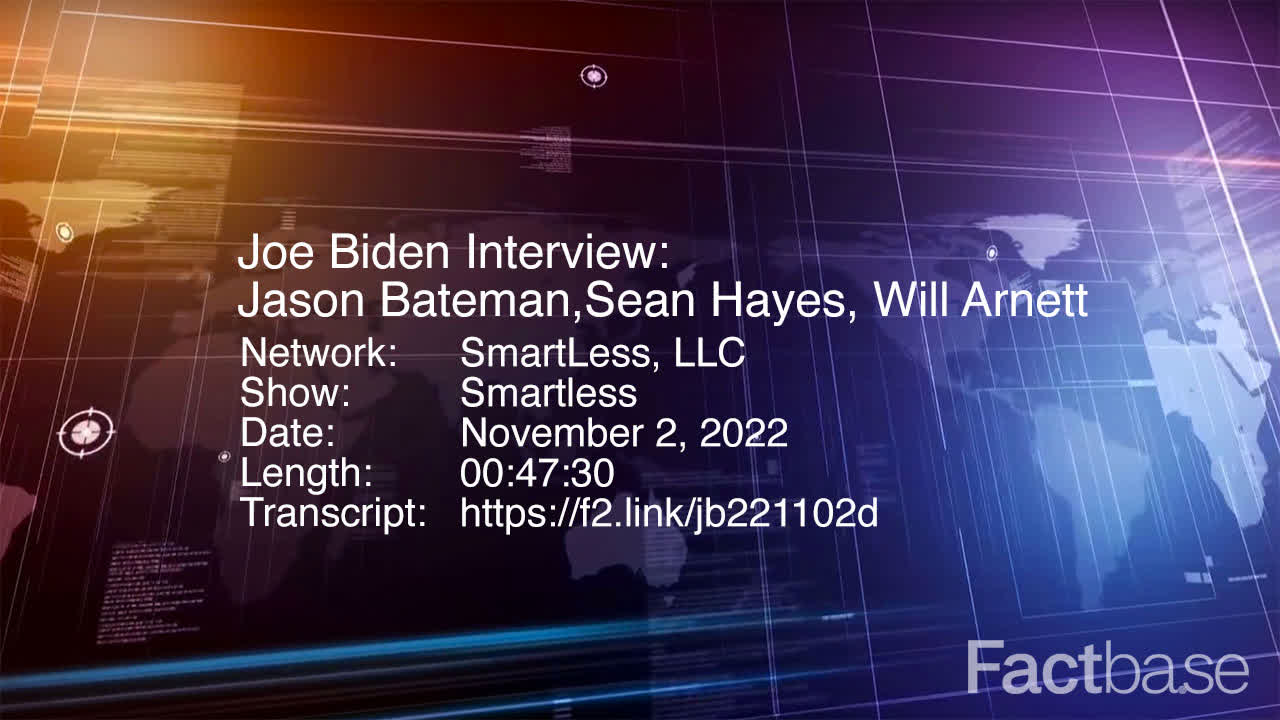
00:07:54-00:07:59 (5 sec)

"I used to be pretty good. I haven't played golf on three --"
129
Jason Bateman
Very Positive
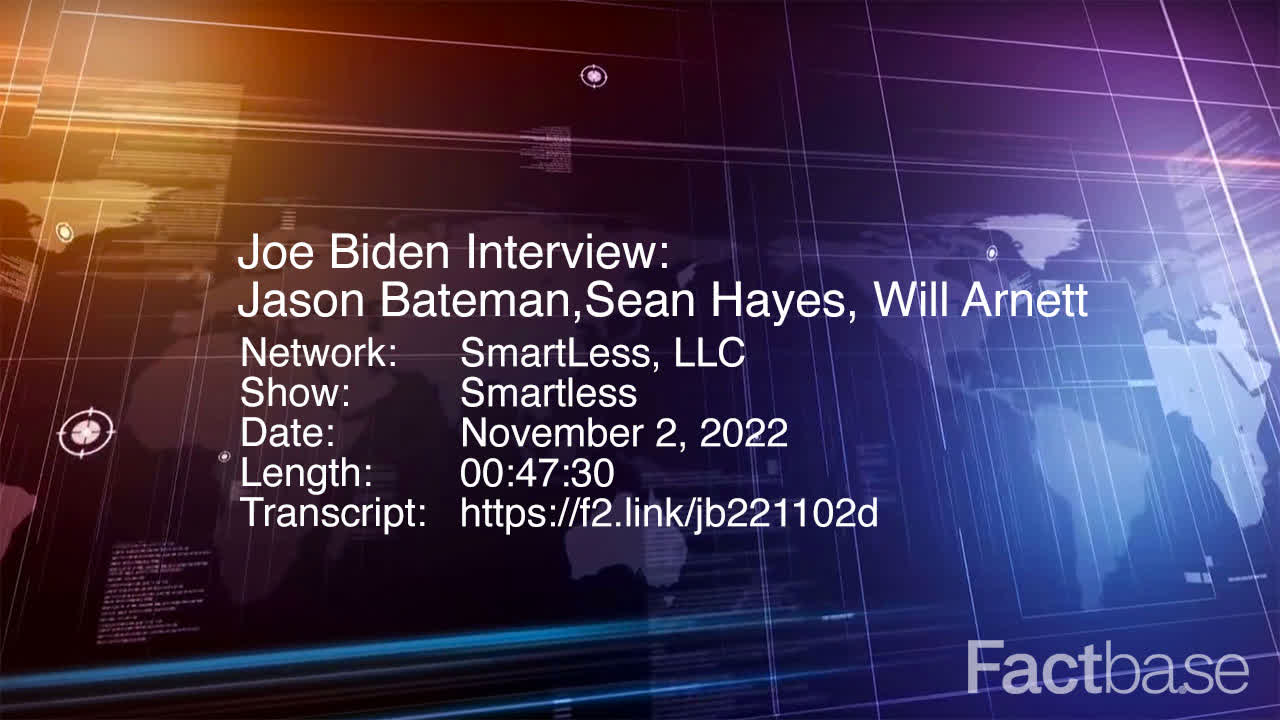
00:07:59-00:08:12 (13 sec)

"Your current index is a 6 7, I believe, which puts you at about a 12, a handicap. What is the best part of your golf game: off the tee, chipping, putting?"
130
Joe Biden
Neutral
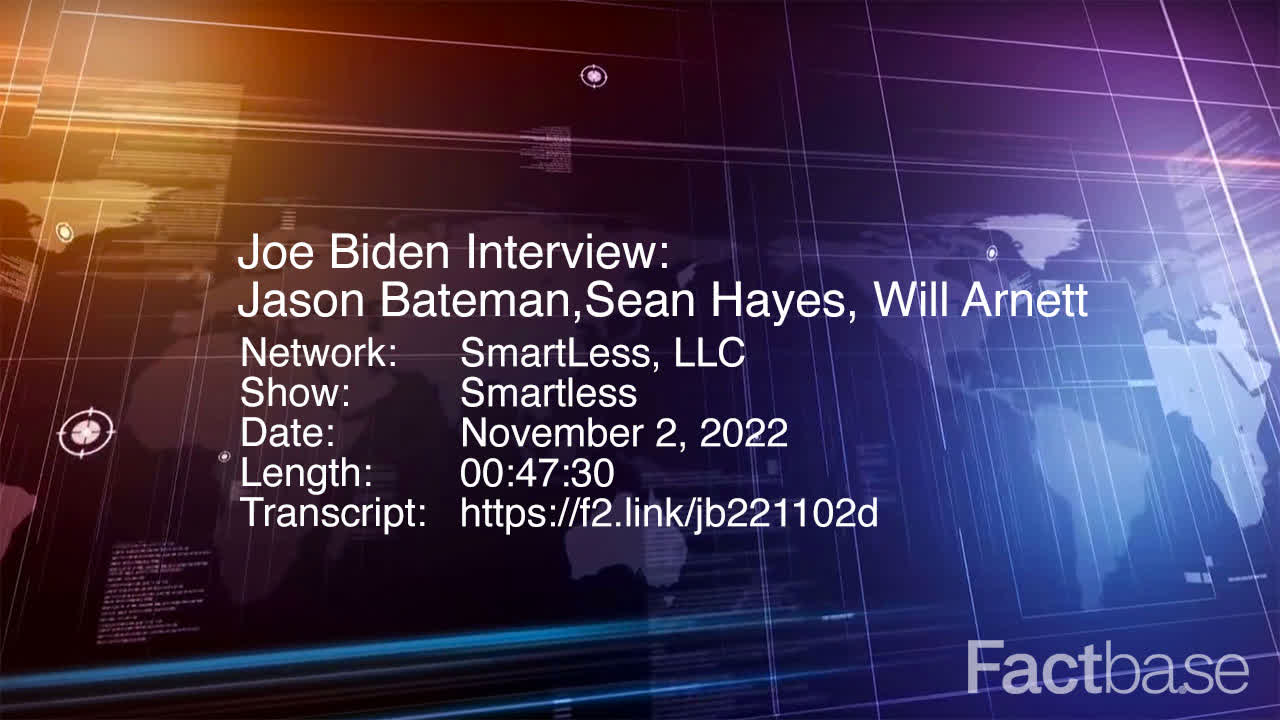
00:08:12-00:08:13 (1 sec)

"Off the tee."
131
Jason Bateman
Neutral
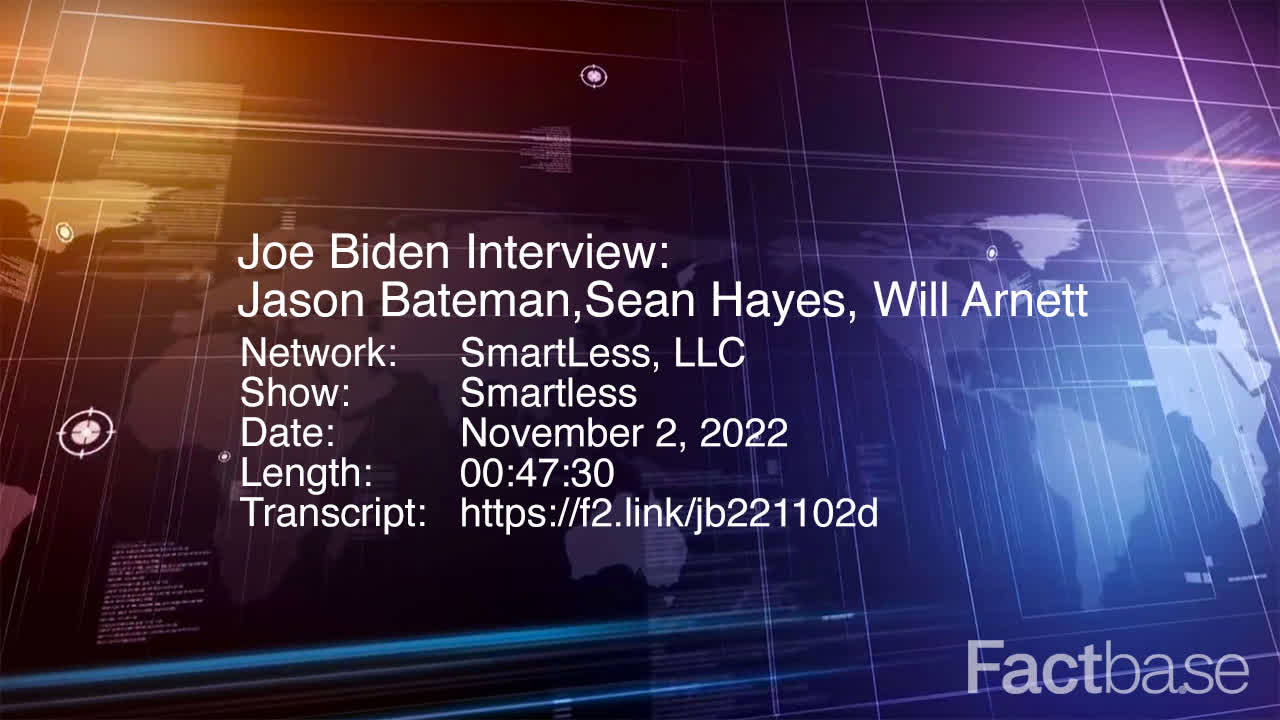
00:08:13-00:08:13 (1 sec)

"Off the tee."
132
Will Arnett
Slightly Positive
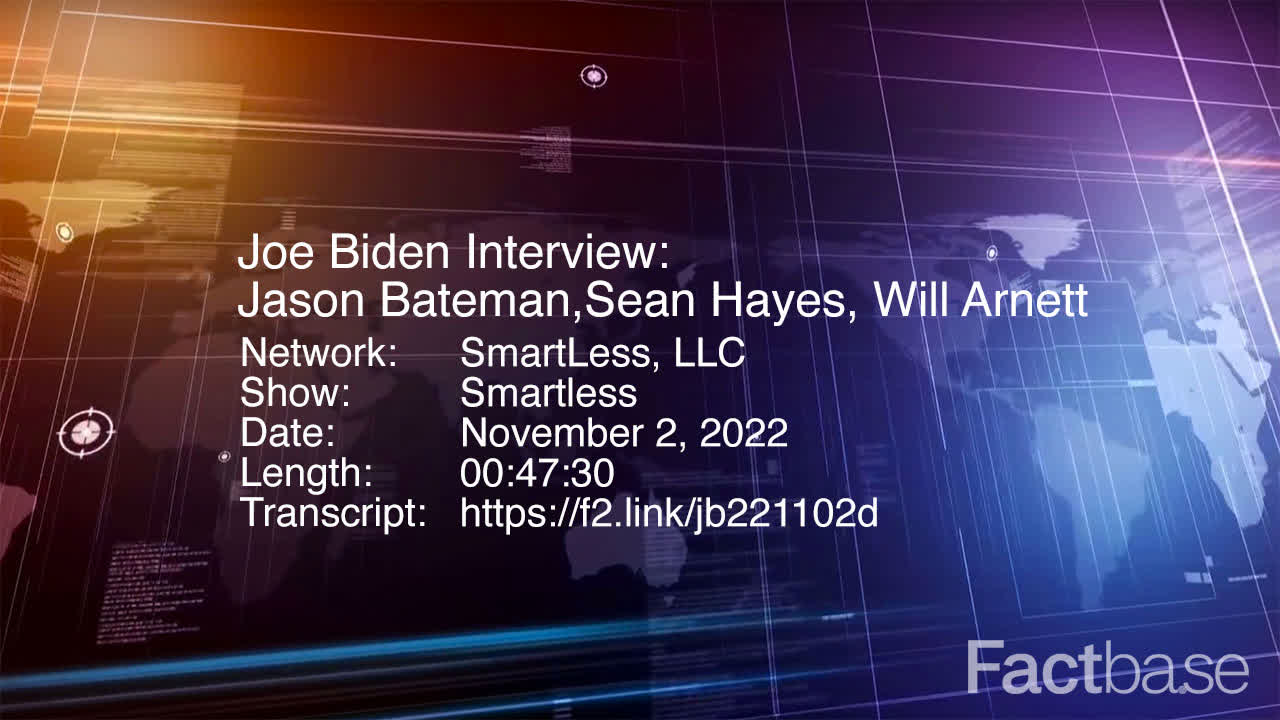
00:08:13-00:08:15 (2 sec)

"Yeah, of course, it is."
133
Jason Bateman
Neutral
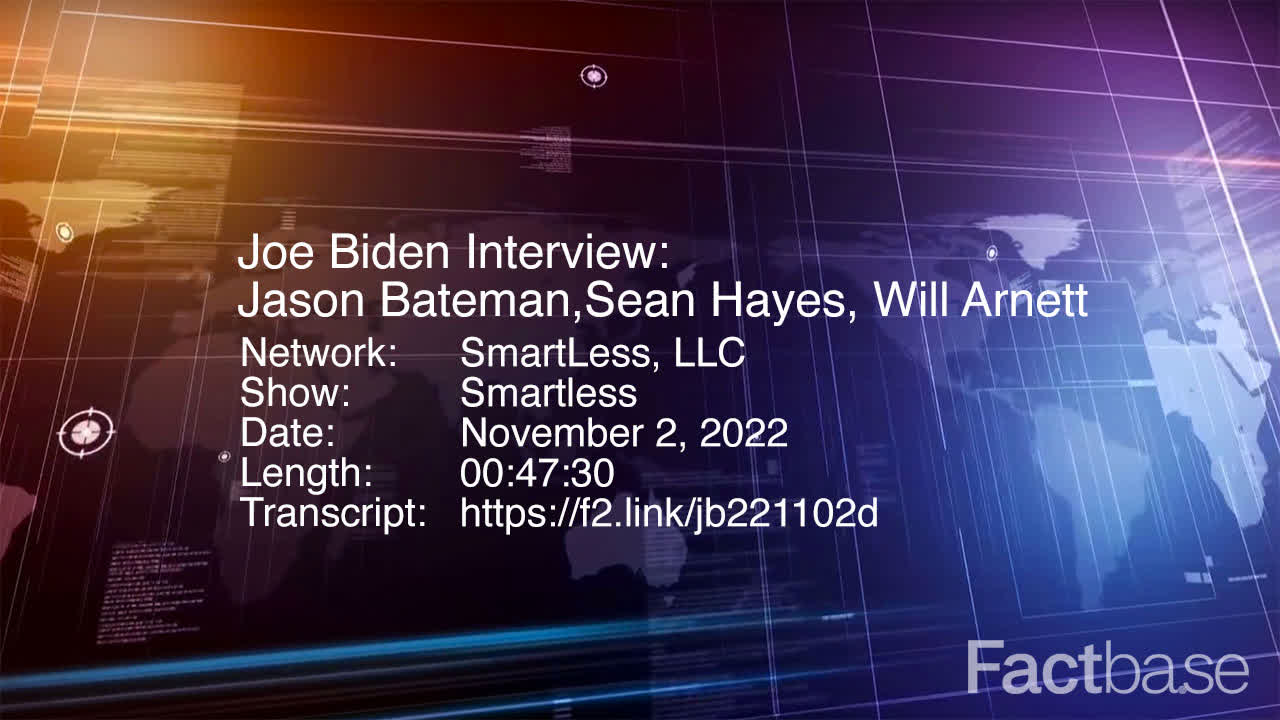
00:08:15-00:08:17 (1 sec)

"Do you hit it far?"
134
Joe Biden
Positive
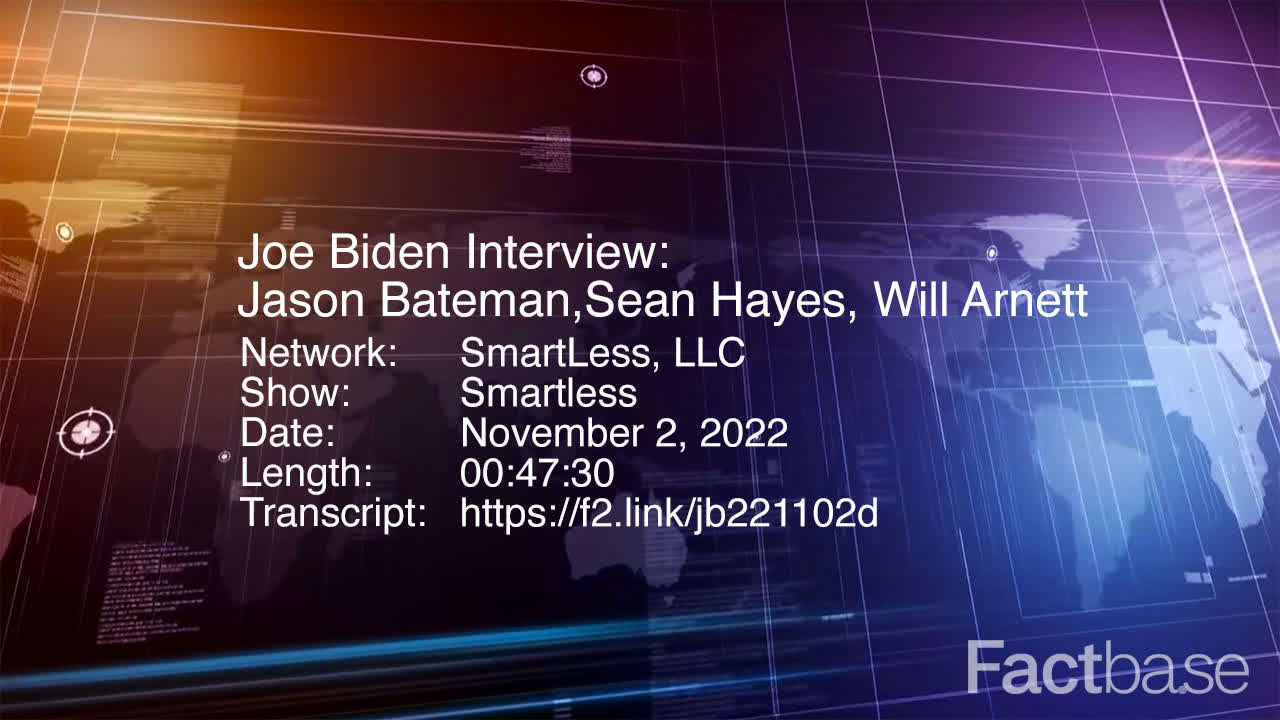
00:08:17-00:08:20 (4 sec)

"Well, yeah. Three years ago, I did. I haven't played much."
135
Will Arnett
Slightly Positive
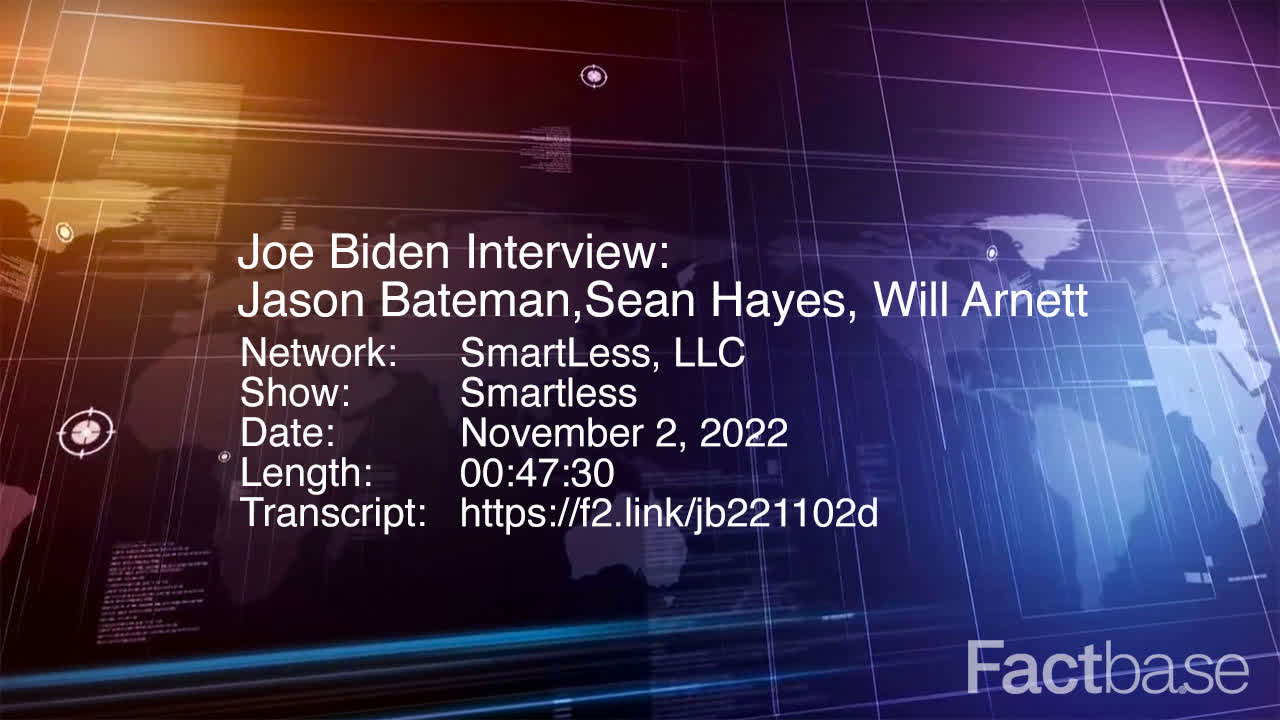
00:08:20-00:08:21 (1 sec)

"Yeah."
136
Joe Biden
Very Positive
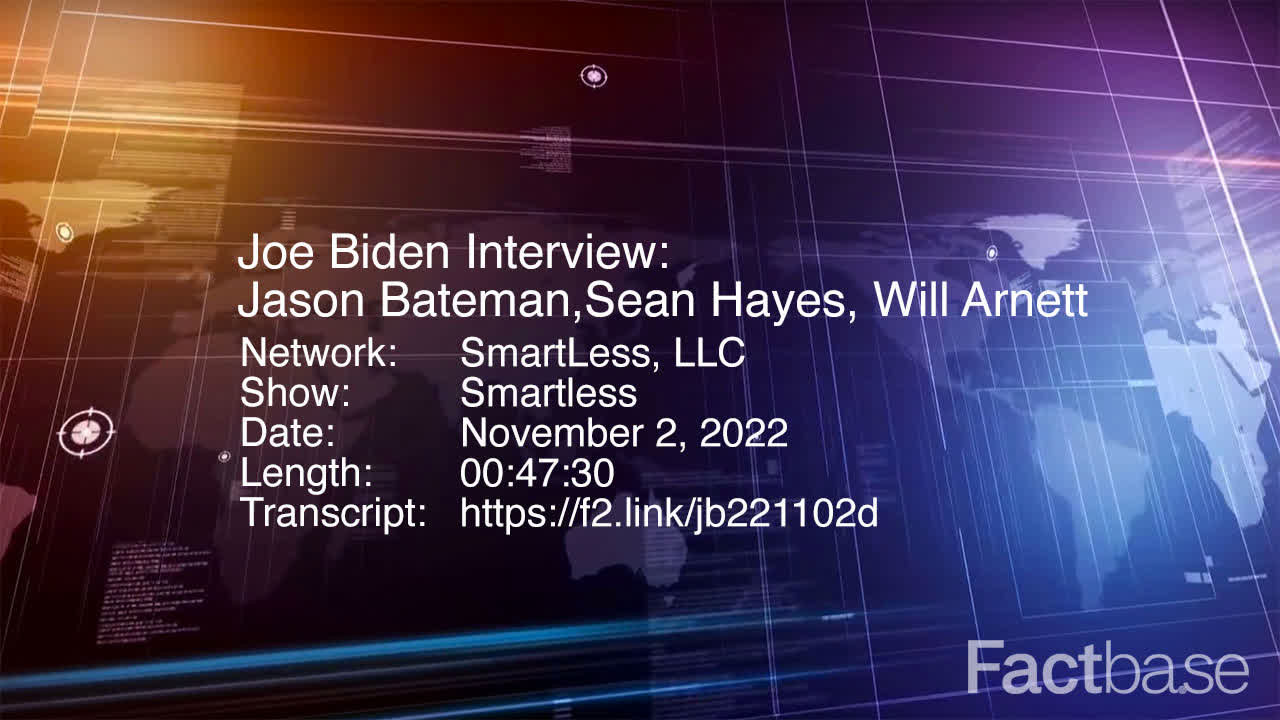
00:08:21-00:08:42 (21 sec)

"We added up, they figured out that I try to -- when I -- when I'm home in Delaware, it was a place I can go where I can play -- it's a -- it's a private club. It's called Fieldstone. But I -- I play -- all of this is golf, and I get in. I've -- I've not played 18 holes lately. I've nine holes and --"
137
Will Arnett
Very Positive
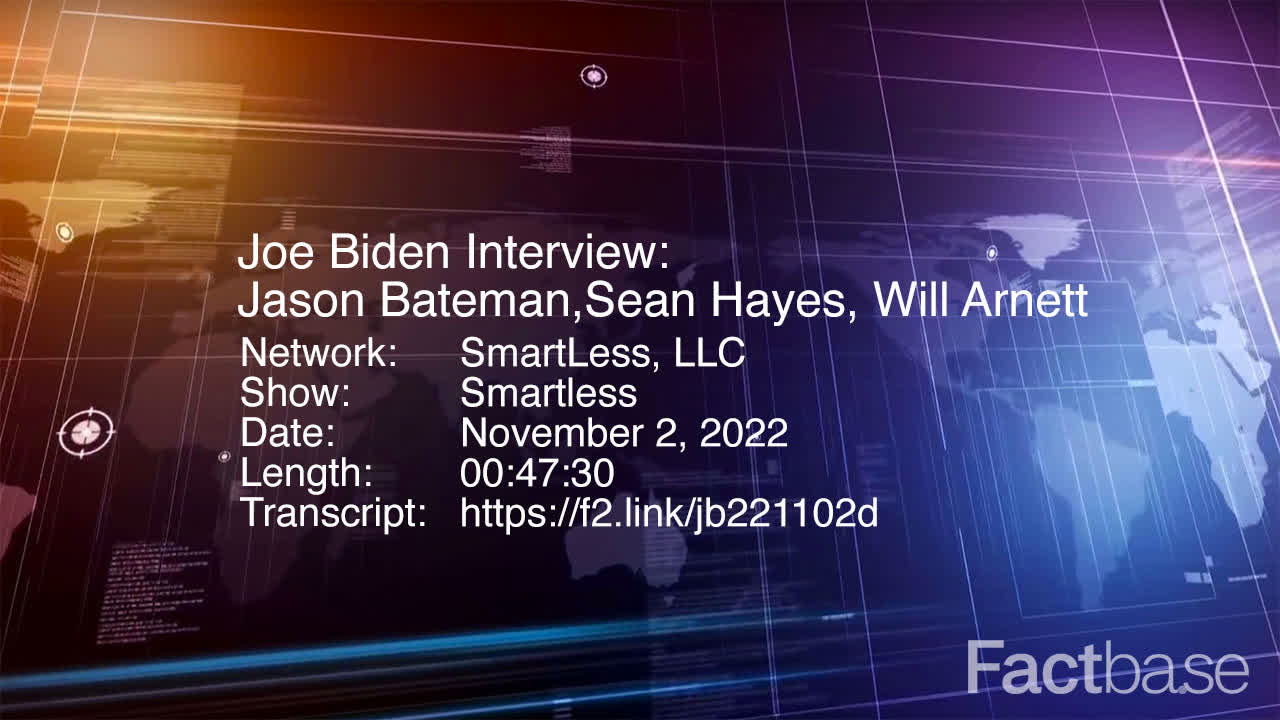
00:08:42-00:08:53 (10 sec)

"I'm with you on that. We play a lot. Jason and I play a lot of golf, and it's [Inaudible]"
138
Sean Hayes
Neutral
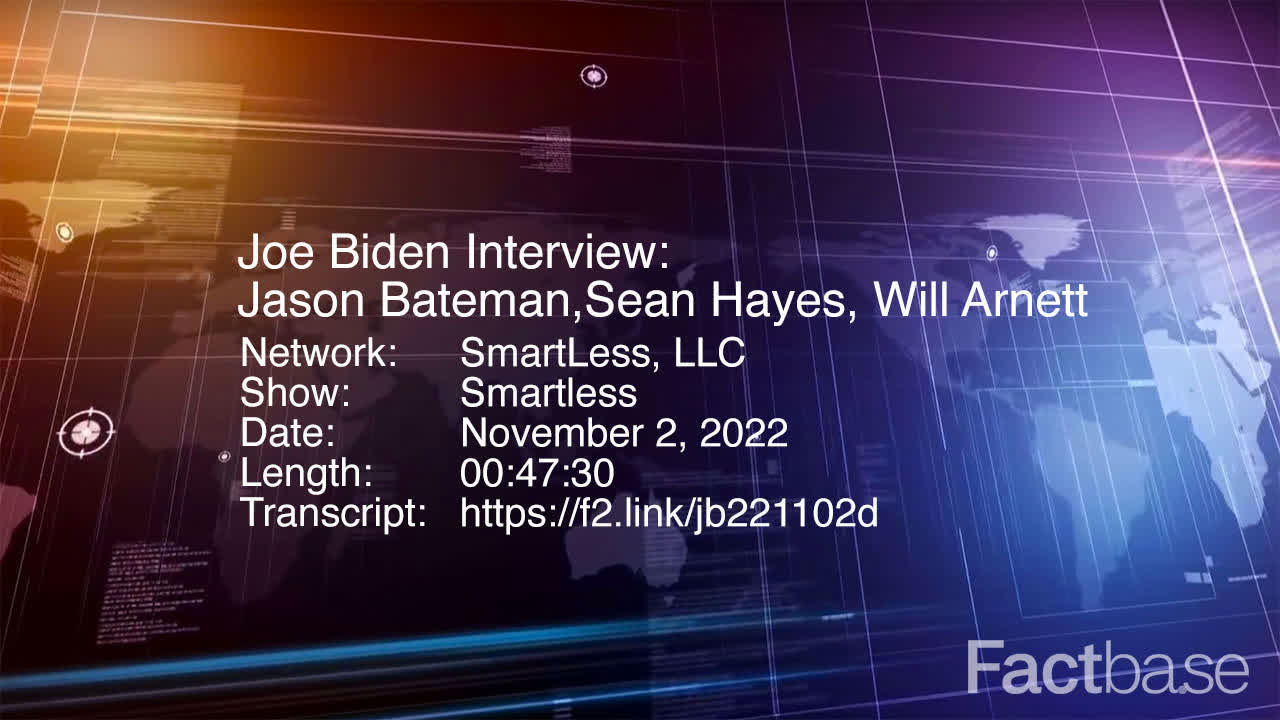
00:08:53-00:08:59 (7 sec)

"Will, big things. He thinks golf should be 12 holes."
139
Will Arnett
Very Positive
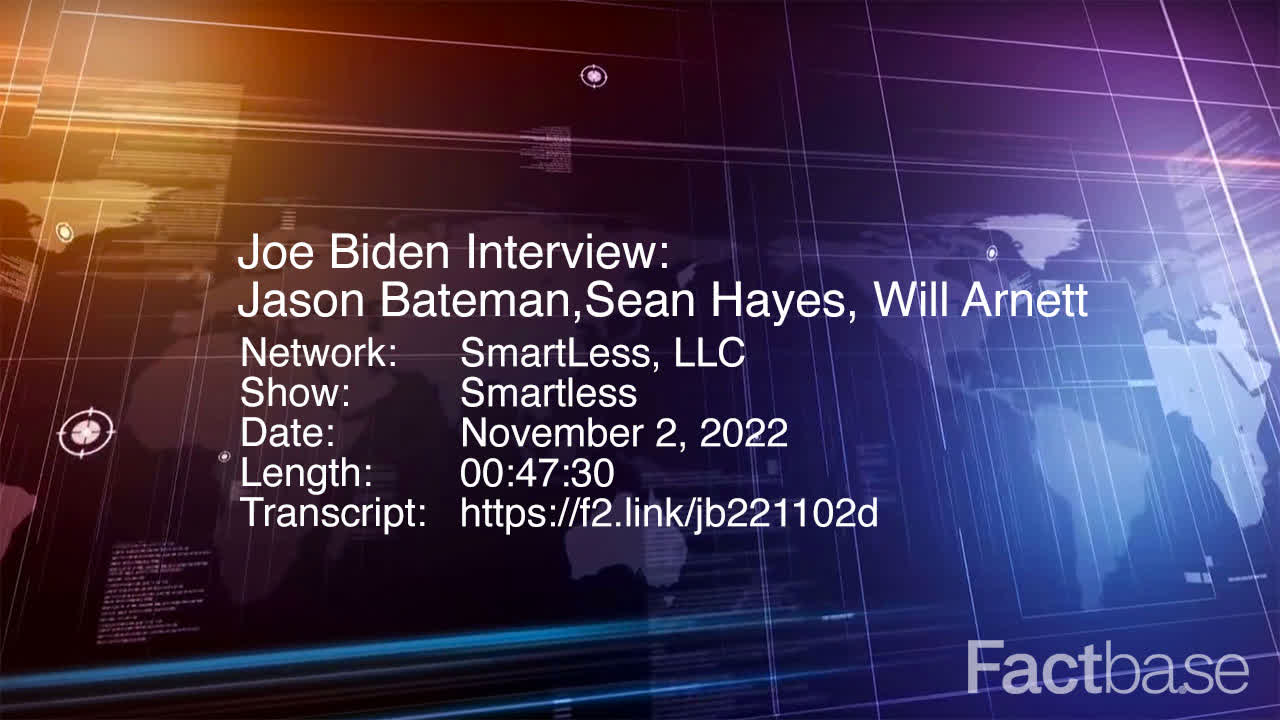
00:08:59-00:09:07 (7 sec)

"I think it should be 12 holes. I think it should be six and six. I think that'd be perfect."
140
Joe Biden
Neutral
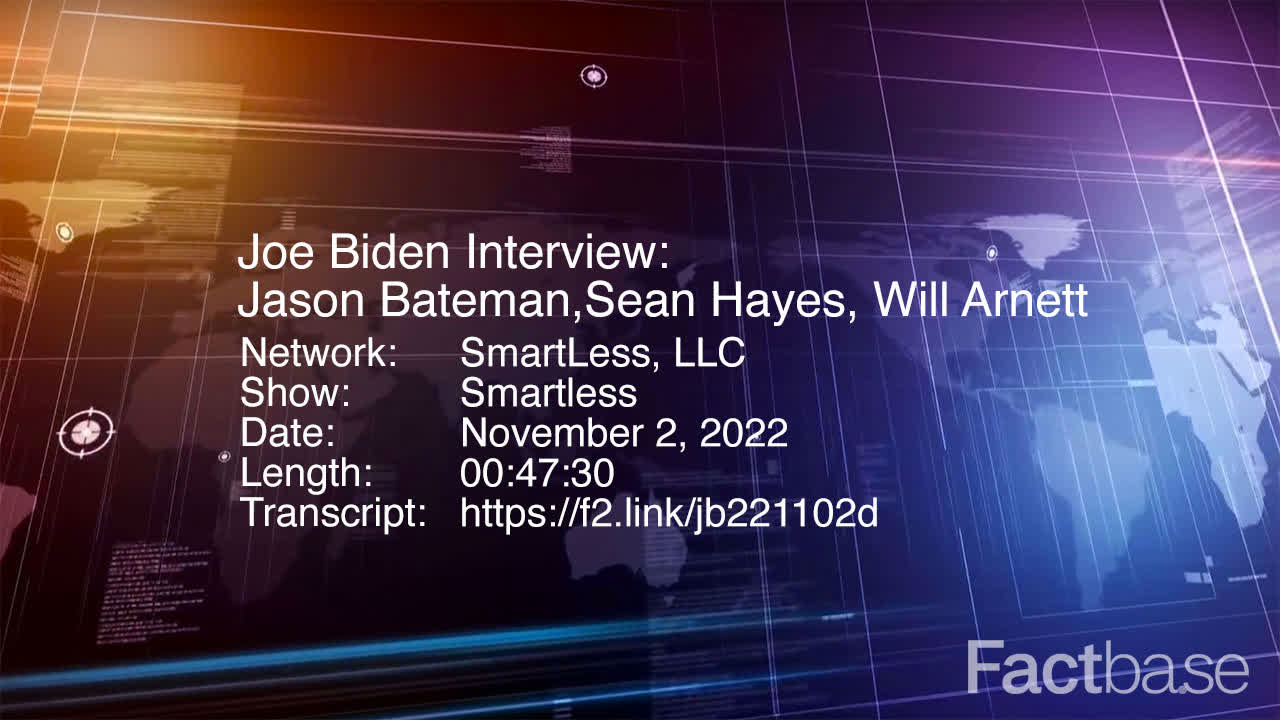
00:09:07-00:09:10 (3 sec)

"By the way, there's a lot of national debate about that."
141
Will Arnett
Neutral
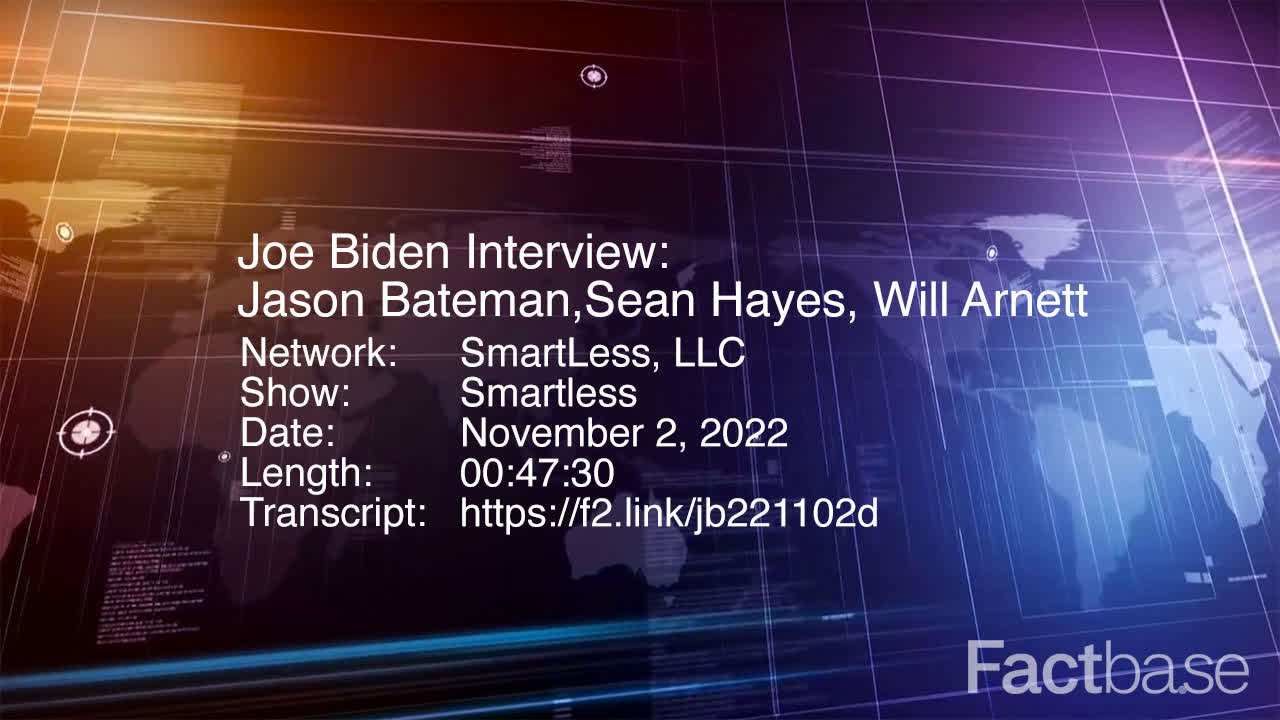
00:09:10-00:09:10 ( sec)

"Is there really?"
142
Joe Biden
Slightly Positive
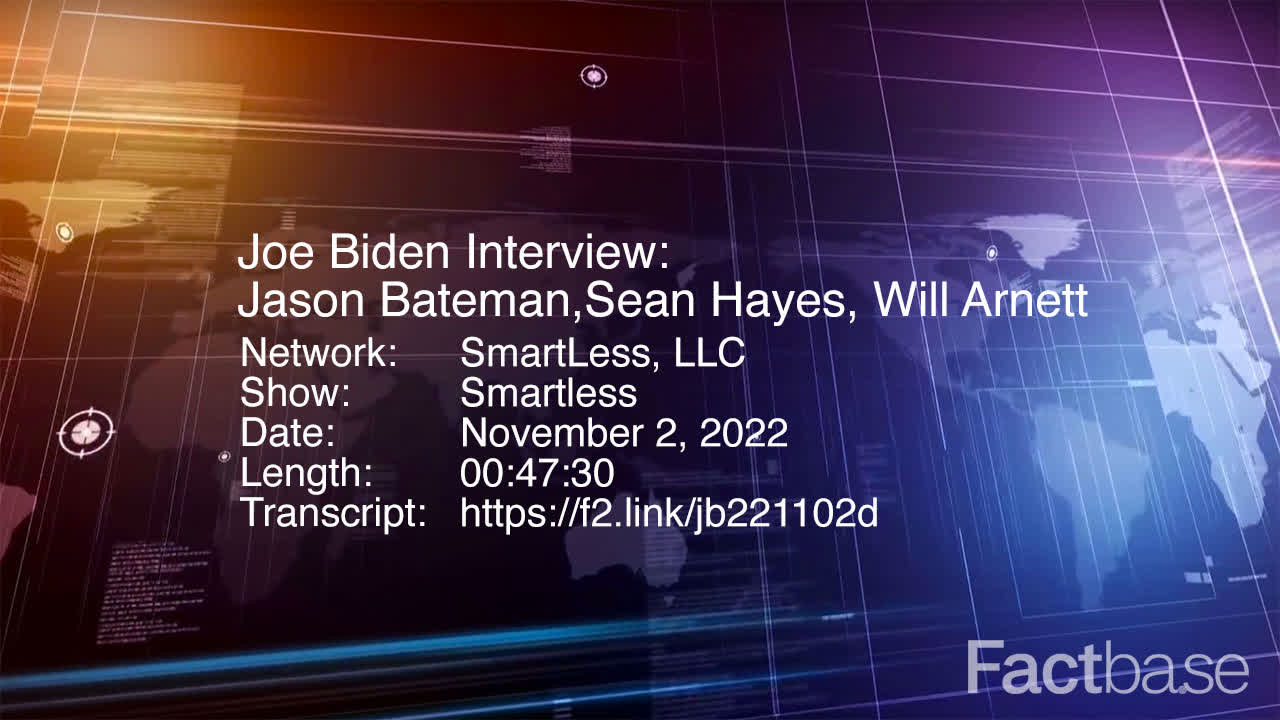
00:09:10-00:09:13 (2 sec)

"Yeah, there is about [Inaudible]"
143
Will Arnett
Neutral
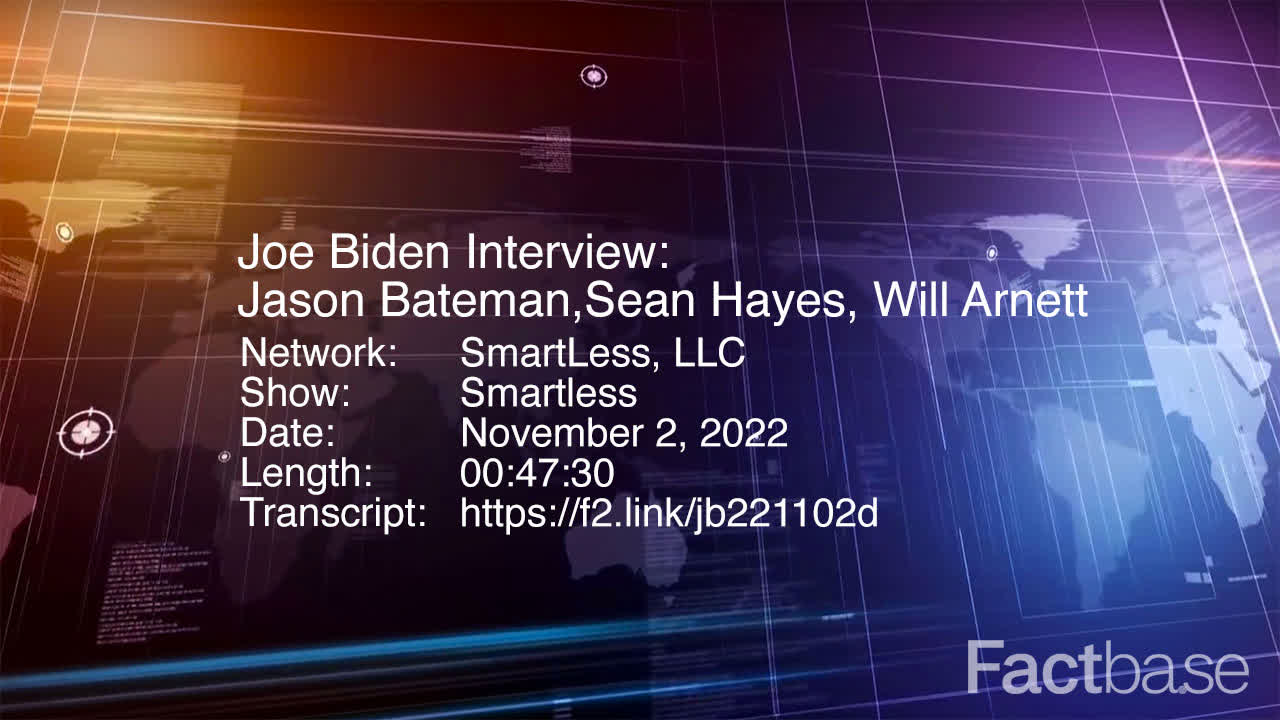
00:09:13-00:09:15 (3 sec)

"Do you want to appoint me the golf czar?"
144
Sean Hayes
Neutral
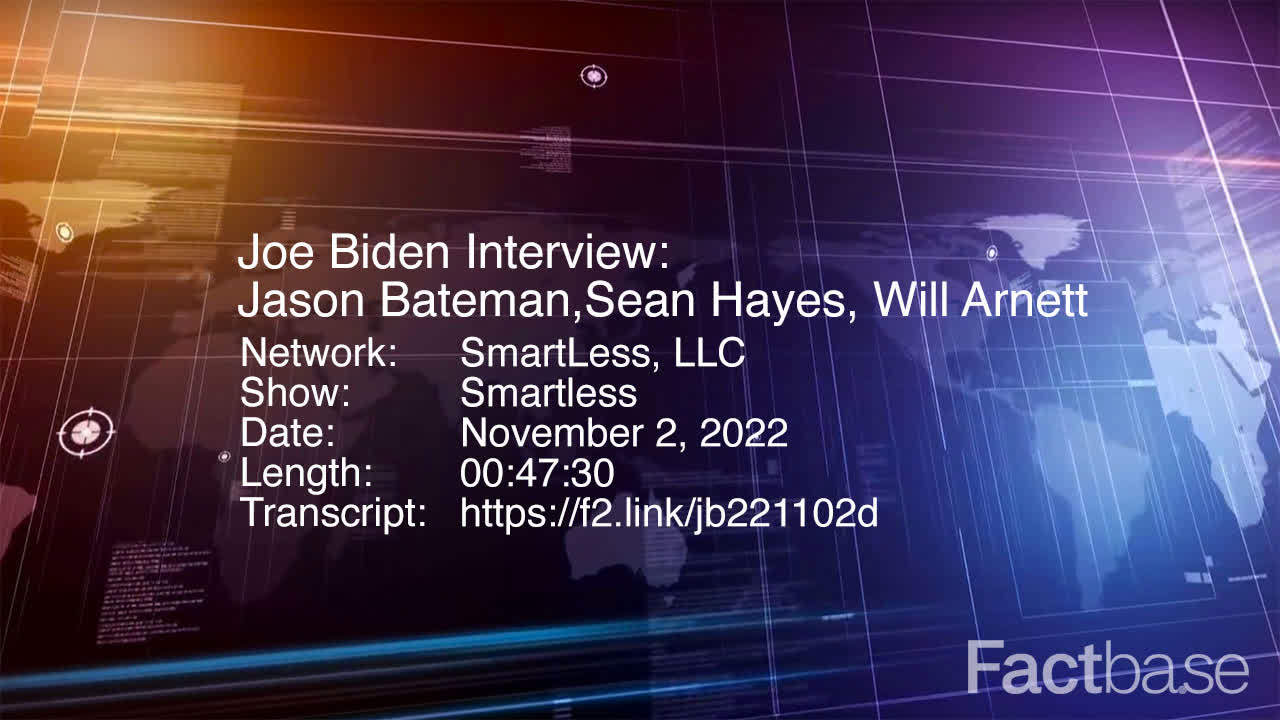
00:09:15-00:09:16 (1 sec)

"Just because he's [Inaudible]"
145
Jason Bateman
Slightly Negative
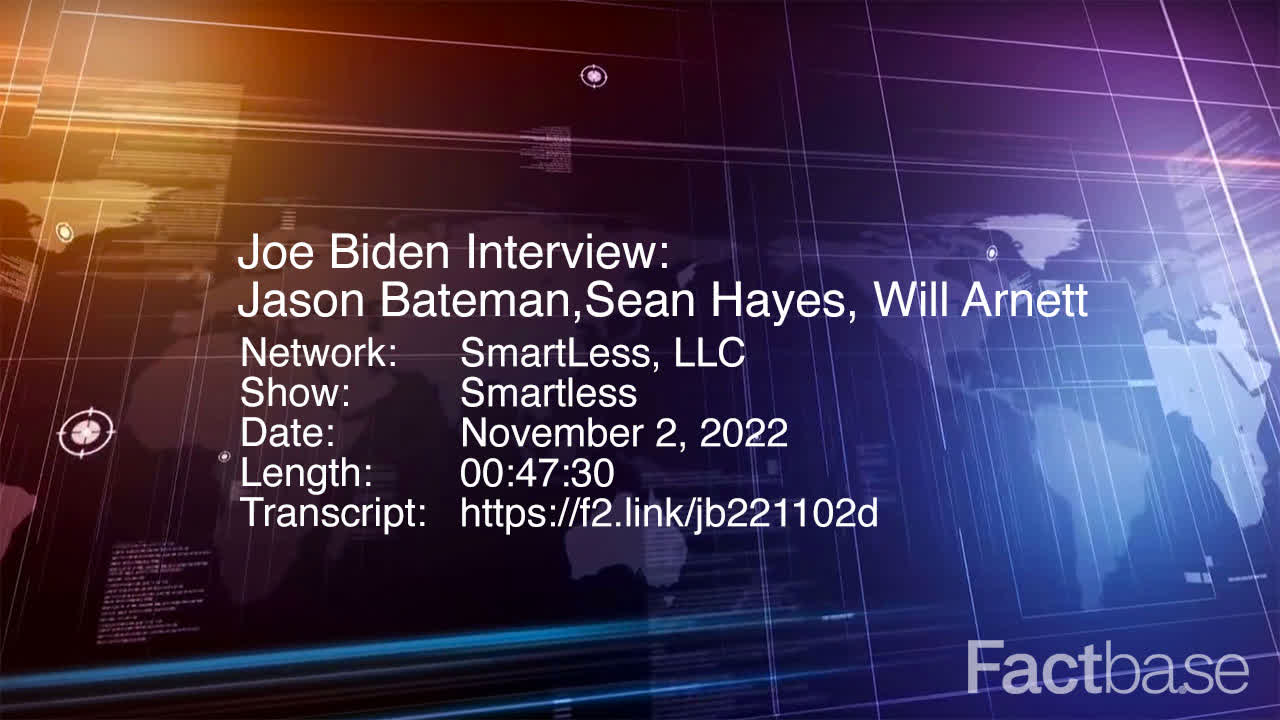
00:09:16-00:09:22 (5 sec)

"At 12 usually. It falls apart on the 12th fall, and he just starts whining."
146
Will Arnett
Leans Negative
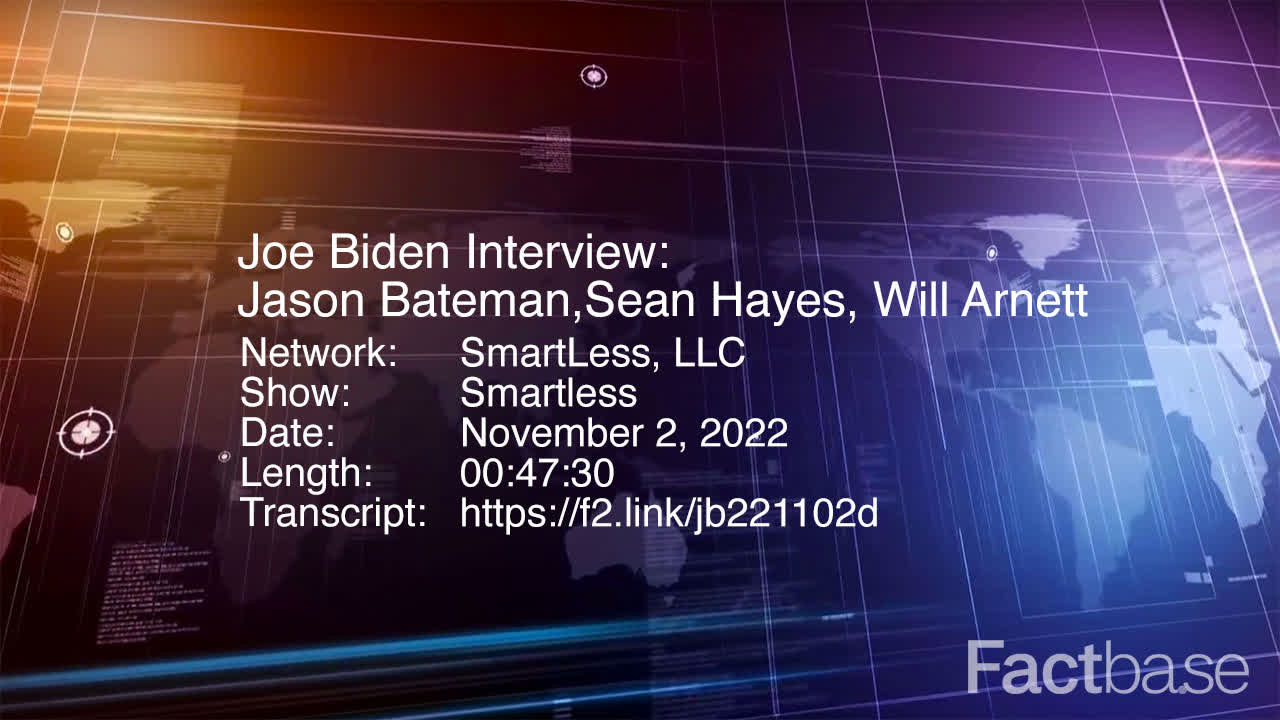
00:09:22-00:09:26 (4 sec)

"I'm 52, and I'm tired. And I like to spend time with my kids."
147
Jason Bateman
Neutral
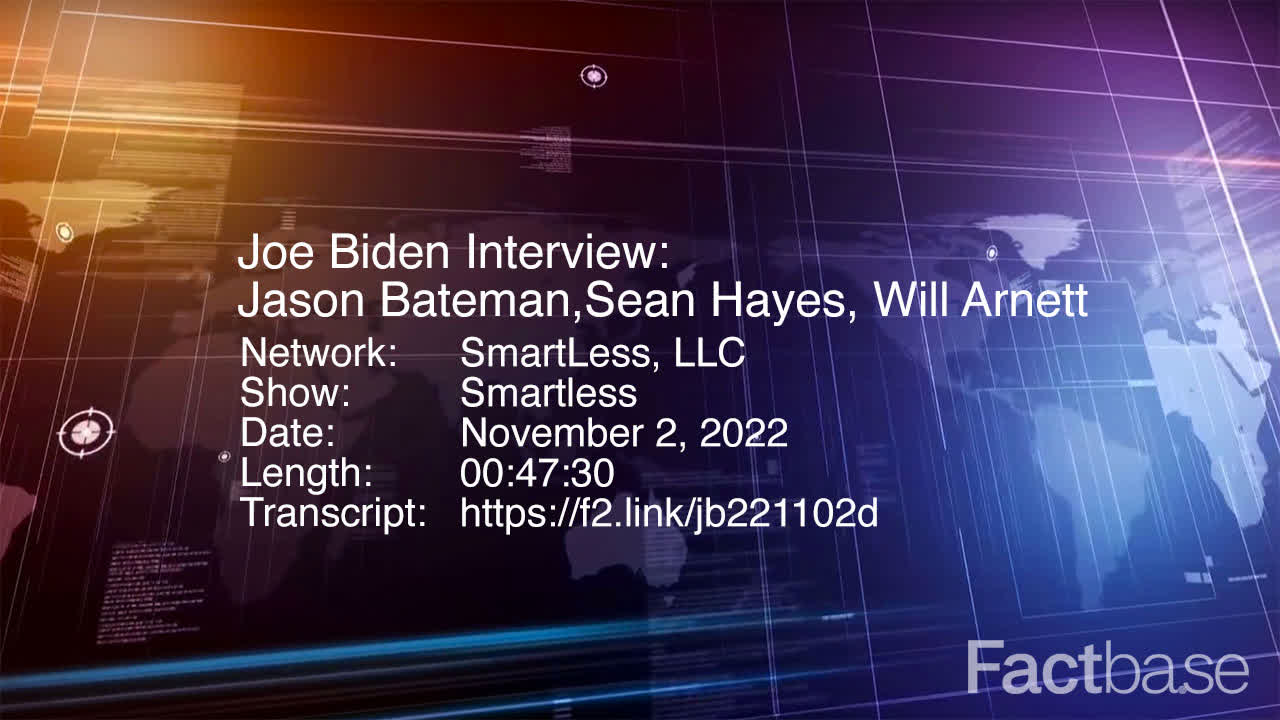
00:09:26-00:09:28 (1 sec)

"You work on your game."
148
Joe Biden
Very Positive
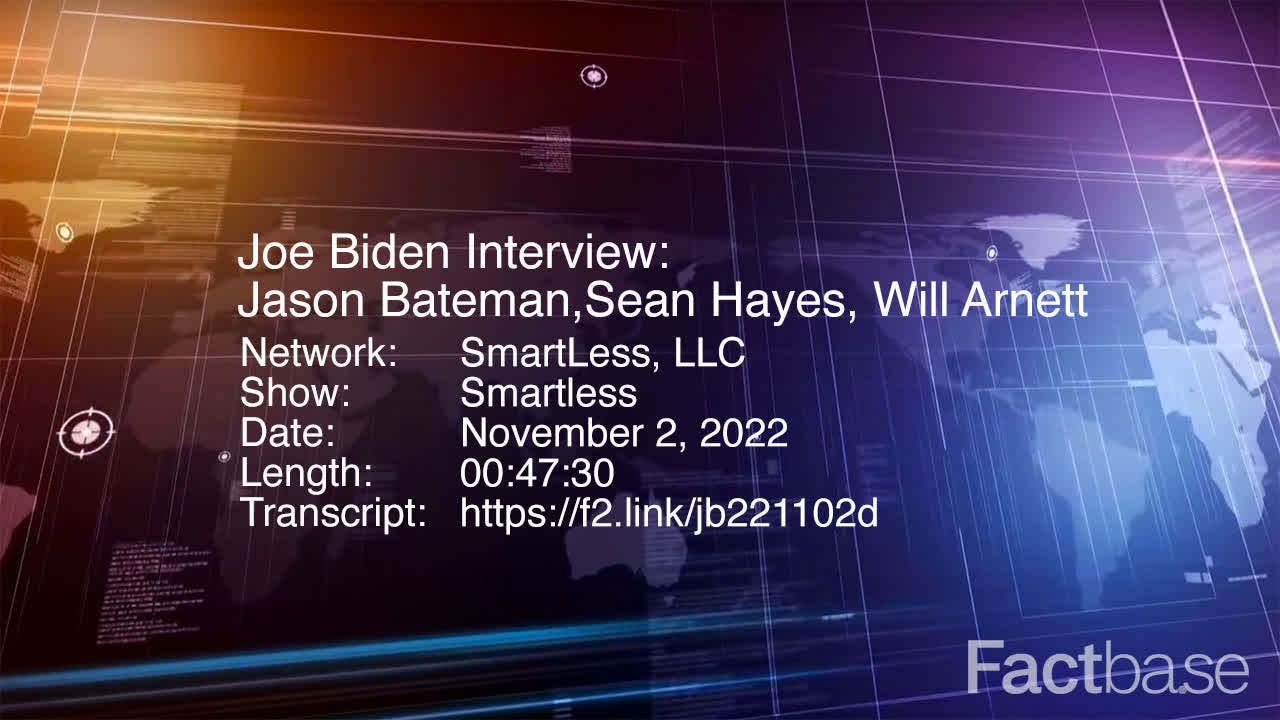
00:09:28-00:09:32 (4 sec)

"By the way, that's my best recreation, my granddaughters."
149
Will Arnett
Slightly Positive
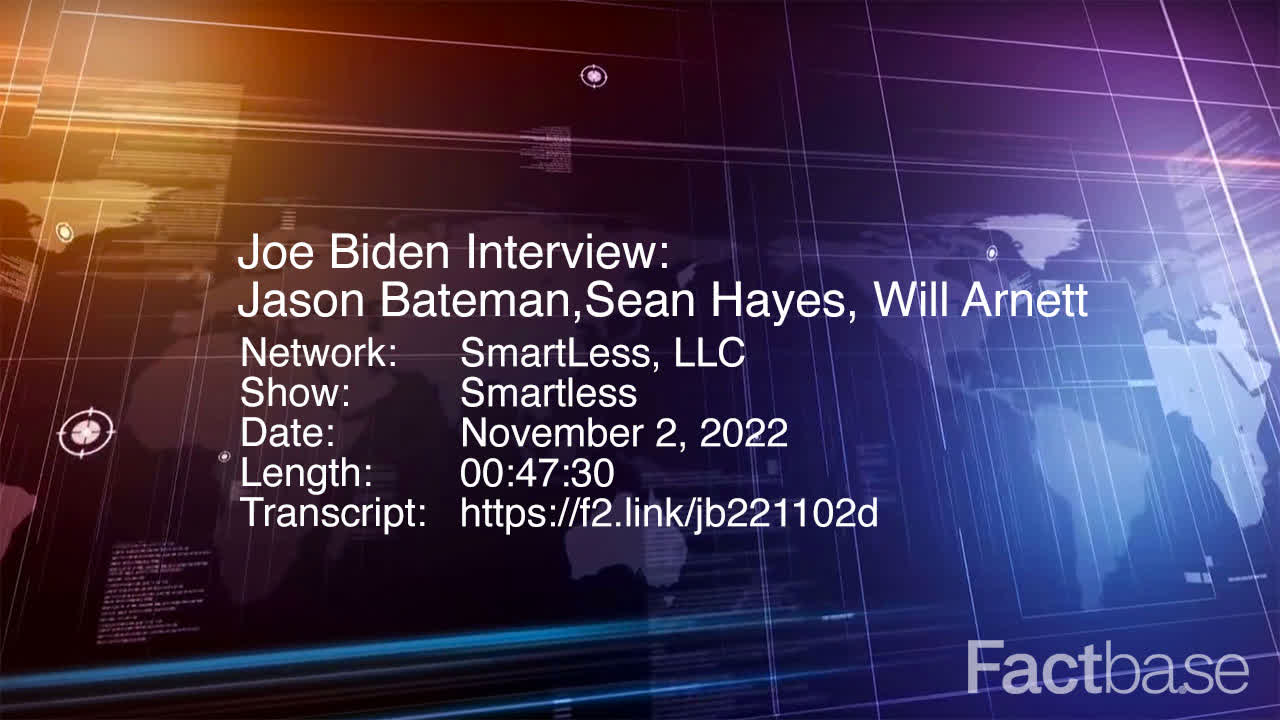
00:09:32-00:09:32 ( sec)

"Yeah."
150
Joe Biden
Somewhat Negative
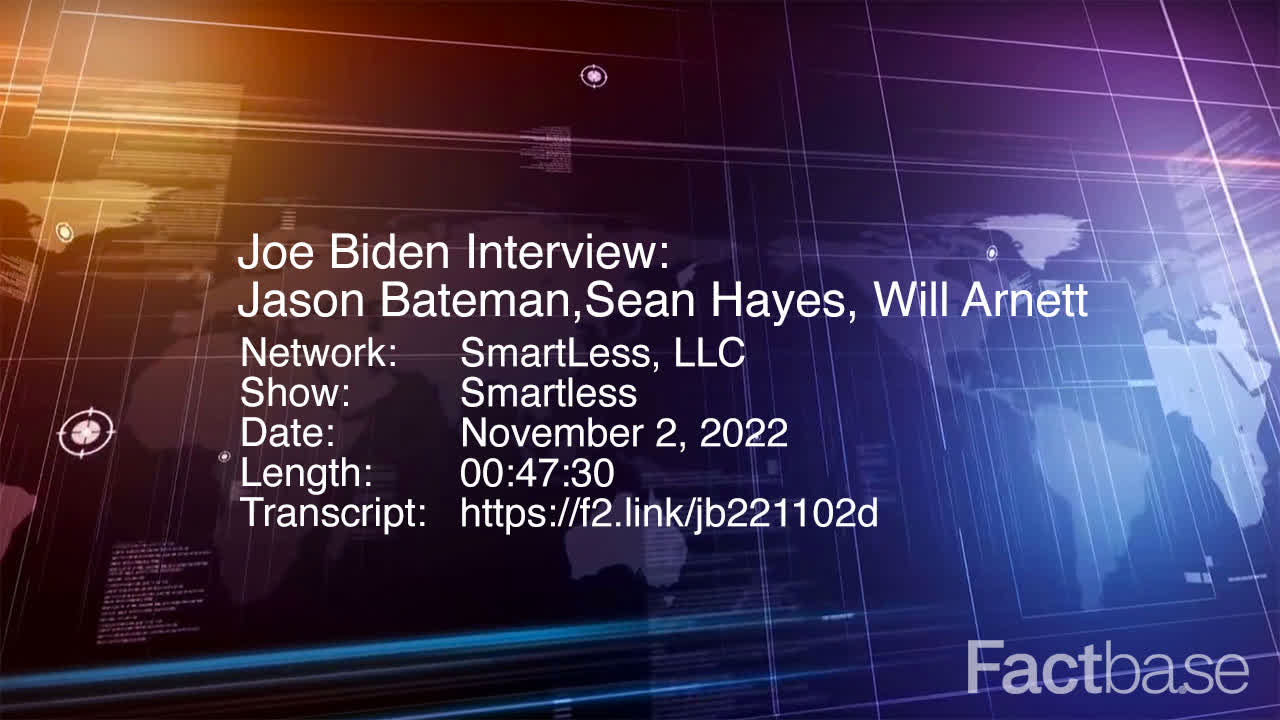
00:09:32-00:09:33 (1 sec)

"They're crazy about me."
151
Will Arnett
Leans Positive
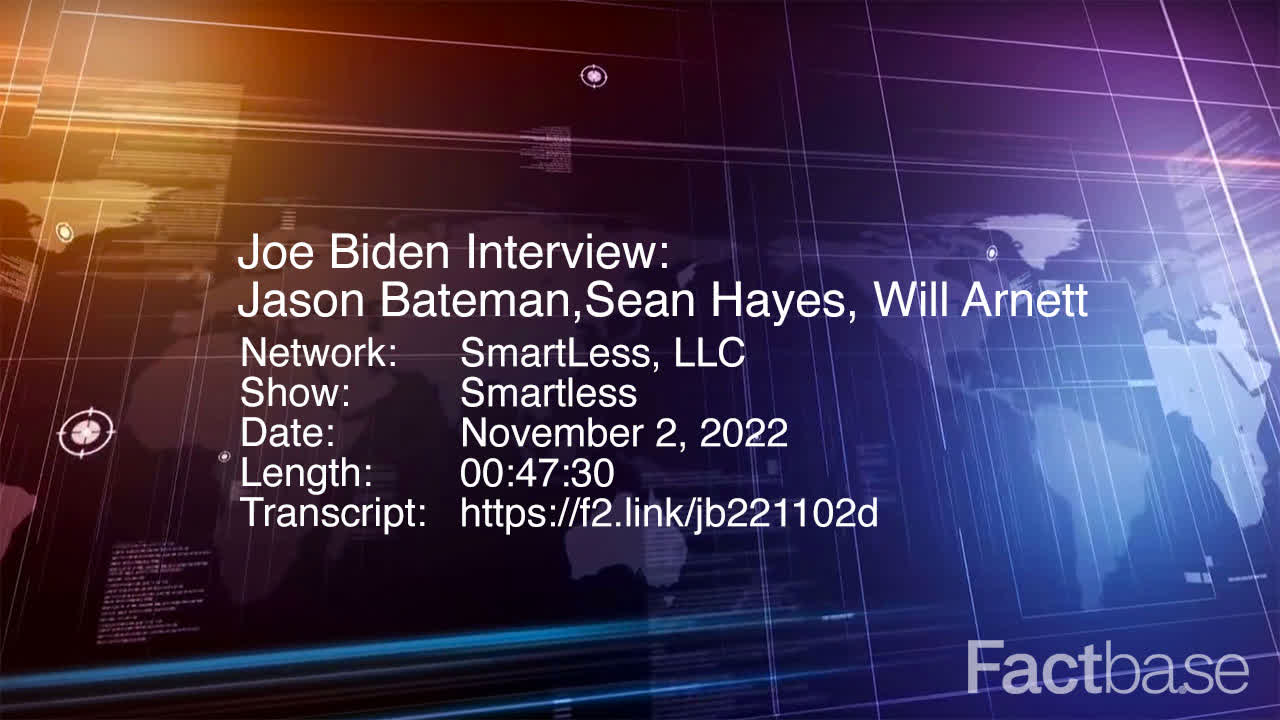
00:09:33-00:09:34 (1 sec)

"I don't blame them. [Crosstalk]"
152
Joe Biden
Leans Positive
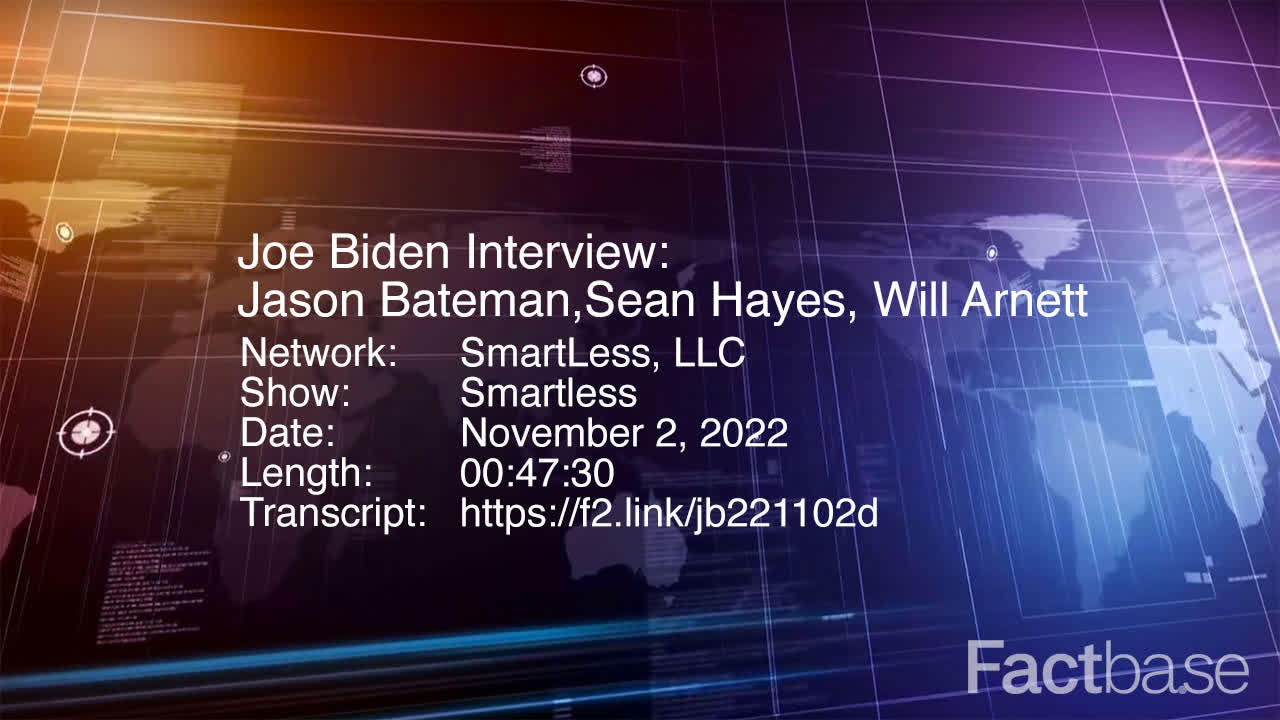
00:09:34-00:09:36 (2 sec)

"I know you think I'm kidding. [Crosstalk]"
153
Joe Biden
Neutral
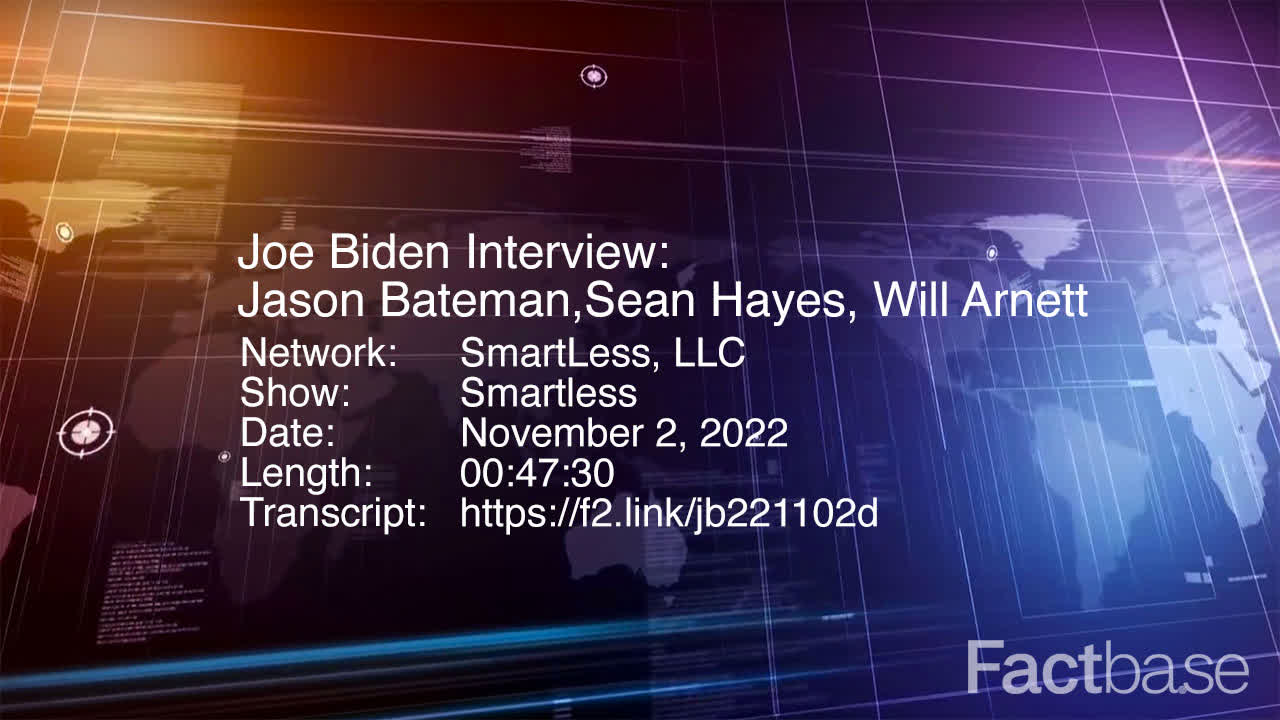
00:09:36-00:09:41 (4 sec)

"Every single day, I contact every one of my grandchildren."
154
Sean Hayes
Very Positive
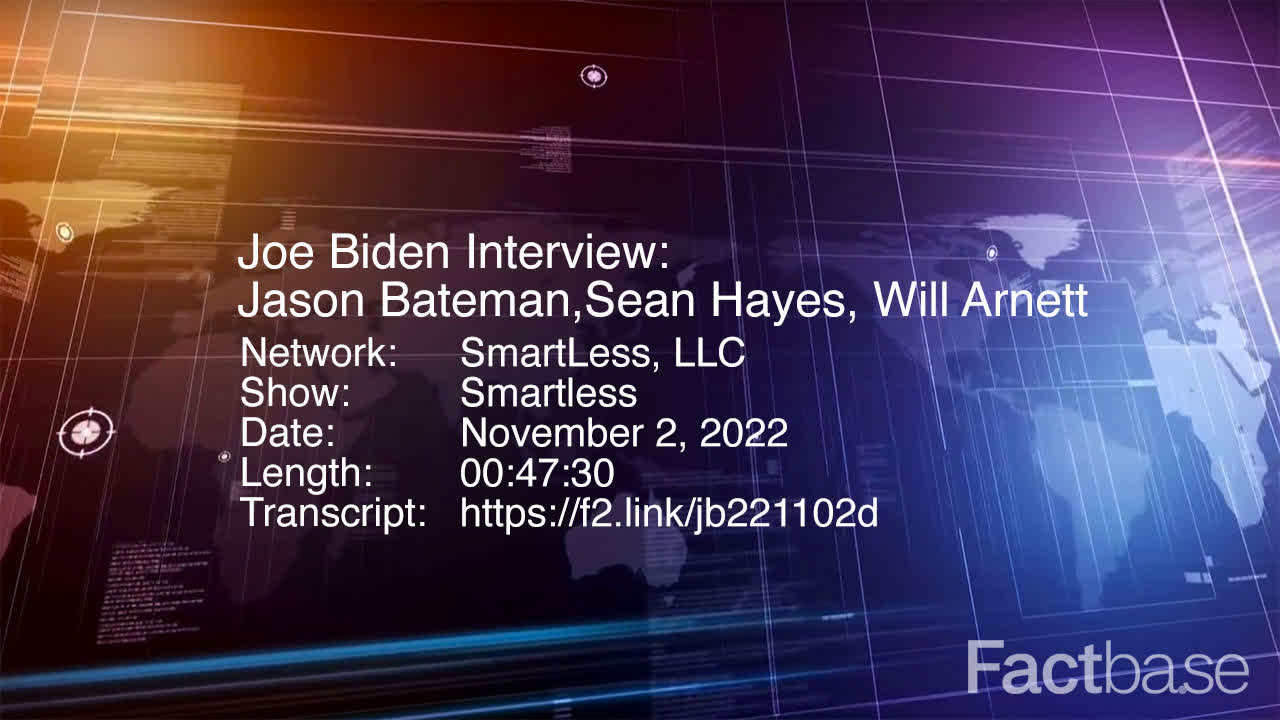
00:09:41-00:09:42 (1 sec)

"That's amazing."
155
Jason Bateman
Neutral
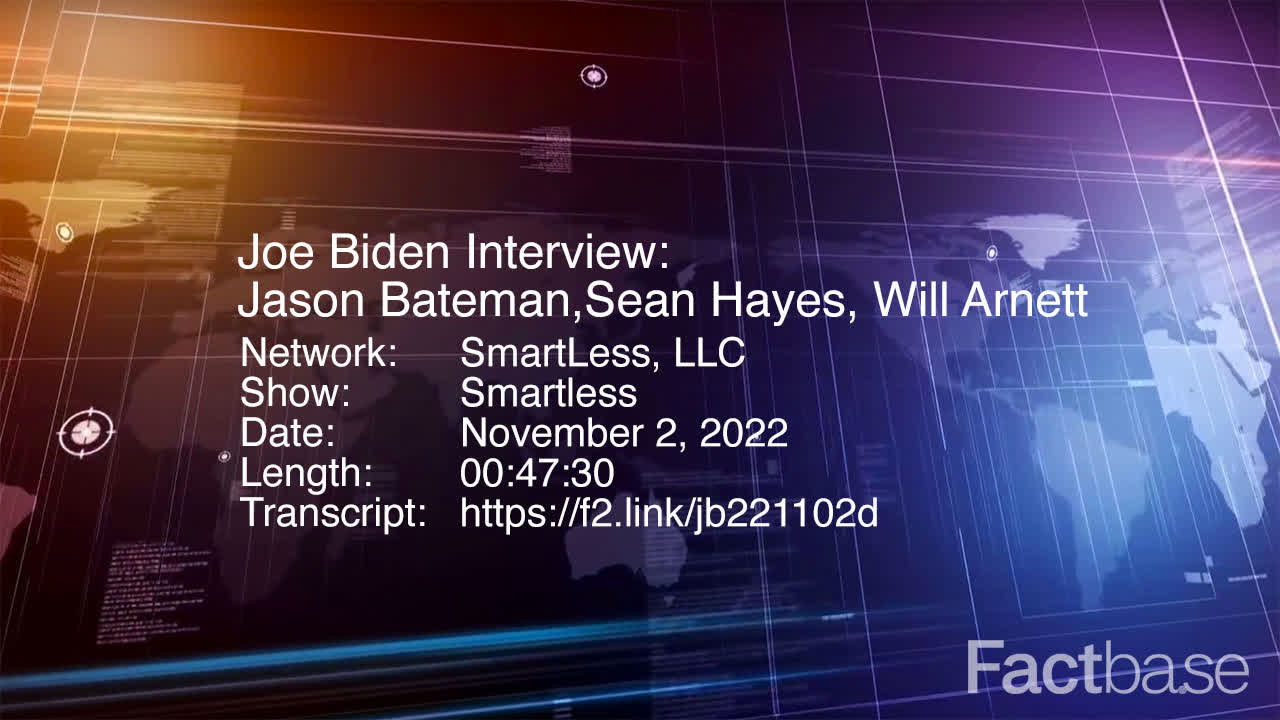
00:09:42-00:09:53 (12 sec)

"All right. You got to pick one of these three things as the coolest thing about -- about being the man. Is it the White House, is it Air Force One, or is it the Beast? Which -- you can only -- you can only --"
156
Will Arnett
Neutral
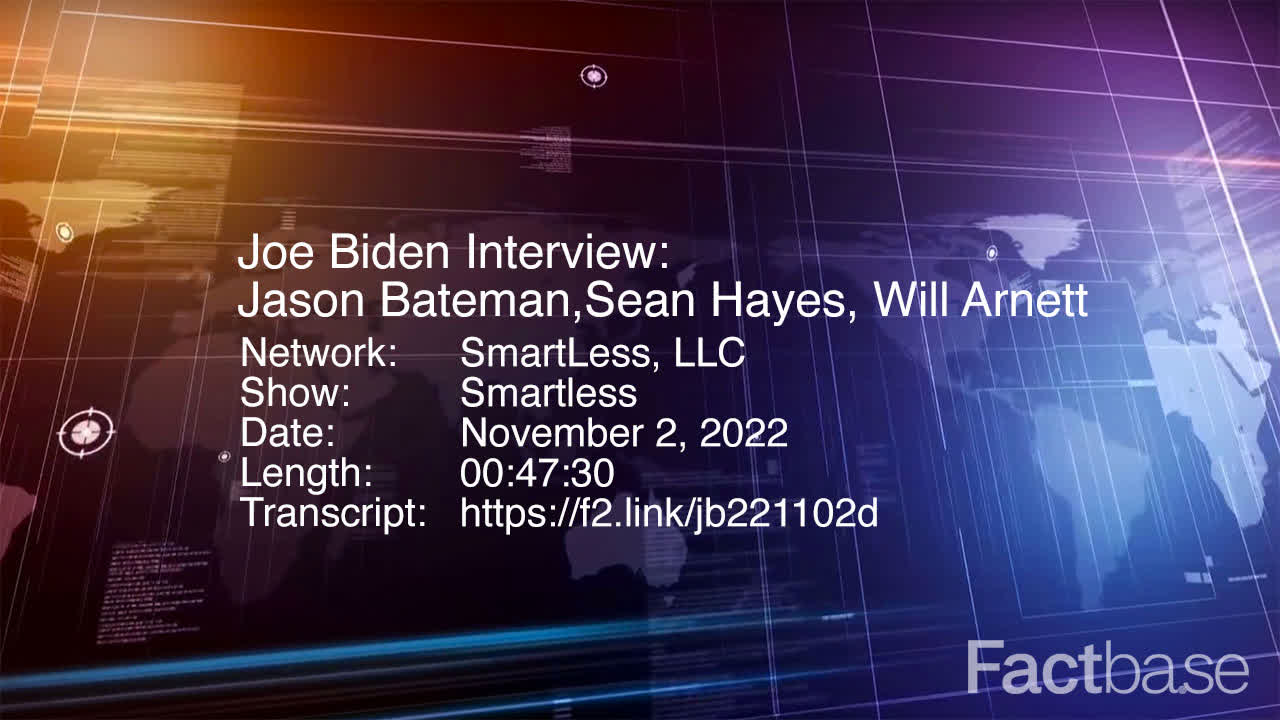
00:09:53-00:09:55 (2 sec)

"You don't mean Marshawn Lynch?"
157
Jason Bateman
Neutral
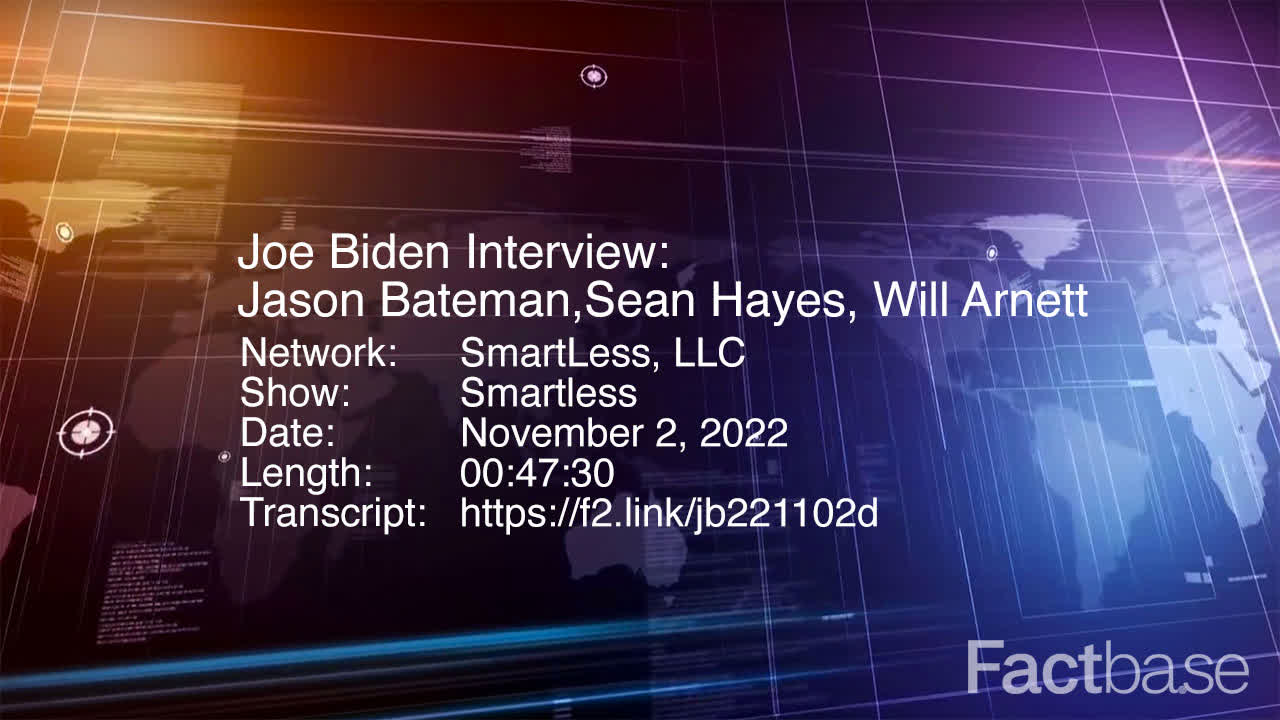
00:09:55-00:09:57 (2 sec)

"I do not. I'm talking about the car."
158
Will Arnett
Slightly Positive
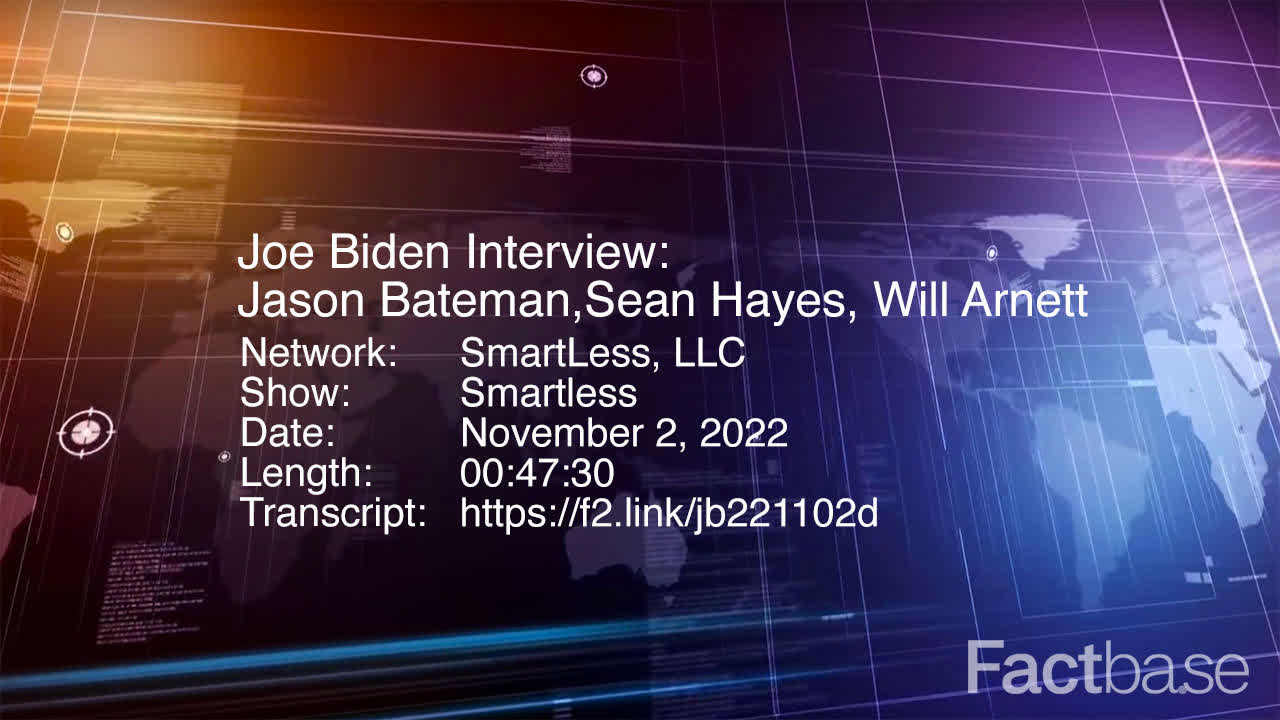
00:09:57-00:09:58 (1 sec)

"OK."
159
Jason Bateman
Neutral
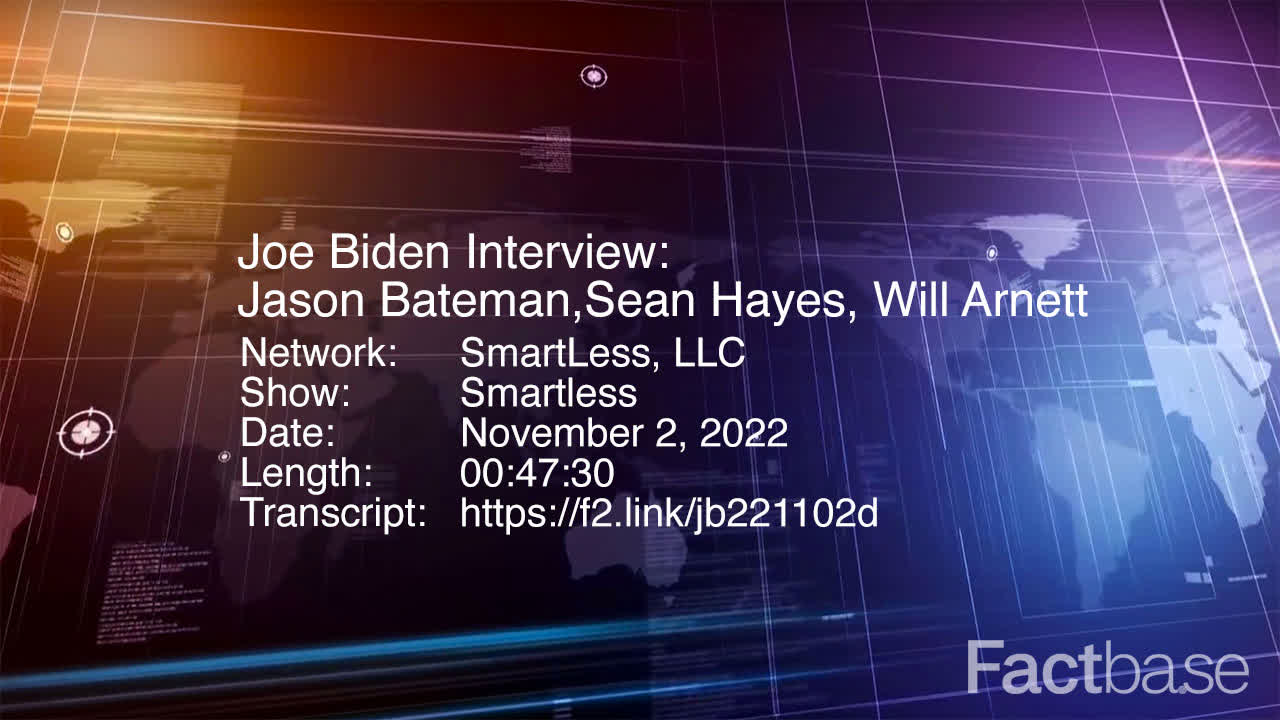
00:09:58-00:09:59 (2 sec)

"Which -- which -- which is -- which -- which --"
160
Joe Biden
Neutral
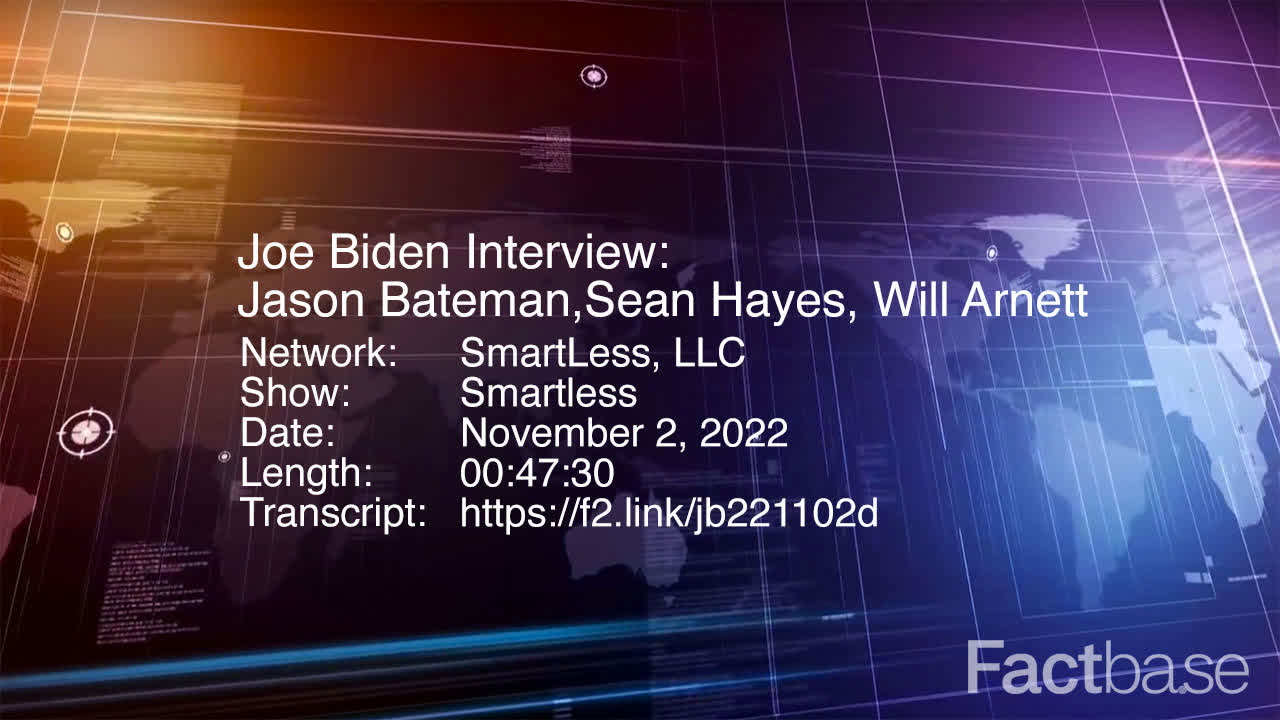
00:09:59-00:10:01 (1 sec)

"Air Force One."
161
Will Arnett
Neutral
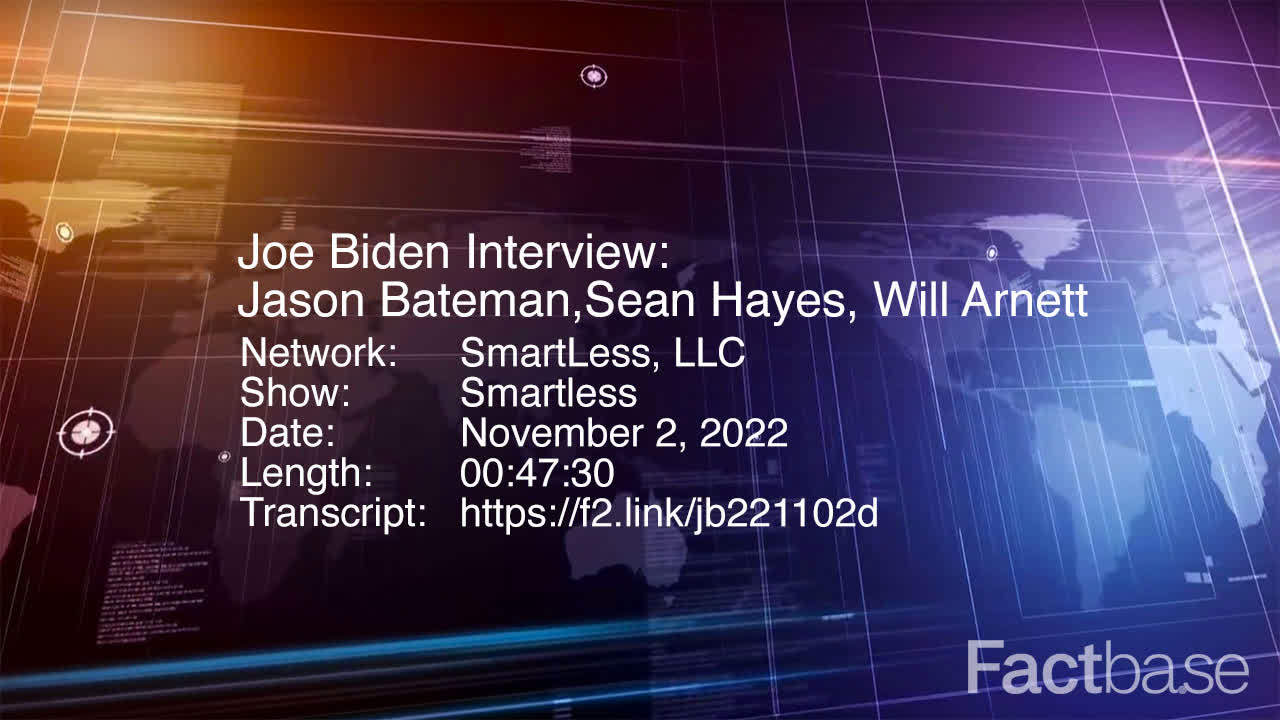
00:10:01-00:10:04 (3 sec)

"It's Air Force One. It's got to be Air Force One."
162
Sean Hayes
Slightly Positive
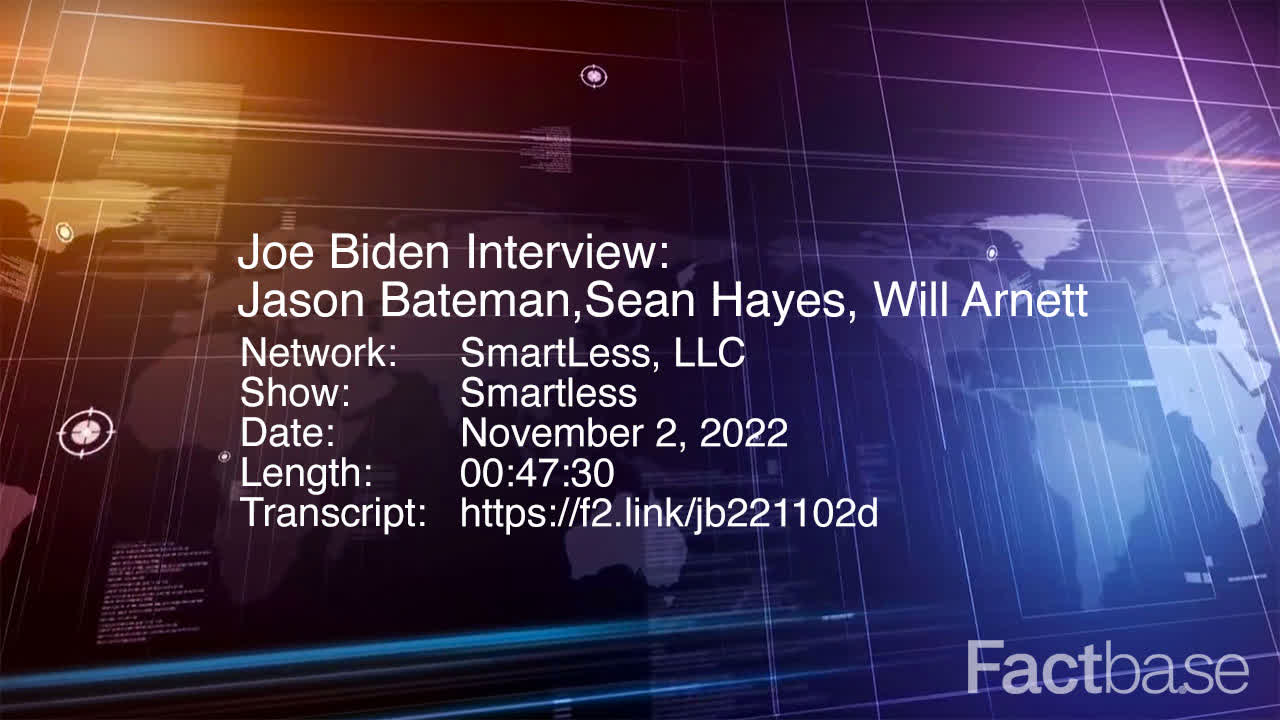
00:10:04-00:10:06 (2 sec)

"Yeah, it's got to be, right?"
163
Joe Biden
Very Positive
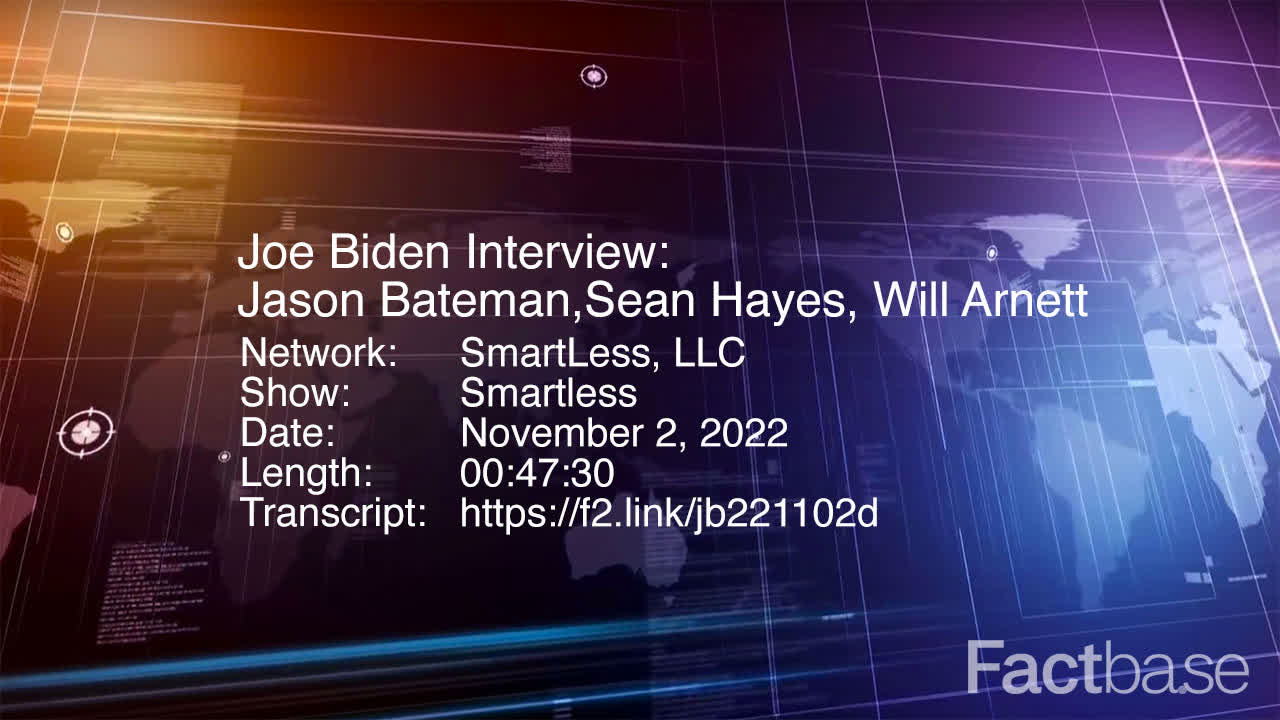
00:10:06-00:10:10 (4 sec)

"Well, the good news is the plane never leaves until I get there now. You know."
164
Sean Hayes
Slightly Positive
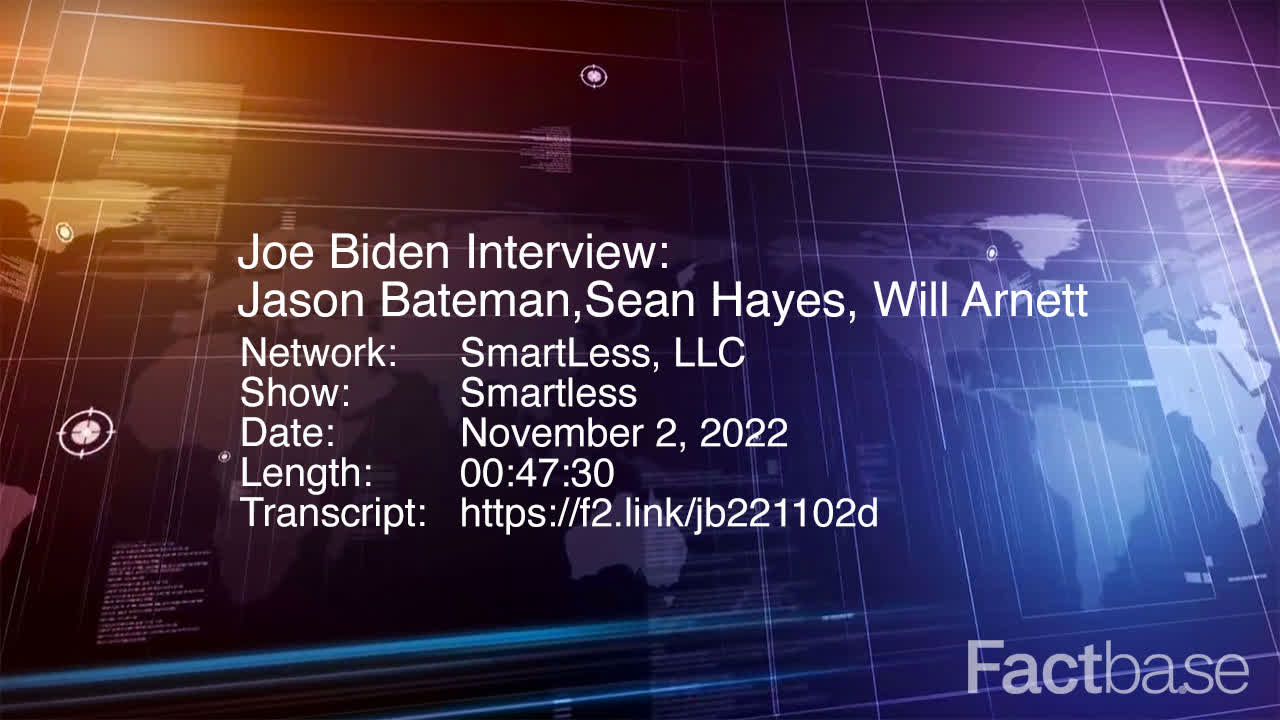
00:10:10-00:10:19 (9 sec)

"Do you always get the seat you want? Do you always get the seat you want or is there sometimes there's someone in it and you got to go to the back?"
165
Jason Bateman
Very Positive
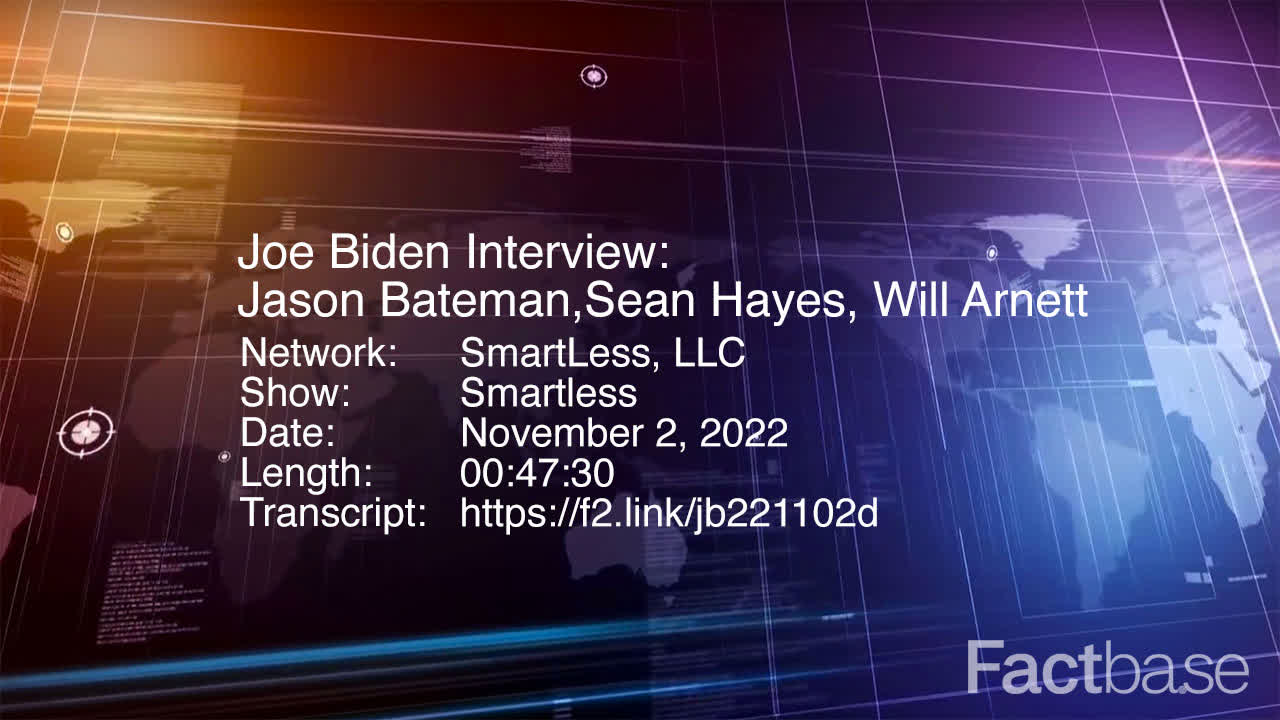
00:10:19-00:10:24 (5 sec)

"I would love to see the inside of Air Force One."
166
Joe Biden
Neutral
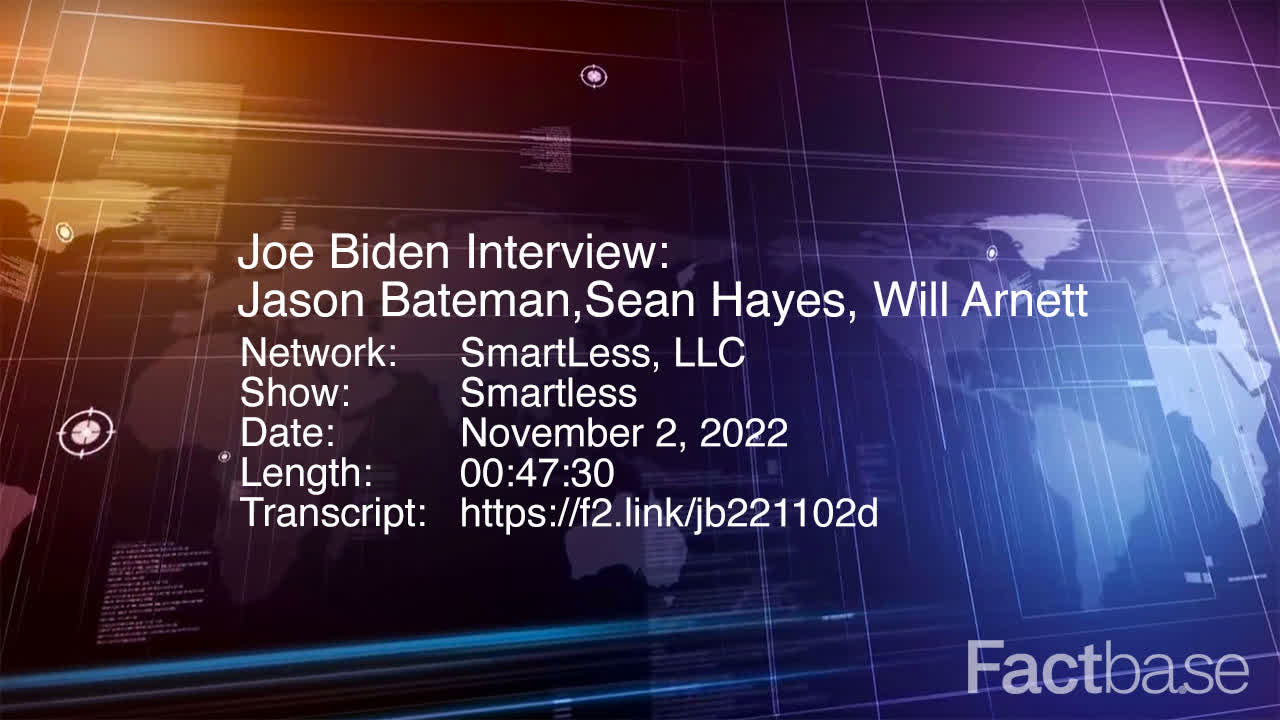
00:10:24-00:10:27 (3 sec)

"Sean, I'll take you through it."
167
Sean Hayes
Neutral
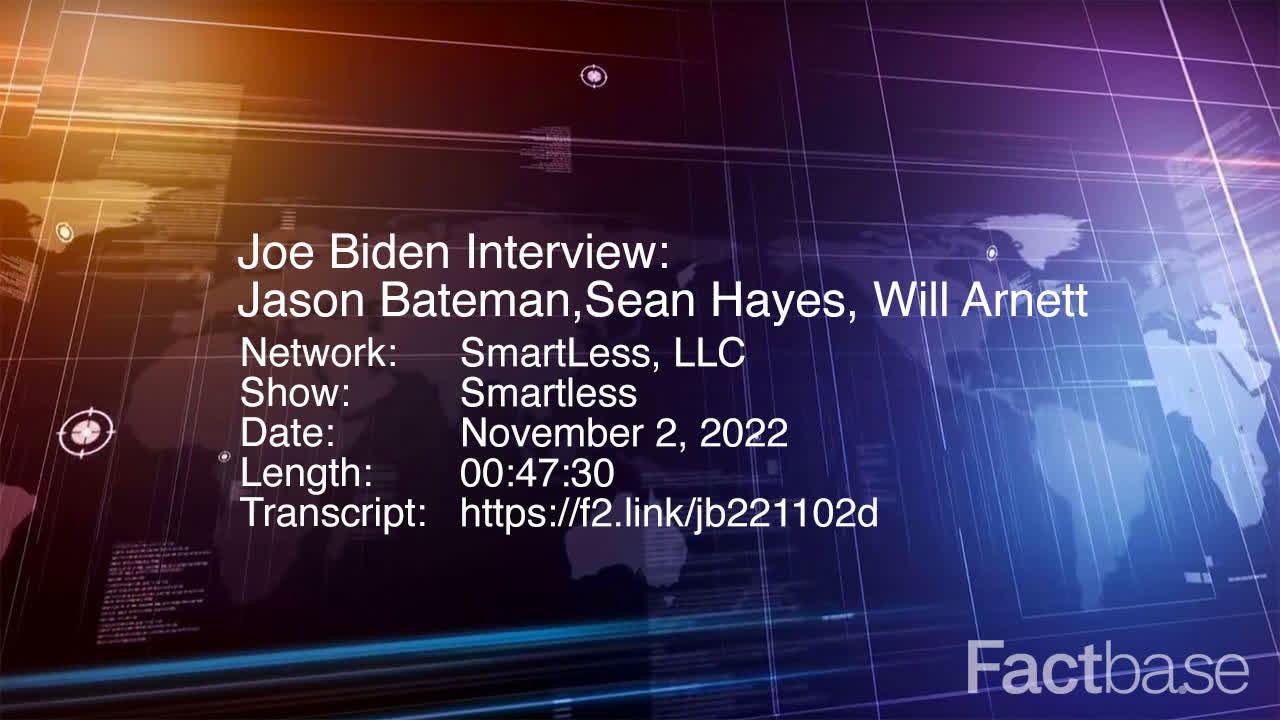
00:10:27-00:10:28 (1 sec)

"I would --"
168
Joe Biden
Neutral
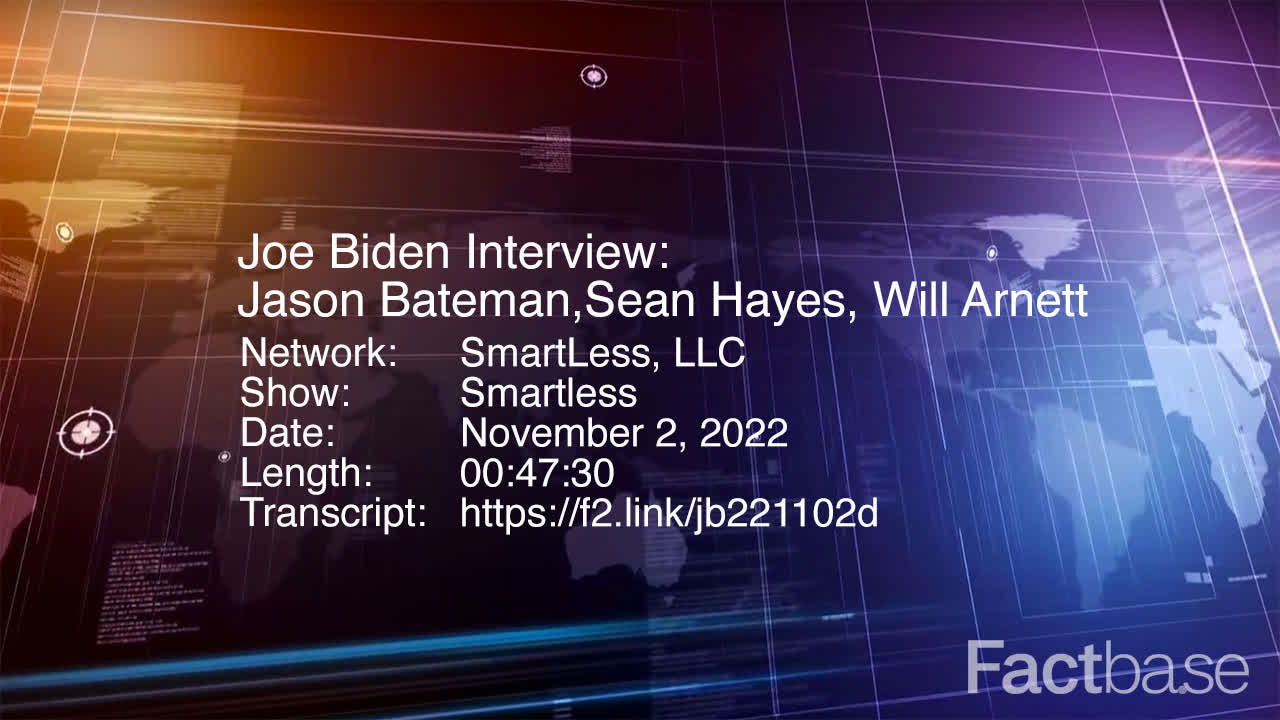
00:10:28-00:10:29 (2 sec)

"You guys --"
169
Sean Hayes
Somewhat Negative
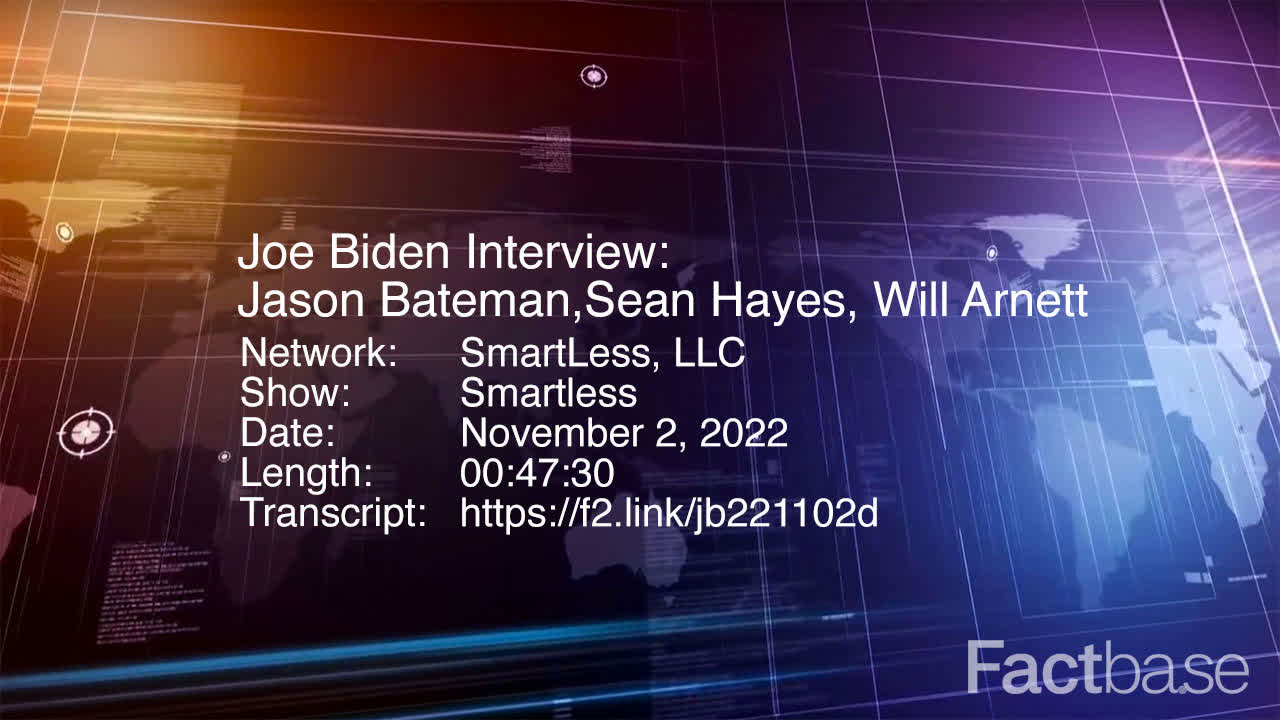
00:10:29-00:10:30 (1 sec)

"I would go crazy."
170
Will Arnett
Positive
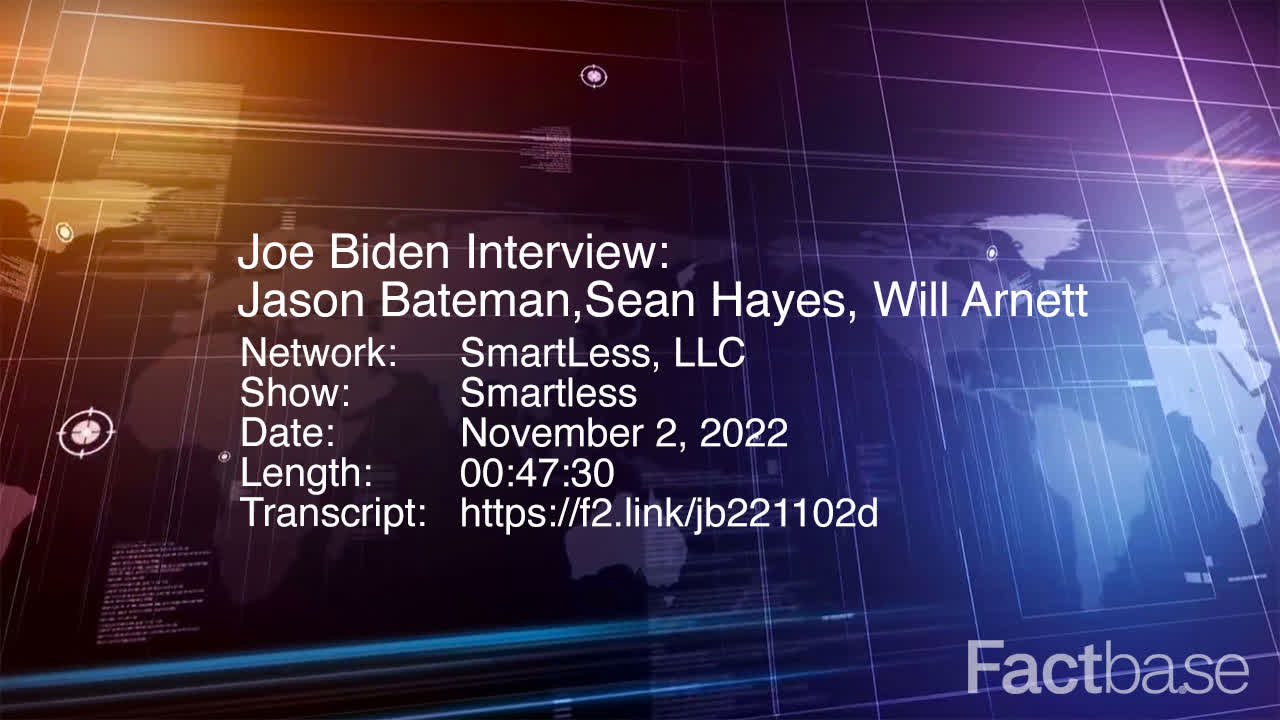
00:10:30-00:10:33 (3 sec)

"God, they were dripping, we're begging for an invite."
171
Sean Hayes
Slightly Negative
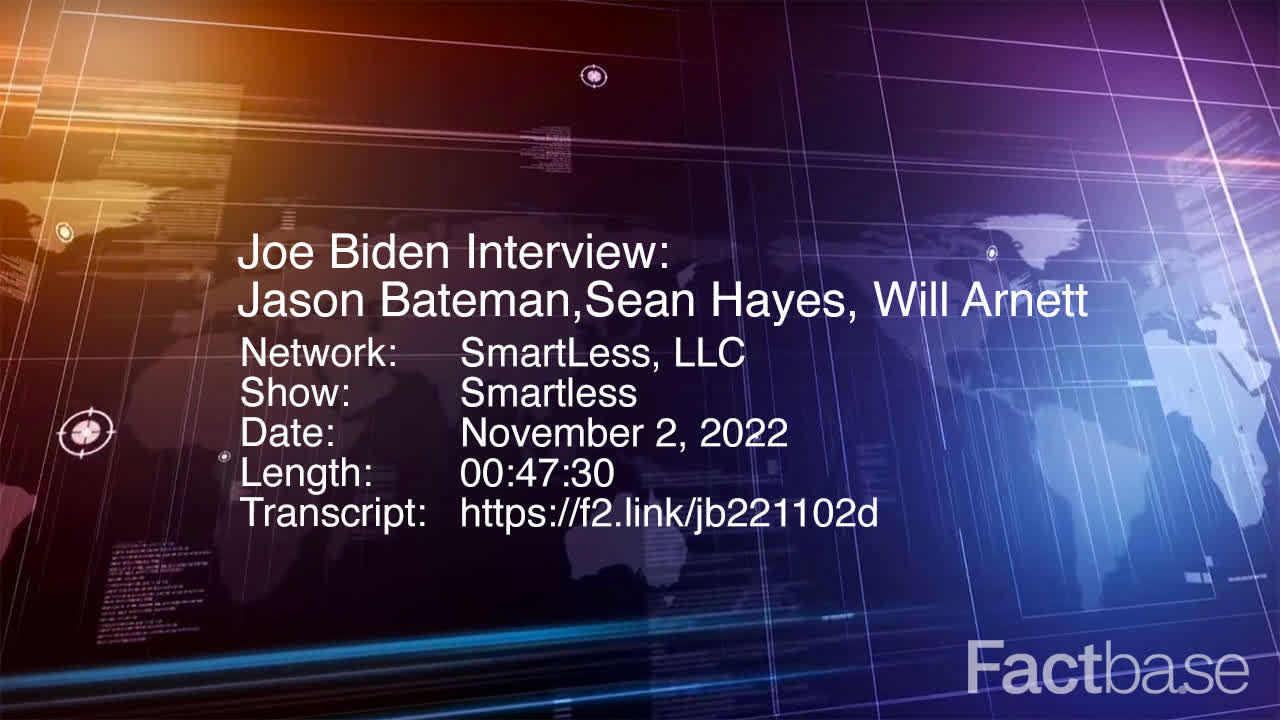
00:10:33-00:10:34 (1 sec)

"No, I'm --"
172
Joe Biden
Very Positive
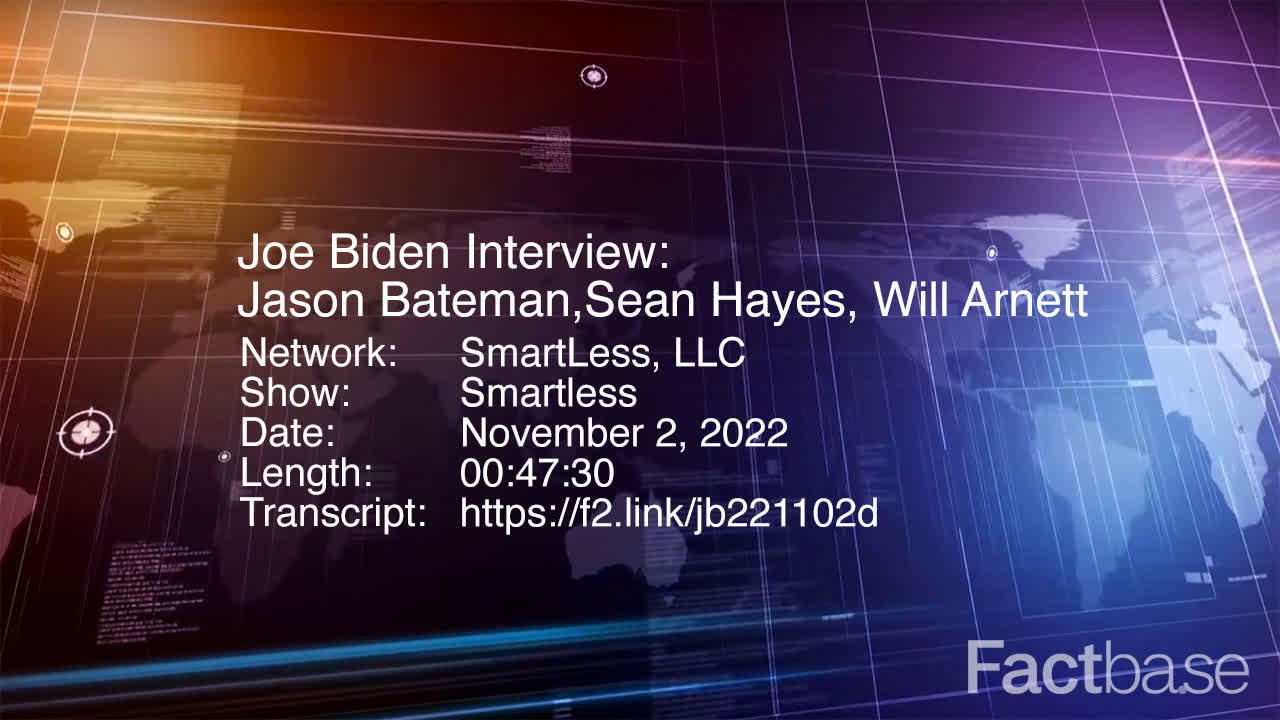
00:10:34-00:10:36 (2 sec)

"No, I'm serious. Happy to share [Inaudible]"
173
Will Arnett
Very Positive
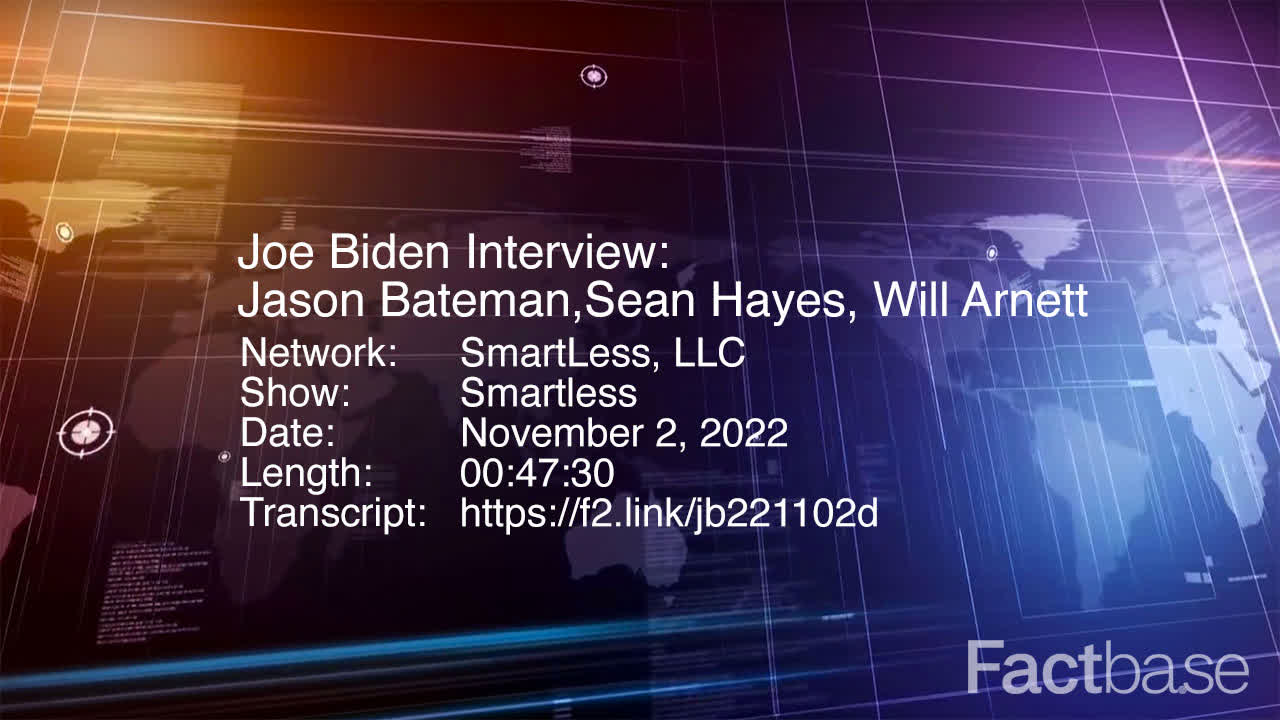
00:10:36-00:10:42 (6 sec)

"Sean, you're only -- you only -- I thought you were going to say I'd love to do a Will and Grace reunion on Air Force One."
174
Jason Bateman
Neutral
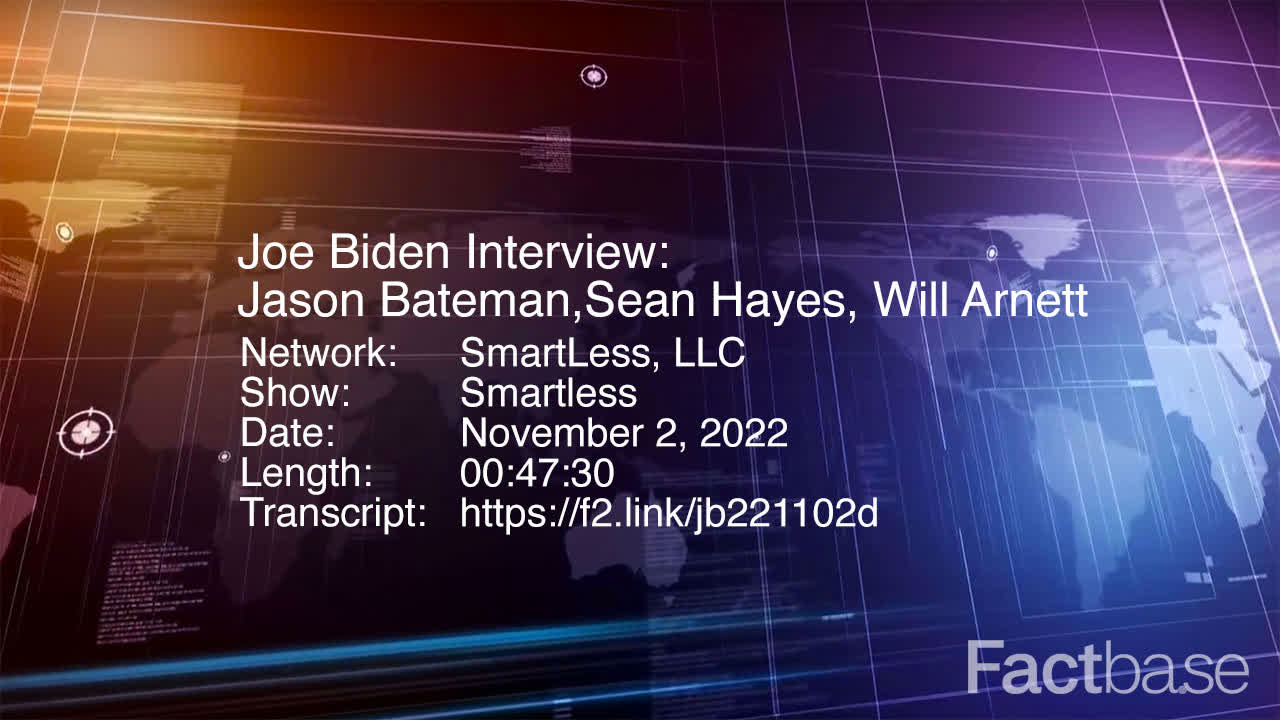
00:10:42-00:10:44 (2 sec)

"And we will be right back. [Commercial break]"
175
Jason Bateman
Neutral
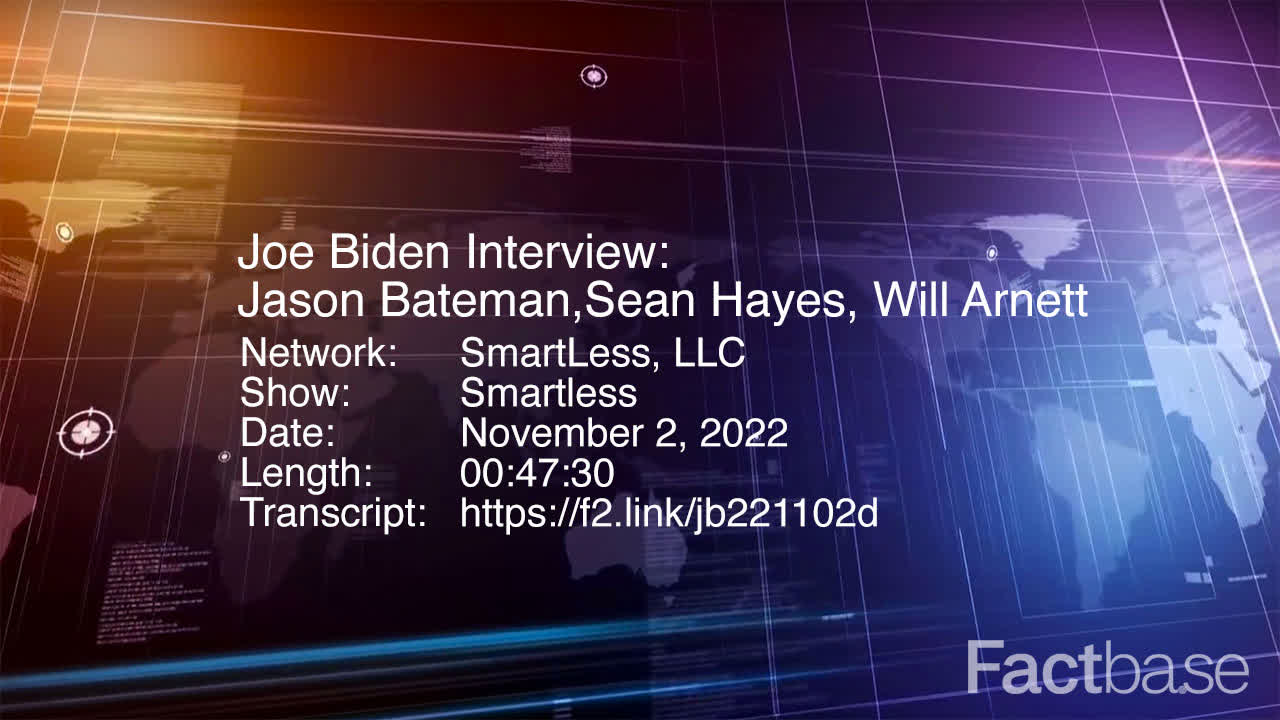
00:10:44-00:10:46 (2 sec)

"All right. Back to the show."
176
Will Arnett
Somewhat Positive
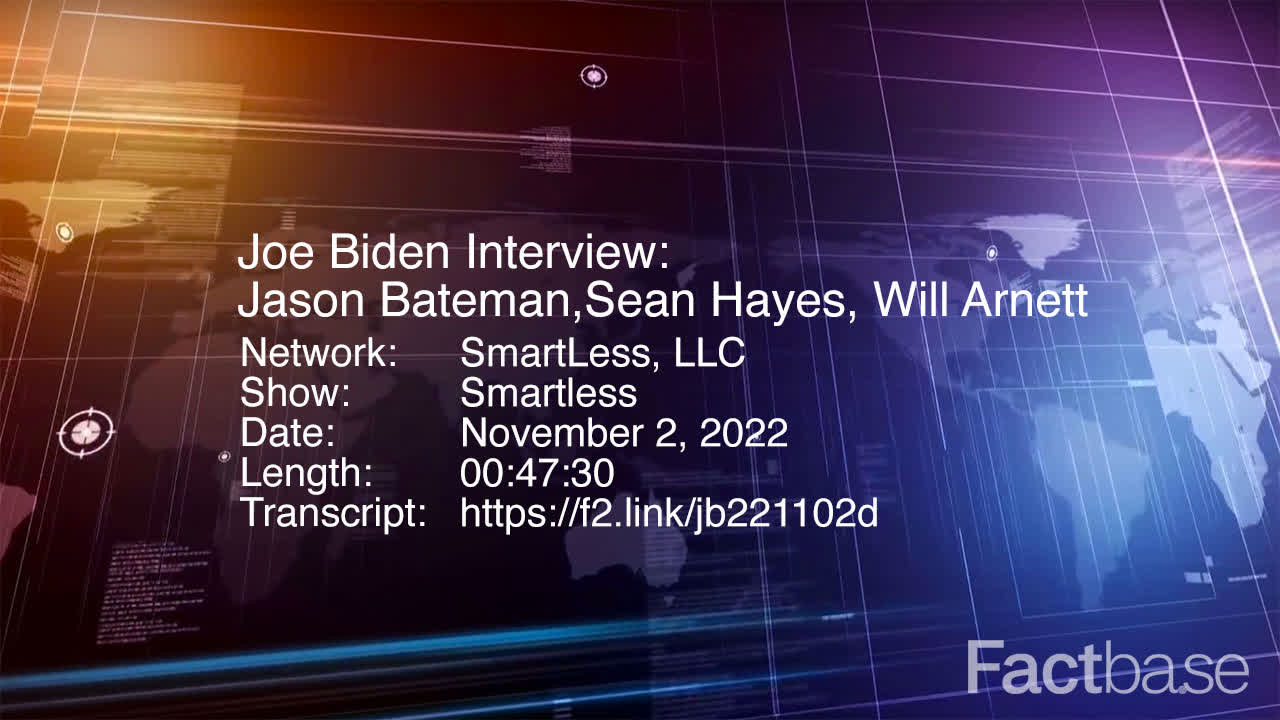
00:10:46-00:11:06 (20 sec)

"OK. So, people in this country never before has it felt like -- and I looked back -- you know, I spent a little bit of time looking back over the way that people spoke and politicians spoke and etc., especially in the 20th century. And a lot of the same verbiage was used to scare people, to make -- put people -- to divide people."
177
Sean Hayes
Neutral
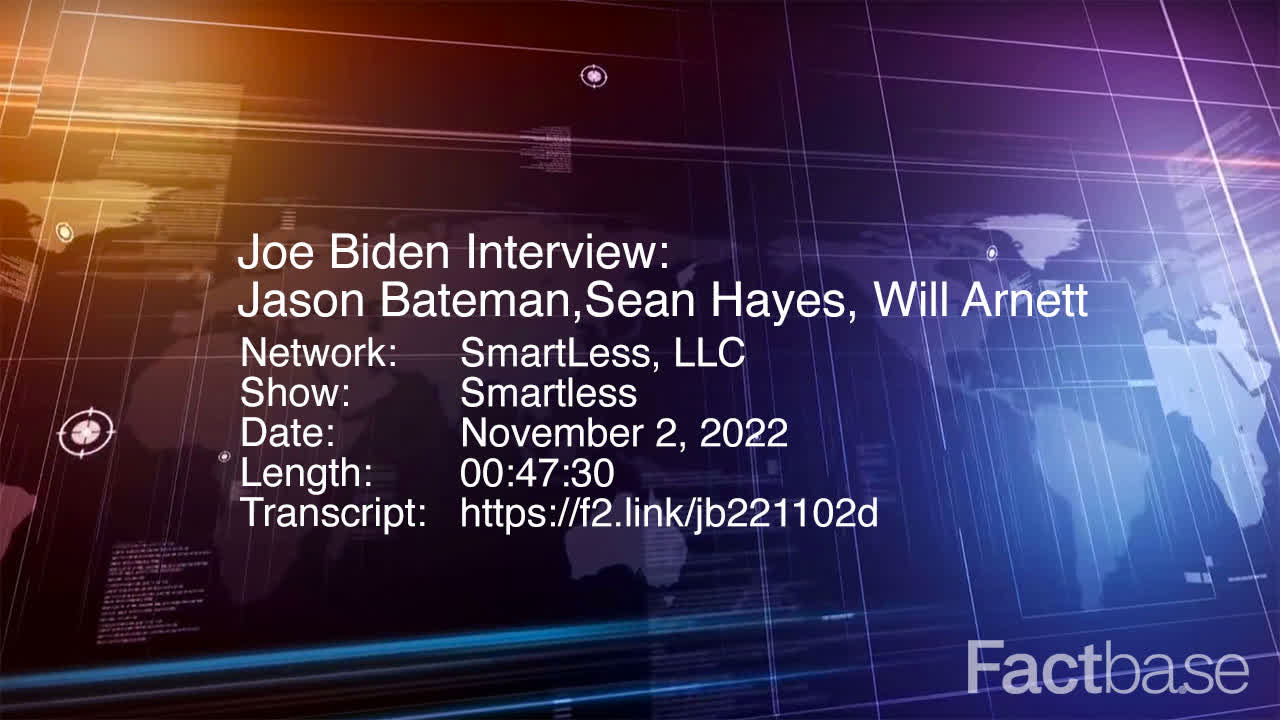
00:11:06-00:11:07 (1 sec)

"Right. Right."
178
Will Arnett
Very Positive
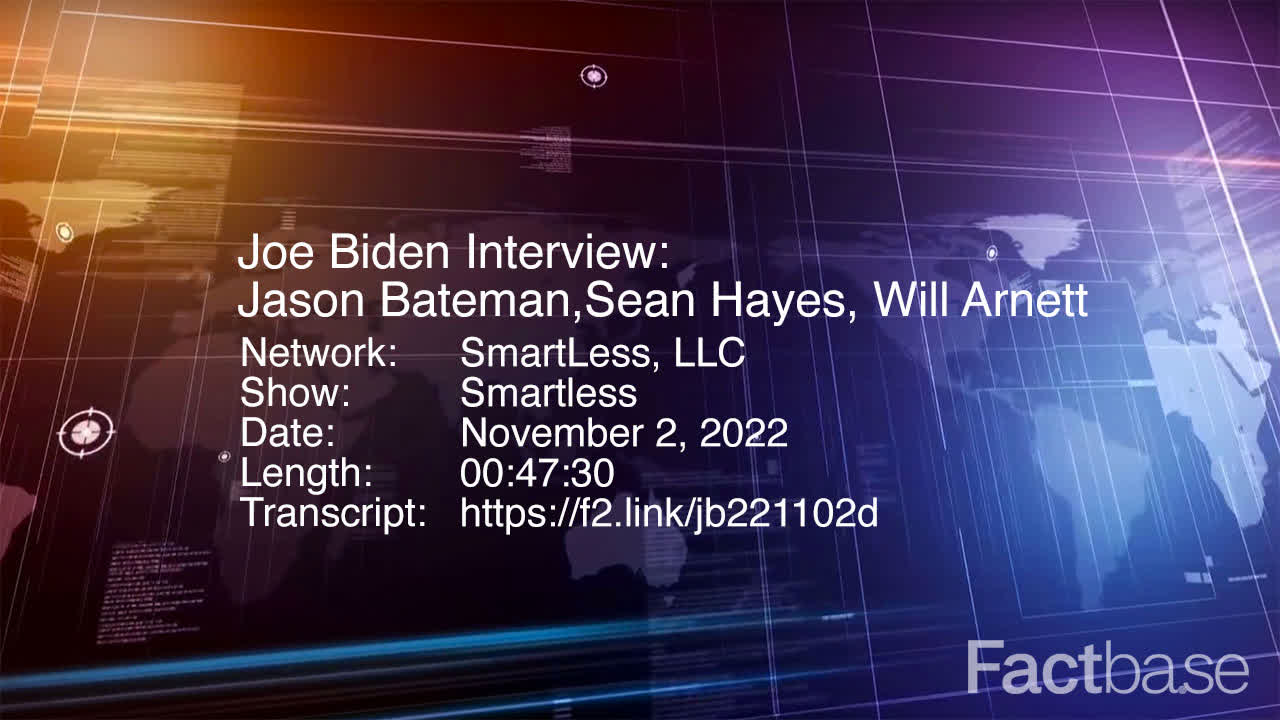
00:11:07-00:11:32 (25 sec)

"And it was you -- and -- and people say, well, no, this is new. Historically, that has been something. But never before has it seemed like common ground was so far off in the distance. And I'm trying to understand why because we all share -- I had an experience recently where I spent some time with somebody and I didn't find out until later that their perspective on the world was very different from mine."
179
Will Arnett
Very Positive
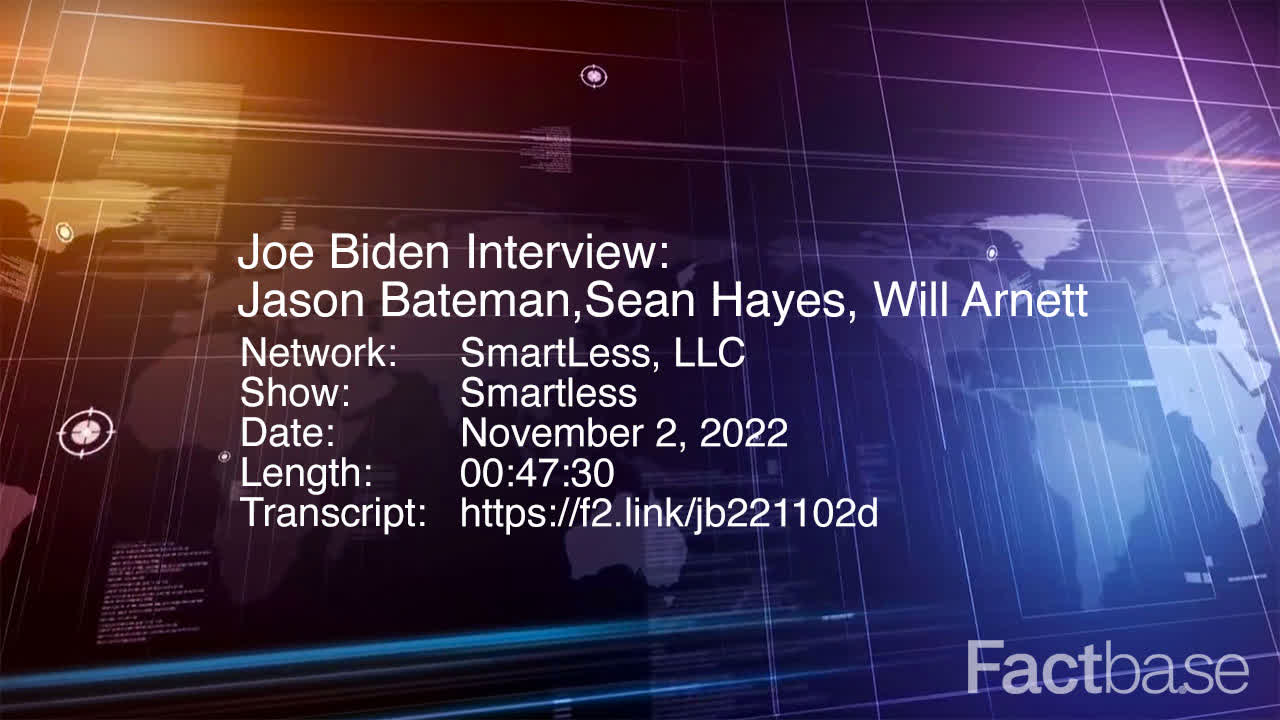
00:11:32-00:11:39 (7 sec)

"But when I -- he and I were speaking and hanging out one on one, we got along very fine, and I thought, wow, isn't that funny?"
180
Jason Bateman
Slightly Positive
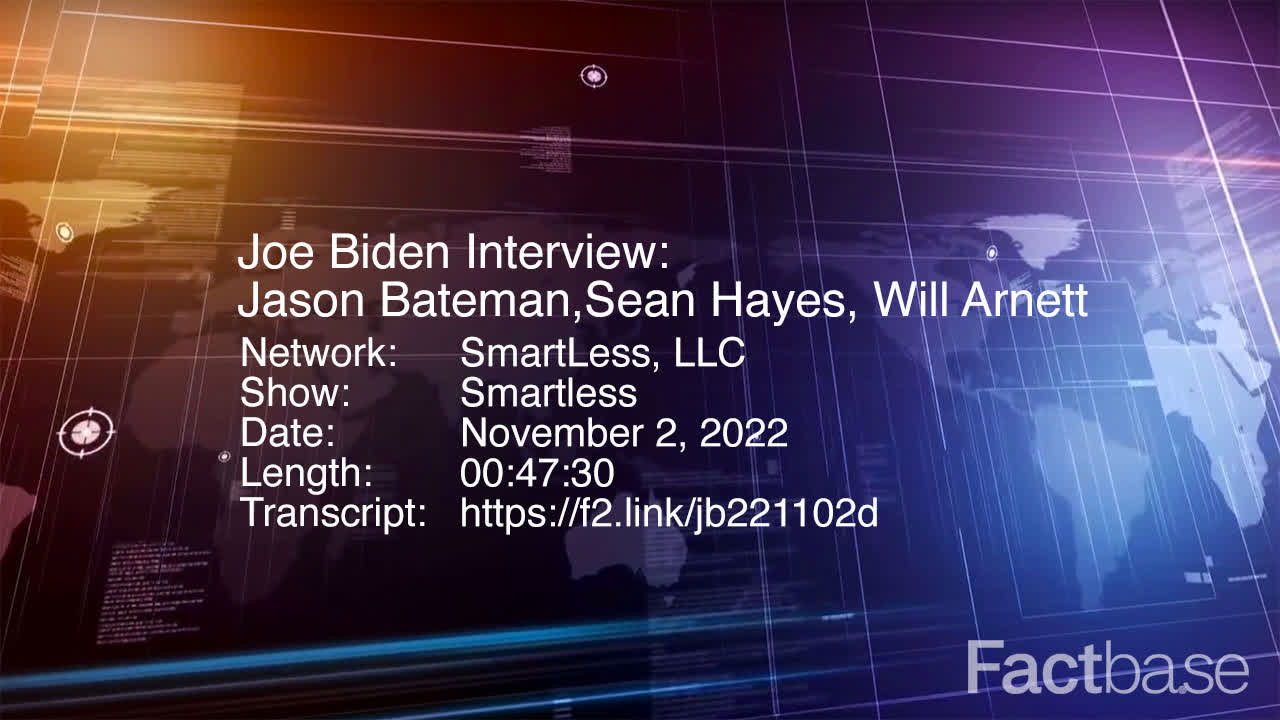
00:11:39-00:11:40 (1 sec)

"Yeah."
181
Will Arnett
Very Positive
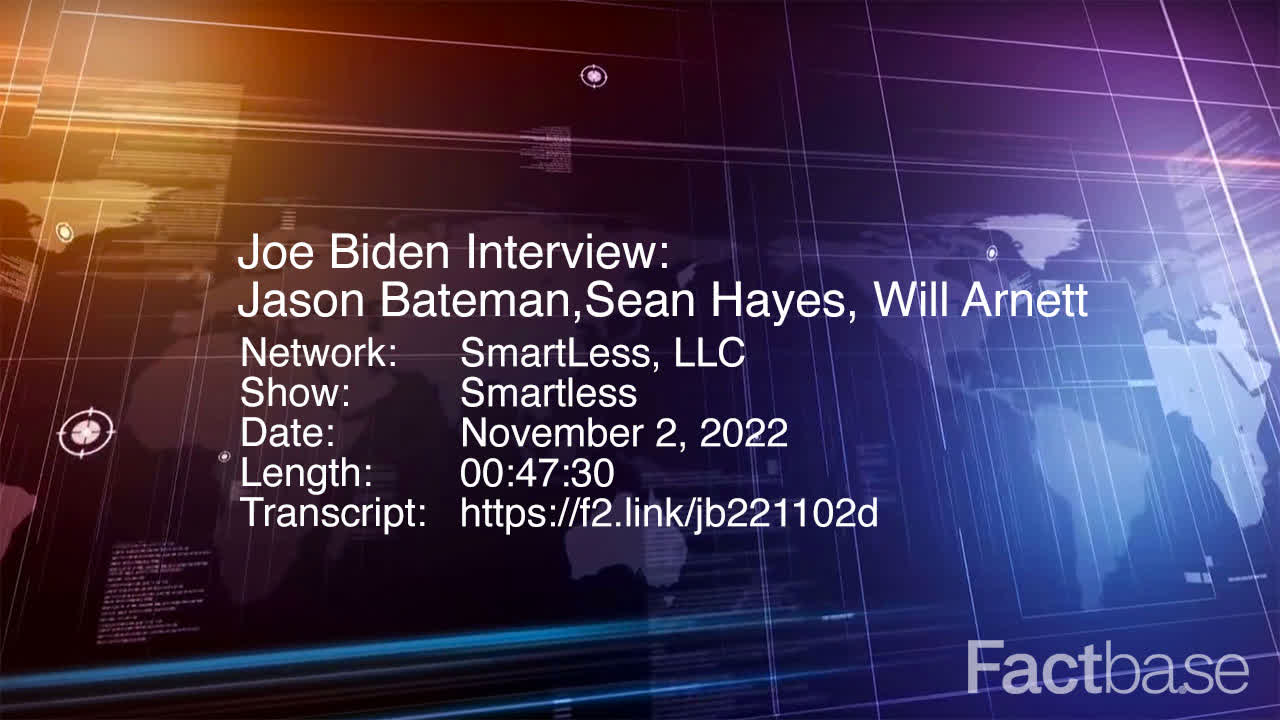
00:11:40-00:11:48 (9 sec)

"If I didn't know anything about his politics, he and I got along great. What is it we can do to try to get that back? Because I -- I think that that's something you talk about a lot."
182
Joe Biden
Neutral
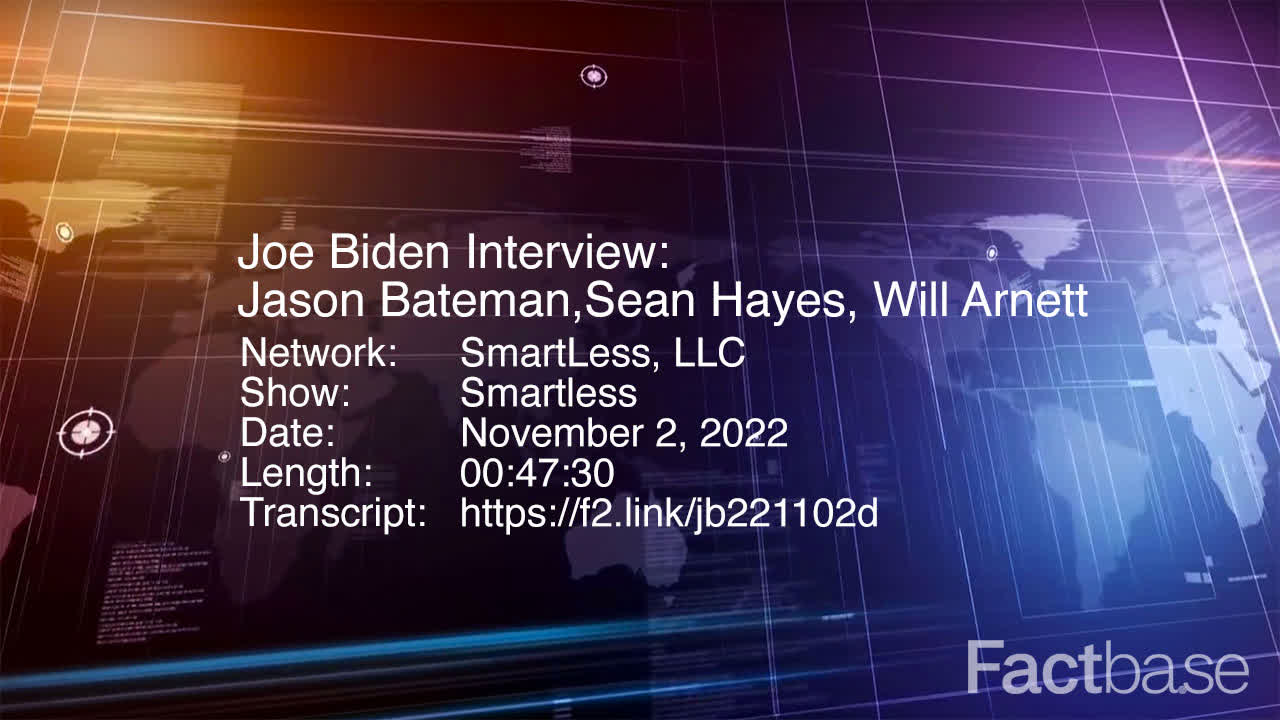
00:11:48-00:11:55 (6 sec)

"Well, I do. Look, guys, I had no intention to run for president again. For real."
183
Jason Bateman
Slightly Positive
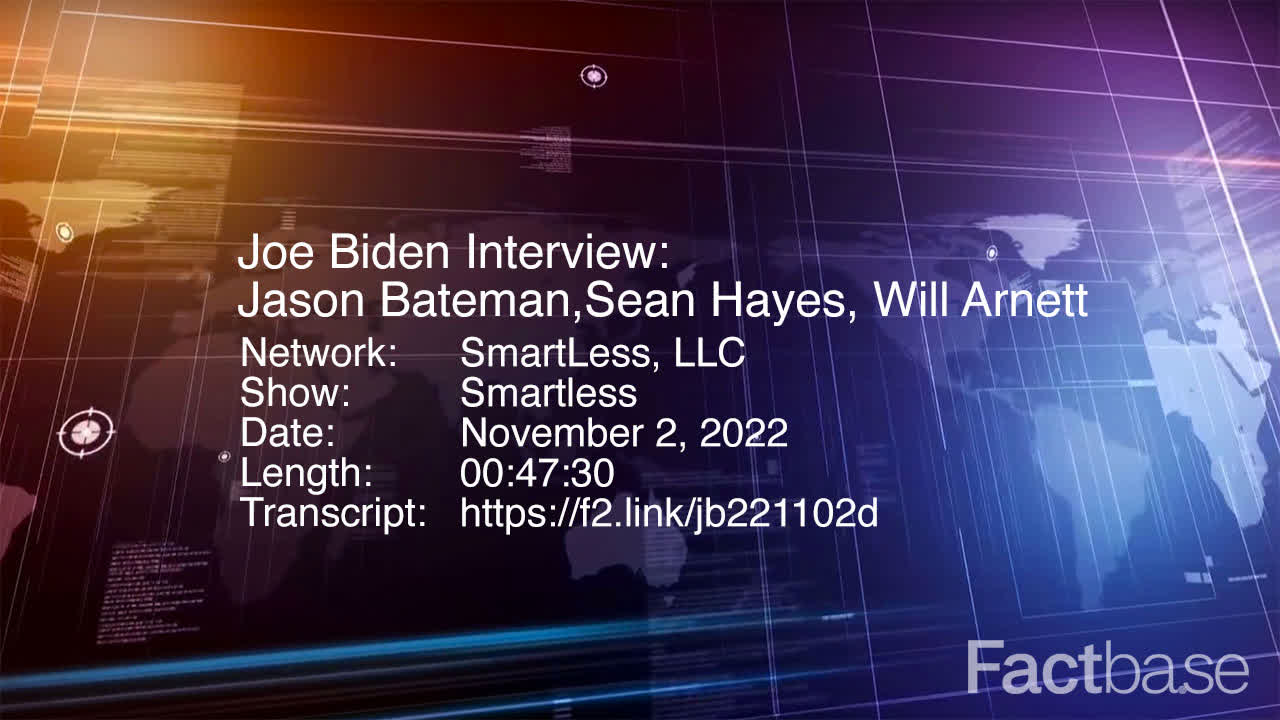
00:11:55-00:11:55 ( sec)

"Yeah."
184
Joe Biden
Slightly Positive
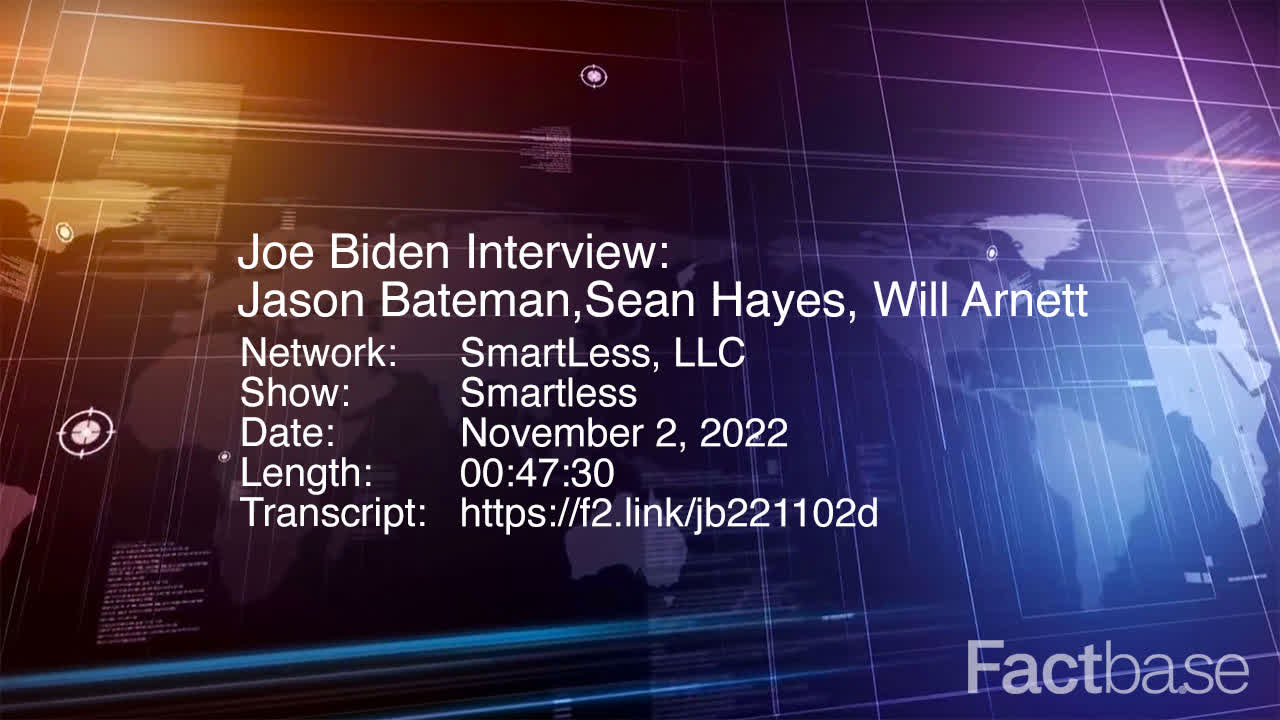
00:11:55-00:12:19 (24 sec)

"Or running for office. I was a professor at the University of Pennsylvania, enjoying it, and put together an institute up there. And -- and when those folks came out of the fields, literally carrying torches down in Charlottesville, and the last guy said, "There are good people on both sides," and that young woman was killed, I realized that -- that we are at an inflection point in history."
185
Joe Biden
Slightly Negative
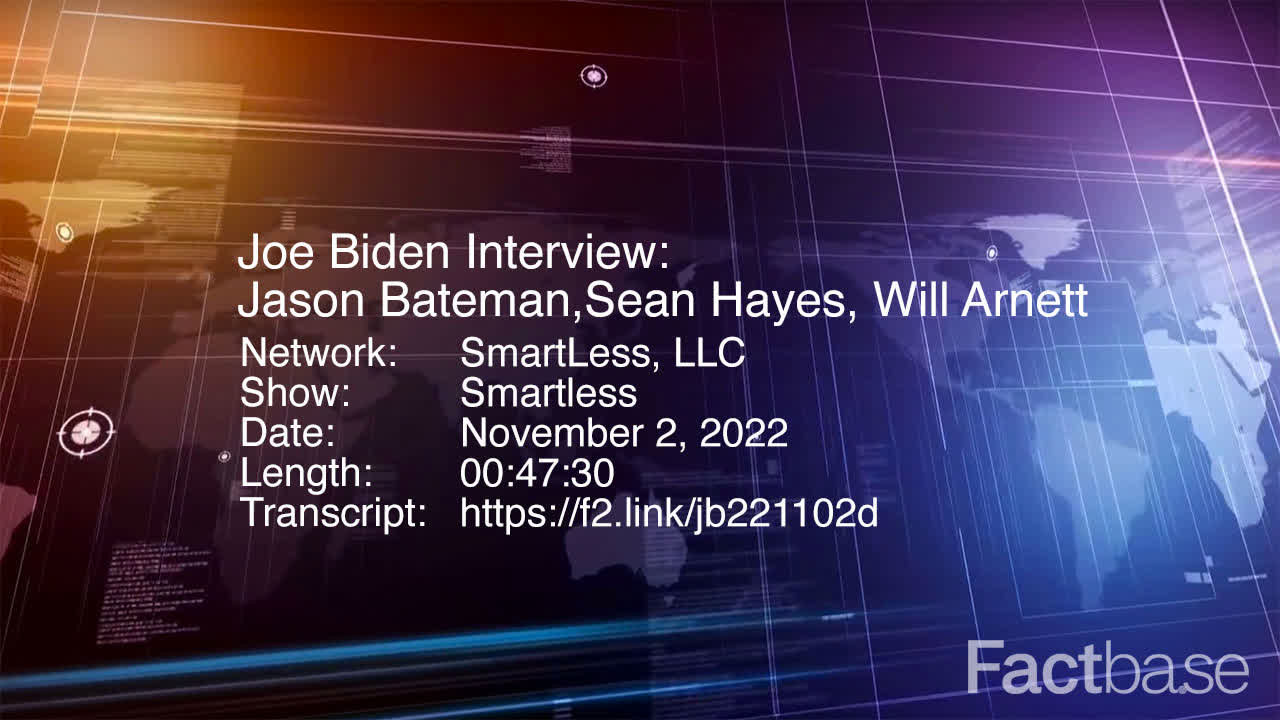
00:12:19-00:12:46 (27 sec)

"And it occurs every three, five, seven generations that what happens in the near term, in this case, the next two to three, five years, the last several years, is going to determine what it looks like for the next several generations. And -- and -- and the context was my -- my son had just died. And so, we have a tradition in our family."
186
Joe Biden
Very Negative
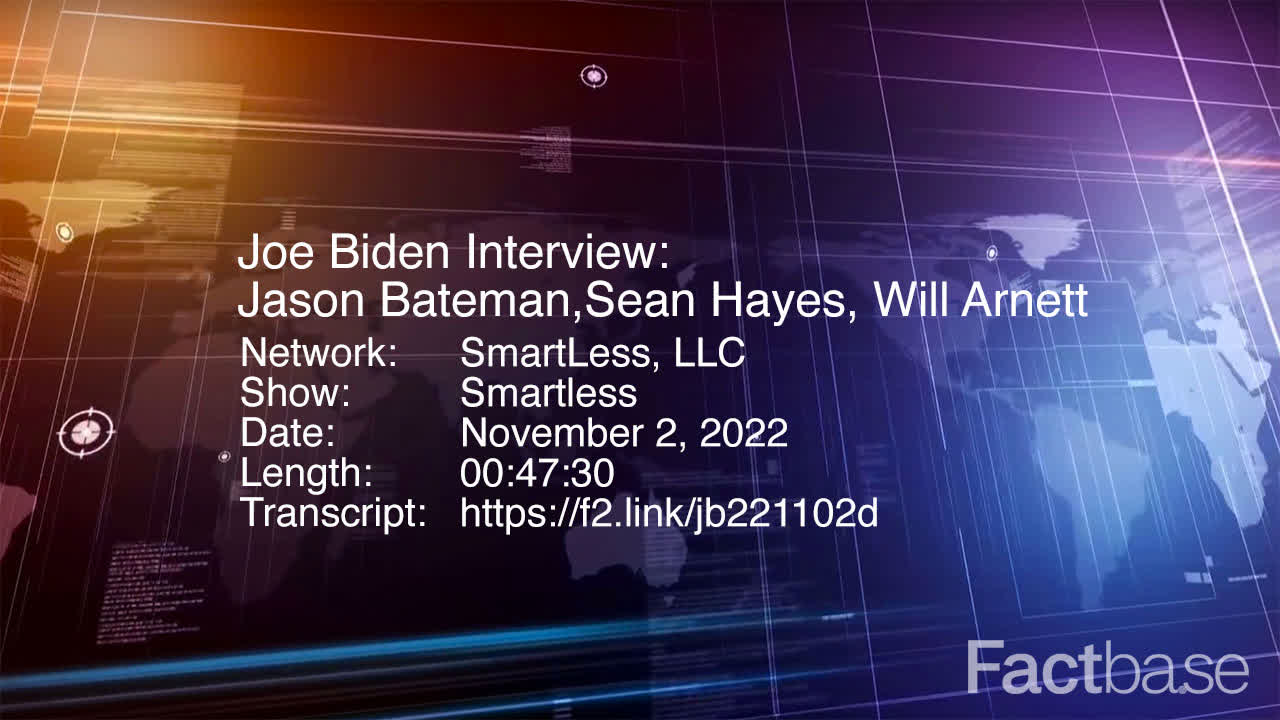
00:12:46-00:13:14 (27 sec)

"Anyone in the family, any kid can ask for a family meeting. This is dead serious. I'm not joking about this, as well as my -- my dad's family when I was growing up. And so, I got a call from my oldest granddaughter and saying, "Pop, we want to have a family meeting." She was a freshman -- either a senior at Penn or a freshman at Columbia Law."
187
Joe Biden
Very Positive
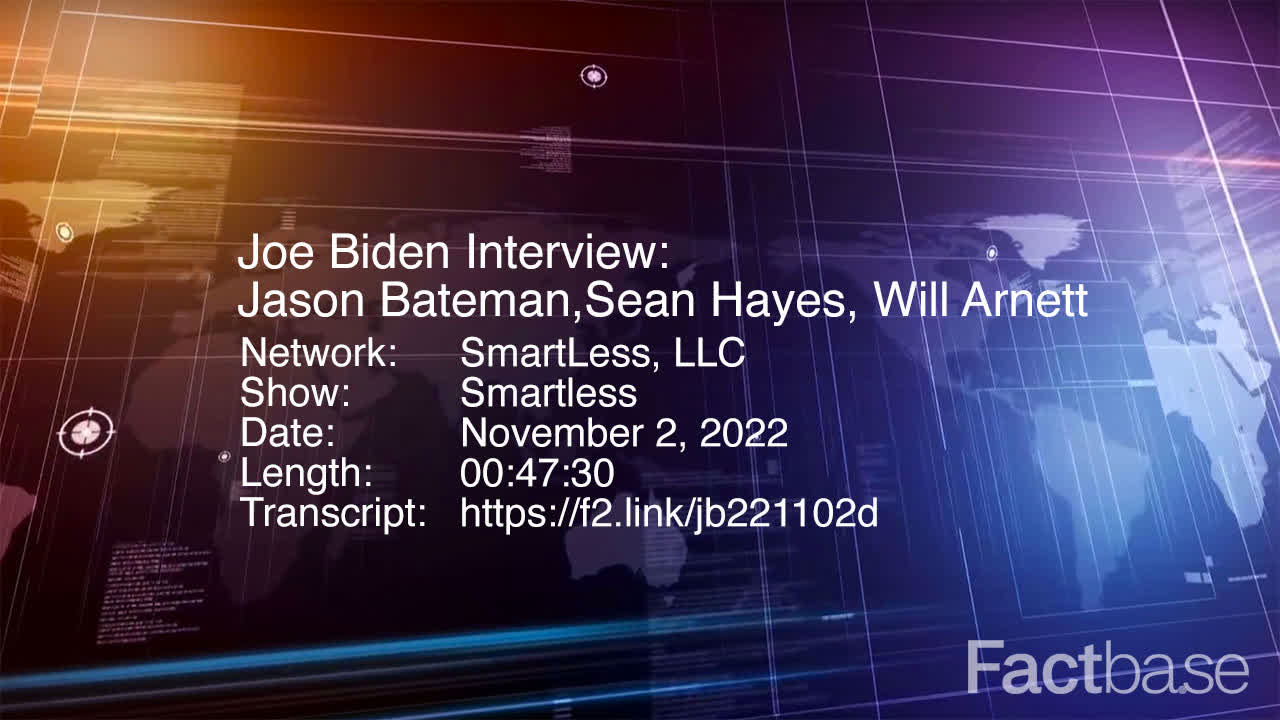
00:13:14-00:13:26 (12 sec)

"And then my other granddaughter, Finnegan Biden. She's a brilliant kid. She's a wonderful kid. She's my secret weapon. She was, I think, a sophomore at Penn. And anyway --"
188
Jason Bateman
Neutral
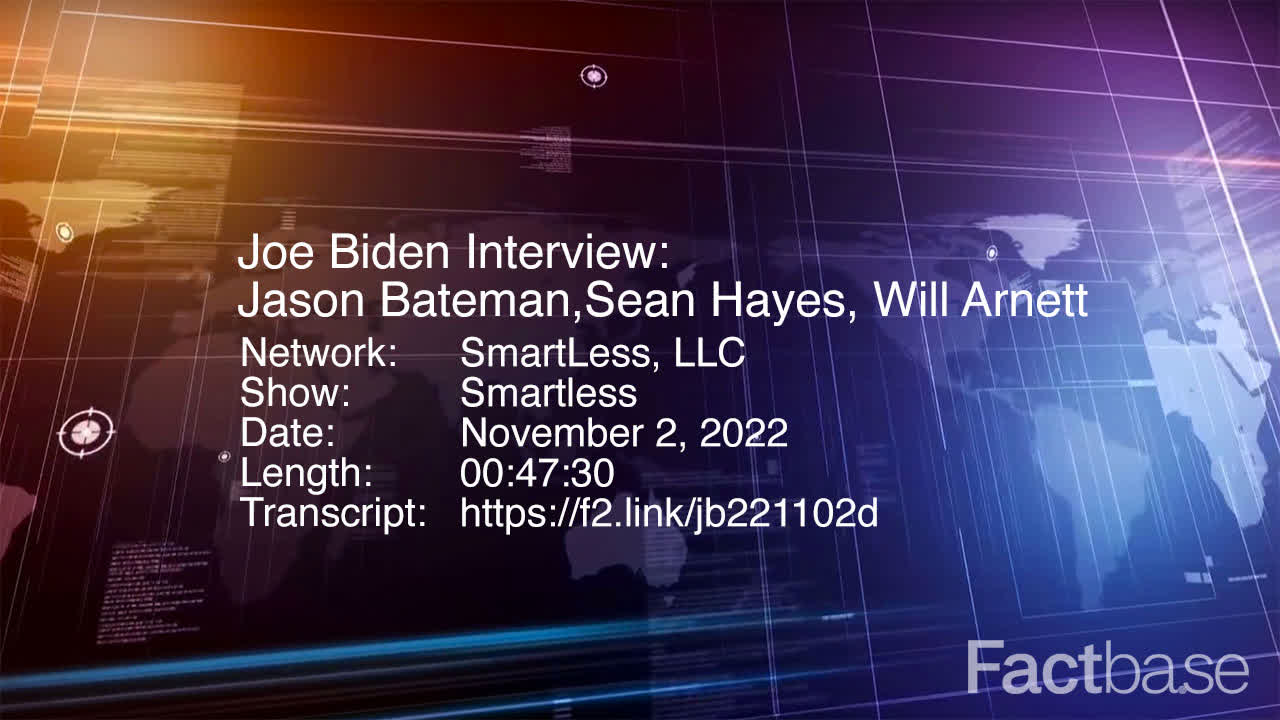
00:13:26-00:13:27 (1 sec)

"A couple of dummies, huh?"
189
Joe Biden
Neutral
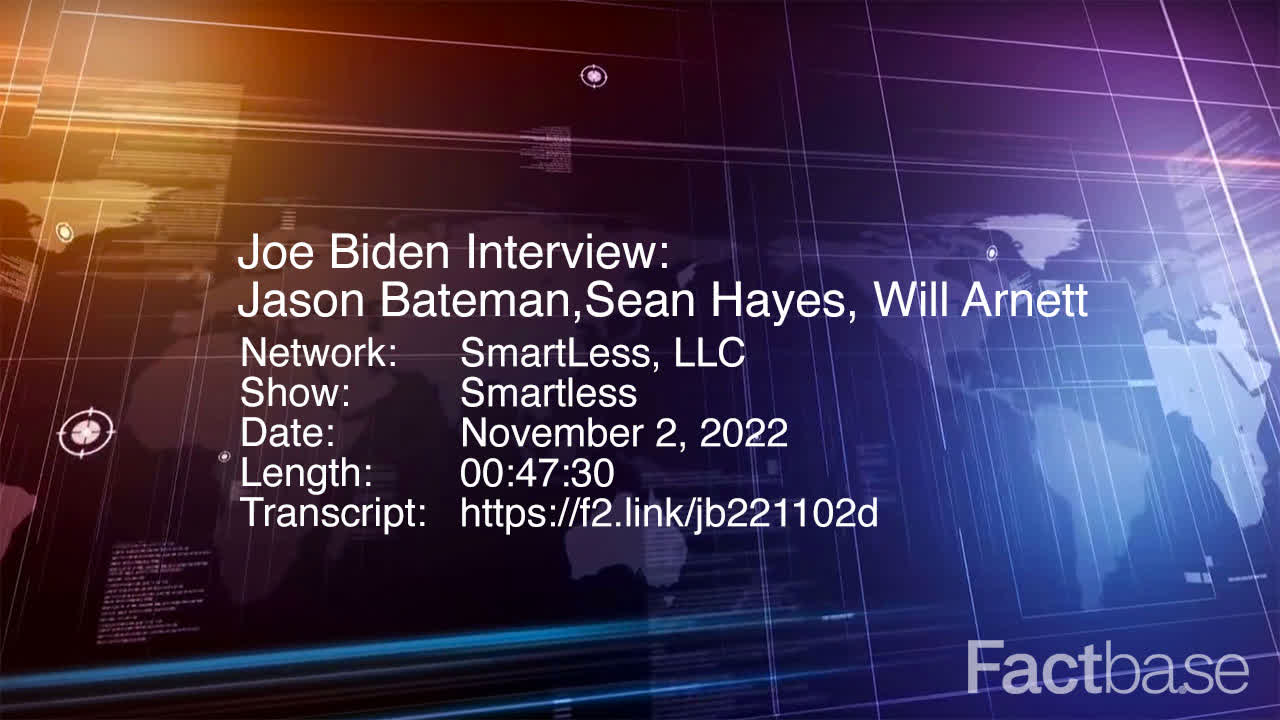
00:13:27-00:13:32 (4 sec)

"Well, I -- no, I don't mean that. I meant they were close to me [Inaudible] from my house."
190
Jason Bateman
Neutral
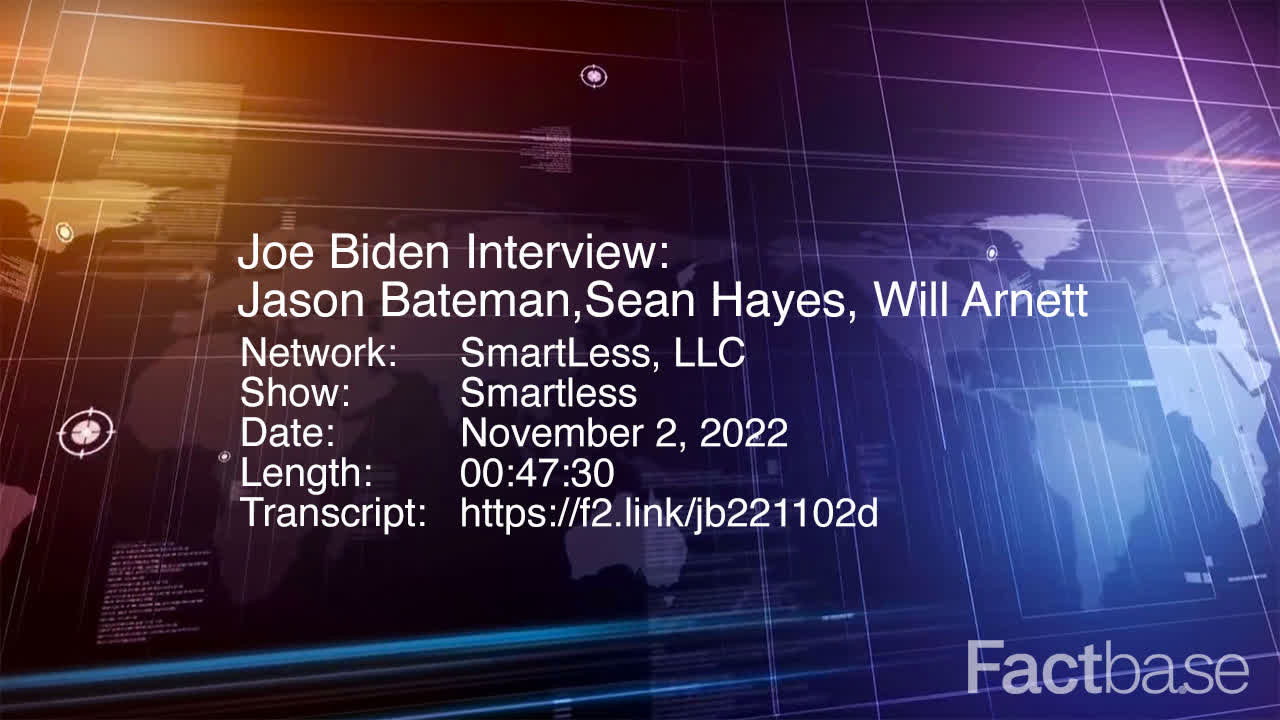
00:13:32-00:13:32 ( sec)

"Gotcha."
191
Joe Biden
Very Negative
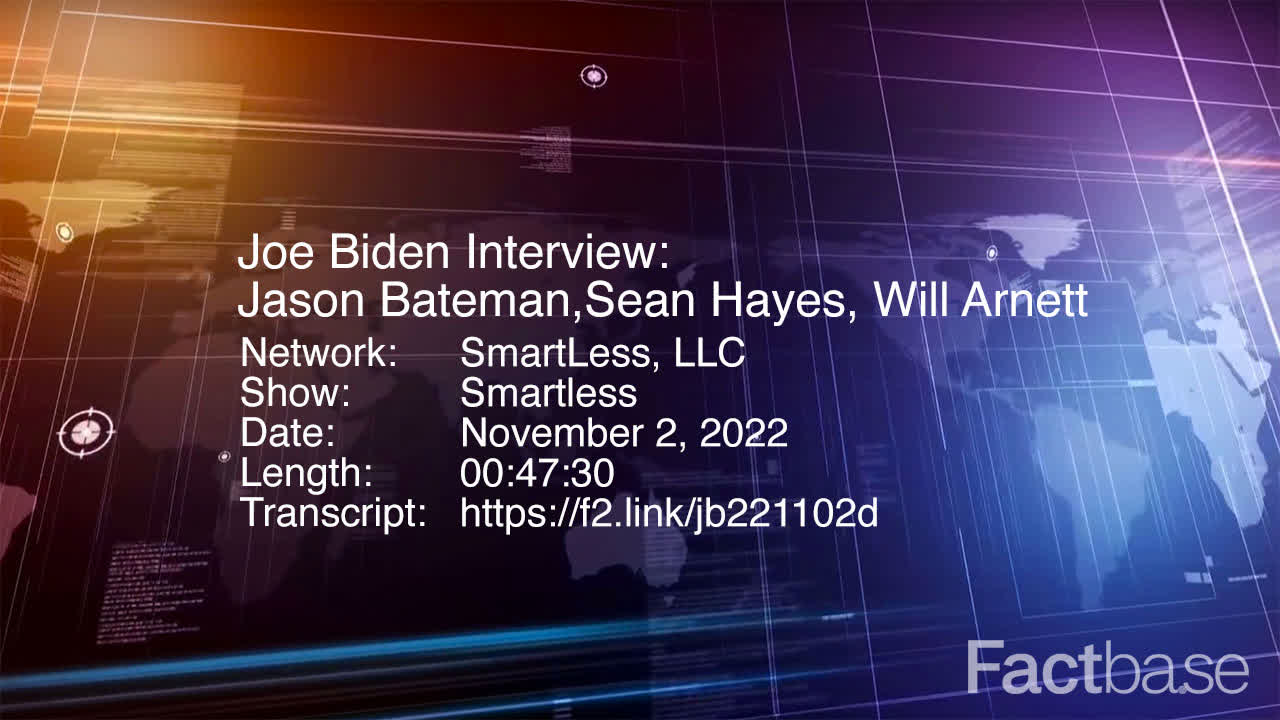
00:13:32-00:13:52 (20 sec)

"And -- and then I had another granddaughter who was a senior in high school and then a granddaughter who was a sophomore in high school and a -- and a grandson who was, I'm thinking, seventh or eighth grade. And they came in, and they sat down, and they said, "Pop, you really should run." And I didn't want to run because I knew it was going to be ugly."
192
Joe Biden
Somewhat Positive
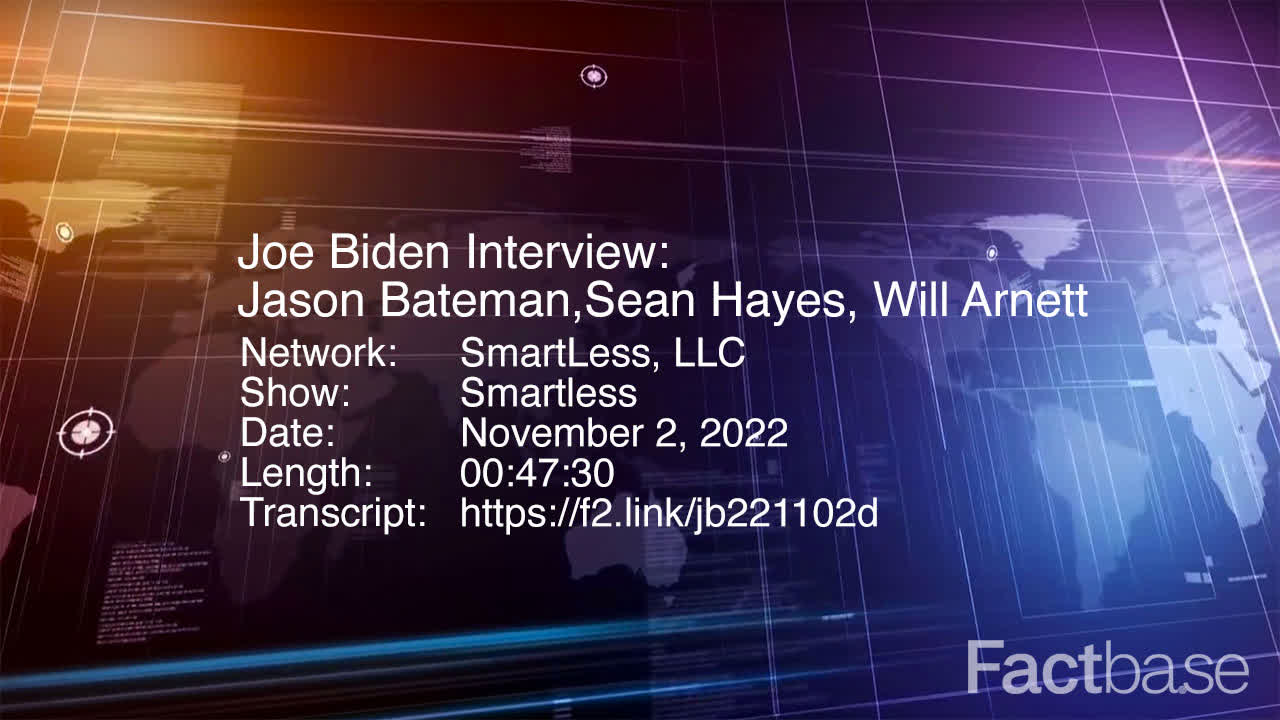
00:13:52-00:14:00 (8 sec)

"And keep in mind, just like your -- your children in the show business, what with you in show business, they get used to the barbs, they get used to the accolades."
193
Jason Bateman
Slightly Positive
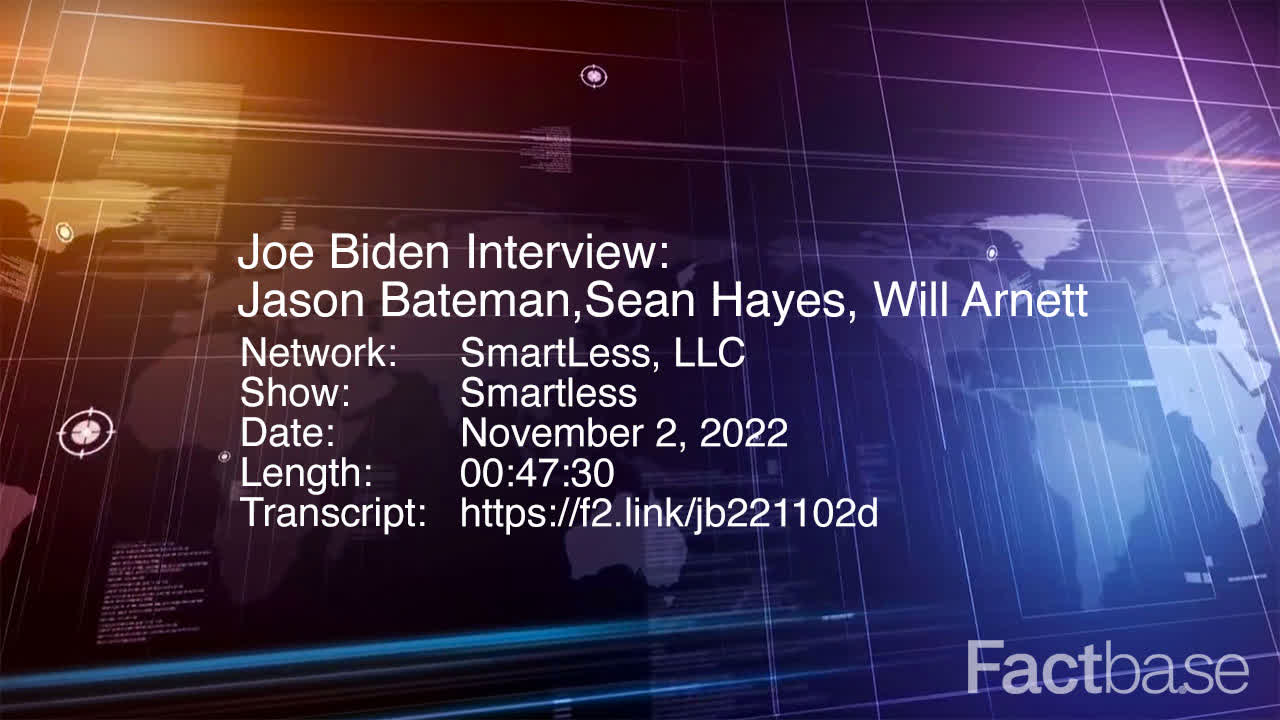
00:14:00-00:14:01 (1 sec)

"Yeah."
194
Joe Biden
Very Positive
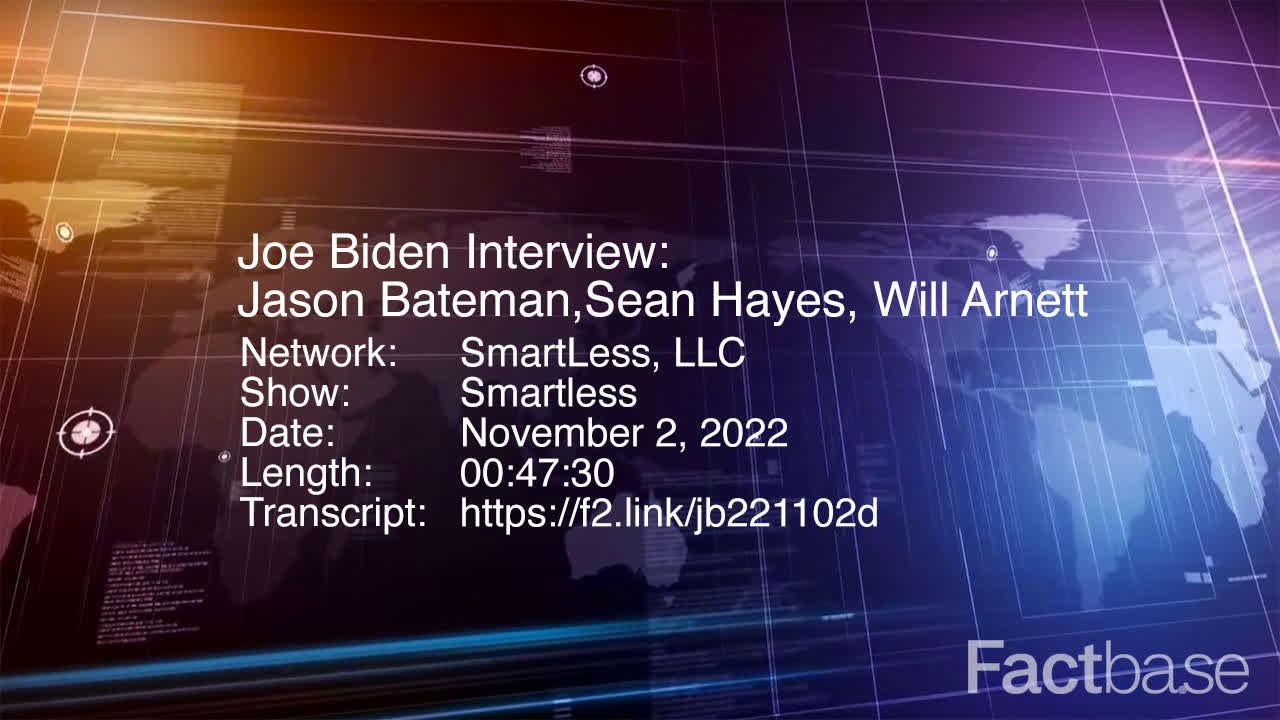
00:14:01-00:14:22 (21 sec)

"And so, they've been their whole life, either I've been a vice president or a senator and their dad or uncle had been attorney general and so on. And so, they said, "You got to run, Pop." Pop -- they call me pop. They said, "Pop, Uncle Beau wants you to run. Daddy wants you to run." Etc. And I said, "Well, it's going to be not -- it's not going to be very nice, honey.""
195
Jason Bateman
Slightly Positive
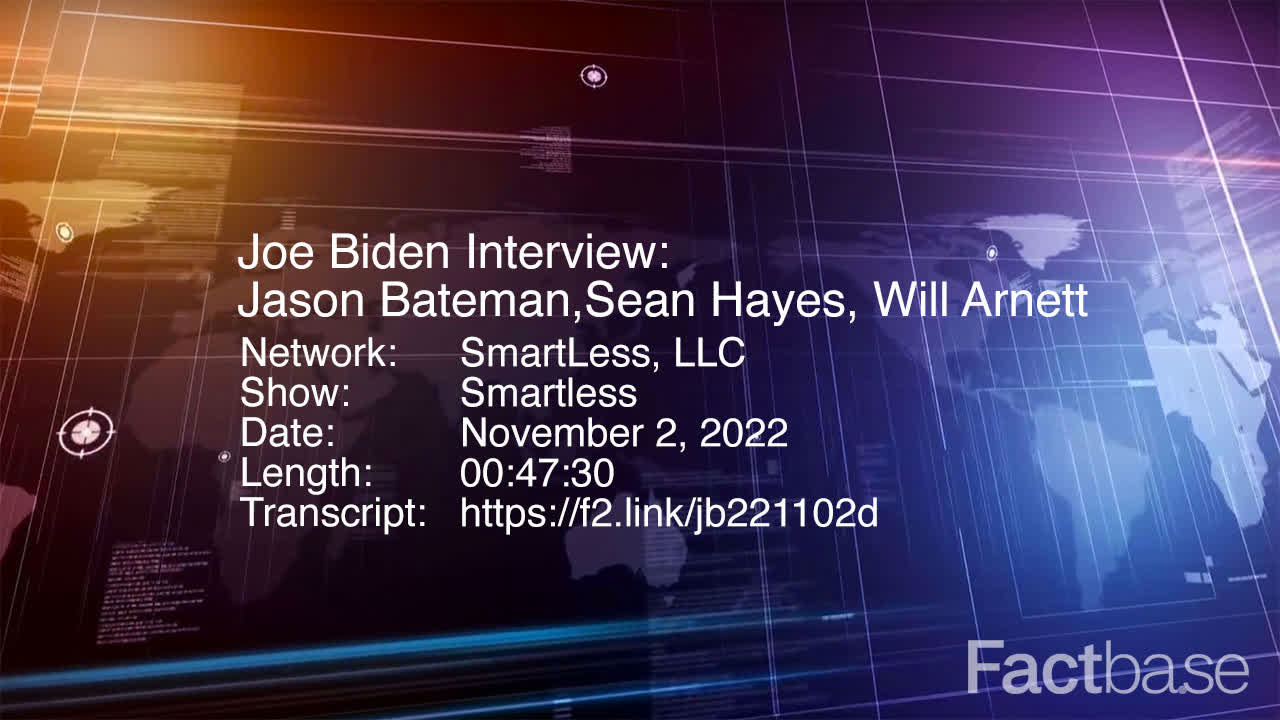
00:14:22-00:14:22 (1 sec)

"Yeah."
196
Joe Biden
Very Positive
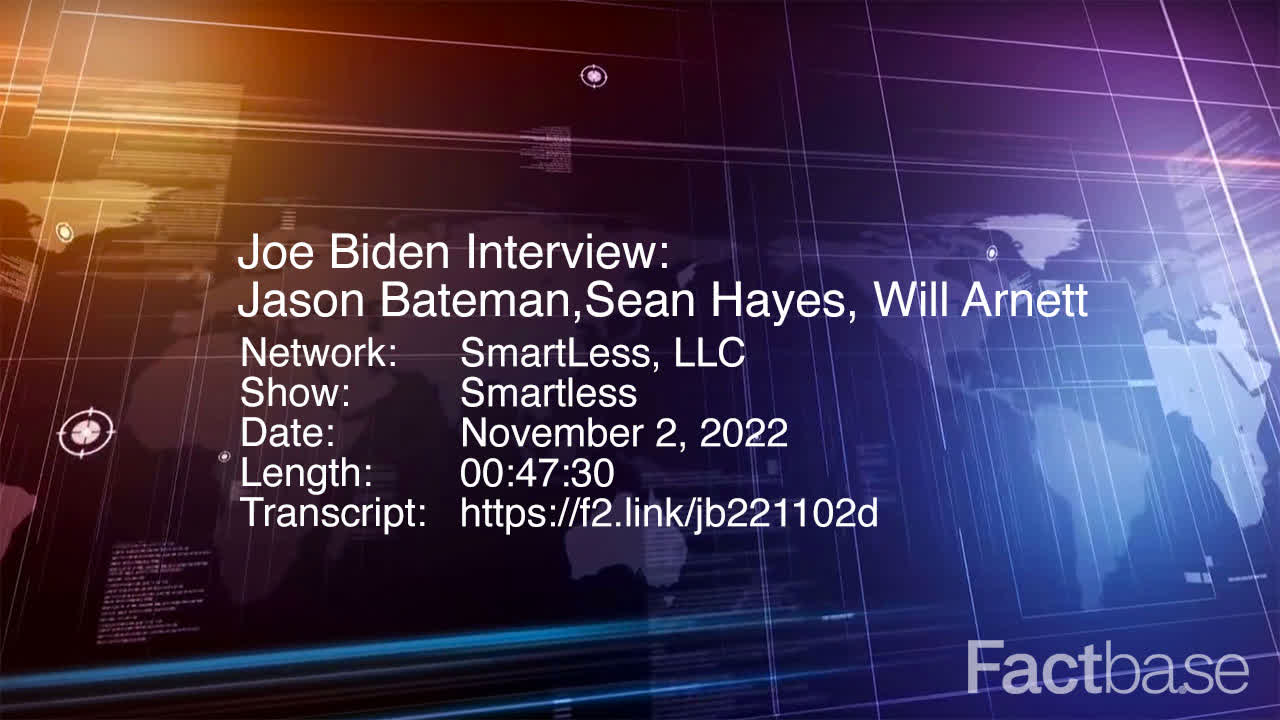
00:14:22-00:14:55 (33 sec)

"And my little guy, little Hunter, he's now 16 years old. Wonderful kid. He took out his cellphone. He said, "Here's a picture, Pop. We know." And he showed me a picture. My wife hates me telling this story, but it's true. And it was a picture was me walking out of the -- out of the cathedral with my hand on my son's flag-draped coffin, the military escort, and my arm around him like I used to hold his dad to just reassure."
197
Joe Biden
Very Negative
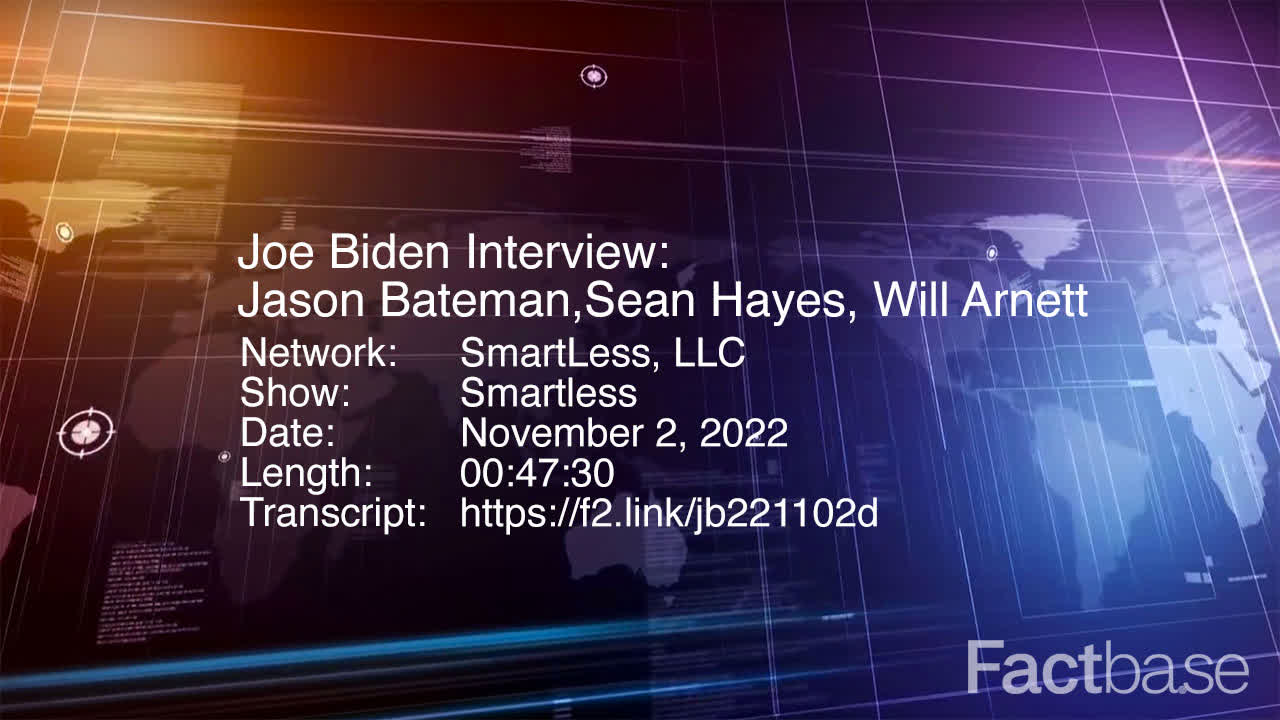
00:14:55-00:15:13 (17 sec)

"We're walking out. And the caption at the bottom said that Biden molests another child. And they said, "We know it's going to be tough." But here's the point about your question. I think the biggest thing that's changed is technology. There are no editors anymore."
198
Jason Bateman
Neutral
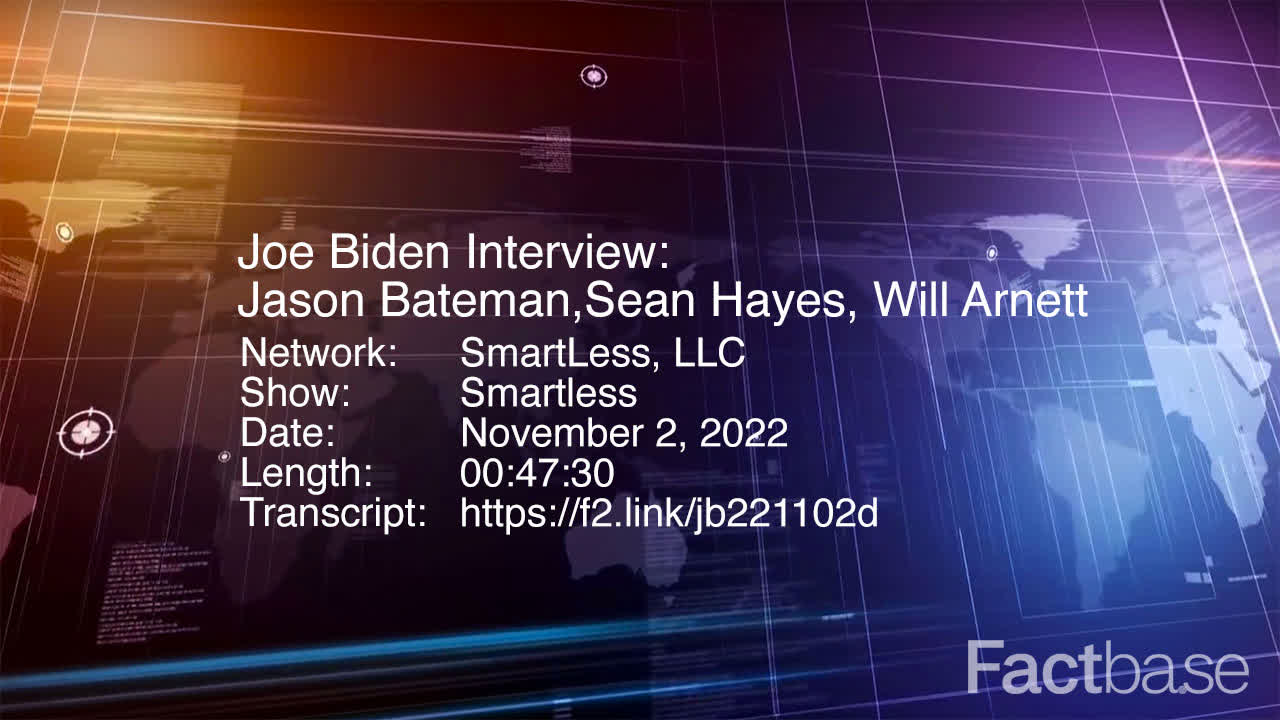
00:15:13-00:15:13 (1 sec)

"Right."
199
Joe Biden
Neutral
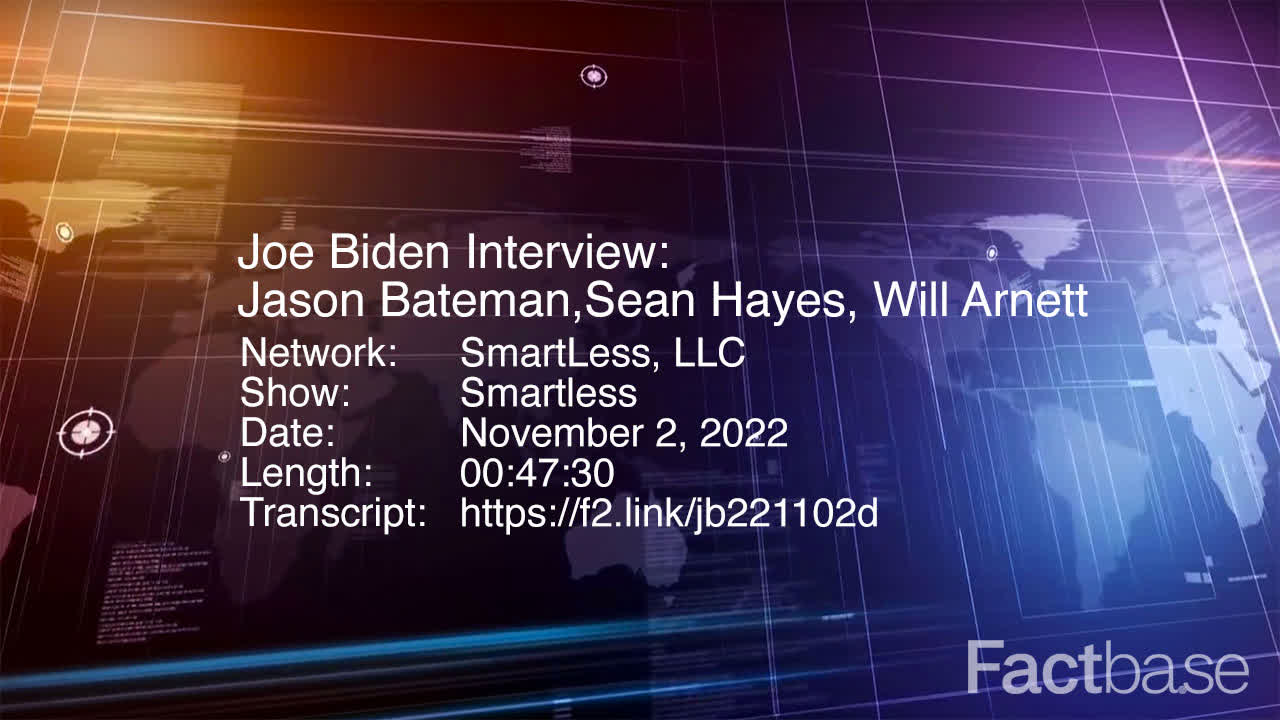
00:15:13-00:15:35 (22 sec)

"And so, you know, I -- you know, there's a lot been written, and I started to write a book about it, but I don't, obviously, have the time to do it now, that if you go all the way back to Gutenberg and the printing press, it changed the nature of the world and how nations got along."
200
Will Arnett
Neutral
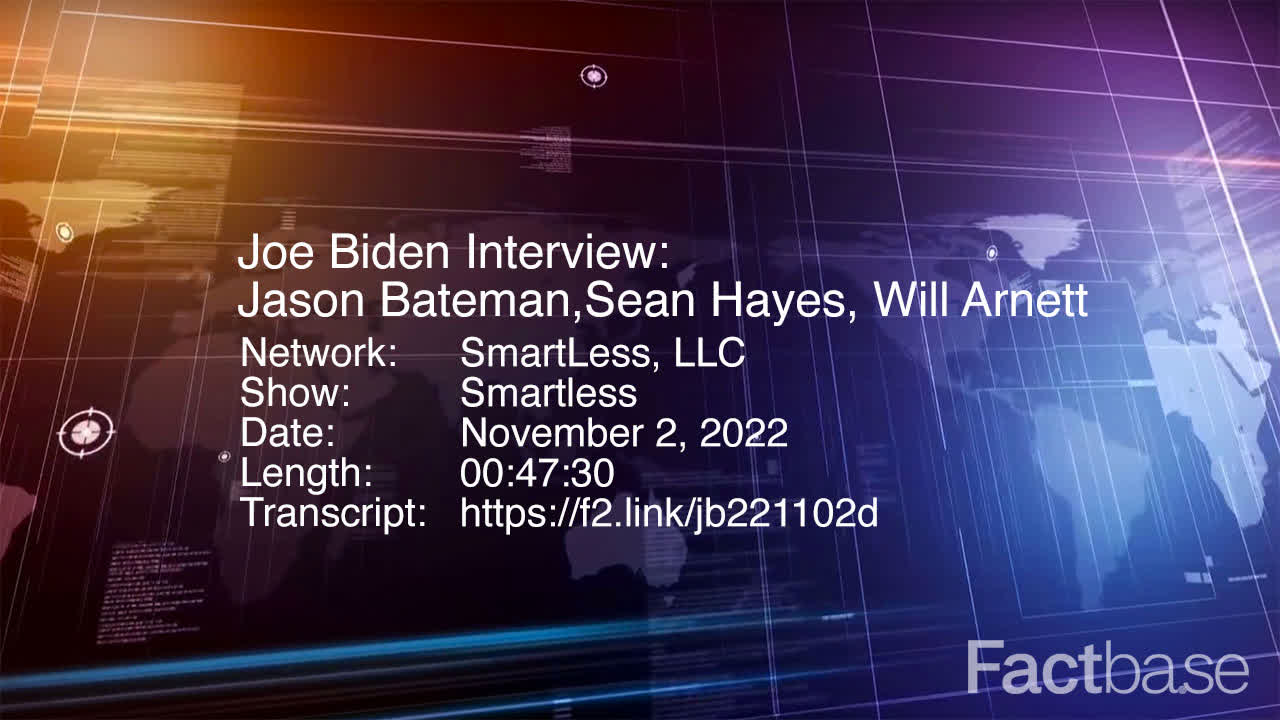
00:15:35-00:15:40 (5 sec)

"These guys have never read a book, so just keep going."
201
Joe Biden
Somewhat Negative
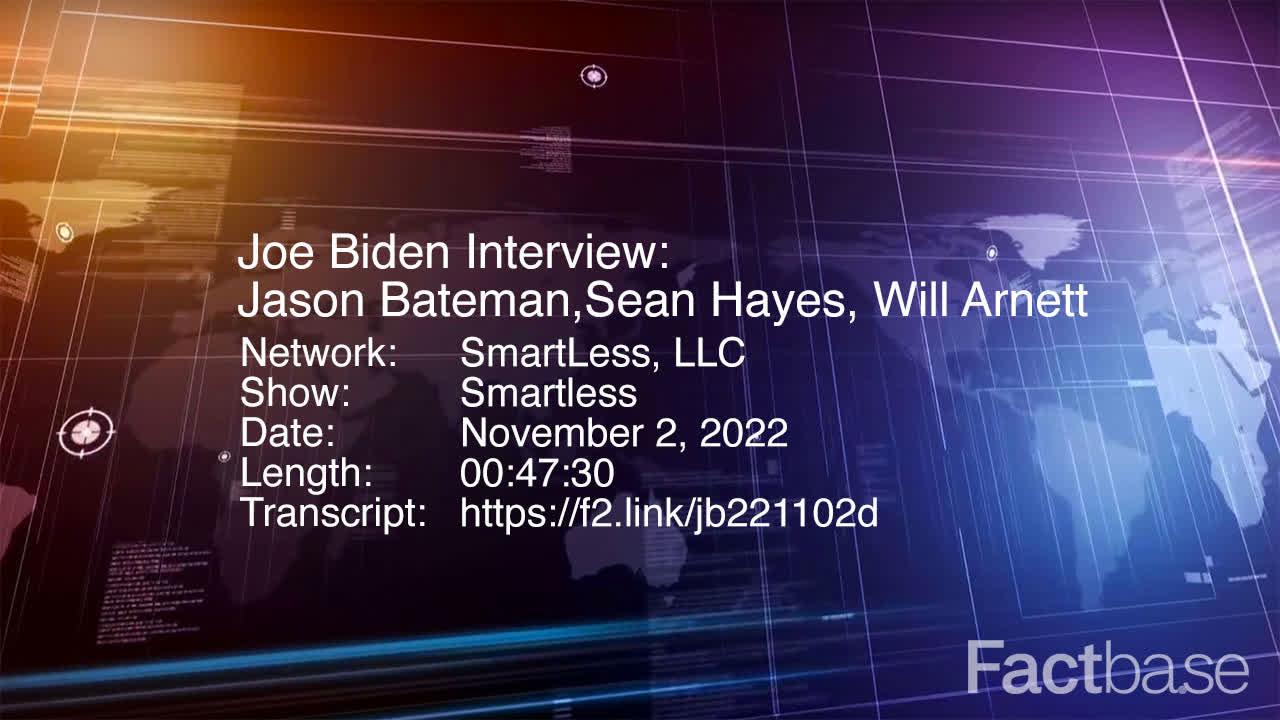
00:15:40-00:15:58 (18 sec)

"No -- no. Well, I know. But look -- look, I'm -- I'm getting the television. But think about how things have changed. In every new technological change, it changed the way we interface with one another."
202
Will Arnett
Slightly Positive
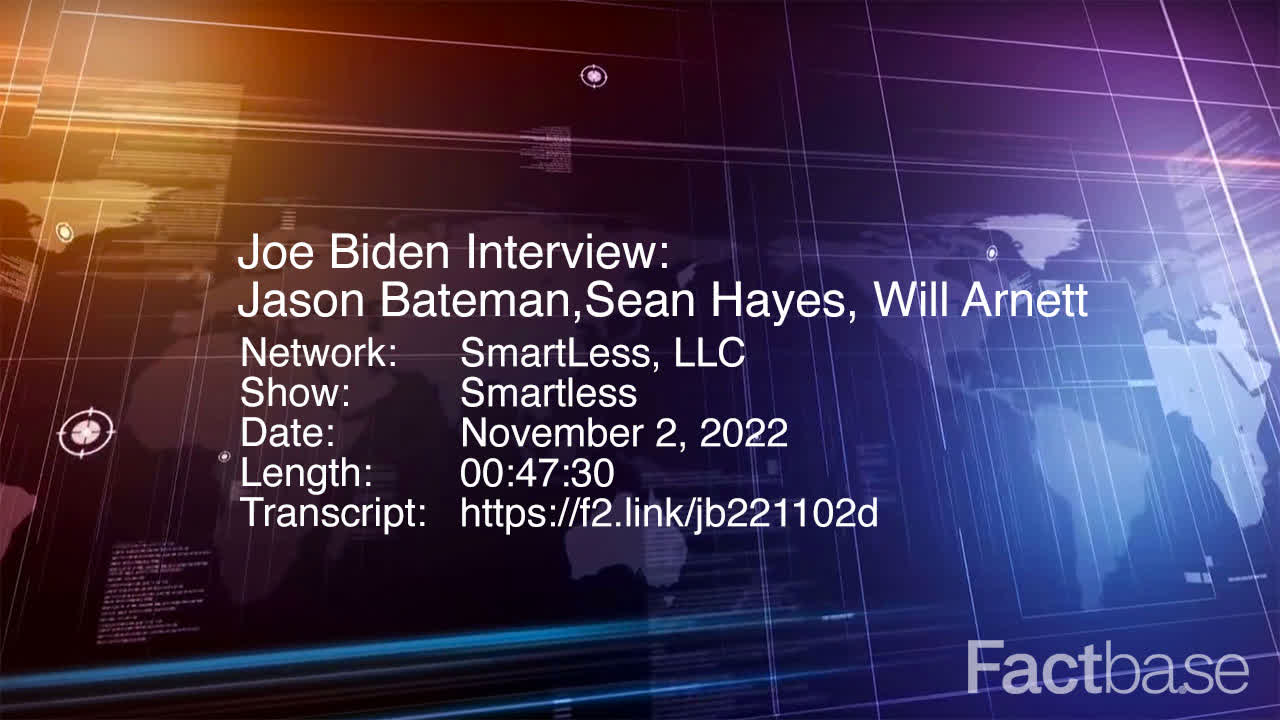
00:15:58-00:15:58 ( sec)

"Yeah."
203
Joe Biden
Neutral
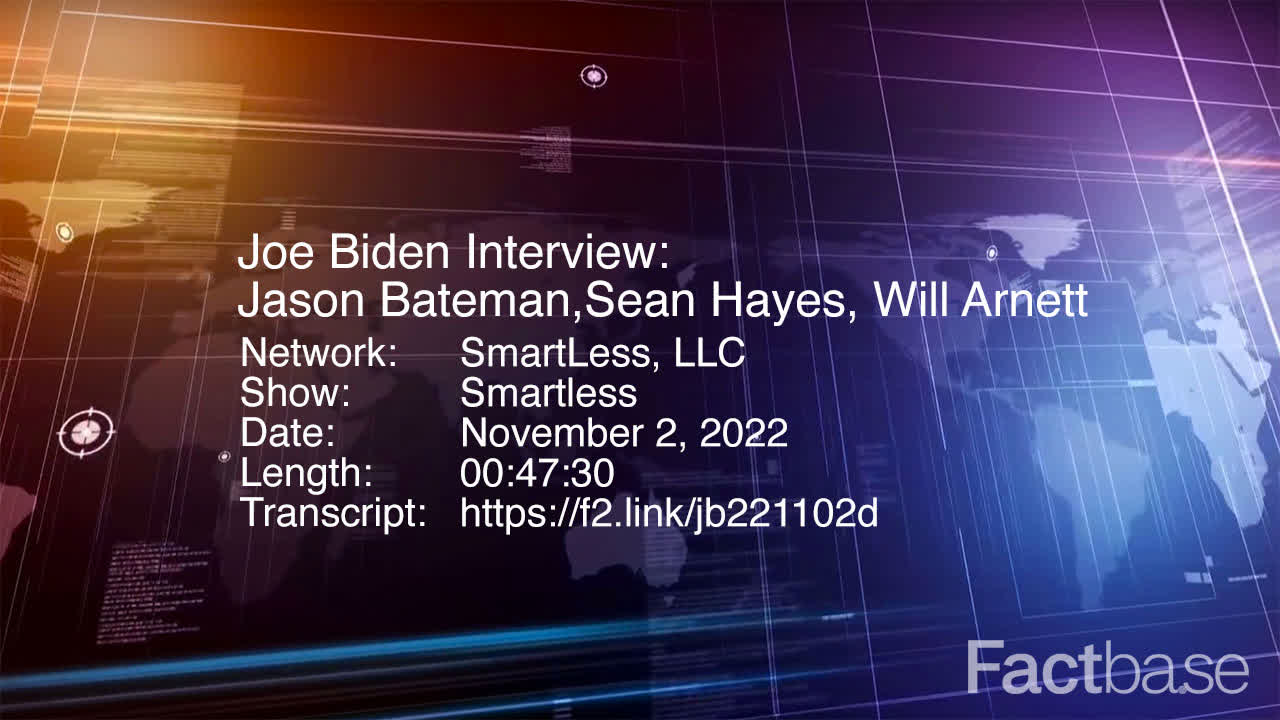
00:15:58-00:16:07 (9 sec)

"Whether it was the telegraph or the radio and then television."
204
Jason Bateman
Neutral
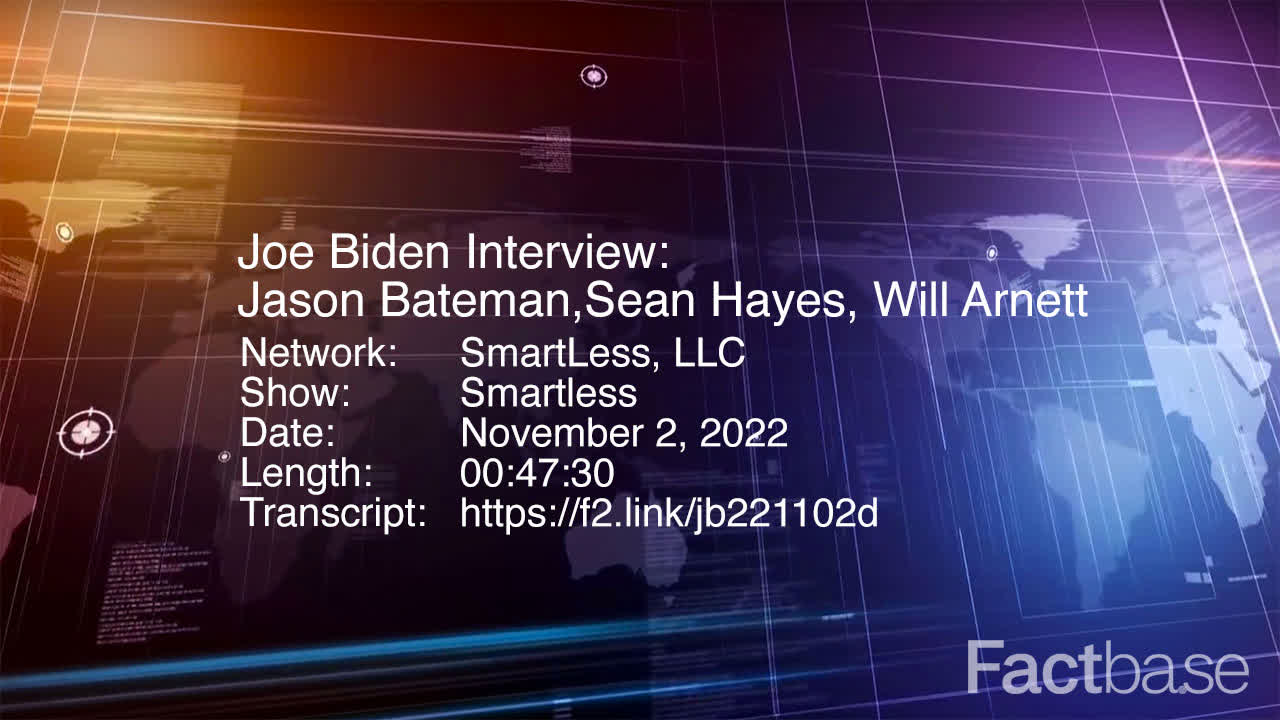
00:16:07-00:16:09 (2 sec)

"Right. Right."
205
Joe Biden
Slightly Negative
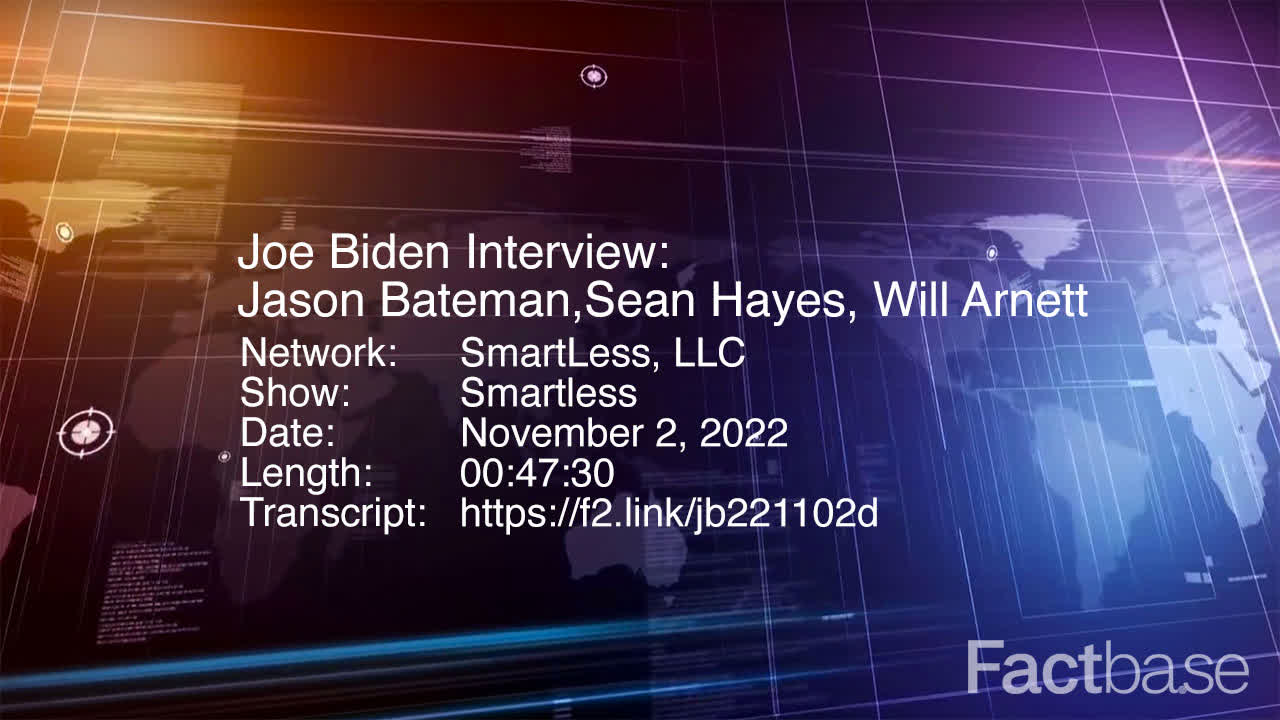
00:16:09-00:16:14 (5 sec)

"But now, the internet, for the first time, there's no editors."
206
Jason Bateman
Neutral
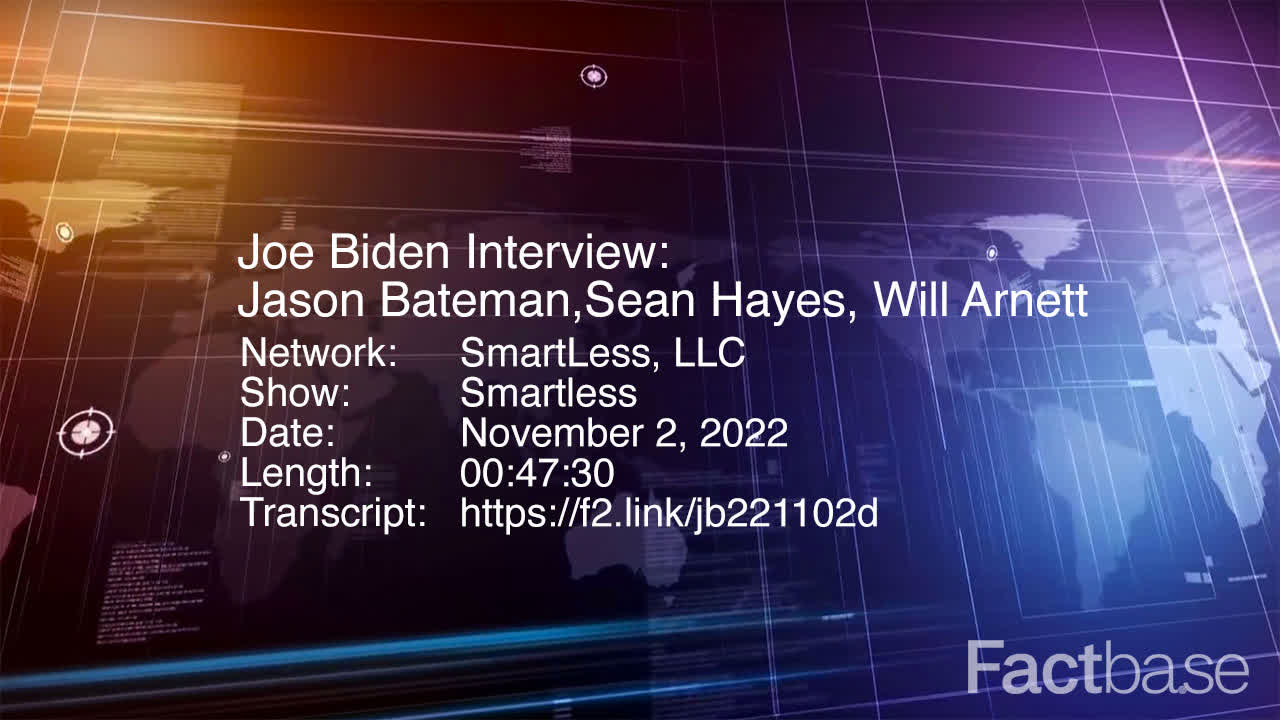
00:16:14-00:16:15 (1 sec)

"Right."
207
Will Arnett
Positive
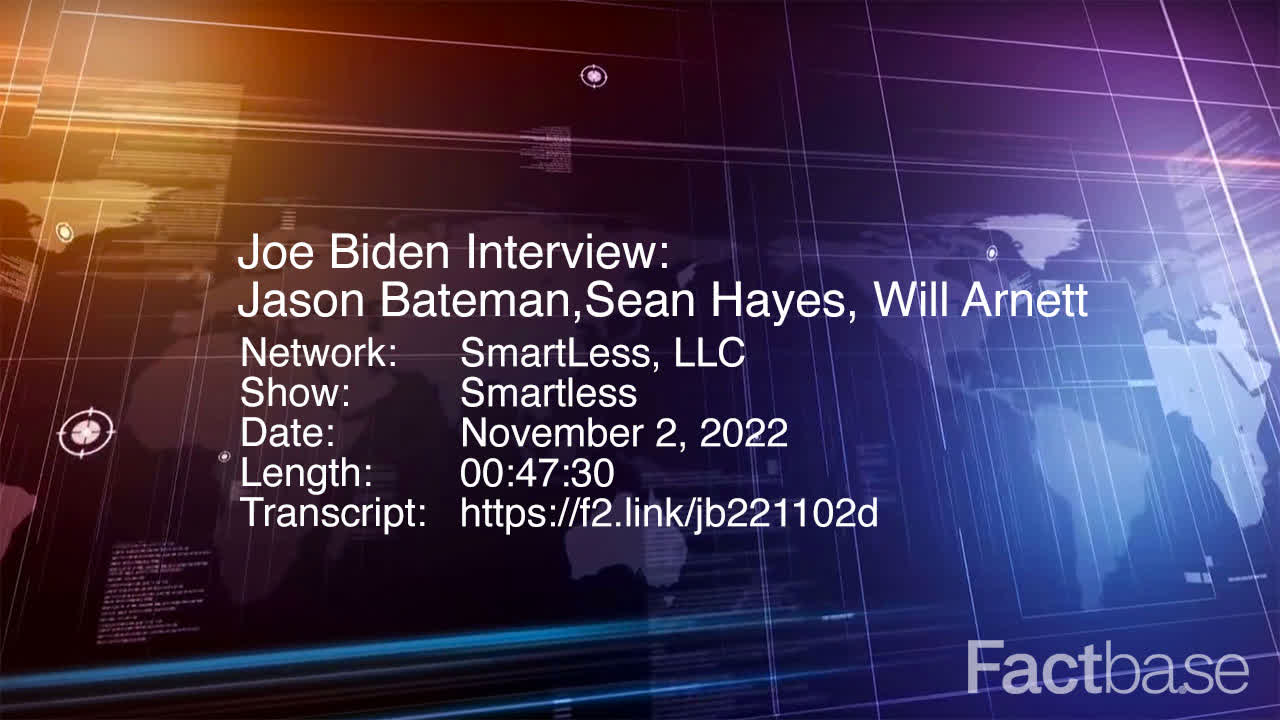
00:16:15-00:16:15 ( sec)

"Yes."
208
Joe Biden
Slightly Negative
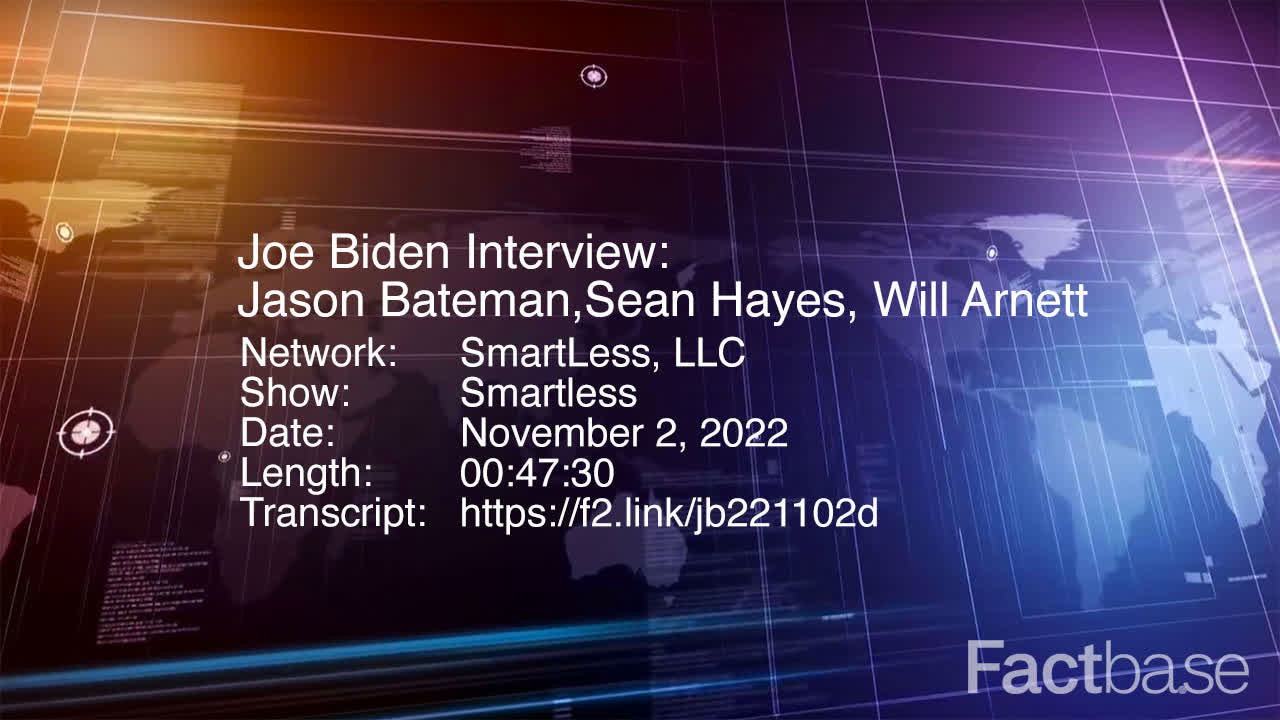
00:16:15-00:16:16 (1 sec)

"There's no editors at all."
209
Jason Bateman
Neutral
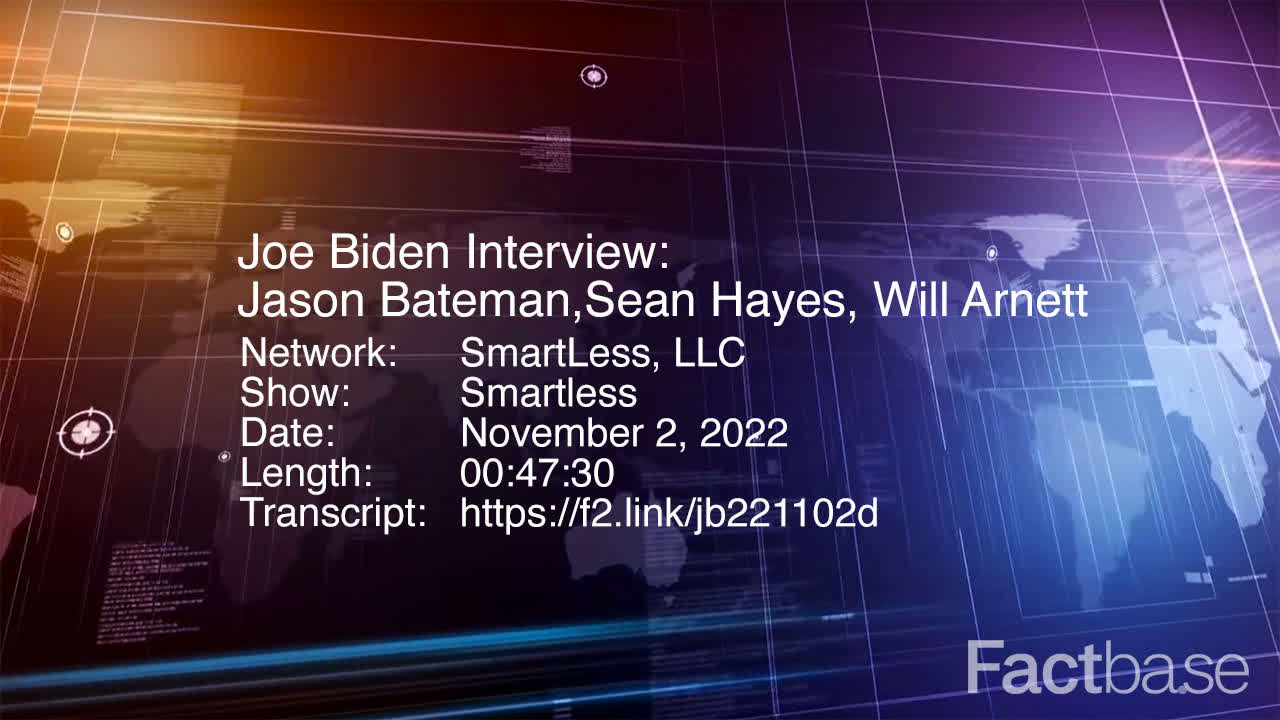
00:16:16-00:16:17 ( sec)

"Right."
210
Joe Biden
Positive
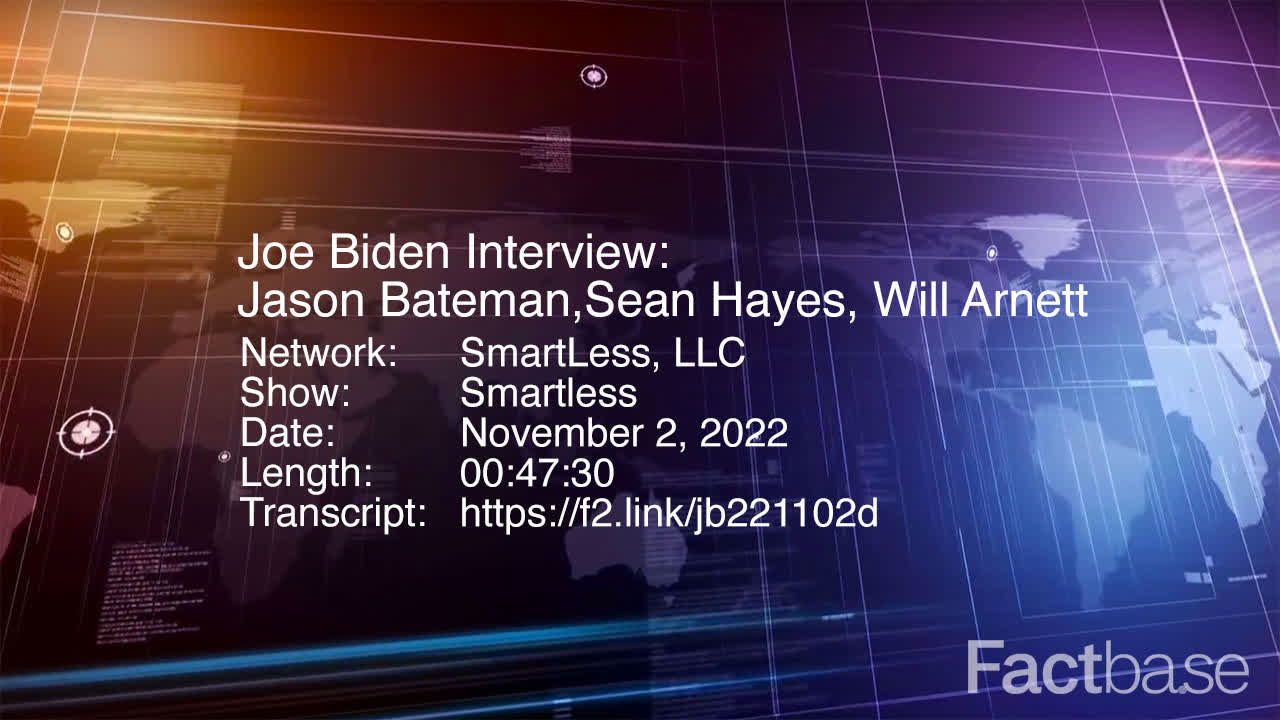
00:16:17-00:16:19 (3 sec)

"And so, how does somebody know what is true?"
211
Will Arnett
Slightly Positive
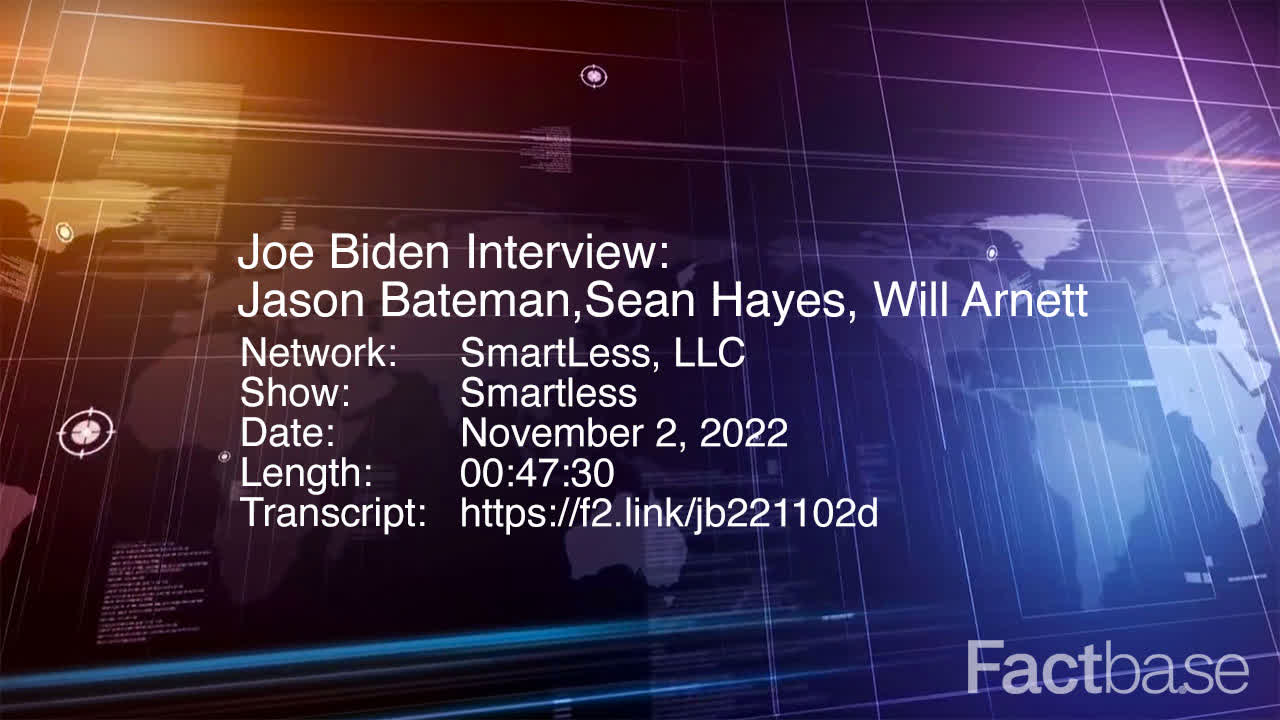
00:16:19-00:16:41 (22 sec)

"The difference. Yeah. And the difference between -- you know, I think that you should do an executive order where you could do, you can post on the internet, on social media, but you have to have your -- your name, your address, and your phone number. And then we'll see if people change their tone [Inaudible]"
212
Sean Hayes
Neutral
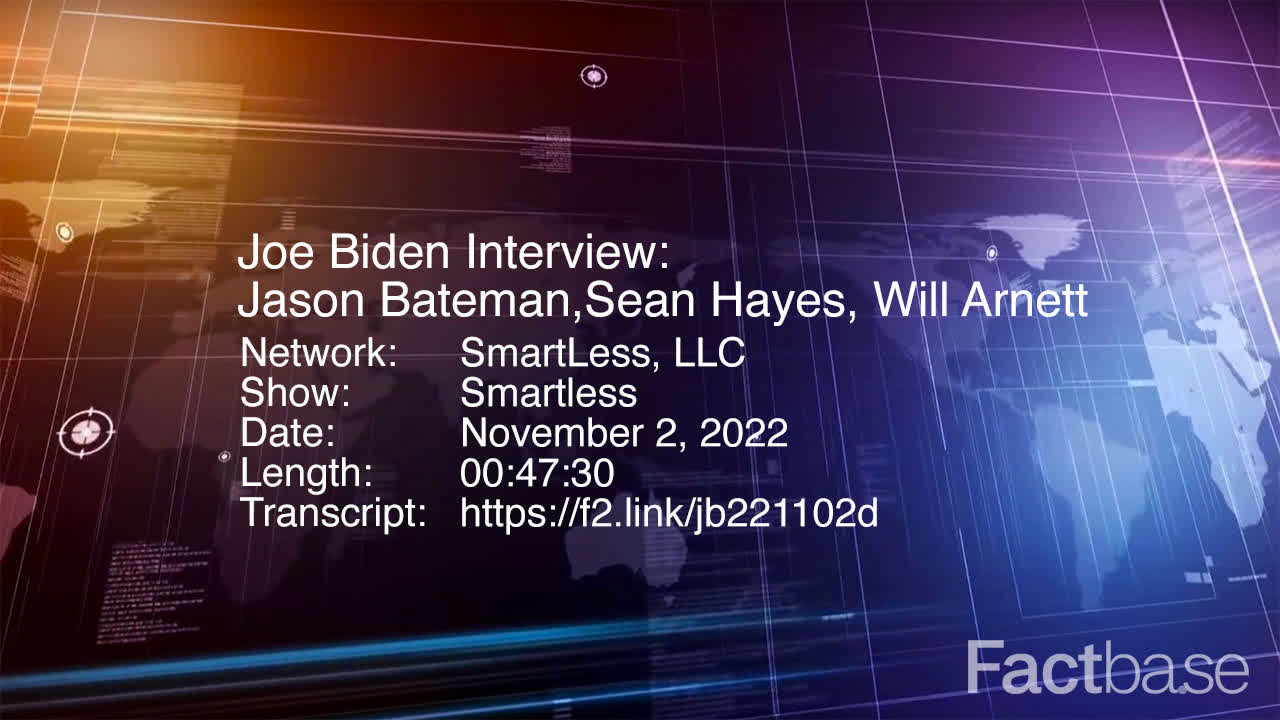
00:16:41-00:16:51 (9 sec)

"You know, there -- isn't there any way for the FCC or someone to -- to put a rating system or the equivalent of saying this is just opinion, this is actually fact?"
213
Will Arnett
Neutral
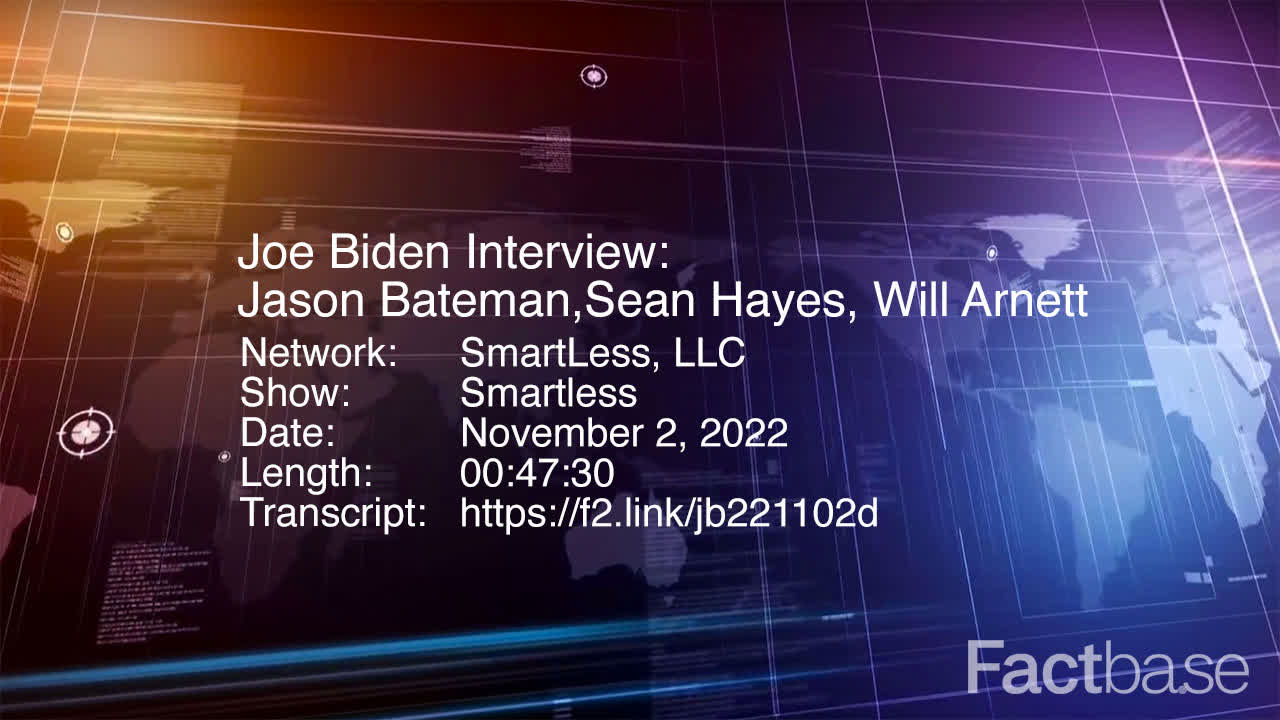
00:16:51-00:16:54 (4 sec)

"Oh, you've wanted this for a long time?"
214
Sean Hayes
Very Positive
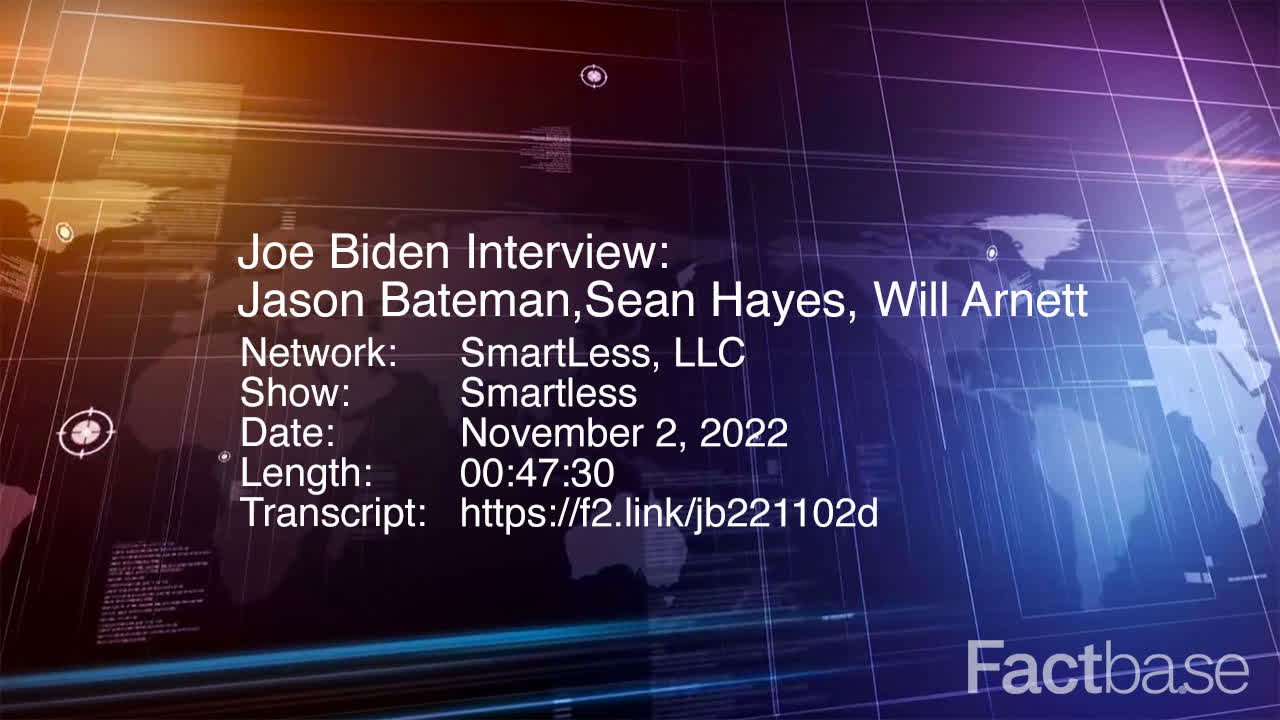
00:16:54-00:17:07 (13 sec)

"Just like you should be able to have to hit a certain threshold. You can't just -- everything can't look the same. It should have a little qualifier. Twitter does it or did it with the -- with the last guy's tweets."
215
Will Arnett
Neutral
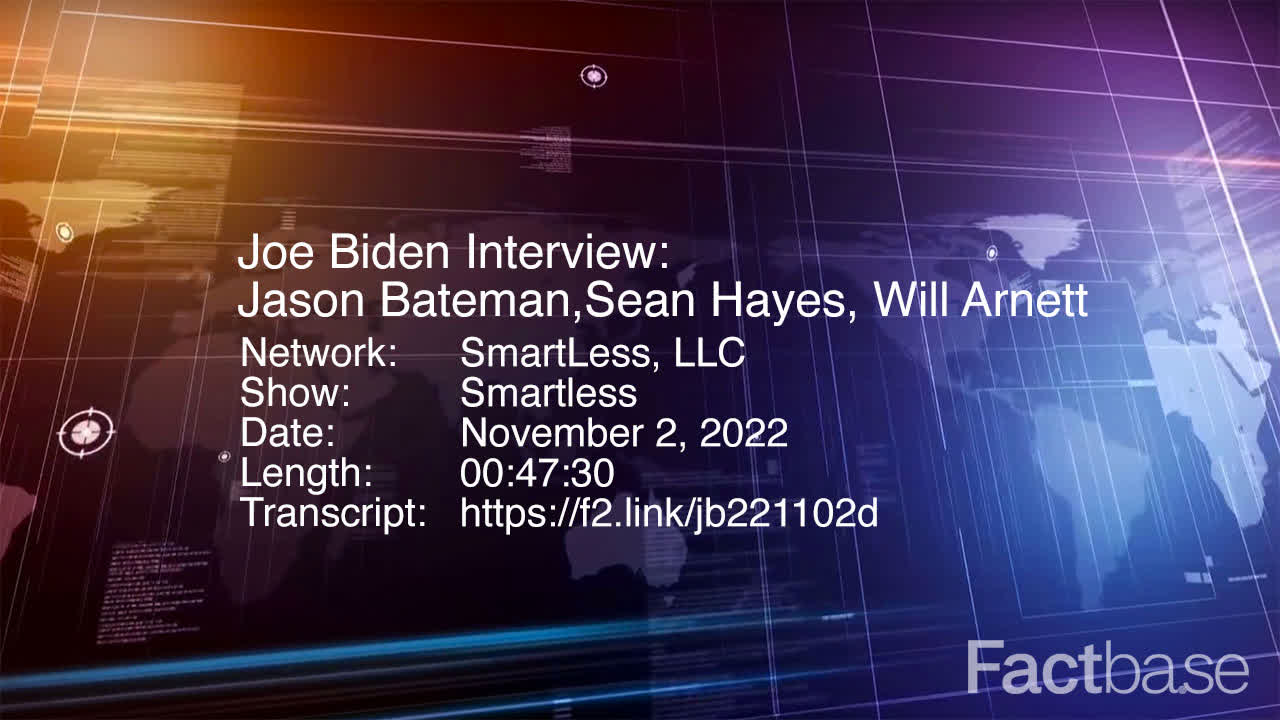
00:17:07-00:17:30 (23 sec)

"I mean, we -- we live in an age where people decided to start politicizing science and medicine that -- that it's so absurd. And you go -- you know, I'm originally Canadian, and -- and I go back to Canada. I'm -- I am American now, sir, but --"
216
Joe Biden
Somewhat Negative
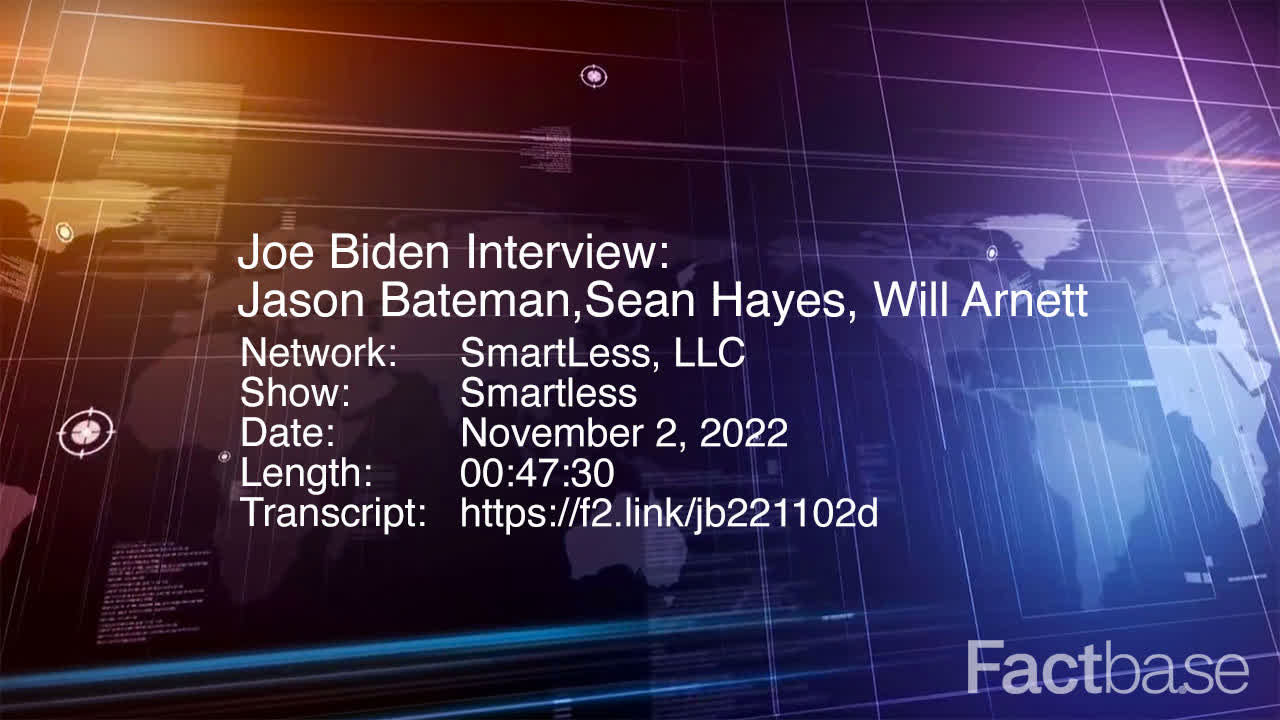
00:17:30-00:17:33 (3 sec)

"Oh, if I defect, I'm going to Canada."
217
Will Arnett
Very Positive
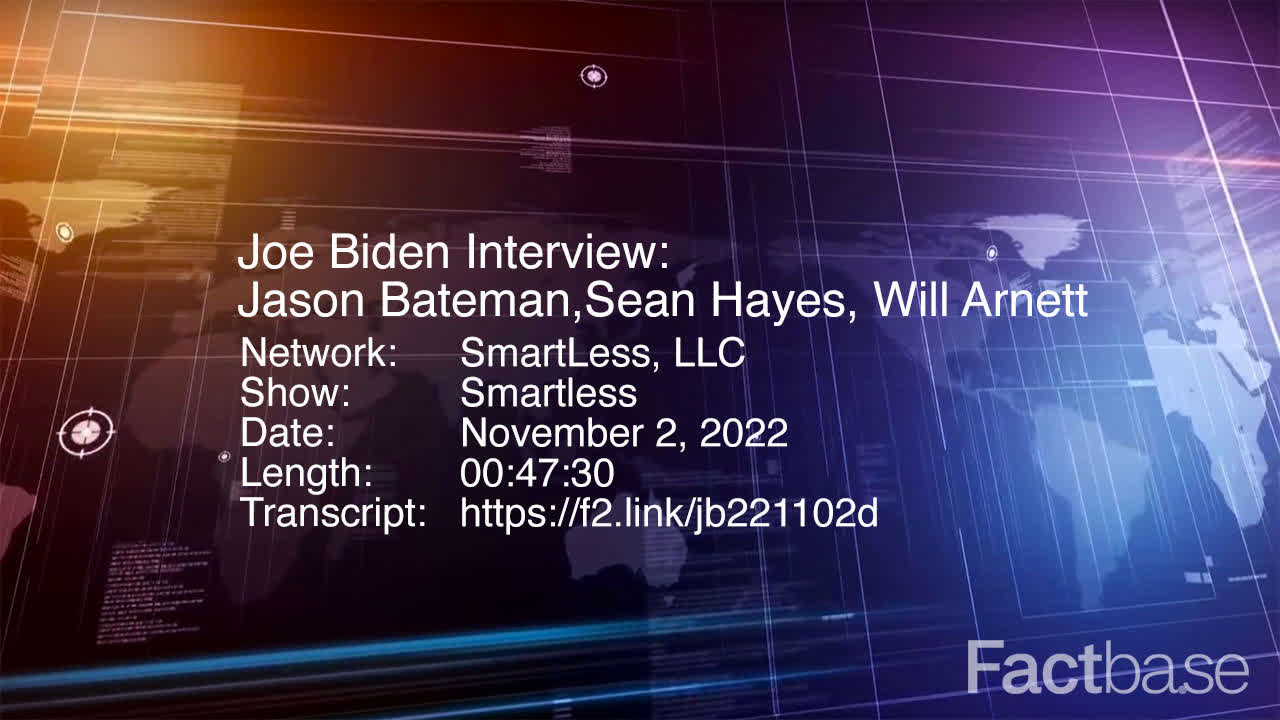
00:17:33-00:17:39 (5 sec)

"Yeah, well, listen, and you can stay with my folks."
218
Sean Hayes
Neutral
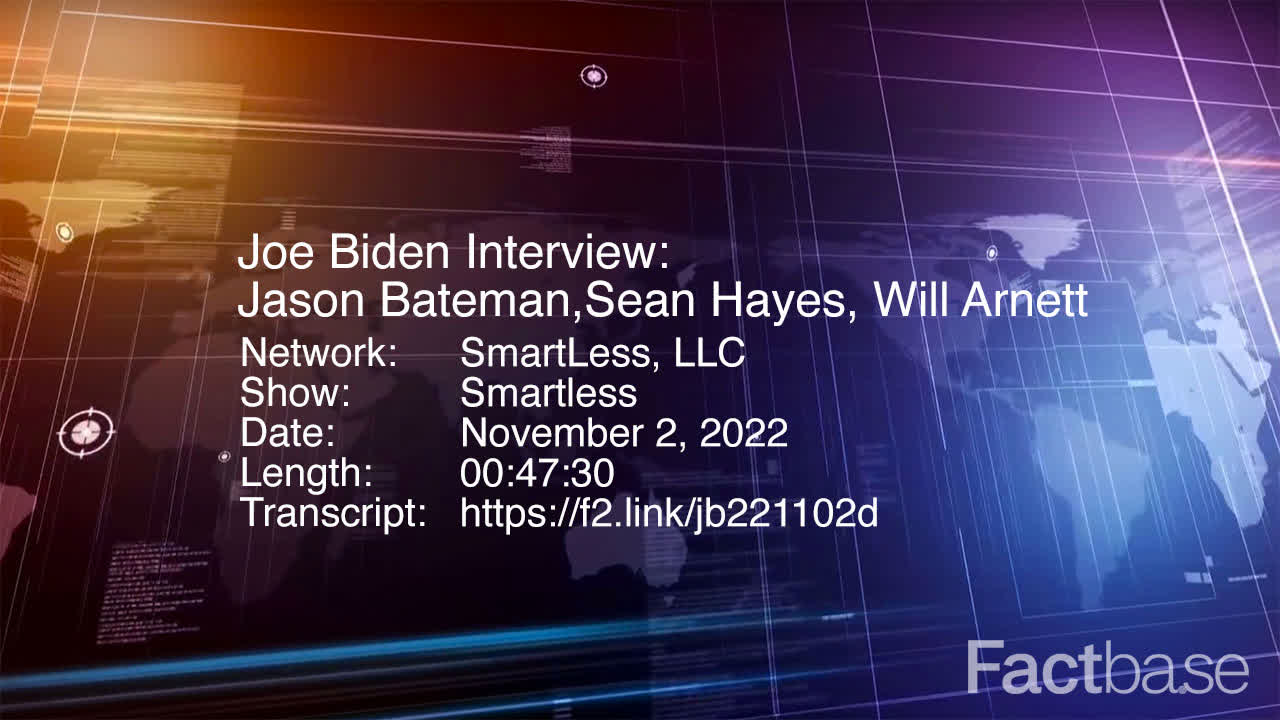
00:17:39-00:17:40 (2 sec)

"I'll drive you."
219
Will Arnett
Very Positive
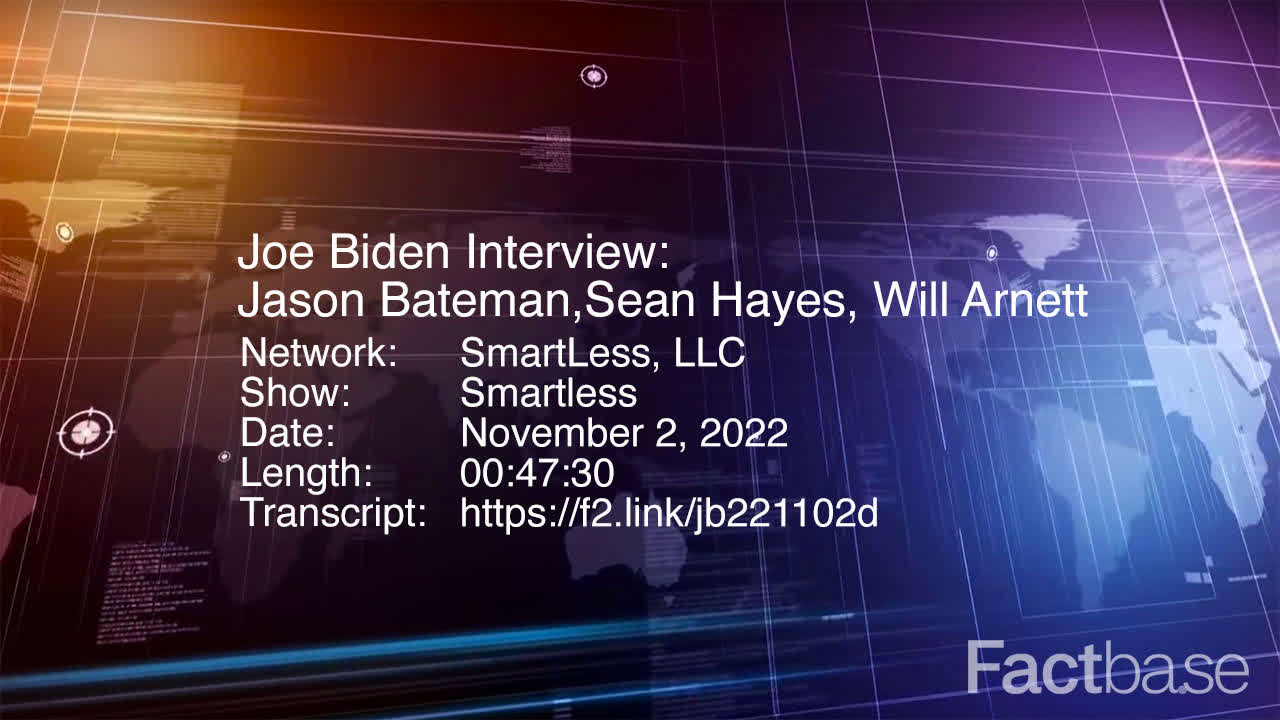
00:17:40-00:17:53 (13 sec)

"Jim and Alex will take you any day. But -- but that idea that, like, how -- it's absurd. How are we politicizing this stuff that we used to take as fact?"
220
Joe Biden
Positive
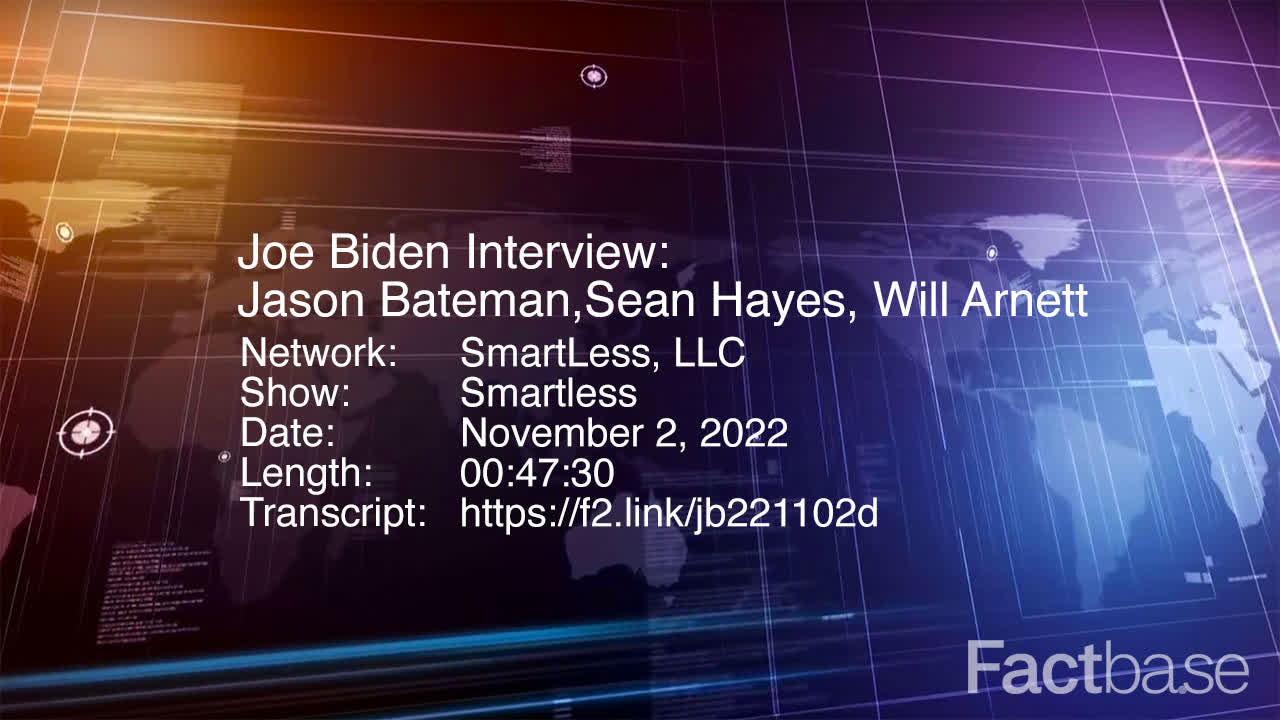
00:17:53-00:18:08 (15 sec)

"Well, look, that's -- that's true. And -- and if you notice, the generic polling about the American public, they're 40, 50, 60 percent are worried about the survival of democracy."
221
Jason Bateman
Slightly Positive
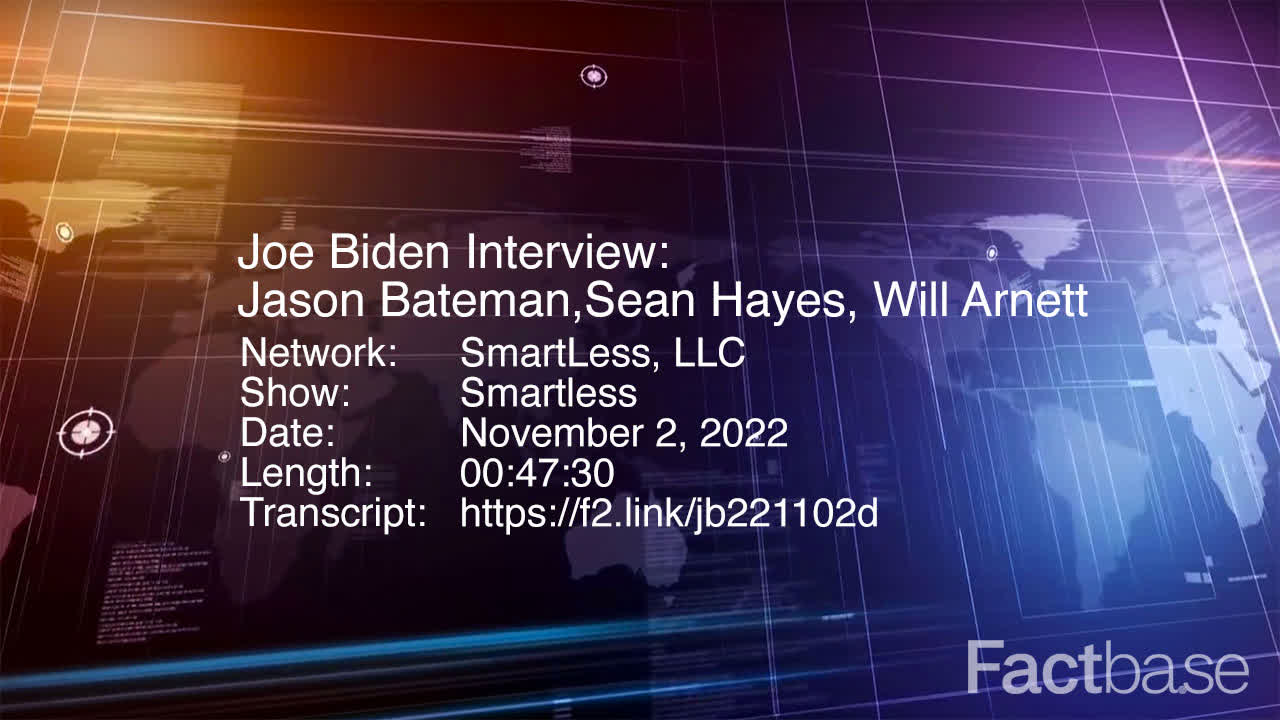
00:18:08-00:18:08 ( sec)

"Yeah."
222
Will Arnett
Slightly Positive
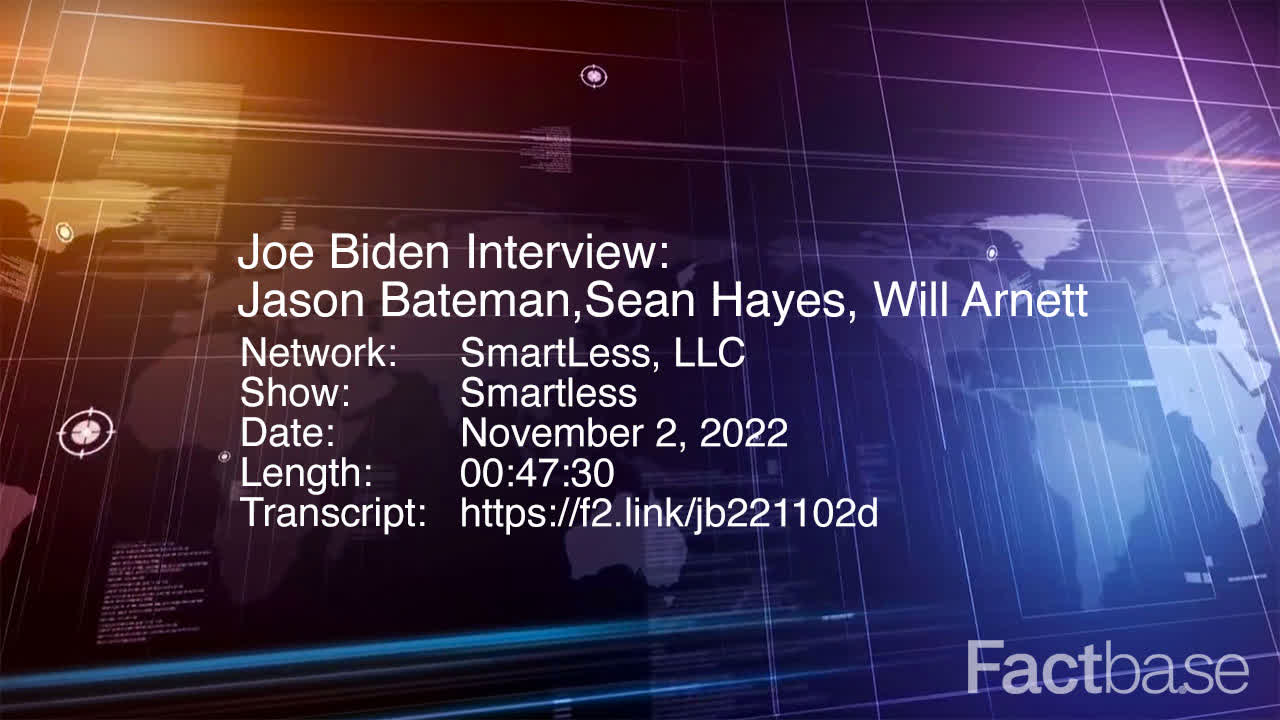
00:18:08-00:18:08 ( sec)

"Yeah."
223
Joe Biden
Neutral
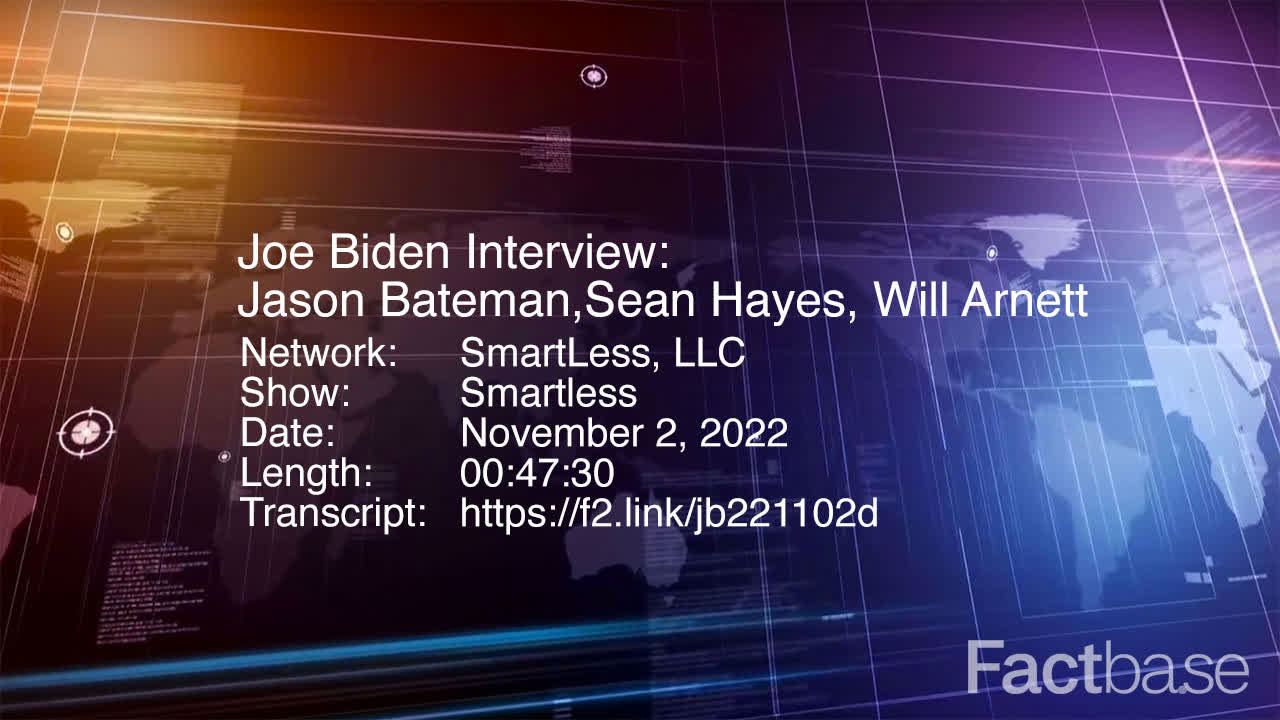
00:18:08-00:18:11 (3 sec)

"But it's not just here. It's all around the world --"
224
Jason Bateman
Slightly Positive
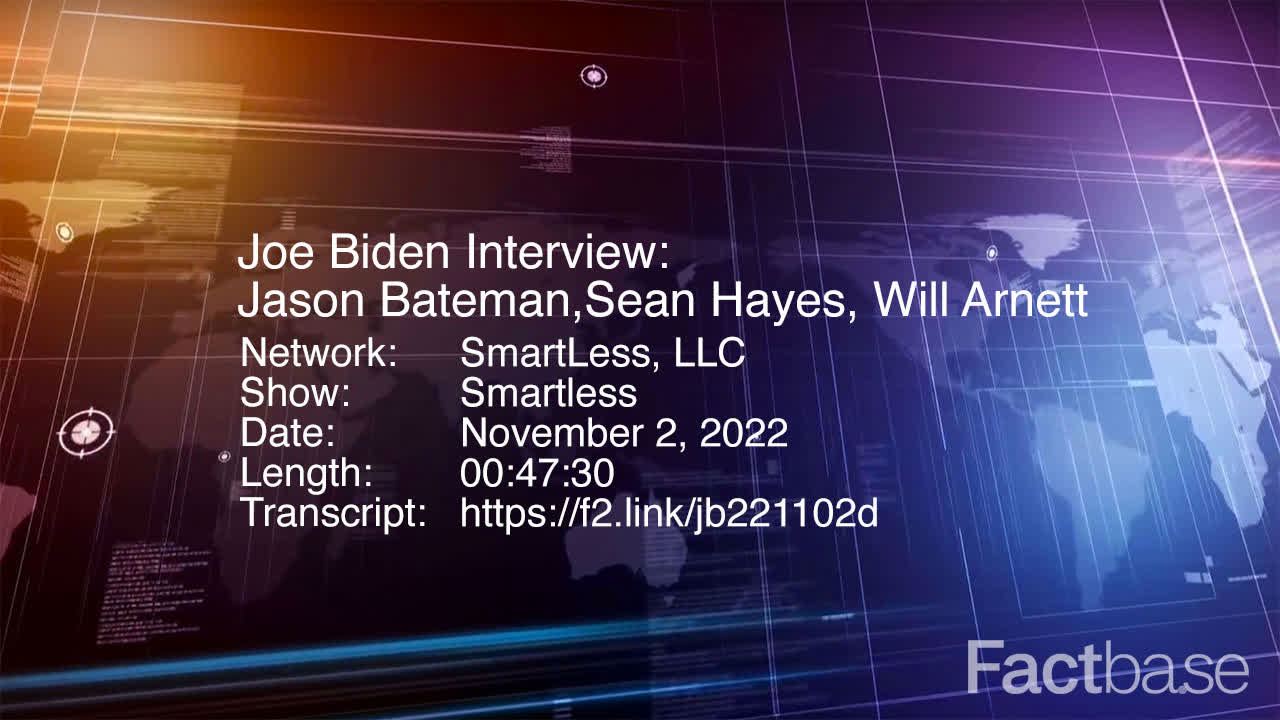
00:18:11-00:18:12 (1 sec)

"Yeah."
225
Will Arnett
Slightly Positive
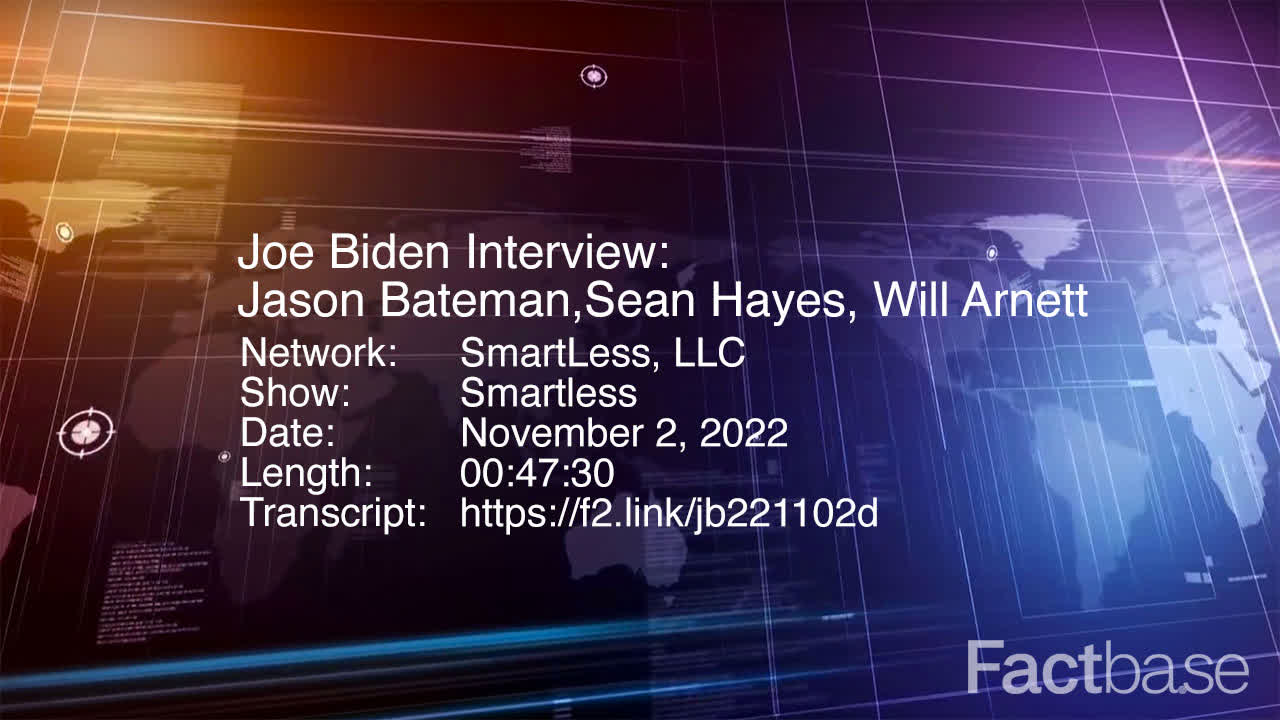
00:18:12-00:18:12 (1 sec)

"Yeah."
226
Joe Biden
Somewhat Positive
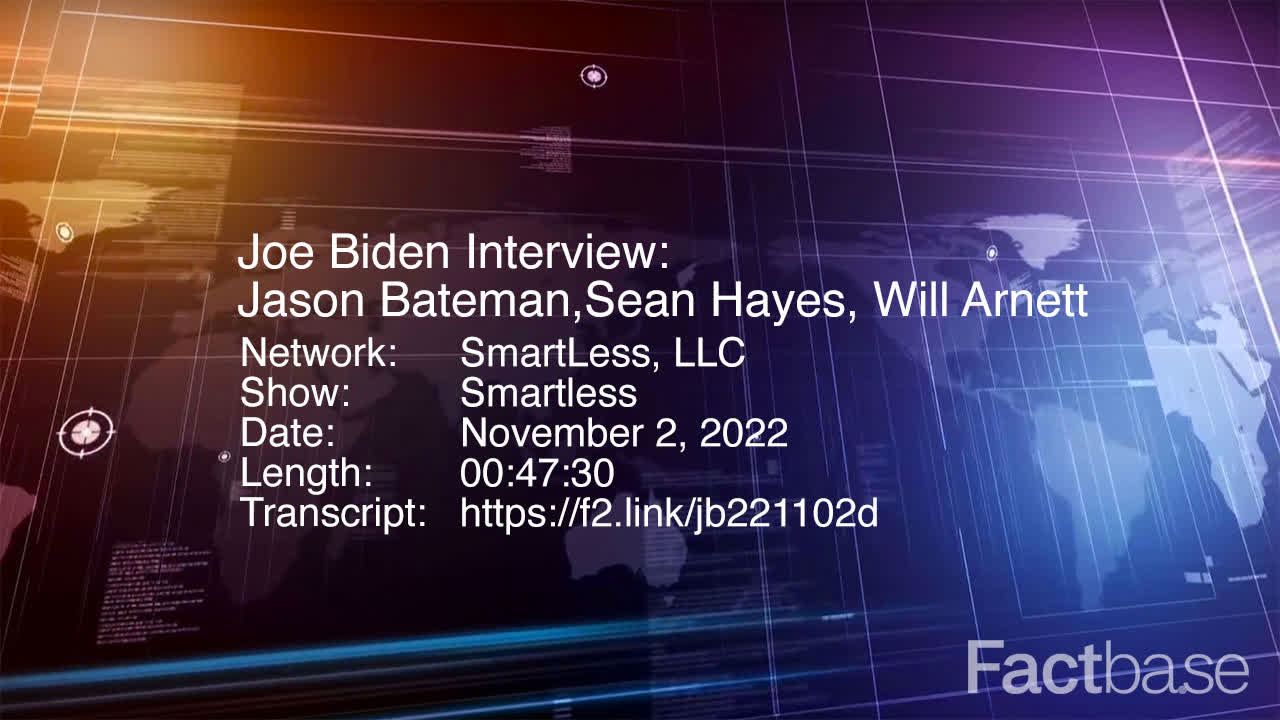
00:18:12-00:18:21 (9 sec)

"This notion of can -- you know, democracy, can it be sustained? But I'm optimistic, and I really am."
227
Will Arnett
Very Positive
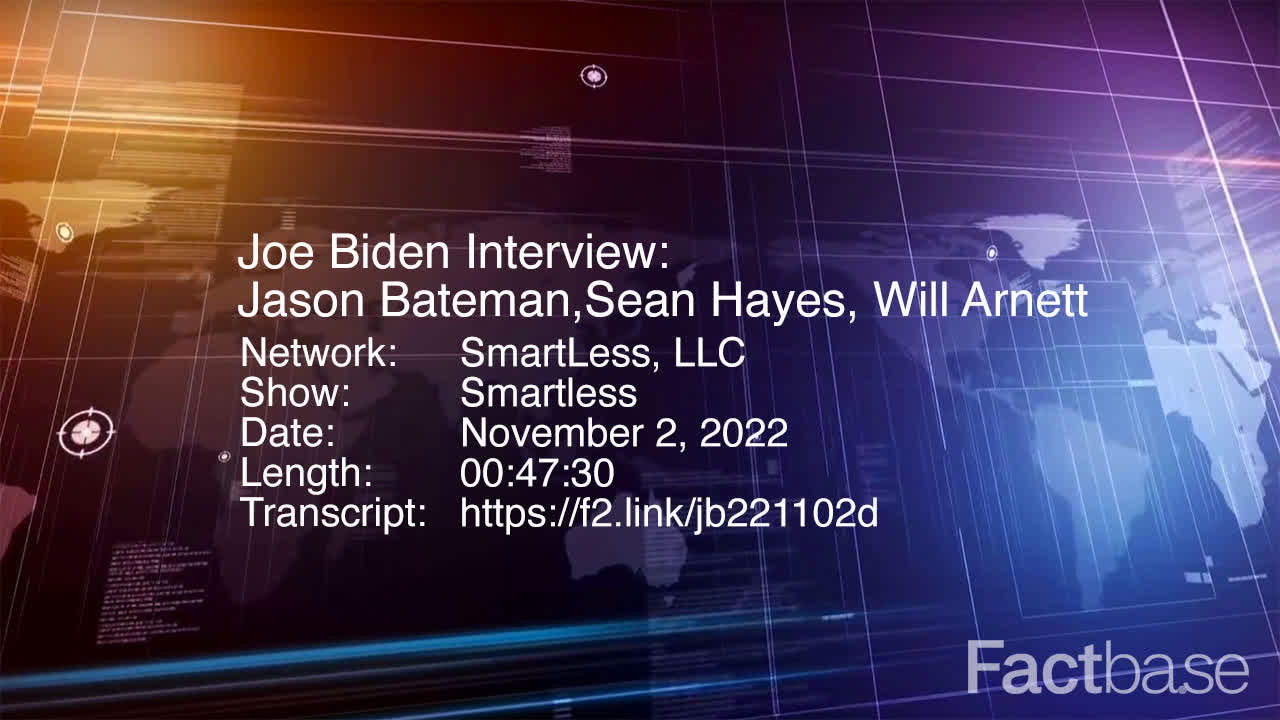
00:18:21-00:18:23 (2 sec)

"I love that."
228
Joe Biden
Leans Negative
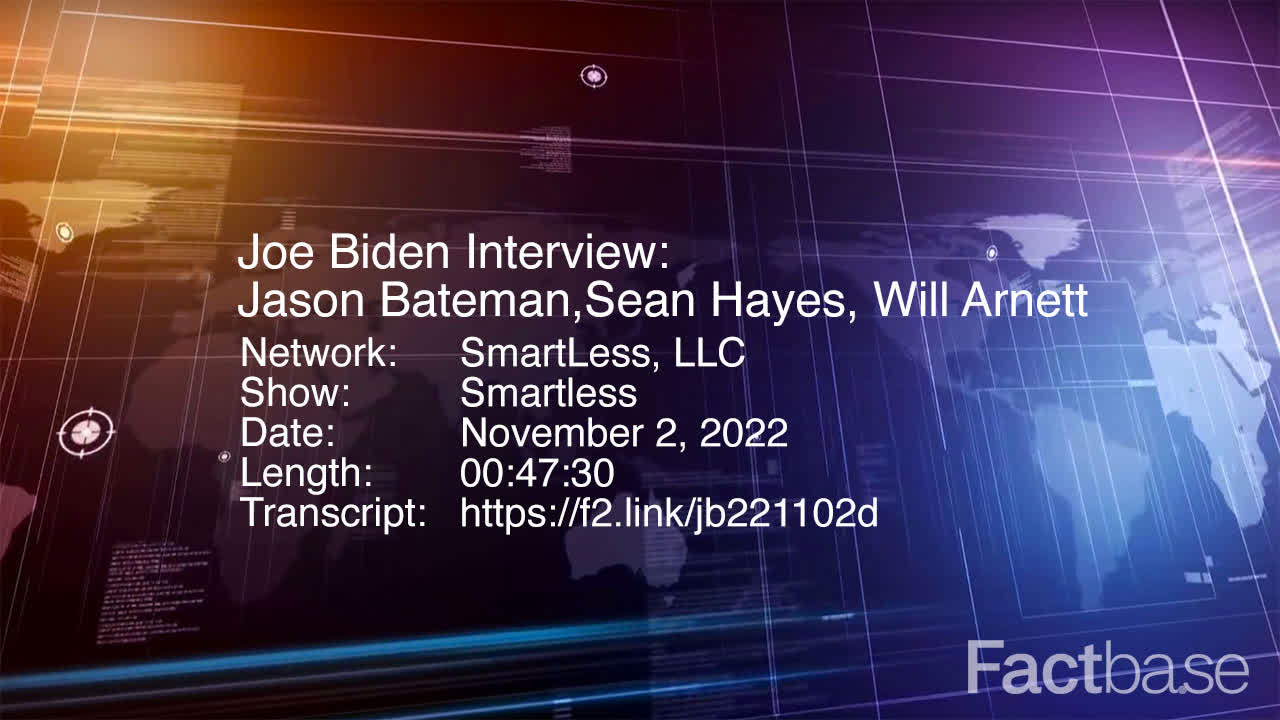
00:18:23-00:18:34 (12 sec)

"No, but I -- I genuinely am because this younger generation, the ones you speak to up to -- I say up to 30 when I talk about the younger generation."
229
Jason Bateman
Slightly Positive
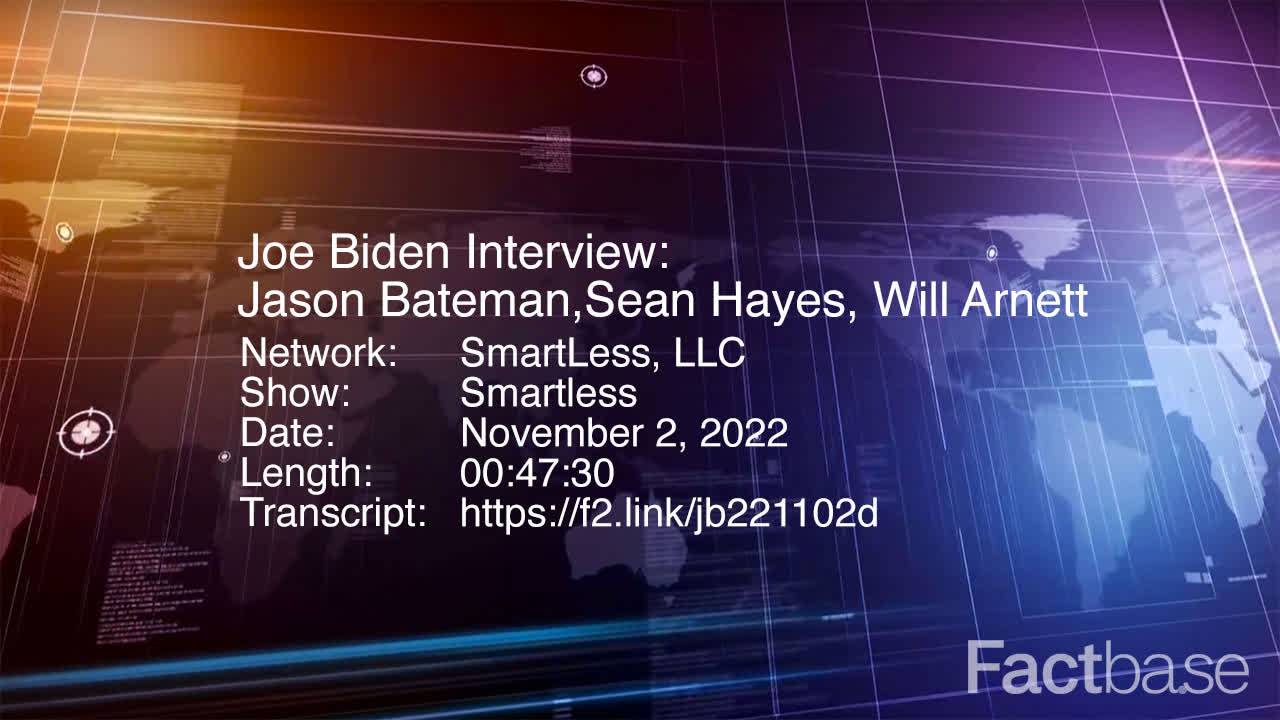
00:18:34-00:18:36 (1 sec)

"Yeah."
230
Joe Biden
Very Positive
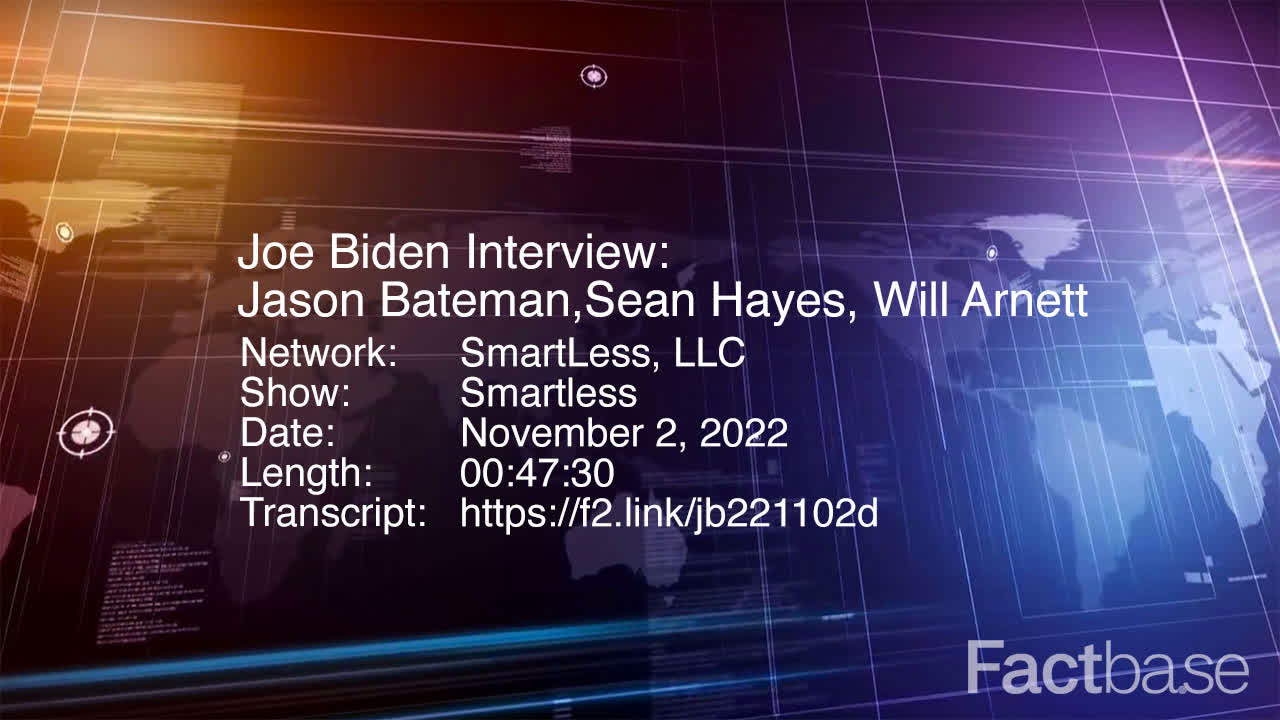
00:18:36-00:18:50 (14 sec)

"No, I'm not being facetious. I'm being deadly earnest. Is the best educated, the most open, the least prejudiced, the most giving generation in American history."
231
Jason Bateman
Slightly Positive
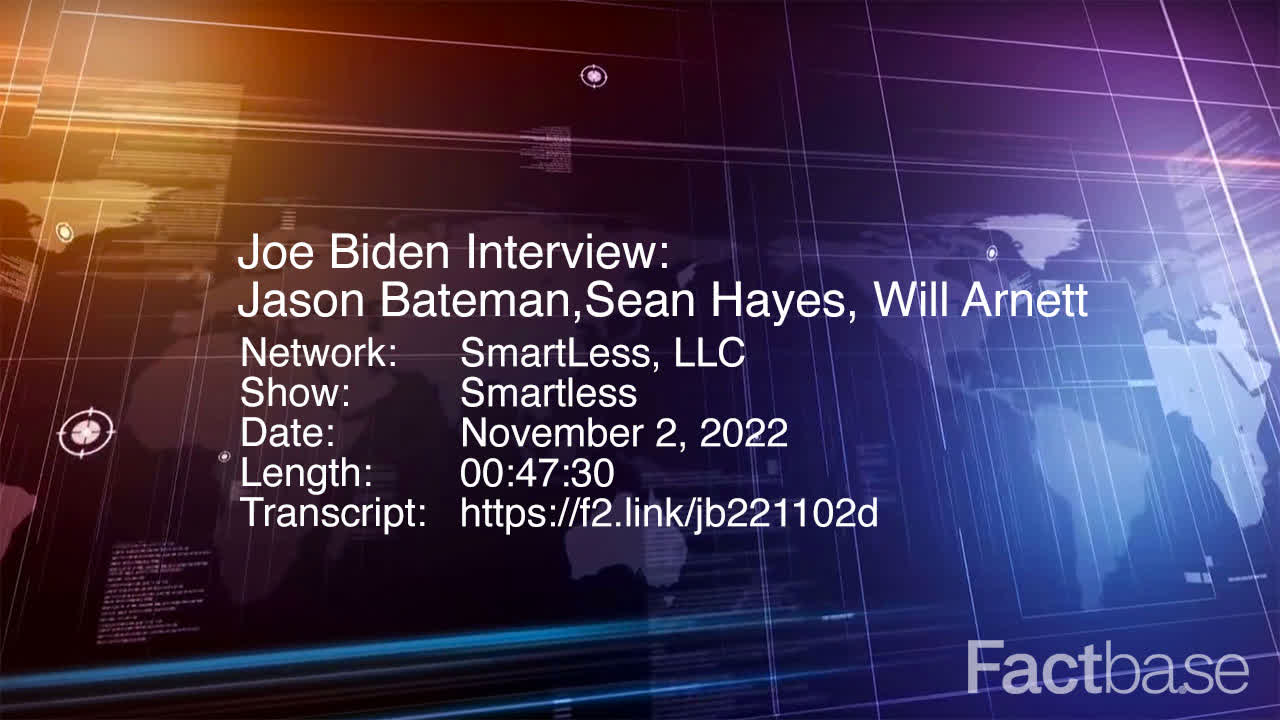
00:18:50-00:18:50 (1 sec)

"Yeah."
232
Joe Biden
Positive
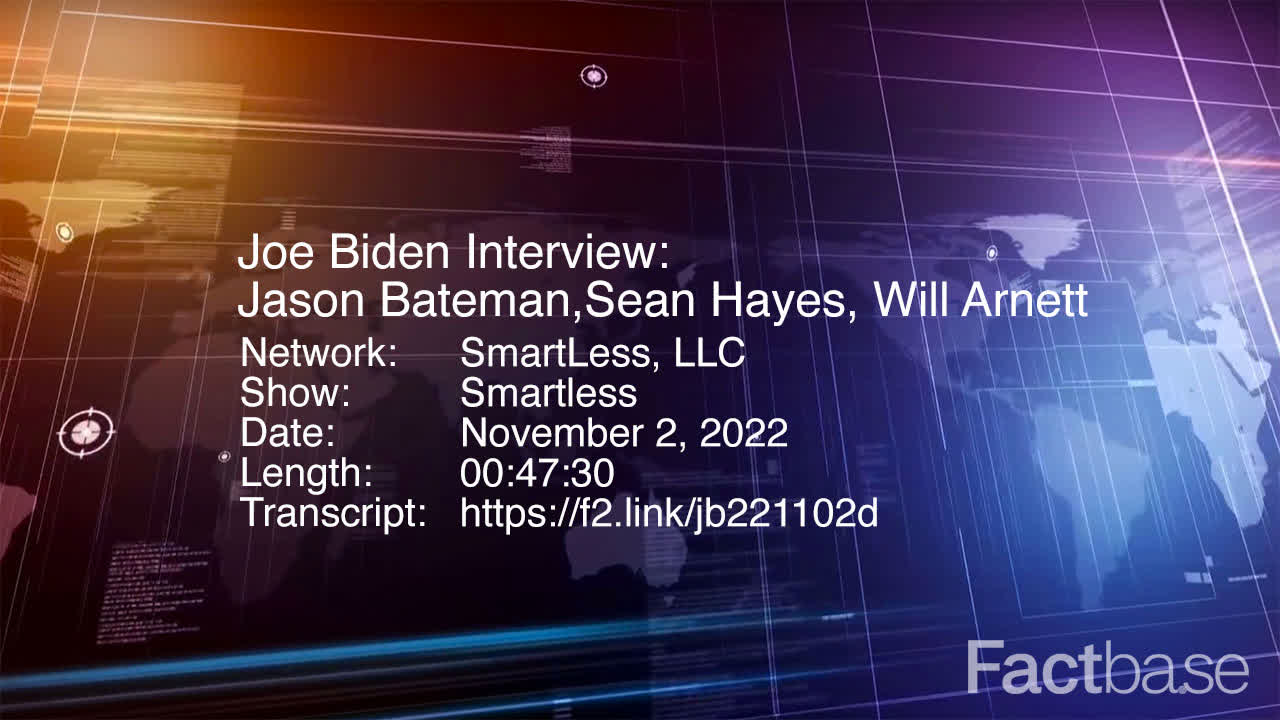
00:18:50-00:19:20 (30 sec)

"And -- and we're going to break through this. We really, truly are. And you think about the things that how ugly things have gotten. But think about how much we've gotten done. I mean, did -- you know, when I ran, I said I was running for three reasons: to restore the soul of America; to rebuild the middle class, and because when the economy is built from the middle out, the poor do have a road up and the wealthy still do very well; and to -- and to unite the country."
233
Joe Biden
Very Negative
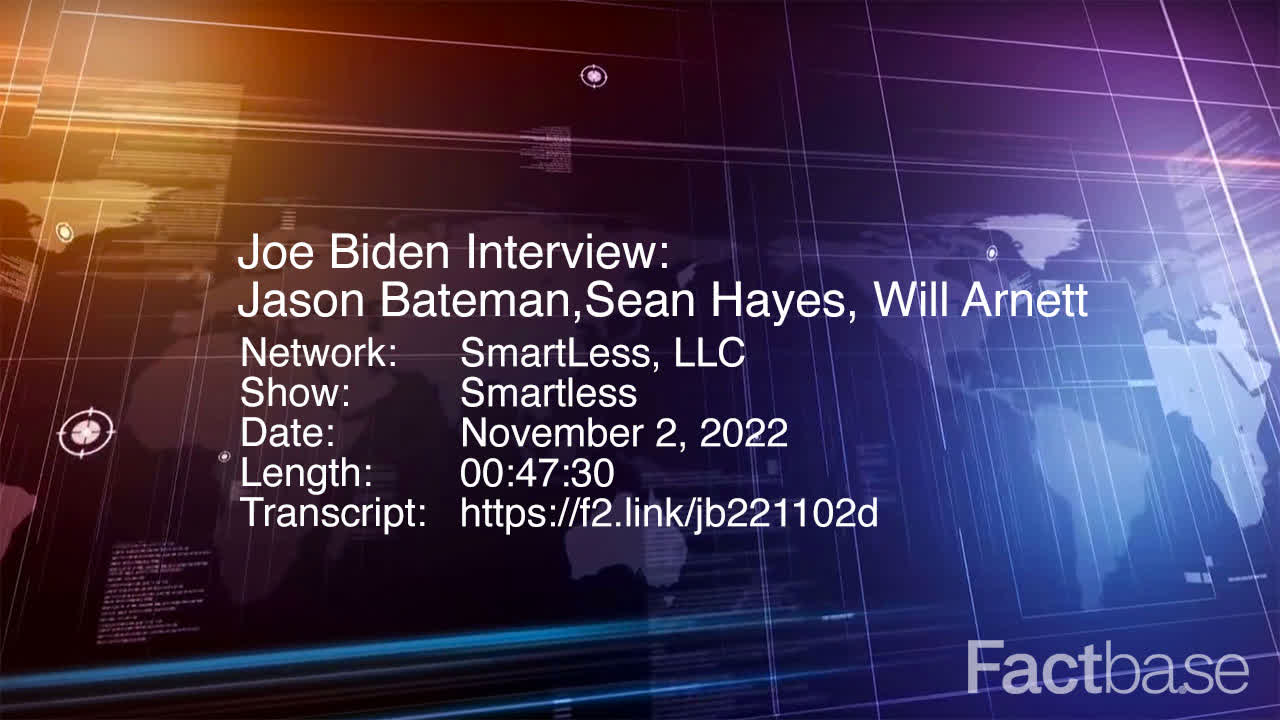
00:19:20-00:19:34 (14 sec)

"The third part's being the hardest because I went through my career as being the guy who got a lot done with Democrats and Republicans for all those years I was in the Senate. Hell, I was there for 36 [Inaudible]"
234
Will Arnett
Neutral
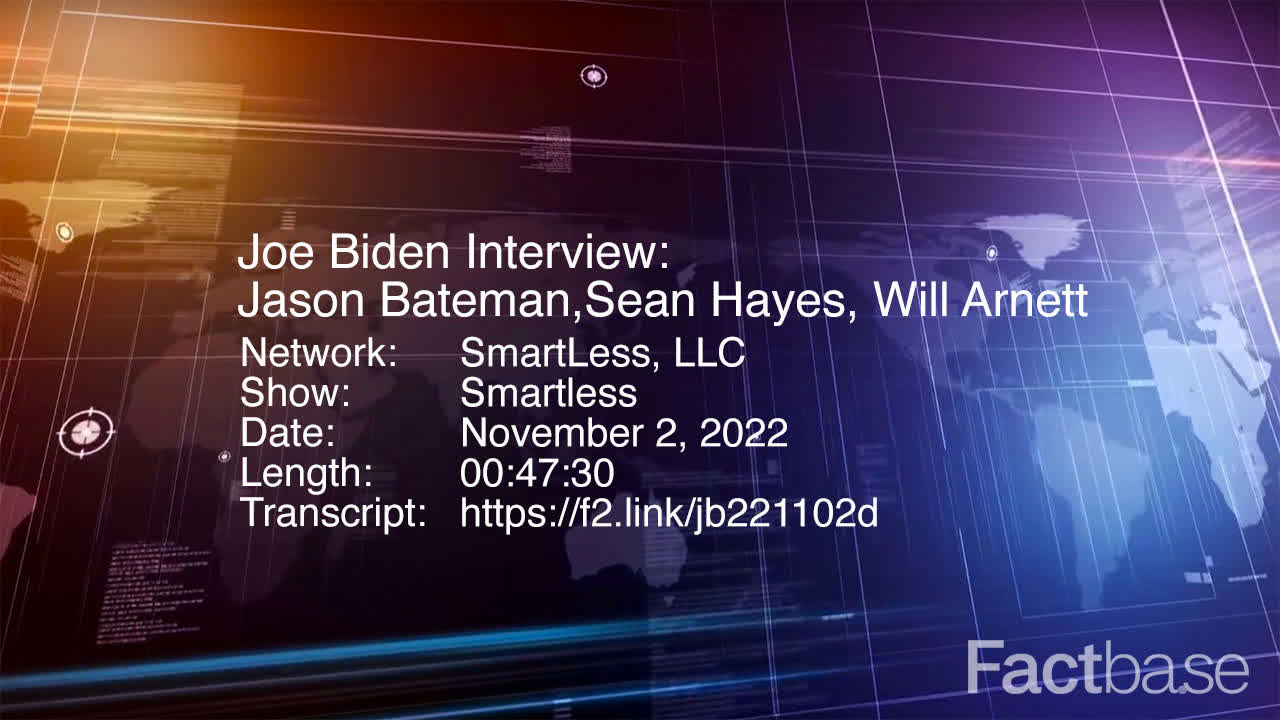
00:19:34-00:19:38 (5 sec)

"You started when you -- you were 29 when you became a senator."
235
Joe Biden
Leans Negative
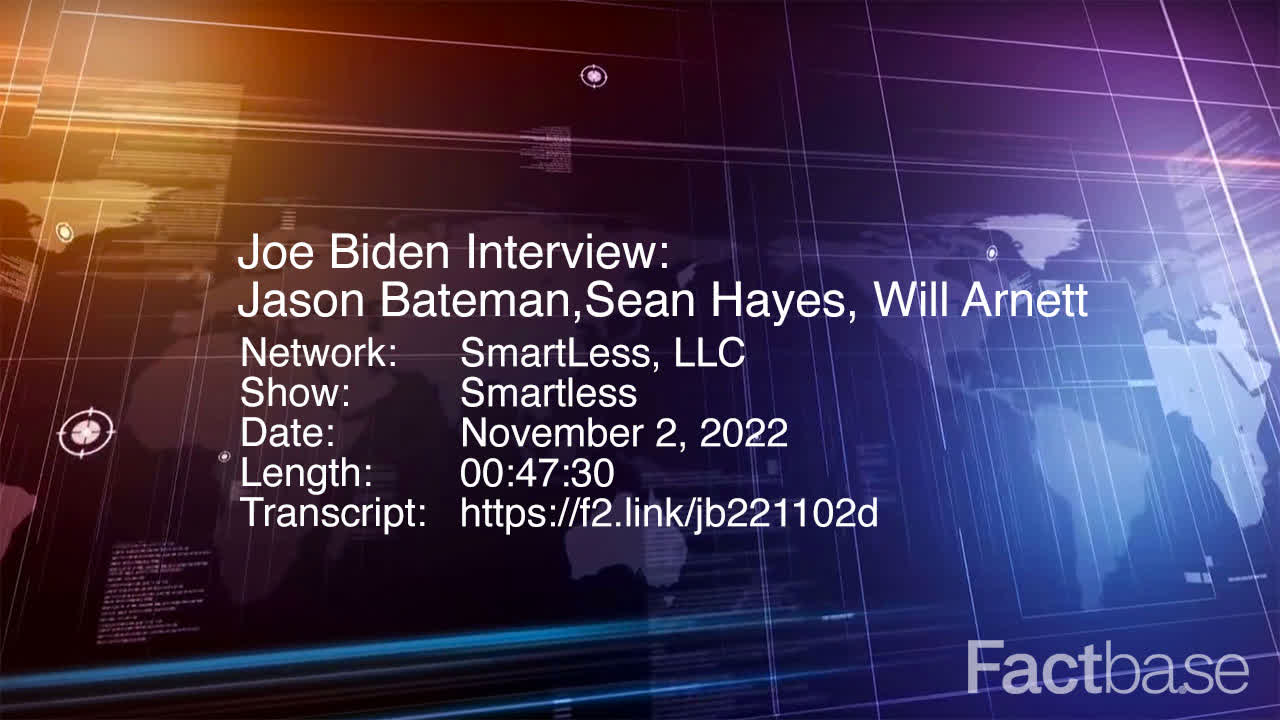
00:19:38-00:20:06 (27 sec)

"Yeah. And -- and I -- and what's got me involved was the -- I came from a state, to its great shame, was segregated by law. And -- and we have the eighth largest Black population in America. And I was really moved by the Civil Rights Movement as a kid. And I remember, we moved down from Scranton, Pennsylvania when coal died."
236
Joe Biden
Negative
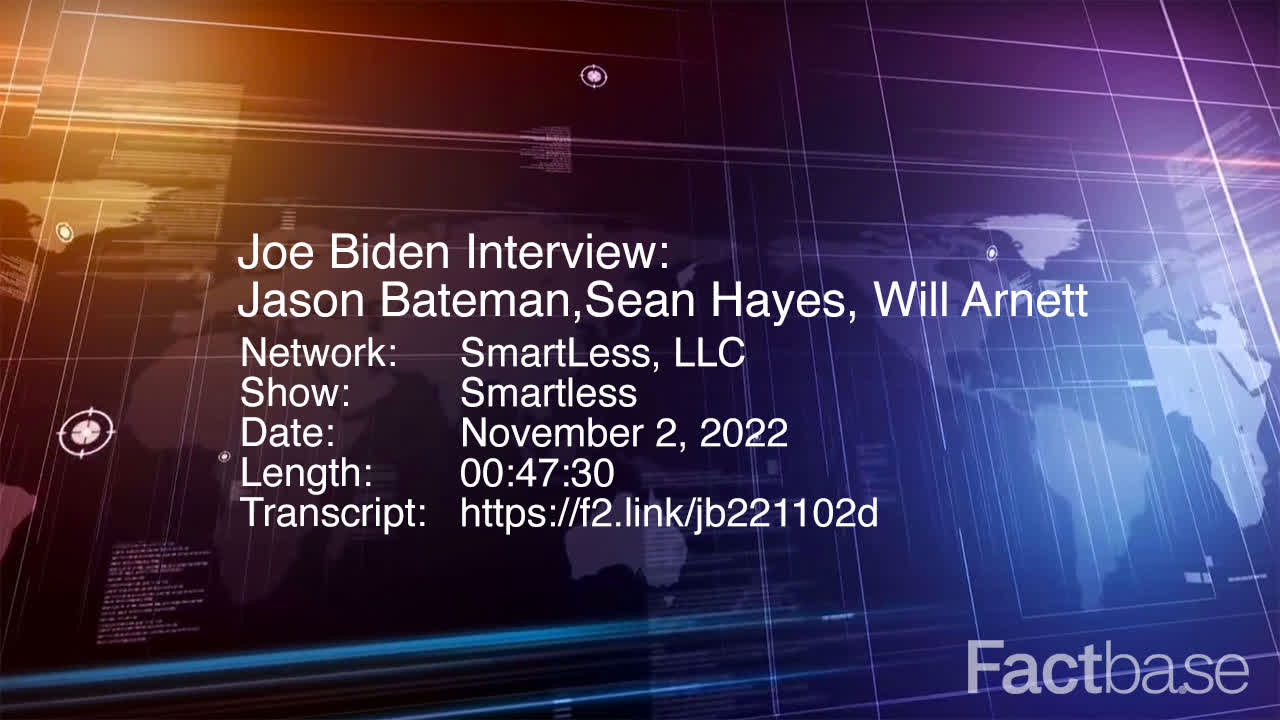
00:20:06-00:20:38 (32 sec)

"My dad was not a coal miner, but he was a salesperson. And we moved back to this little town called Claymont, Delaware, and it used to be a big steel town. And we lived in what became projects, but at the time, they were apartment complexes that were modest compared to where we had lived. And I went to a little Catholic school called Holy Rosary, and it was across the street from the -- the fire station there."
237
Joe Biden
Leans Negative
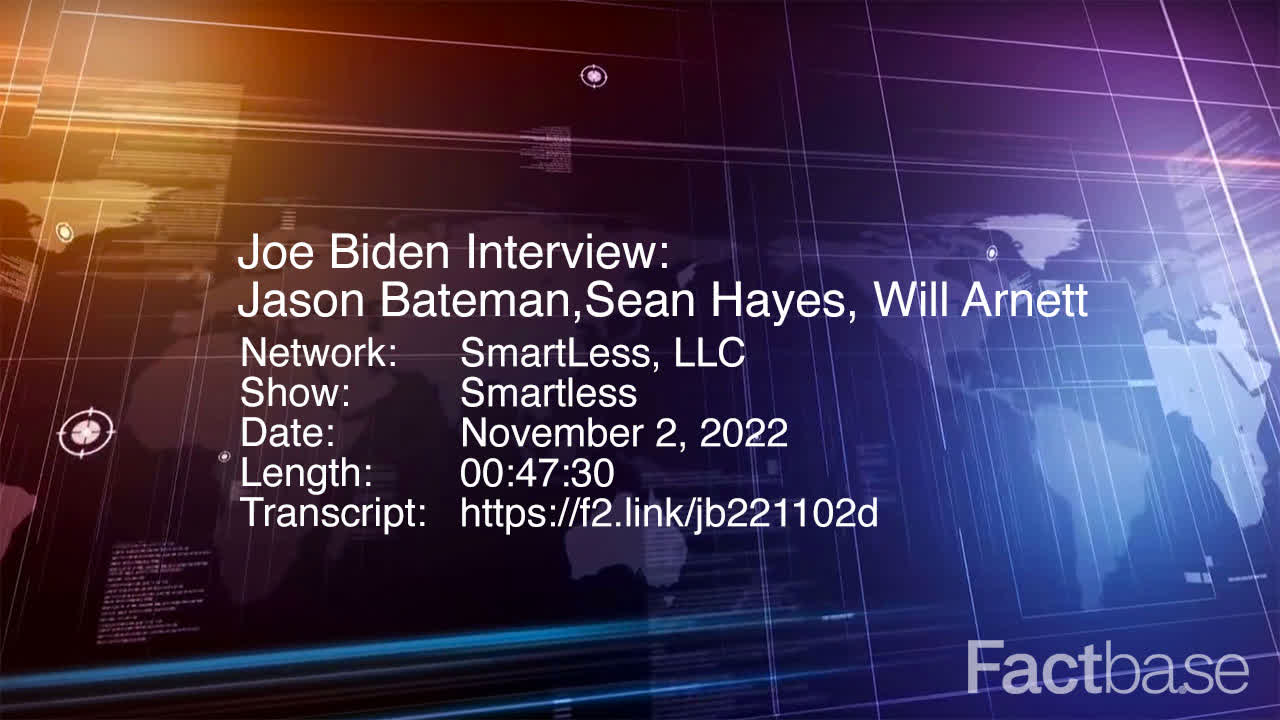
00:20:38-00:20:59 (21 sec)

"And I remember, my mom used to drive us up to school, I was in third grade, and drop us in the parking lot to go into school. And I see this bus go by all the time with only, then we -- we referred to as colored, but Black children in it."
238
Jason Bateman
Slightly Positive
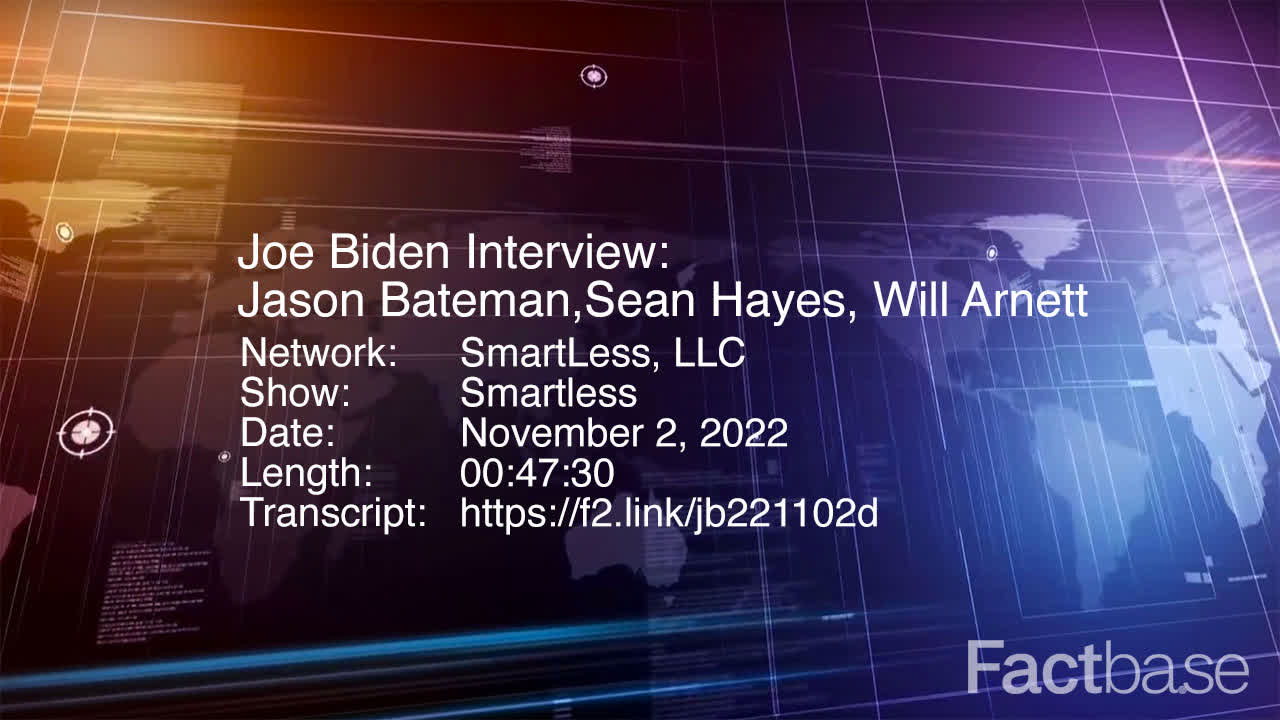
00:20:59-00:20:59 (1 sec)

"Yeah."
239
Joe Biden
Neutral
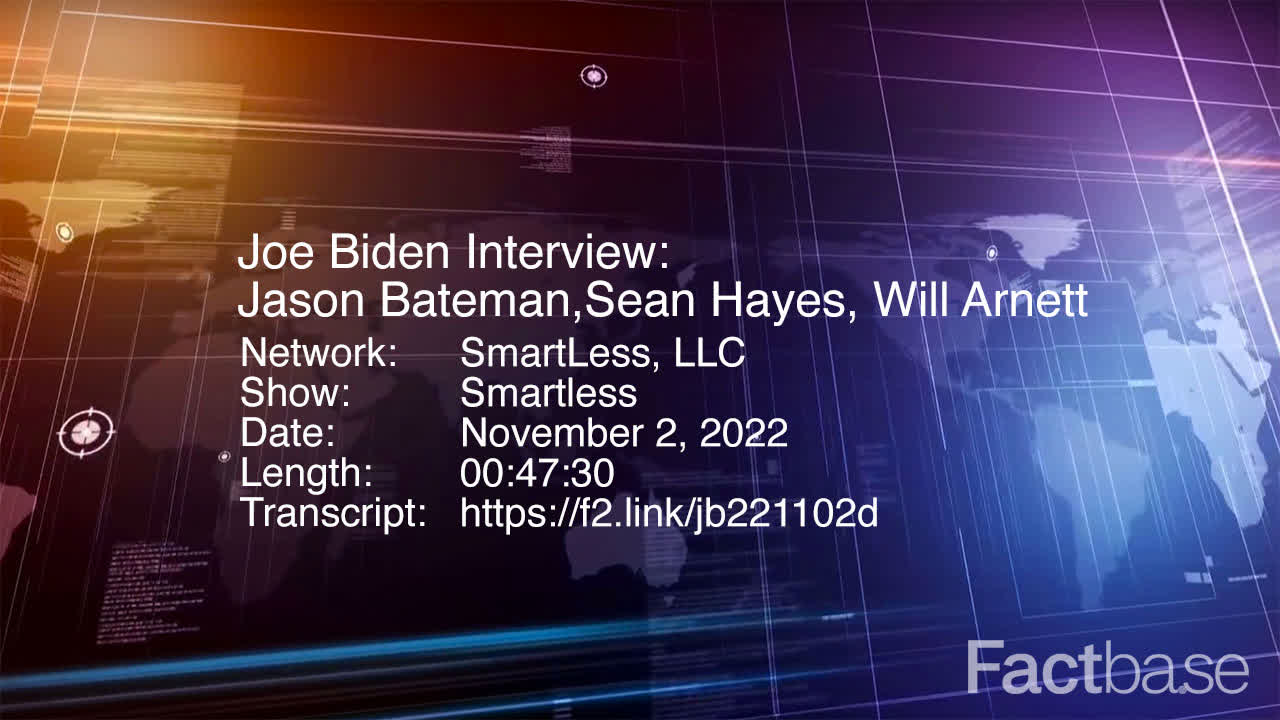
00:20:59-00:21:02 (3 sec)

"I didn't understand it."
240
Sean Hayes
Neutral
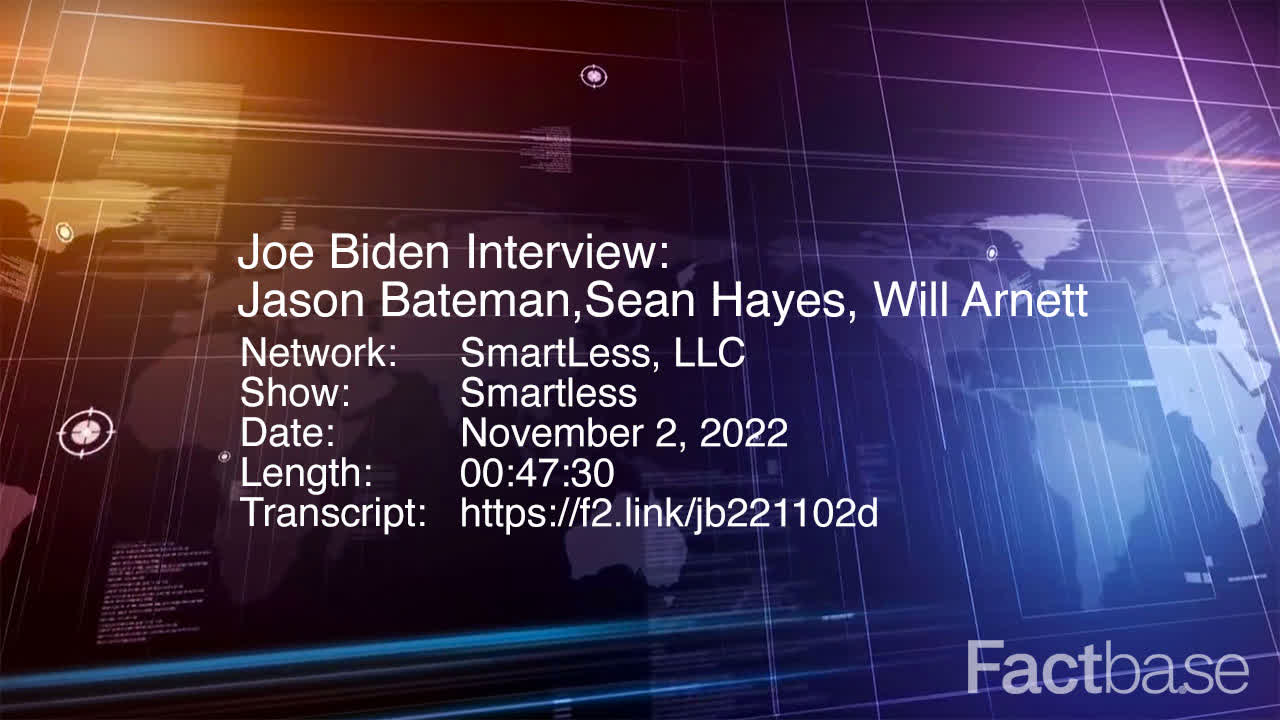
00:21:02-00:21:03 (1 sec)

"Right."
241
Joe Biden
Slightly Positive
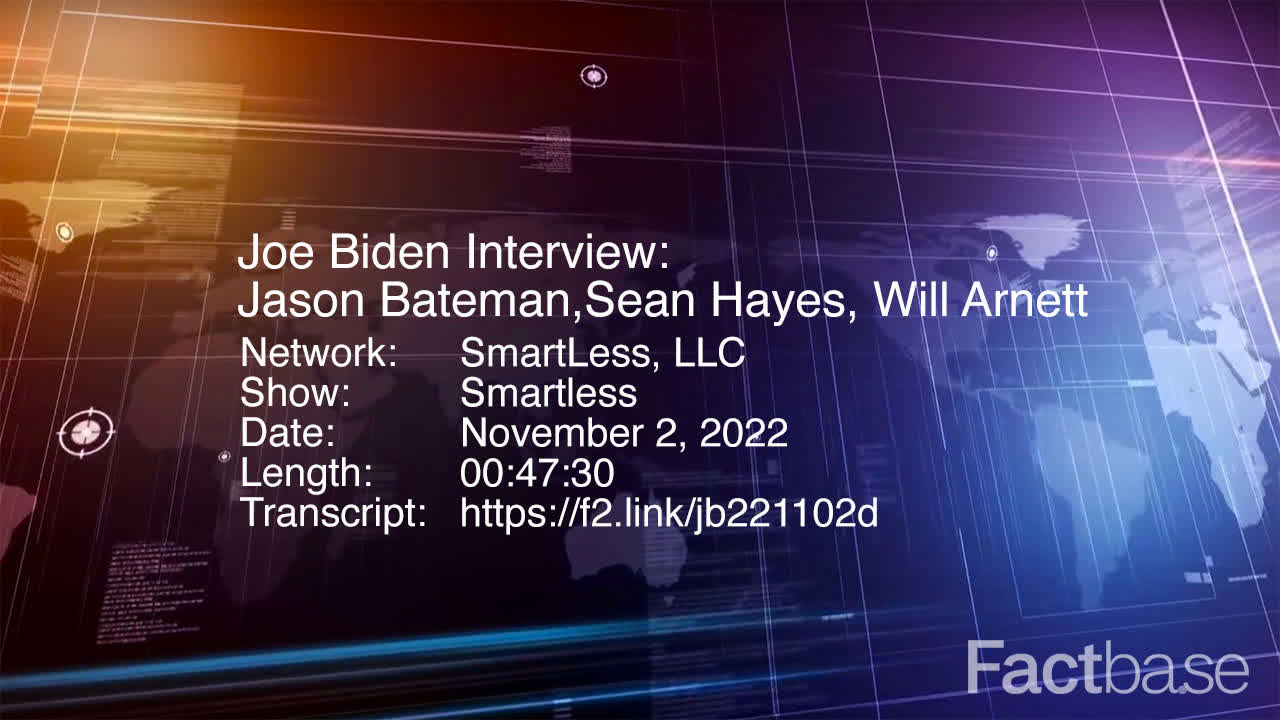
00:21:03-00:21:29 (26 sec)

"Because I didn't know it. There were hardly any Black people in -- in Scranton. And what was that all about? And said, well, they're not allowed to go to school, honey. They're not allowed to go to the public schools here. And then I ended up being the only white employee in the east side of Wilmington, which is 98% African American."
242
Joe Biden
Positive
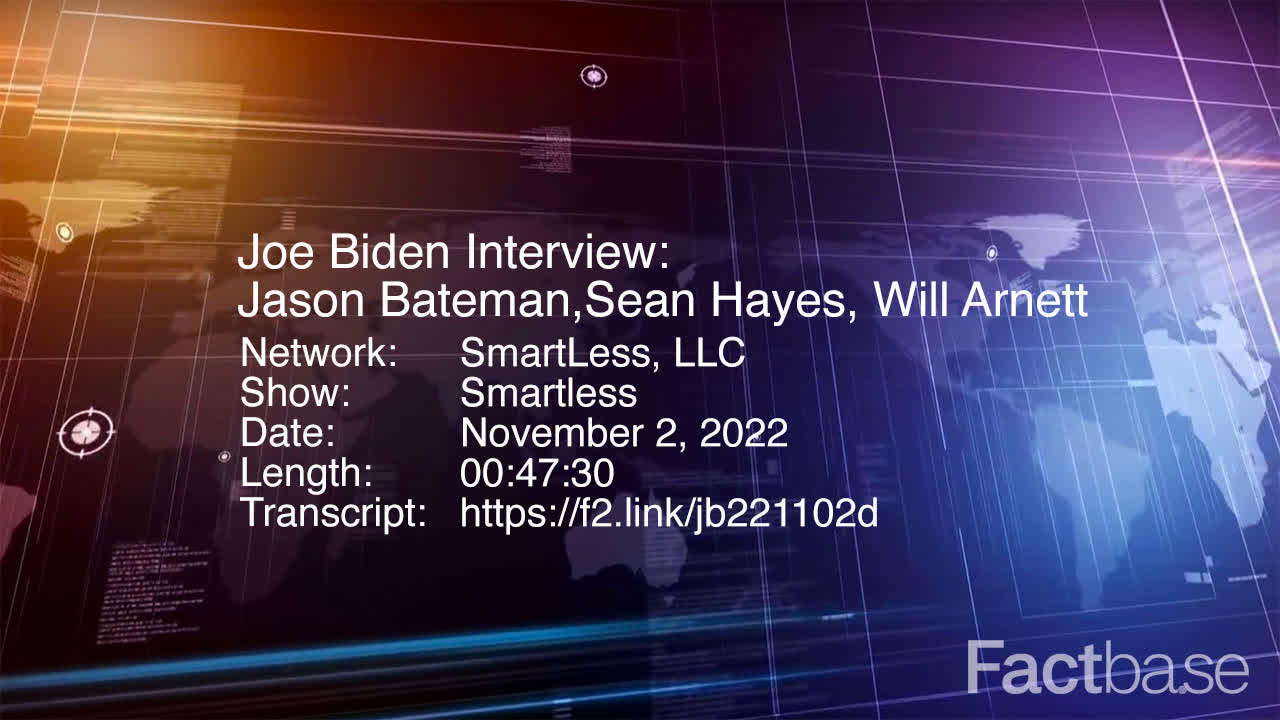
00:21:29-00:21:37 (8 sec)

"I was a lifeguard there. Then I got involved, and -- and that's what got me engaged."
243
Sean Hayes
Positive
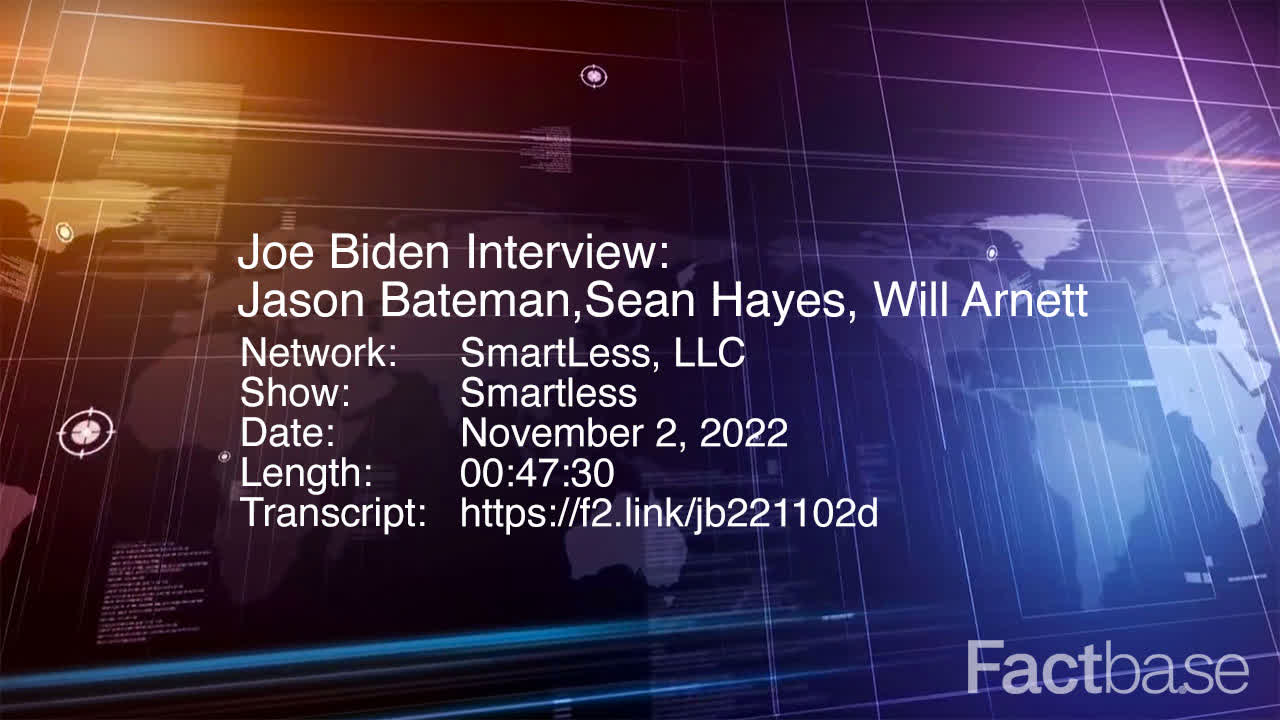
00:21:37-00:21:43 (5 sec)

"So, that was -- that was very inspiring for you, just --"
244
Joe Biden
Slightly Positive
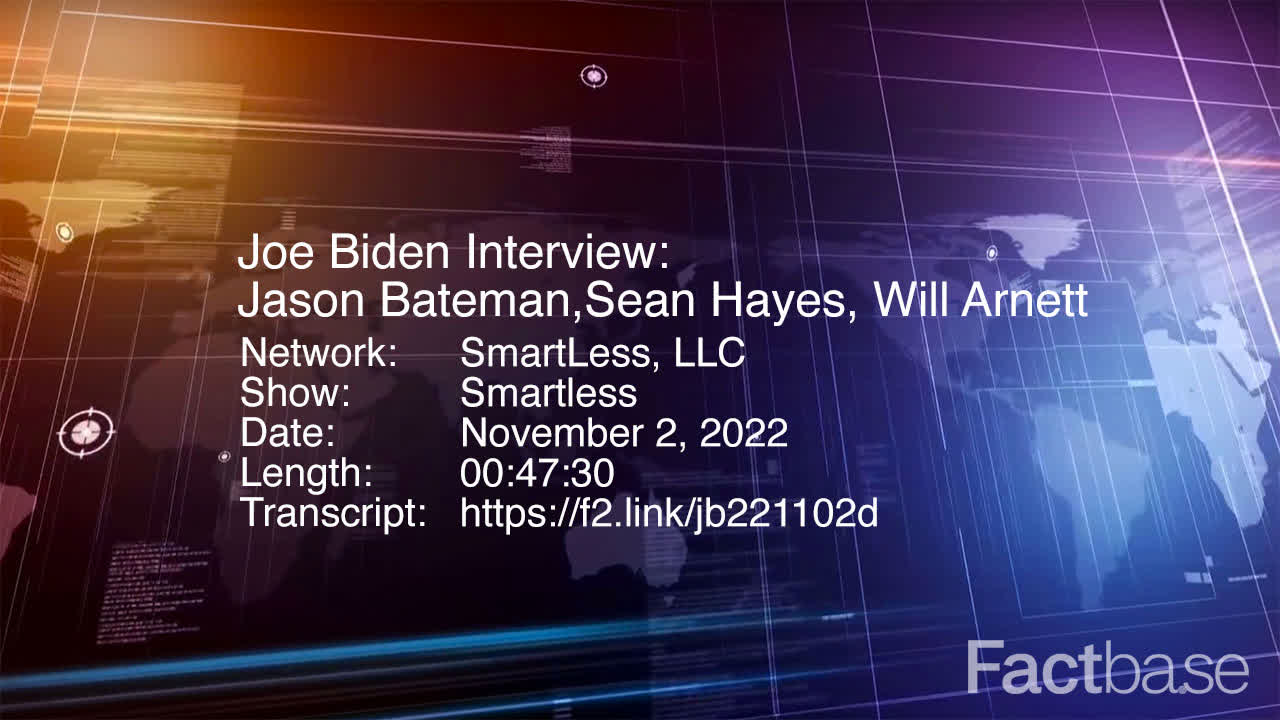
00:21:43-00:22:04 (22 sec)

"Well -- well, it was. But I also was very angry. I mean, it made me angry. And like -- like a lot of folks of my generation, and I never -- I love reading how I knew I was going to run for president and I knew I was going to be, and so I wasn't even hell -- I wasn't even old enough. I mean, I'll never forget."
245
Joe Biden
Very Positive
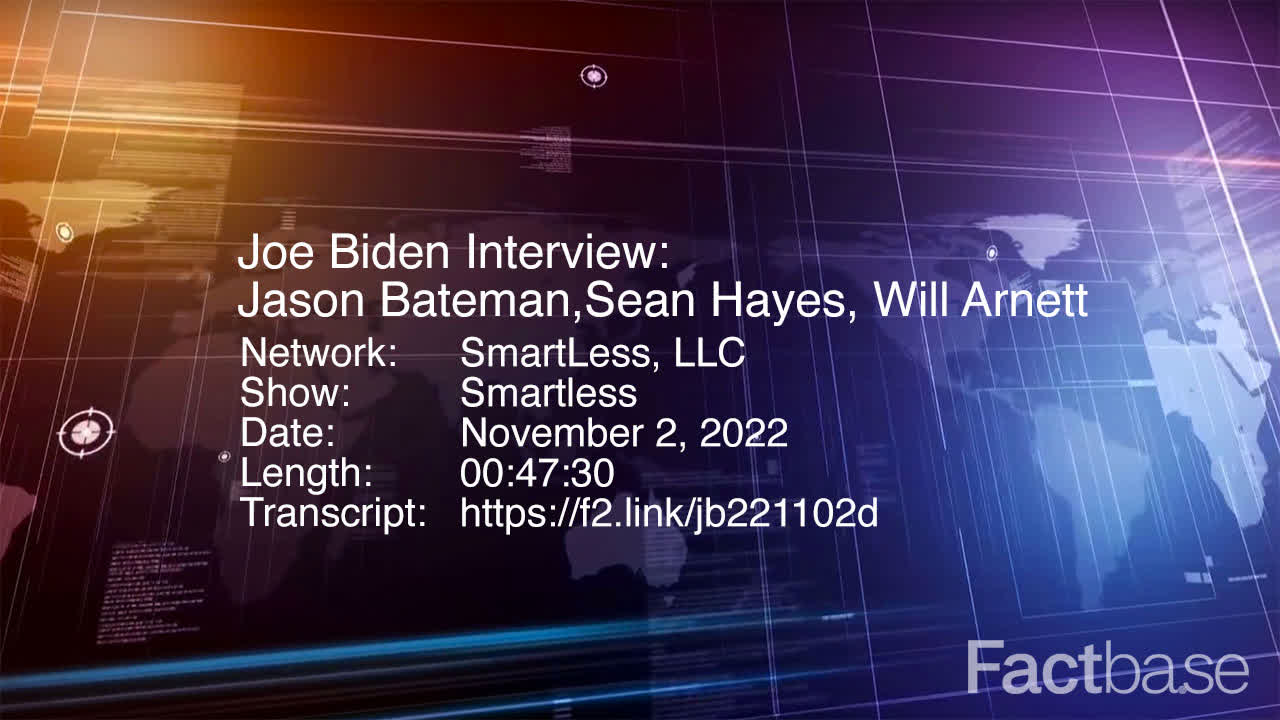
00:22:04-00:22:14 (9 sec)

"I was -- I got really involved trying to bring the Democratic Party in Delaware into the mainstream of Northeastern Democrats. It was more a Southern Democratic Party."
246
Jason Bateman
Slightly Positive
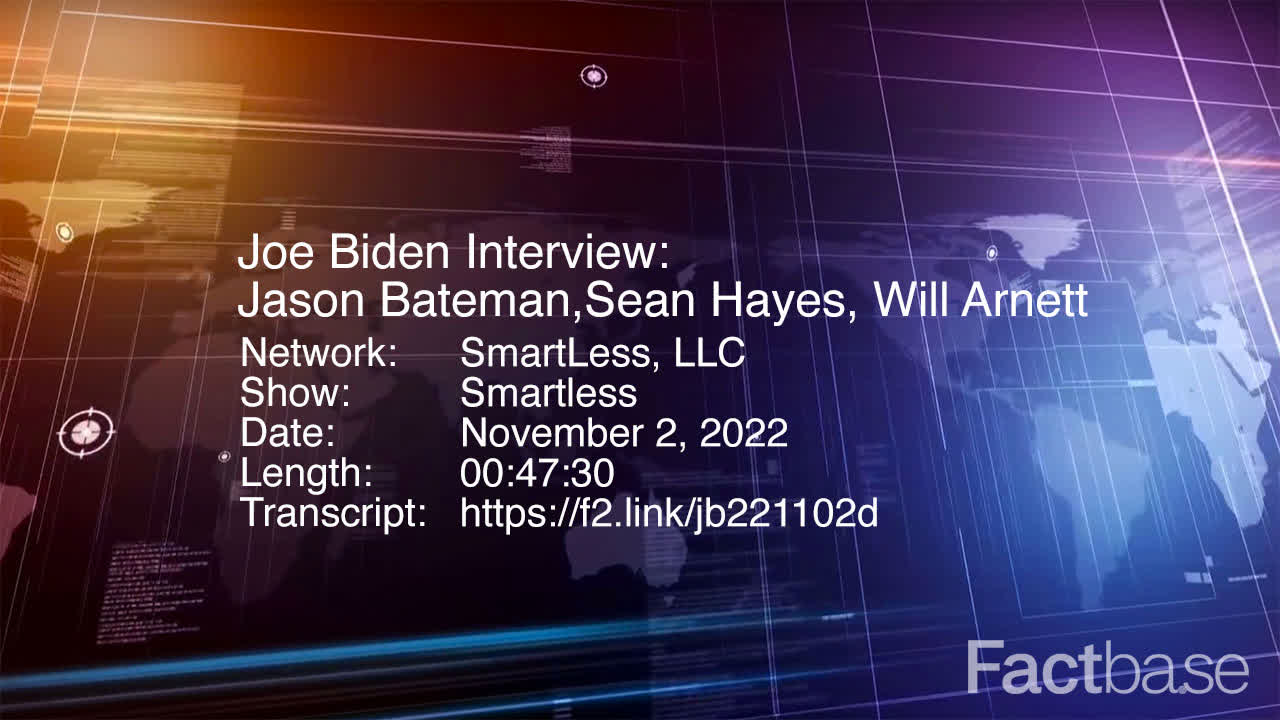
00:22:14-00:22:14 ( sec)

"Yeah."
247
Will Arnett
Slightly Positive
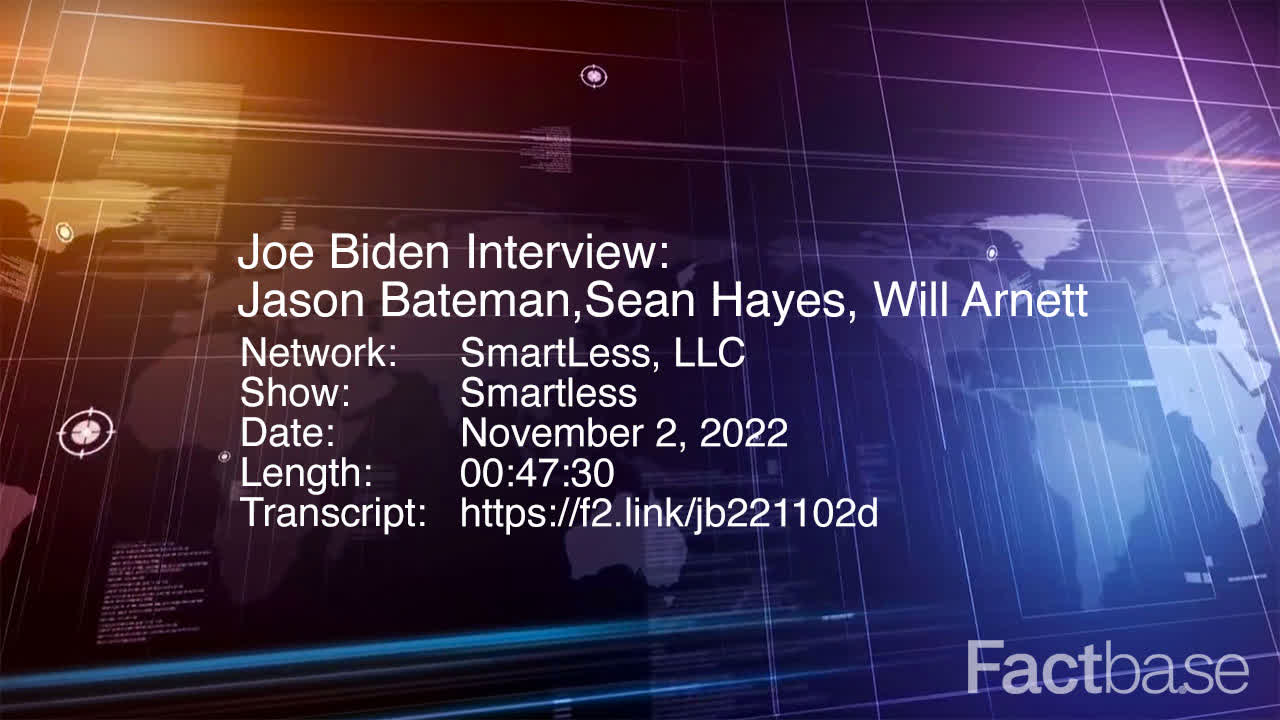
00:22:14-00:22:15 ( sec)

"Yeah."
248
Joe Biden
Somewhat Positive
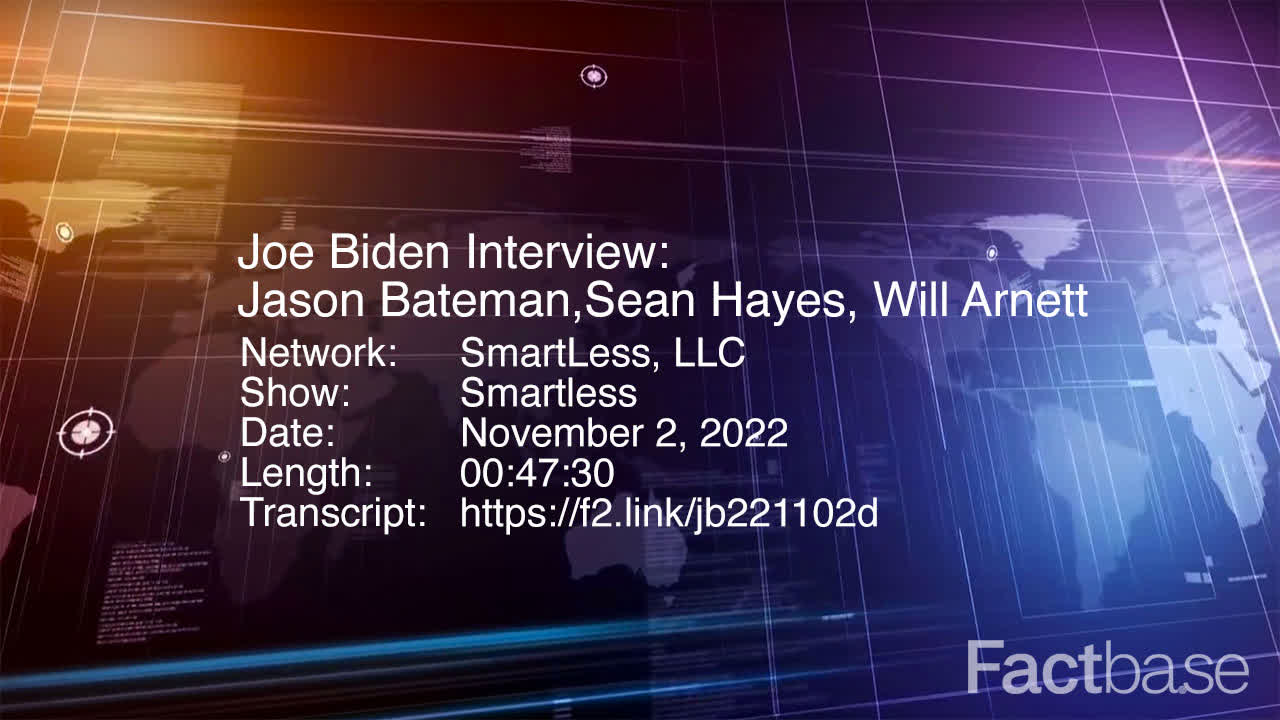
00:22:15-00:22:22 (7 sec)

"You know, southern part of my state, the Delmarva Peninsula, talk -- gets like this. A lot of -- it's just very southern. For real."
249
Will Arnett
Neutral
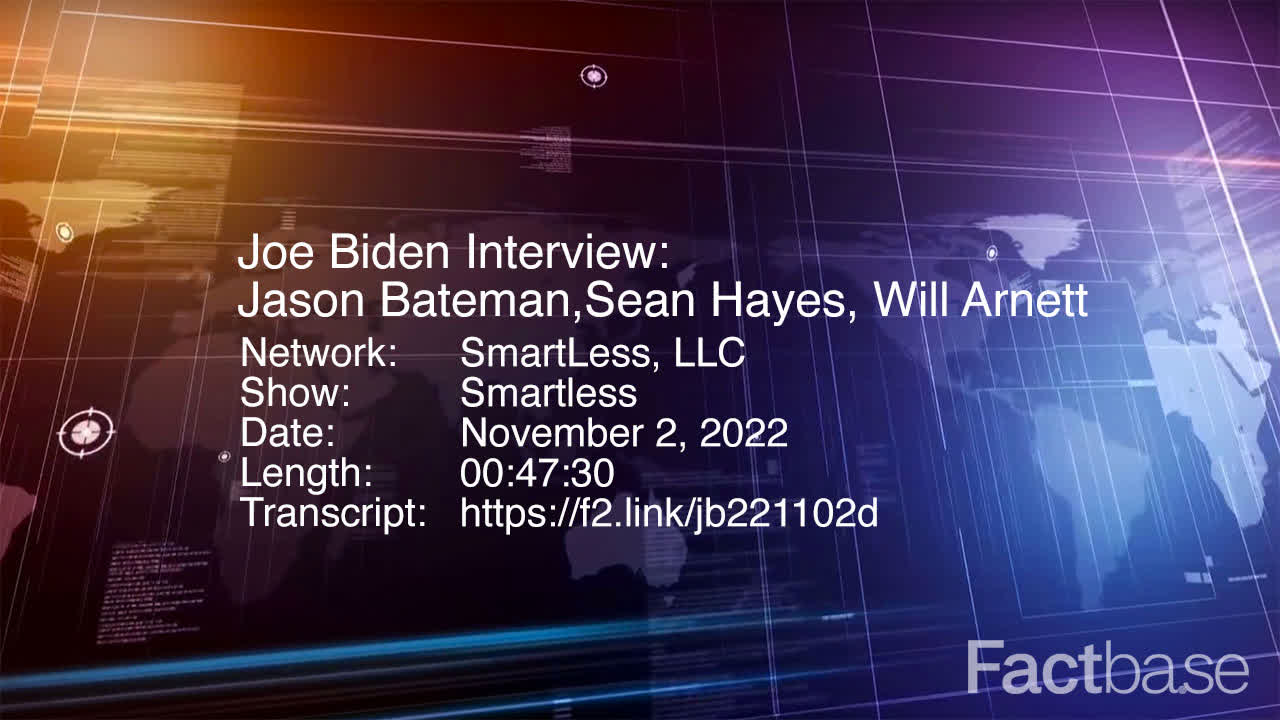
00:22:22-00:22:25 (3 sec)

"It's right at the Mason-Dixon line, right?"
250
Joe Biden
Very Positive
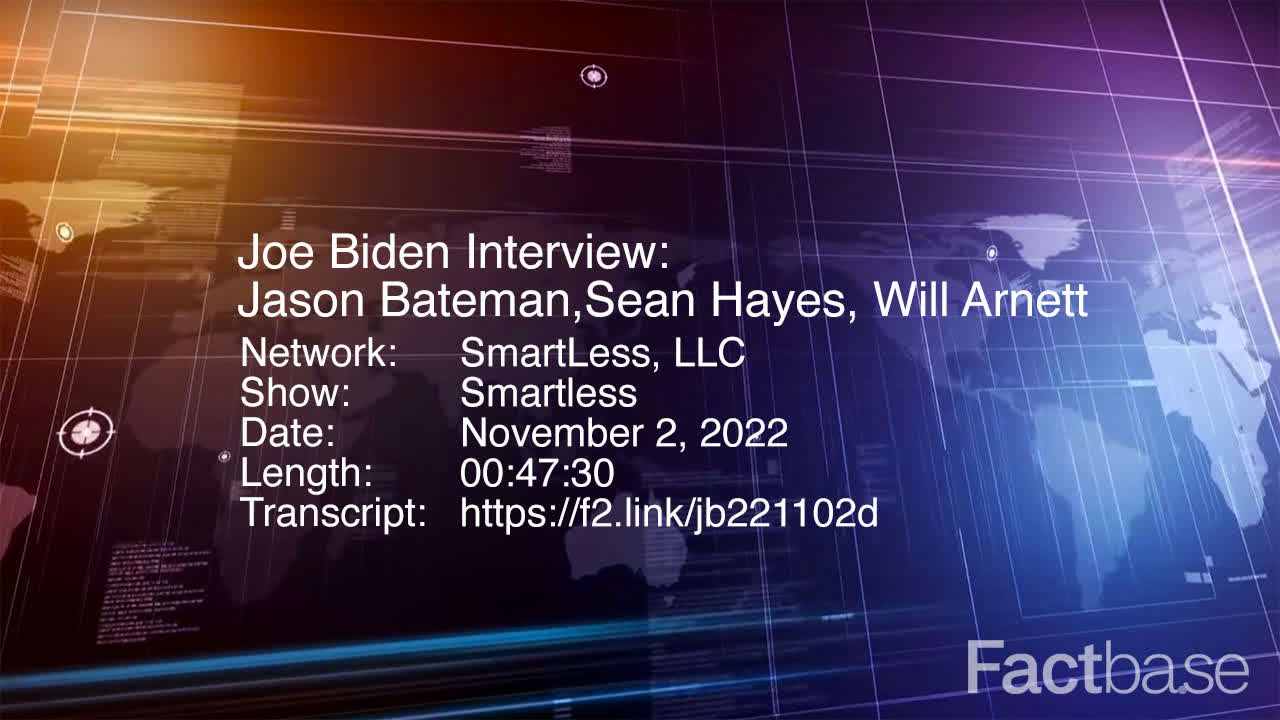
00:22:25-00:22:50 (25 sec)

"Yeah. Like, actually, it goes north-south. Most people don't realize that, but yes, it is. And the end -- the end result of all that was that I got involved. I -- I was a young lawyer. I went to law school, and I went to work for a guy who was a local. He was a state rep. He was a great trial lawyer. And -- and one thing led to another."
251
Joe Biden
Very Positive
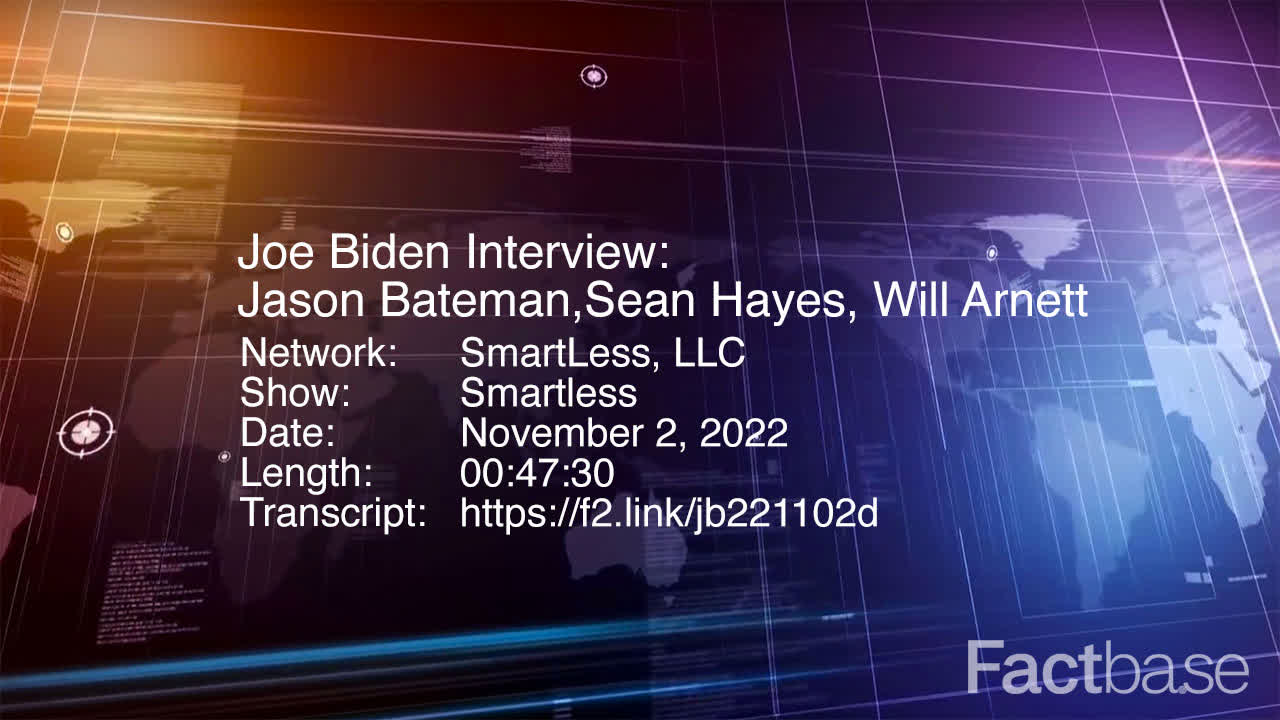
00:22:50-00:23:19 (29 sec)

"And they tried to reform the Democratic Party to make it more -- I mean, the Republican Party was more liberal than the Democratic Party at the time. It was the Rockefeller Republicans. Anyway, to make a long story not quite so long and boring, I was asked to help put together a group of young people to get someone to run for the United States Senate."
252
Joe Biden
Neutral
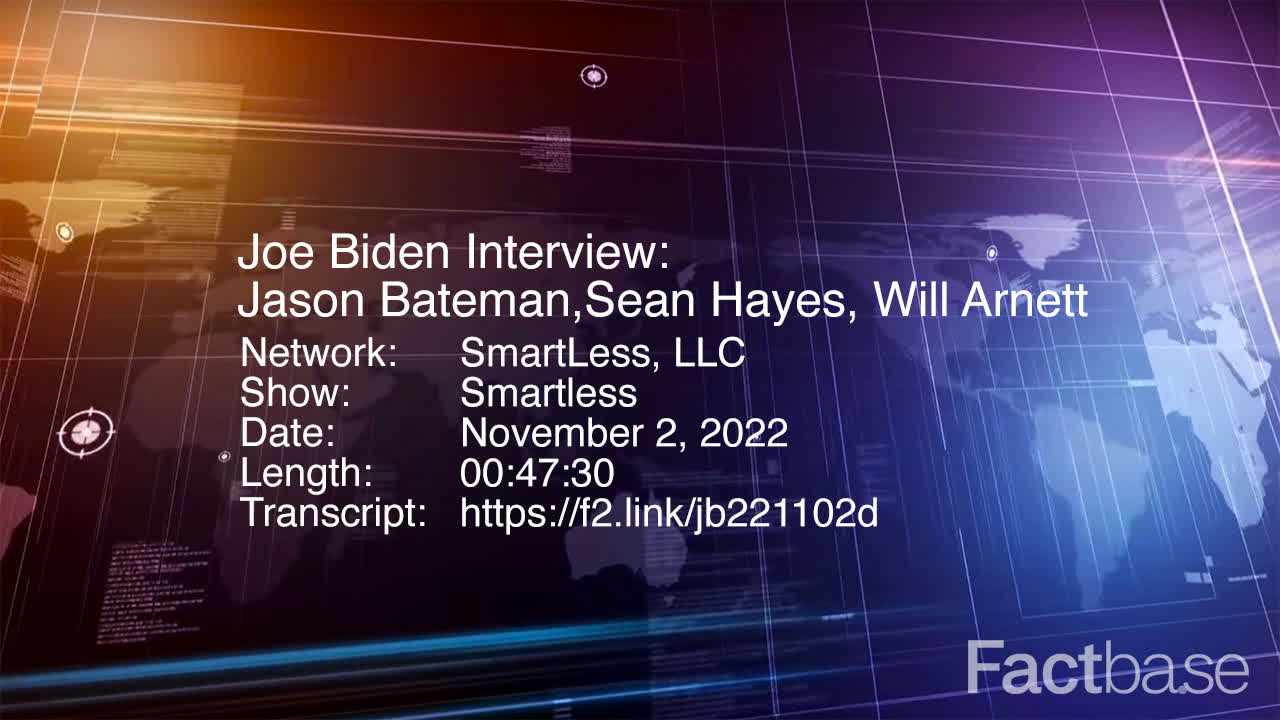
00:23:19-00:23:45 (26 sec)

"And I kept working on it. And I went to an off-year convention in Dover, you know, the Democratic convention. And I was -- it was between the evening -- the afternoon and evening session. And I was in a motel -- small motel down there, shaving. And I was in the bathroom, and I had a towel on and shaving cream."
253
Joe Biden
Very Positive
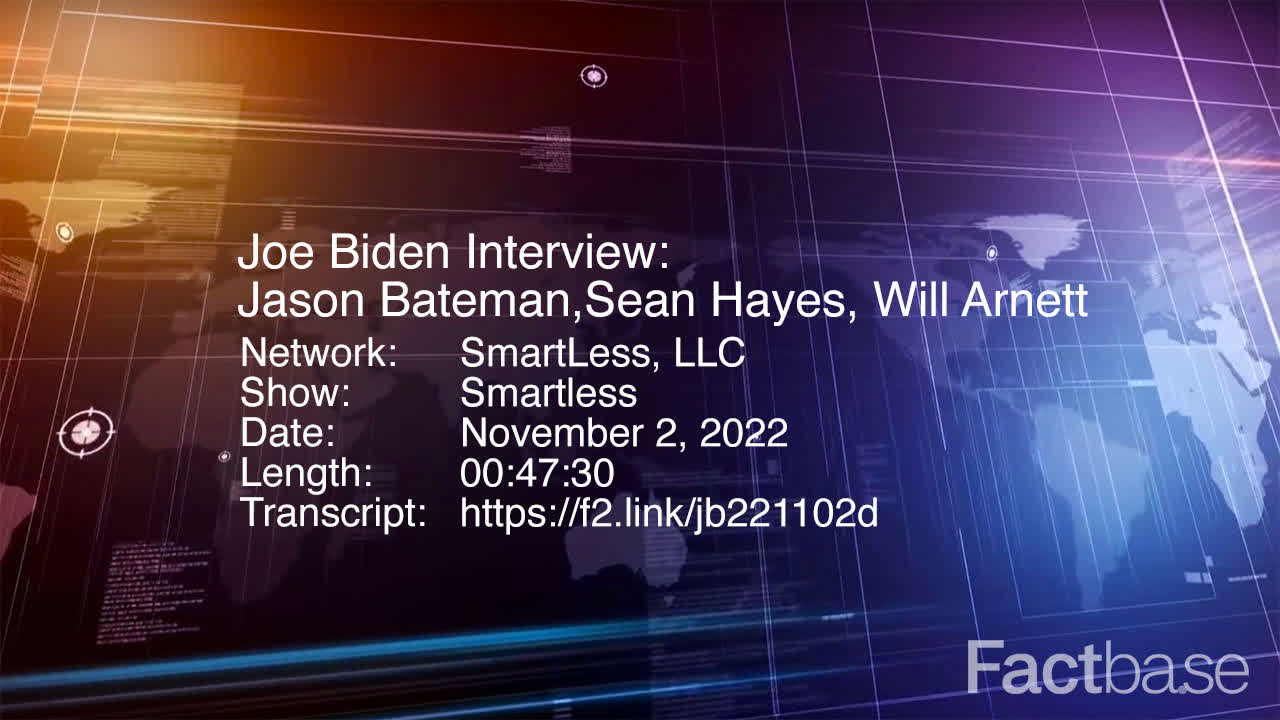
00:23:45-00:24:11 (26 sec)

"And they're just banging the door. And I opened the door and there's four leading Democrats, two of which I never met before, two former governors and a state chairman and a head of the Supreme Court who had retired and a family with more senators than any family in American history, the tunnels. And -- and I was -- I thought it was the guys I drove -- drove down with."
254
Joe Biden
Leans Positive
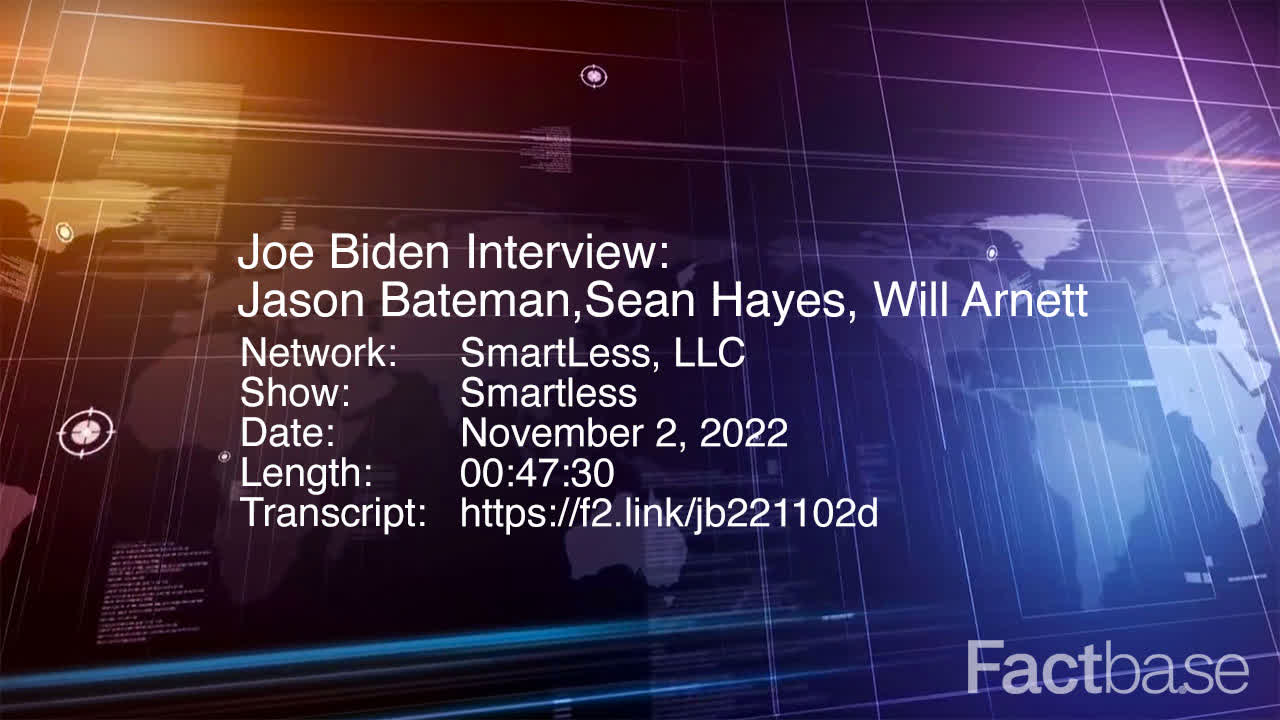
00:24:11-00:24:52 (40 sec)

"I was 27 -- 28 years old. And they said, "We got to talk to you, Joe." We just had a dinner together. And I said, "OK, gentlemen." I walked in and quickly got in the bathroom thinking there was a towel. [Inaudible] I wiped the shaving cream off my face, came out. You know, those desks that are nailed to the wall, headboard is nailed, and I'm leaning against the desk, and they said, "Joe, we were thinking, you should run for the Senate." I said, "Oh." I said no -- I said --"
255
Sean Hayes
Neutral
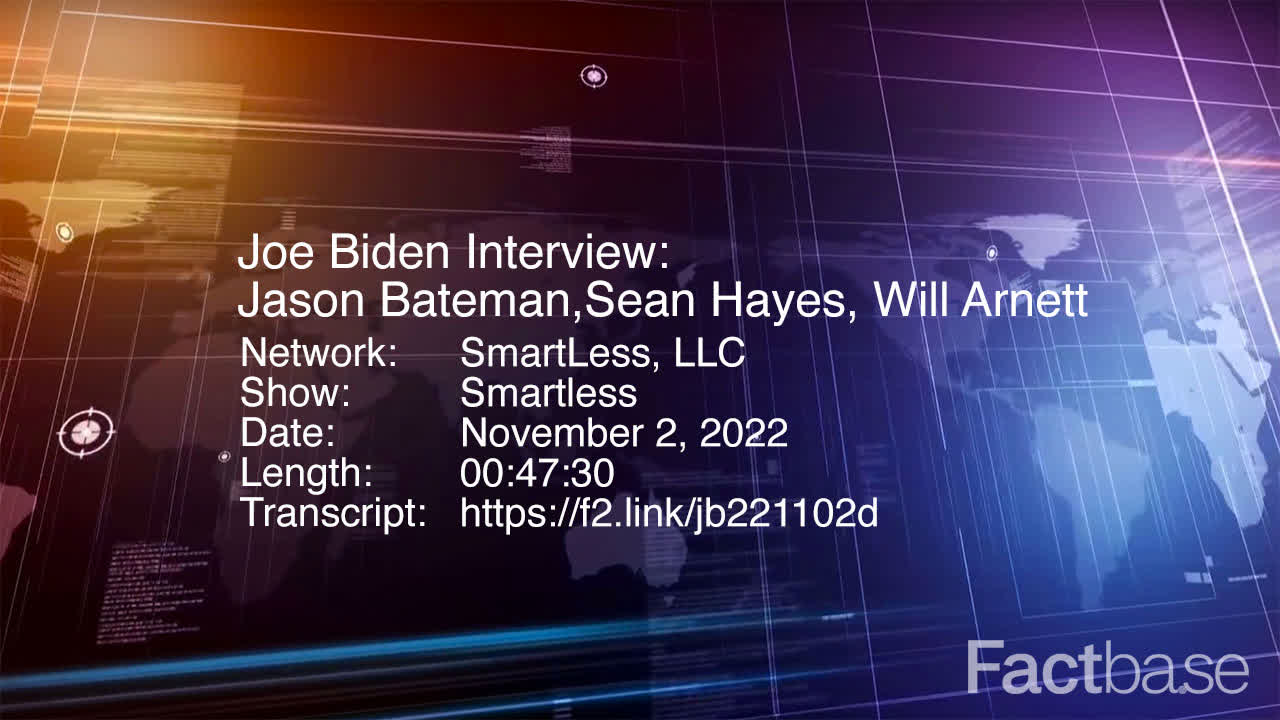
00:24:52-00:24:53 (2 sec)

"You said, "Can I get dressed?""
256
Joe Biden
Very Positive
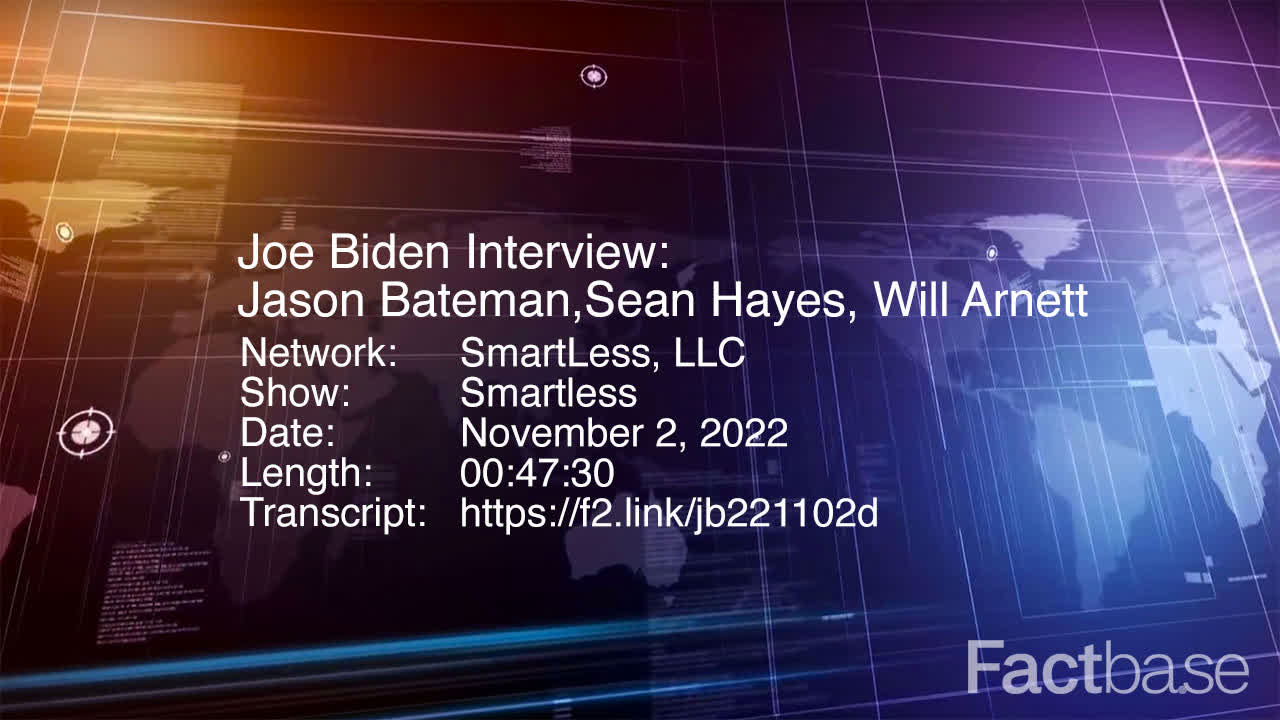
00:24:53-00:25:13 (20 sec)

"No, no. No, I'm serious. It's a true story. And the chief justice -- the former justice said -- I said, "I'm not old enough, sir." He said, "You obviously didn't do well in constitutional law, Joe." Said, "You don't have to be 30 to get elected. You had to be 30 to be sworn in.""
257
Jason Bateman
Slightly Positive
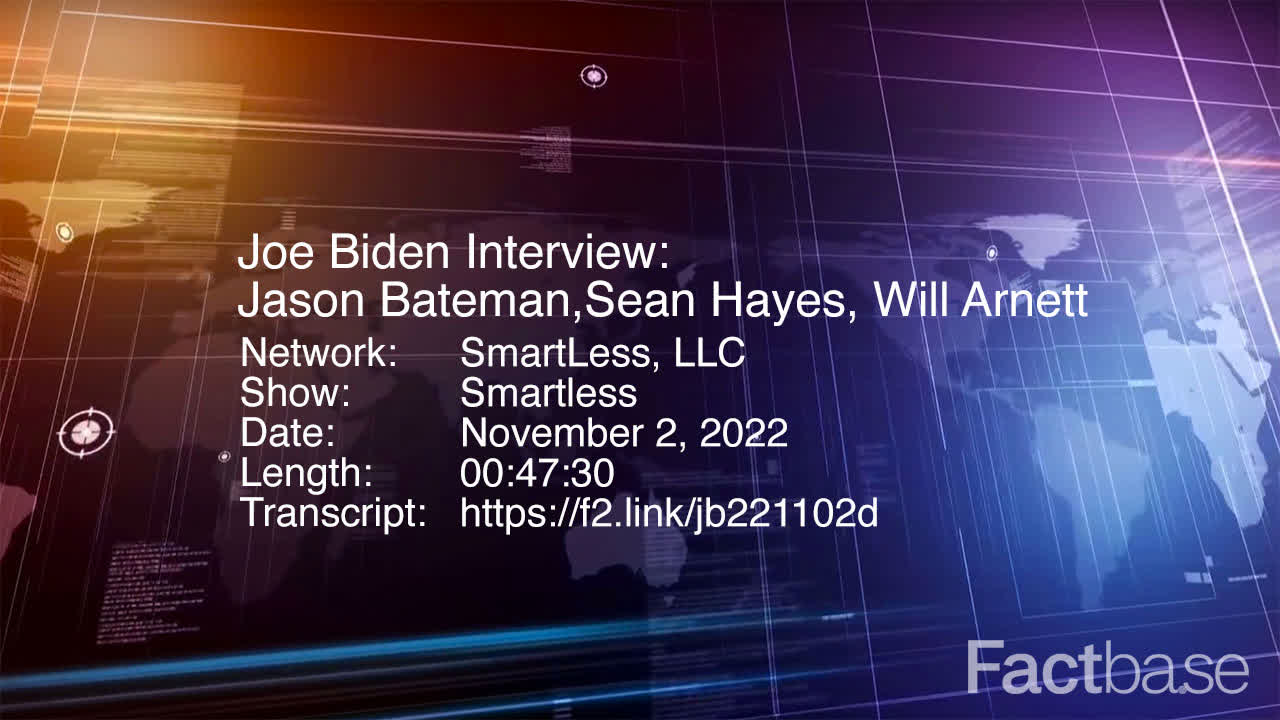
00:25:13-00:25:14 (1 sec)

"Yeah."
258
Joe Biden
Very Positive
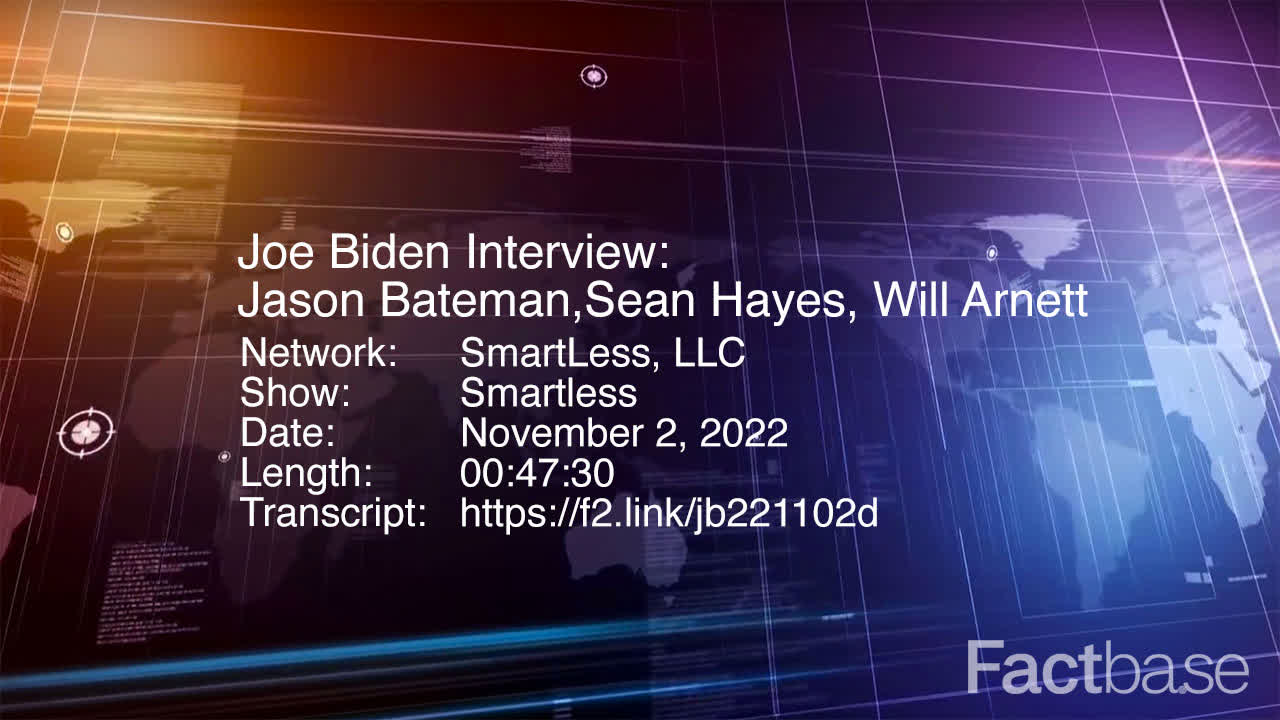
00:25:14-00:25:21 (7 sec)

"And I remember going home, and I don't know if you guys ever did this, but I had a great professor in -- in college."
259
Will Arnett
Leans Negative
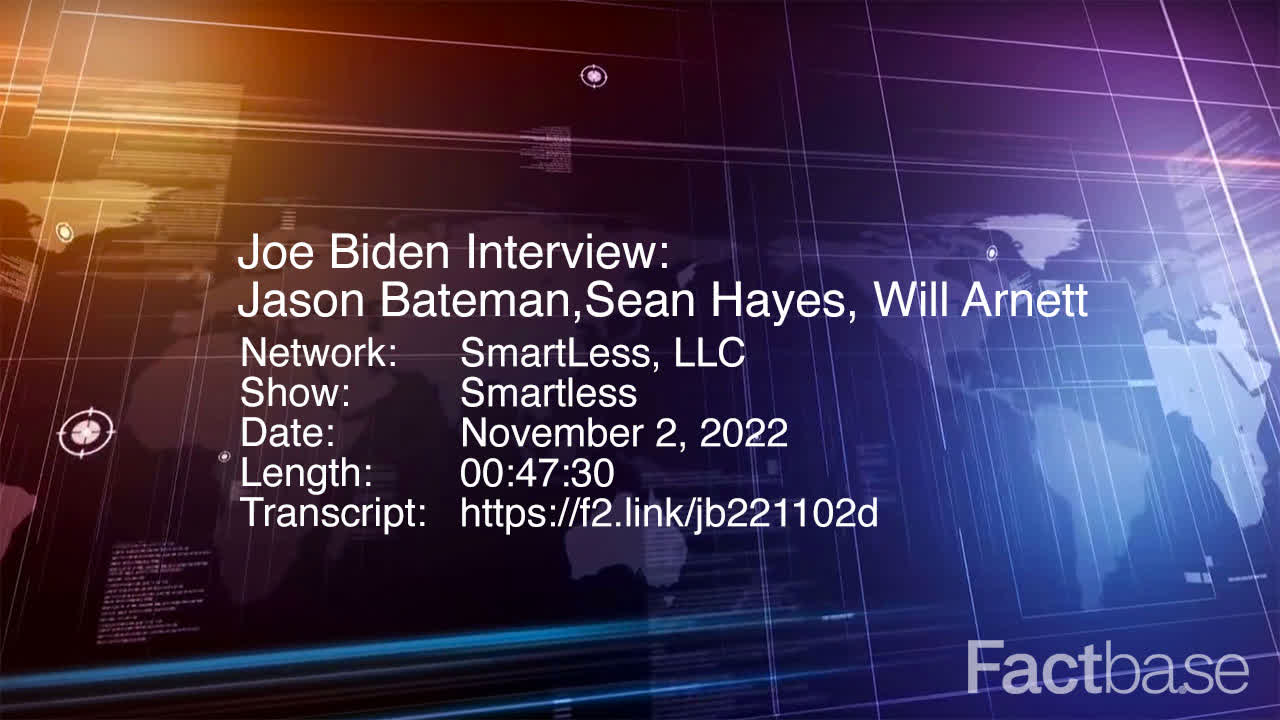
00:25:21-00:25:23 (2 sec)

"No, they never did. No, no."
260
Joe Biden
Negative
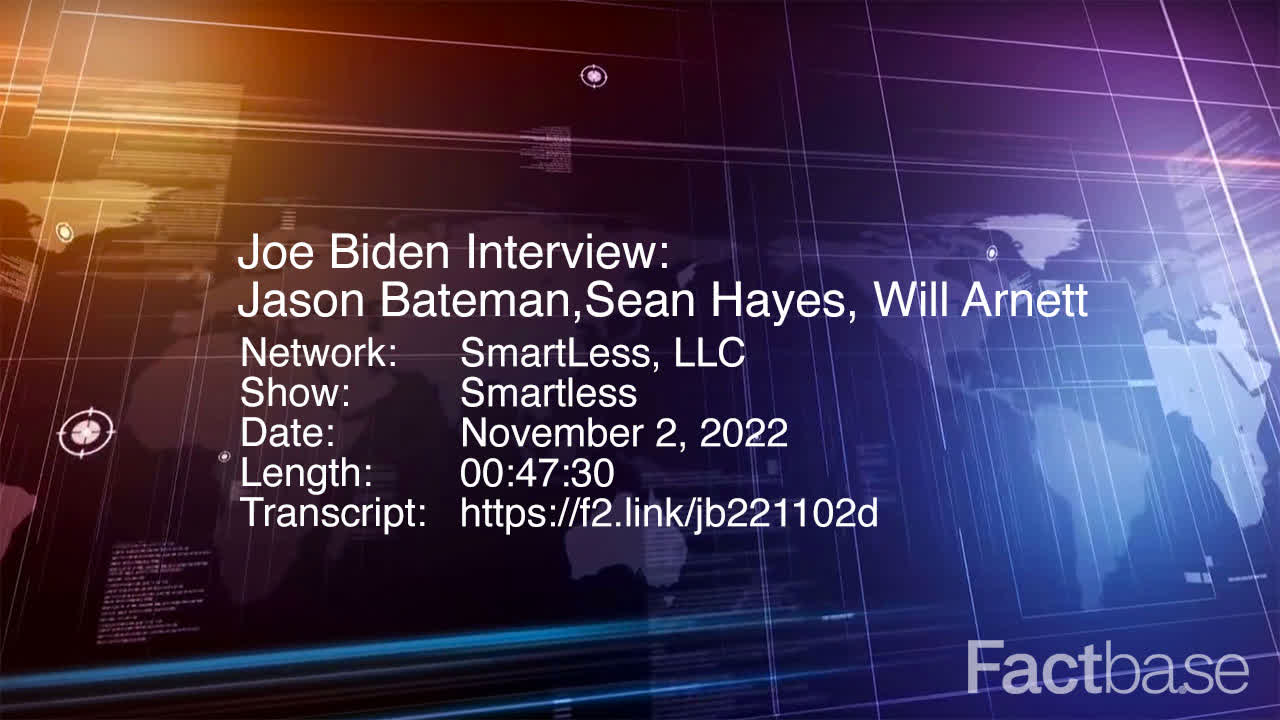
00:25:23-00:25:31 (8 sec)

"No. But, I mean, there was a guy that -- I wasn't a good student either if you're implying they weren't."
261
Will Arnett
Very Negative
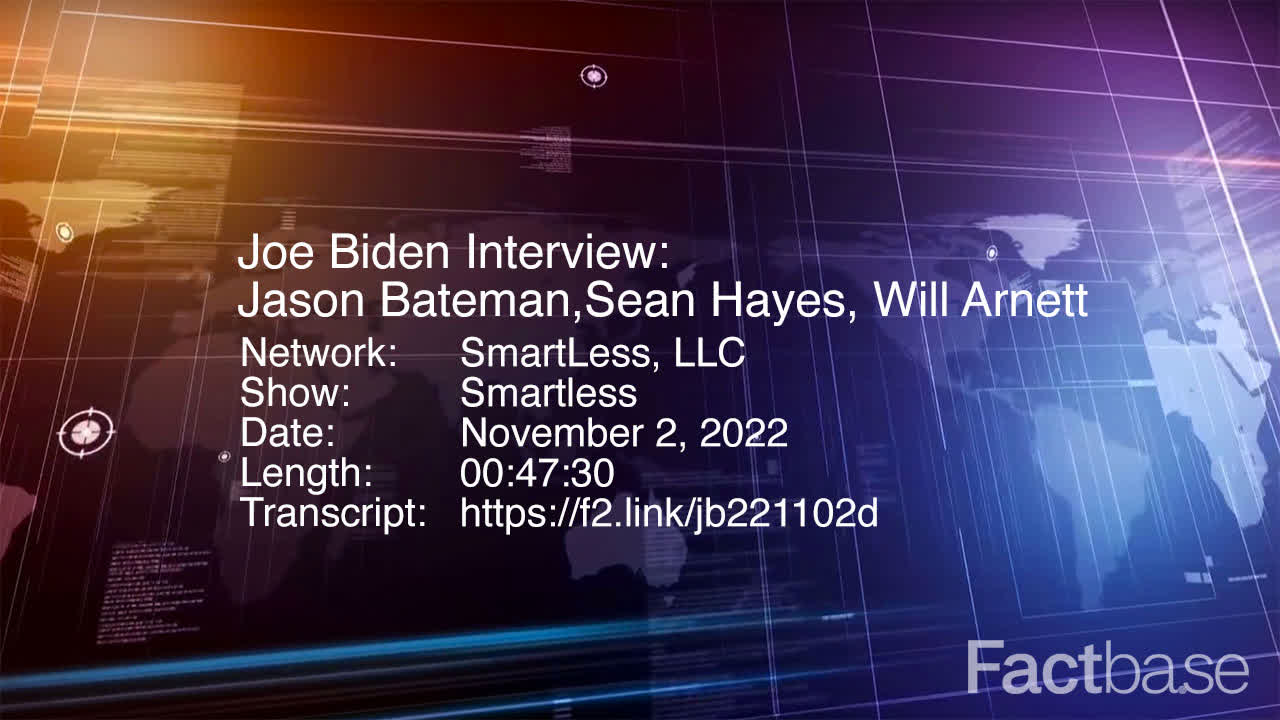
00:25:31-00:25:36 (5 sec)

"No, no, no. No, they weren't students at all. But --"
262
Joe Biden
Very Negative
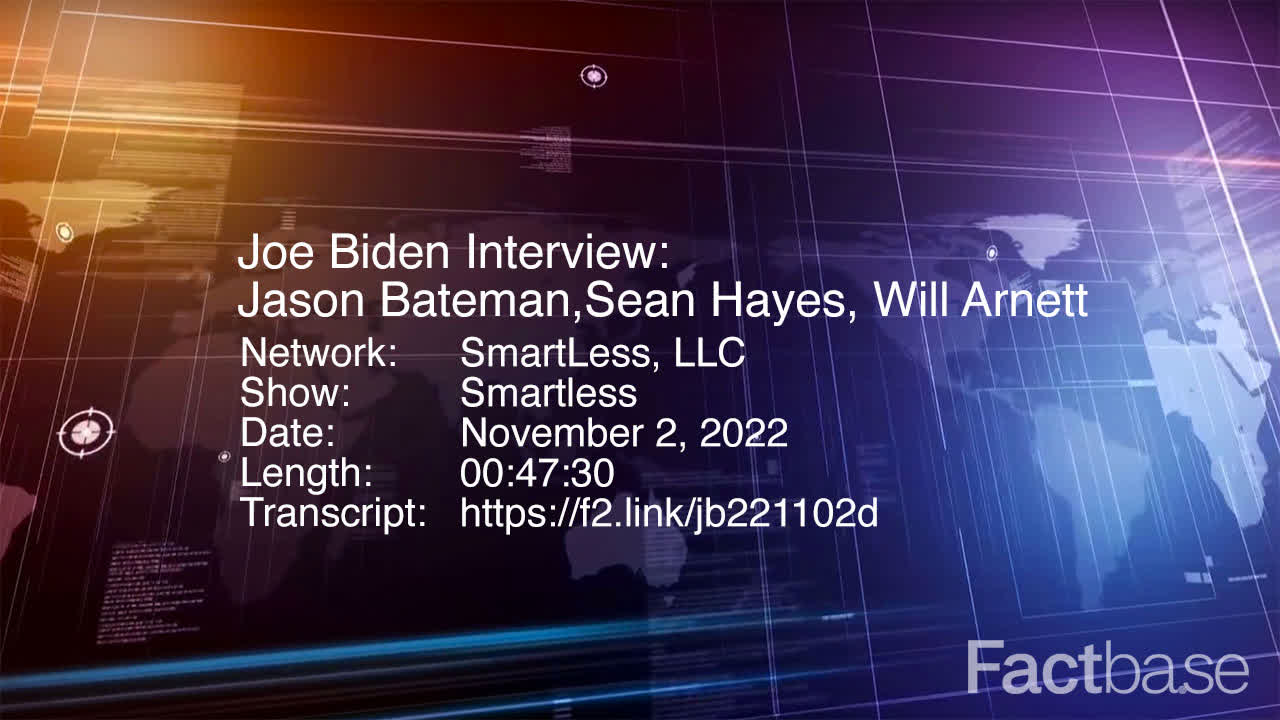
00:25:36-00:26:04 (28 sec)

"But -- but here's the point, I -- I'm riding home, and I stopped at the University of Delaware the next day. I had a professor named David Ingersoll. He was my political philosophy professor. And I said -- I said, "They just asked me. This is crazy." And he looked at me and said, "Joe, remember what Plato said?" And I'm thinking, what the hell did Plato say?"
263
Joe Biden
Very Negative
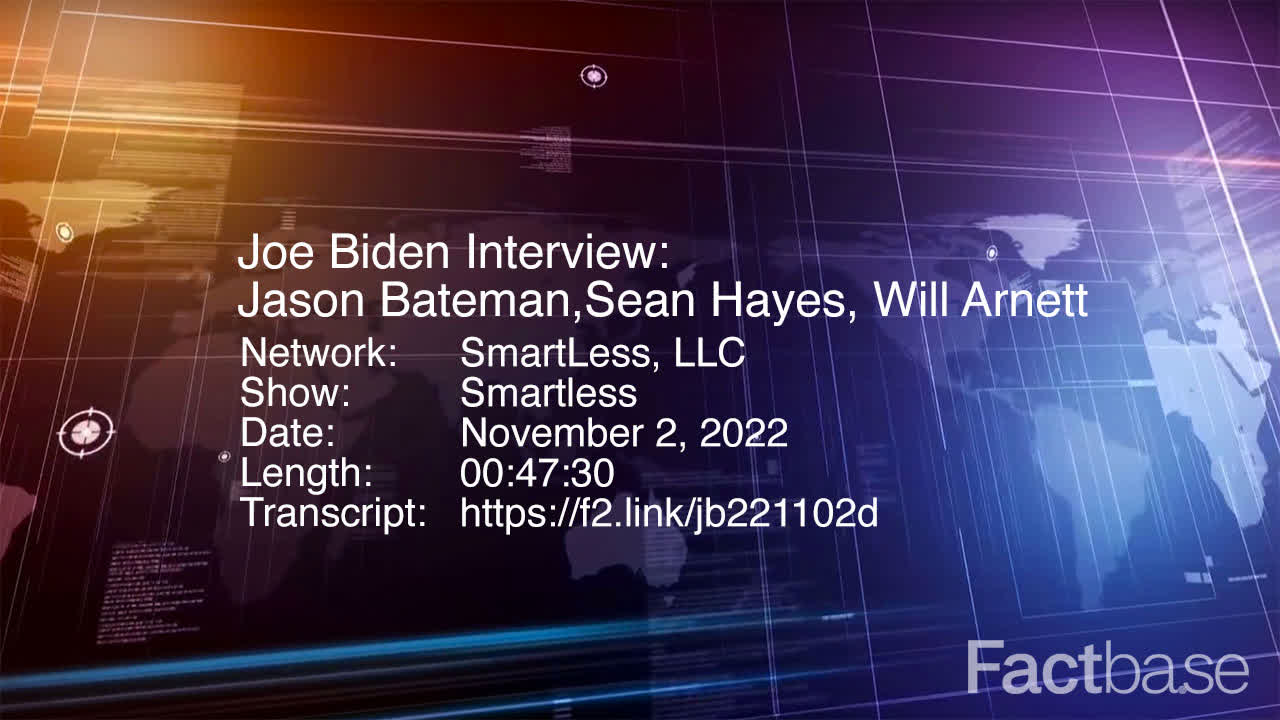
00:26:04-00:26:17 (13 sec)

"And he said, to paraphrase, the penalty good people pay for not being involved in politics is being governed by people worse than themselves."
264
Jason Bateman
Slightly Positive
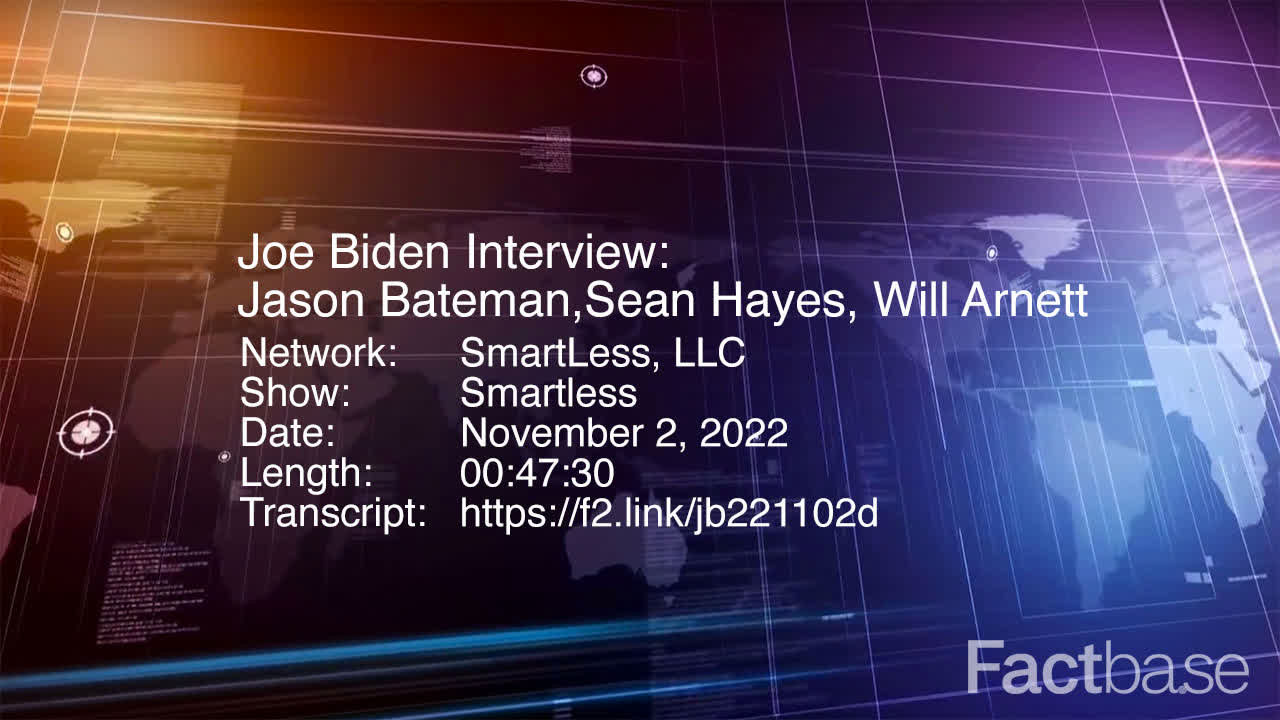
00:26:17-00:26:18 (1 sec)

"Yeah."
265
Joe Biden
Very Negative
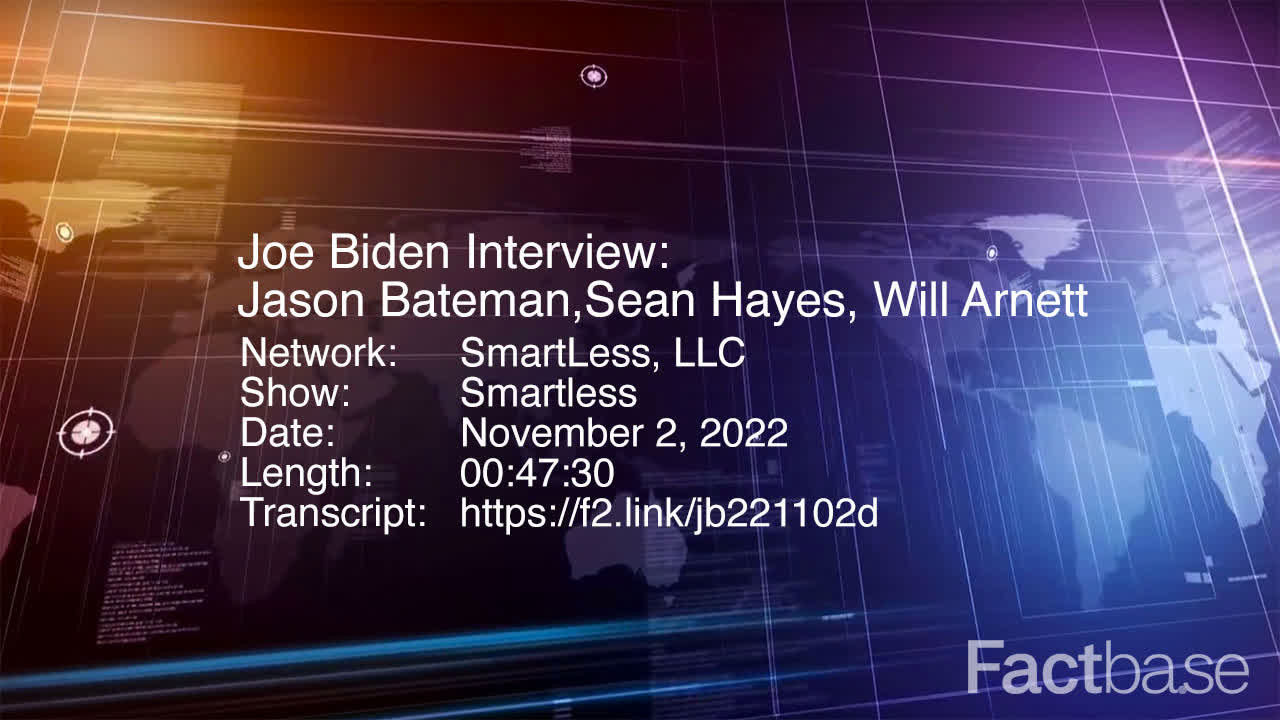
00:26:18-00:26:26 (8 sec)

"And it was the middle of Vietnam War, and a lot of other things going on. One thing led to another."
266
Jason Bateman
Negative
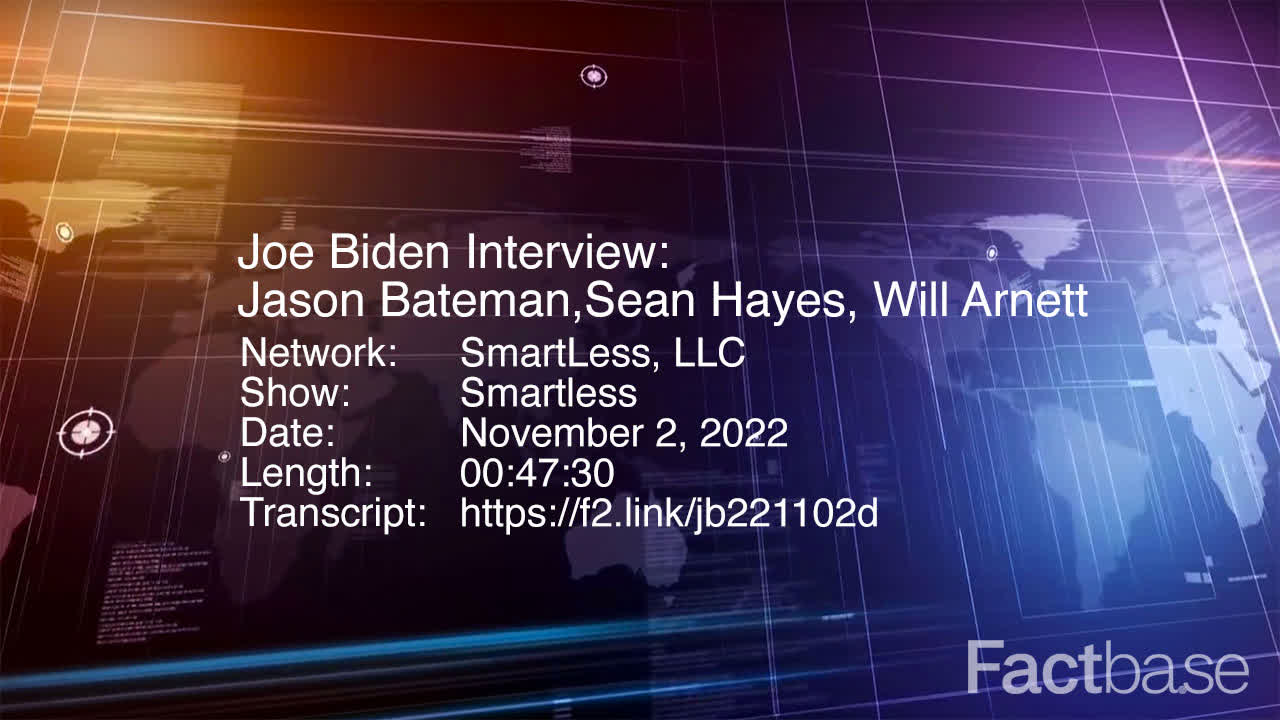
00:26:26-00:26:29 (3 sec)

"That's the penalty for not voting."
267
Joe Biden
Slightly Positive
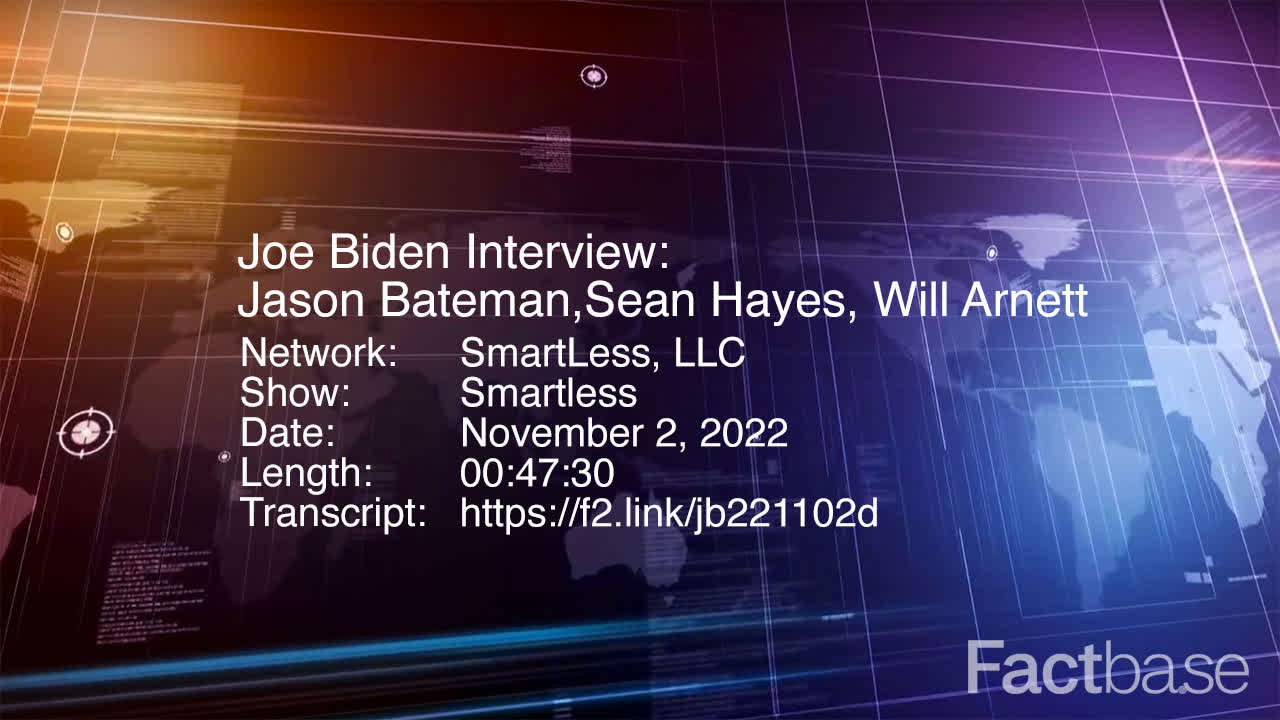
00:26:29-00:26:29 ( sec)

"Yeah."
268
Sean Hayes
Somewhat Positive
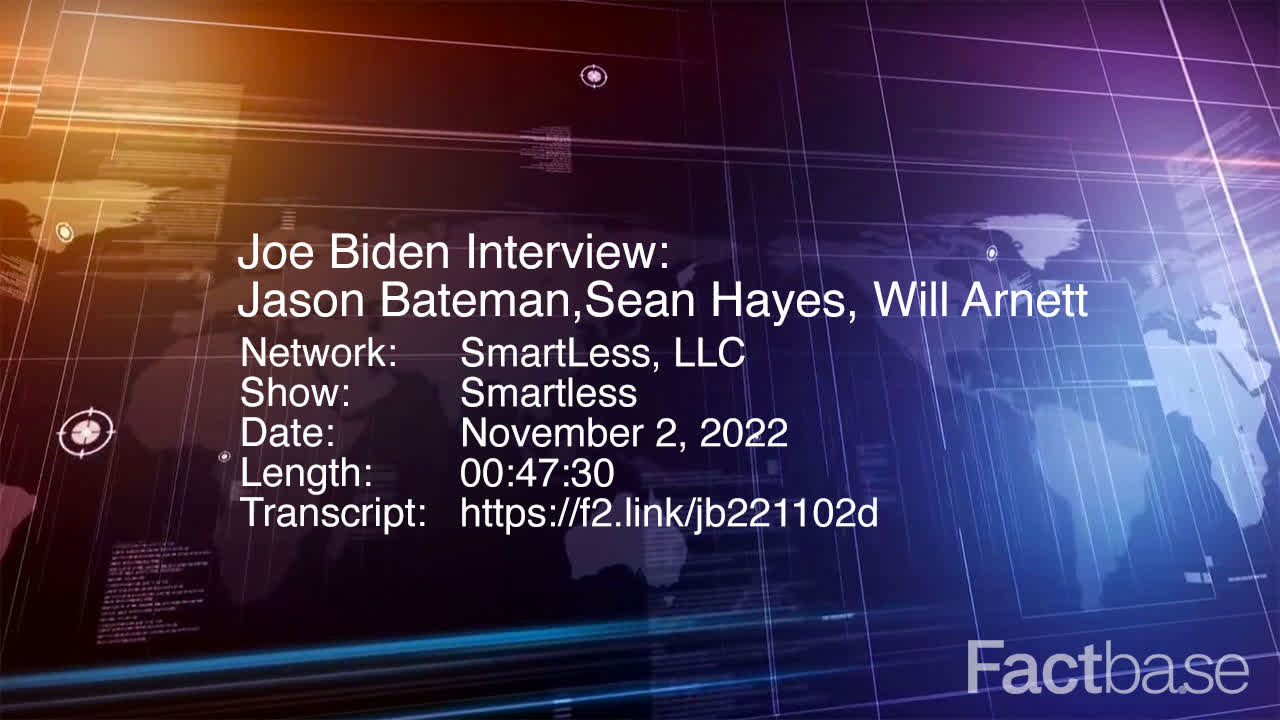
00:26:29-00:26:32 (3 sec)

"I used to play with Plato as a kid."
269
Jason Bateman
Slightly Positive
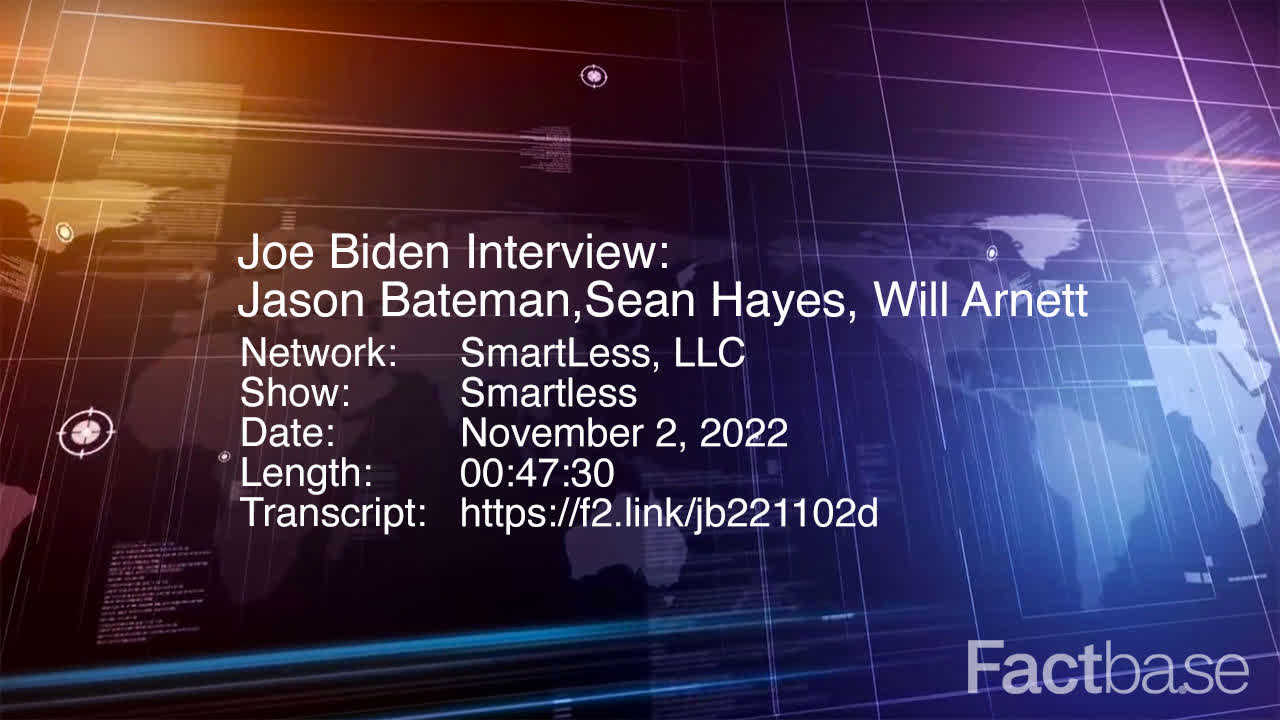
00:26:32-00:26:32 ( sec)

"Yeah."
270
Sean Hayes
Neutral
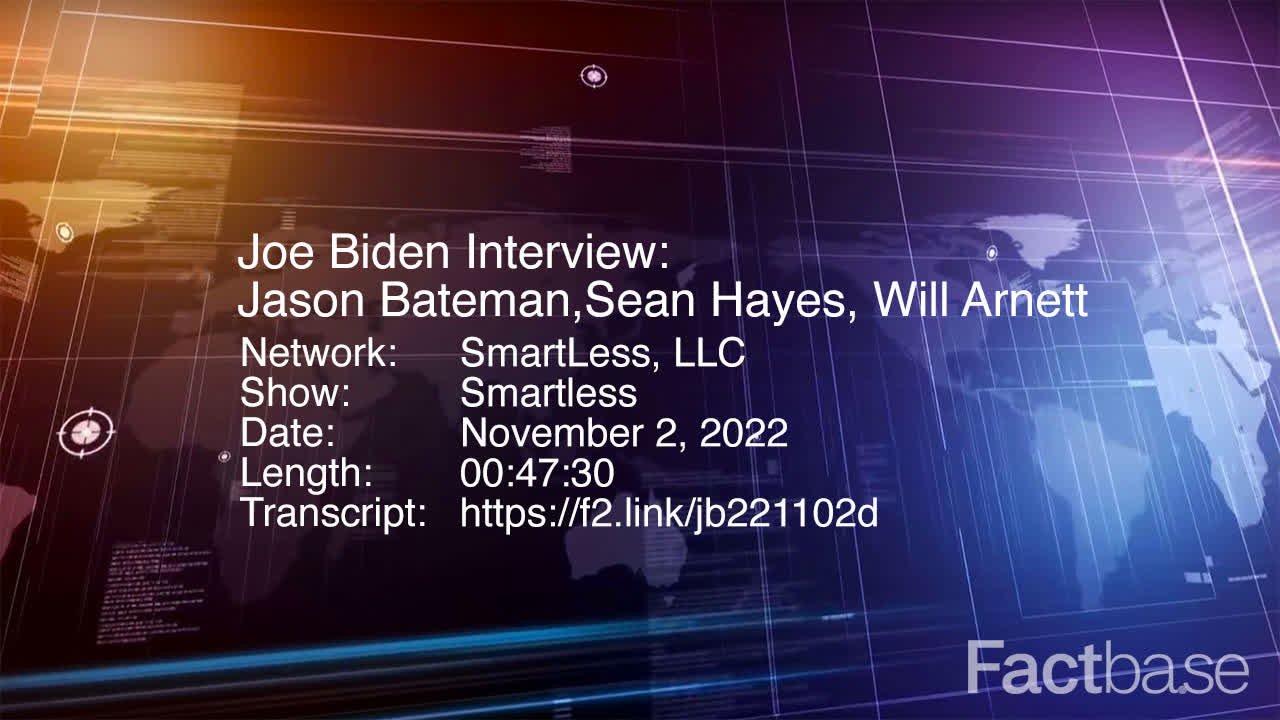
00:26:32-00:26:33 (1 sec)

"You know."
271
Will Arnett
Very Negative
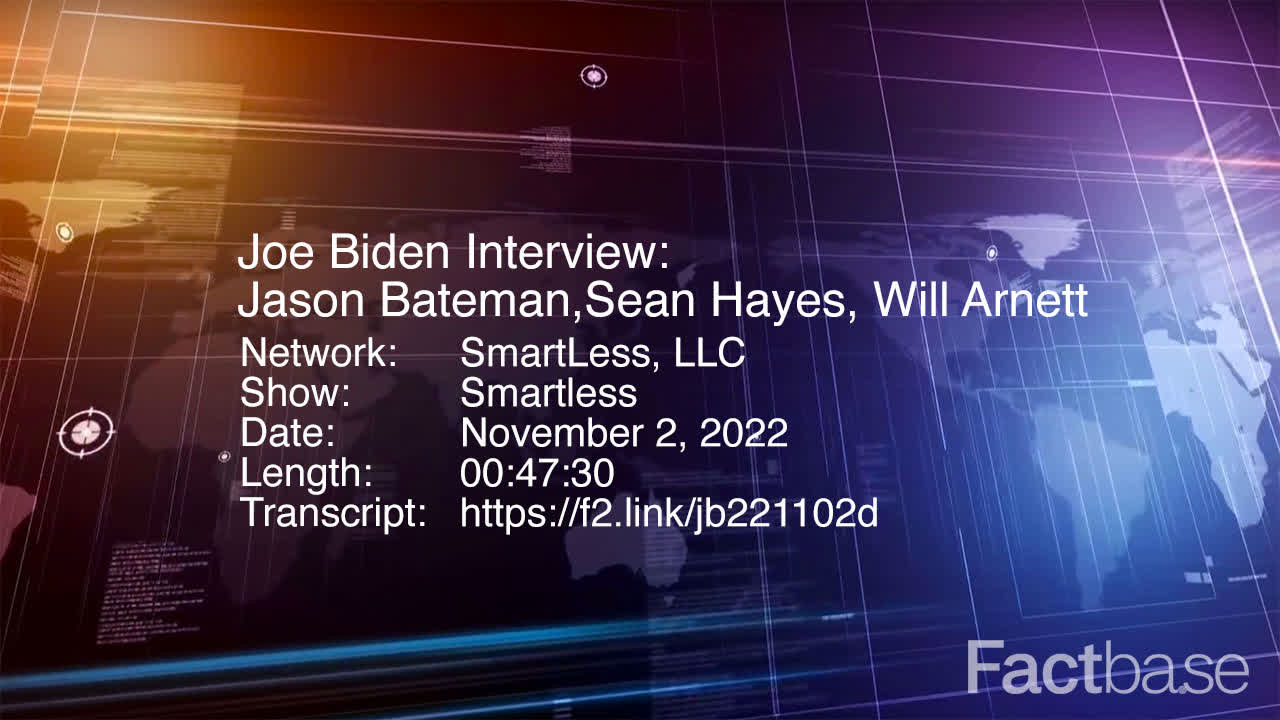
00:26:33-00:26:40 (7 sec)

"See, I told you. By the way, I wasn't a good student either. This is just an inside joke to -- to torture them."
272
Jason Bateman
Very Positive
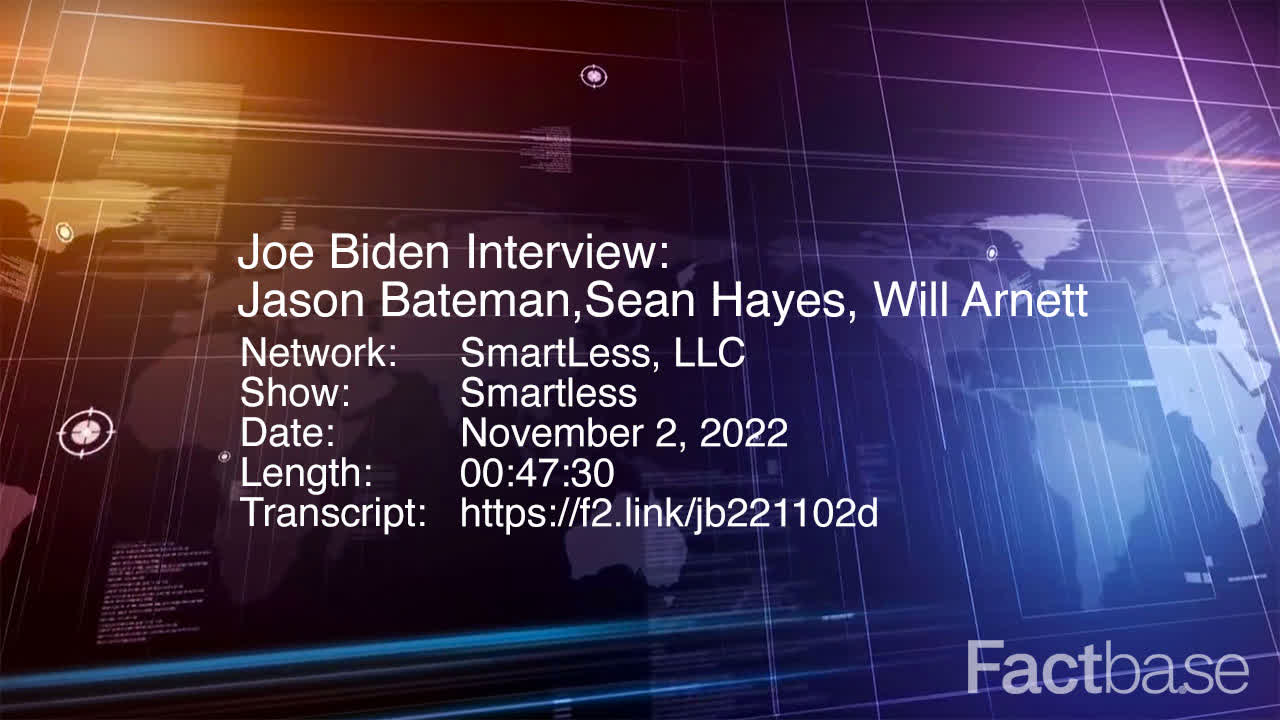
00:26:40-00:27:07 (27 sec)

"Mr. President, so your ability to, as you -- as you always have, across the aisle and -- and broker these -- these great agreements, if -- if a somebody who was -- what do you say, you were 29 at the time, 29 now coming into politics with how dynamic this political culture is and the necessity, the -- the vital that we -- we come across the aisle to -- to one another, what would you suggest to them?"
273
Jason Bateman
Positive
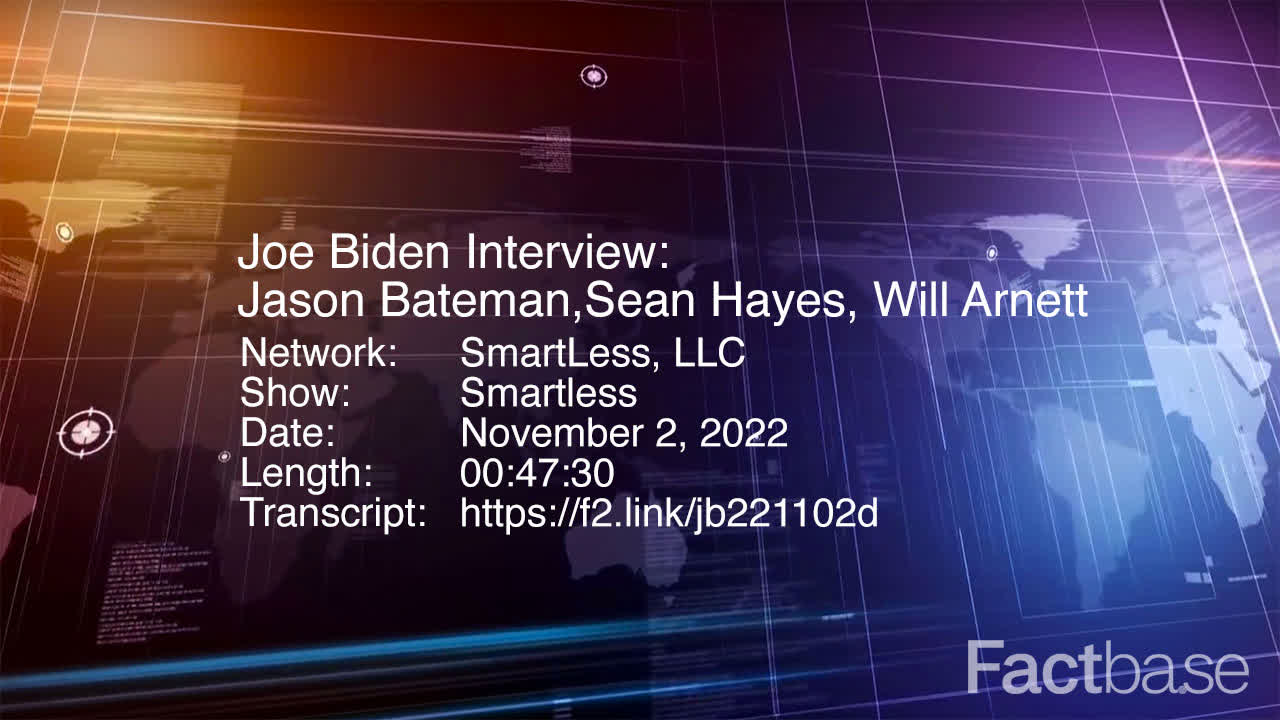
00:27:07-00:27:20 (13 sec)

"What -- what's the -- what's the secret sauce to be able to do that? How do you identify things that both sides could get excited about?"
274
Joe Biden
Neutral
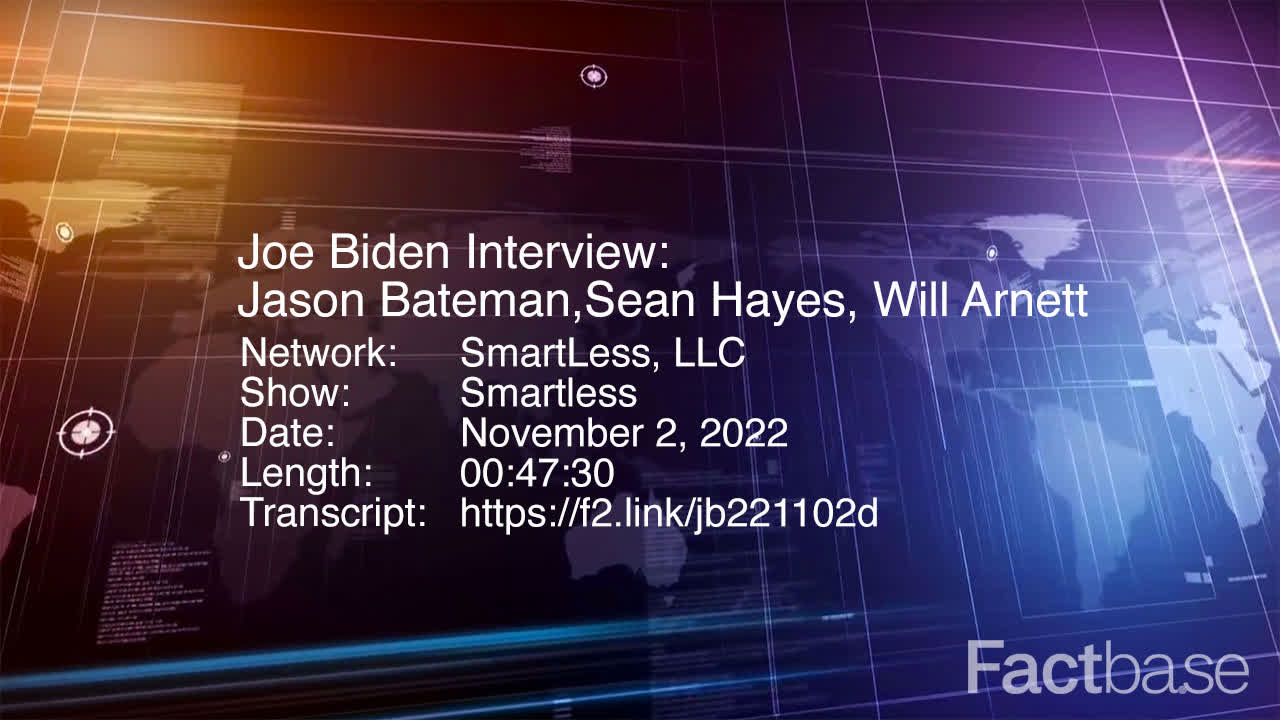
00:27:20-00:27:41 (21 sec)

"You know, because I got elected so young, everybody thought there had to be some secret sauce I had. I -- you know, there must have been something. And so, I've had -- just about everybody has ever sought the office of the Senate or governor, a young person in the last 40 years of the country say, you know, what -- what is it?"
275
Joe Biden
Somewhat Positive
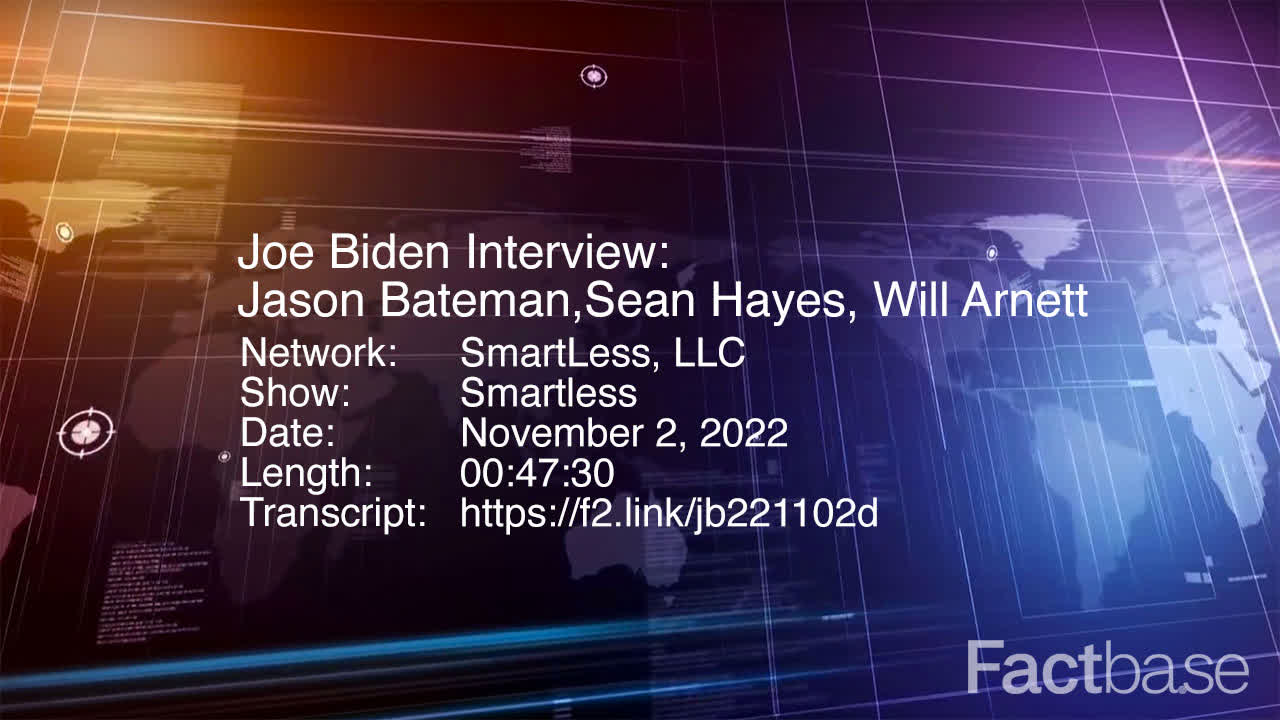
00:27:41-00:27:47 (6 sec)

"And I say the same thing in the media from the bottom of my heart. I said, figure out what are you willing to lose over."
276
Jason Bateman
Slightly Positive
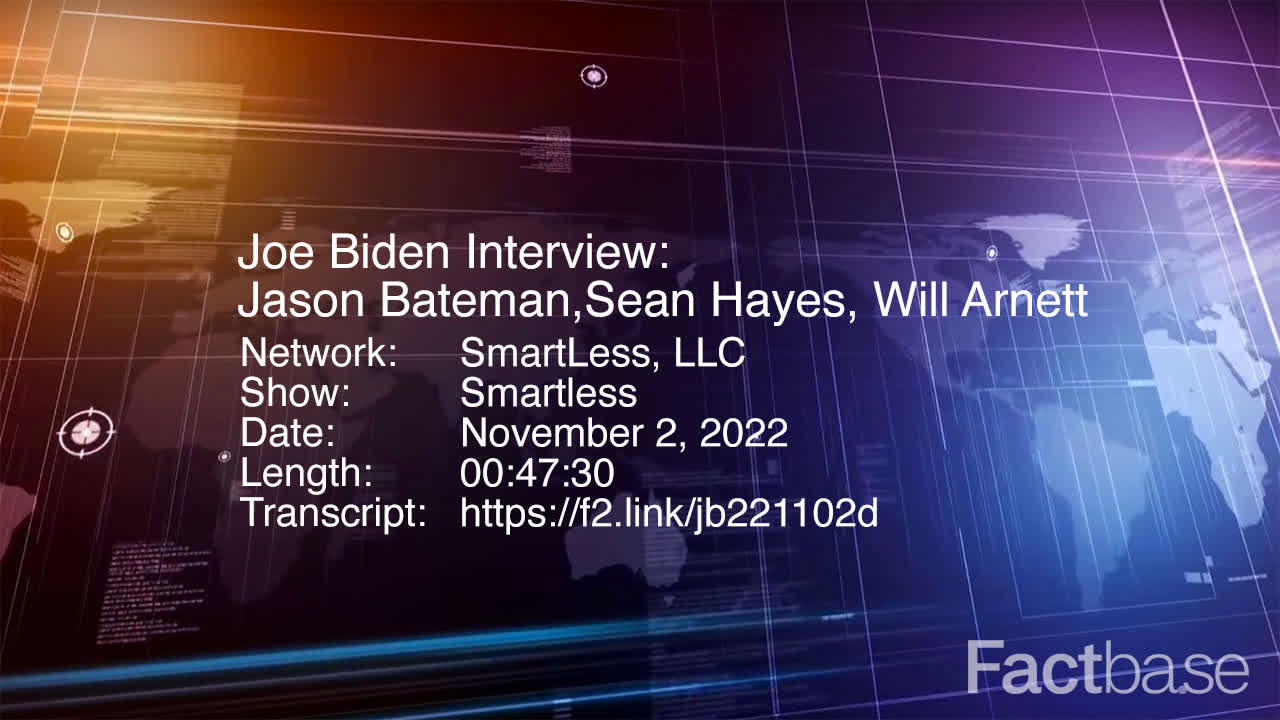
00:27:47-00:27:48 (1 sec)

"Yeah."
277
Joe Biden
Leans Negative
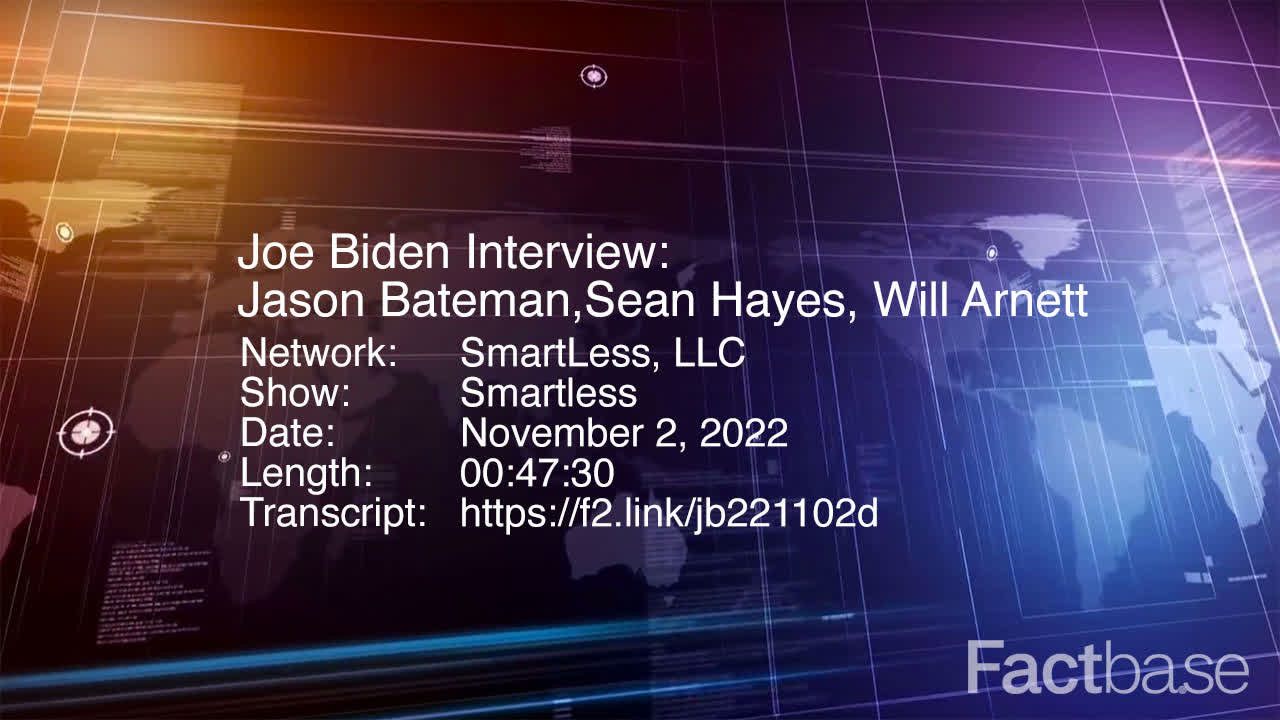
00:27:48-00:28:15 (27 sec)

"Or don't get involved because if you don't know what you're willing to lose over and have something that important to you, don't get engaged, don't get involved running because you can make a lot of money and do a lot better doing other things than being in politics. And so, one of the things that does is that -- you know, there's a joke among my colleagues when I said it, no one ever doubts I mean what I say."
278
Joe Biden
Negative
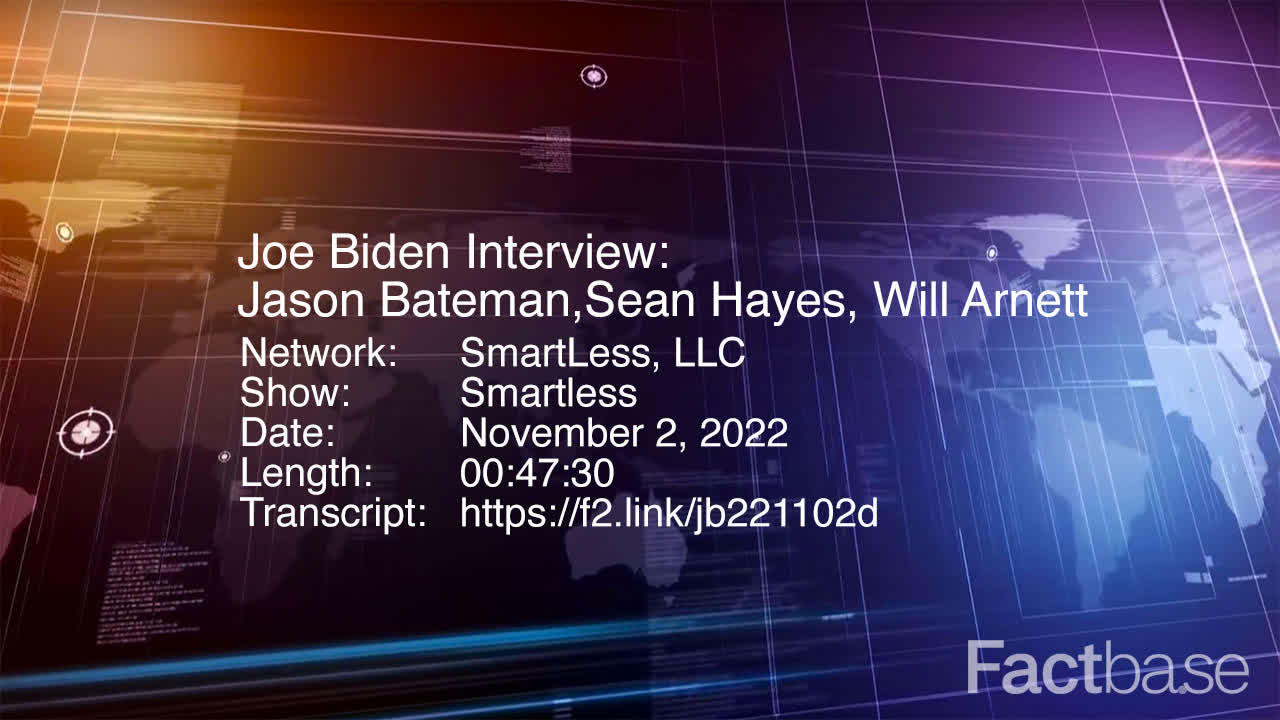
00:28:15-00:28:18 (2 sec)

"The problem is I sometimes say all that I mean."
279
Sean Hayes
Neutral
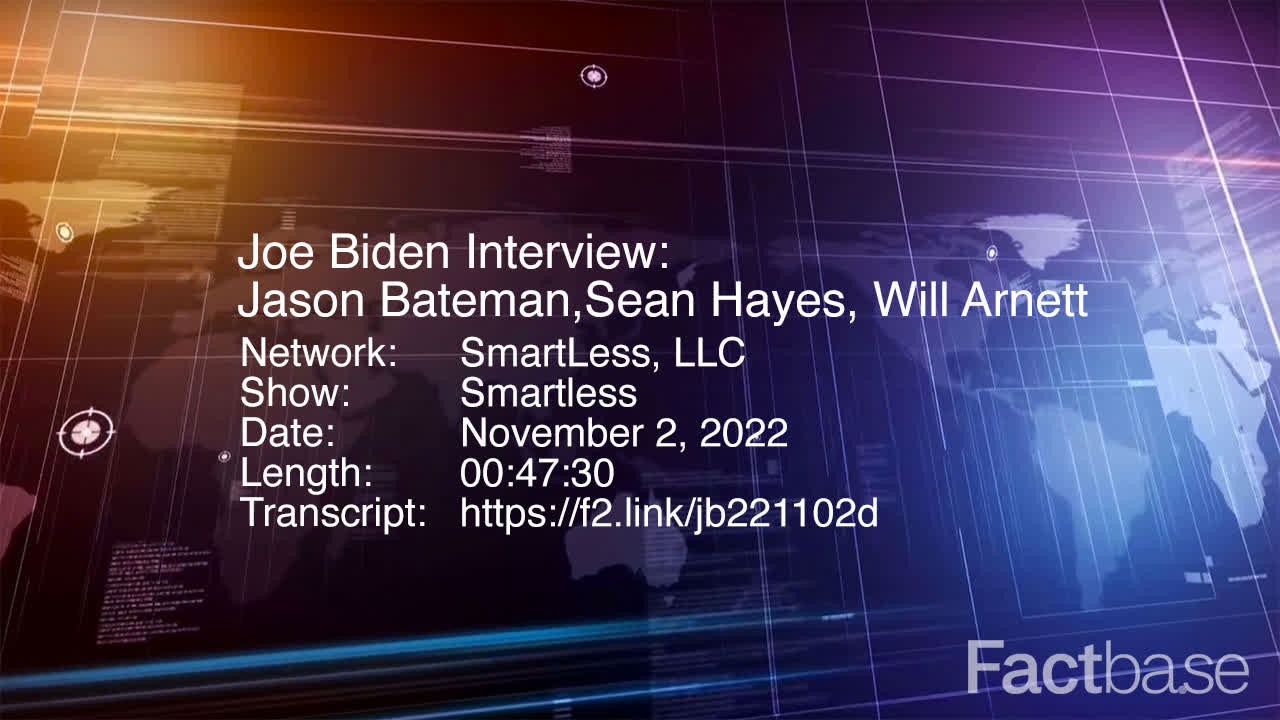
00:28:18-00:28:19 (1 sec)

"We'll be right back. [Commercial break]"
280
Sean Hayes
Neutral
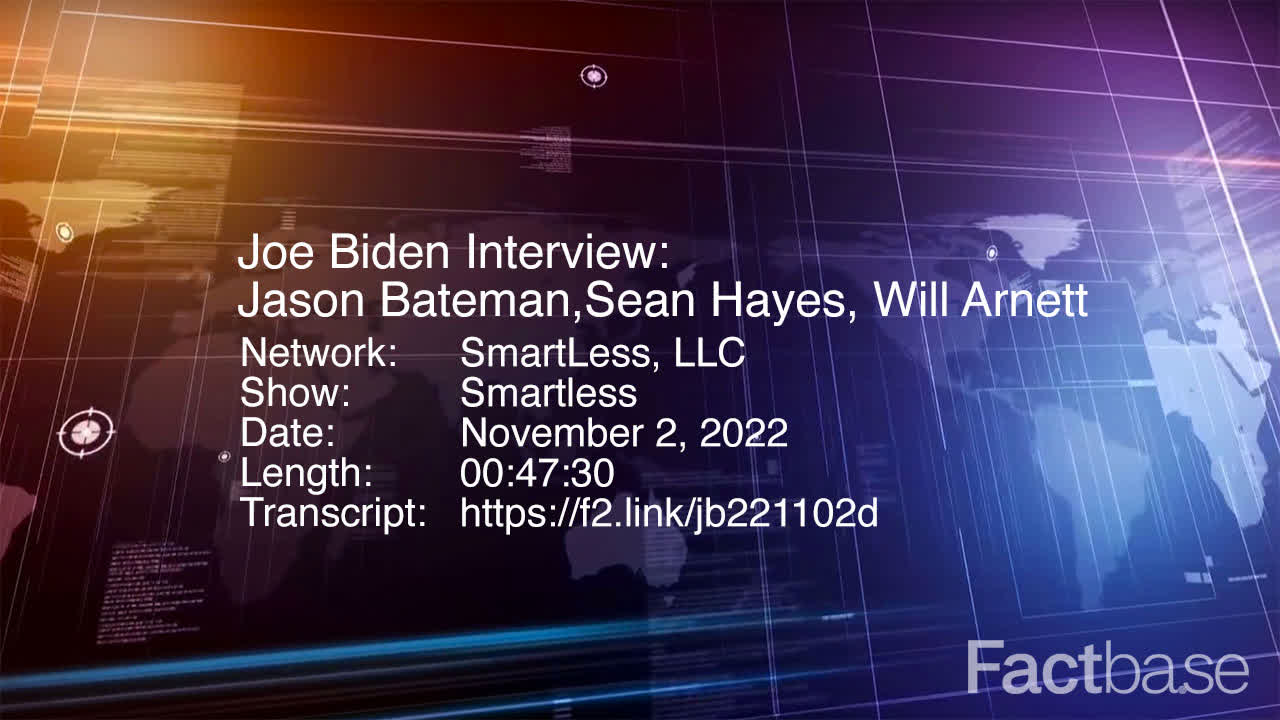
00:28:19-00:28:20 (1 sec)

"And now, back to the show."
281
Jason Bateman
Very Positive
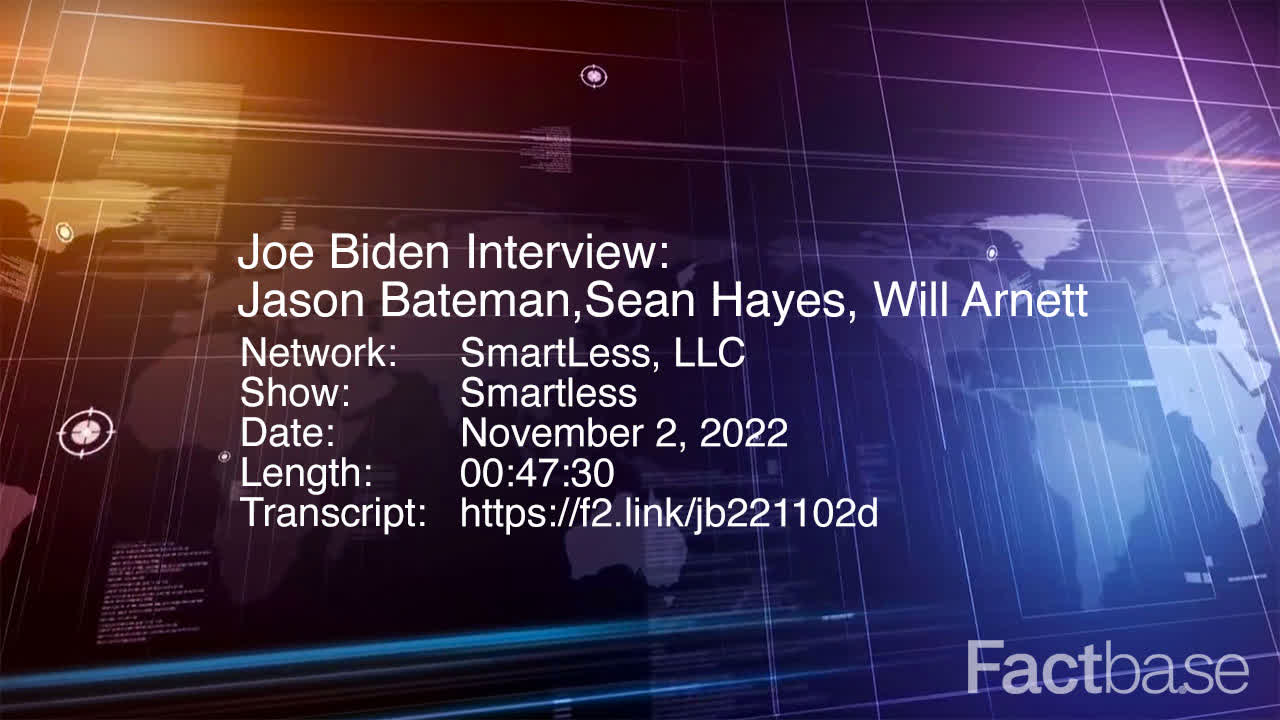
00:28:20-00:28:47 (27 sec)

"Mr. President, we -- this is, you know, we're -- we're -- we're not qualified or smart enough to ask you great questions. So, what we'd like to do -- I -- I would love to know just some of the just the simple sort of human stuff. I want to know, to the extent you're comfortable telling us, like -- just like the dumb stuff in your life."
282
Will Arnett
Neutral
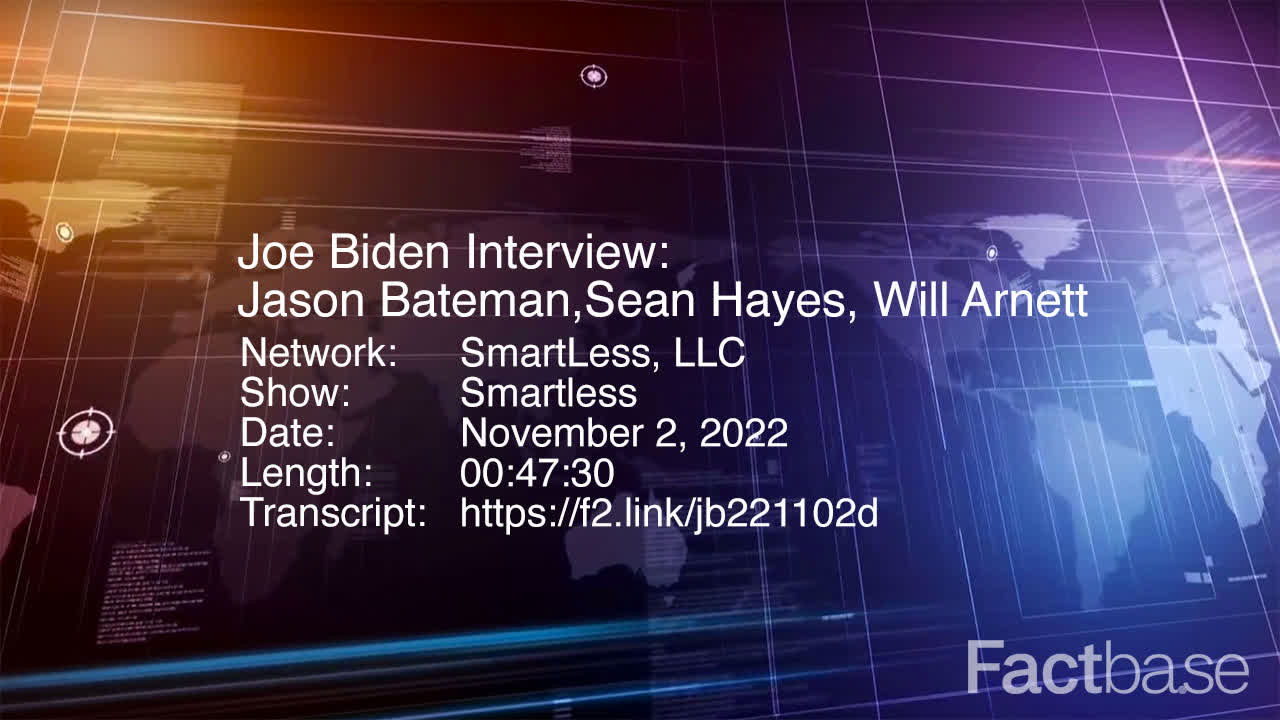
00:28:47-00:28:49 (2 sec)

"You want to know his personal stuff?"
283
Sean Hayes
Neutral
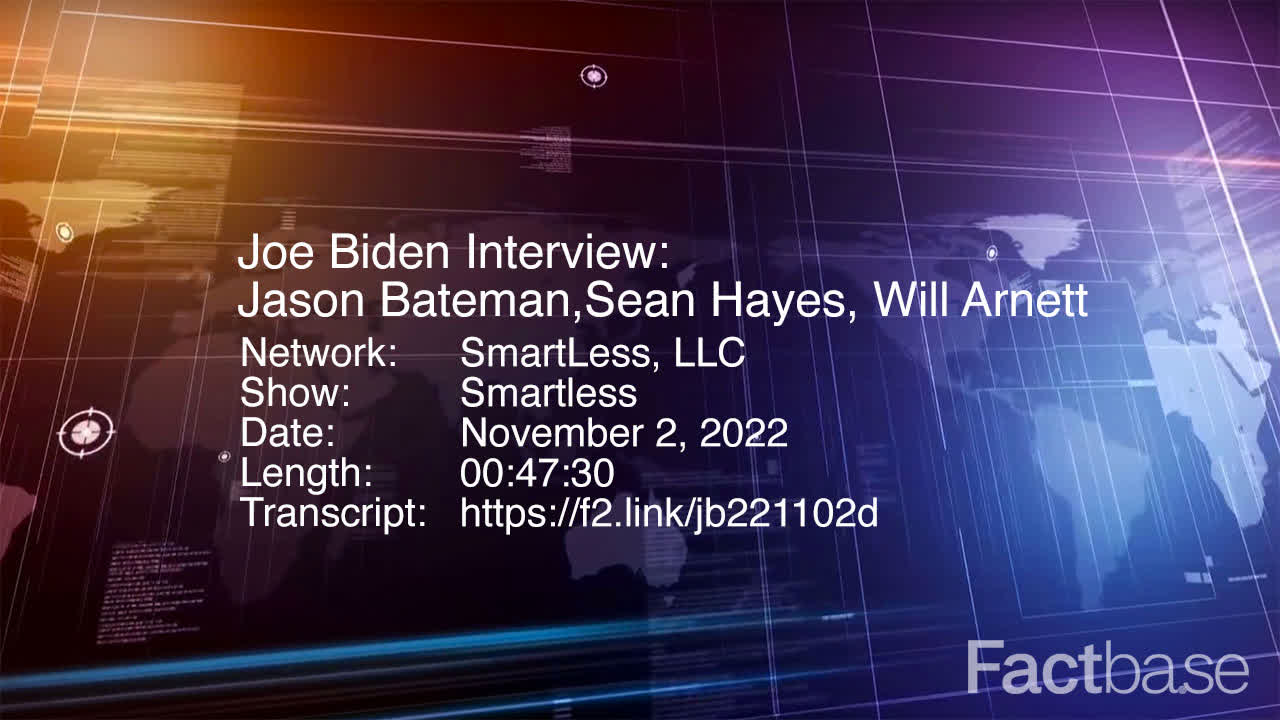
00:28:49-00:28:50 (1 sec)

"His personal stuff?"
284
Jason Bateman
Leans Negative
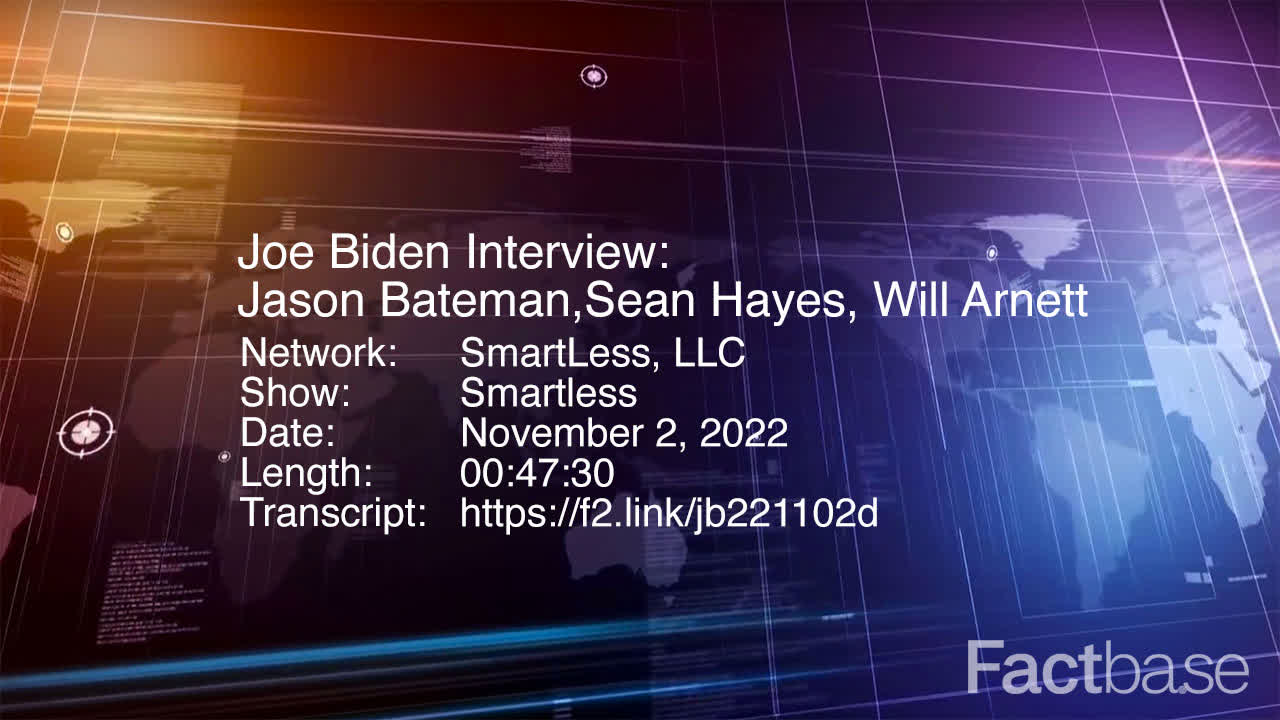
00:28:50-00:28:57 (7 sec)

"Yeah. He's a person. What -- what time do you get up most mornings? And do you use an alarm clock?"
285
Joe Biden
Very Positive
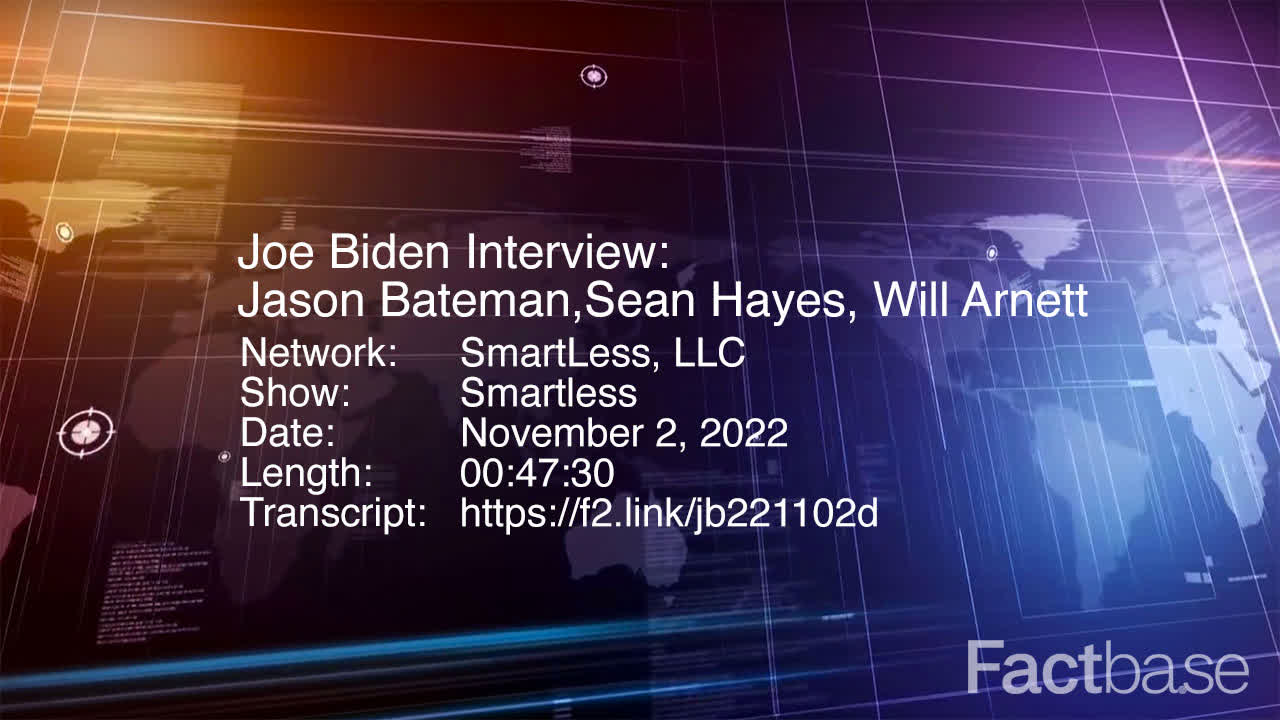
00:28:57-00:29:11 (14 sec)

"I -- I get a staff call. I have an alarm, but they -- they don't trust that. So, I mean, my -- my routine is there's a great guy who used to be a physical therapist at the -- at the White House. Now, he comes in, and I --"
286
Sean Hayes
Very Positive
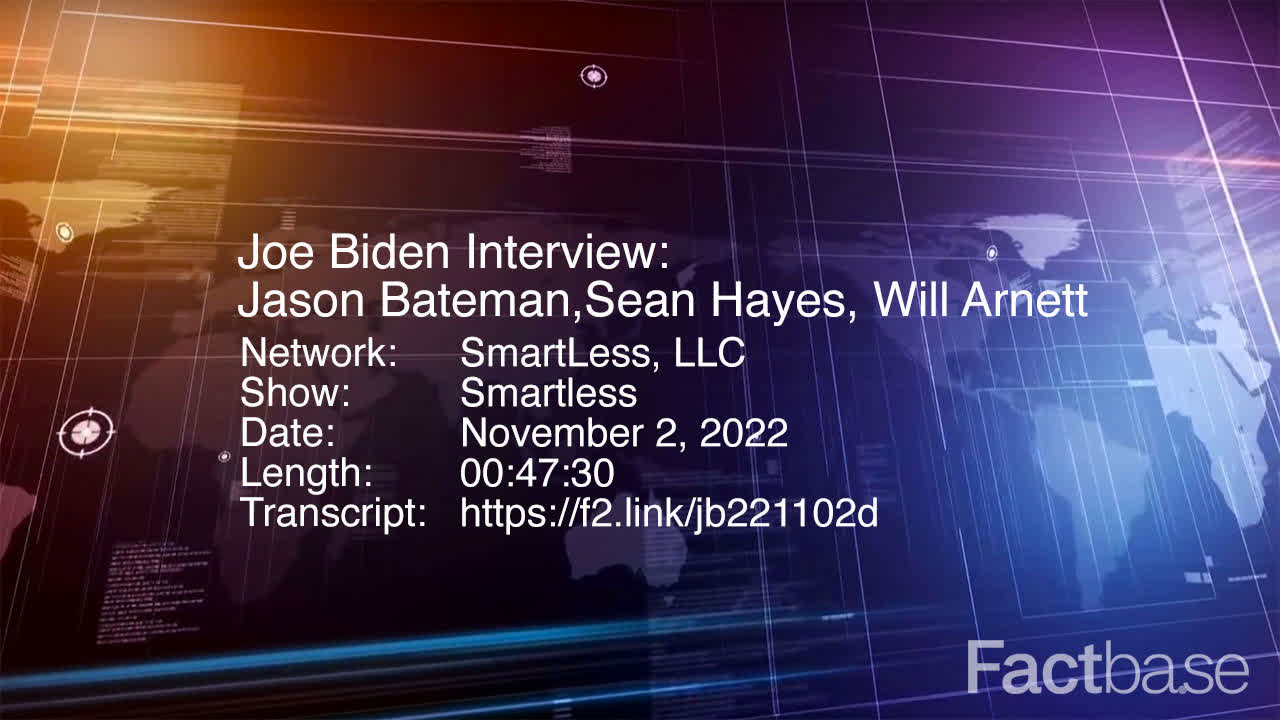
00:29:11-00:29:16 (5 sec)

"What do you mean he comes in? He comes in and he gently rocks you? [Inaudible]"
287
Joe Biden
Slightly Positive
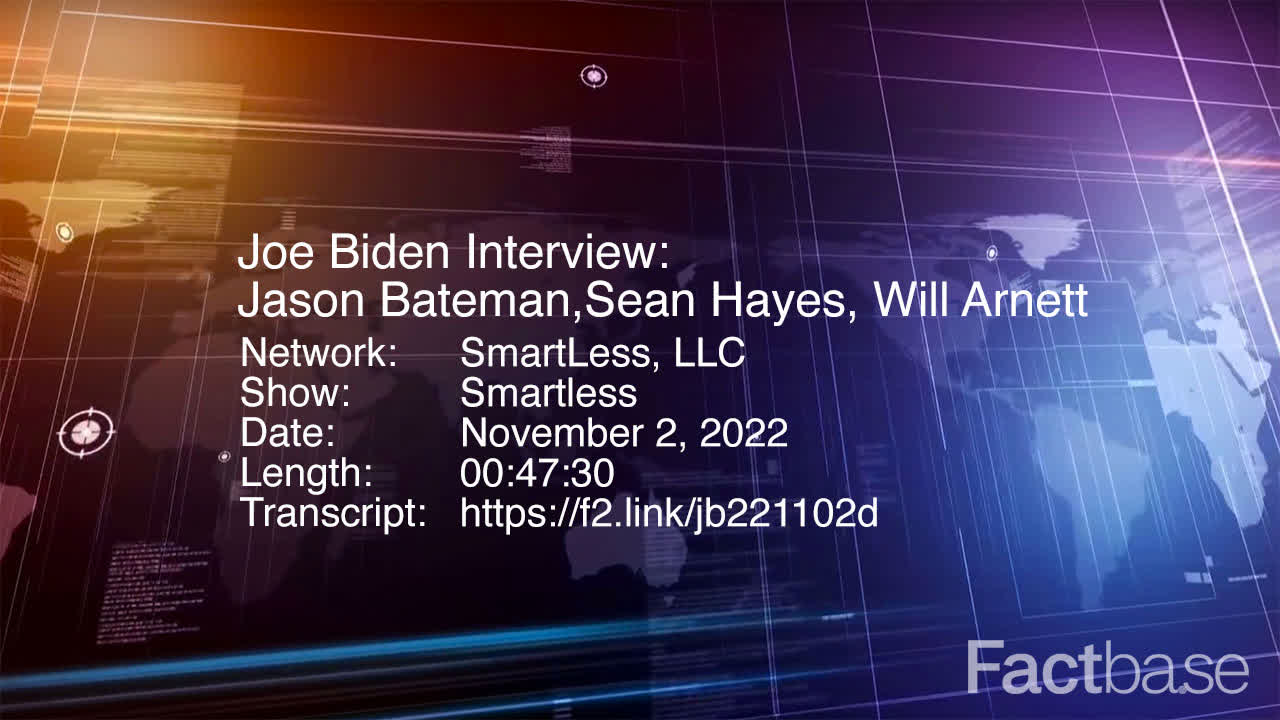
00:29:16-00:29:23 (7 sec)

"Yeah, I -- he rocks me. I tell you what, he works me. When I go up, there's a gym upstairs."
288
Sean Hayes
Slightly Positive
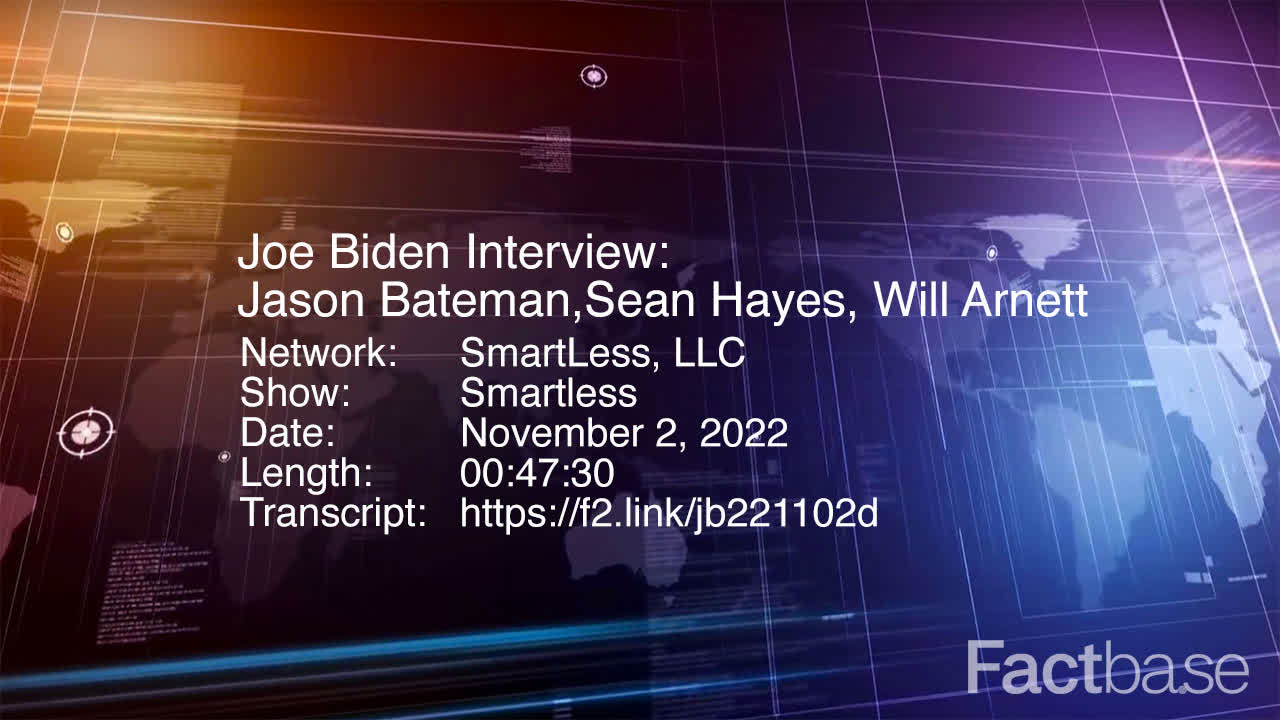
00:29:23-00:29:25 (2 sec)

"Well, he [Inaudible]"
289
Joe Biden
Neutral
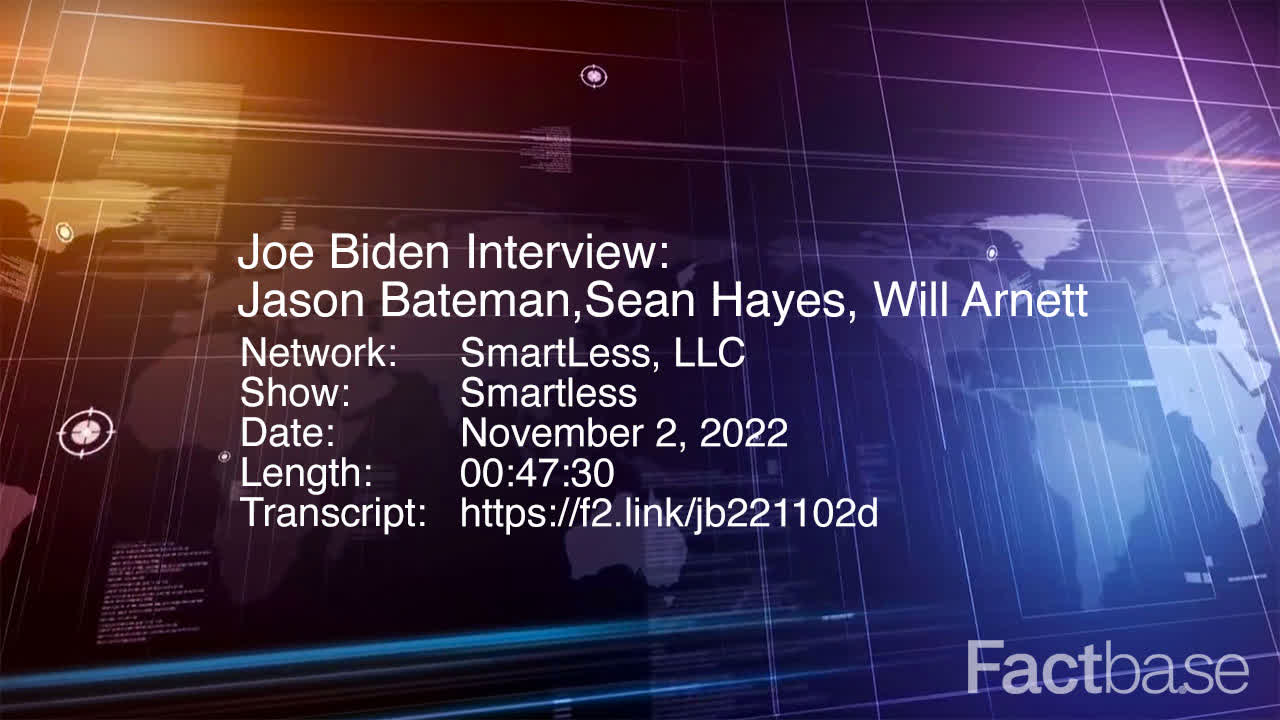
00:29:25-00:29:35 (10 sec)

"And so, I -- 8 o'clock -- I'm up at 7:00 -- 7:15. I go up and work out from 8:00 until quarter to 9:00."
290
Jason Bateman
Neutral
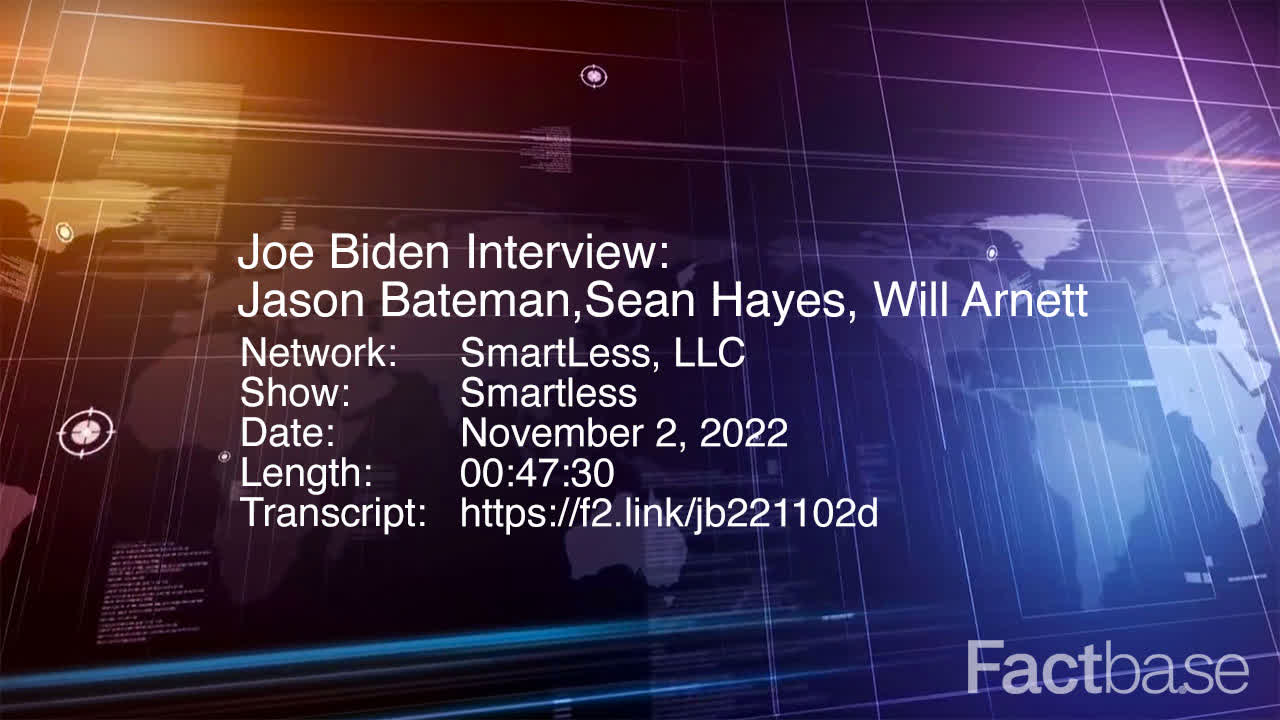
00:29:35-00:29:41 (5 sec)

"And what are we doing up there? We -- we blast him back and buys on Tuesdays and Thursdays or --"
291
Joe Biden
Positive
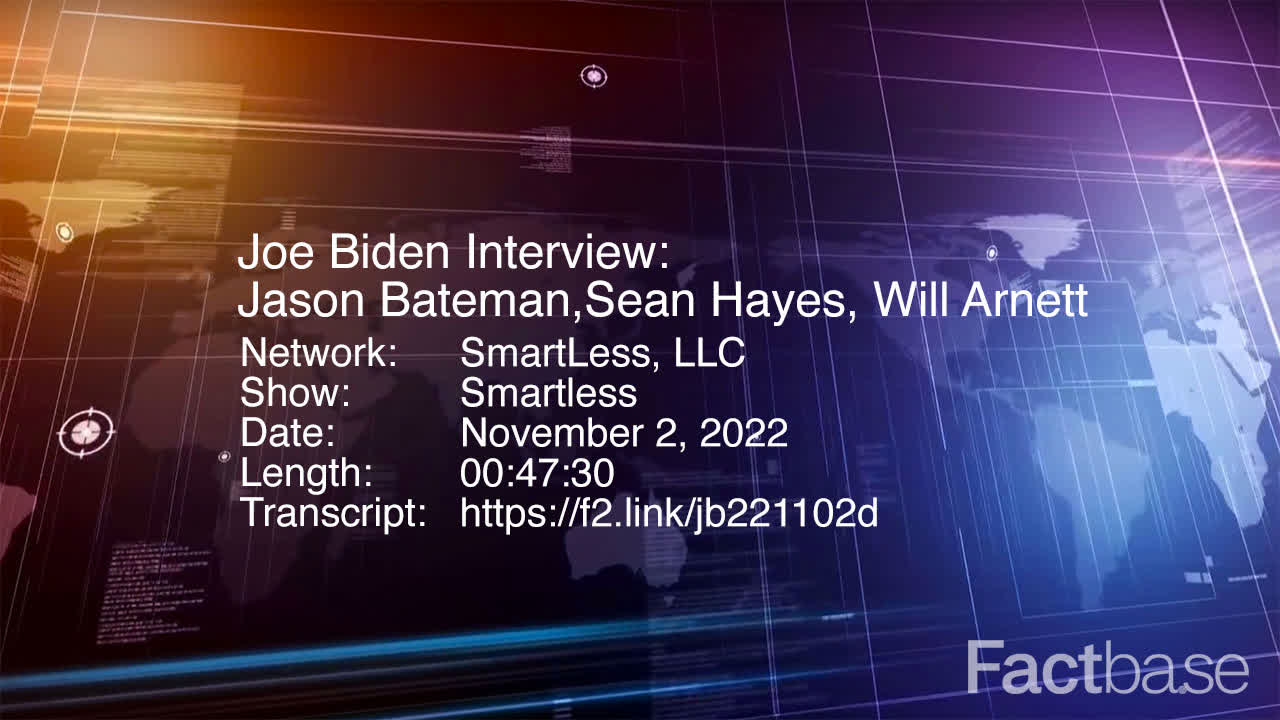
00:29:41-00:29:42 (2 sec)

"Yes, as a matter of fact."
292
Will Arnett
Very Positive
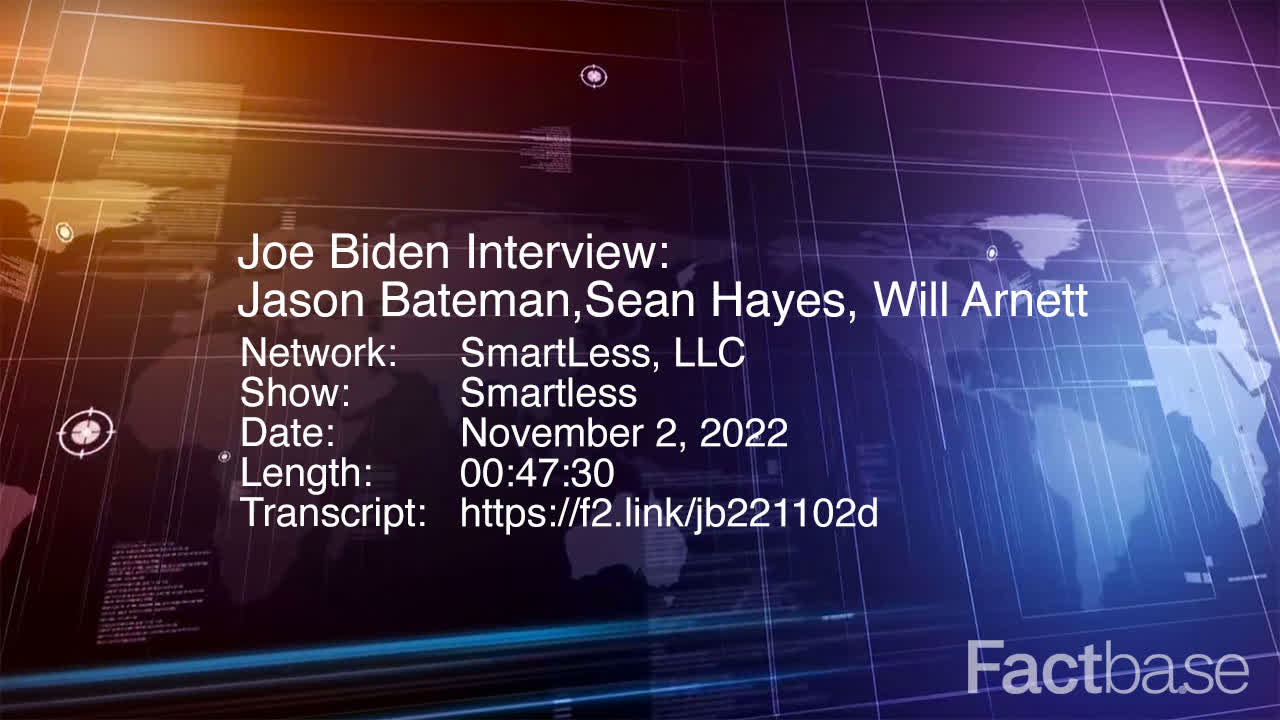
00:29:42-00:29:44 (2 sec)

"Wow."
293
Jason Bateman
Very Positive
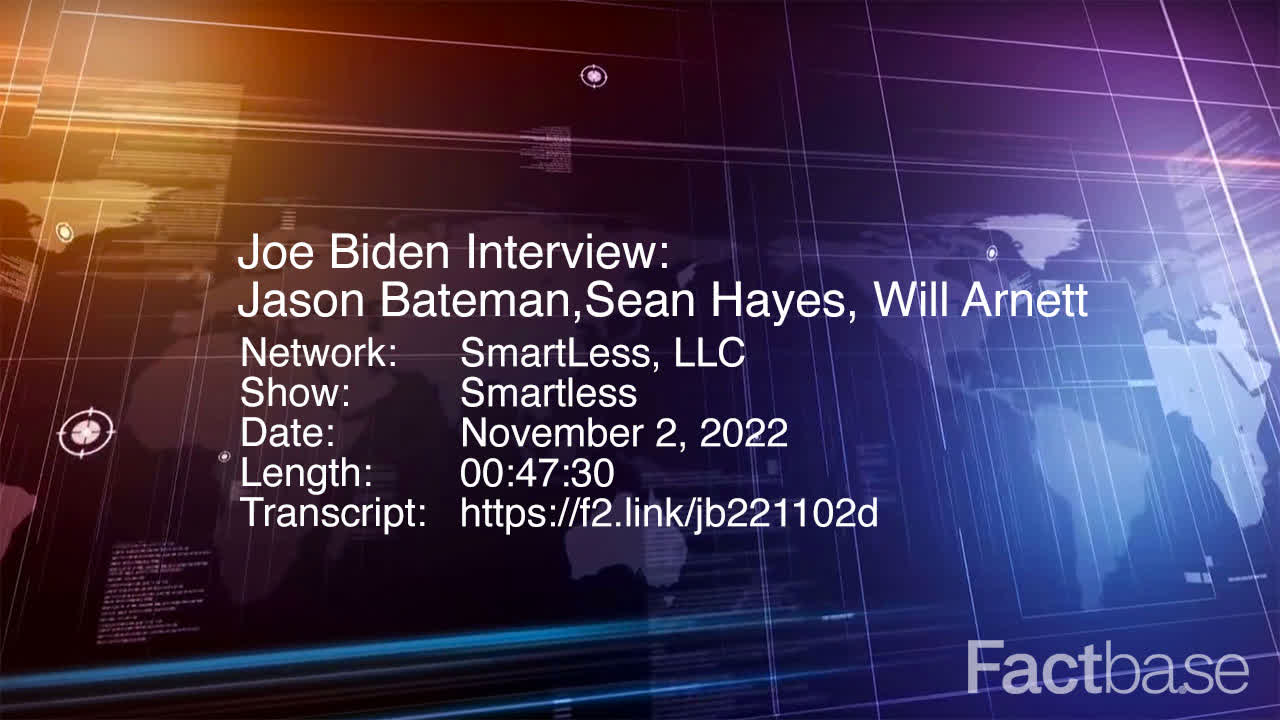
00:29:44-00:29:47 (3 sec)

"I love it."
294
Will Arnett
Very Positive
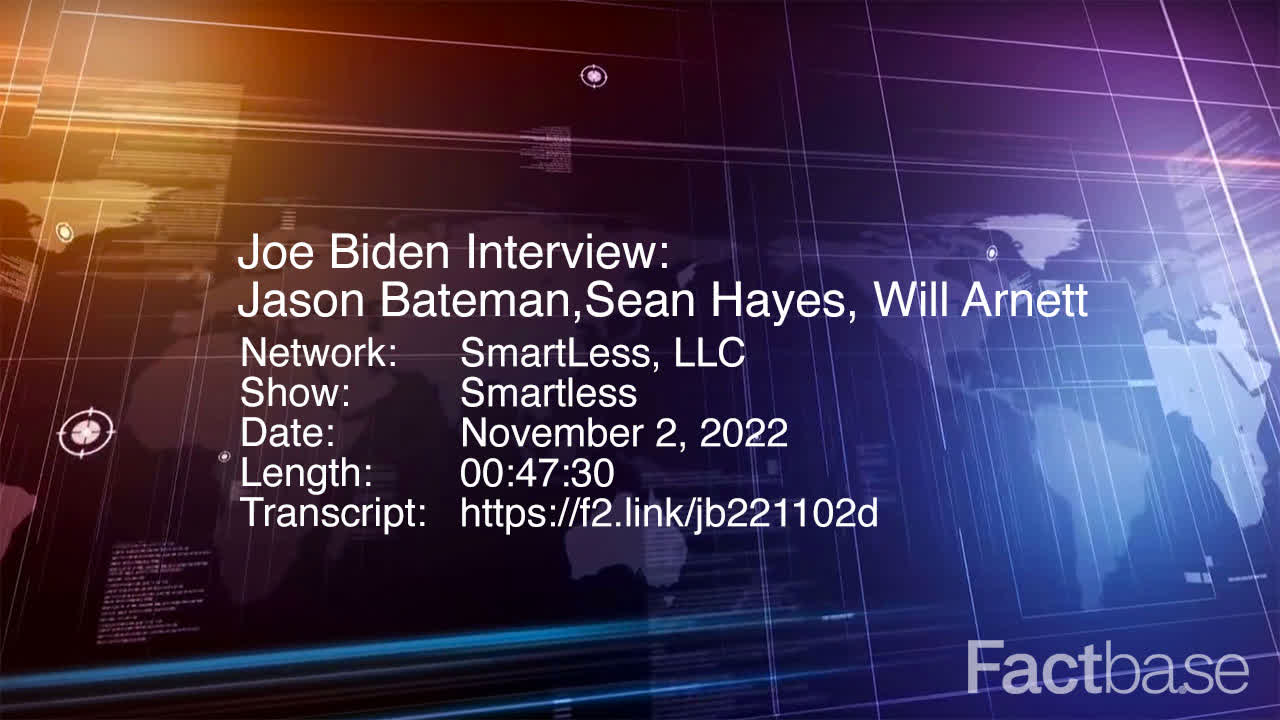
00:29:47-00:29:49 (2 sec)

"You look like you're in great shape."
295
Sean Hayes
Slightly Positive
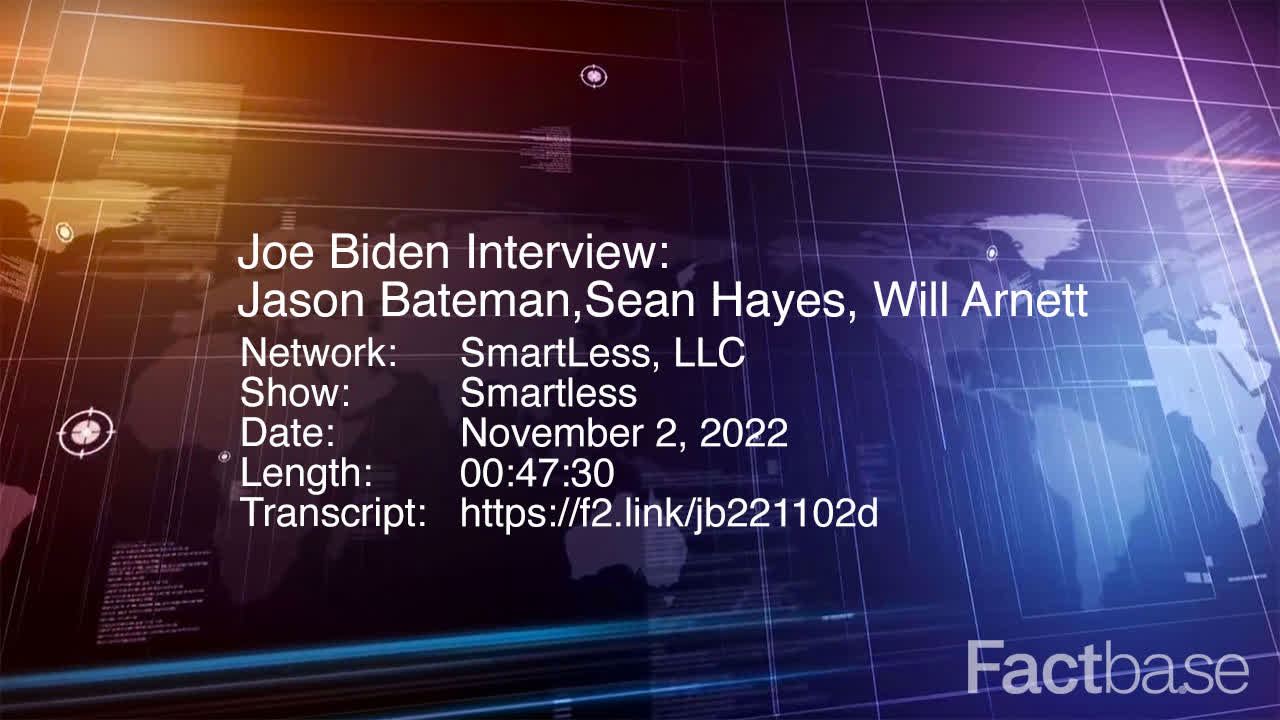
00:29:49-00:29:49 (1 sec)

"Yeah."
296
Joe Biden
Very Positive
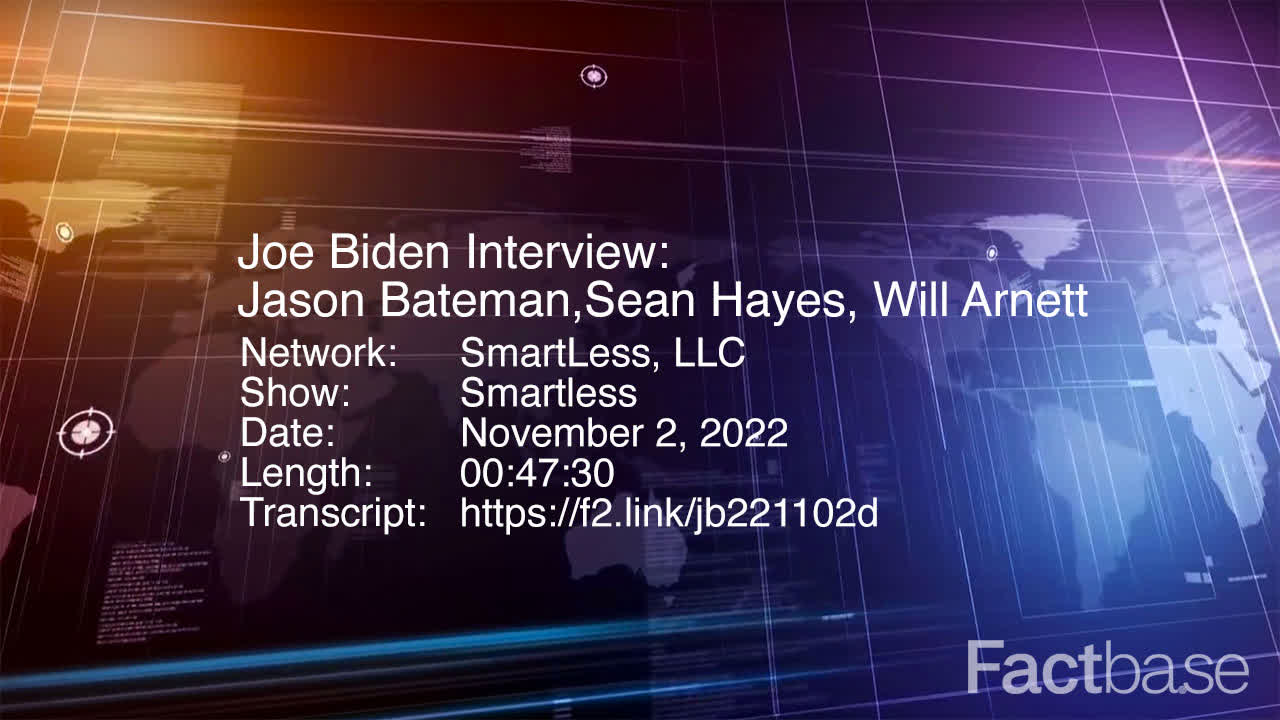
00:29:49-00:29:58 (8 sec)

"Well, I feel good. I feel good. I -- the thing I learned, the difference in age, if I let it go for a week, I'd feel it."
297
Will Arnett
Neutral
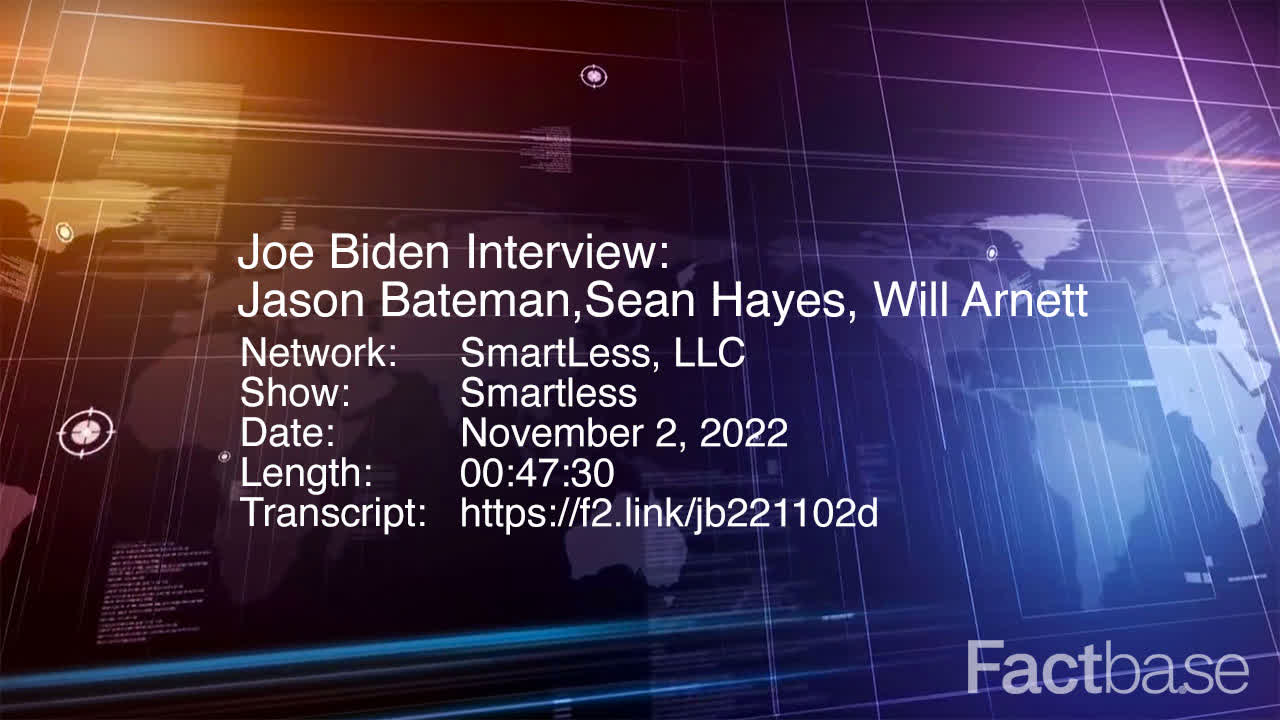
00:29:58-00:29:58 (1 sec)

"I know."
298
Sean Hayes
Neutral
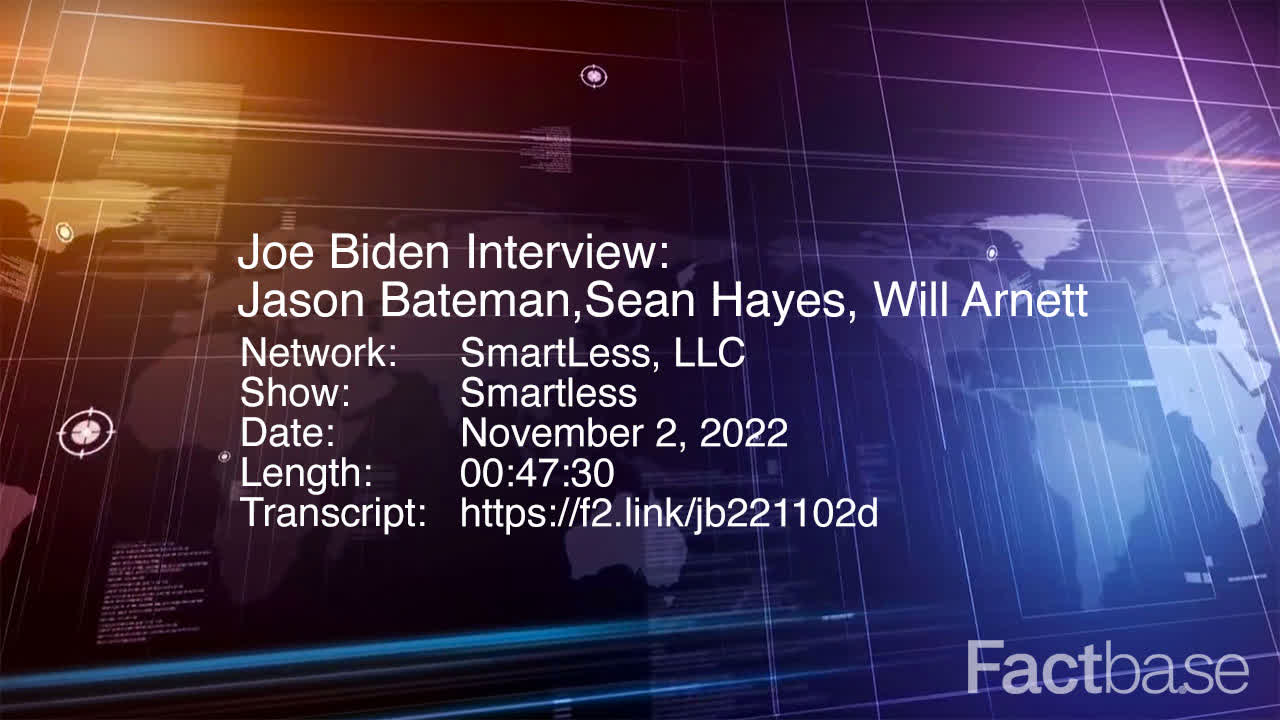
00:29:58-00:30:00 (1 sec)

"Is there -- is there --"
299
Jason Bateman
Neutral
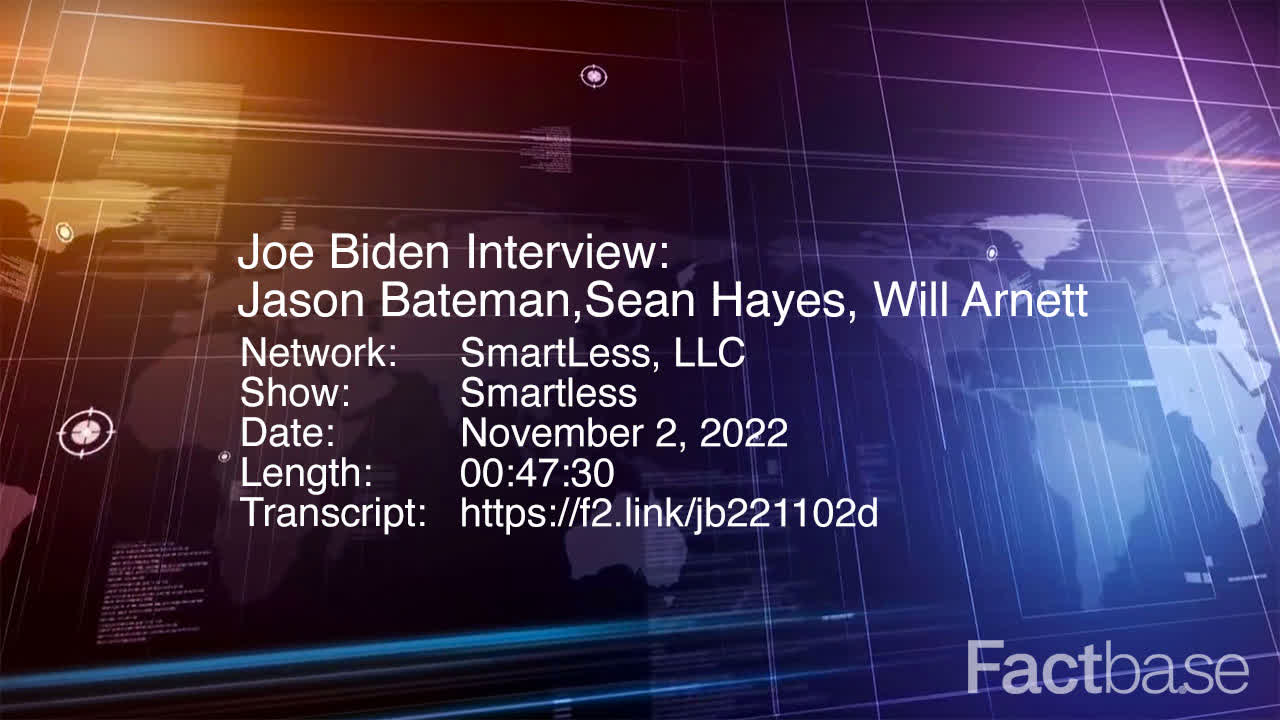
00:30:00-00:30:02 (3 sec)

"Again, he's looking at you, Sean. Go ahead."
300
Joe Biden
Neutral
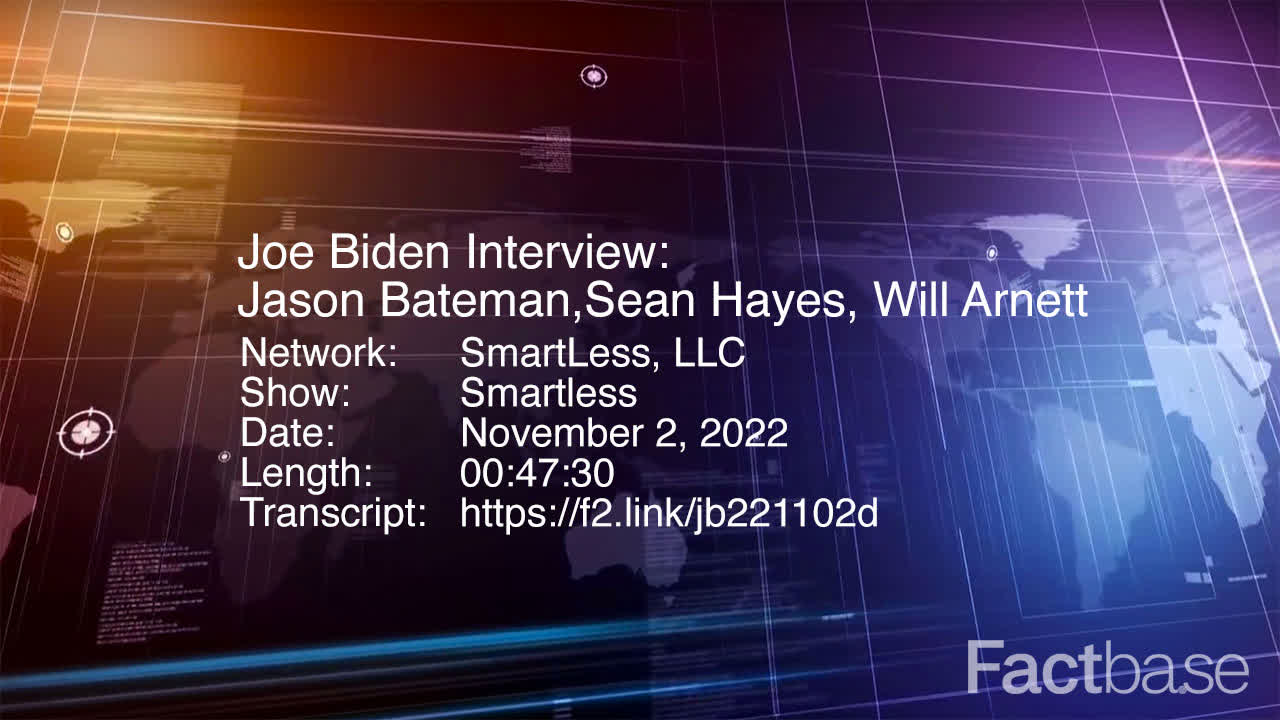
00:30:02-00:30:09 (6 sec)

"Wait. No, I used to be able to go for a week and nothing would change. And I was like --"
301
Will Arnett
Very Positive
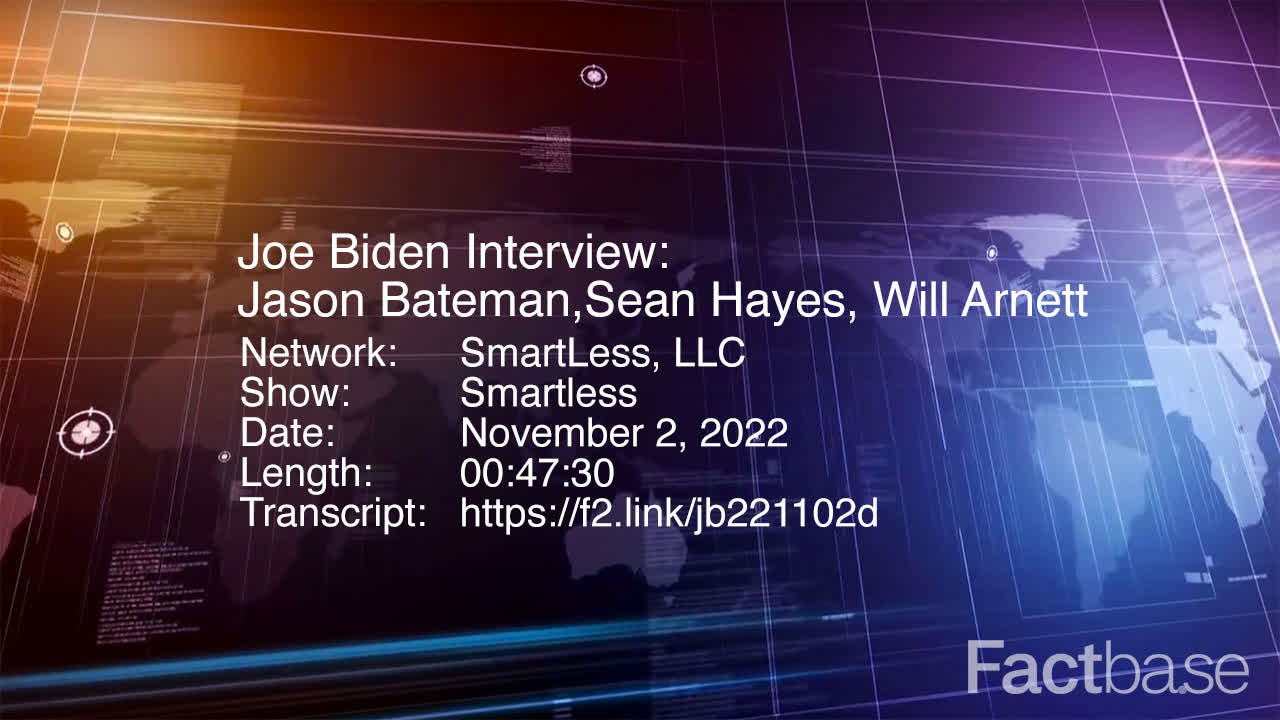
00:30:09-00:30:10 (2 sec)

"No, it's true, though. It's true."
302
Joe Biden
Somewhat Negative
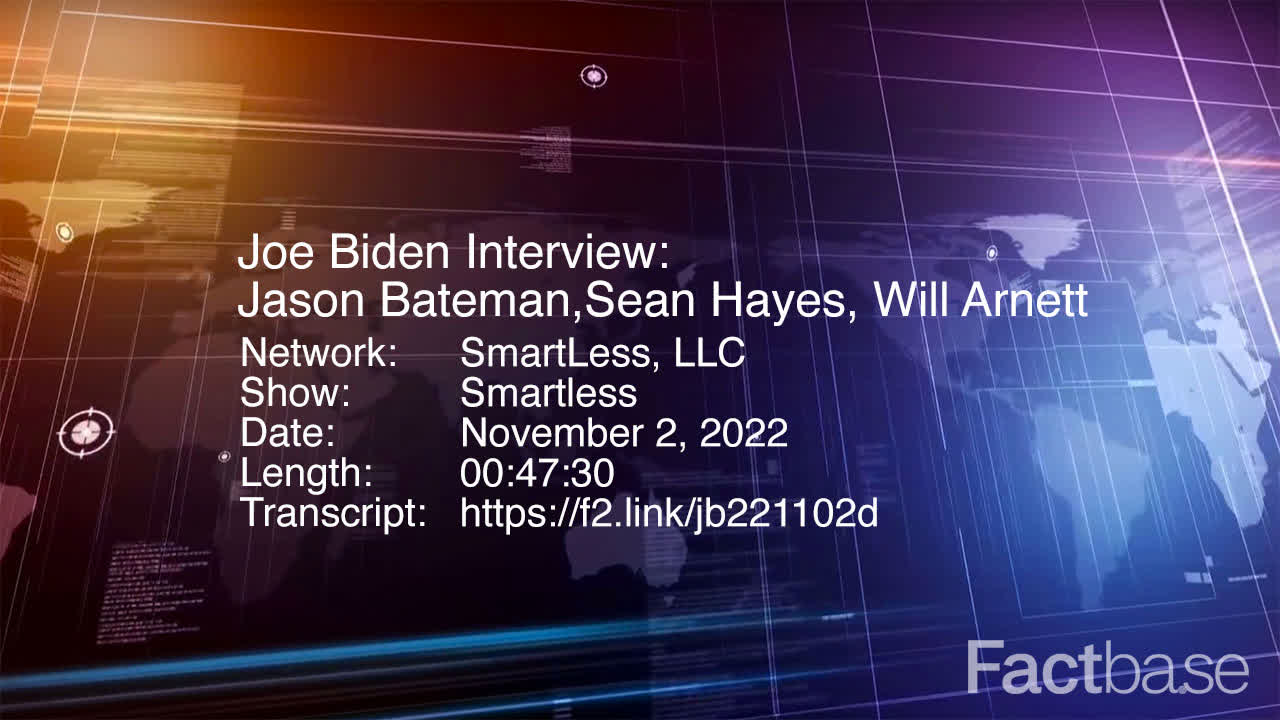
00:30:10-00:30:12 (2 sec)

"No, I'm serious."
303
Will Arnett
Slightly Positive
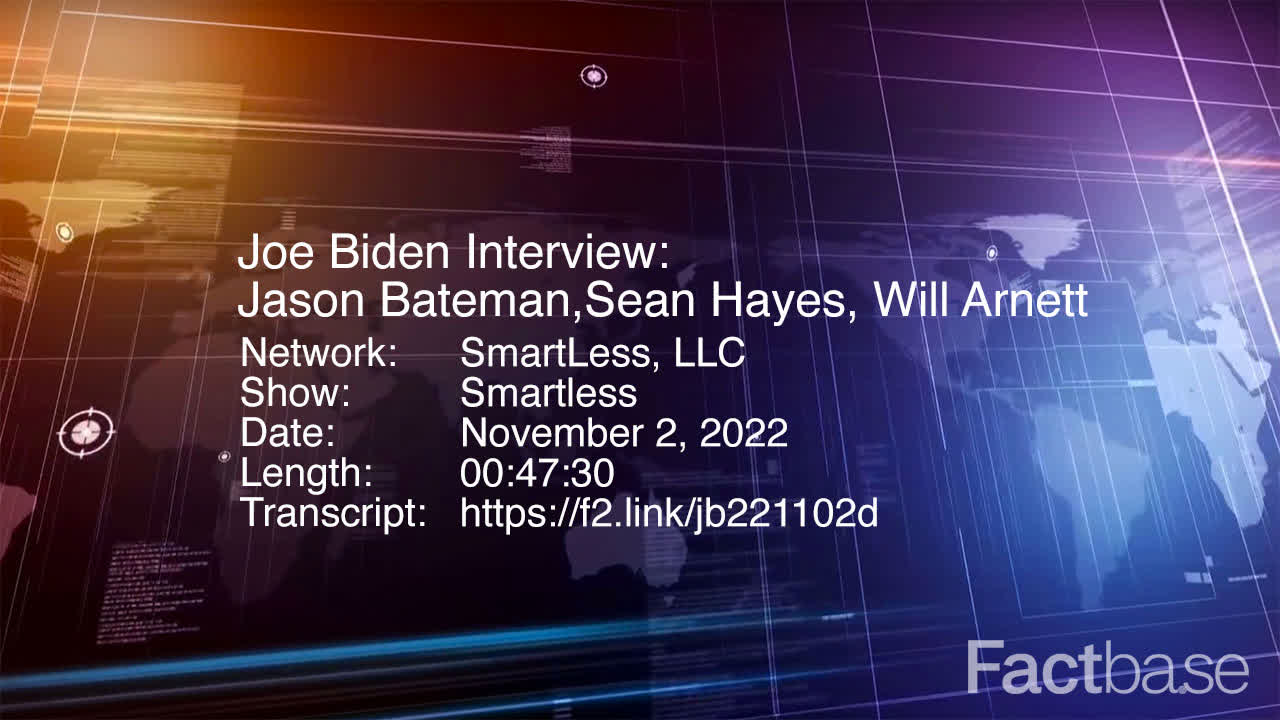
00:30:12-00:30:19 (7 sec)

"Believe me, we're all over 50, and we know -- we talk about it all the time how much harder it is getting on top of it."
304
Sean Hayes
Neutral
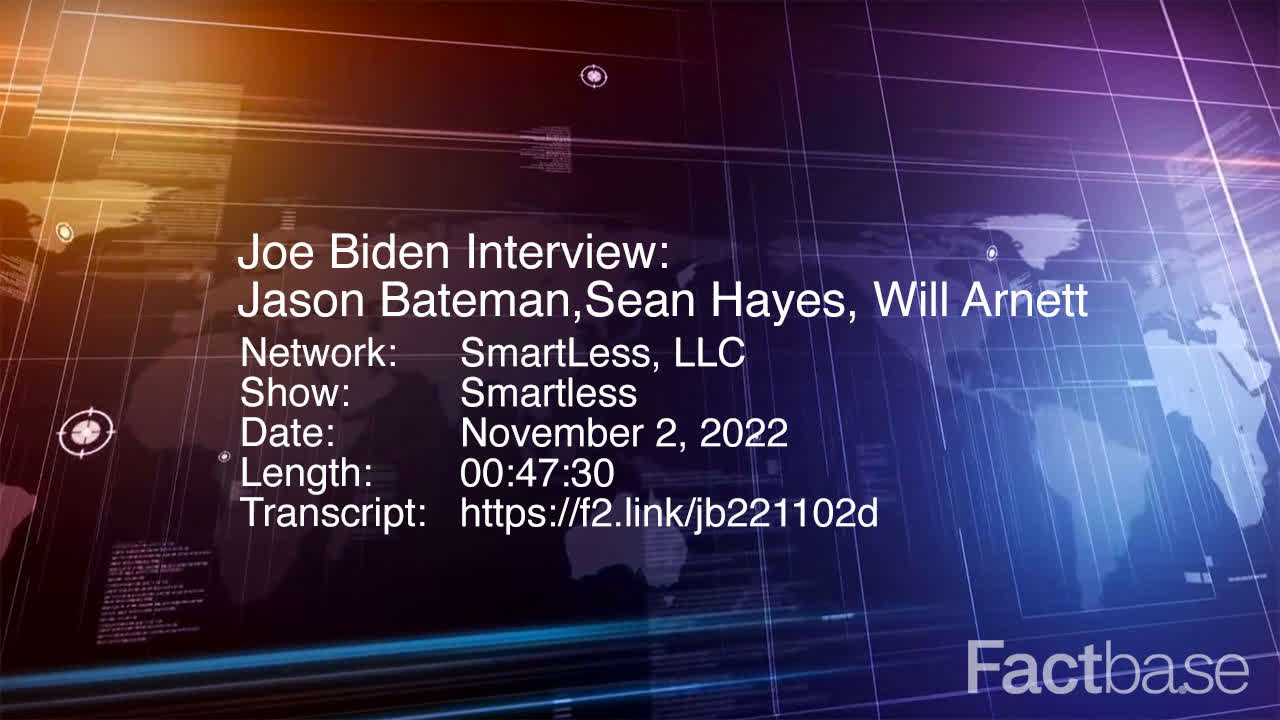
00:30:19-00:30:26 (7 sec)

"What's your -- what's your kryptonite? If something's in front of you, it's going to get eaten. What it is?"
305
Will Arnett
Neutral
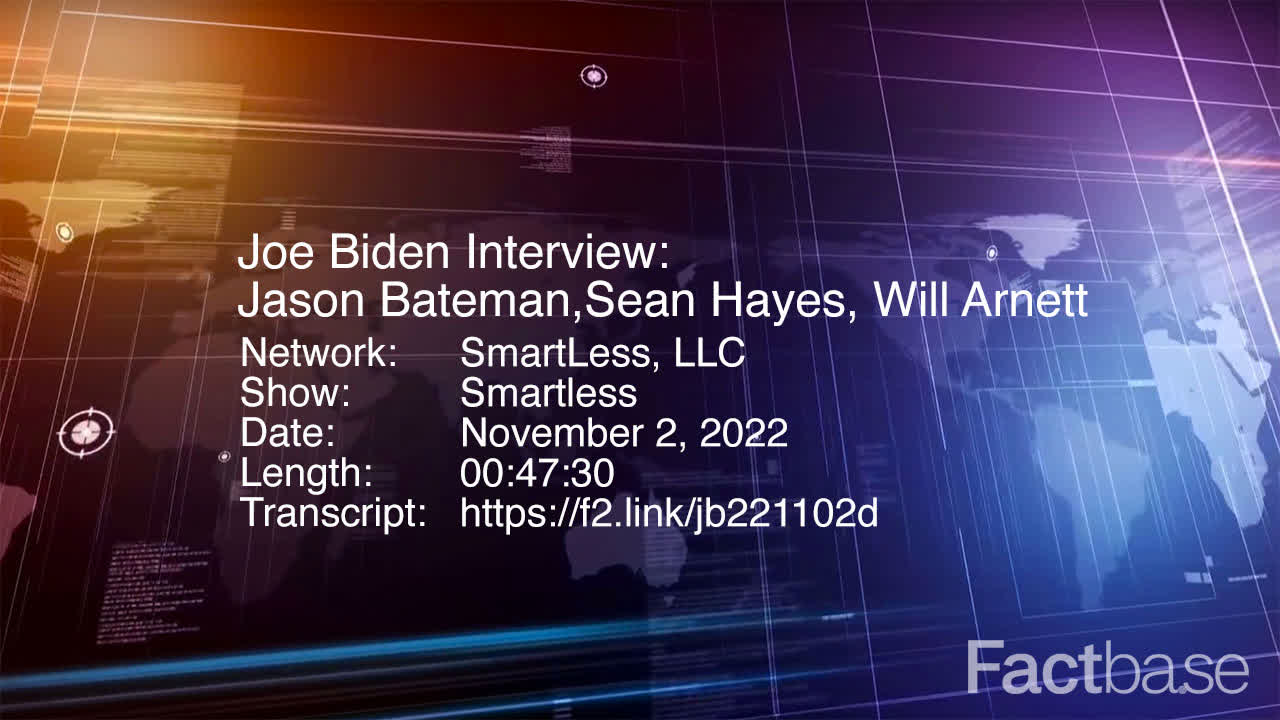
00:30:26-00:30:28 (2 sec)

"I know what it is."
306
Sean Hayes
Neutral
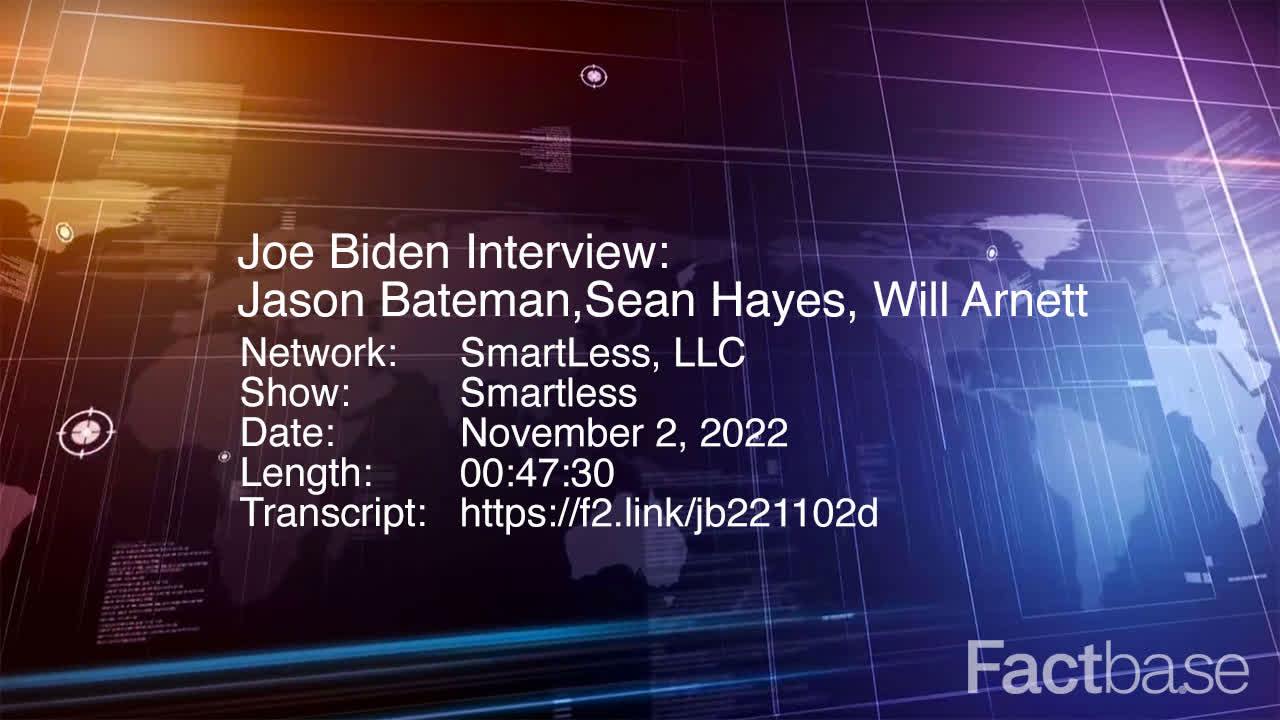
00:30:28-00:30:30 (2 sec)

"Is it sugar? Is it French fries?"
307
Jason Bateman
Neutral
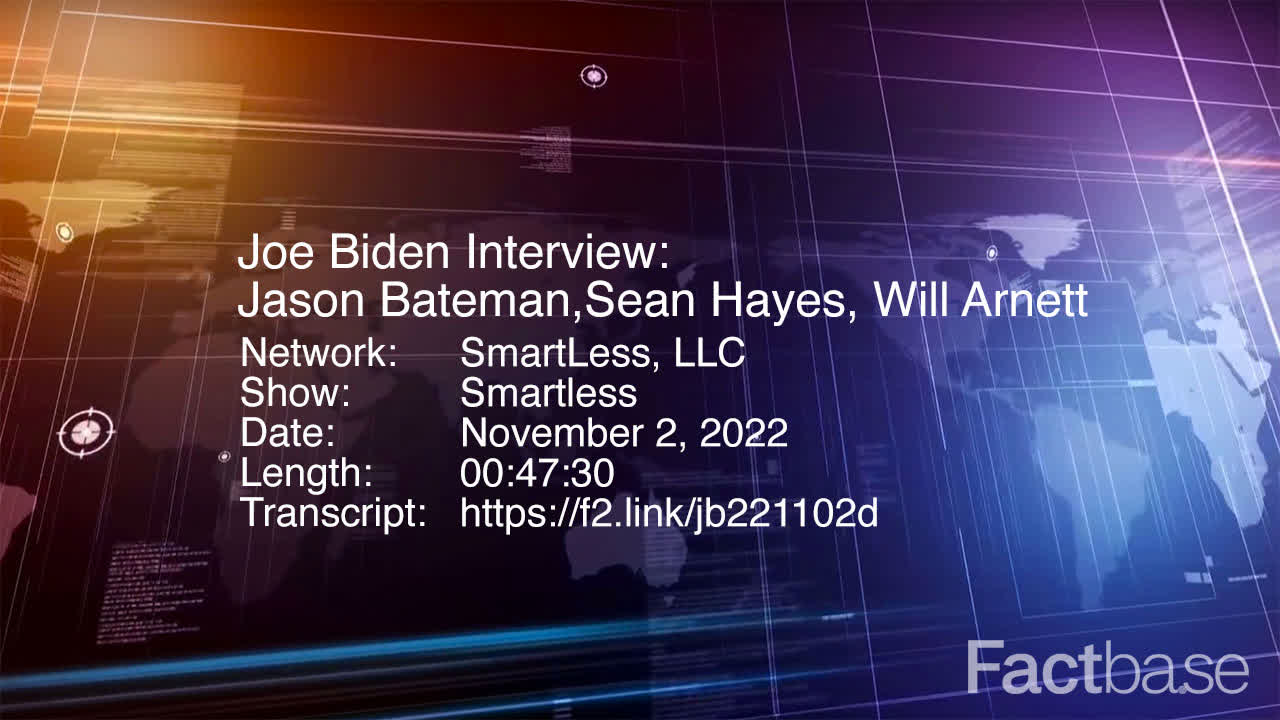
00:30:30-00:30:30 (1 sec)

"Oh, I know."
308
Will Arnett
Neutral
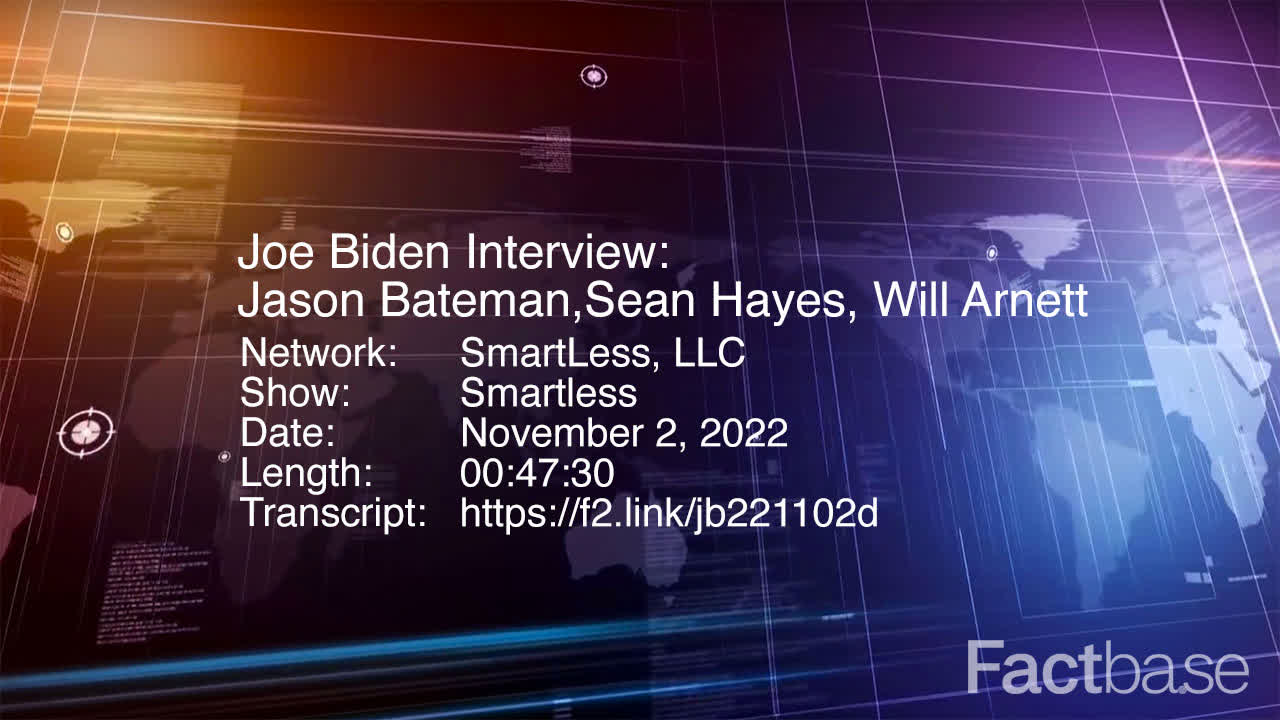
00:30:30-00:30:33 (2 sec)

"Hang on, hang on. I know what it is."
309
Jason Bateman
Somewhat Positive
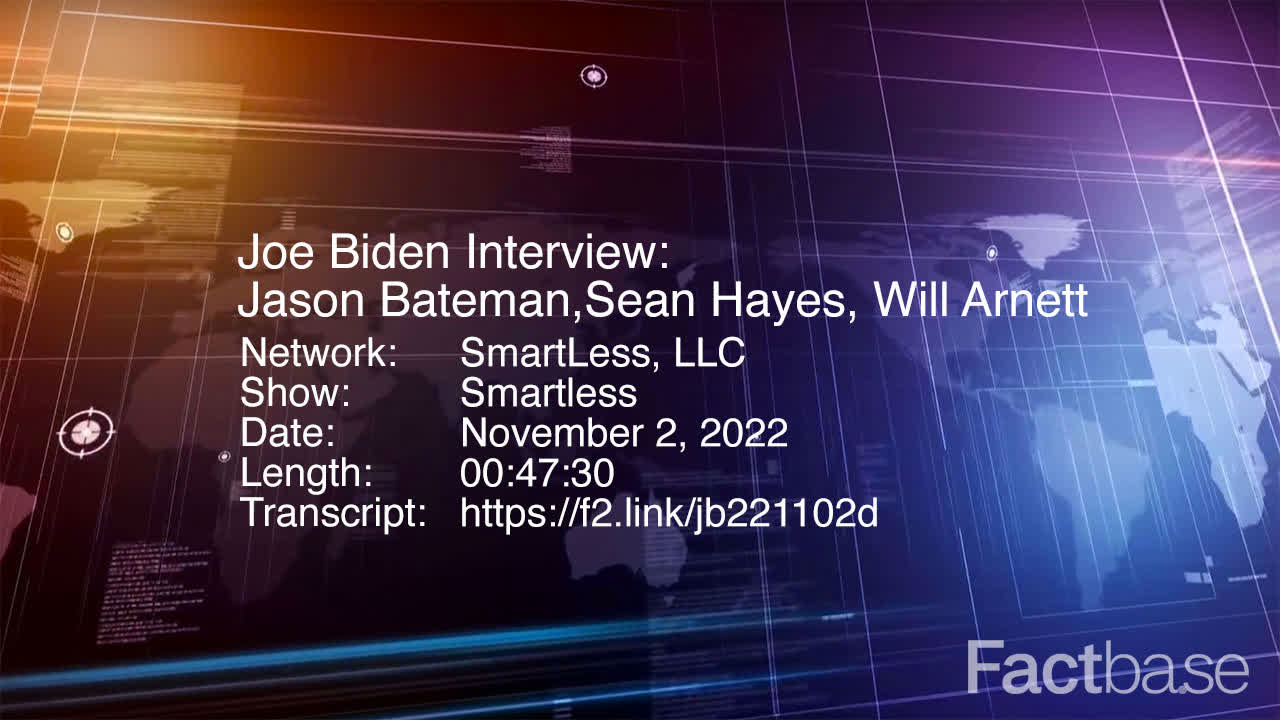
00:30:33-00:30:34 (2 sec)

"It's the same thing I like."
310
Will Arnett
Neutral
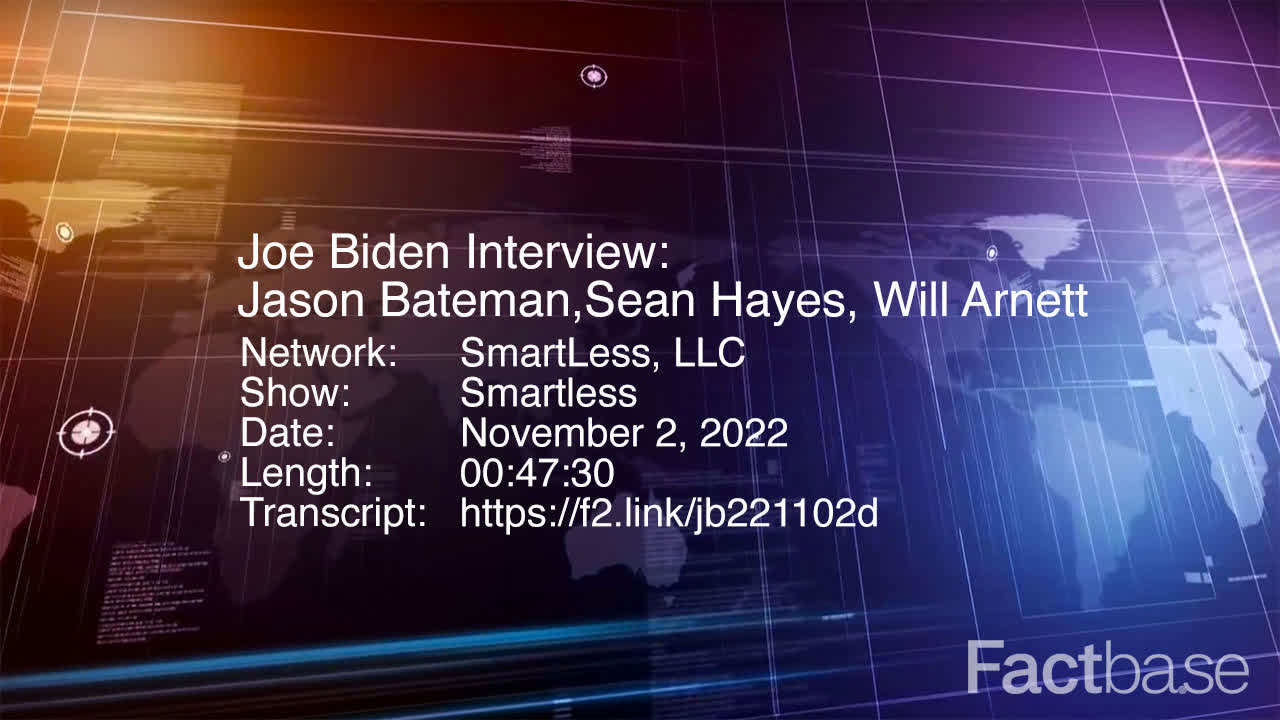
00:30:34-00:30:37 (3 sec)

"It's ice cream. And I'm -- and Sean and I --"
311
Joe Biden
Neutral
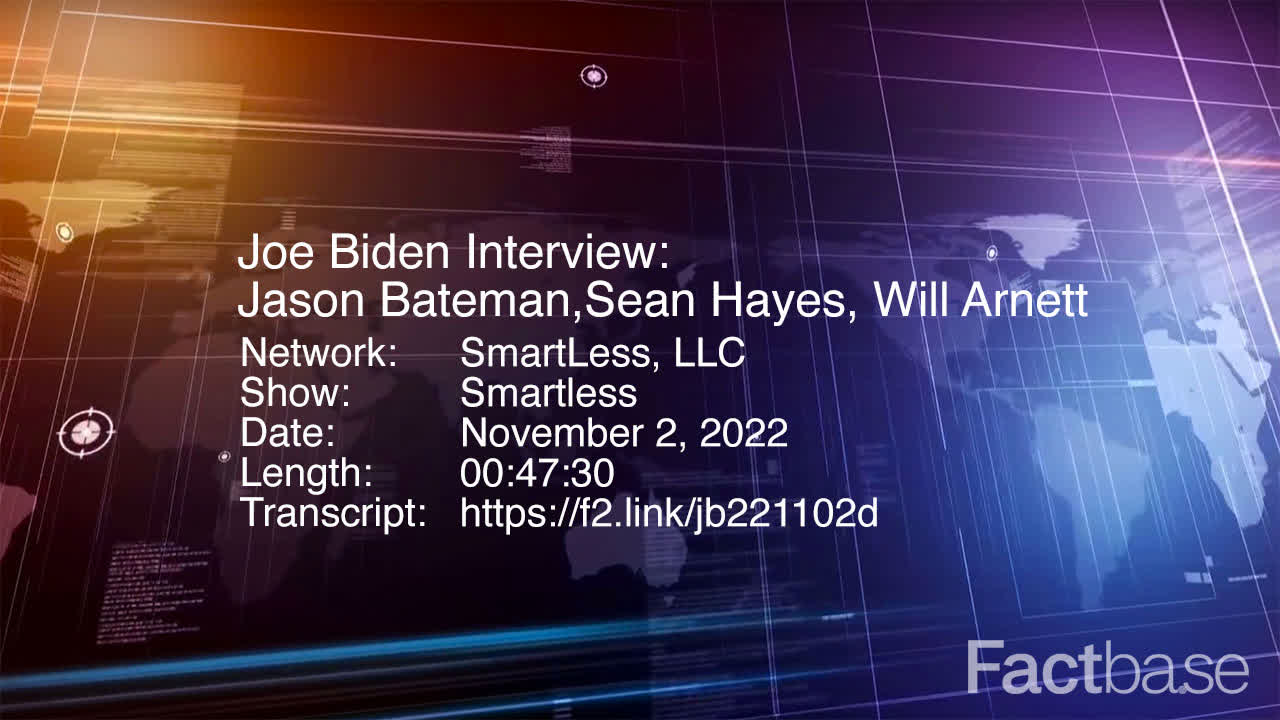
00:30:37-00:30:38 (1 sec)

"Chocolate chip."
312
Jason Bateman
Neutral
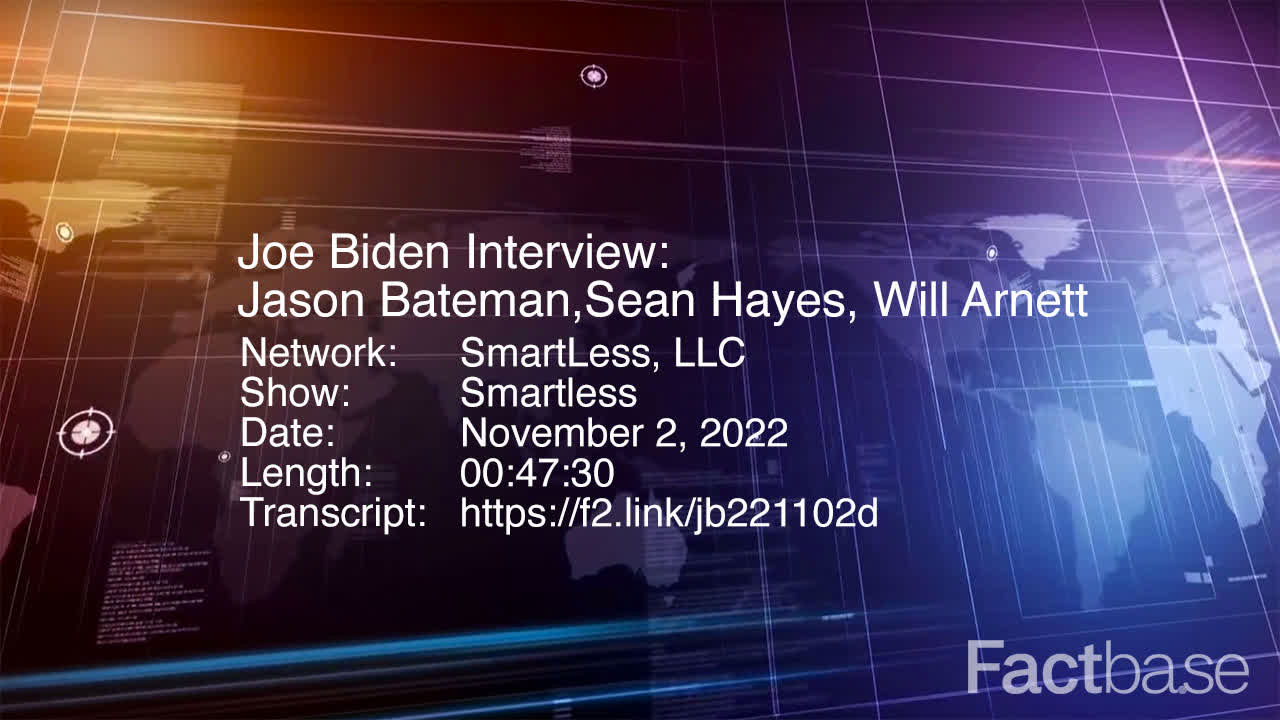
00:30:38-00:30:39 (1 sec)

"Oh, boy."
313
Will Arnett
Neutral
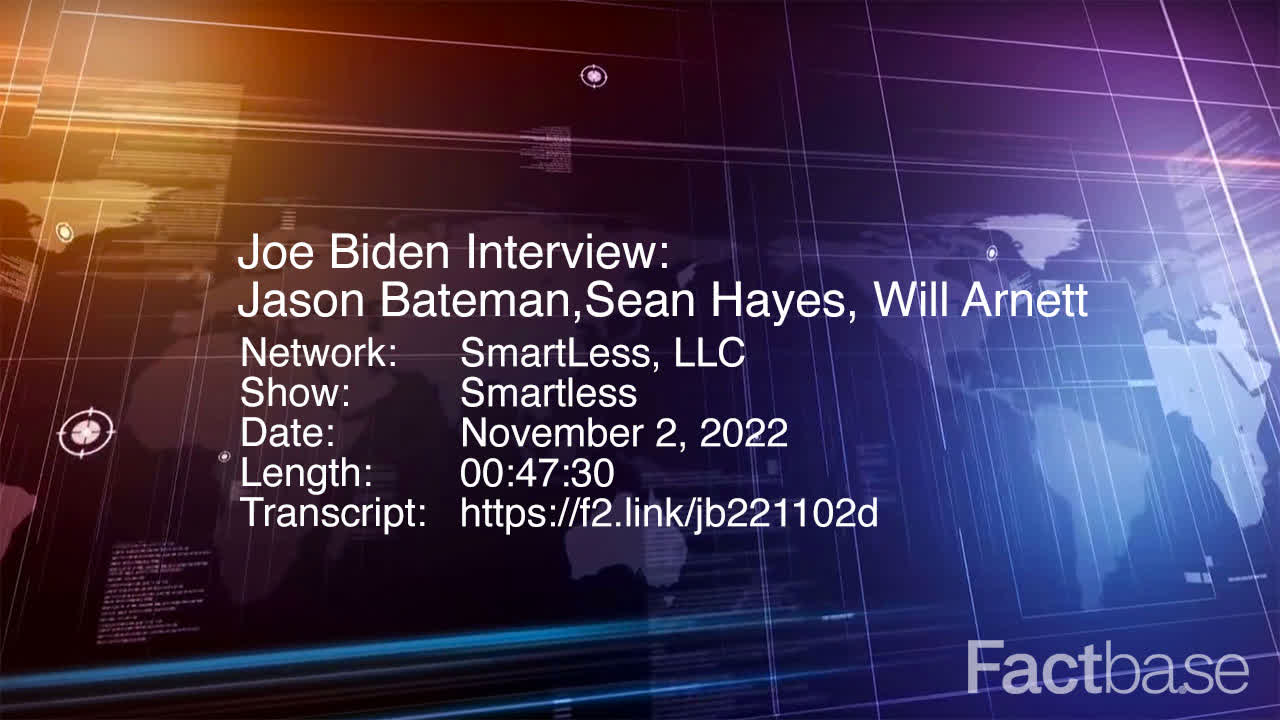
00:30:39-00:30:40 (1 sec)

"That's what I wanted to ask. [Crosstalk]"
314
Will Arnett
Neutral
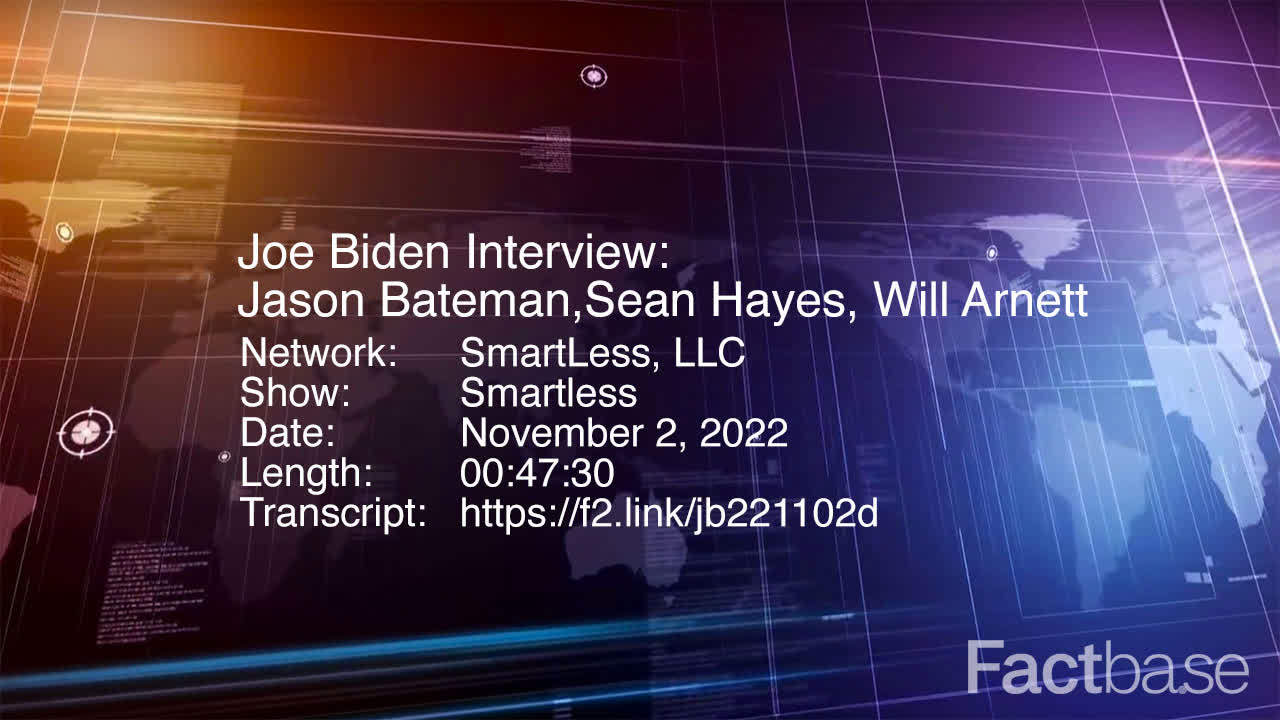
00:30:40-00:30:42 (1 sec)

"Wait. Ice cream [Inaudible]"
315
Joe Biden
Very Negative
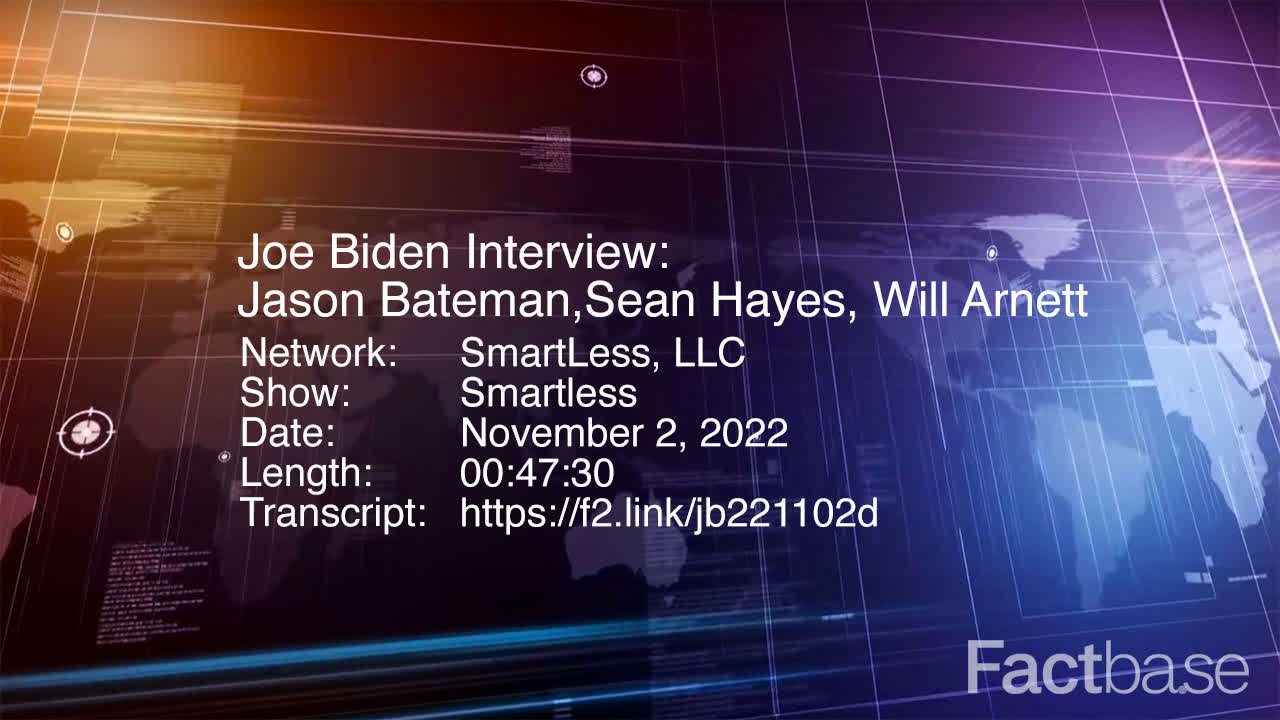
00:30:42-00:30:46 (5 sec)

"I was dull as hell. I'm known for my Ray-Ban sunglasses and chocolate chip ice cream. That's a hell of a --"
316
Will Arnett
Neutral
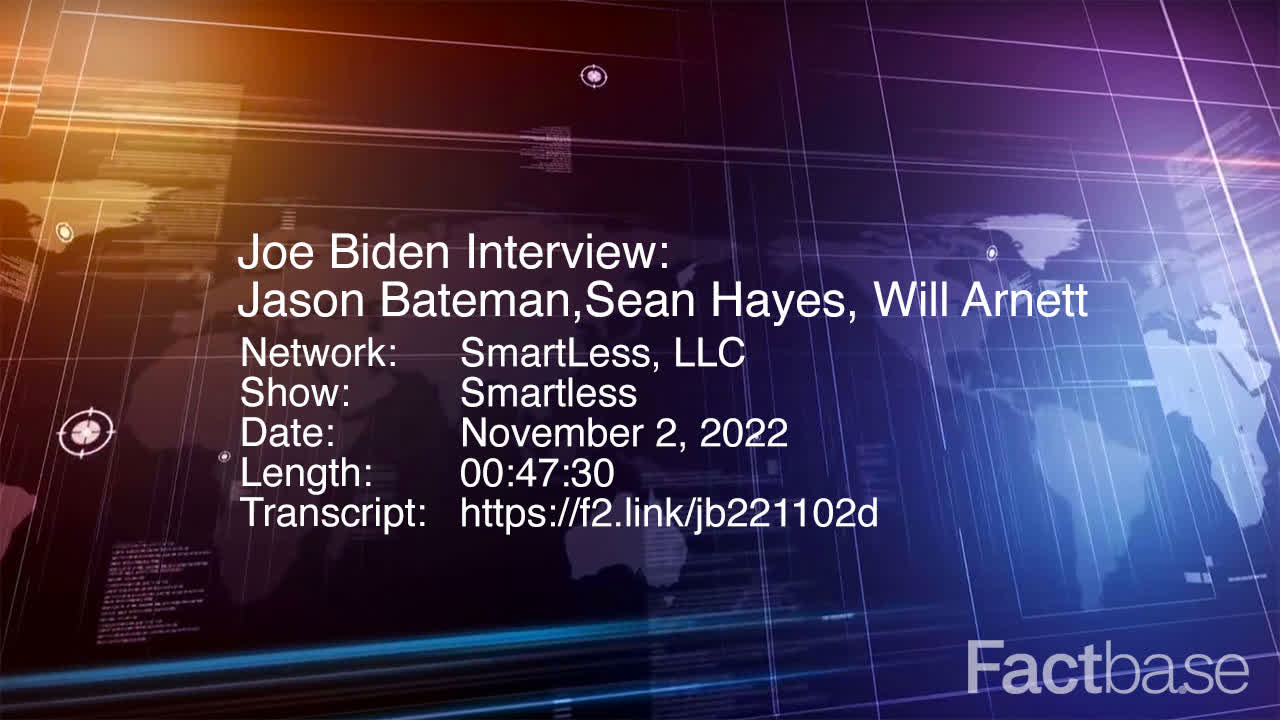
00:30:46-00:30:50 (3 sec)

"I wanted to -- so -- so I wanted to also say that the Ray-Bans --"
317
Jason Bateman
Slightly Positive
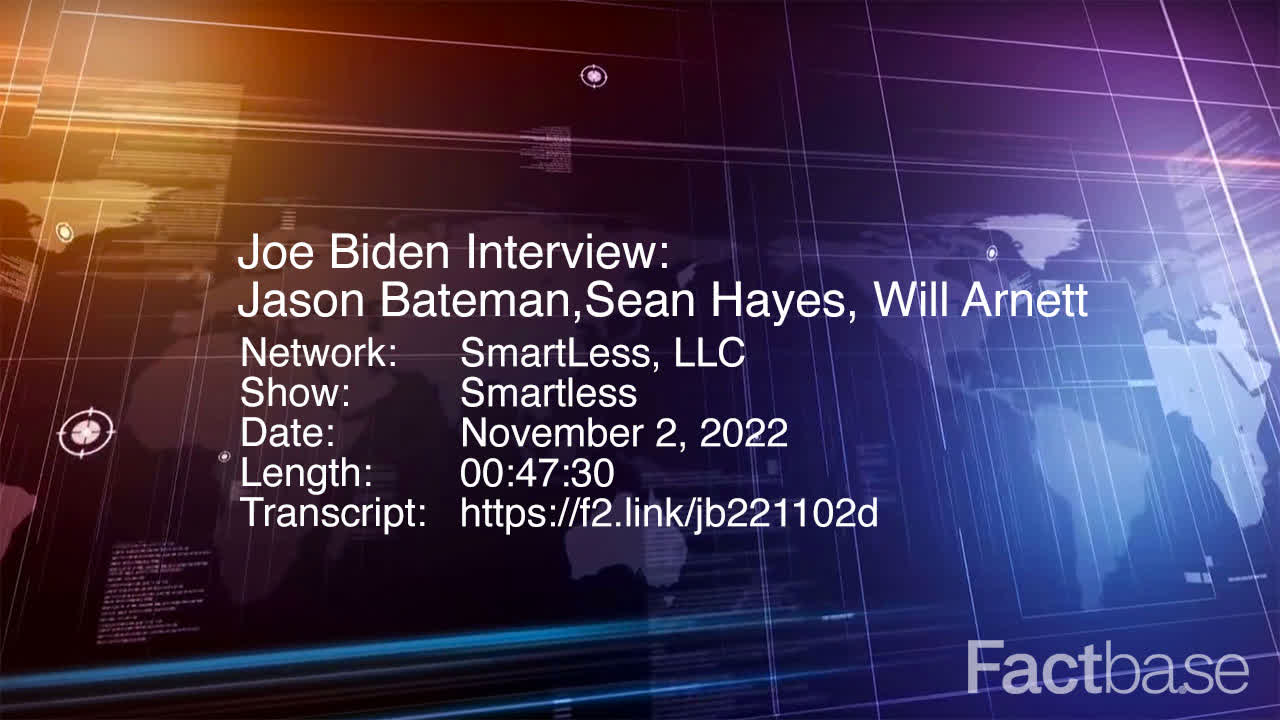
00:30:50-00:30:50 (1 sec)

"Yeah."
318
Will Arnett
Very Positive
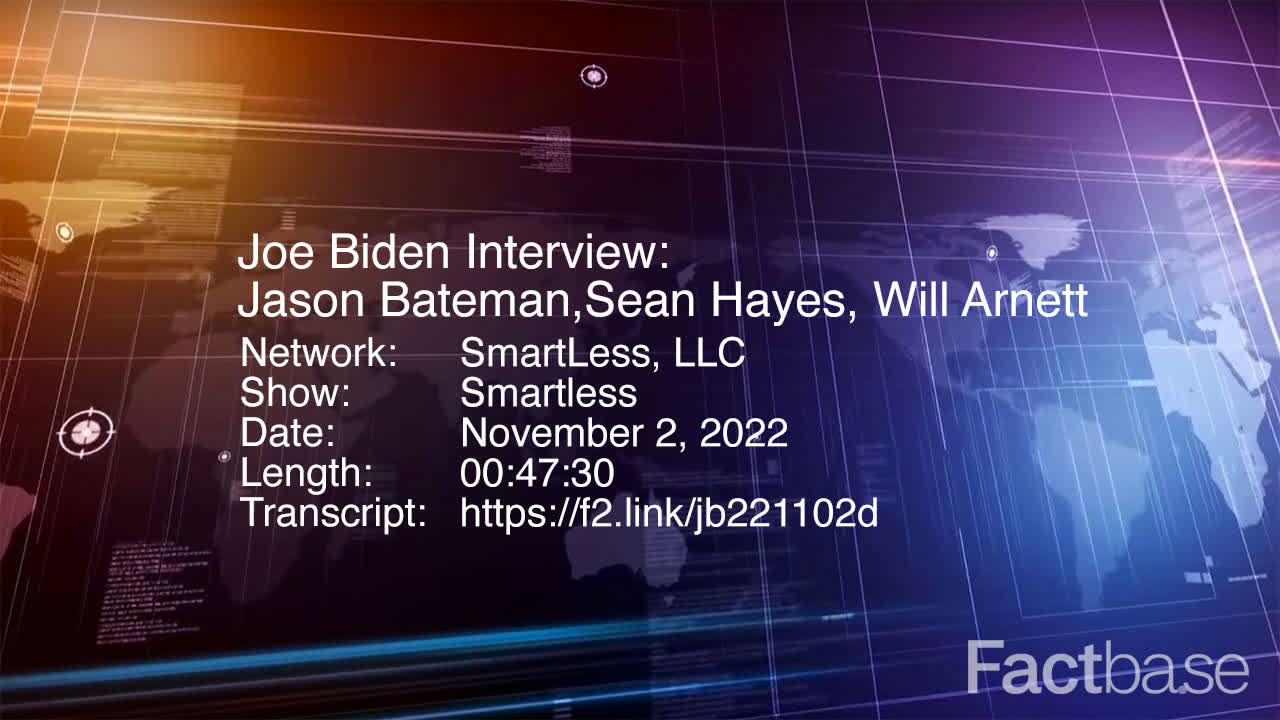
00:30:50-00:30:53 (3 sec)

"I mean, the -- this is the greatest look of a president. All president --"
319
Jason Bateman
Neutral
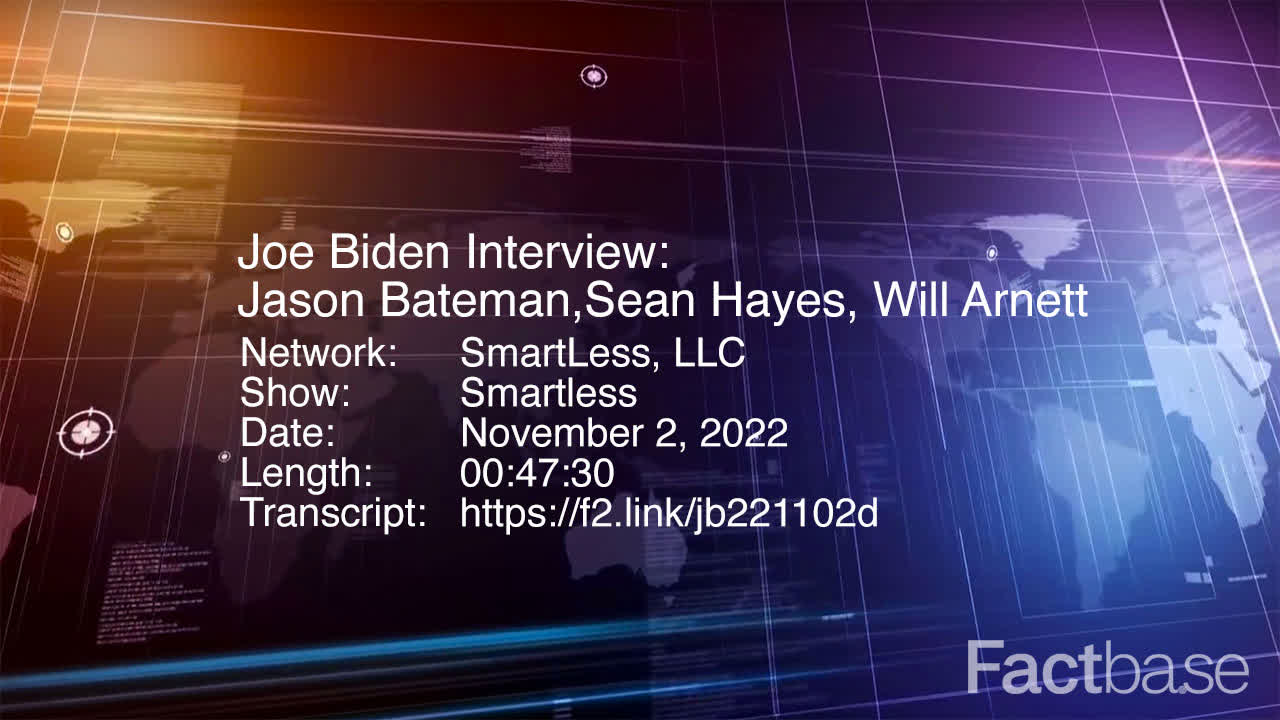
00:30:53-00:30:55 (2 sec)

"You're the coolest guy in the world."
320
Will Arnett
Slightly Positive
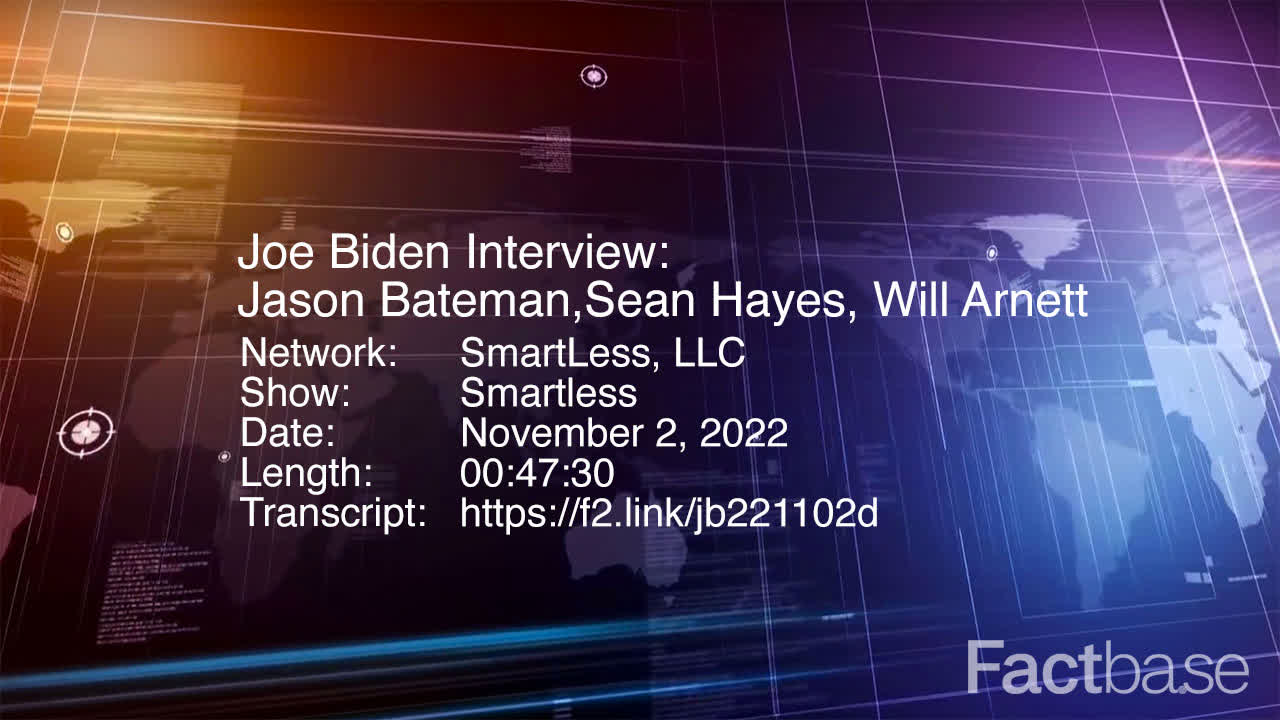
00:30:55-00:31:03 (8 sec)

"Yeah, of course, you wear Ray-Bans."
321
Jason Bateman
Positive
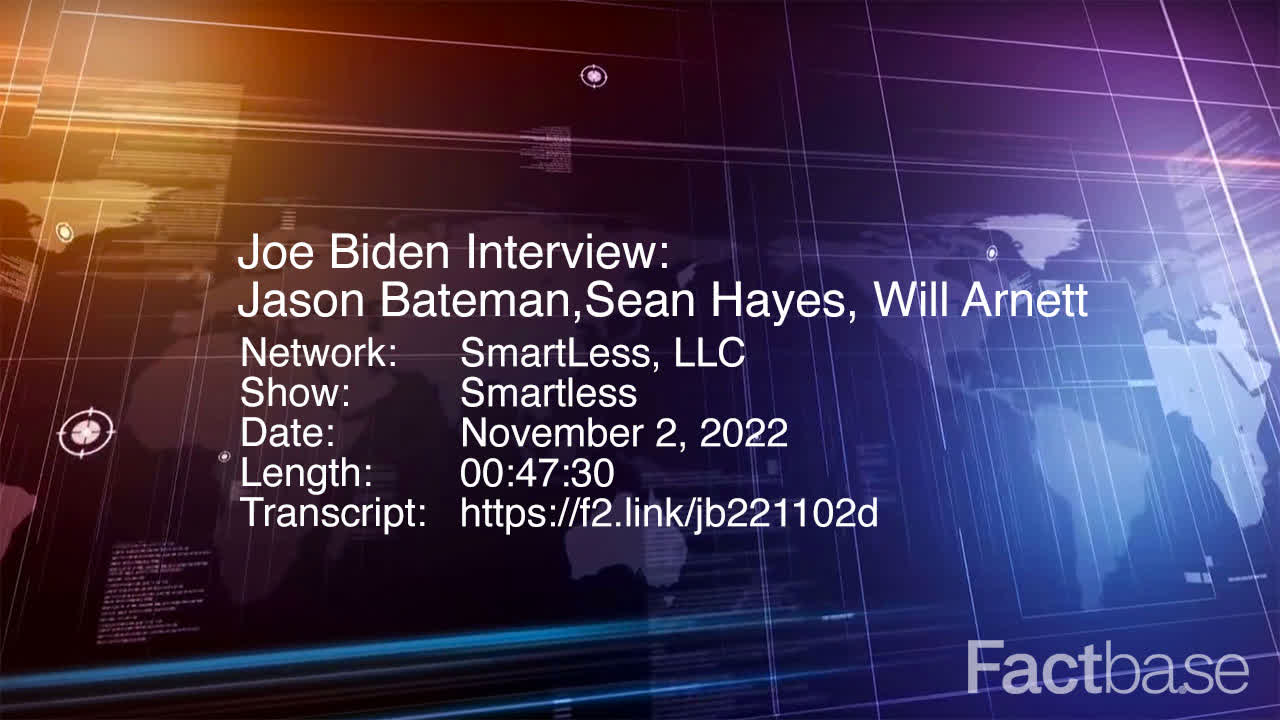
00:31:03-00:31:04 (1 sec)

"Yes, you are."
322
Joe Biden
Very Positive
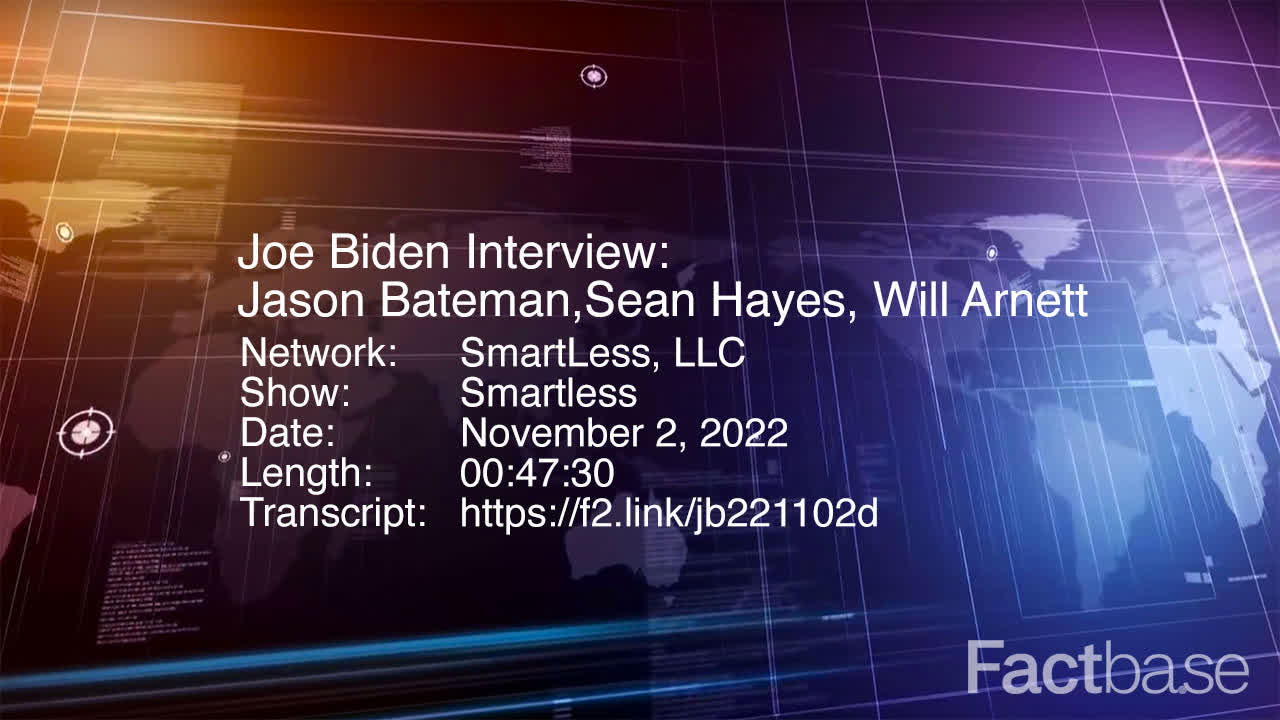
00:31:04-00:31:24 (20 sec)

"Oh, by the way, all those years -- when I ran for the first time for the Senate, I had -- I had been up to that point, even though I was a practicing lawyer, in order to get free rent, there was a country swimming club that had 17 acres, a little tiny house on it --"
323
Jason Bateman
Slightly Positive
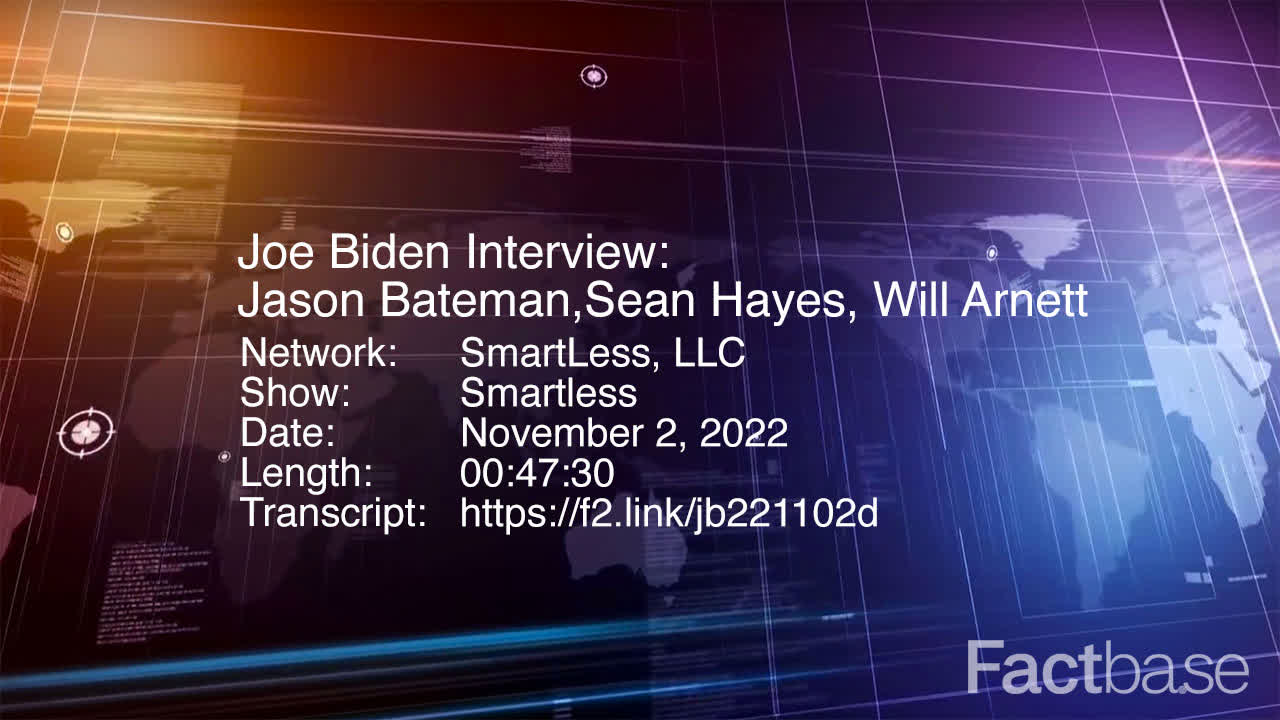
00:31:24-00:31:25 (1 sec)

"Yeah."
324
Joe Biden
Neutral
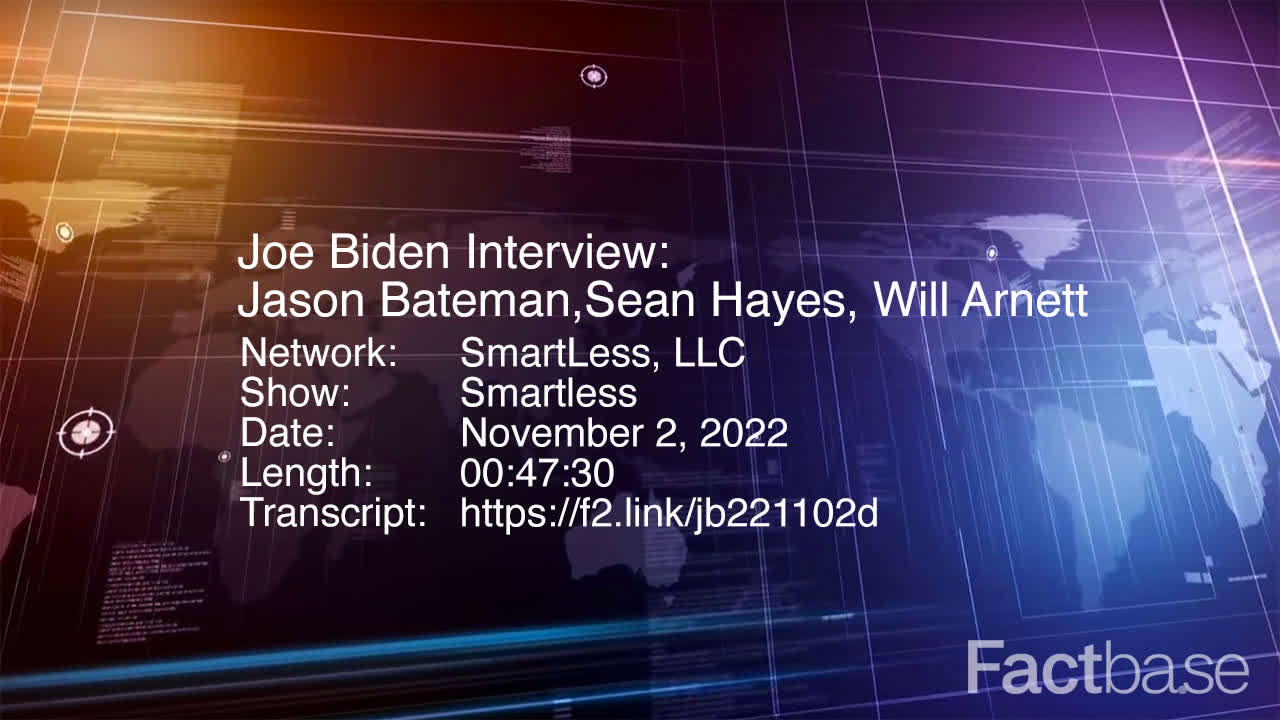
00:31:25-00:31:32 (7 sec)

"And they let us live in the house as long as I would hire all the pool people, right?"
325
Will Arnett
Somewhat Positive
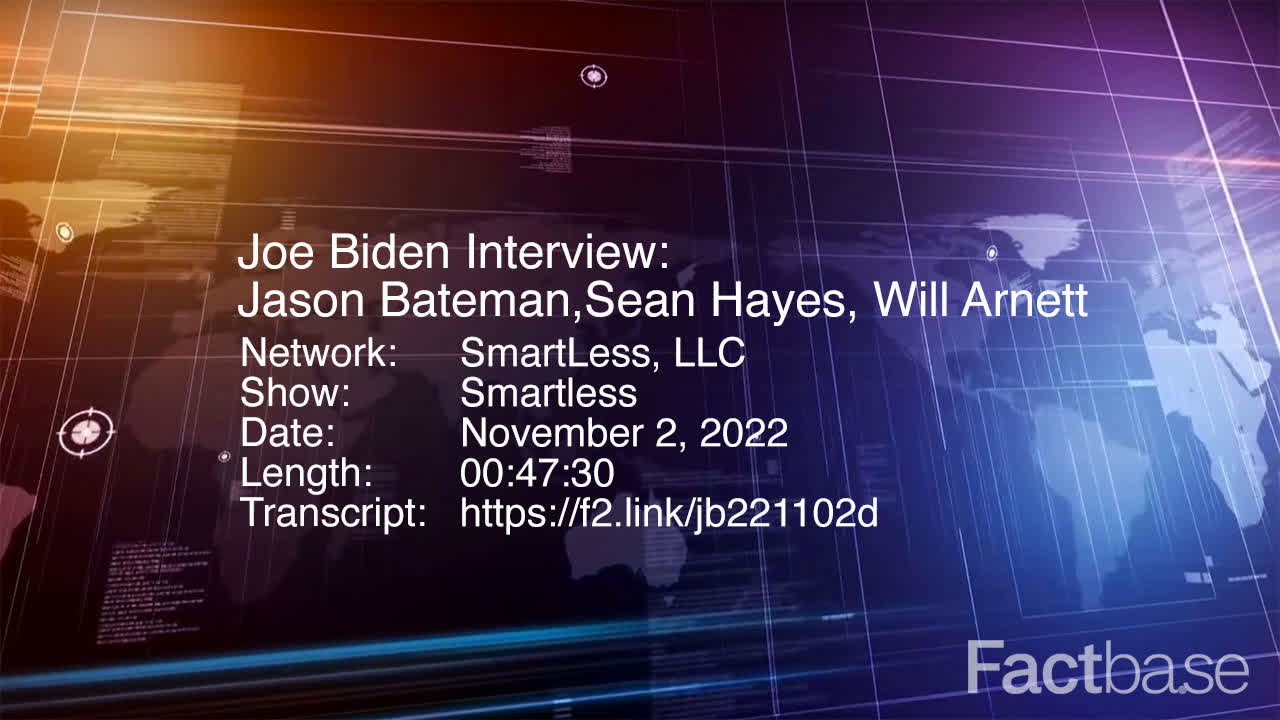
00:31:32-00:31:32 ( sec)

"Sure."
326
Joe Biden
Neutral
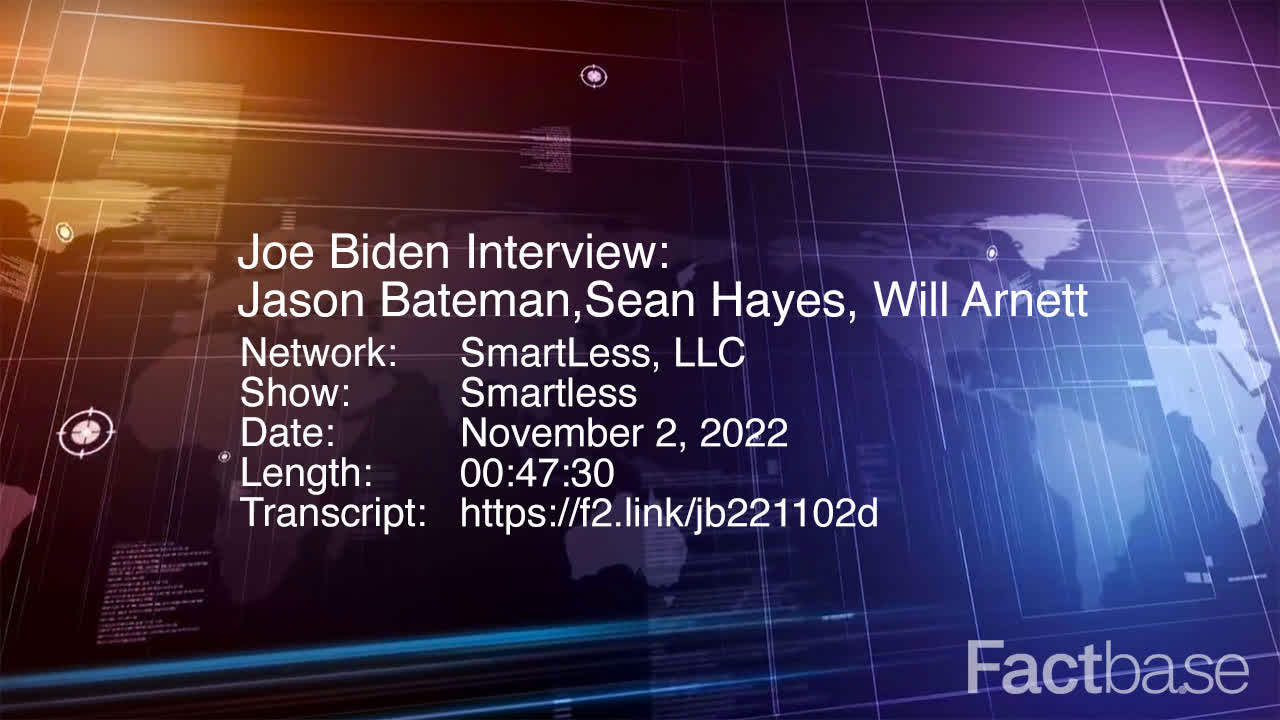
00:31:32-00:31:46 (14 sec)

"But all -- from the time I was 16 years old as a lifeguard, I -- it's all I ever did. So, the headline was, you don't want this guy. The only job he's ever had is a lifeguard."
327
Will Arnett
Very Positive
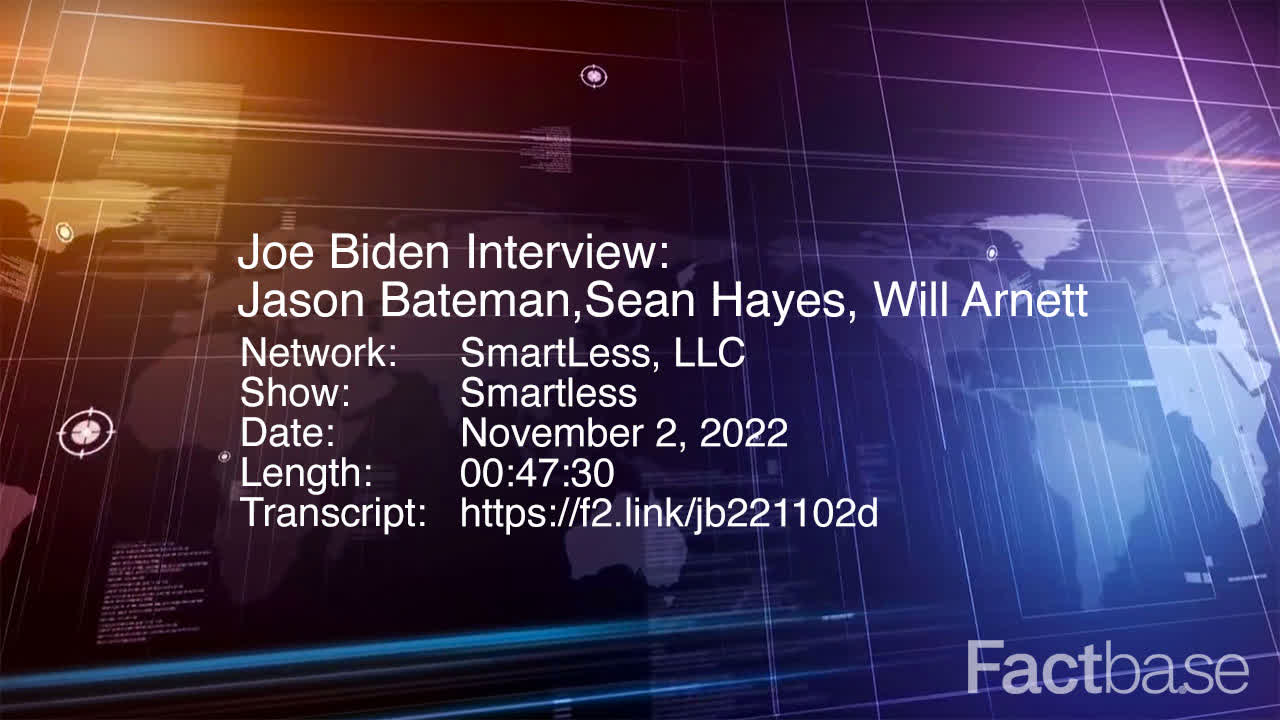
00:31:46-00:31:50 (4 sec)

"By the way, I'm like, yeah, he's like, ripped and tan and wearing sunglasses."
328
Joe Biden
Neutral
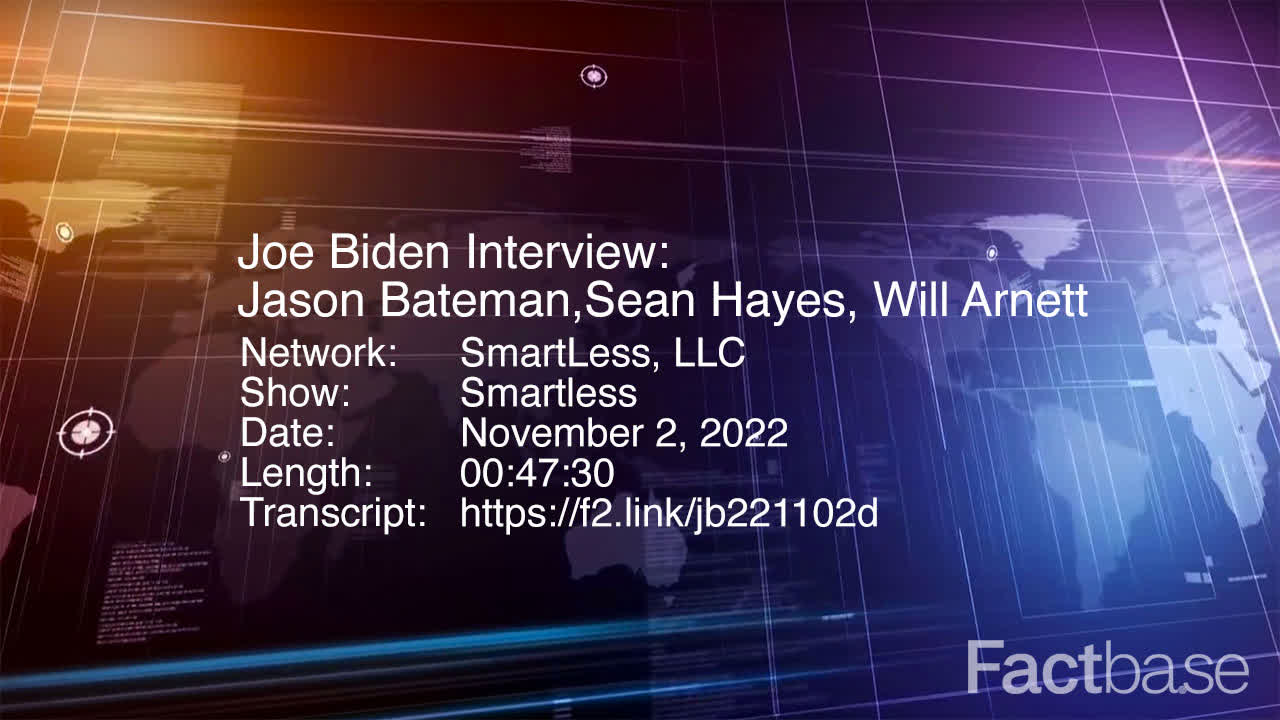
00:31:50-00:31:51 (1 sec)

"I'm serious."
329
Sean Hayes
Neutral
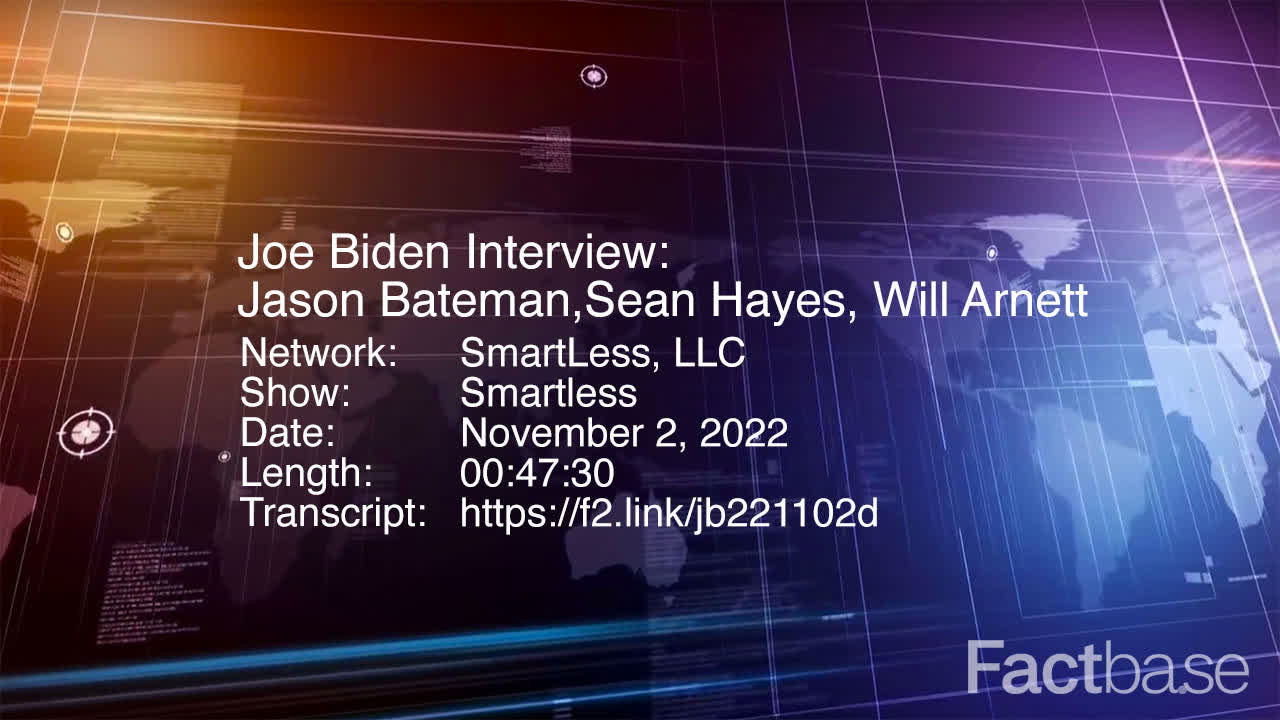
00:31:51-00:31:51 ( sec)

"[Inaudible]"
330
Will Arnett
Neutral
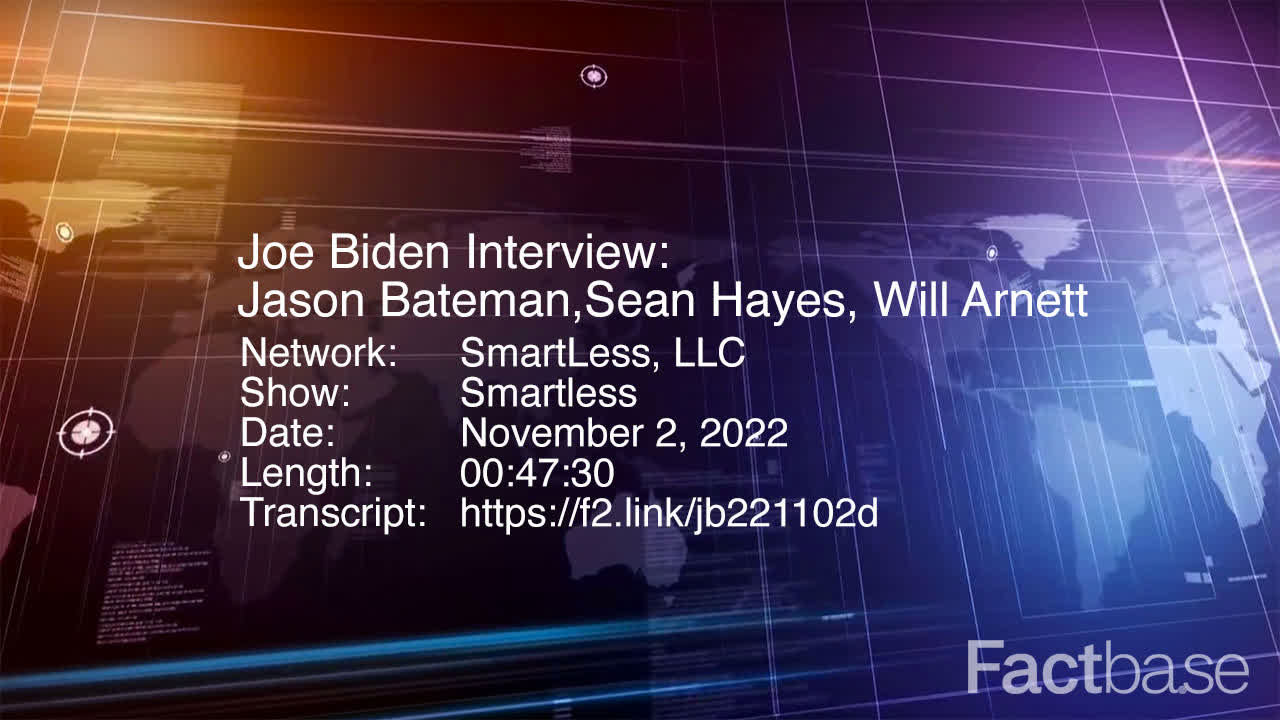
00:31:51-00:31:56 (5 sec)

"By the way, the guy before you, he -- he didn't even need sunglasses. He would just look at an eclipse."
331
Sean Hayes
Neutral
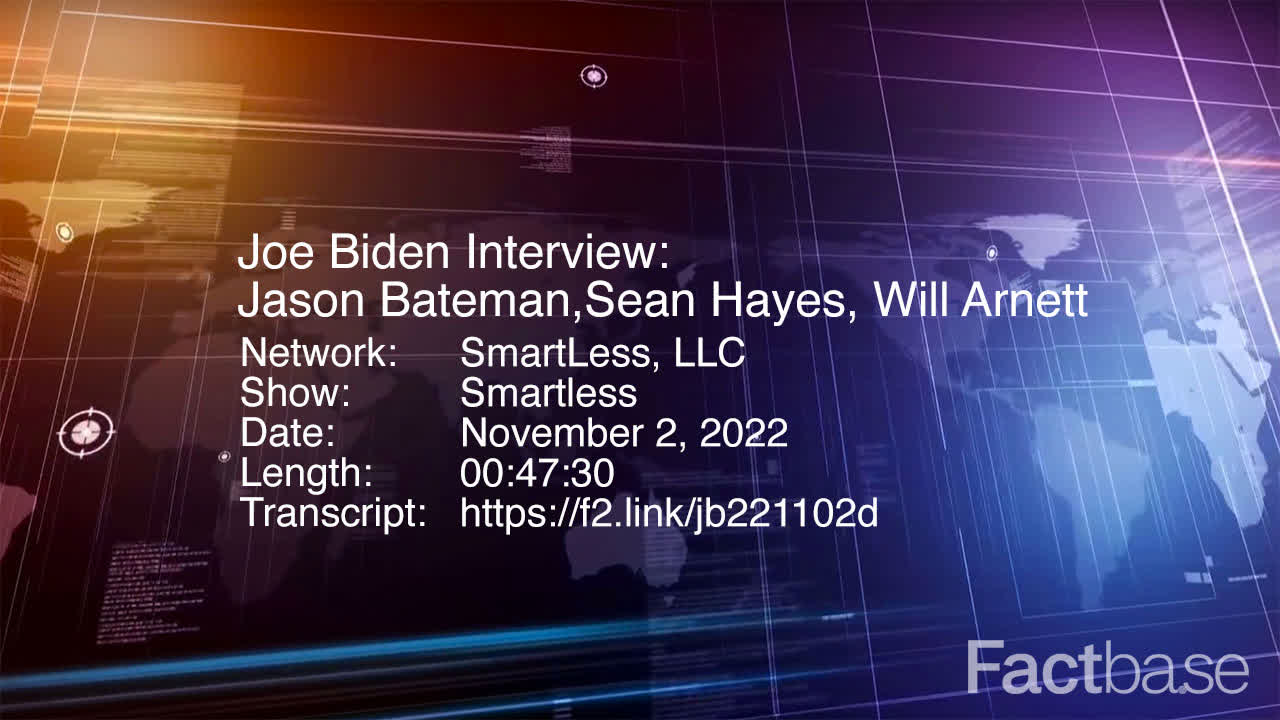
00:31:56-00:32:10 (13 sec)

"I want to know -- I want -- first of all -- I want -- first of all, there's no reason coconut should ever be an ice cream. I just wanted to say that."
332
Joe Biden
Somewhat Positive
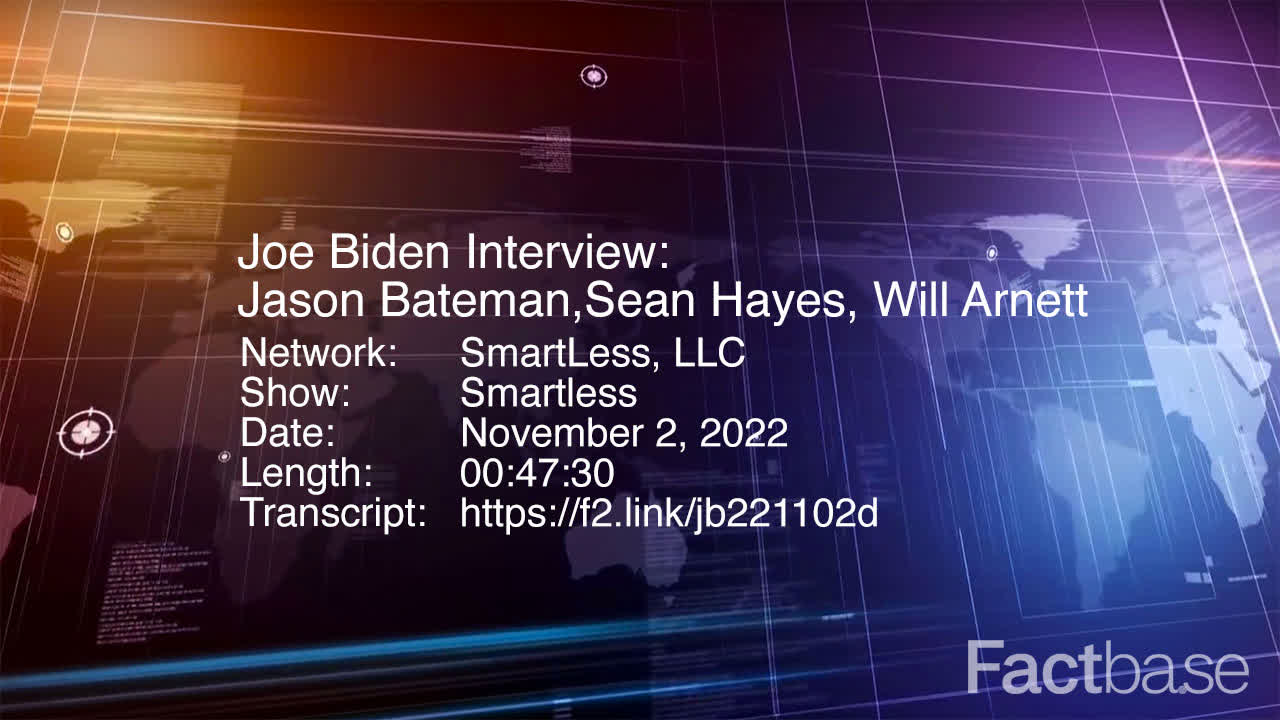
00:32:10-00:32:11 (1 sec)

"I like coconut."
333
Jason Bateman
Very Positive
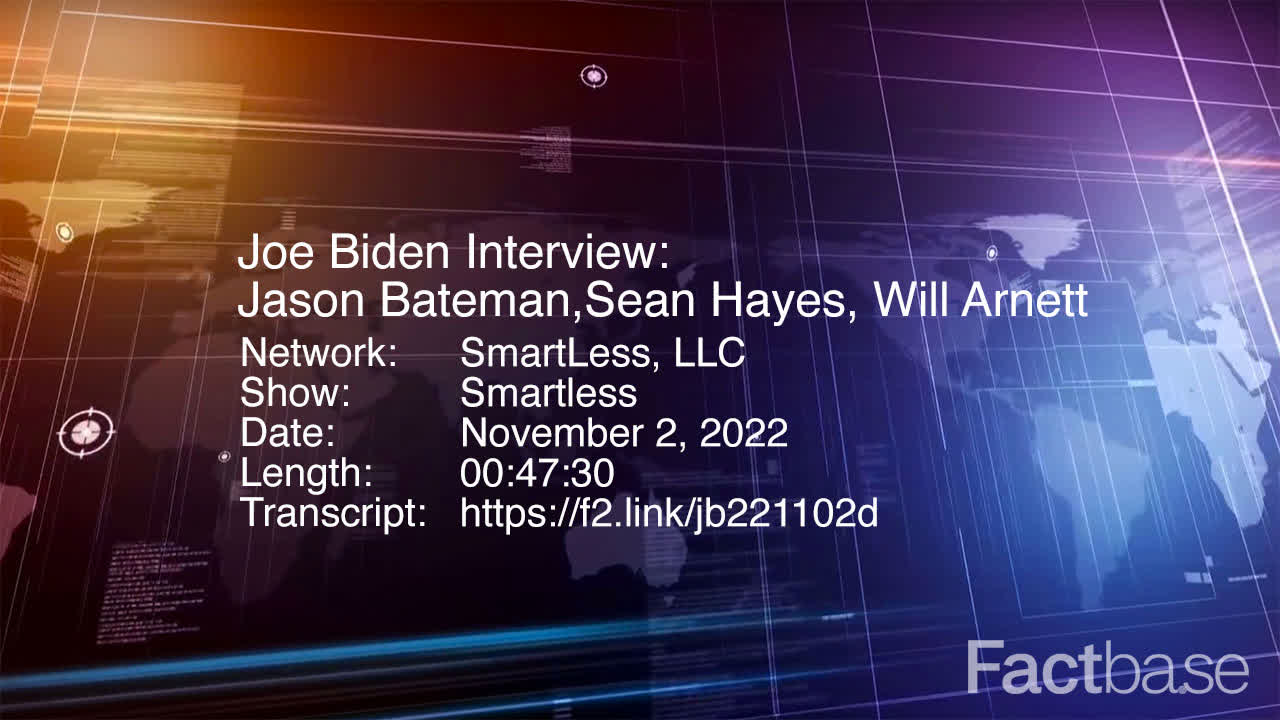
00:32:11-00:32:13 (2 sec)

"Yeah, I like coconut, too."
334
Will Arnett
Neutral
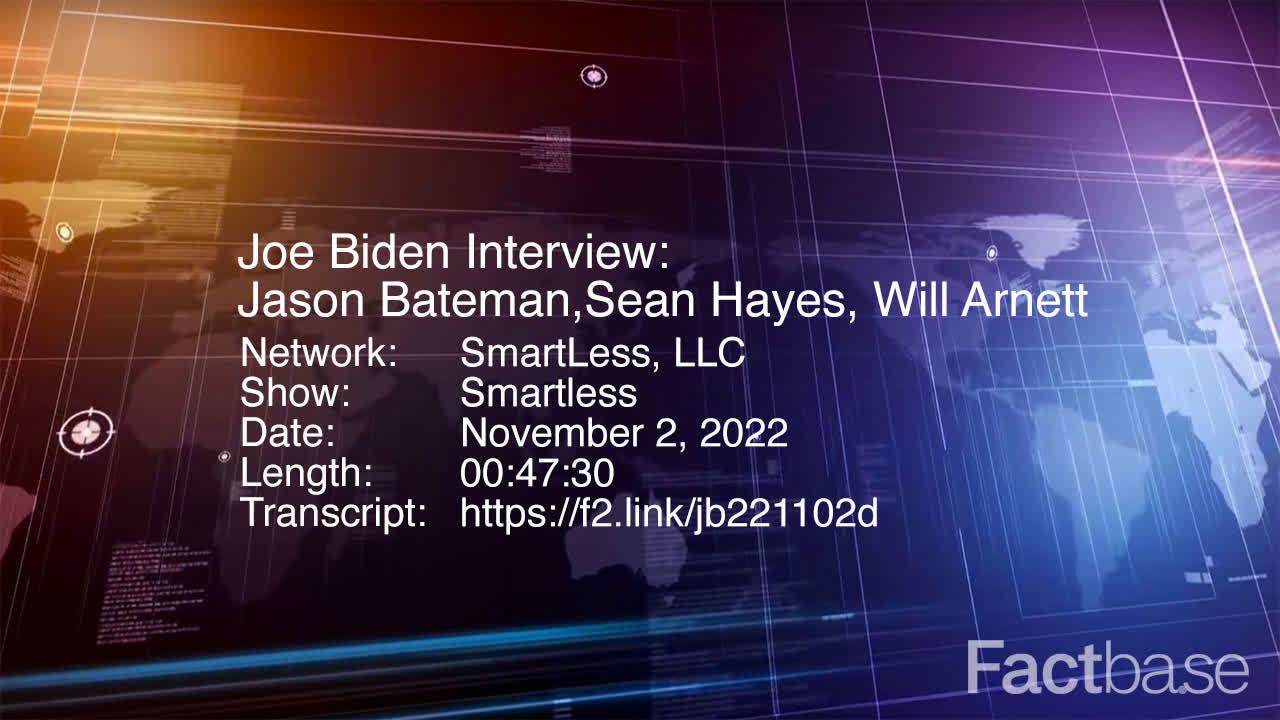
00:32:13-00:32:14 (1 sec)

"I dare you."
335
Joe Biden
Neutral
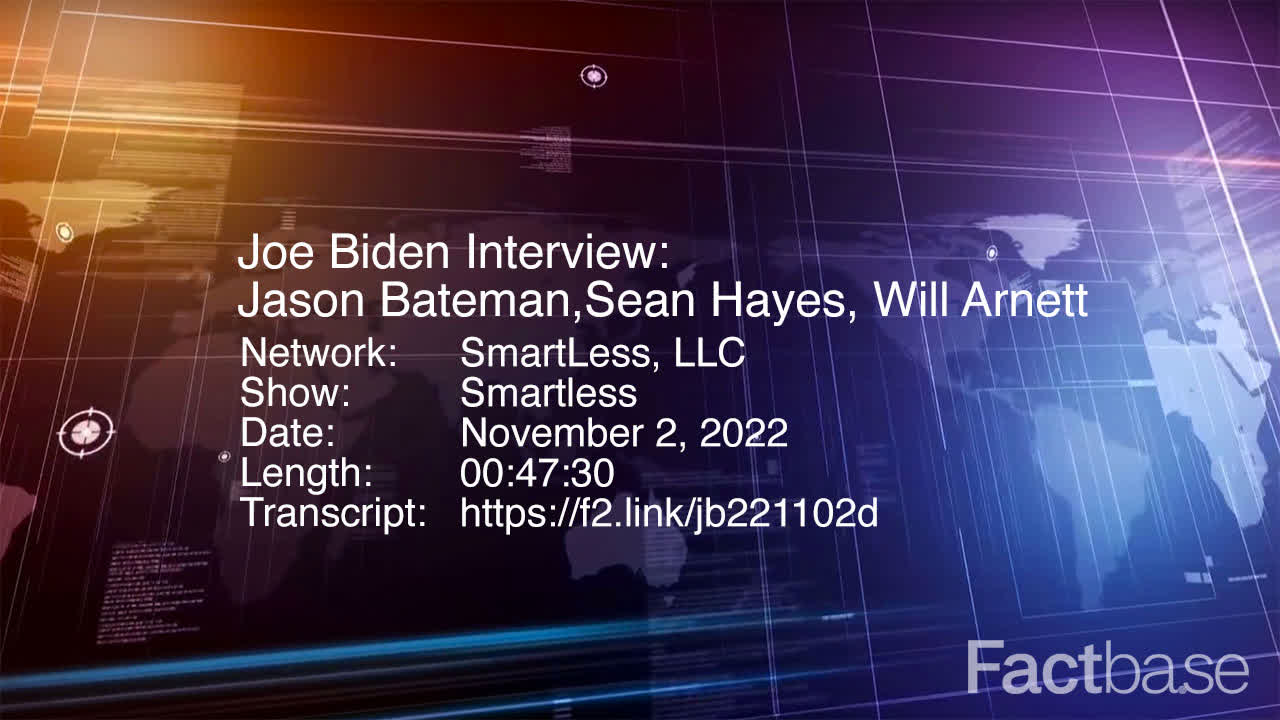
00:32:14-00:32:16 (2 sec)

"Coconut and custard pie."
336
Sean Hayes
Slightly Positive
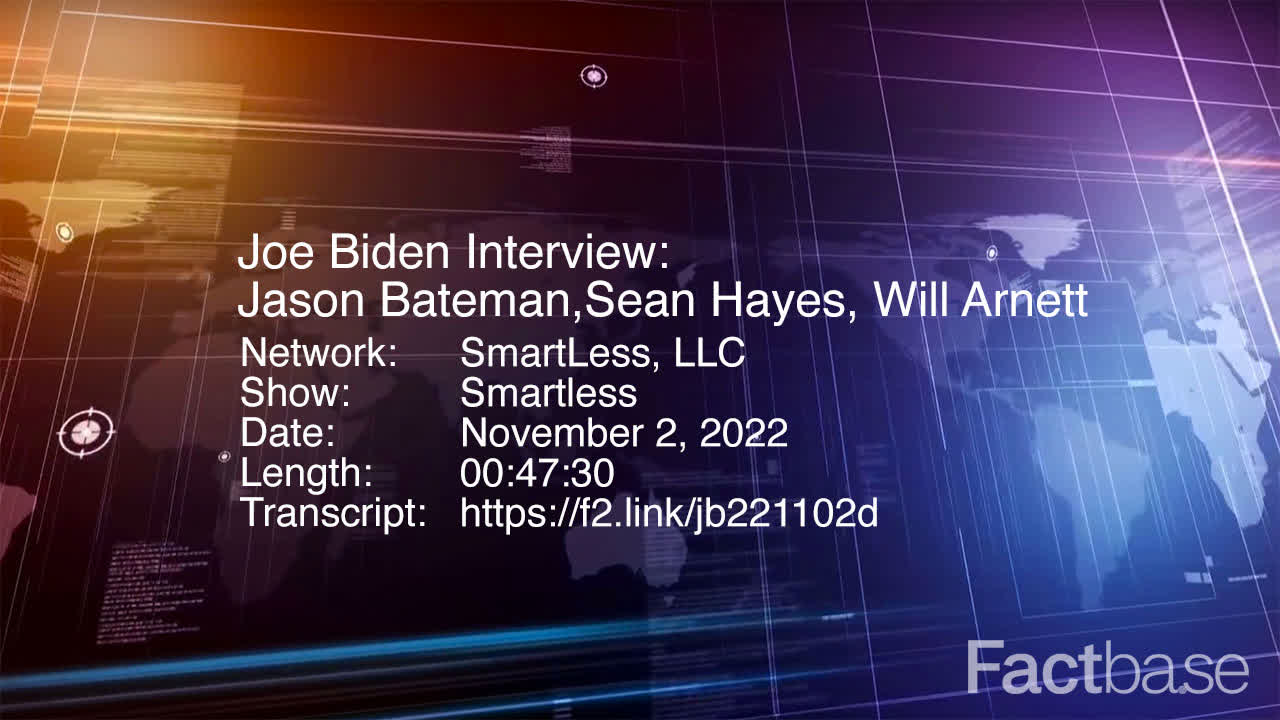
00:32:16-00:32:23 (7 sec)

"Well, coconut -- pie is fine, but not an ice cream. I can't do the ice cream. I'm a simple plain."
337
Jason Bateman
Neutral
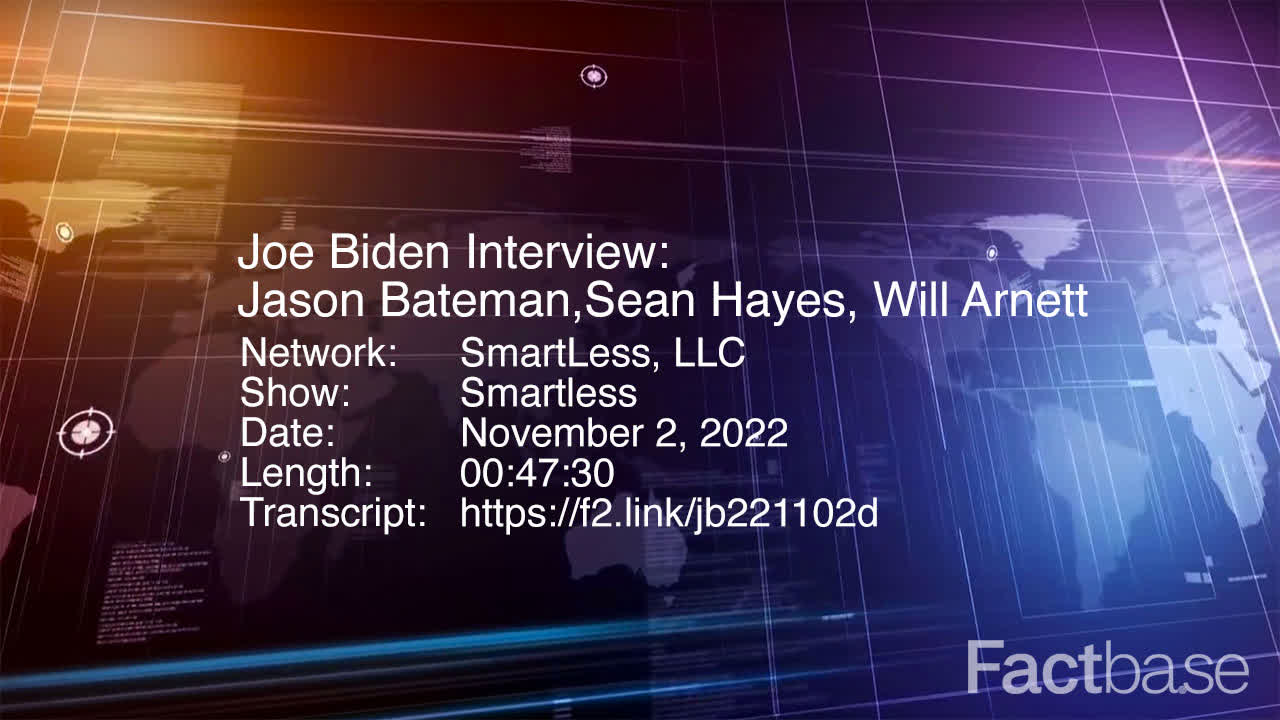
00:32:23-00:32:24 (1 sec)

"More for us."
338
Sean Hayes
Neutral
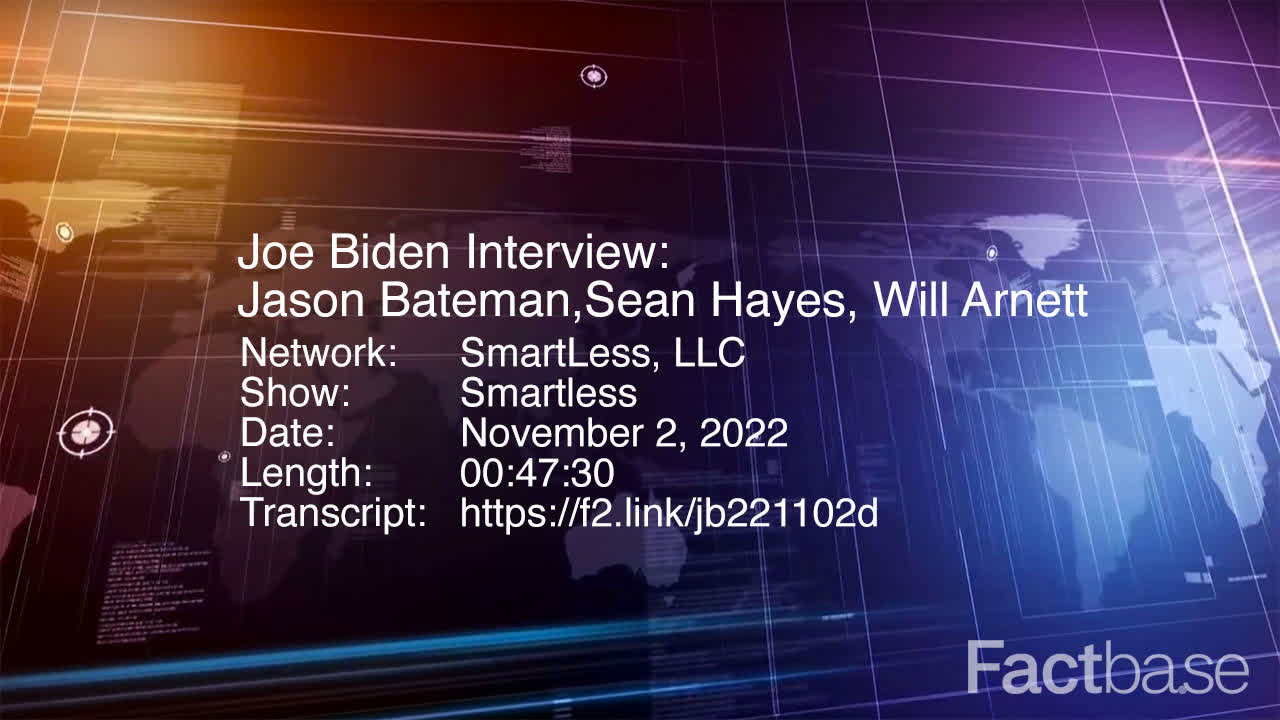
00:32:24-00:32:26 (2 sec)

"Anyway, here's the thing."
339
Will Arnett
Neutral
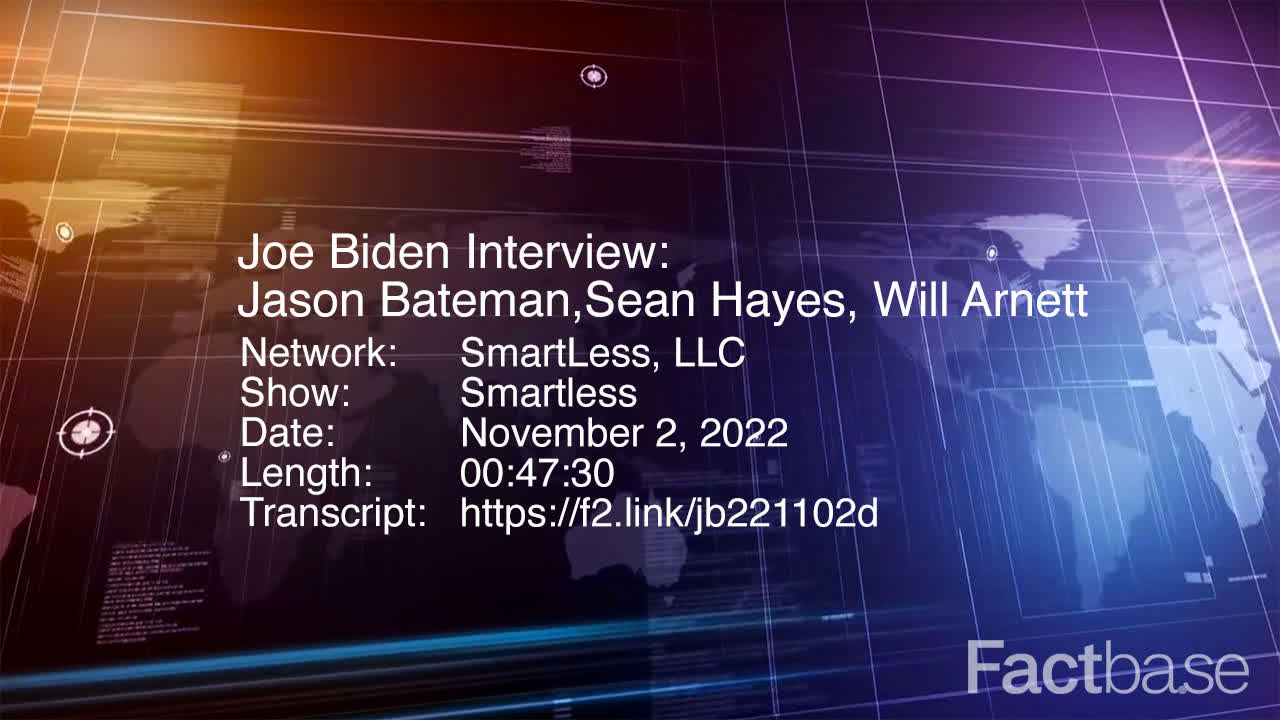
00:32:26-00:32:27 (1 sec)

"I'm chocolate."
340
Sean Hayes
Neutral
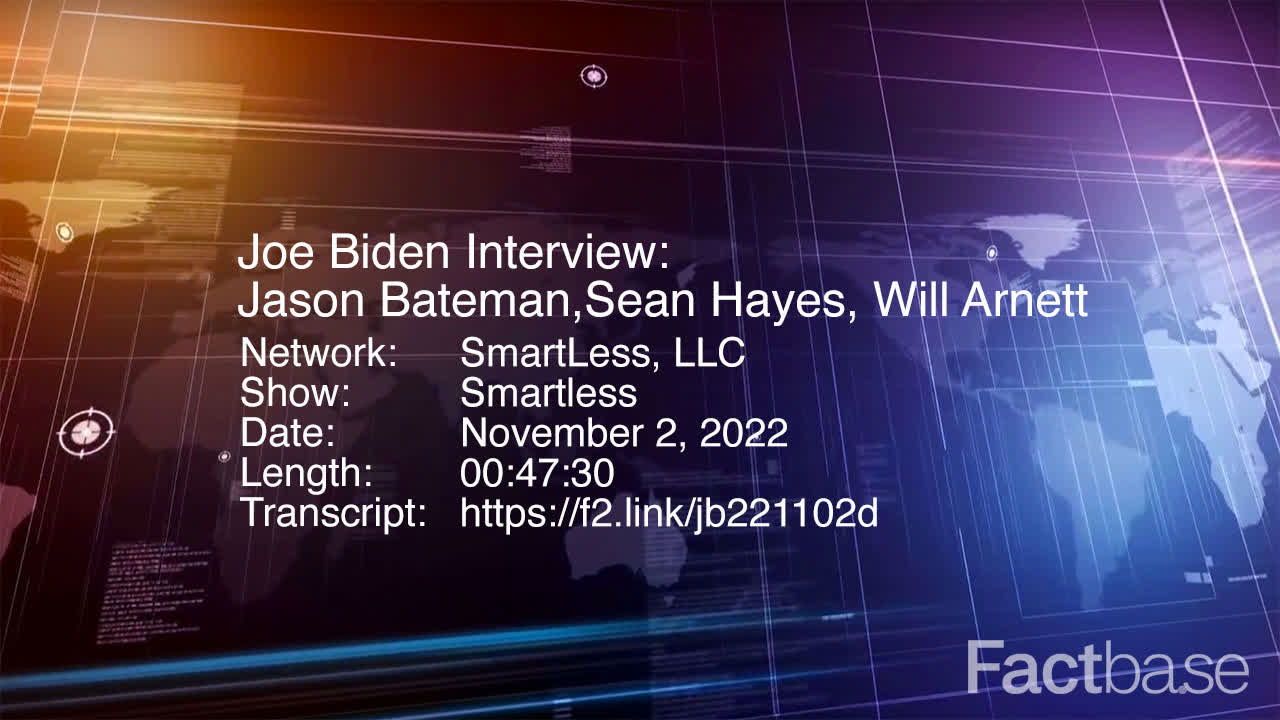
00:32:27-00:32:29 (2 sec)

"I want to know about suits. How many suits?"
341
Jason Bateman
Slightly Positive
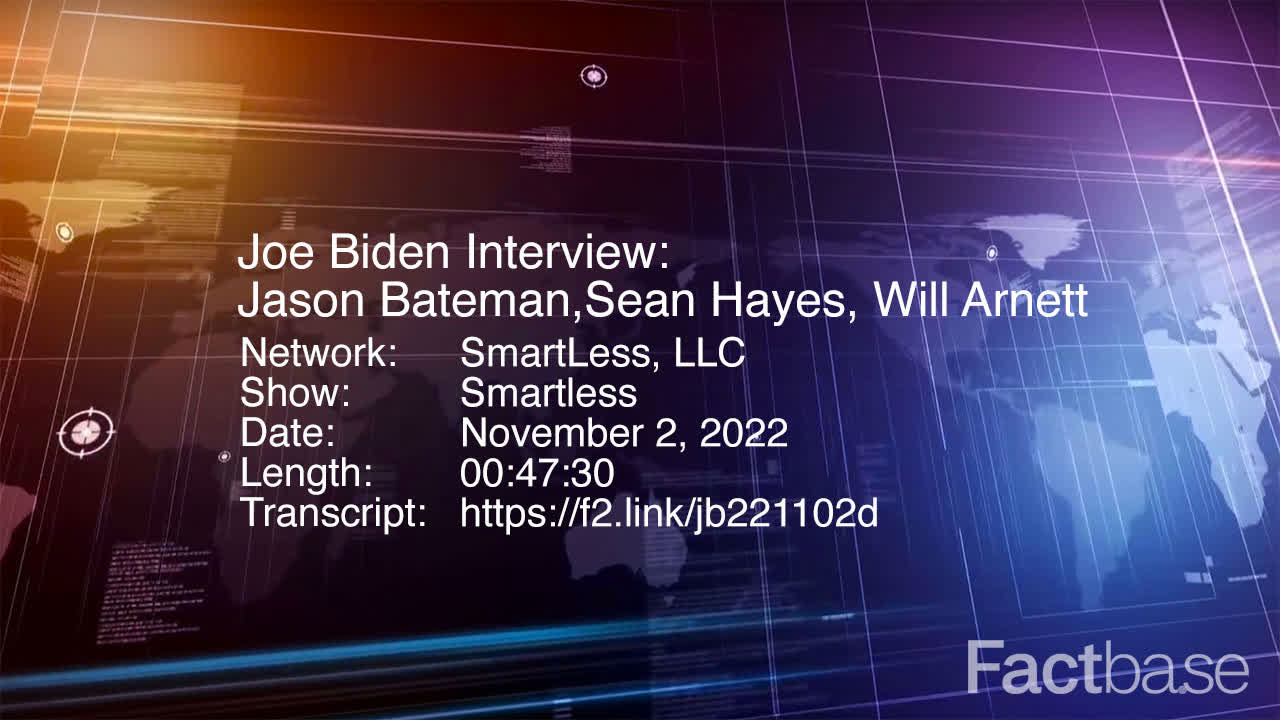
00:32:29-00:32:30 (1 sec)

"Yeah."
342
Sean Hayes
Neutral
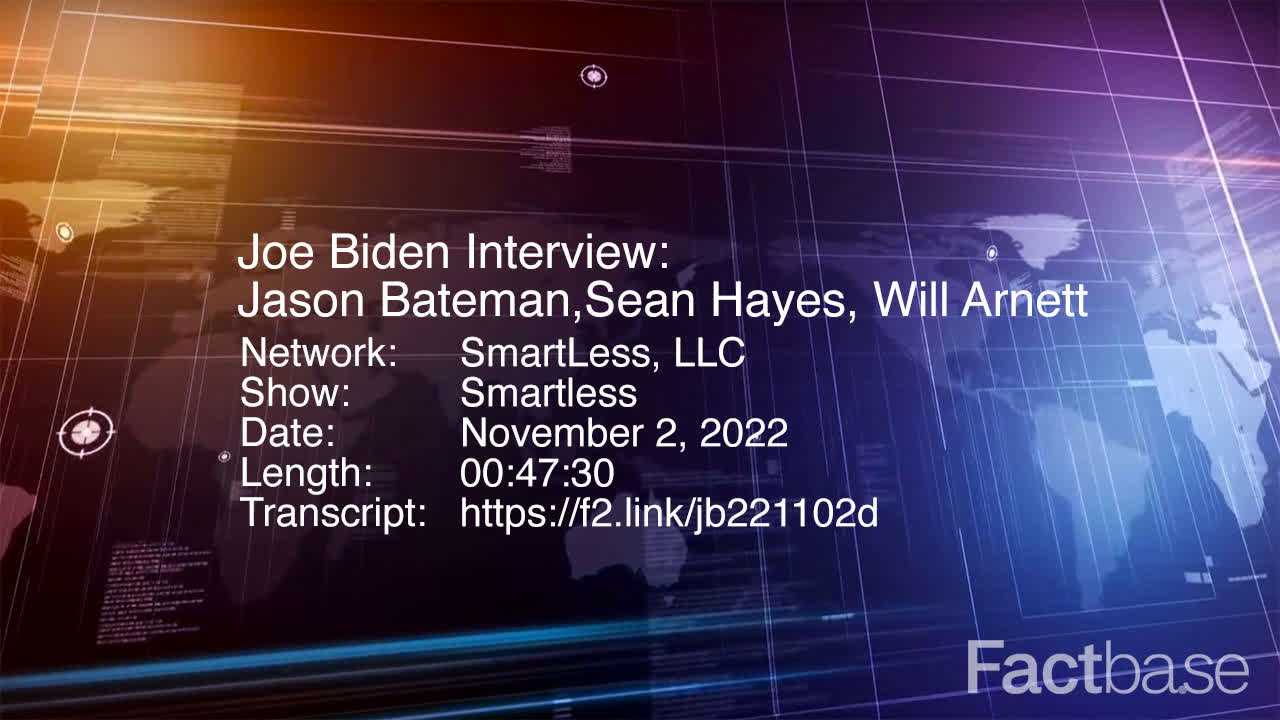
00:32:30-00:32:31 (1 sec)

"Because you only need --"
343
Jason Bateman
Very Positive
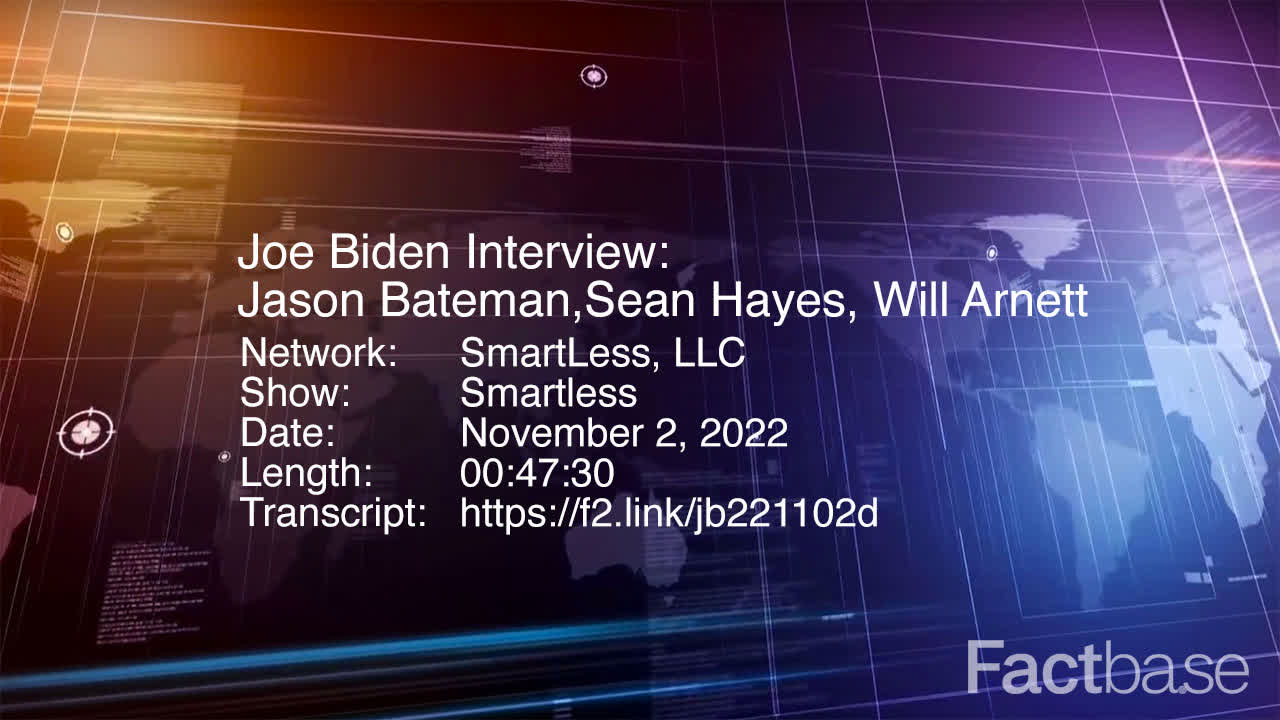
00:32:31-00:32:34 (3 sec)

"Yeah, yeah, I had the same question."
344
Sean Hayes
Very Positive
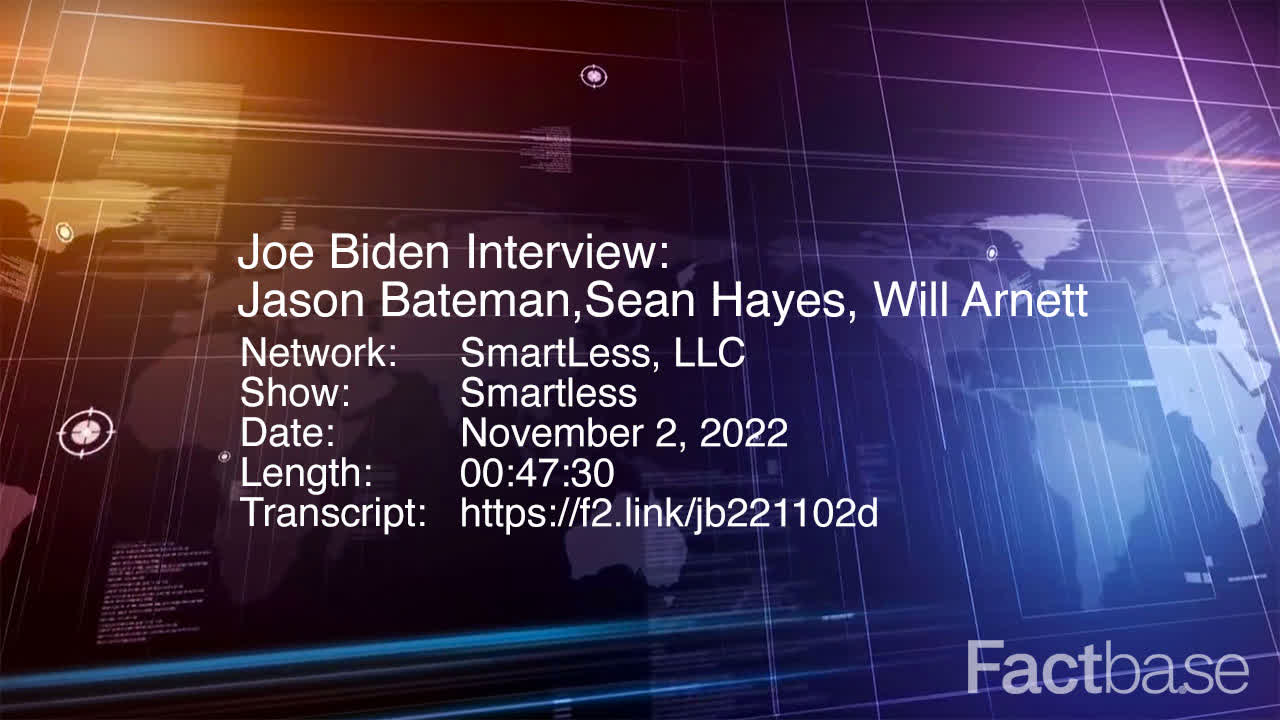
00:32:34-00:32:38 (4 sec)

"Right? You only have -- like, you only need, like, two or three. Nobody's --"
345
Jason Bateman
Neutral
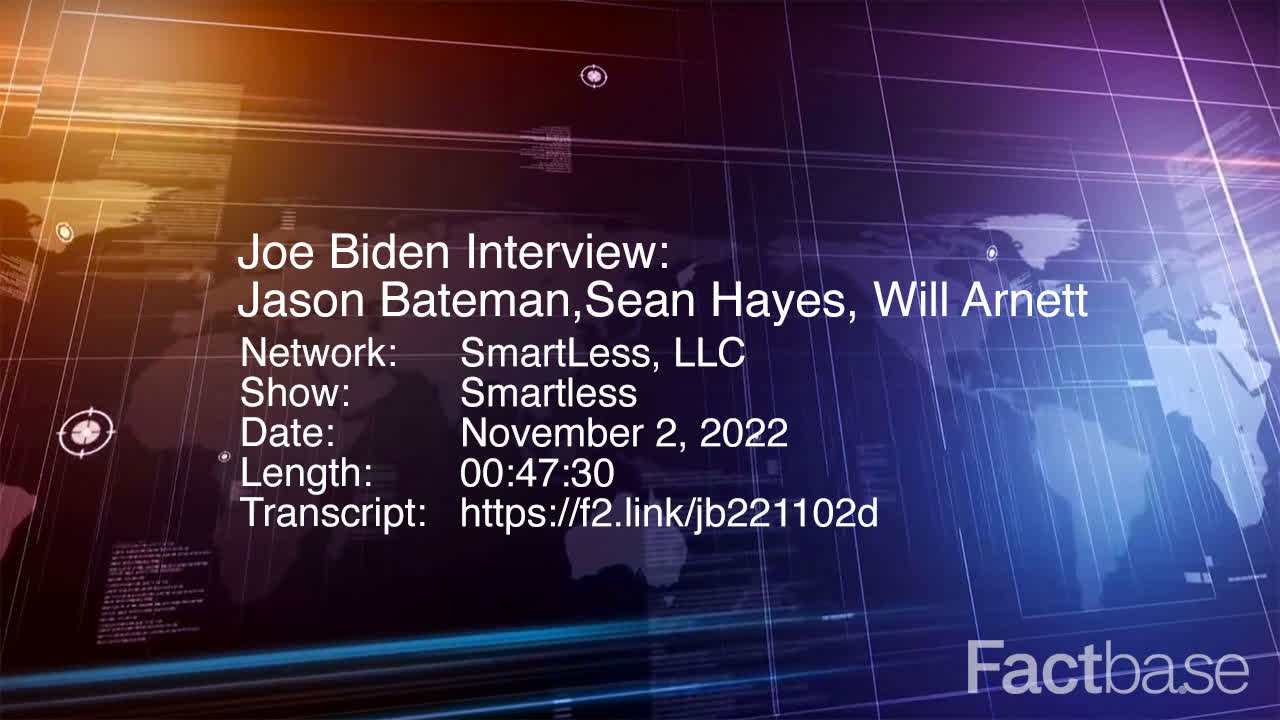
00:32:38-00:32:43 (4 sec)

"Who's picking -- who's picking the suit in the morning?"
346
Sean Hayes
Very Positive
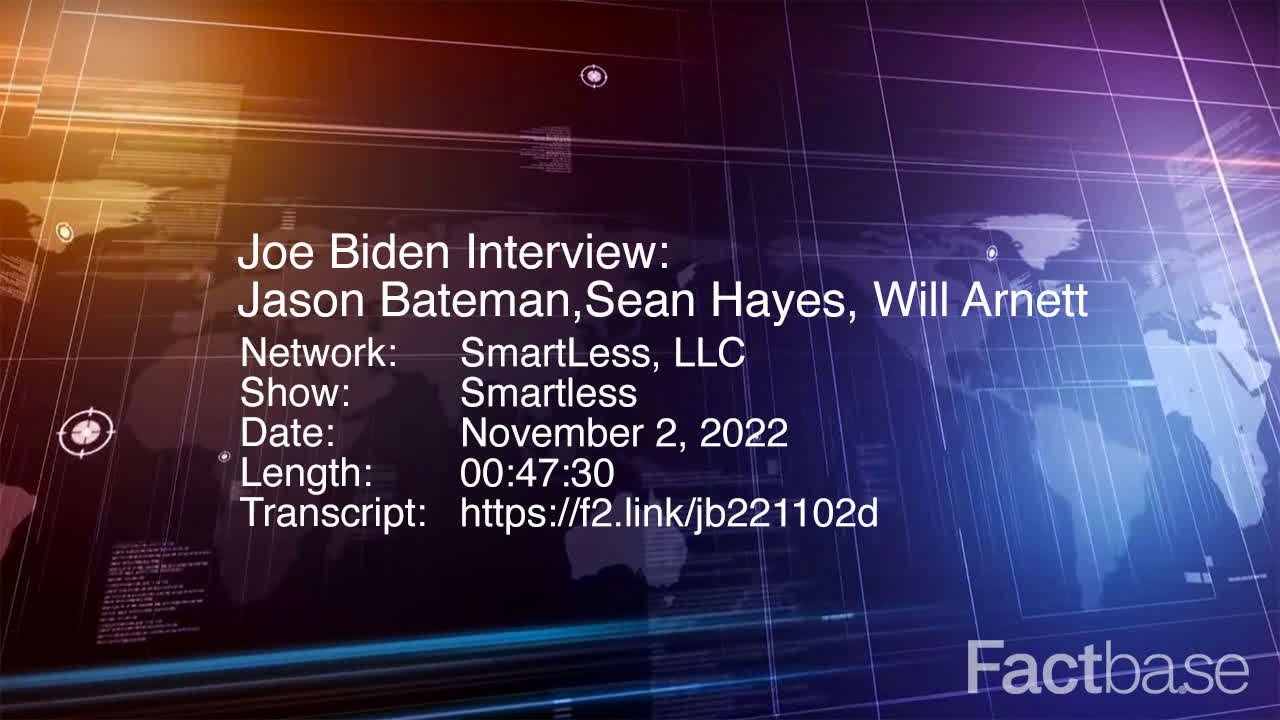
00:32:43-00:32:44 (2 sec)

"Yeah. And like --"
347
Joe Biden
Neutral
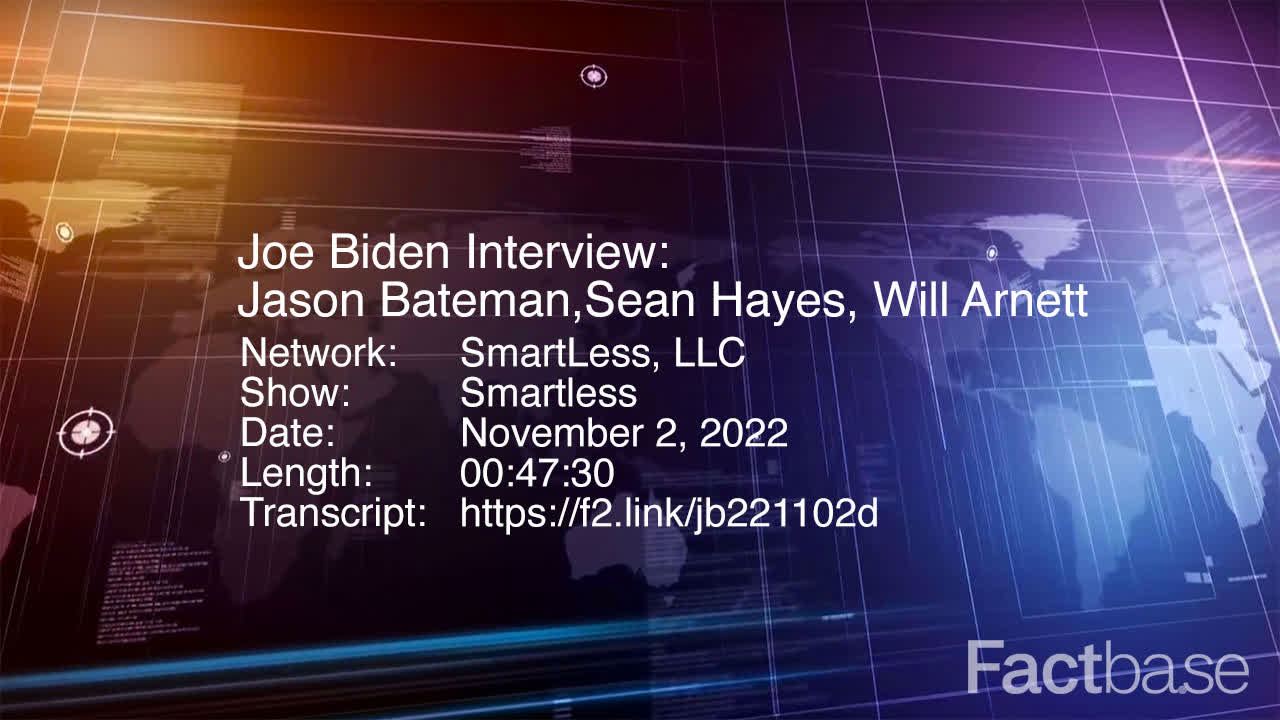
00:32:44-00:32:45 (1 sec)

"Me."
348
Jason Bateman
Neutral
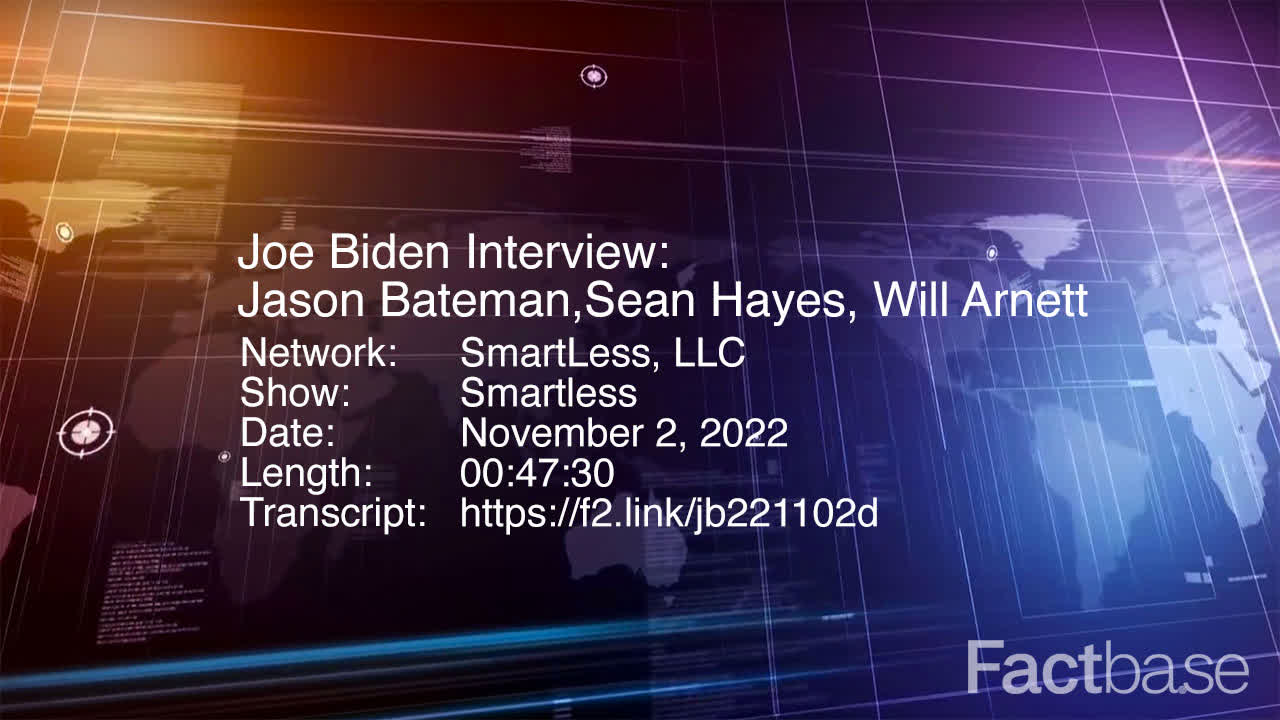
00:32:45-00:32:49 (3 sec)

"Really? So, you got a big closet."
349
Sean Hayes
Neutral
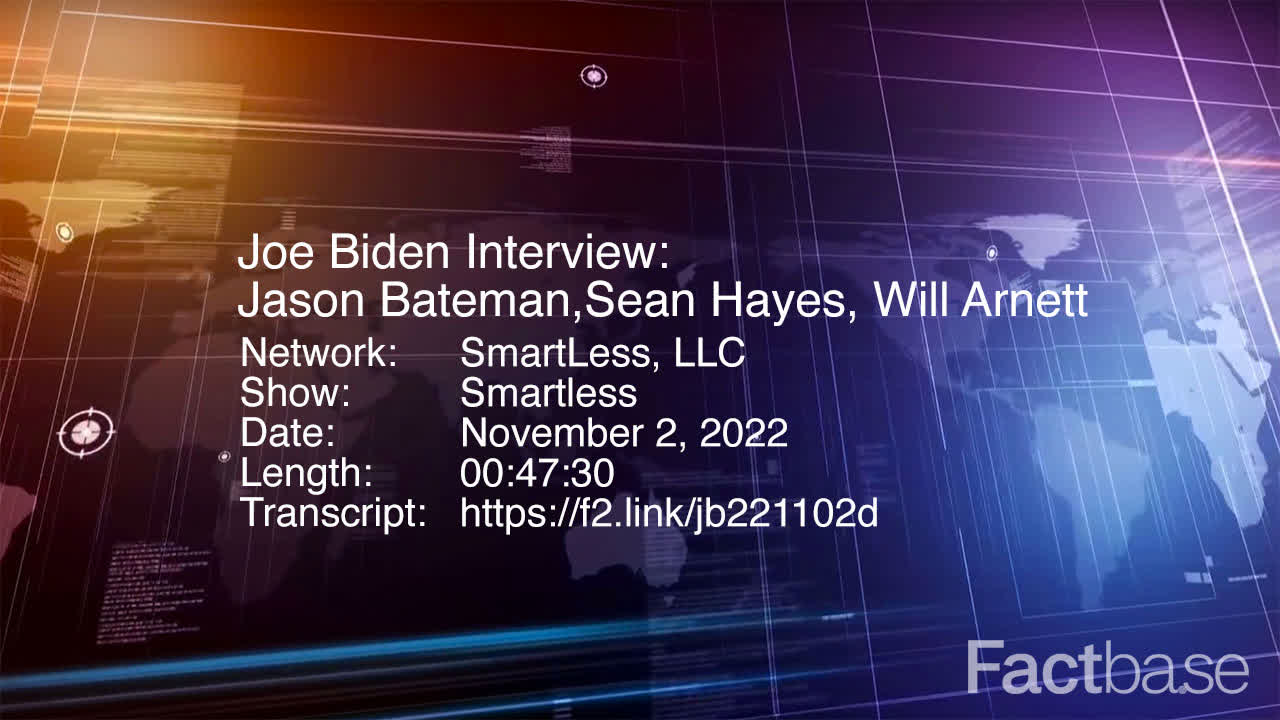
00:32:49-00:32:51 (3 sec)

"How many do you have?"
350
Joe Biden
Neutral
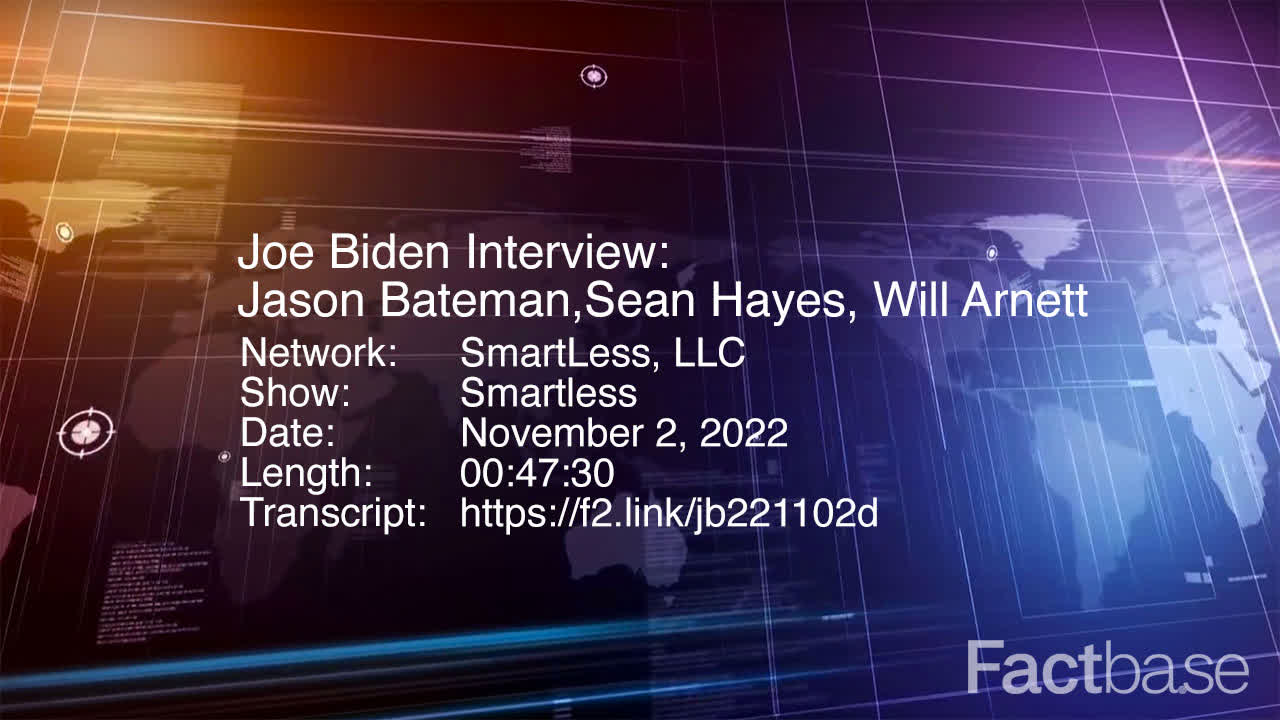
00:32:51-00:32:56 (5 sec)

"Yeah. No, I have -- I guess I have a -- I have --"
351
Jason Bateman
Neutral
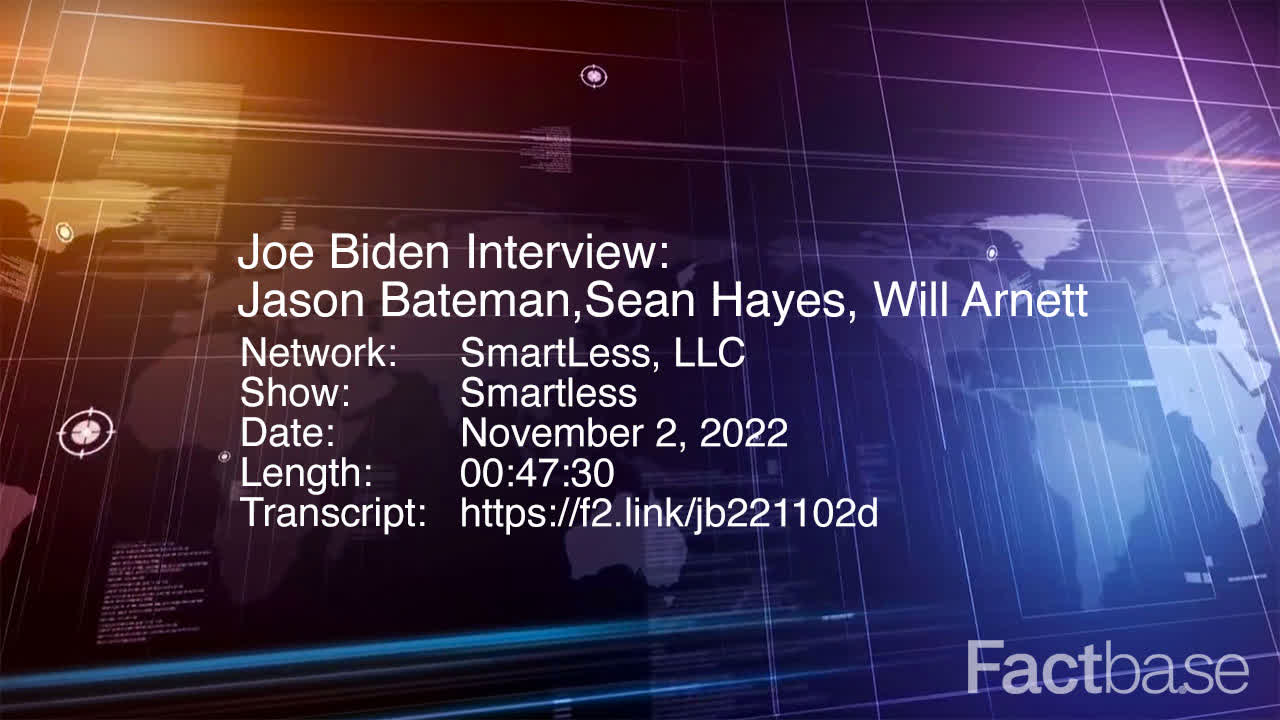
00:32:56-00:33:00 (4 sec)

"Less than 100 or more than 100?"
352
Joe Biden
Neutral
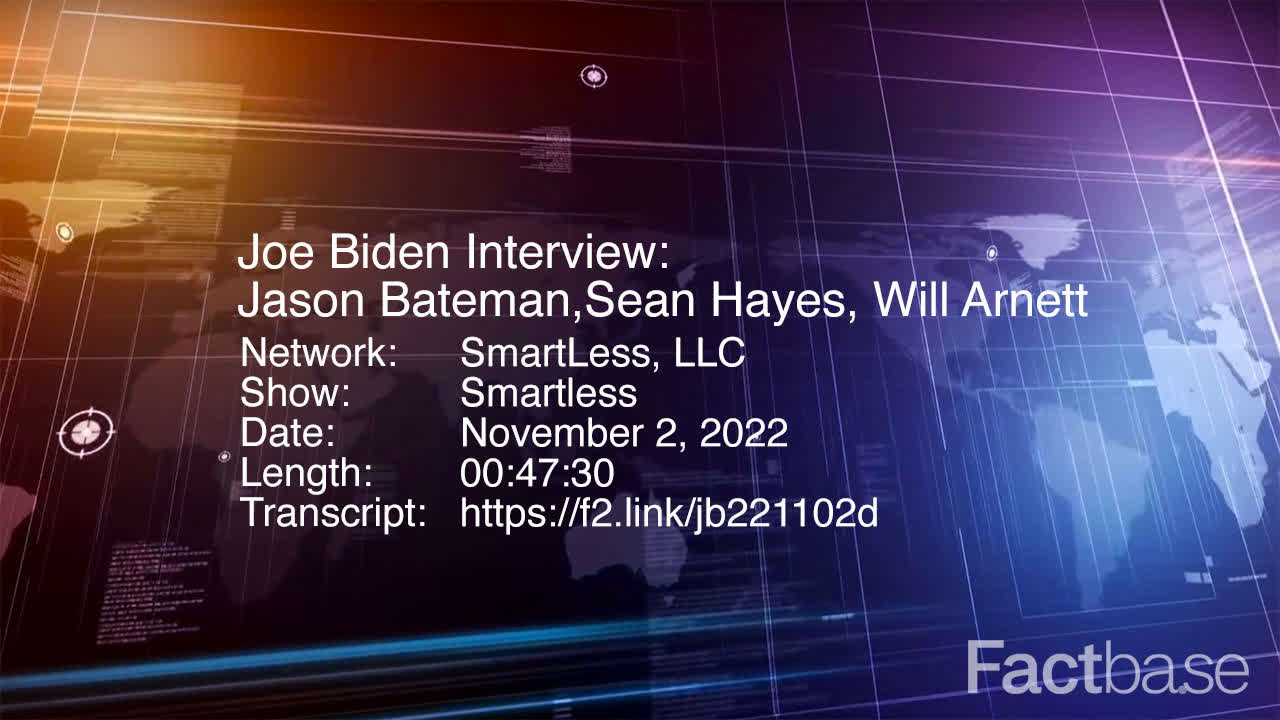
00:33:00-00:33:02 (3 sec)

"I have probably less than 15 --"
353
Jason Bateman
Neutral
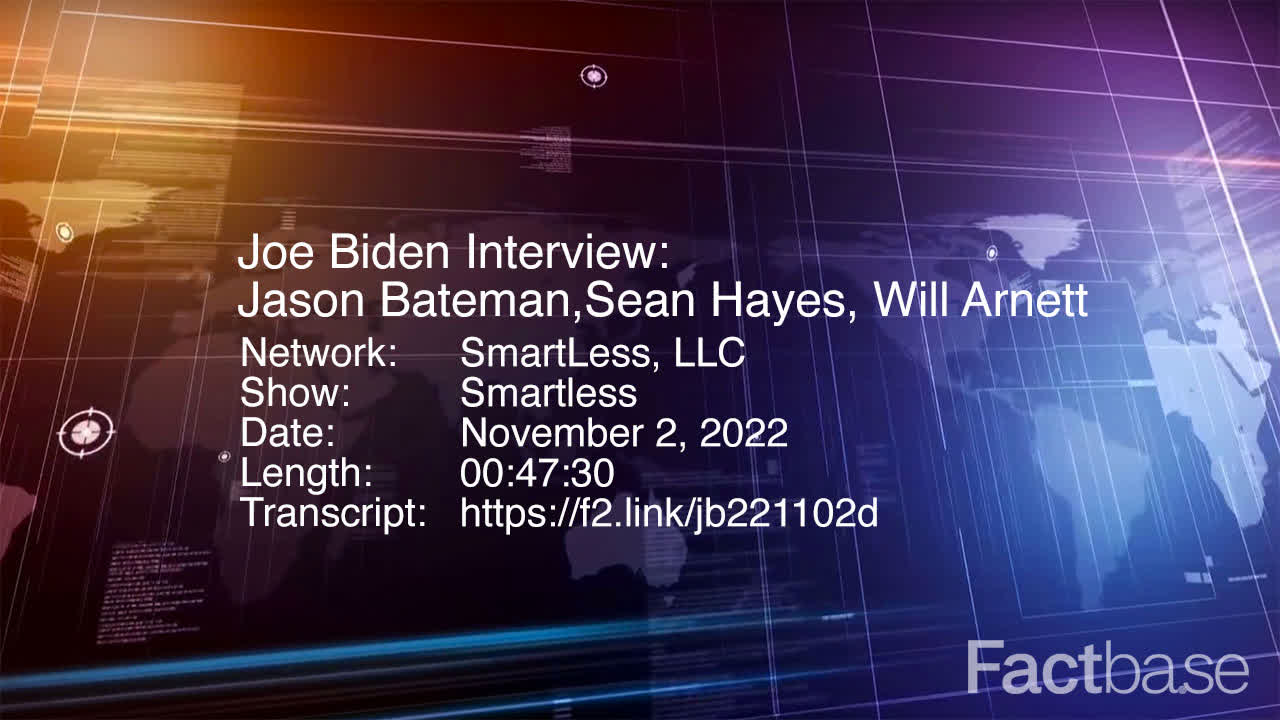
00:33:02-00:33:04 (2 sec)

"Less than 15."
354
Joe Biden
Neutral
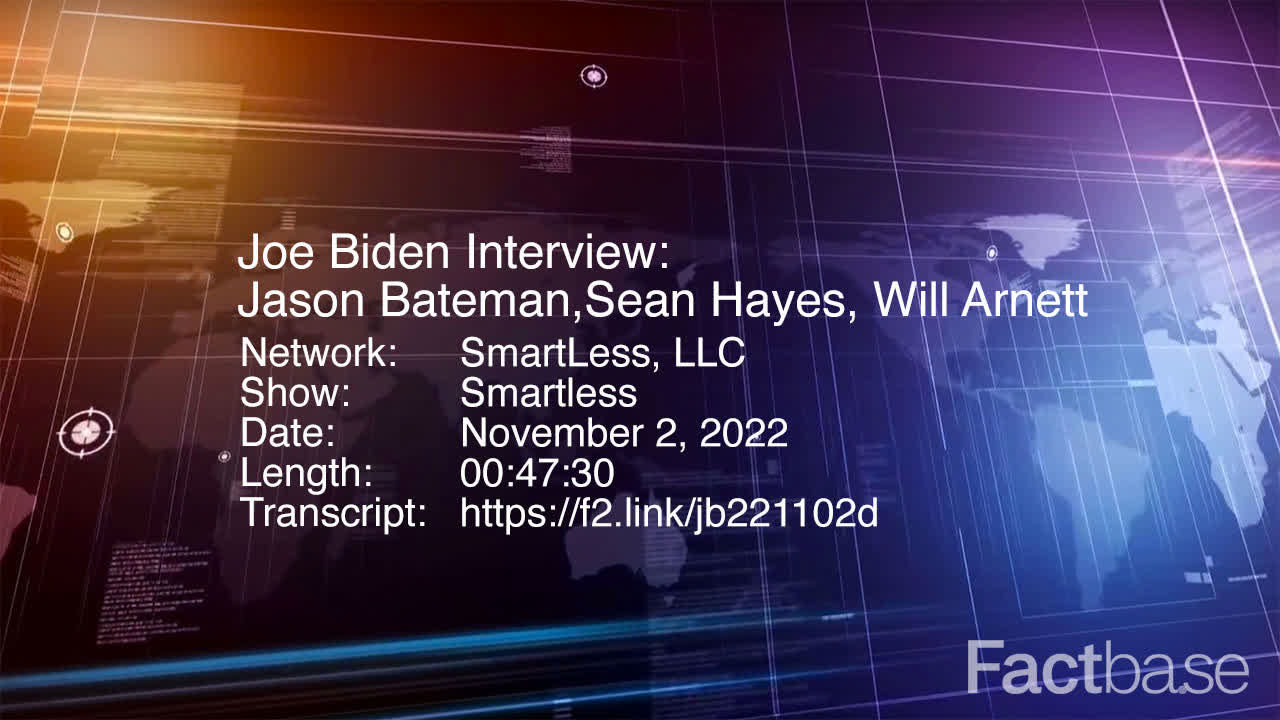
00:33:04-00:33:05 (1 sec)

"But more than -- more than 14."
355
Jason Bateman
Neutral
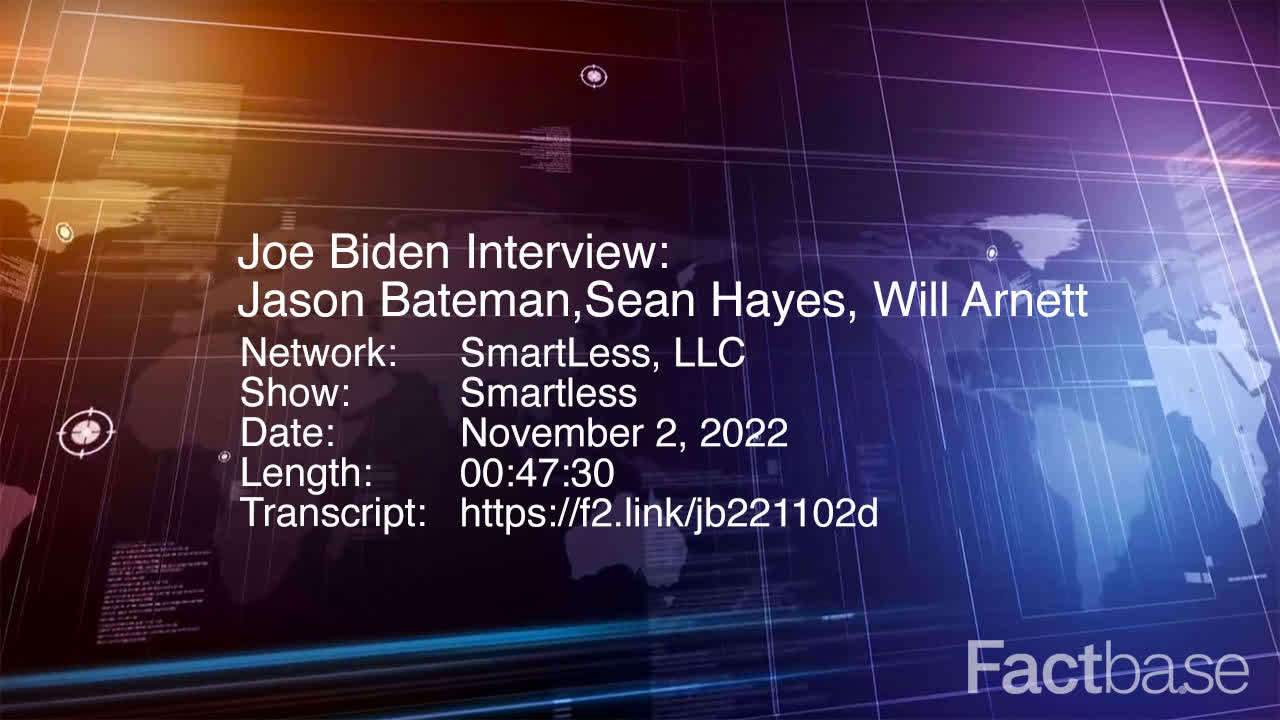
00:33:05-00:33:07 (2 sec)

"But a lot of ties. A lot of ties."
356
Joe Biden
Neutral
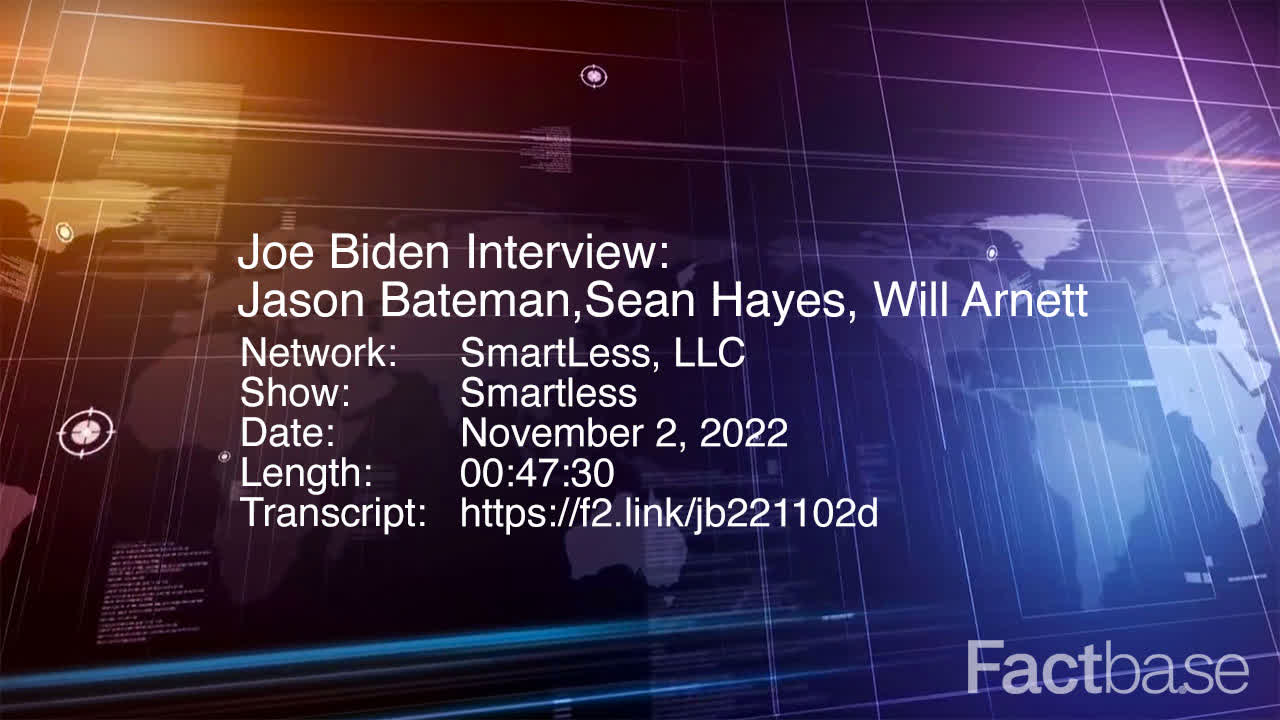
00:33:07-00:33:09 (1 sec)

"A lot of ties."
357
Sean Hayes
Neutral
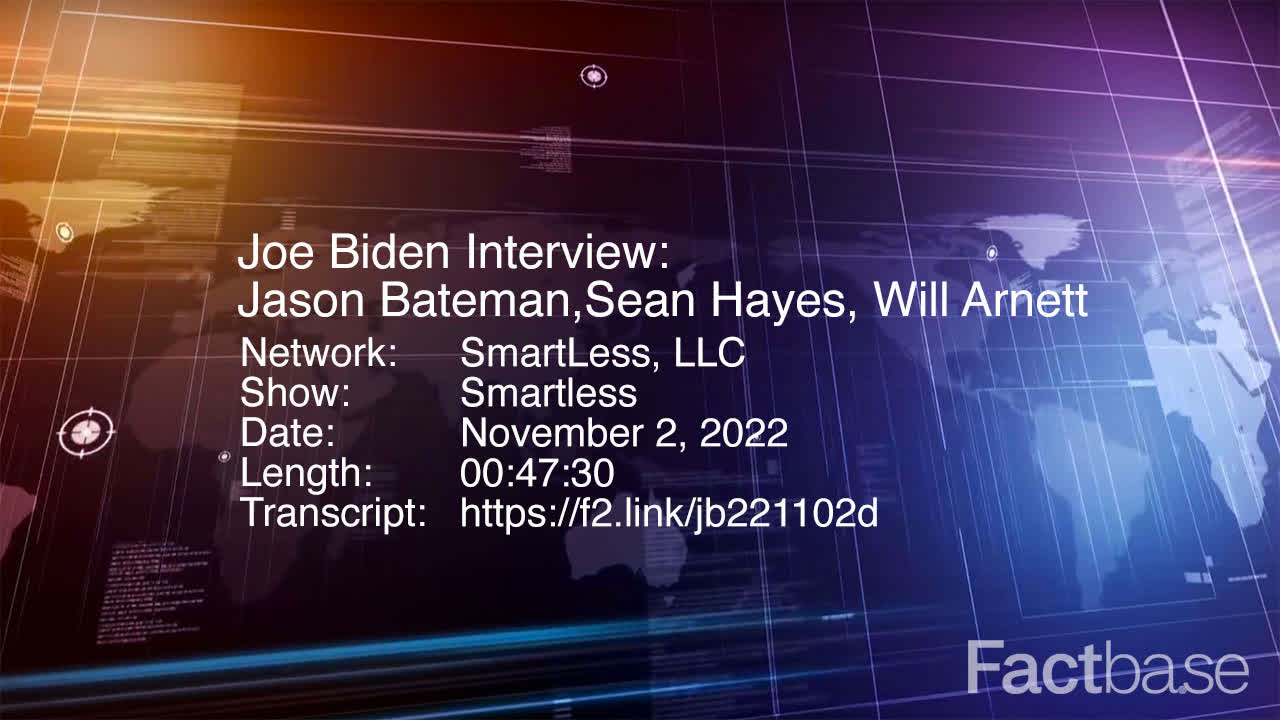
00:33:09-00:33:10 (1 sec)

"You can get sassy with the ties."
358
Will Arnett
Neutral
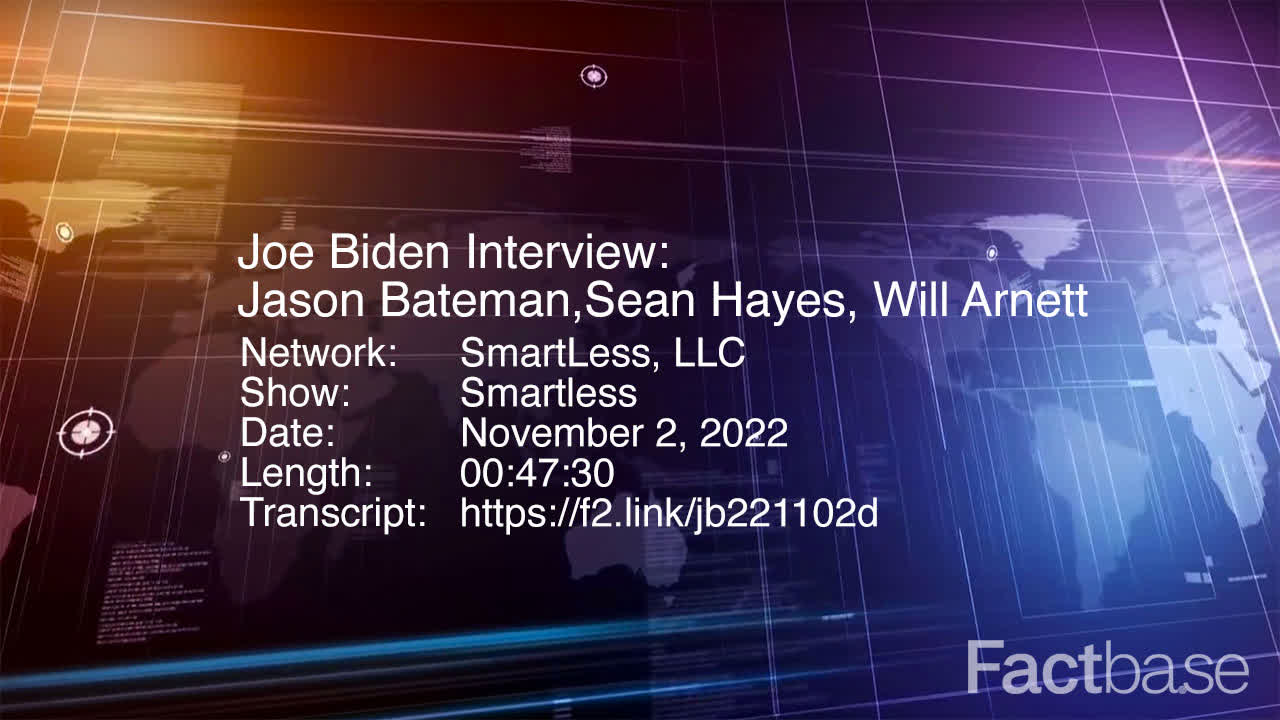
00:33:10-00:33:10 (1 sec)

"Do you choose tie, too?"
359
Joe Biden
Slightly Positive
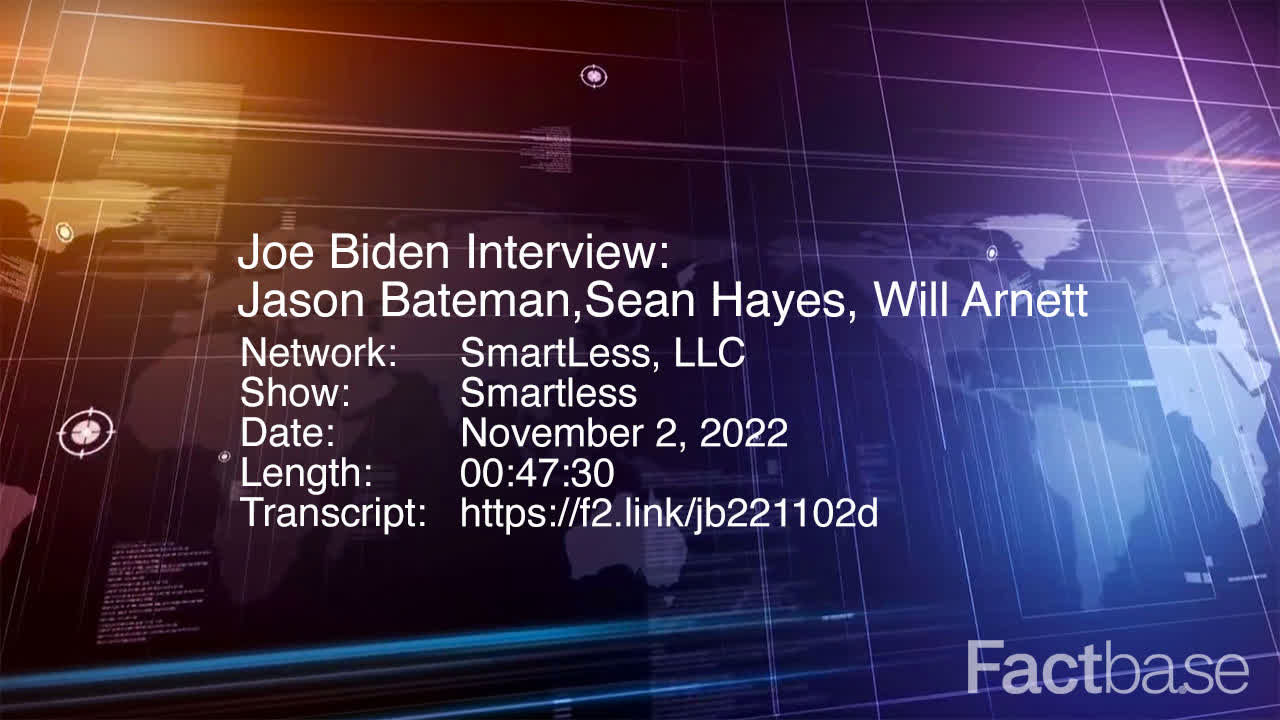
00:33:10-00:33:11 ( sec)

"Yeah."
360
Will Arnett
Slightly Positive
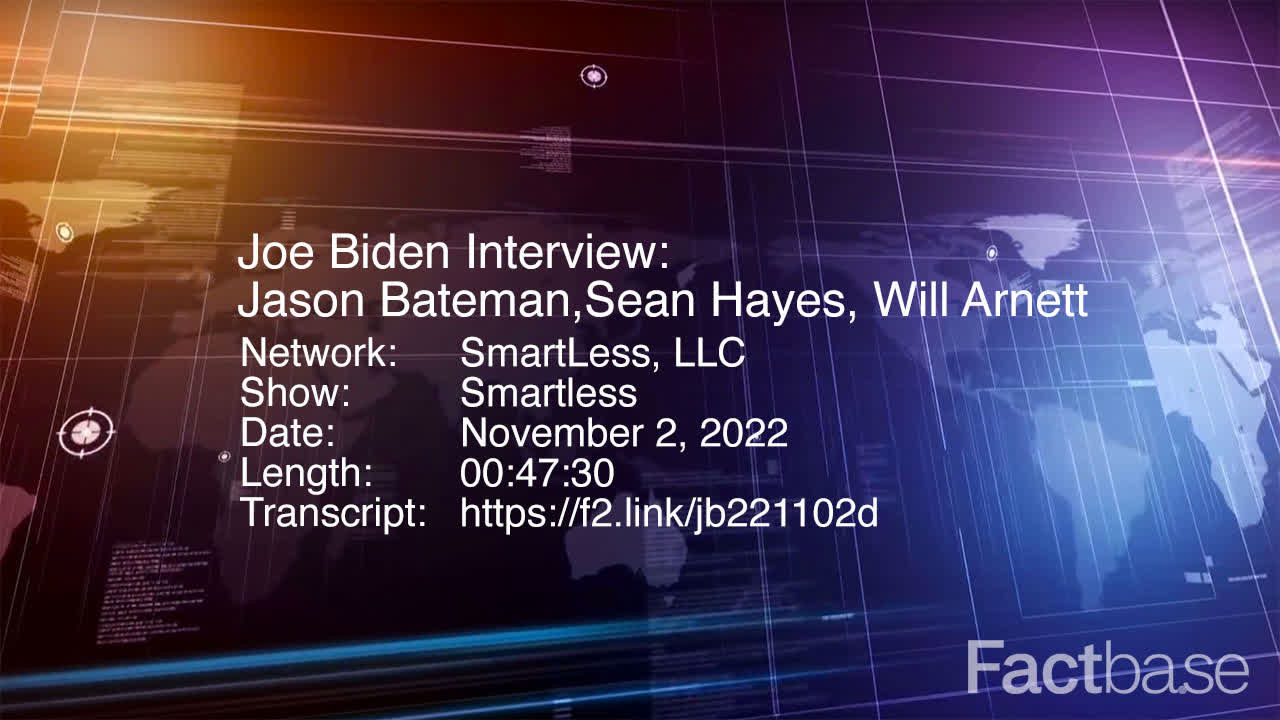
00:33:11-00:33:11 ( sec)

"Yeah?"
361
Joe Biden
Slightly Positive
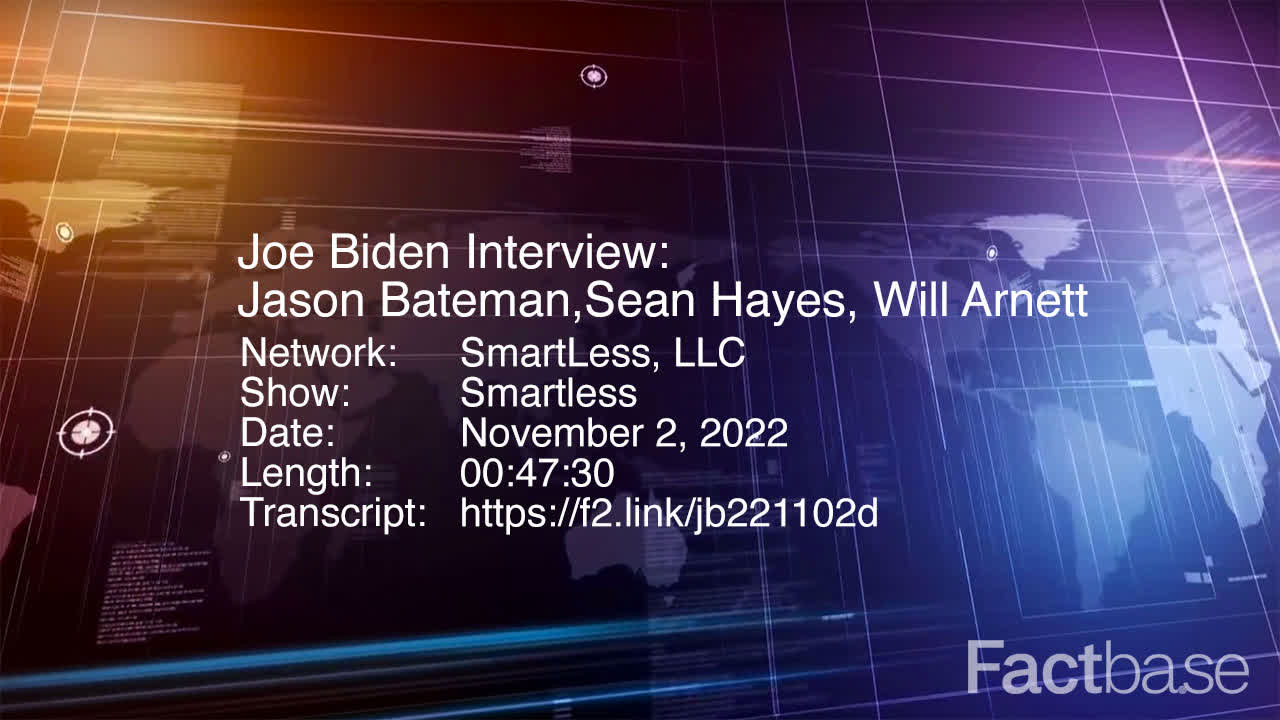
00:33:11-00:33:11 ( sec)

"Yeah."
362
Sean Hayes
Leans Positive
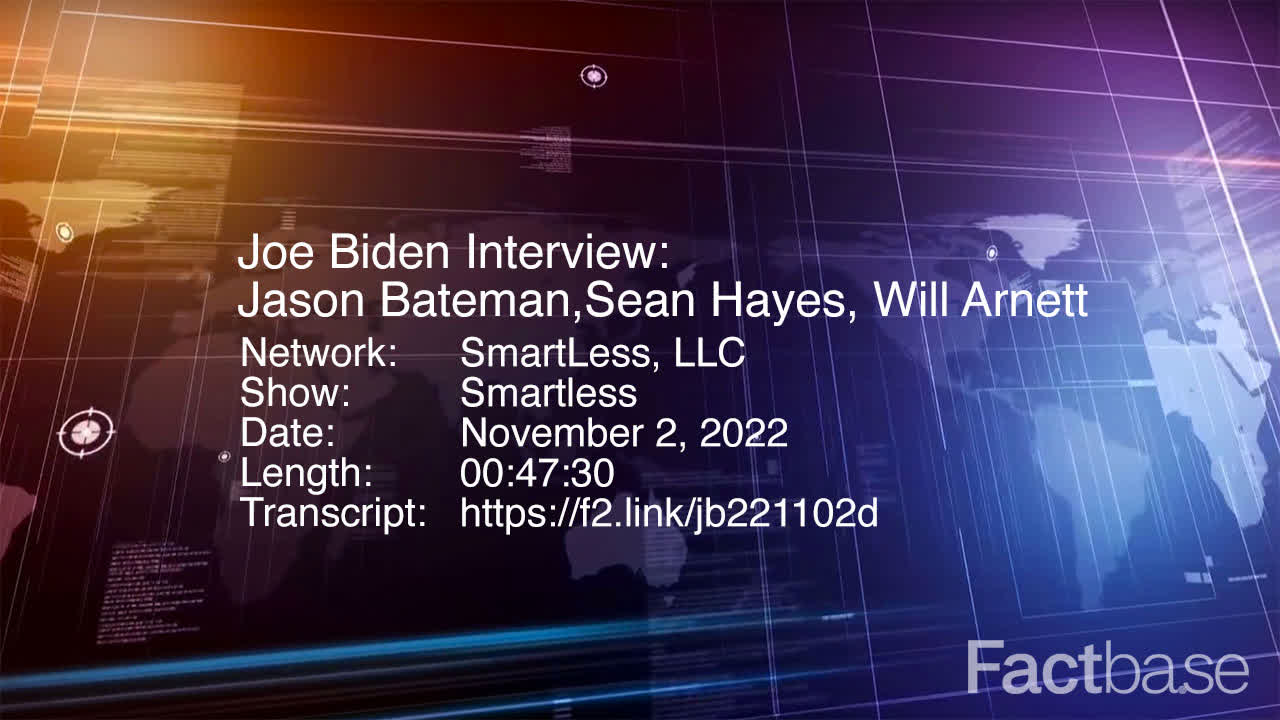
00:33:11-00:33:19 (8 sec)

"No, Jill doesn't -- does Jill ever give you the hairy eyeball, like, no, what, please. What are you doing with that thing?"
363
Joe Biden
Positive
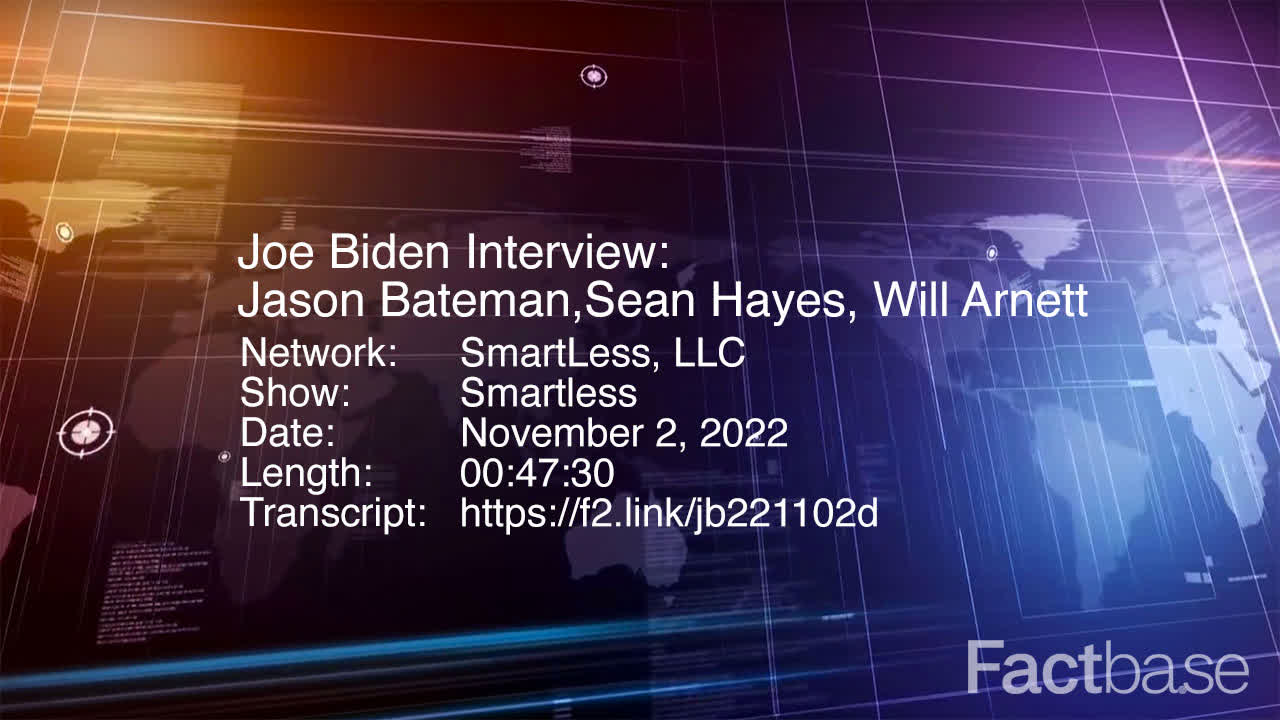
00:33:19-00:33:21 (2 sec)

"Well -- well, she is if -- if I'm not --"
364
Will Arnett
Somewhat Positive
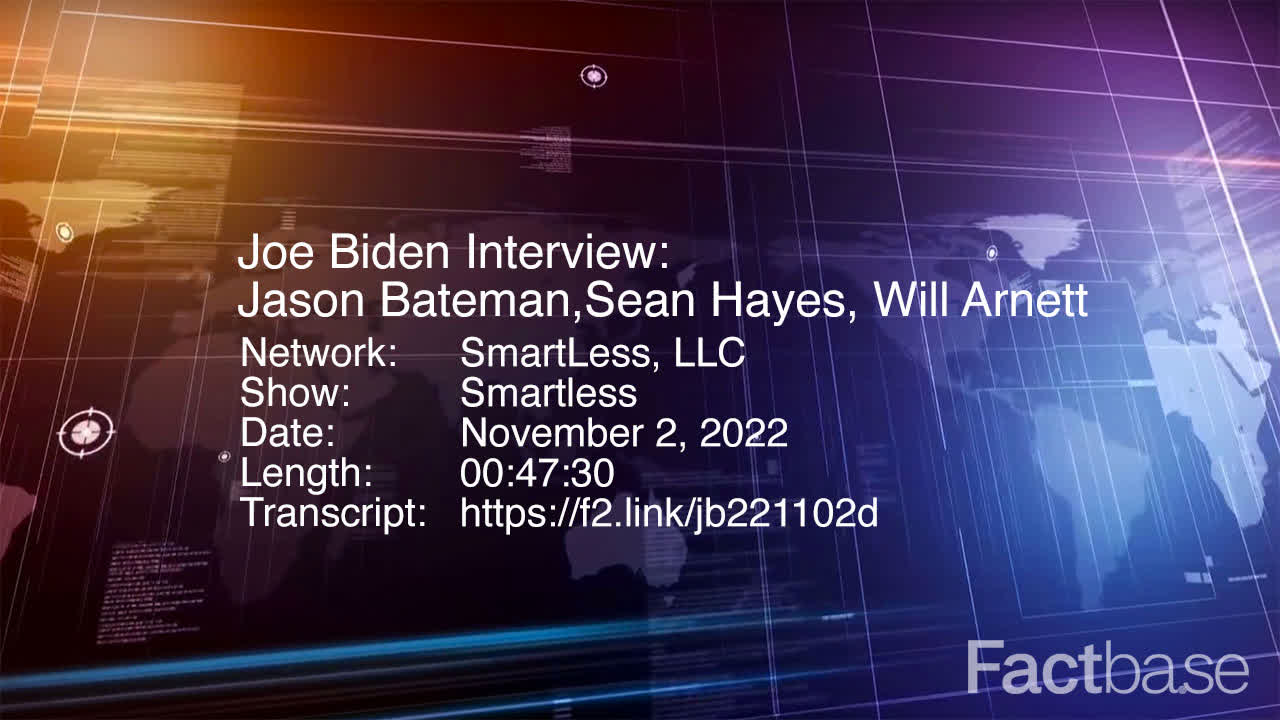
00:33:21-00:33:24 (3 sec)

"I'm sure -- or you must mean Mrs. Biden."
365
Sean Hayes
Slightly Positive
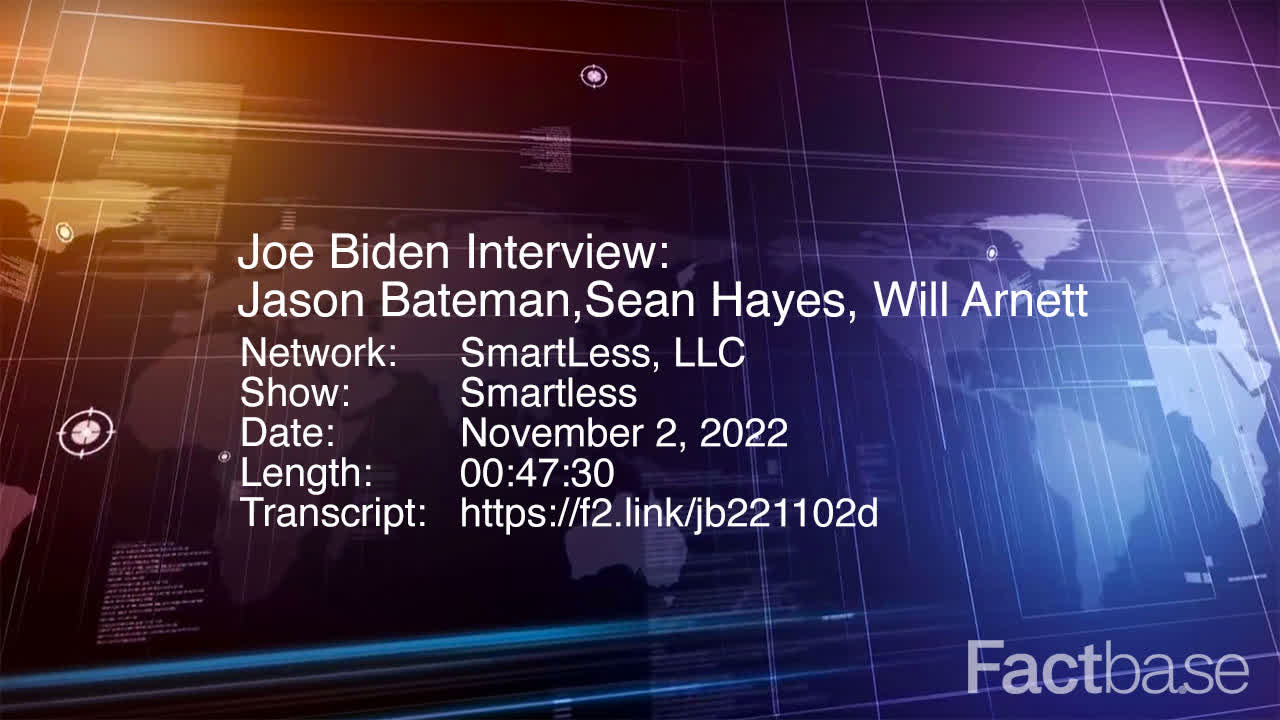
00:33:24-00:33:24 ( sec)

"Well [Inaudible]"
366
Joe Biden
Leans Negative
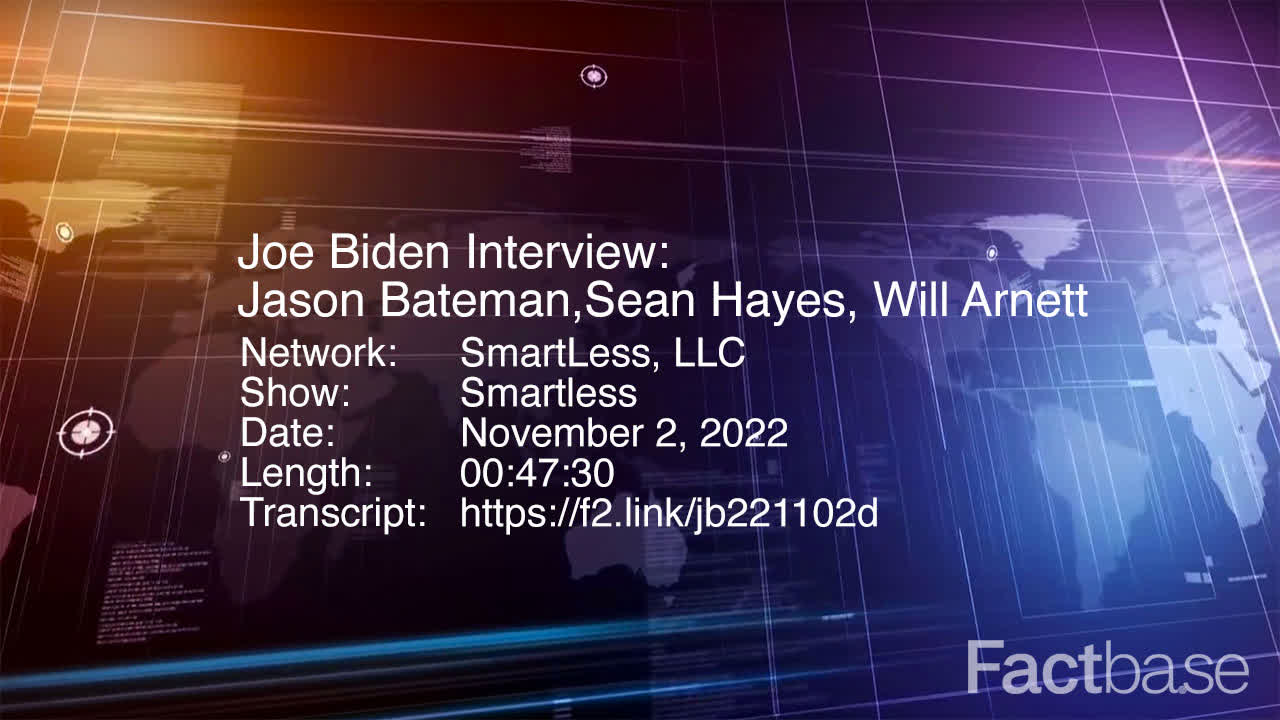
00:33:24-00:33:27 (2 sec)

"Oh, Jill's -- no, Jill is fine."
367
Jason Bateman
Neutral
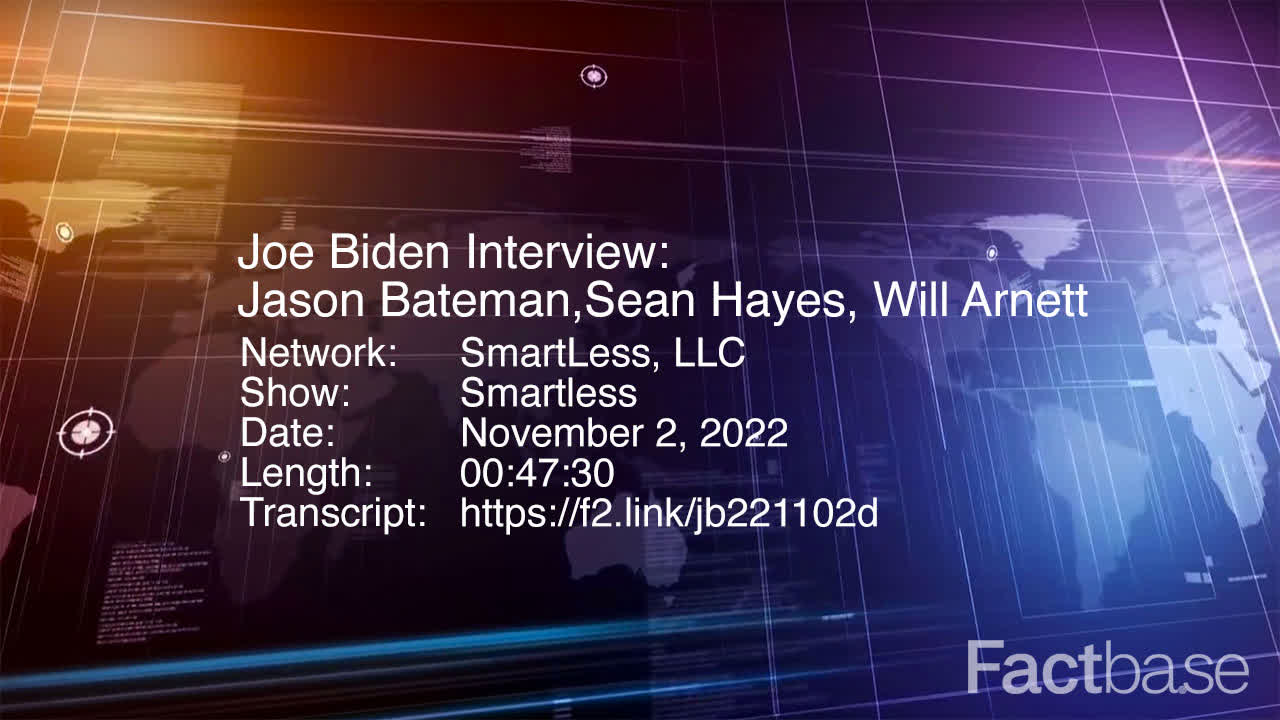
00:33:27-00:33:29 (2 sec)

"The first lady, first lady."
368
Sean Hayes
Neutral
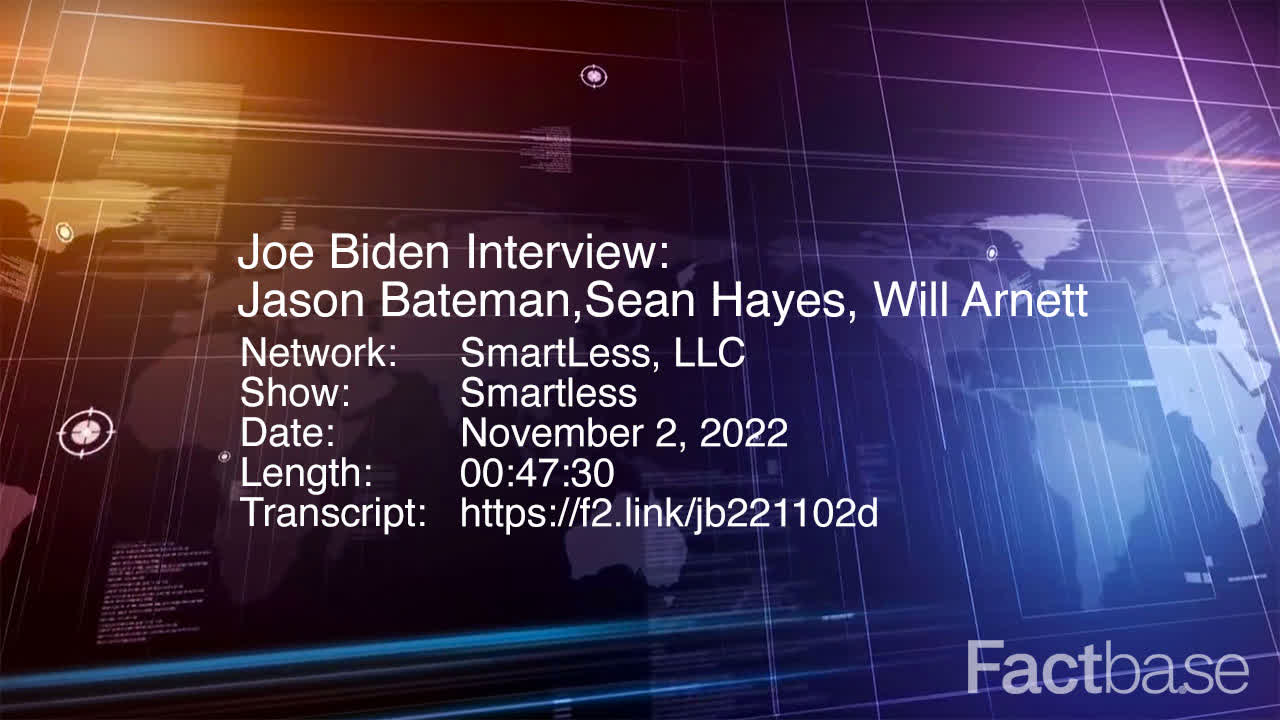
00:33:29-00:33:31 (2 sec)

"The first lady."
369
Joe Biden
Leans Negative
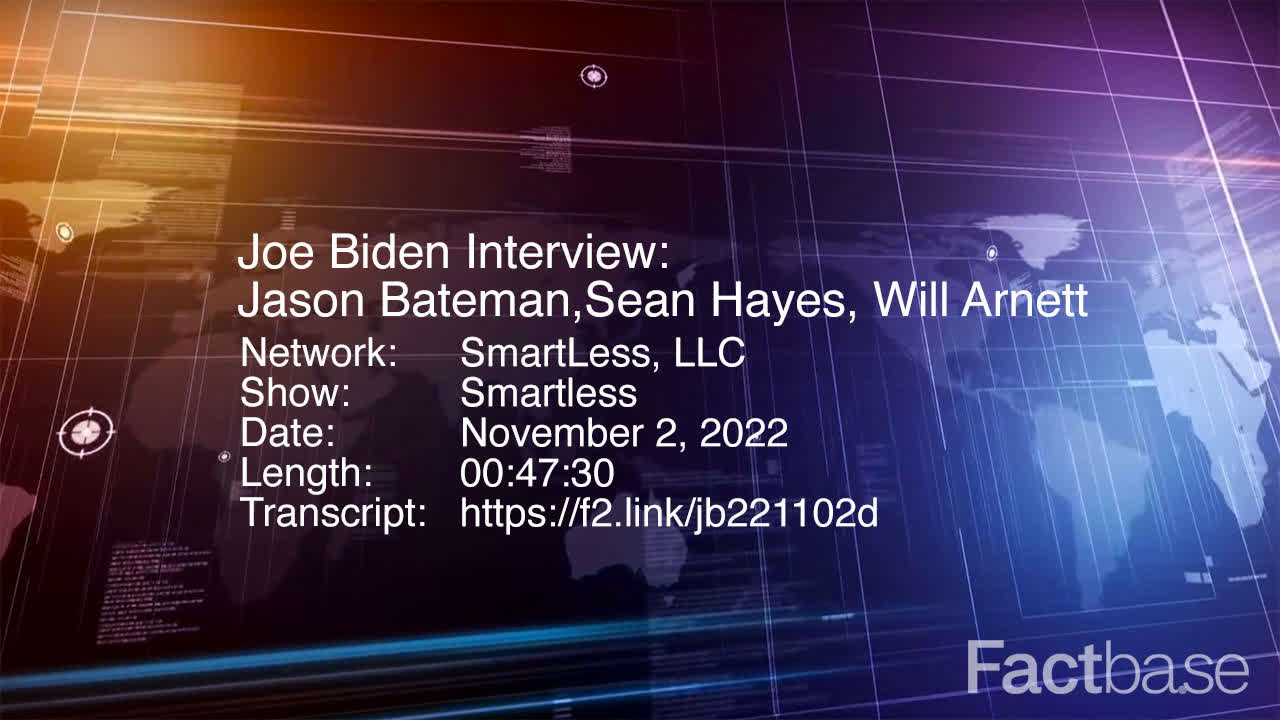
00:33:31-00:33:36 (5 sec)

"Jill -- Jill is fine. Joe is fine. All kidding aside. No, no."
370
Will Arnett
Neutral
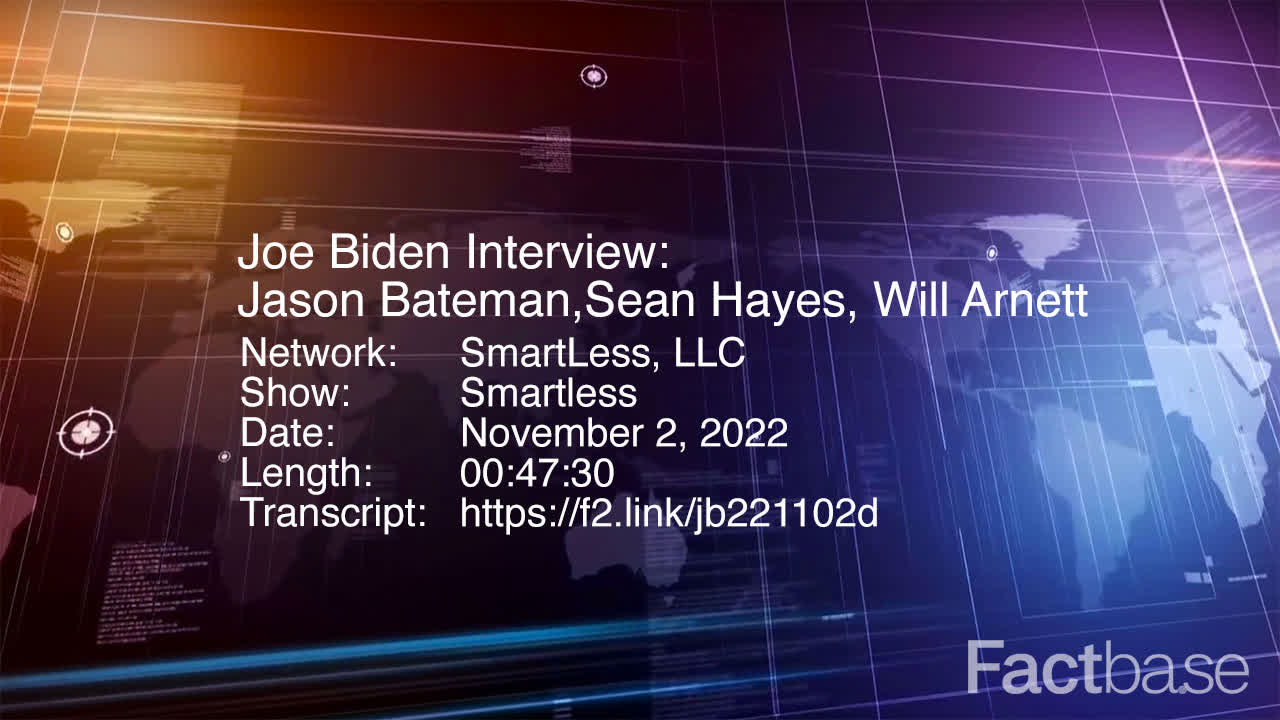
00:33:36-00:33:36 ( sec)

"[Inaudible]"
371
Joe Biden
Very Negative
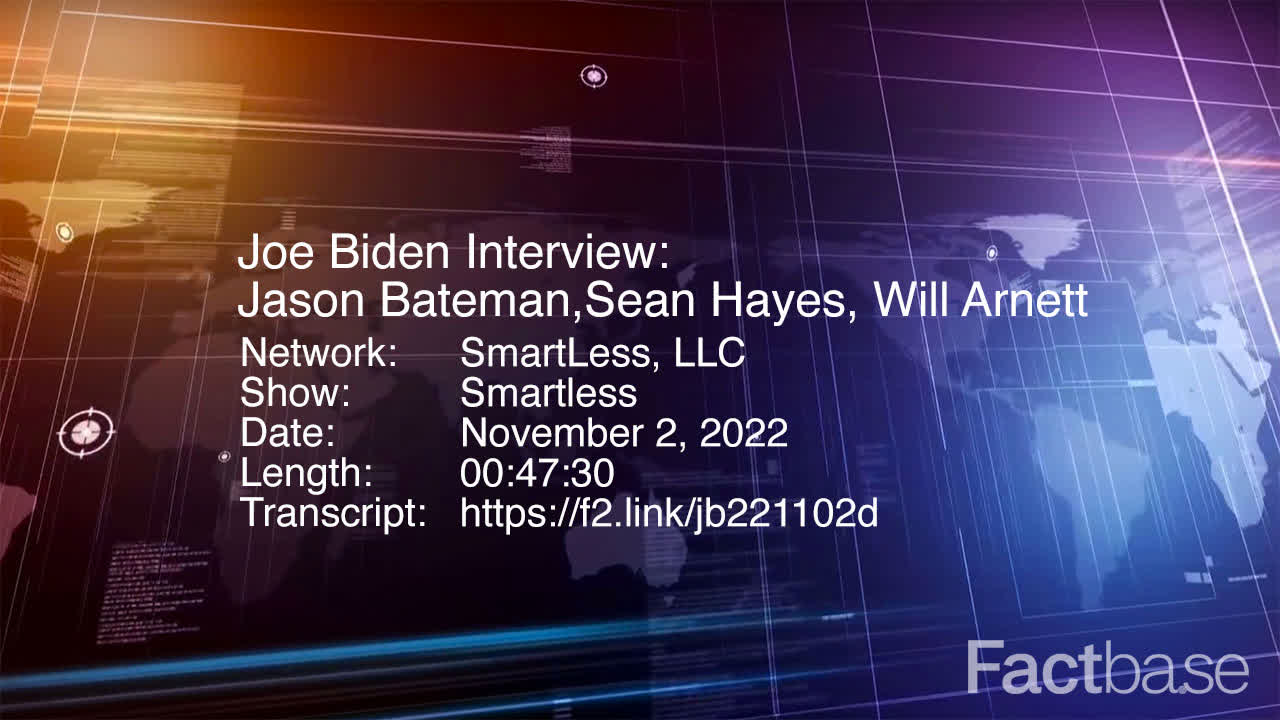
00:33:36-00:33:45 (10 sec)

"No, no. And -- but it's a -- she is -- gets very upset if I have not fully shaven or all this -- this excessive amount of hair I have. You know what I mean?"
372
Jason Bateman
Neutral
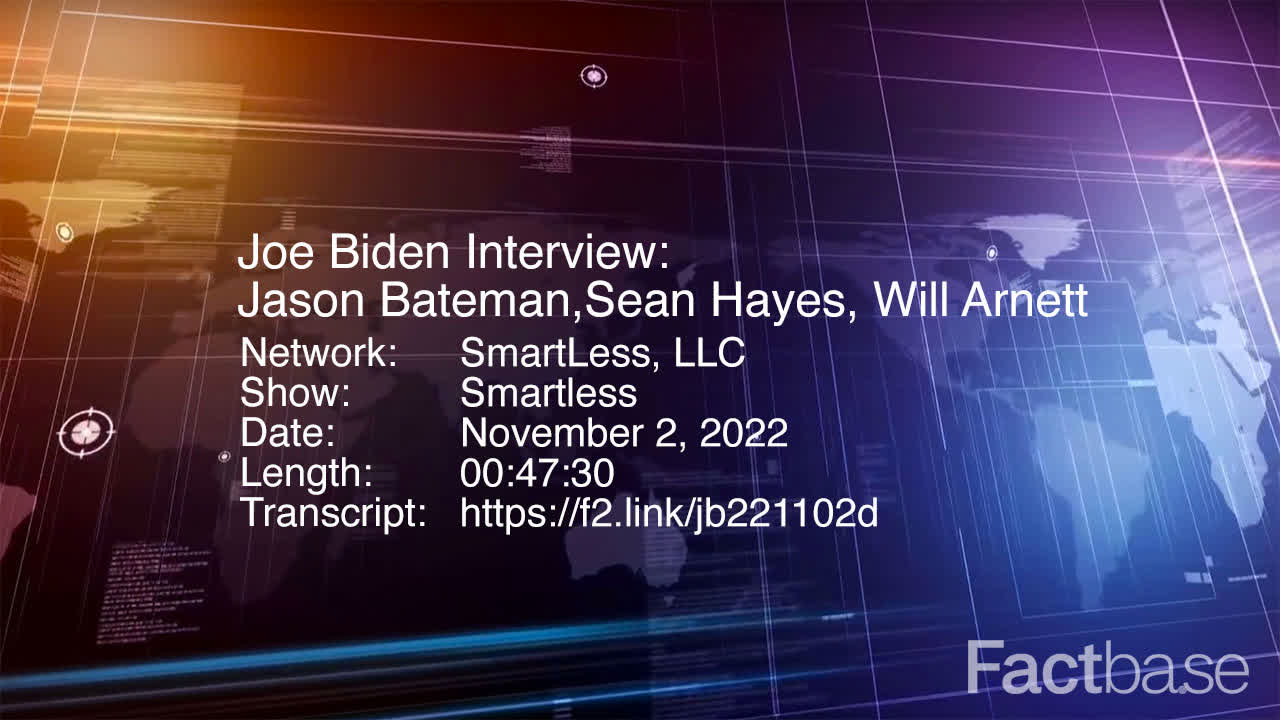
00:33:45-00:33:48 (2 sec)

"What do you do with it? I know I --"
373
Will Arnett
Very Negative
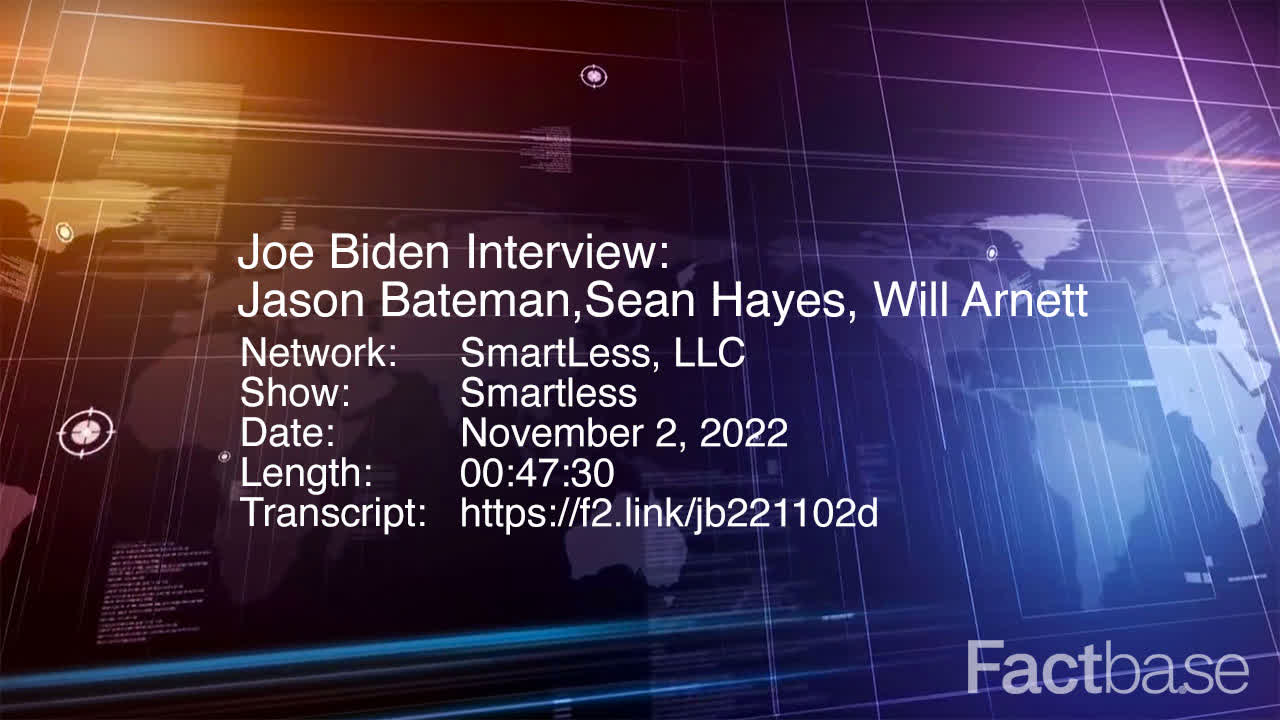
00:33:48-00:33:51 (4 sec)

"I think we suffer from the same problem."
374
Sean Hayes
Neutral
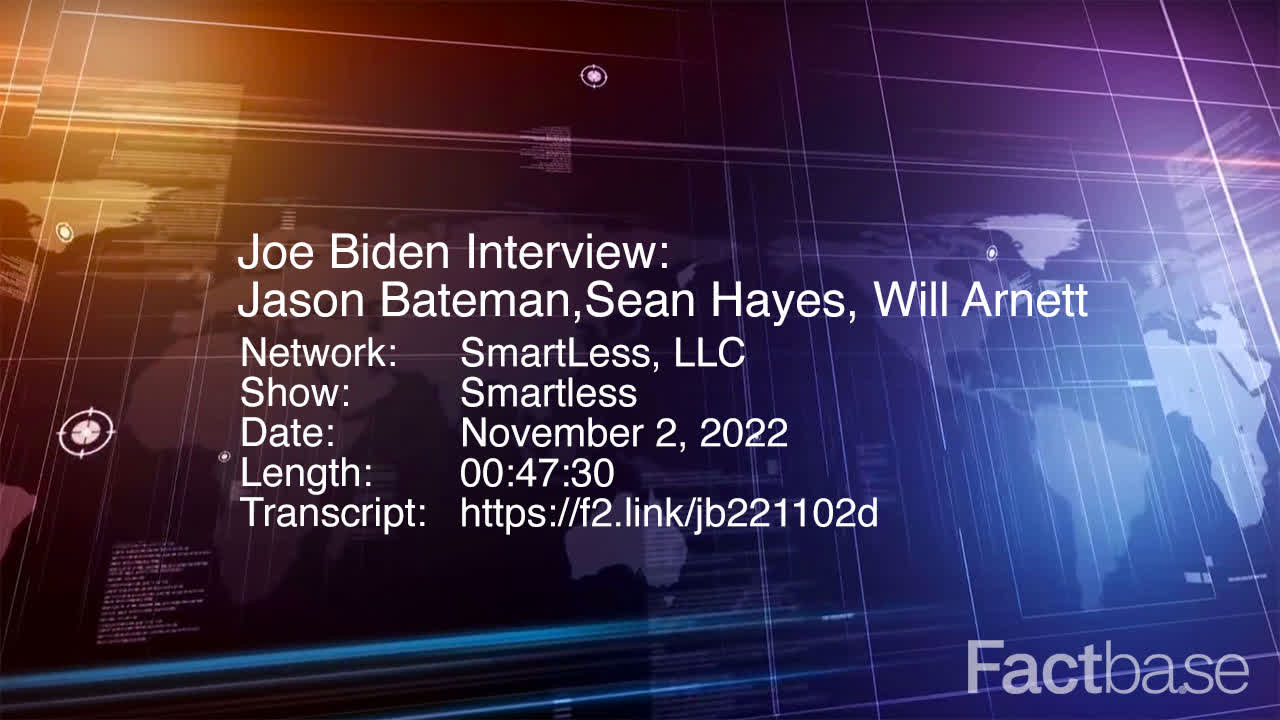
00:33:51-00:33:57 (6 sec)

"Now, wait. Just, you know, I want to get back to -- just one second."
375
Will Arnett
Neutral
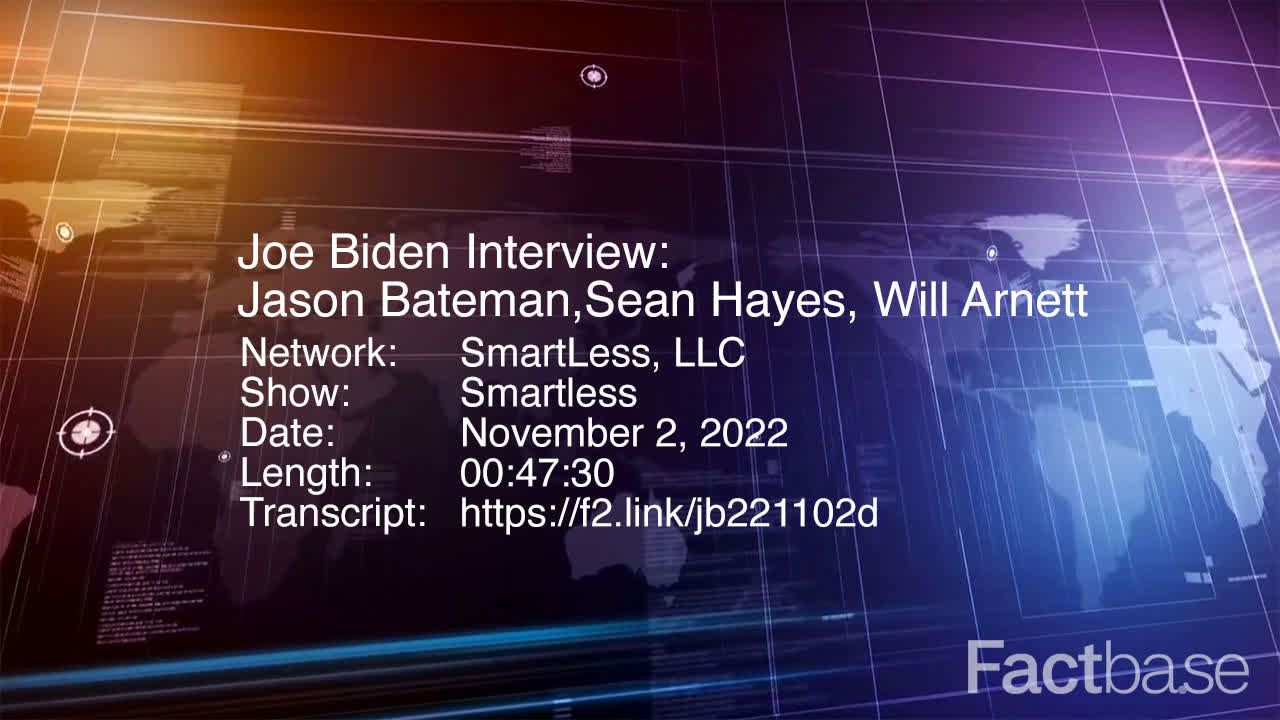
00:33:57-00:33:58 (1 sec)

"Ice cream?"
376
Sean Hayes
Very Negative
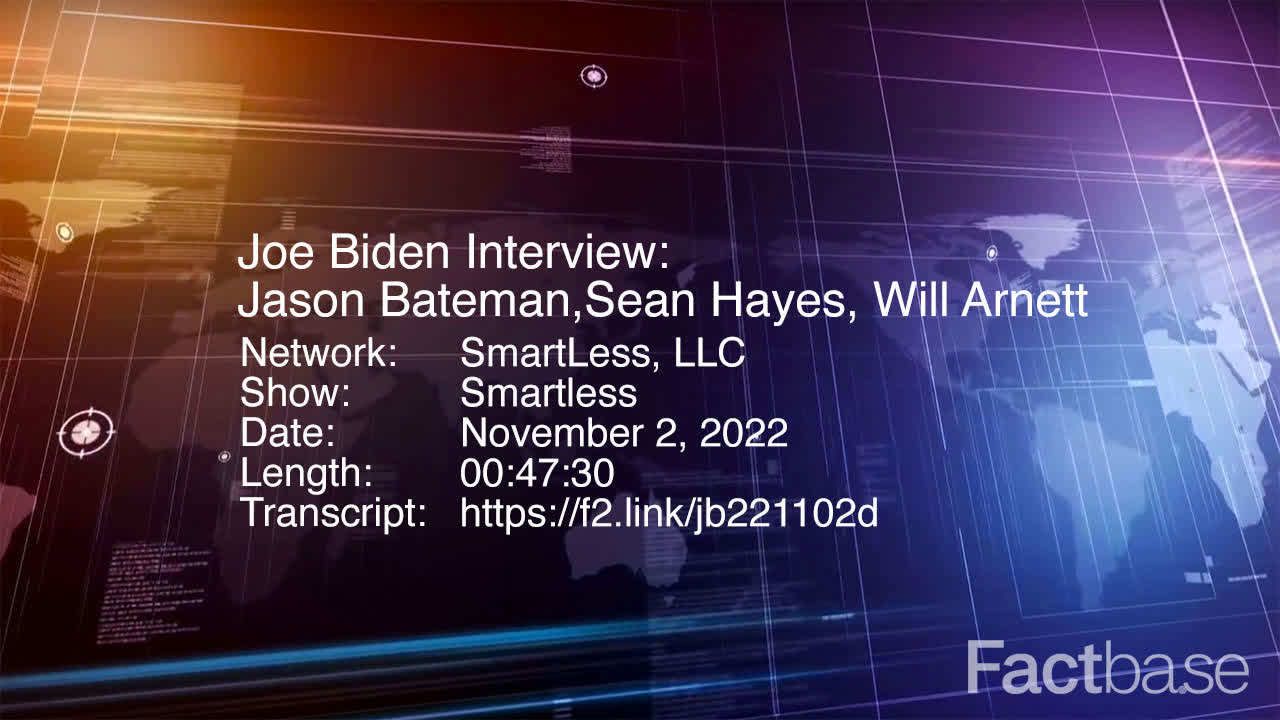
00:33:58-00:34:26 (27 sec)

"Back to ice cream? No. No, you -- you've obviously accomplished so many -- so many amazing things in your presidency so far, one of which is the Inflation Reduction Act, which I was excited about because of global warming, because I hate the heat. I'm -- I want the temperatures to go down. When it's hot, I get irritable."
377
Jason Bateman
Neutral
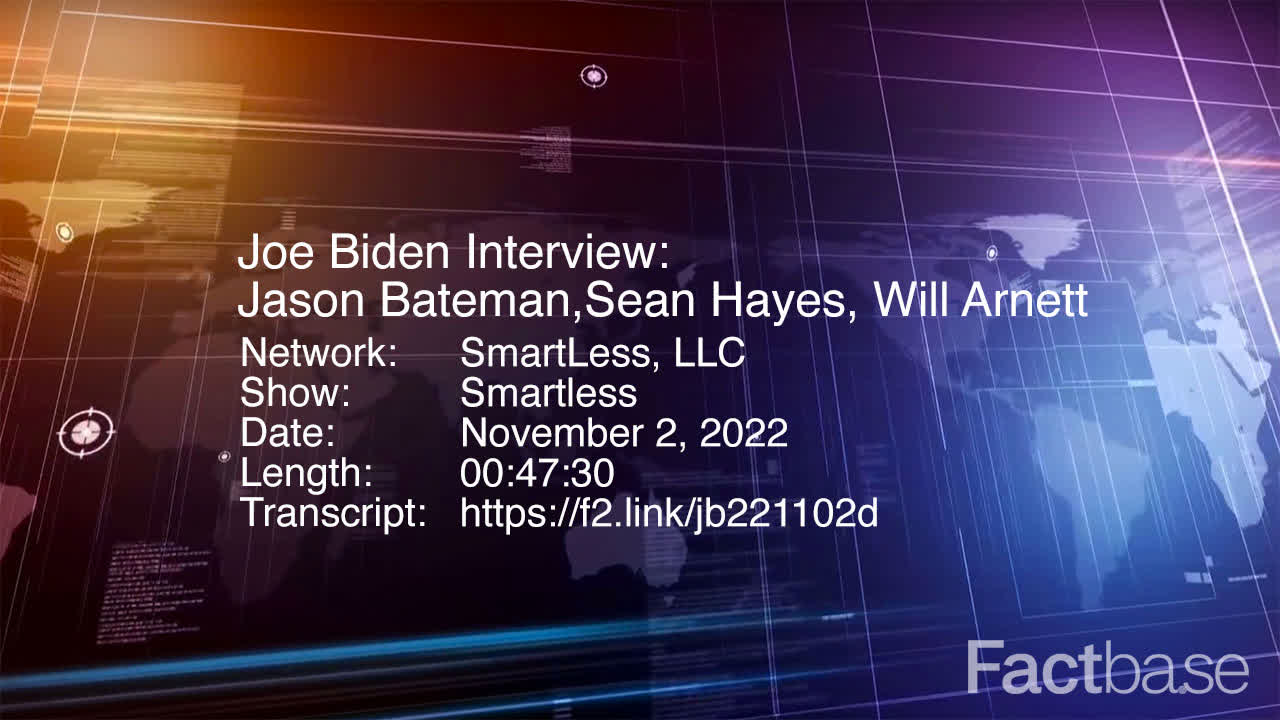
00:34:26-00:34:27 (2 sec)

"What's that got to do with inflation?"
378
Will Arnett
Slightly Positive
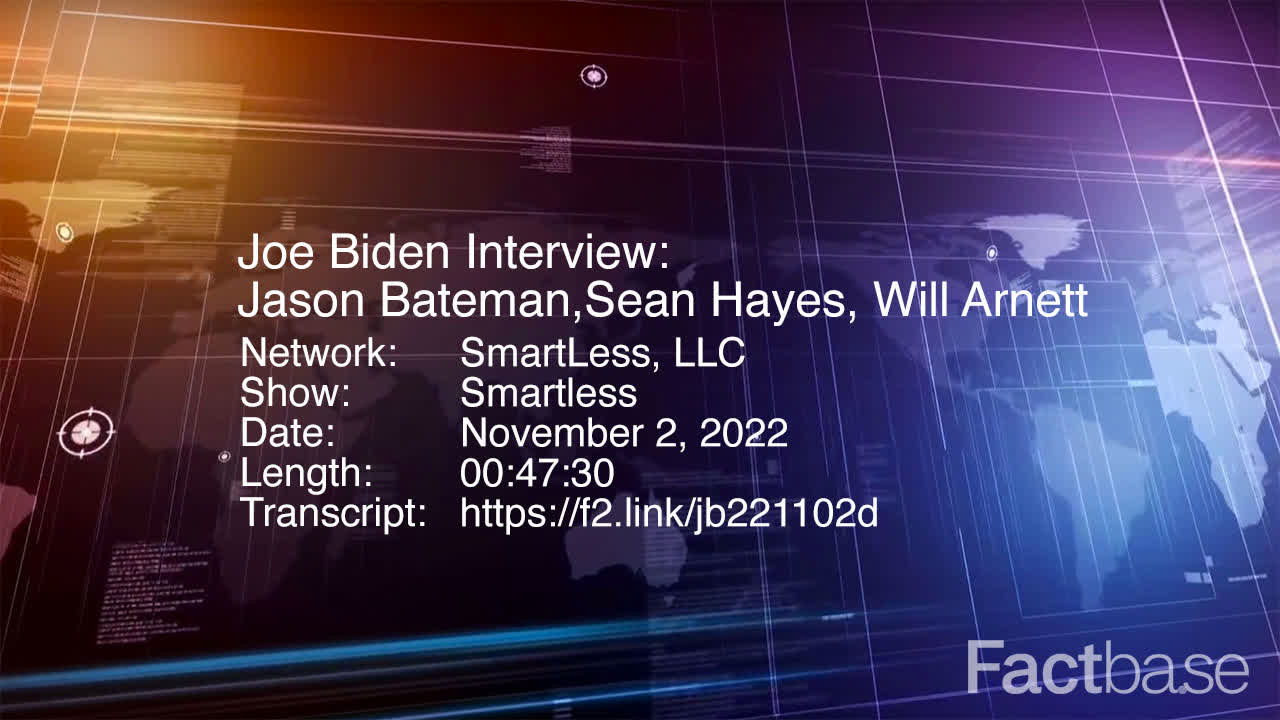
00:34:27-00:34:28 (1 sec)

"Oh my God."
379
Sean Hayes
Leans Negative
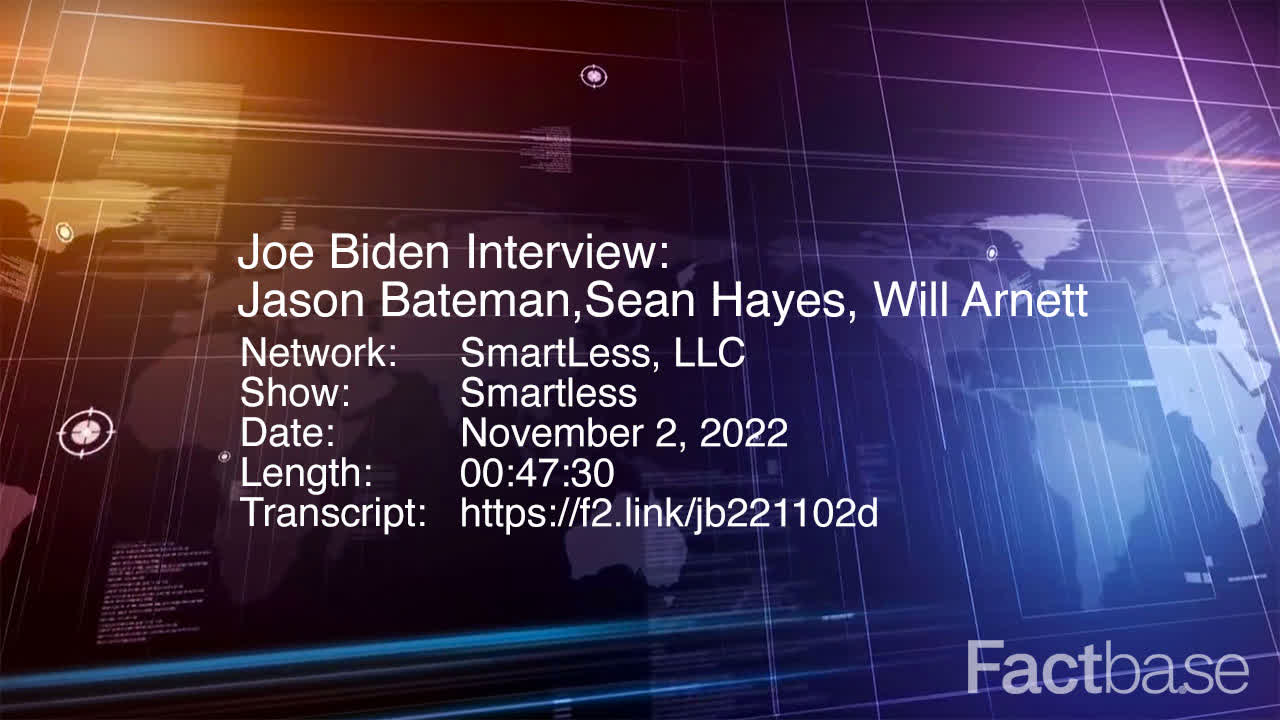
00:34:28-00:34:33 (5 sec)

"No, it's inside the Inflation Reduction Act, is the global -- right, it's the global warming thing."
380
Jason Bateman
Neutral
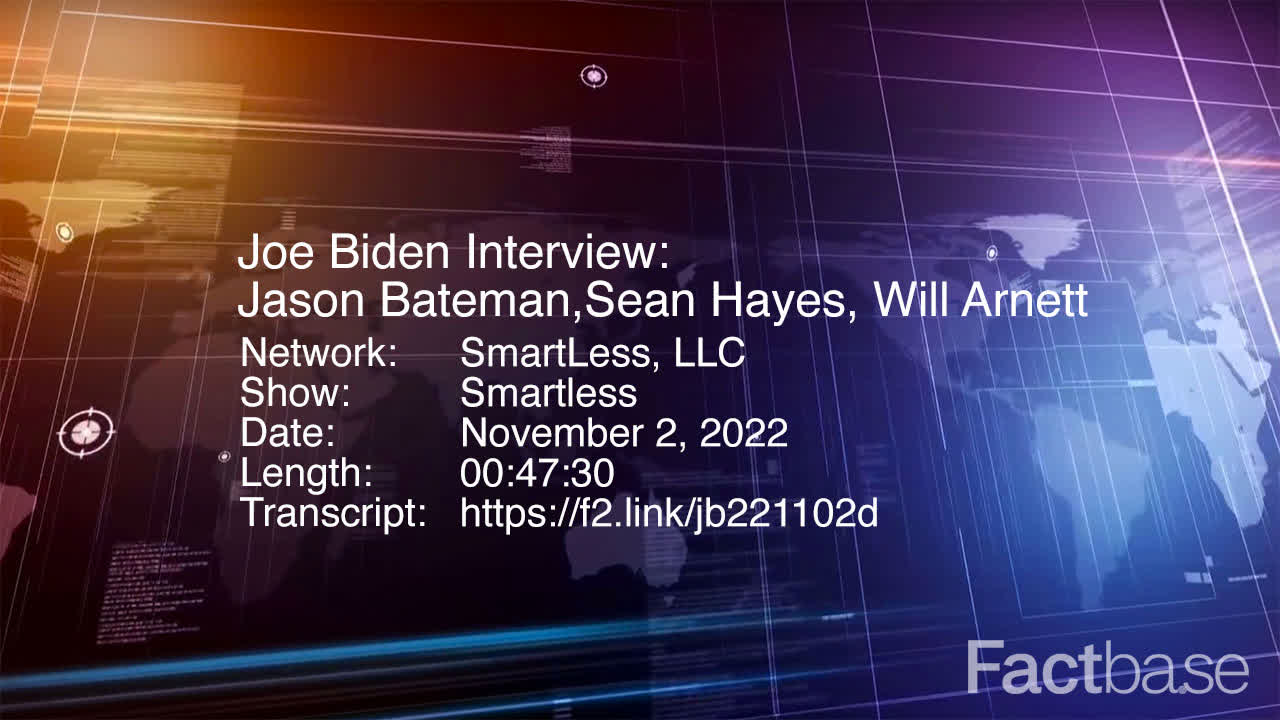
00:34:33-00:34:33 (1 sec)

"I'll [Inaudible]"
381
Sean Hayes
Very Positive
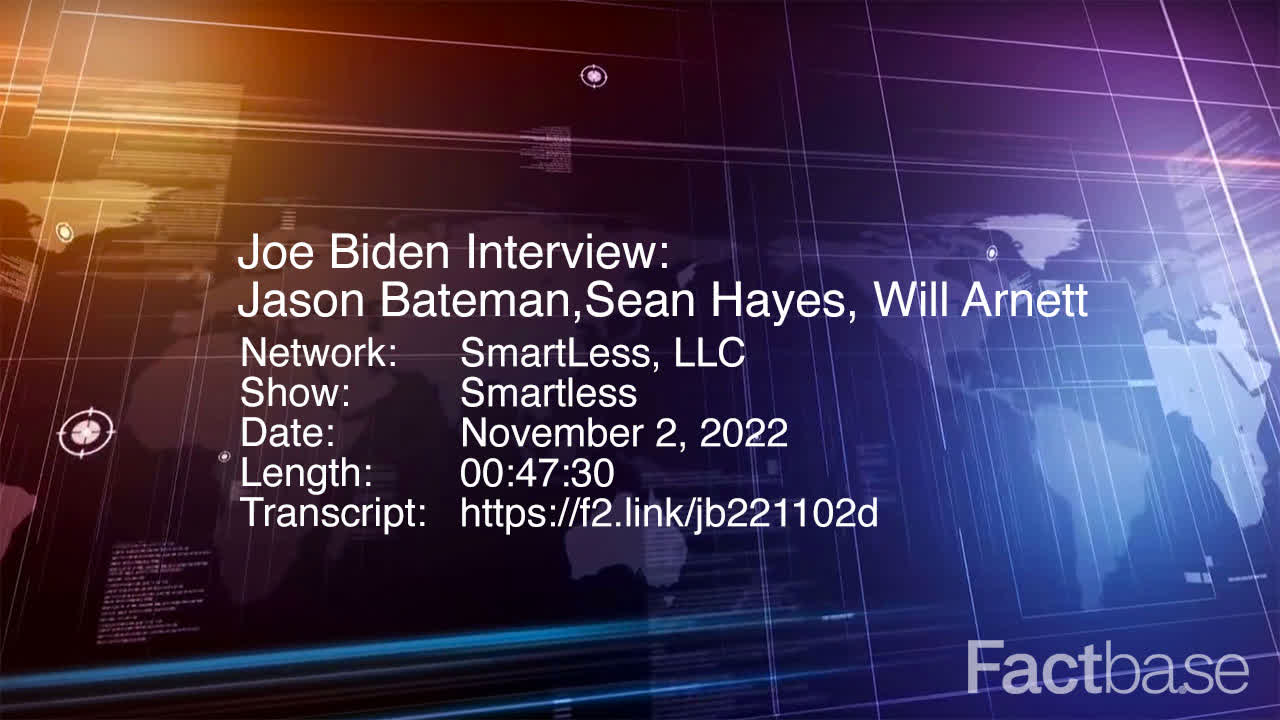
00:34:33-00:34:39 (6 sec)

"But -- but is there -- is -- is the ship sailed on fixing this climate thing, like, oh, is there anything we can do?"
382
Will Arnett
Neutral
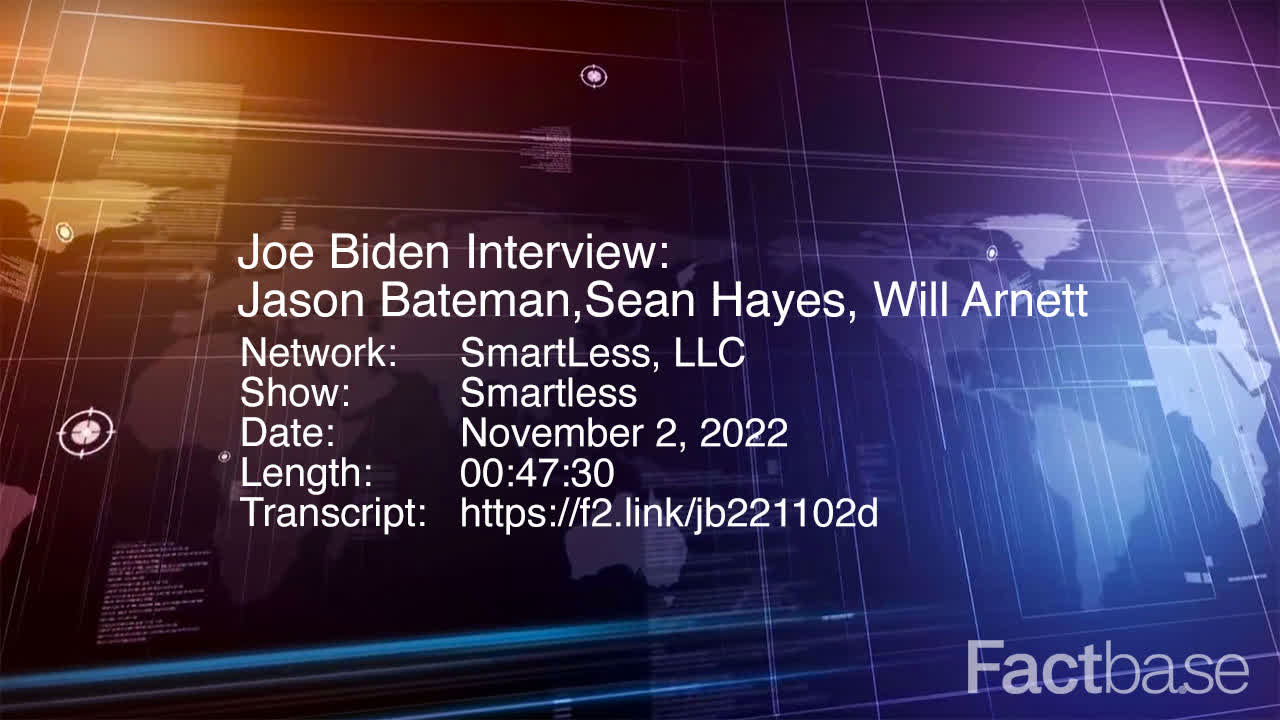
00:34:39-00:34:41 (2 sec)

"Oh, you mean, should we just give up?"
383
Sean Hayes
Slightly Negative
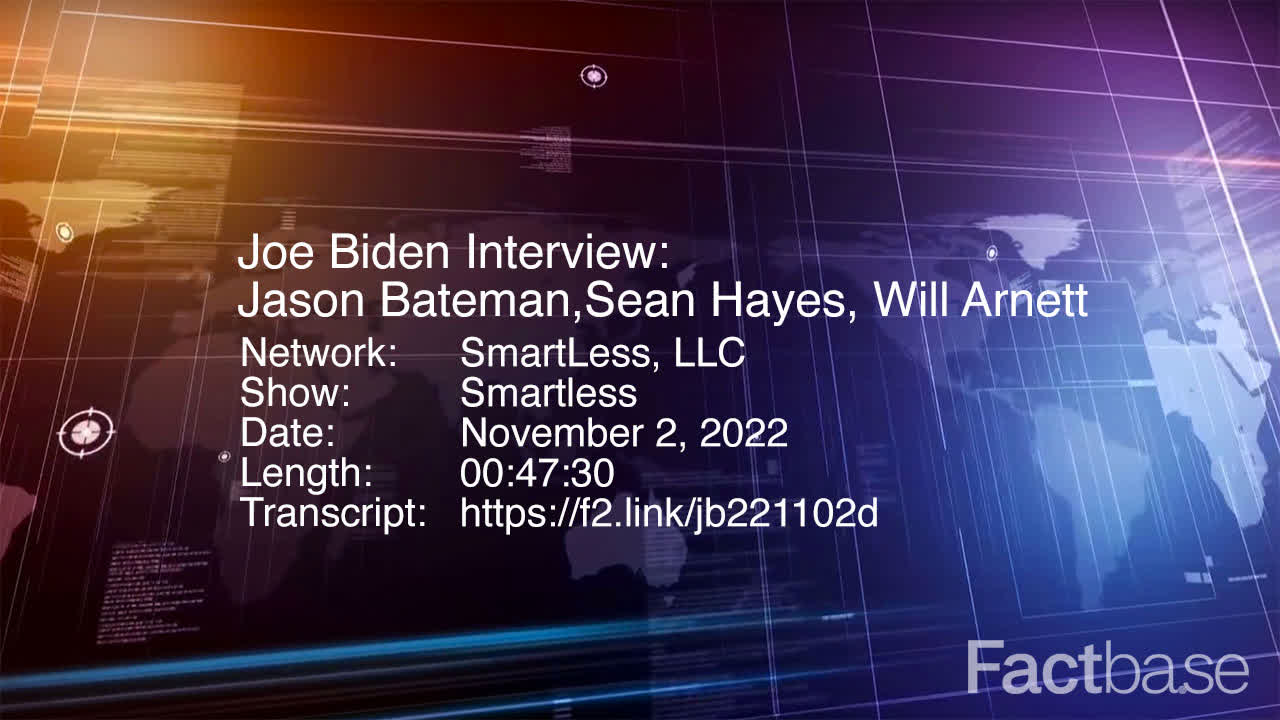
00:34:41-00:34:41 ( sec)

"No."
384
Will Arnett
Neutral
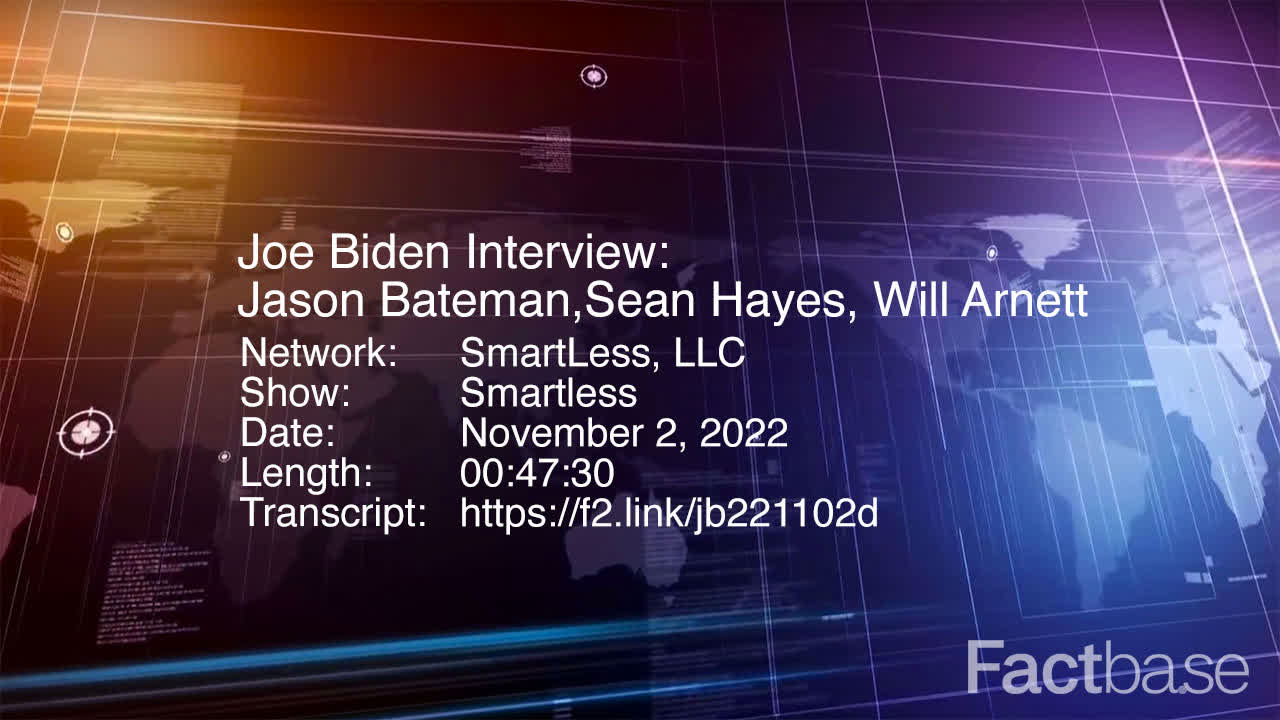
00:34:41-00:34:43 (2 sec)

"You're asking the president --"
385
Sean Hayes
Very Positive
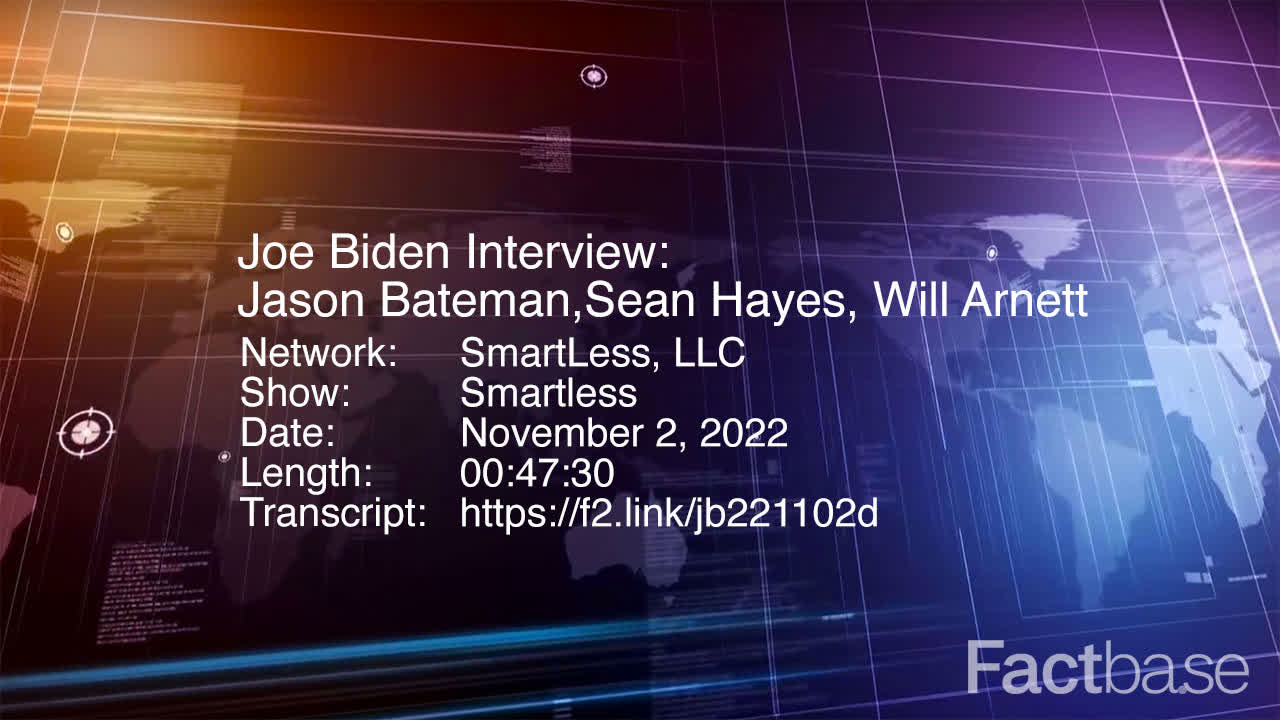
00:34:43-00:34:47 (4 sec)

"No, I meant like what -- is there -- is there any hope? Is there any hope?"
386
Joe Biden
Positive
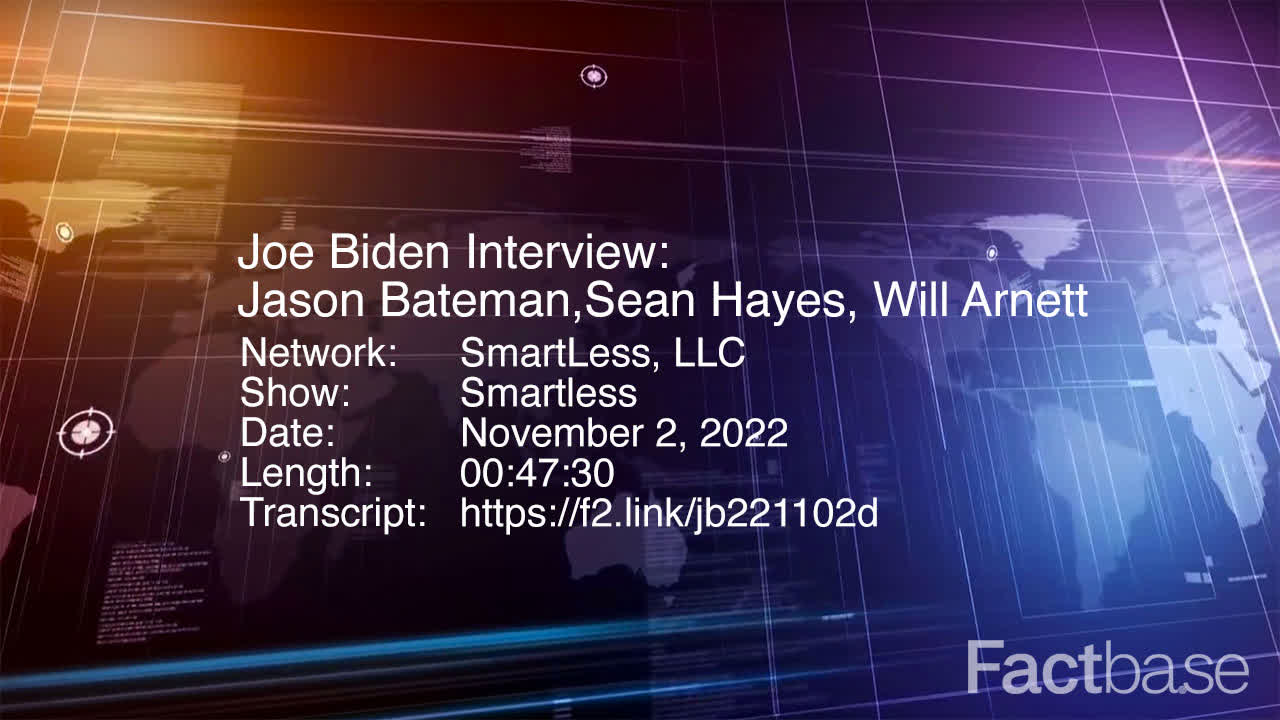
00:34:47-00:34:48 (2 sec)

"There's a lot of hope."
387
Sean Hayes
Very Positive
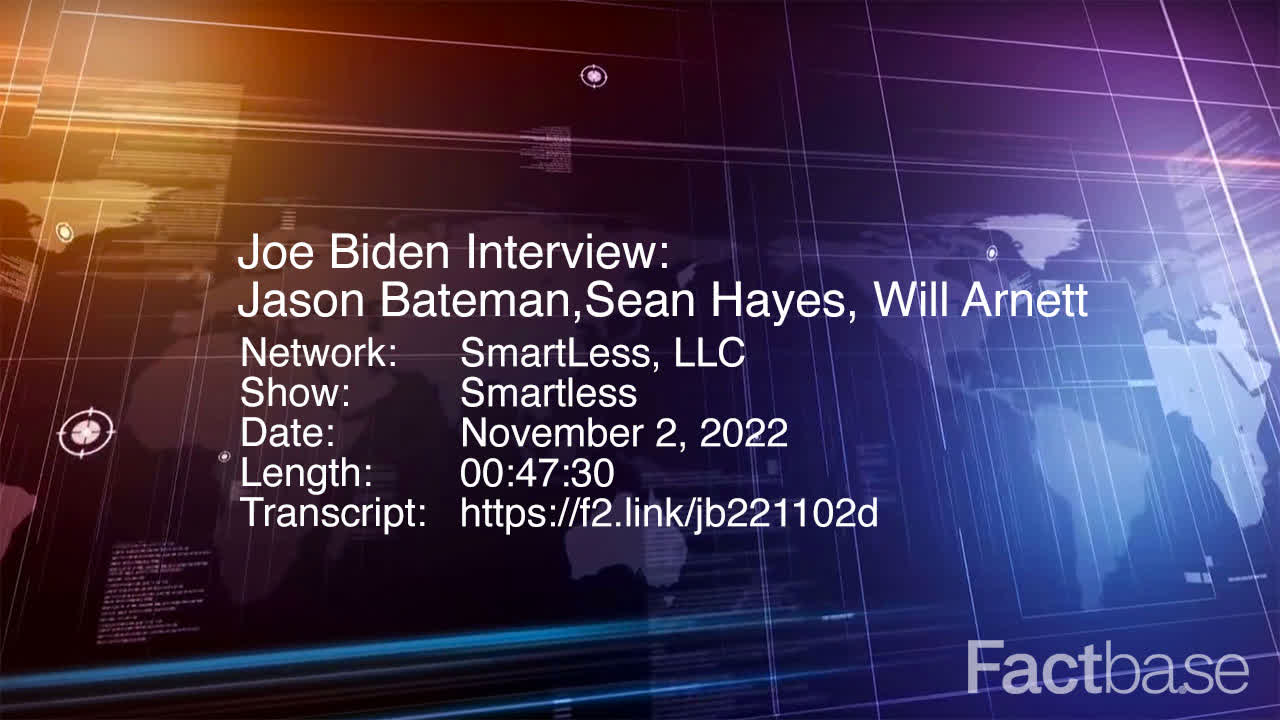
00:34:48-00:34:49 (1 sec)

"OK, good."
388
Joe Biden
Positive
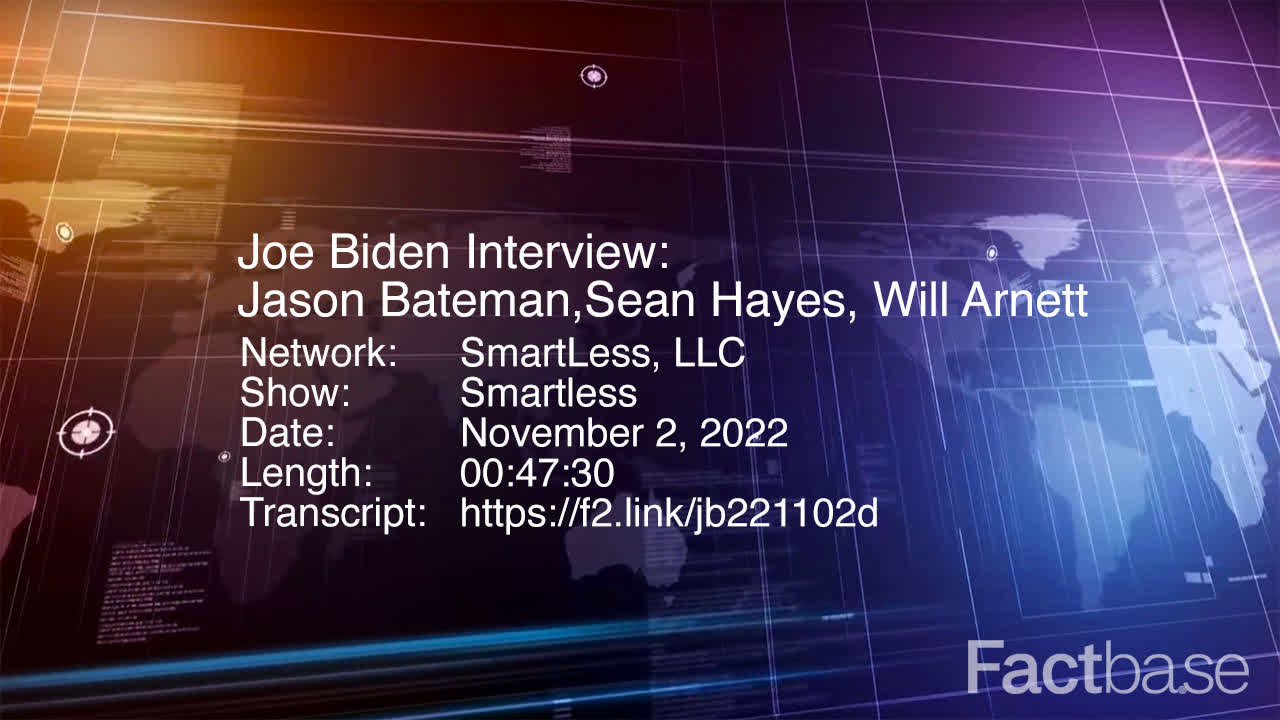
00:34:49-00:34:53 (4 sec)

"There's a lot of hope because two things. For example, I'm out here --"
389
Jason Bateman
Positive
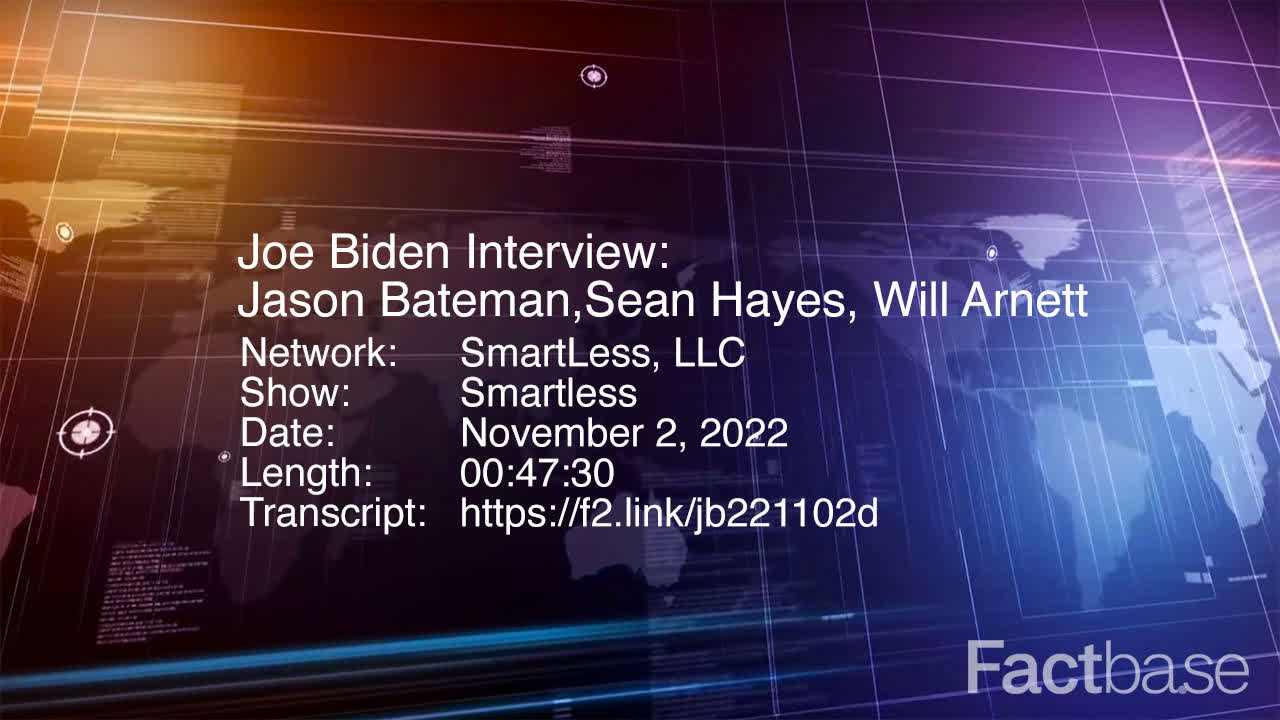
00:34:53-00:34:55 (2 sec)

"With you on the wheel there's hope."
390
Joe Biden
Slightly Positive
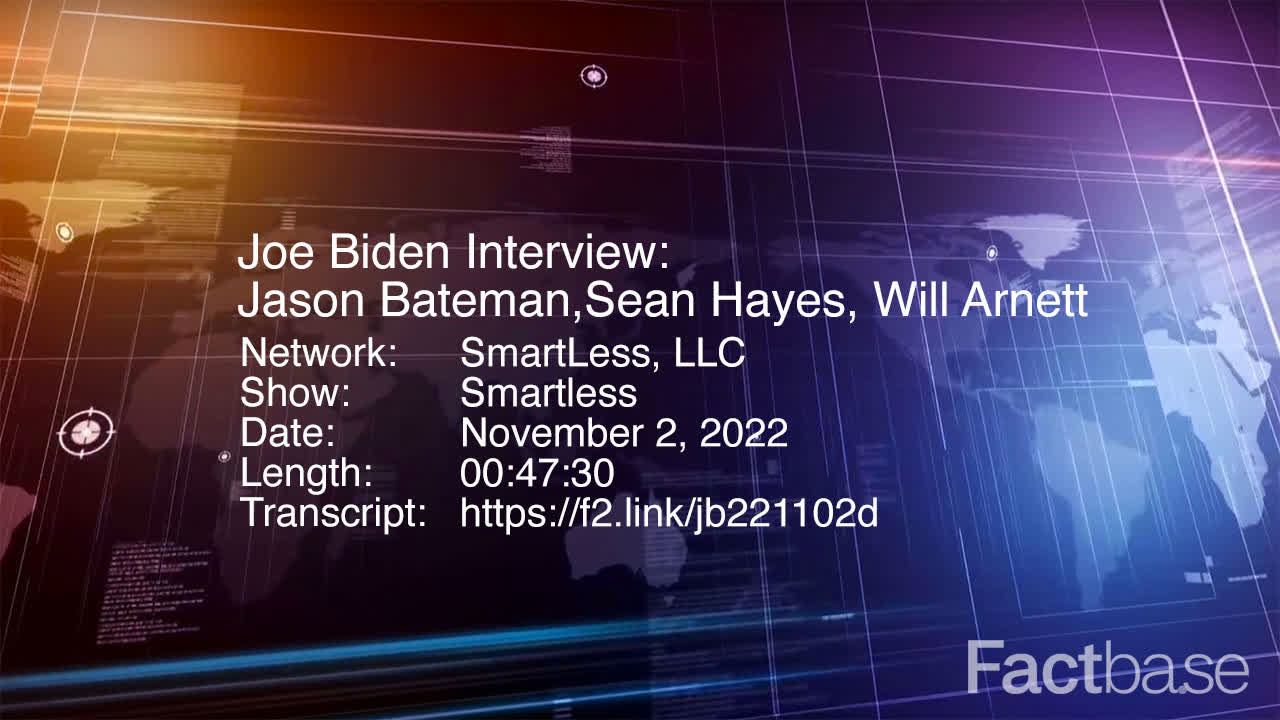
00:34:55-00:34:59 (4 sec)

"Well, I'm out here today with Congresswoman Bass -- Karen Bass --"
391
Jason Bateman
Slightly Positive
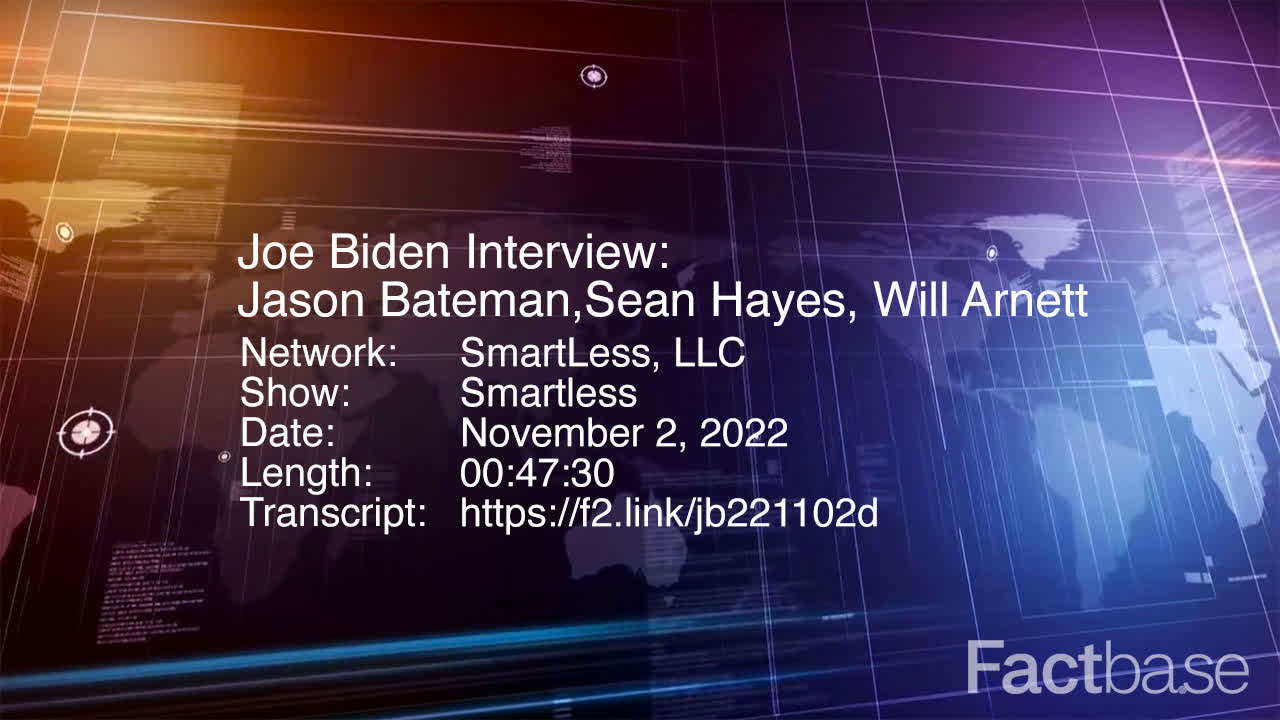
00:34:59-00:34:59 (1 sec)

"Yeah."
392
Joe Biden
Neutral
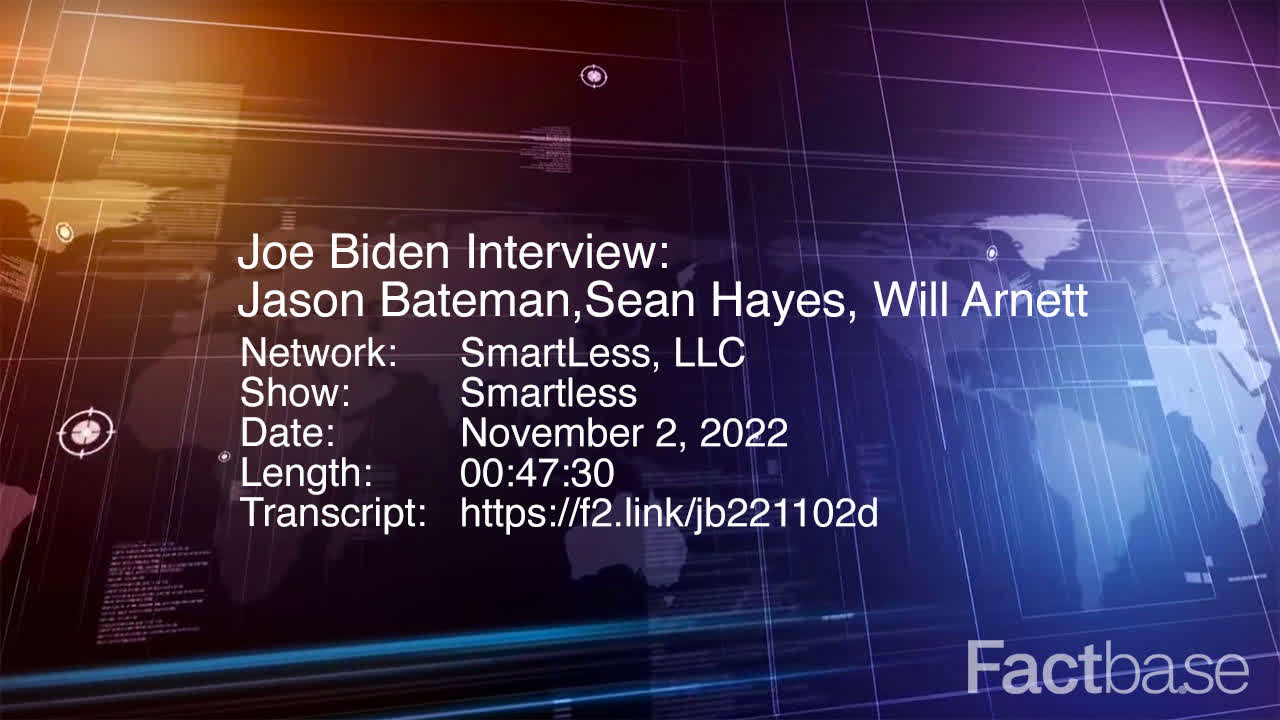
00:34:59-00:35:04 (5 sec)

"And I go over. They have a rapid transit system here that needs a lot of work."
393
Jason Bateman
Slightly Positive
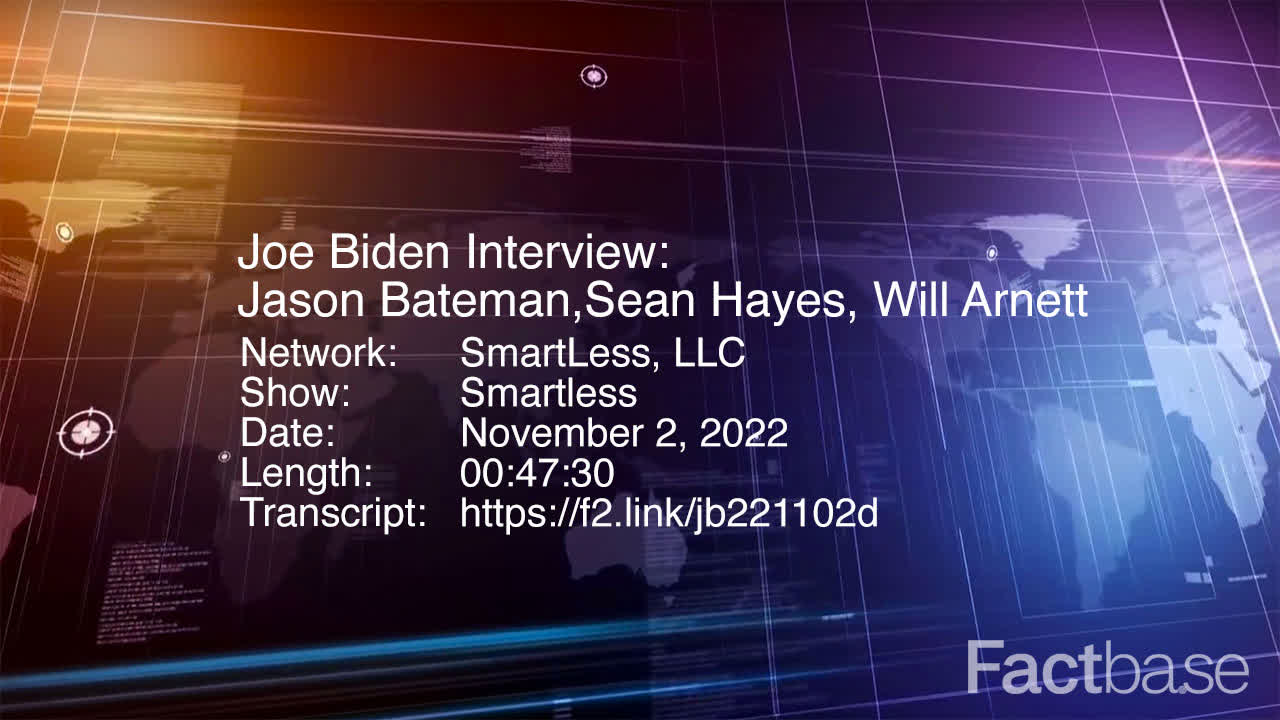
00:35:04-00:35:05 (1 sec)

"Yeah."
394
Joe Biden
Positive
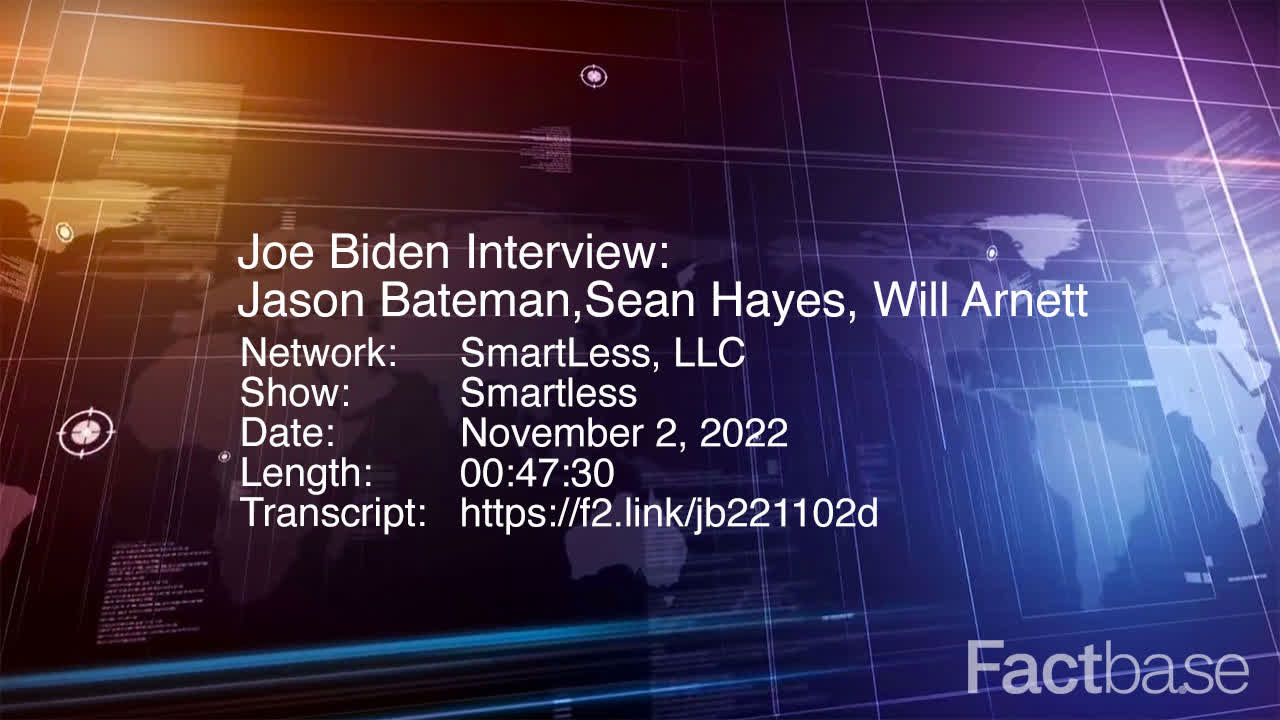
00:35:05-00:35:20 (16 sec)

"Well, we're going to spend $9 billion making a change. But here's the deal. It's estimated to take 124,000 tons out of the air. Let me back up. If people have a chance to get on a track train."
395
Will Arnett
Slightly Positive
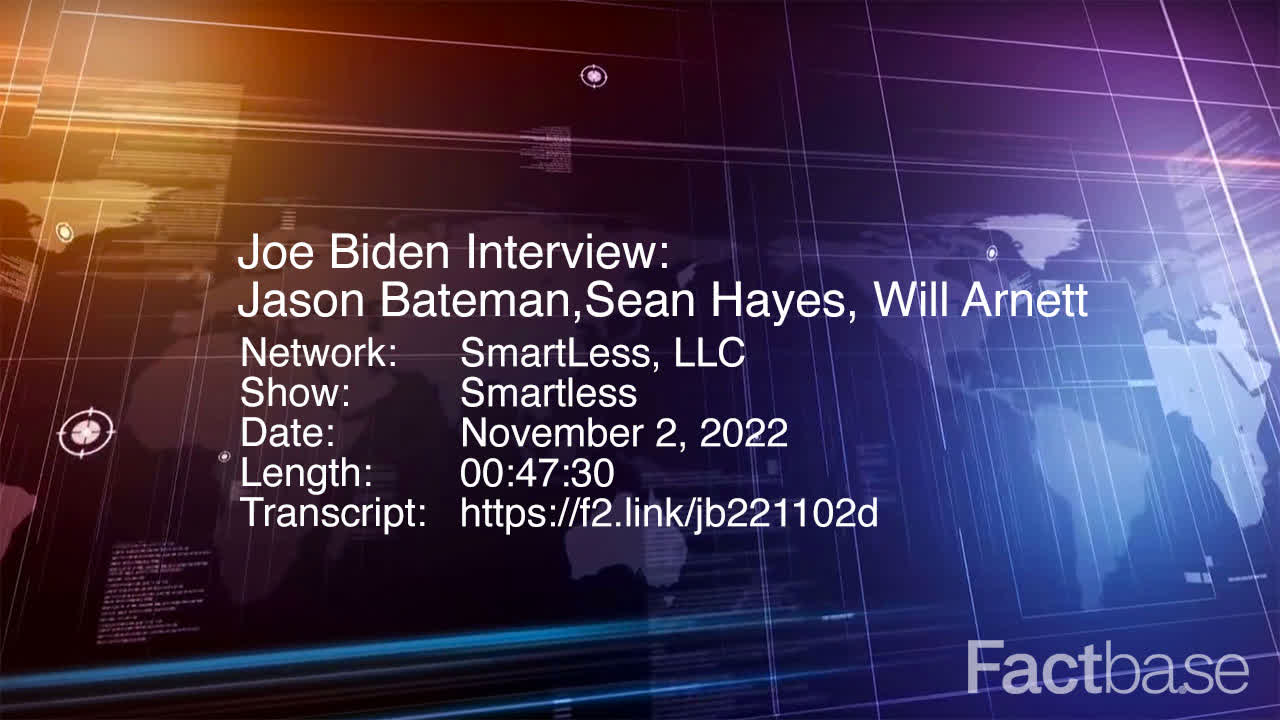
00:35:20-00:35:21 (1 sec)

"Yeah."
396
Joe Biden
Neutral
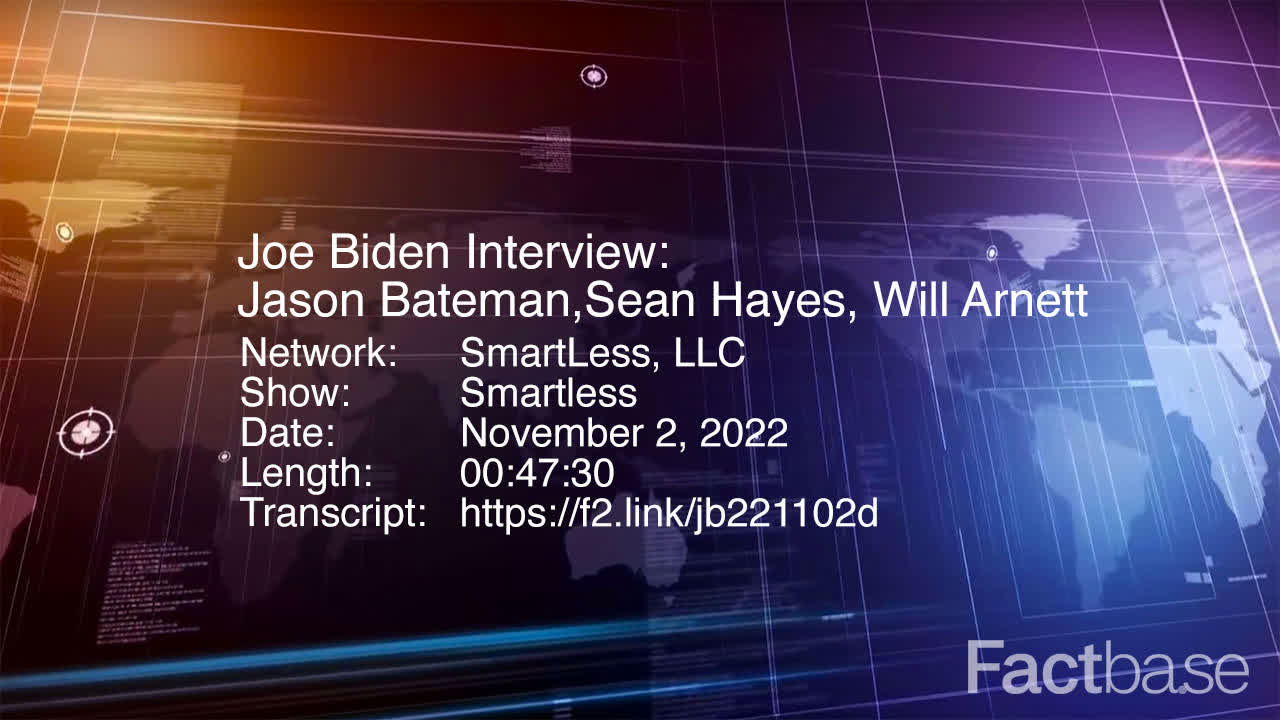
00:35:21-00:35:28 (7 sec)

"And can make it quicker than they can drive in the car, they -- they take the train."
397
Jason Bateman
Neutral
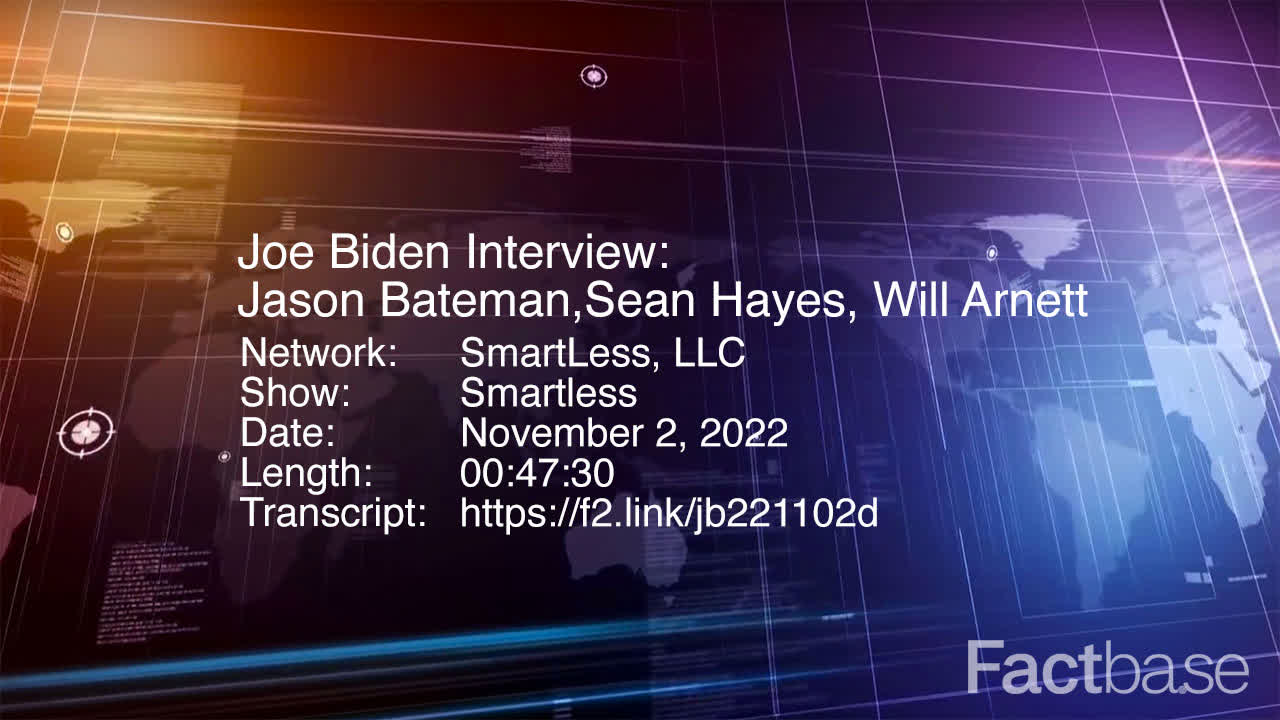
00:35:28-00:35:29 (1 sec)

"[Inaudible] any traffic."
398
Joe Biden
Neutral
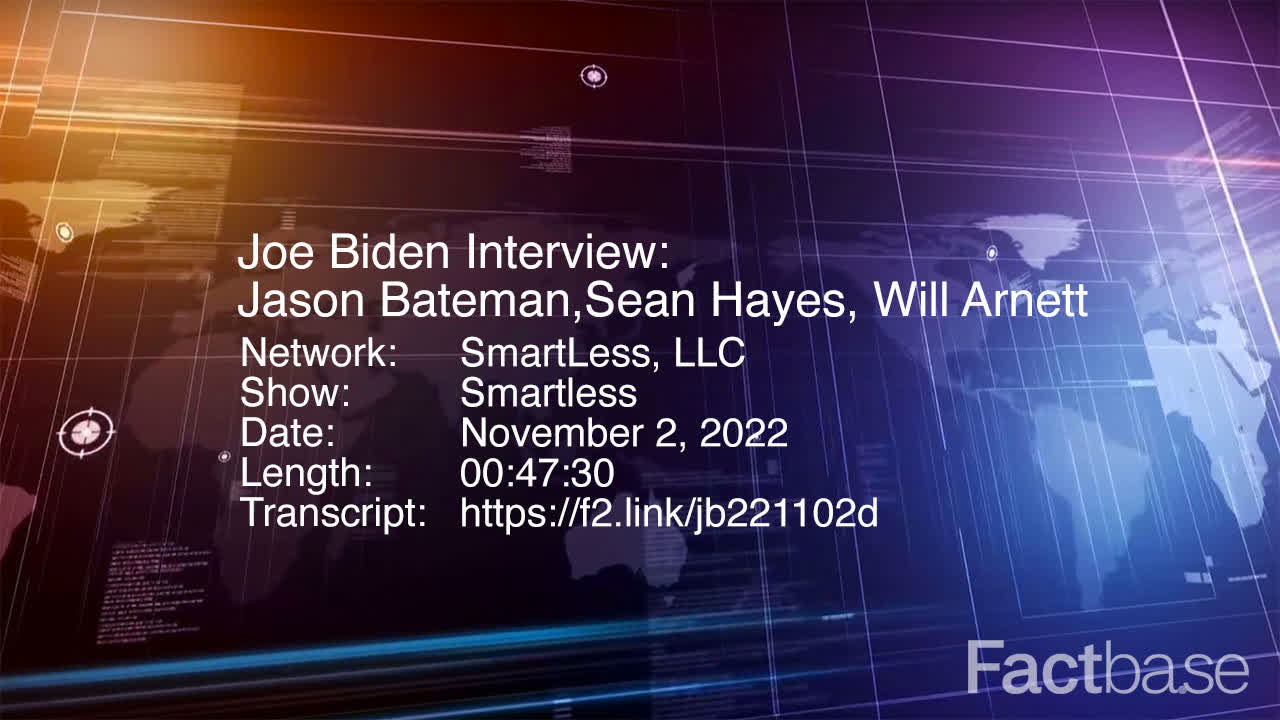
00:35:29-00:35:47 (18 sec)

"And -- and I'm a big train guy, and I -- we've gotten billions of dollars more from -- we're spending more in Amtrak than Amtrak initially was spent, and it's all just getting underway. But it's fundamental changes that are going to be taking place."
399
Will Arnett
Slightly Positive
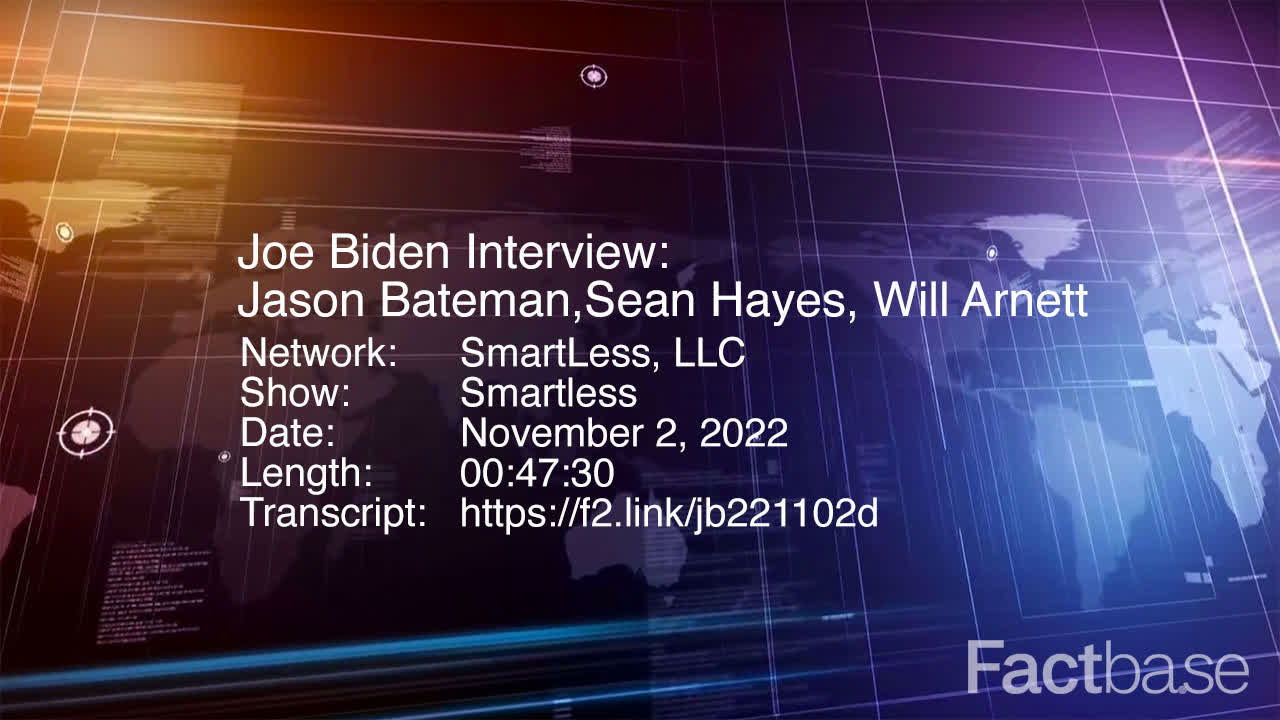
00:35:47-00:35:48 (1 sec)

"Yeah."
400
Joe Biden
Neutral
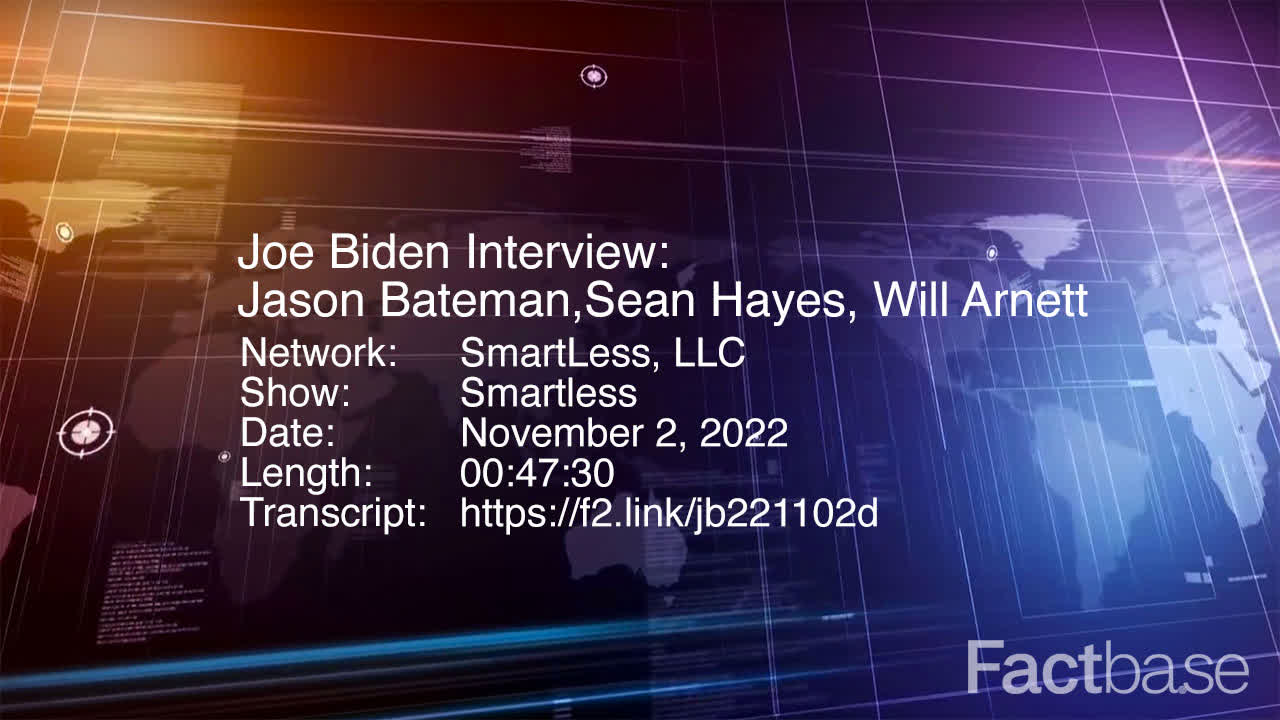
00:35:48-00:35:49 (1 sec)

"And --"
401
Sean Hayes
Neutral
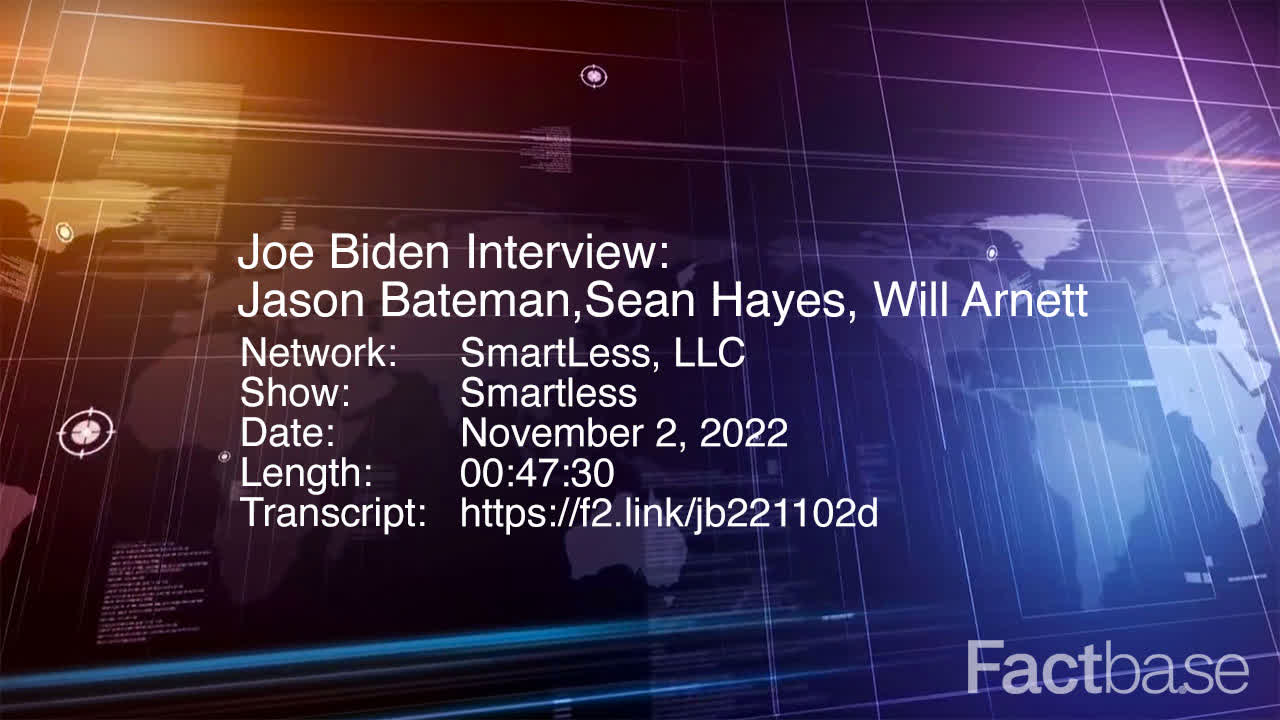
00:35:49-00:35:55 (6 sec)

"And it really does work, too. I -- I noticed during COVID when everyone was having to stay inside here in LA --"
402
Joe Biden
Slightly Positive
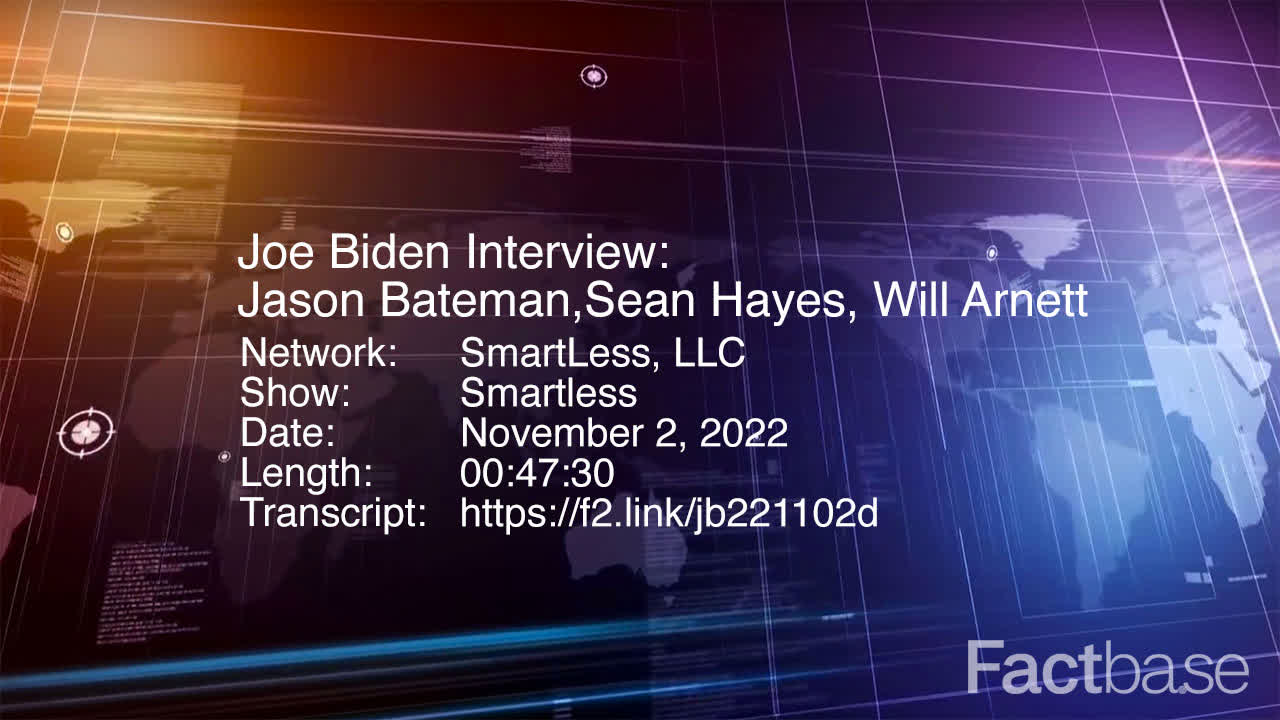
00:35:55-00:35:56 (1 sec)

"Oh, yeah."
403
Sean Hayes
Somewhat Positive
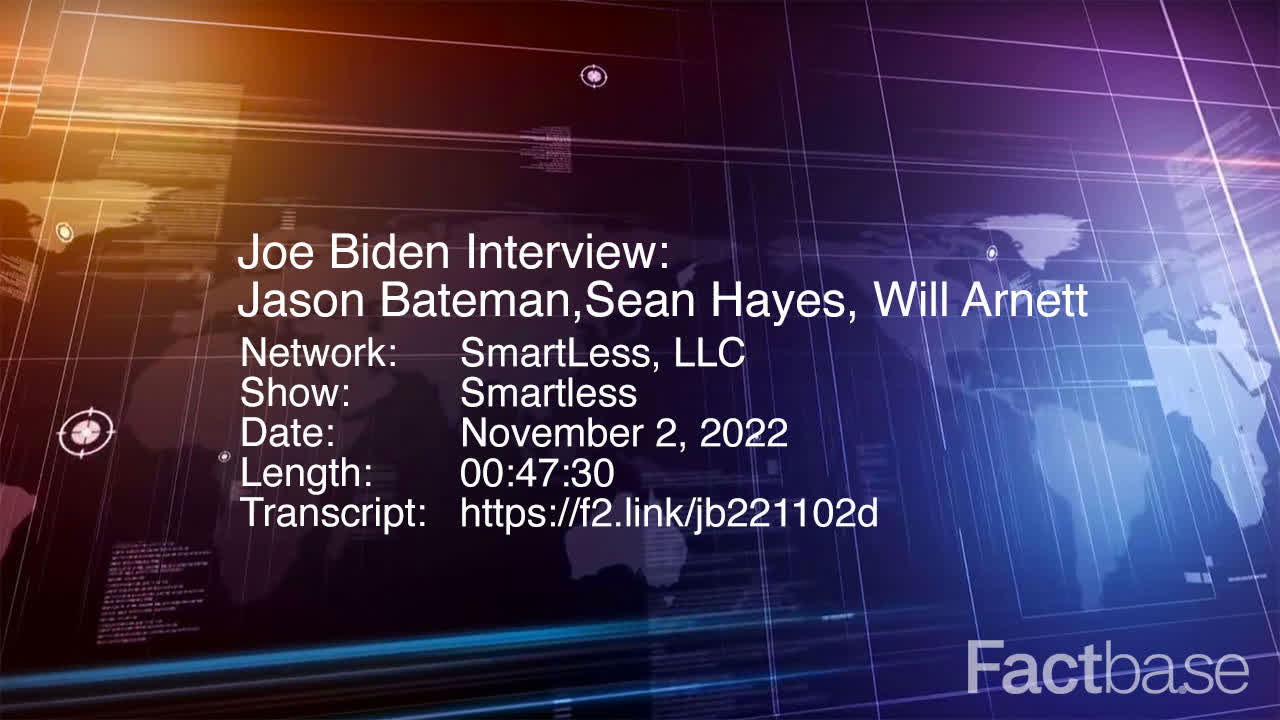
00:35:56-00:35:59 (3 sec)

"The -- the skies were -- in -- in a week, they were crystal clear. It really does work."
404
Will Arnett
Very Negative
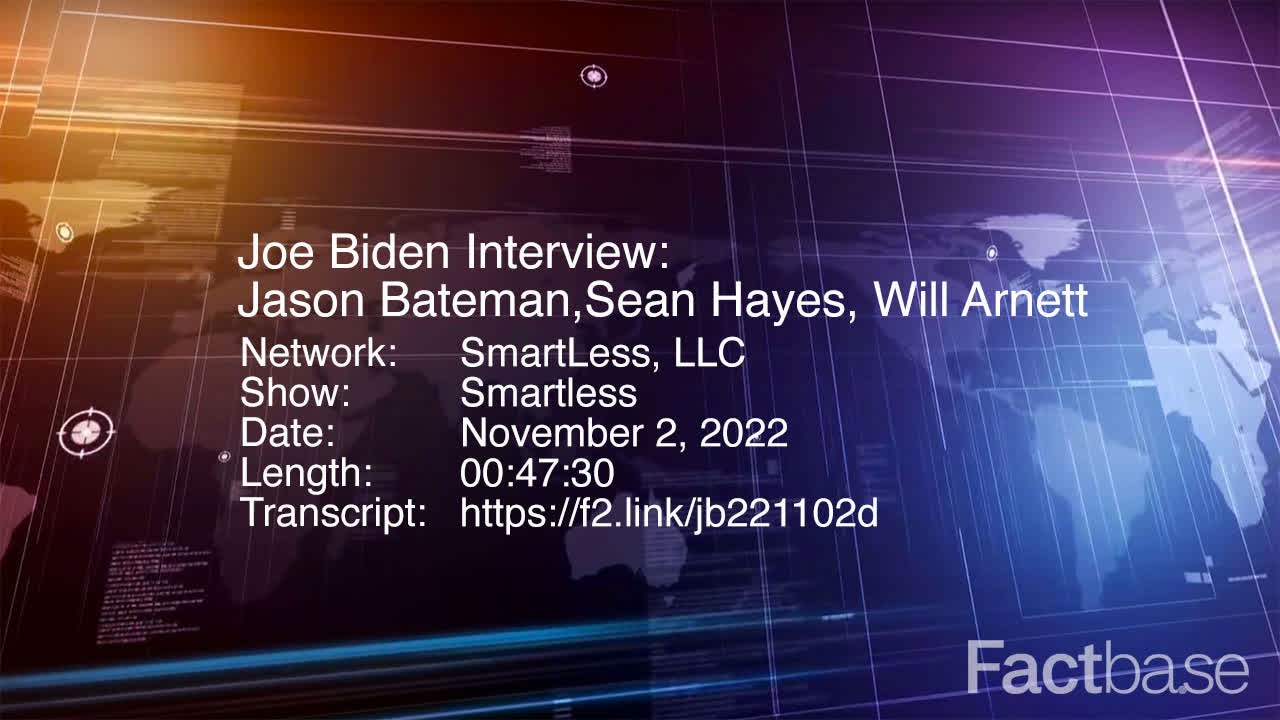
00:35:59-00:36:09 (10 sec)

"No, I thought you were going to say I noticed, too, that the roads were really empty, and I could just bomb around. No, but they were. The air out here, as you know, historically --"
405
Joe Biden
Neutral
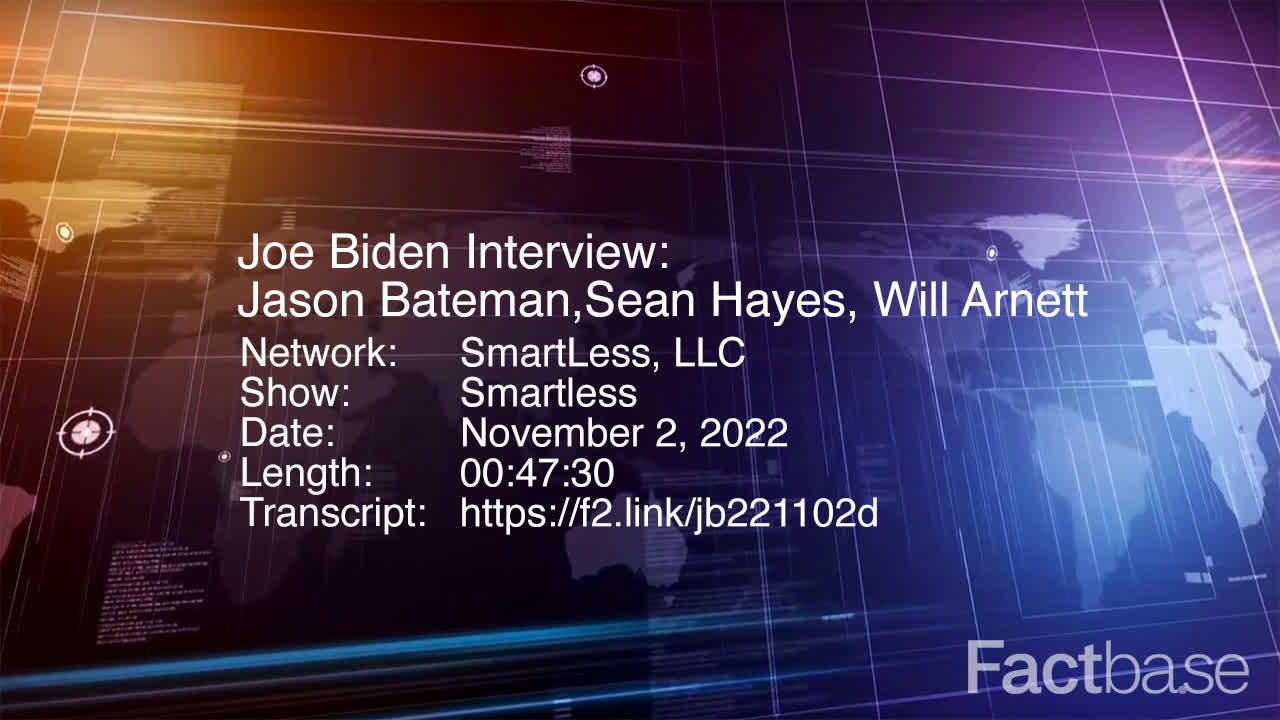
00:36:09-00:36:15 (6 sec)

"Oh, I know. And this is going to be -- it's going to be a game-changer. It's going to take --"
406
Sean Hayes
Slightly Positive

00:36:15-00:36:17 (2 sec)

"Yeah, I'm so excited about it."
407
Joe Biden
Neutral
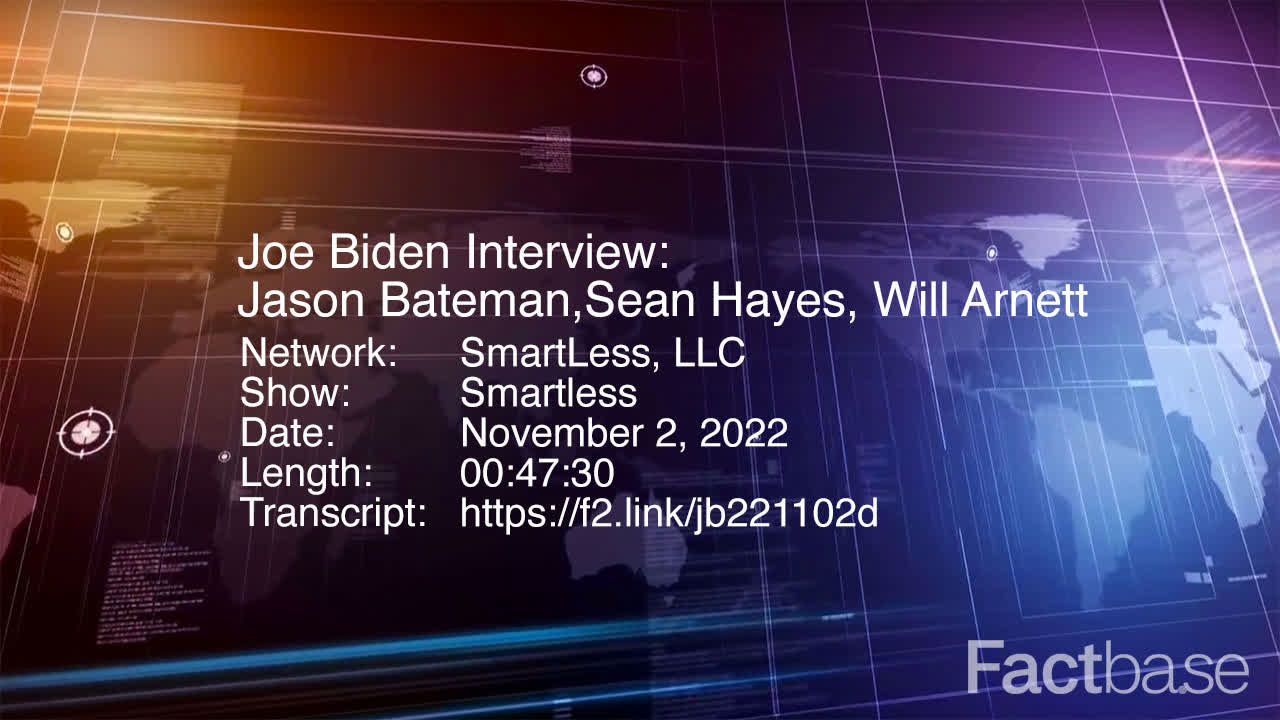
00:36:17-00:36:33 (16 sec)

"And by the way, in addition to the $368 billion for climate in that bill, we also have over $1.2 trillion that we got passed in the -- in the act having to do with dealing with the infrastructure."
408
Sean Hayes
Slightly Positive
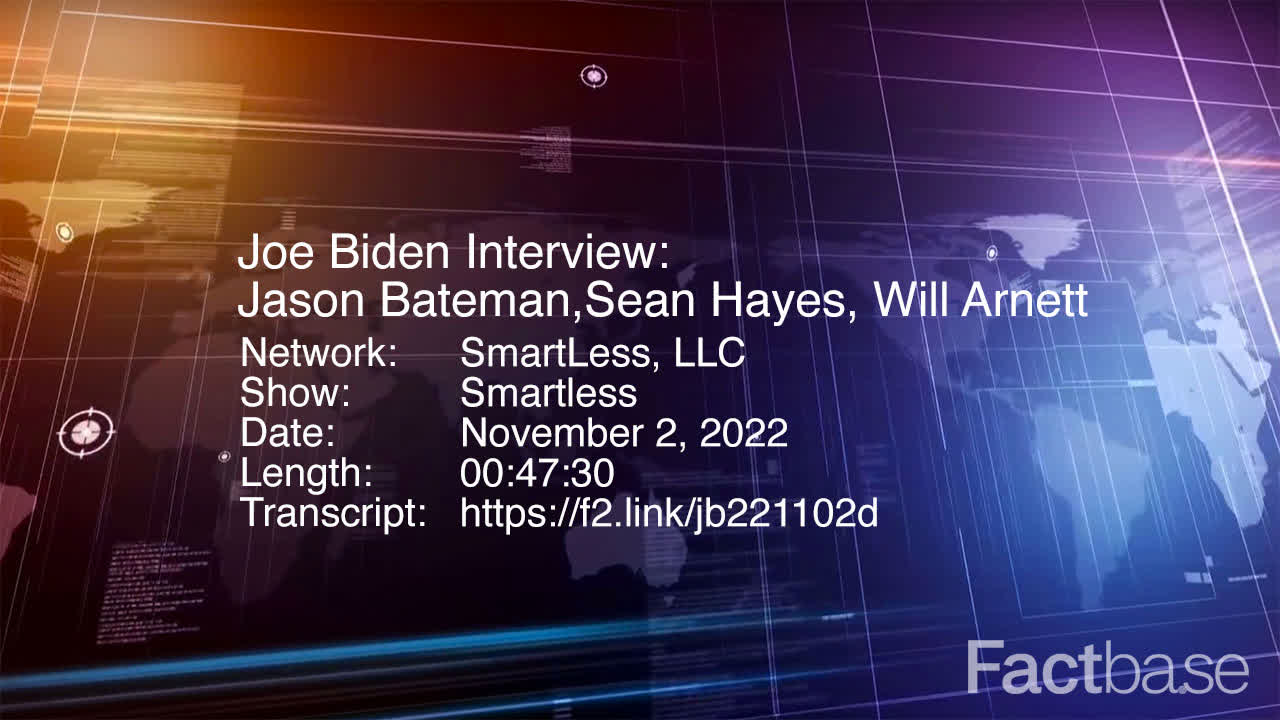
00:36:33-00:36:34 (1 sec)

"Right, yeah."
409
Joe Biden
Very Negative
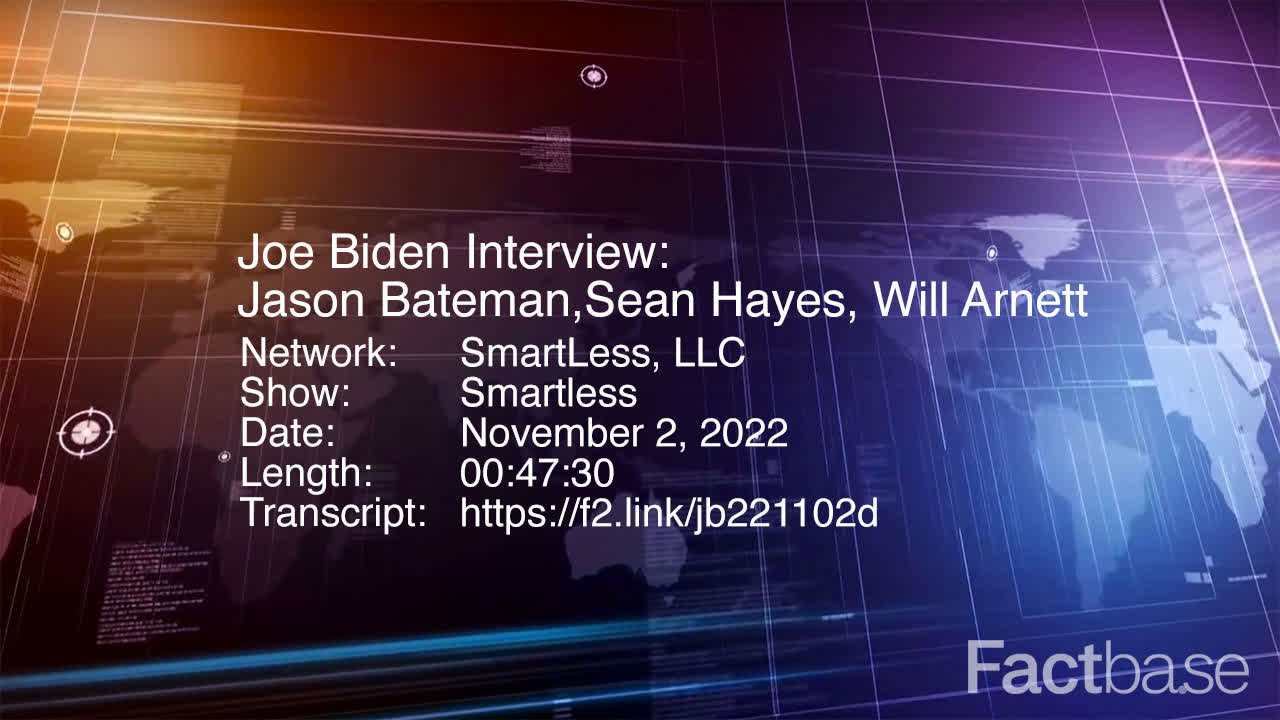
00:36:34-00:36:43 (9 sec)

"We -- we used to rank No. 1 in the world in infrastructure. We're No. 13, for God's sake."
410
Will Arnett
Slightly Positive
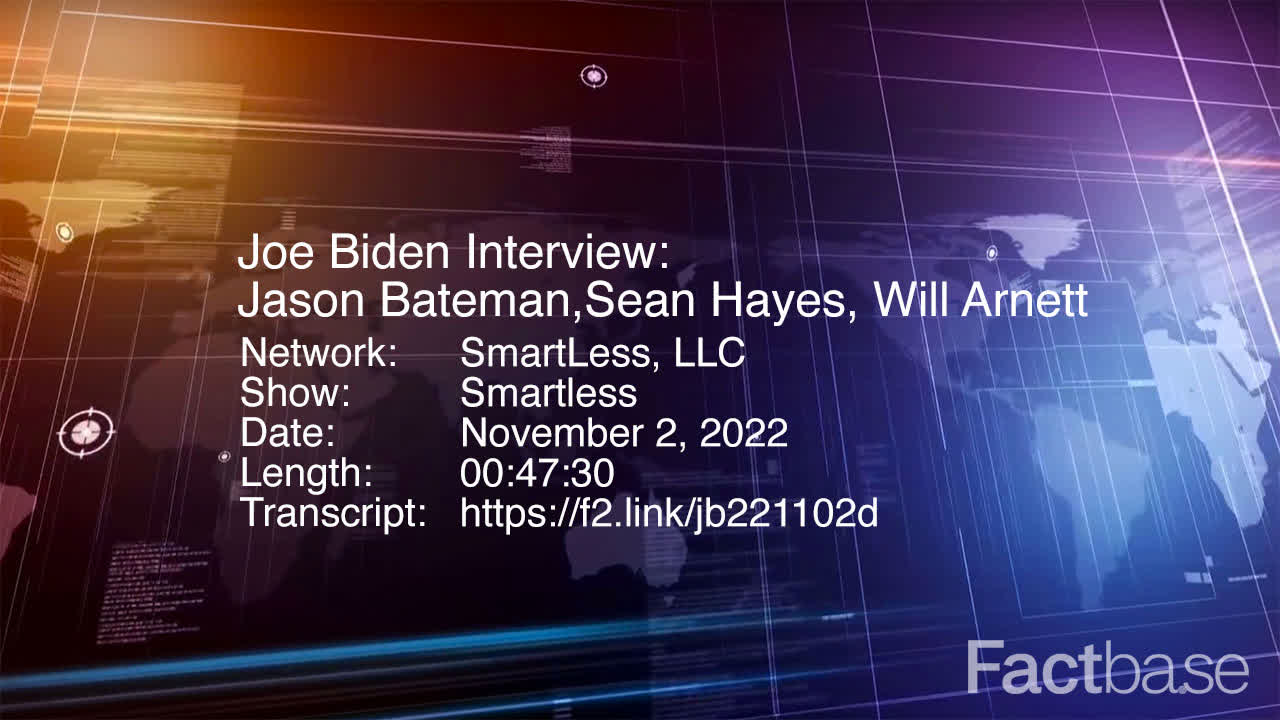
00:36:43-00:36:44 (1 sec)

"Yeah, of course."
411
Joe Biden
Neutral
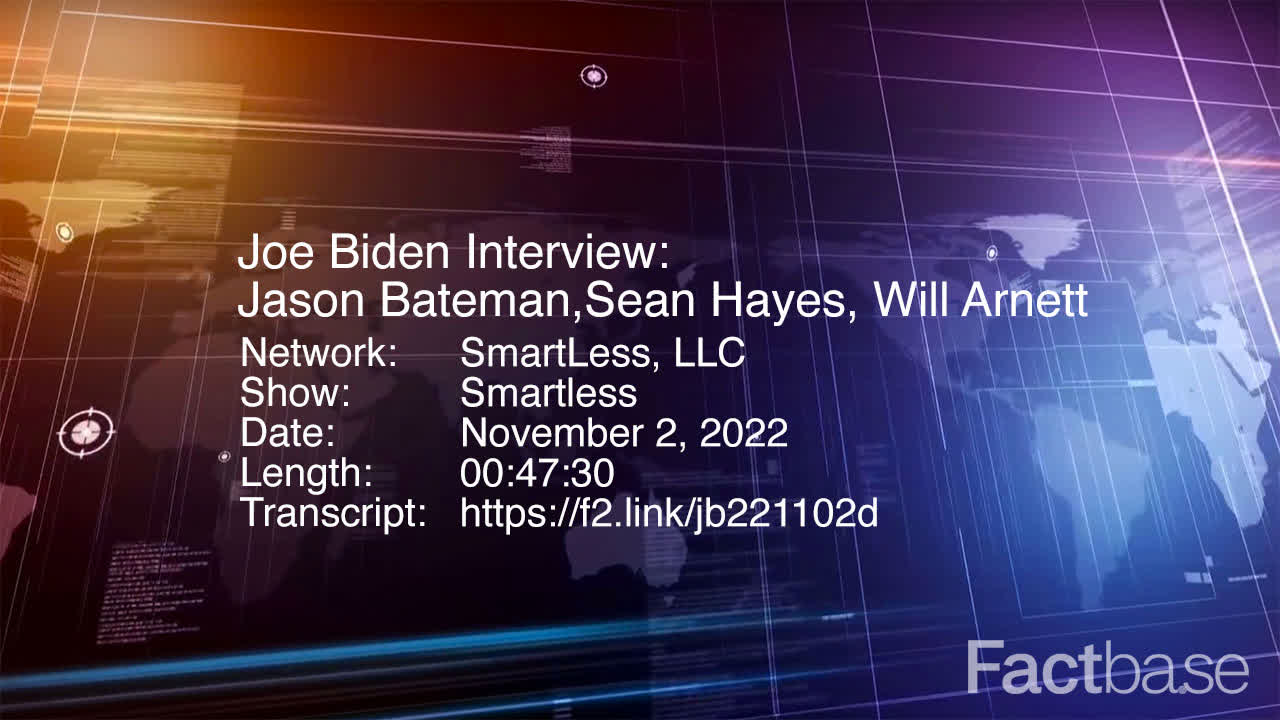
00:36:44-00:36:46 (2 sec)

"We used to -- I mean --"
412
Jason Bateman
Neutral
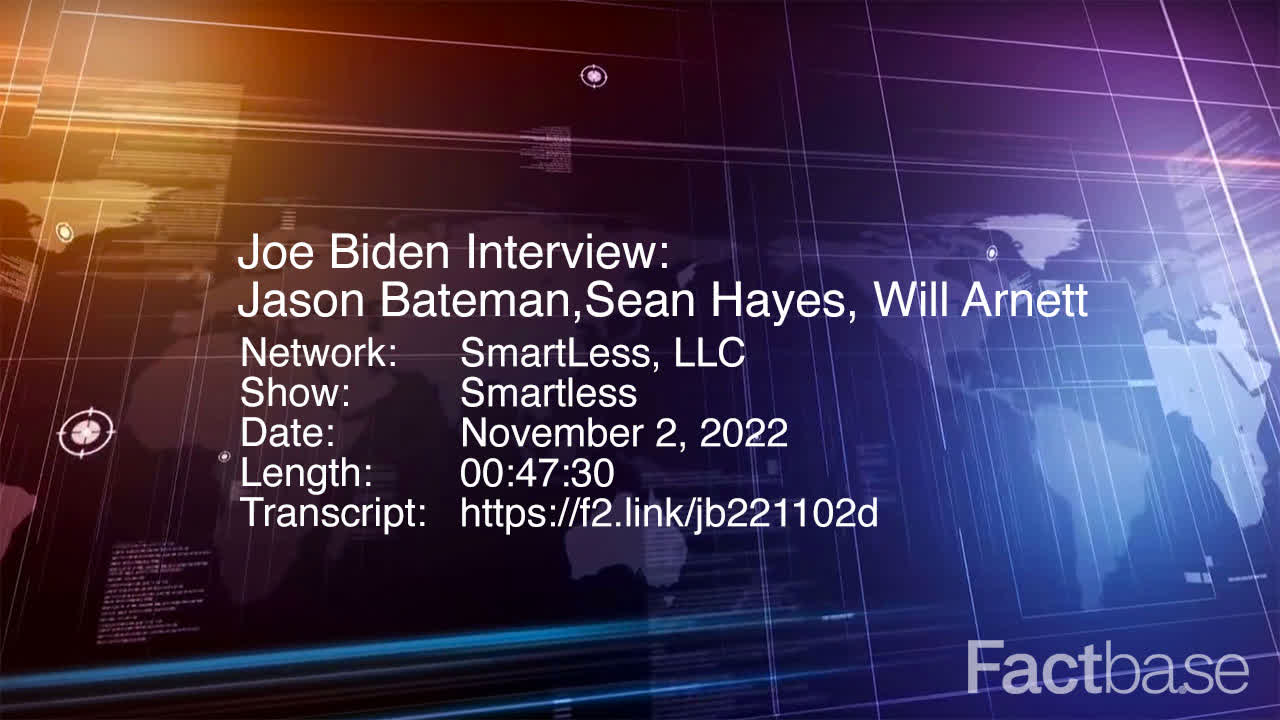
00:36:46-00:36:49 (4 sec)

"And this is a lot of jobs. This is a --"
413
Joe Biden
Very Negative
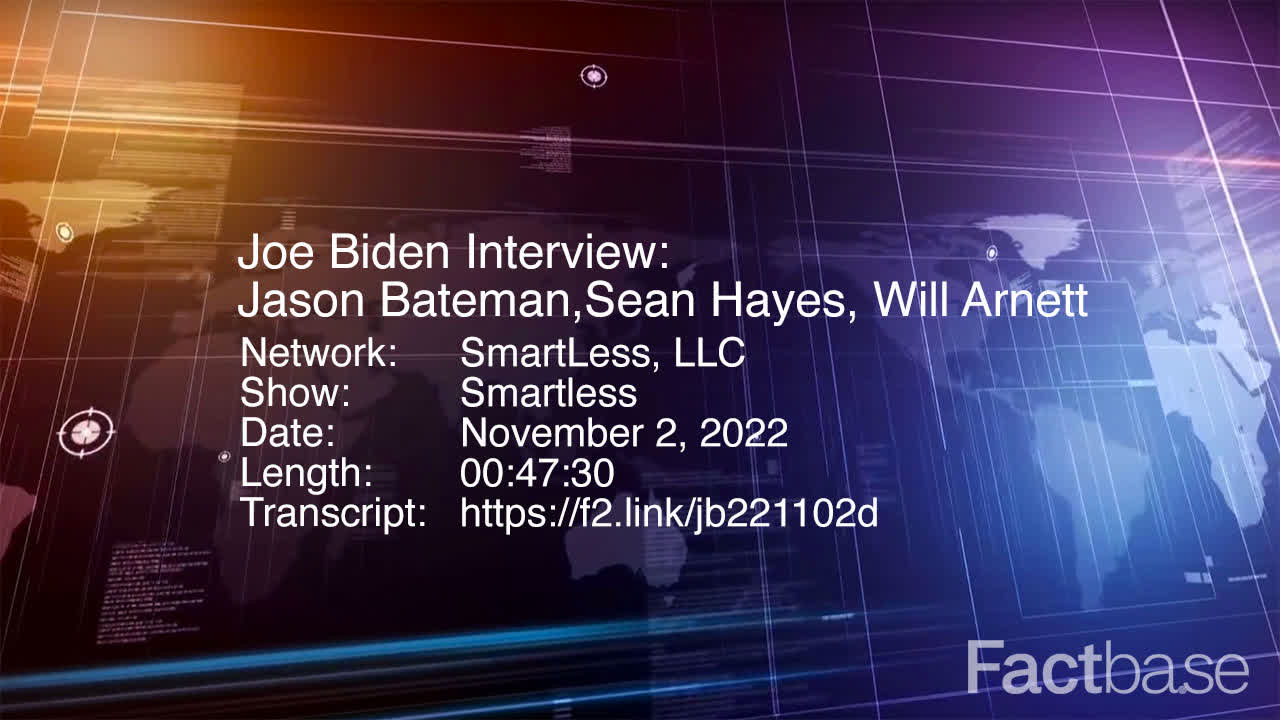
00:36:49-00:37:07 (18 sec)

"A lot of jobs. Literally, we've created more jobs in the first 18 months than any president in history, 700,000 manufacturing jobs. Where the hell does it say America can't be the manufacturing capital of the world?"
414
Jason Bateman
Slightly Positive
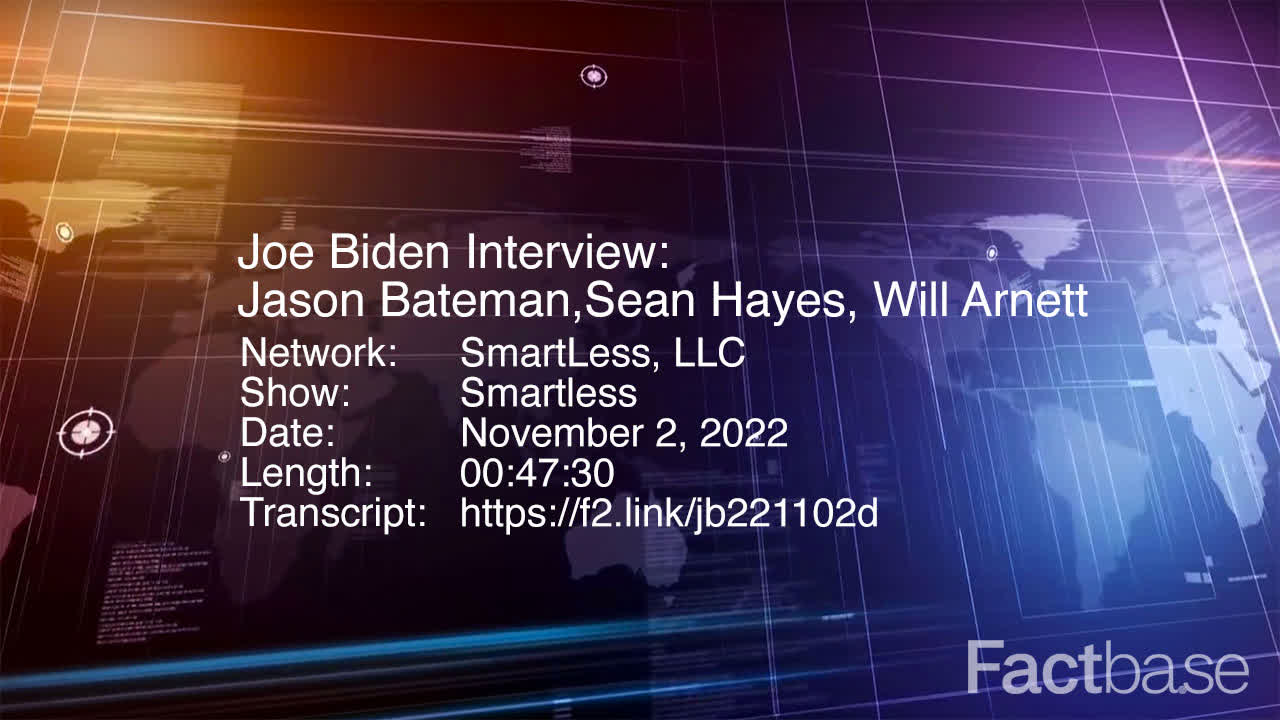
00:37:07-00:37:11 (3 sec)

"Yeah, everyone says manufacturing is gone now, and all that [Inaudible]"
415
Joe Biden
Very Negative
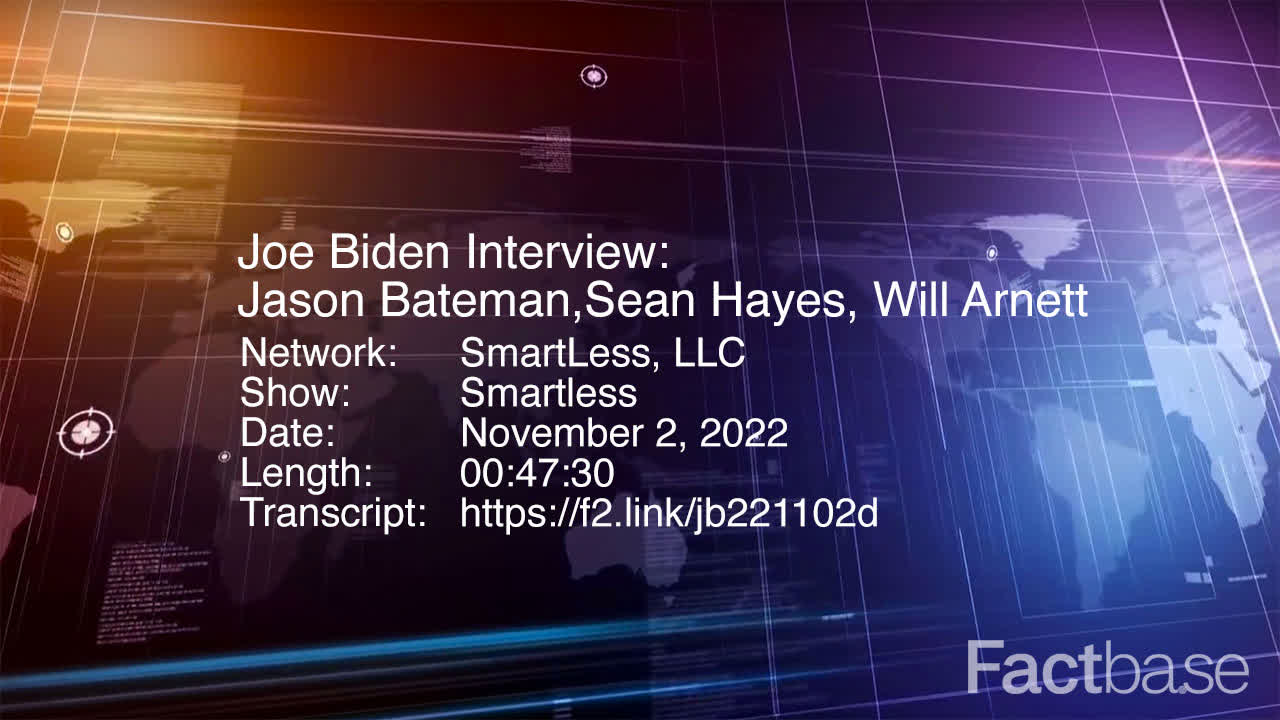
00:37:11-00:37:15 (4 sec)

"No. Wrong, wrong, wrong."
416
Will Arnett
Neutral
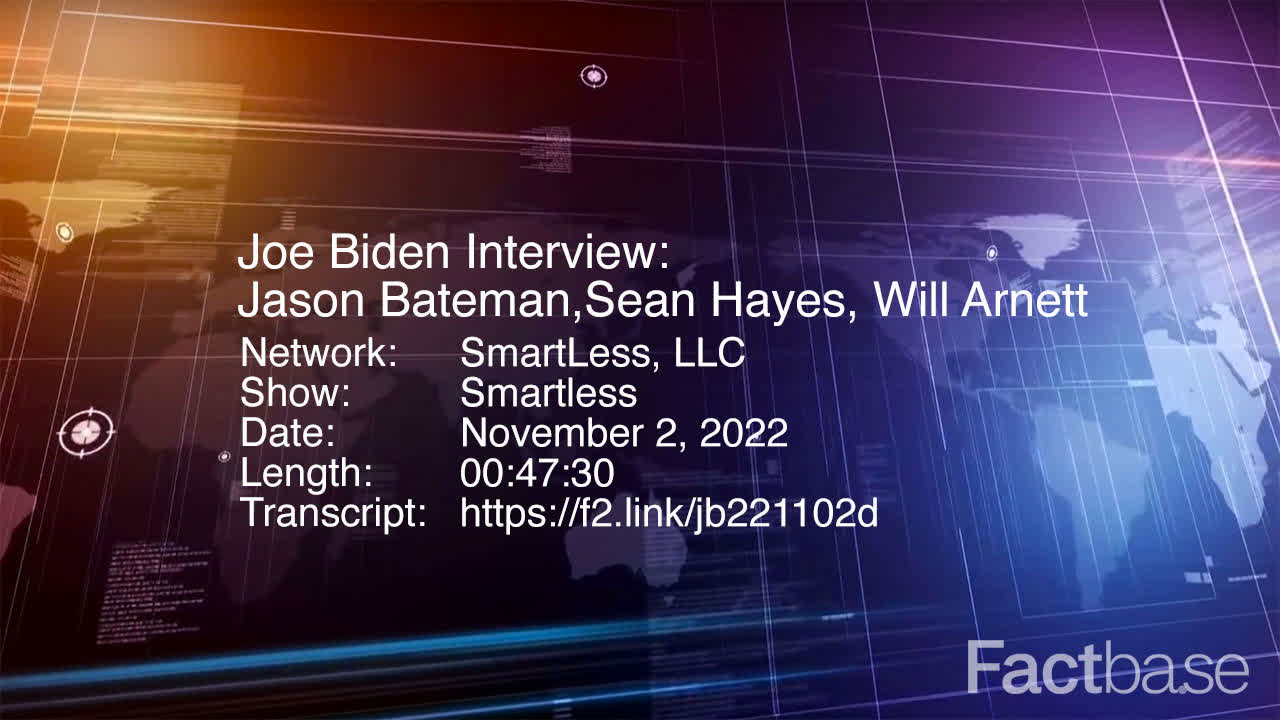
00:37:15-00:37:24 (9 sec)

"Yeah, and it is -- it is a little shocking that how much of that has been lost, and it is -- does fill me with hope with the idea that we can get manufacturing back."
417
Joe Biden
Somewhat Positive
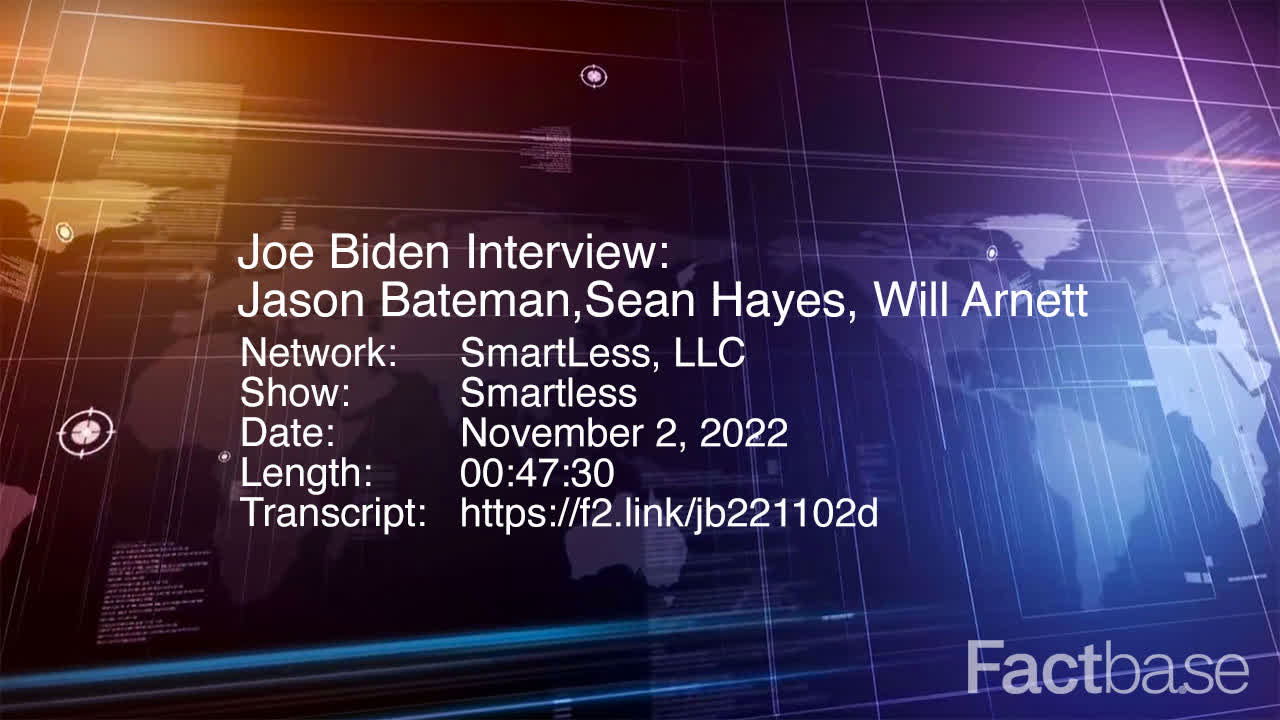
00:37:24-00:37:52 (28 sec)

"Well, you know why it got lost? We used to spend 2 percent of our GDP on research and development as a nation. We're down to 0.7 percent. China's -- other countries are passing us by. But now, we're going back to -- look, my major goal in terms of the economy was to change the dynamic of trickle-down economy to building from the middle out, bottom up, and doing it that way."
418
Jason Bateman
Neutral
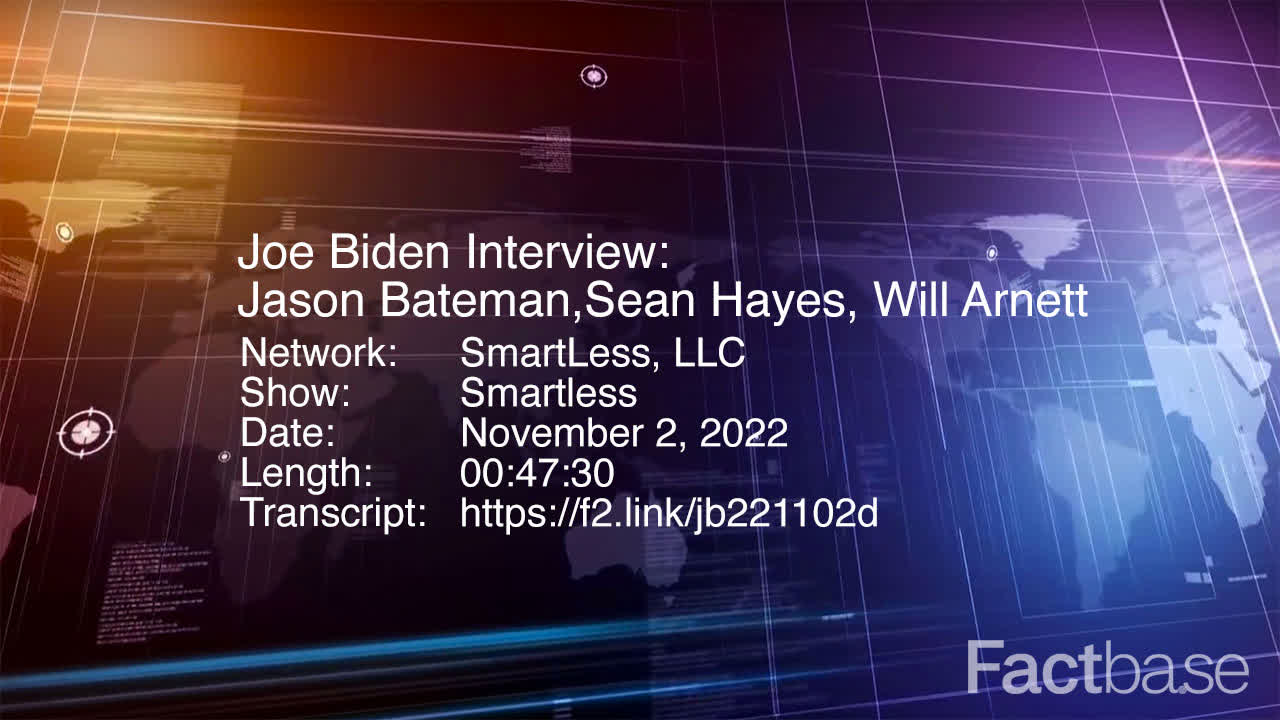
00:37:52-00:37:54 (2 sec)

"Right."
419
Will Arnett
Slightly Positive
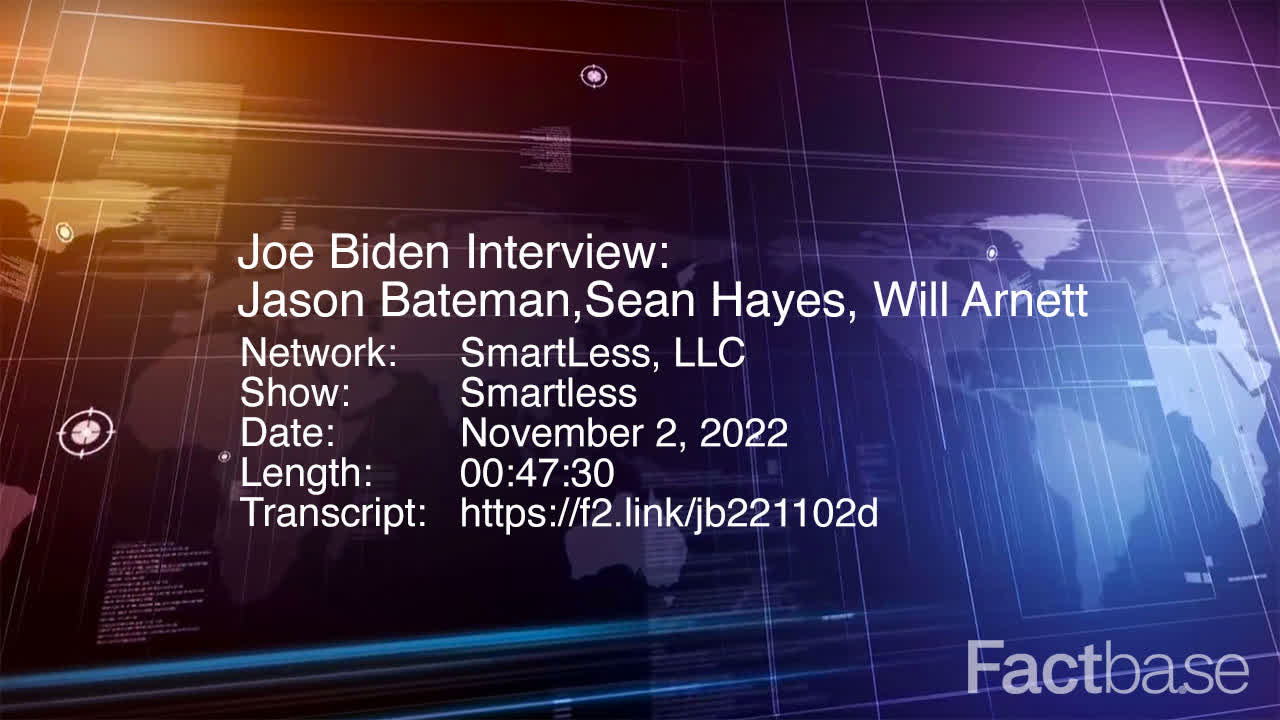
00:37:54-00:37:54 ( sec)

"Yeah."
420
Joe Biden
Very Positive
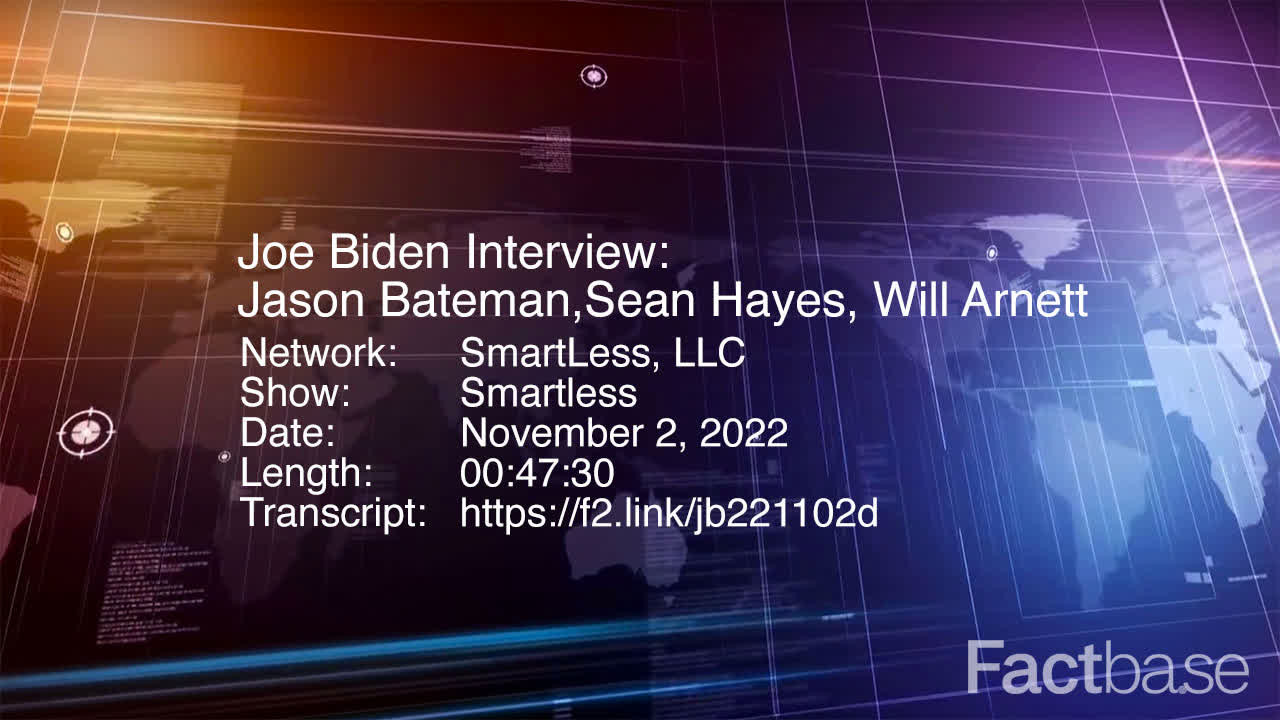
00:37:54-00:38:13 (19 sec)

"And I know I get criticized and understandably for being "the most pro-union president in history." Well, the reason for that is these union folks, everybody thinks you show up on a job and you can be a technician. Guess what? You take four or five years, like going back to college. It's like going to school."
421
Joe Biden
Very Positive
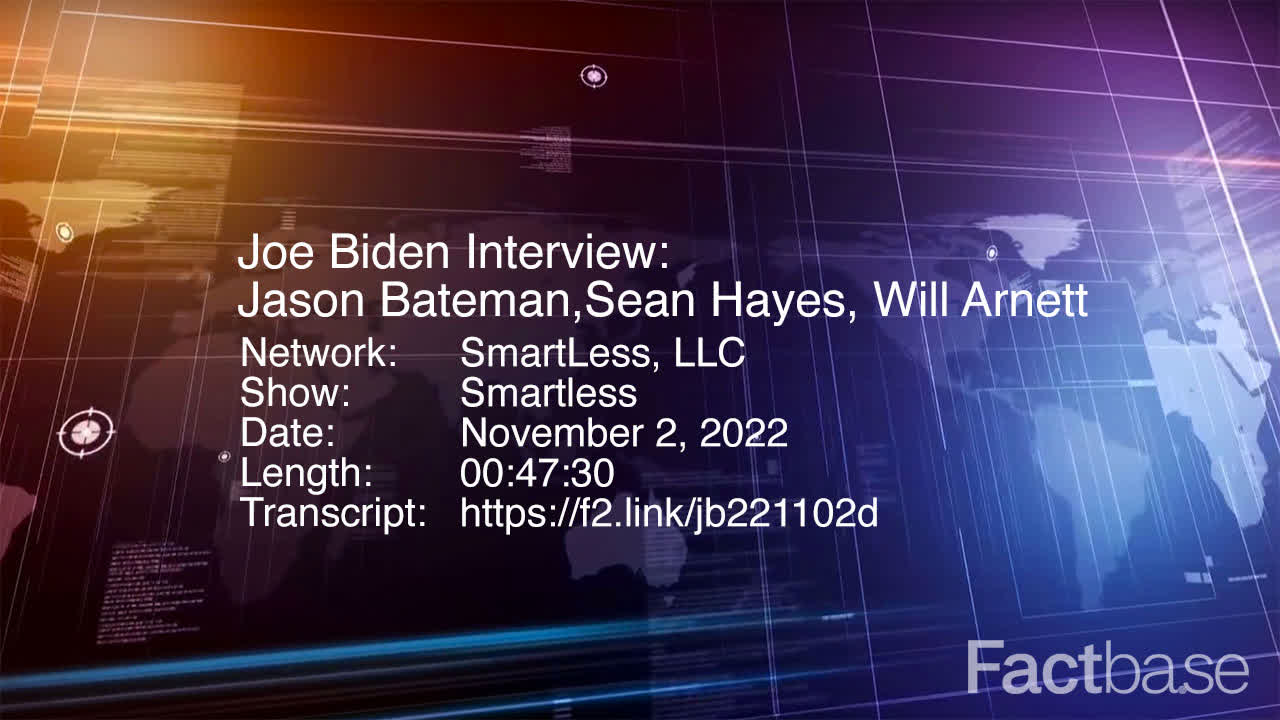
00:38:13-00:38:35 (22 sec)

"They're the best in the world. They're the best in the world. And they're -- ultimately, it's cheaper for us. So, there's a lot we're doing. And for example, we -- we're going to invest literally several hundred billion dollars in building chips or computers. We invented them. We invented them."
422
Jason Bateman
Very Positive
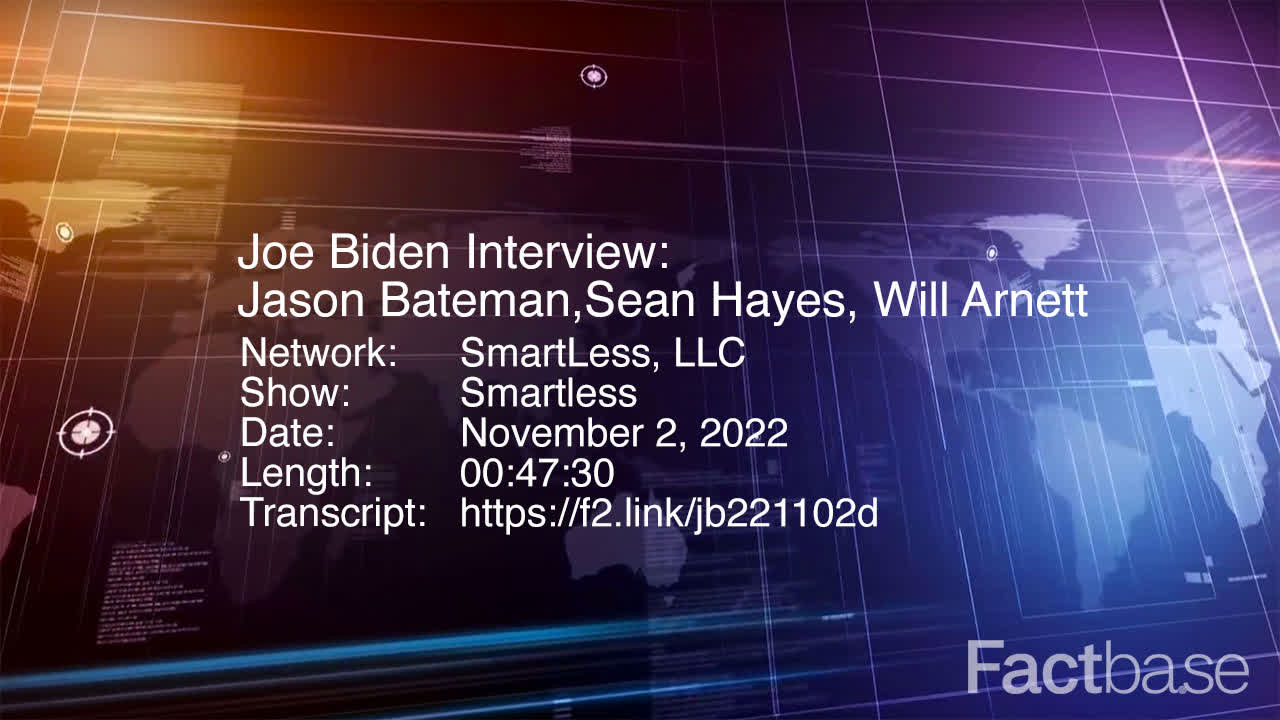
00:38:35-00:38:40 (5 sec)

"Yeah, that's really exciting. Yeah. Yeah, it's so important."
423
Will Arnett
Slightly Positive
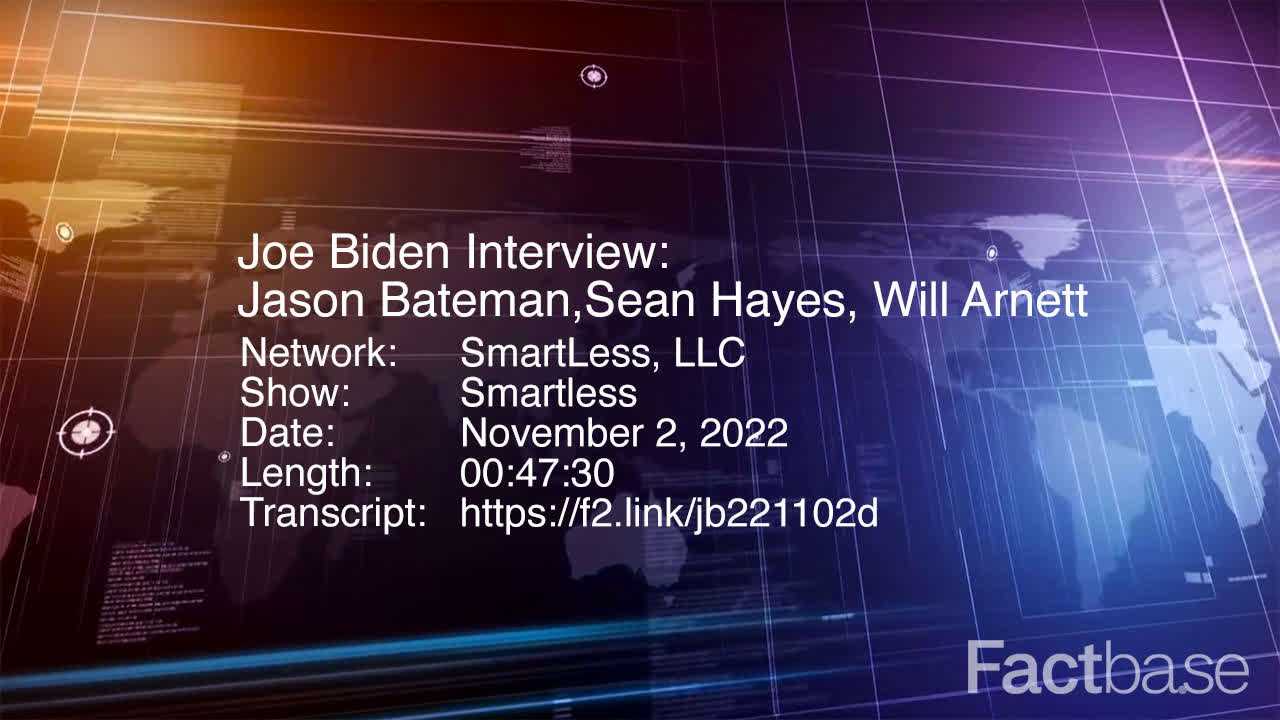
00:38:40-00:38:40 ( sec)

"Yeah."
424
Joe Biden
Neutral
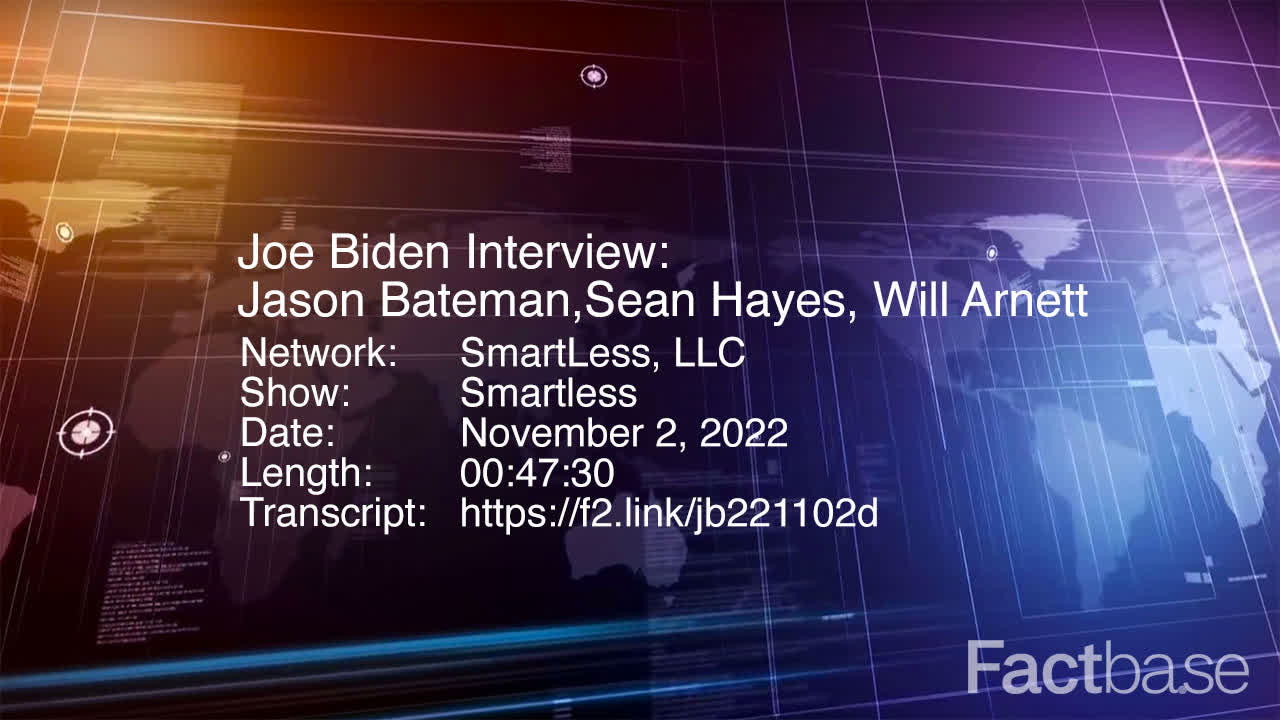
00:38:40-00:38:42 (2 sec)

"So, anyway --"
425
Will Arnett
Very Positive
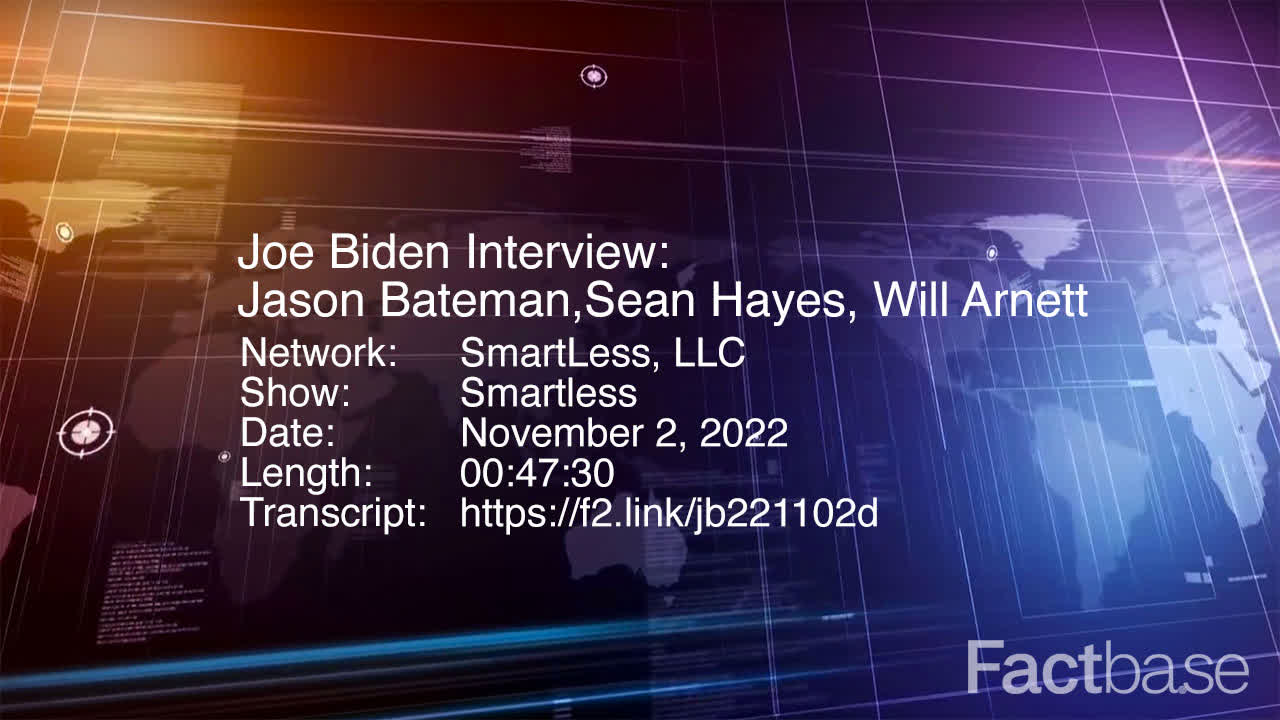
00:38:42-00:38:51 (9 sec)

"Trickle-down economics, I want to, like, go find a billionaire and give him 10 grand because I know it'll get to the little guy."
426
Jason Bateman
Leans Positive
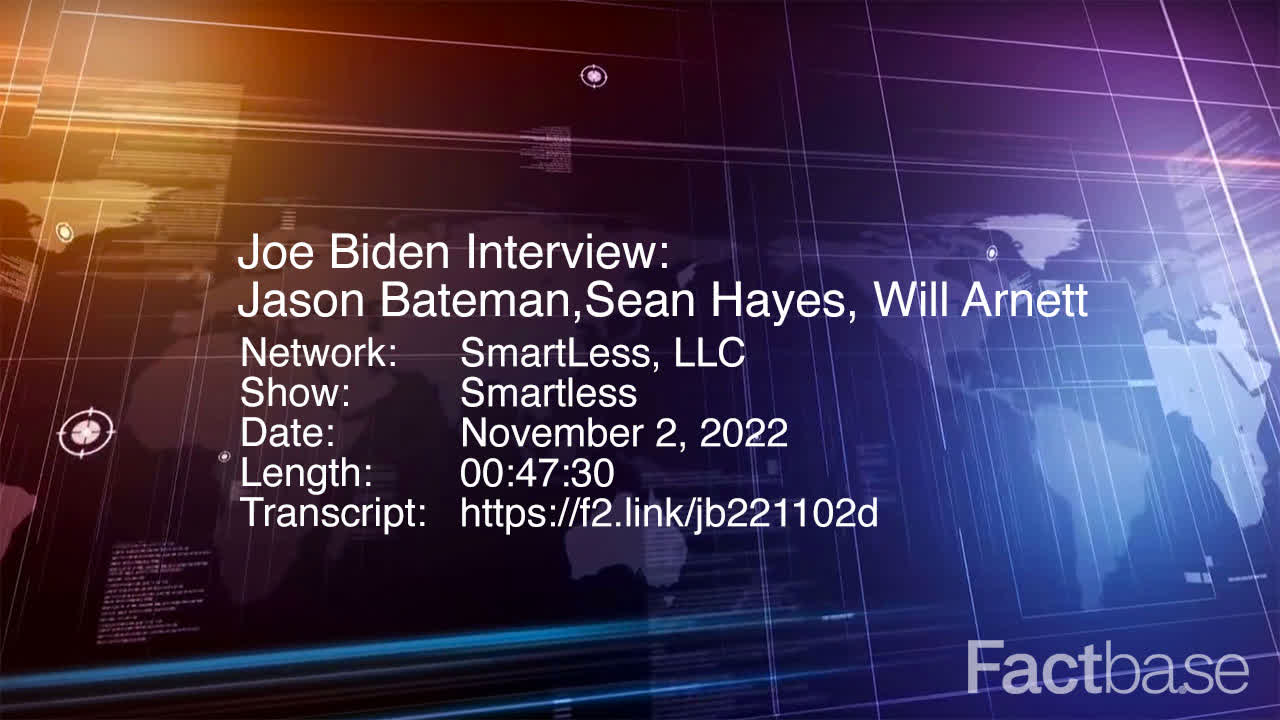
00:38:51-00:38:57 (7 sec)

"With the -- with the -- I've got I got a fairly adult question here. So, I've written it out. I apologize for reading."
427
Will Arnett
Slightly Positive
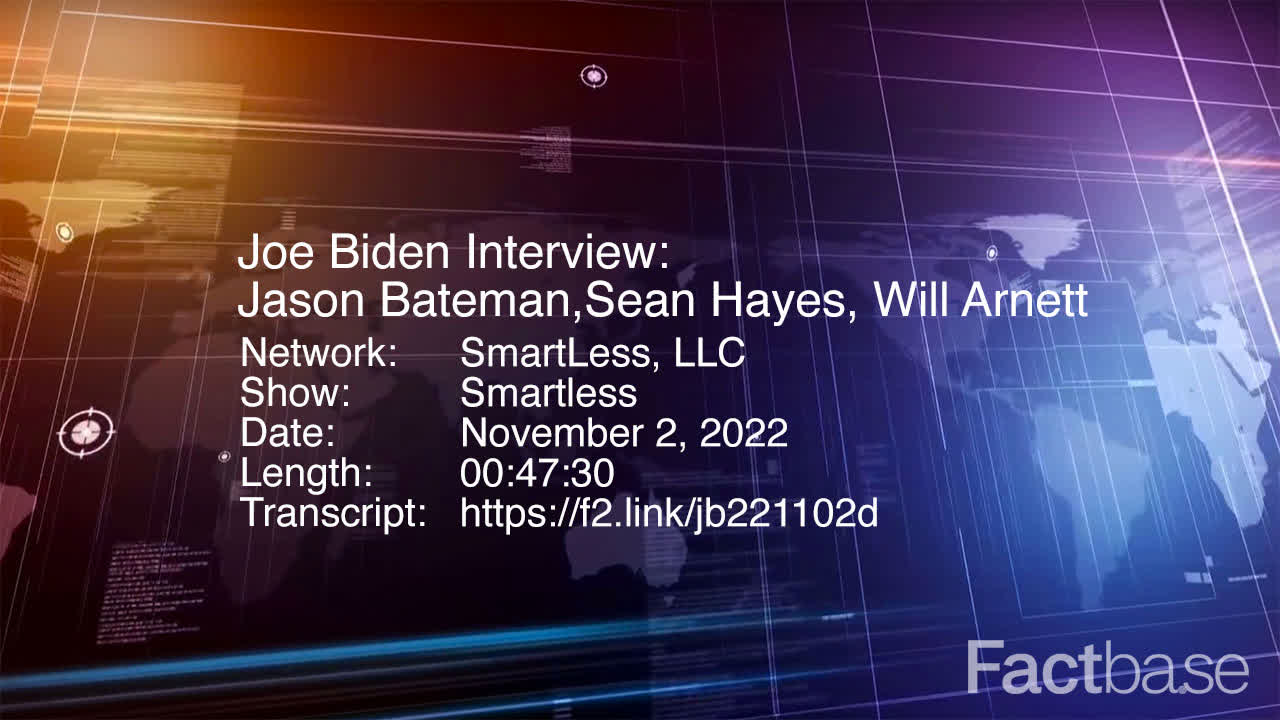
00:38:57-00:39:00 (3 sec)

"Oh. Well, we'll judge if it's adult."
428
Jason Bateman
Somewhat Positive
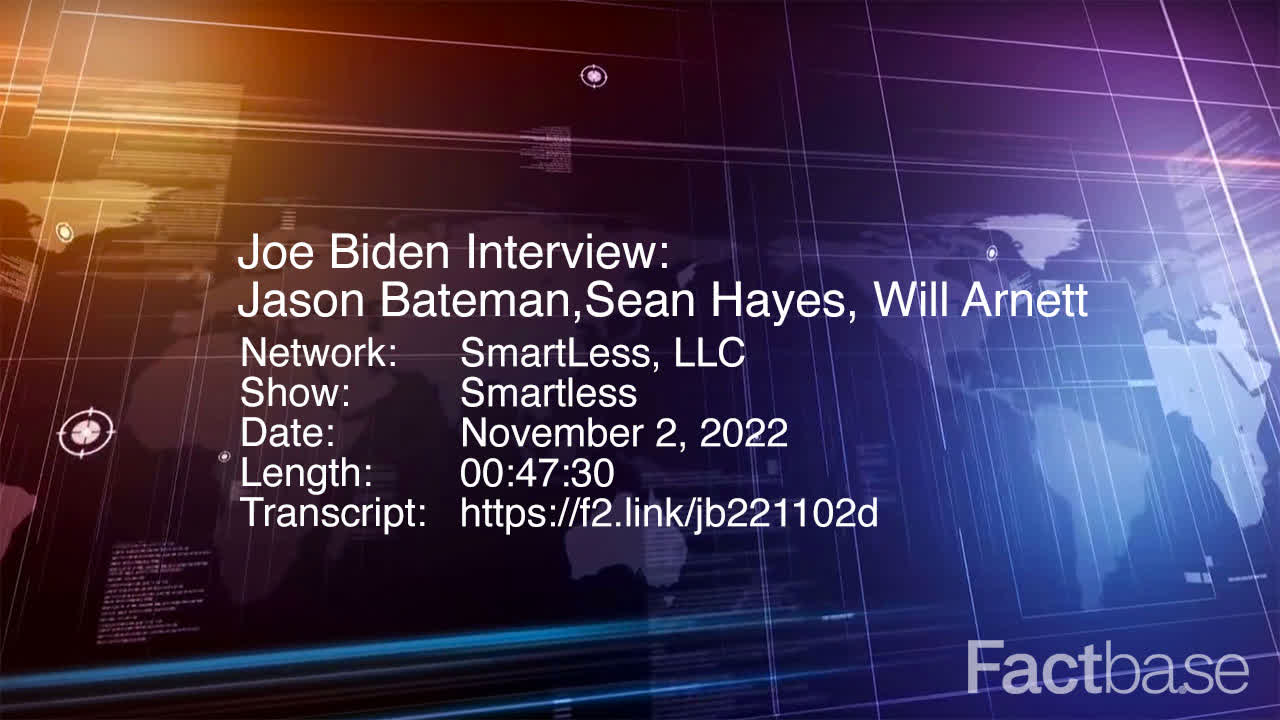
00:39:00-00:39:17 (17 sec)

"With the -- with the midterms on our doorstep, OK, two-thirds of the seats that are up for grabs in the midterms are trending to be won by admitted election deniers. And then that means that elections and consequently democracy as a form of government will most likely be done away with or could be seriously threatened."
429
Jason Bateman
Very Negative
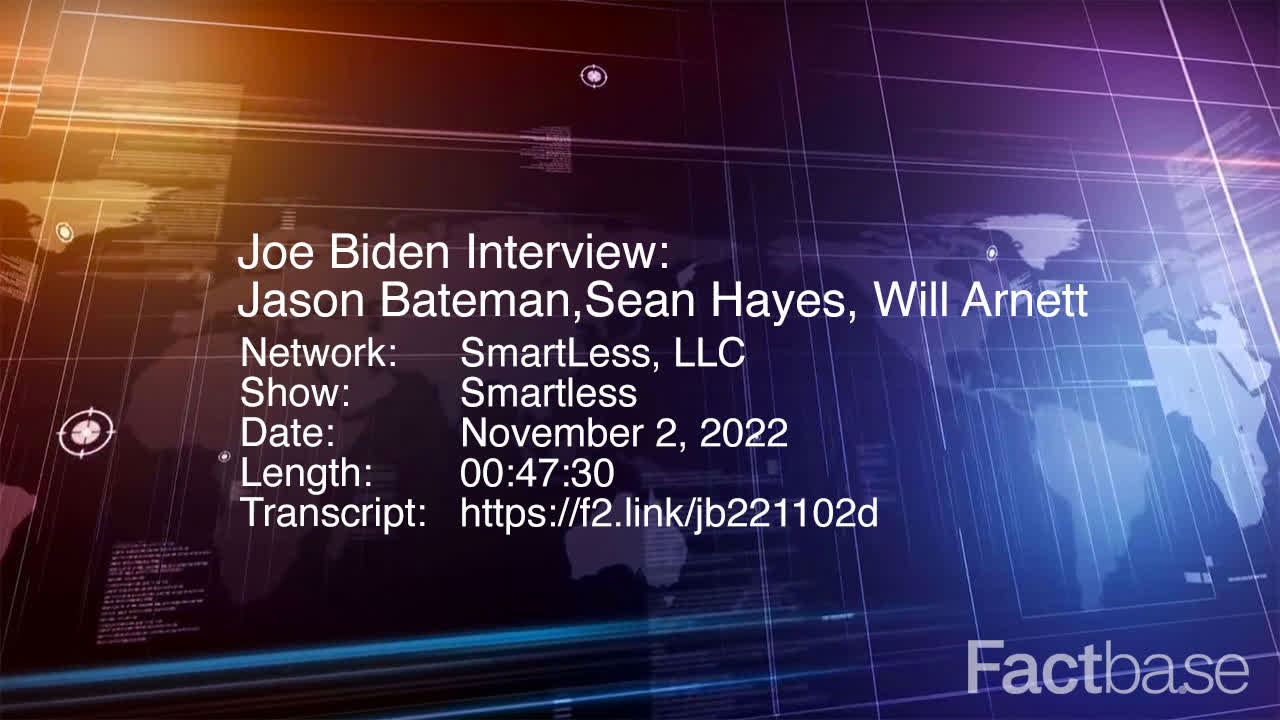
00:39:17-00:39:45 (28 sec)

"This is what they're -- they're saying that their plan is once -- once elected. So, doesn't that current real forecast, even declaration, justify some kind of emergency alert that asks for maximum attention and participation from every single voter in America? No advocation for Republican or Democrat, just a request to vote in this midterm election."
430
Jason Bateman
Negative
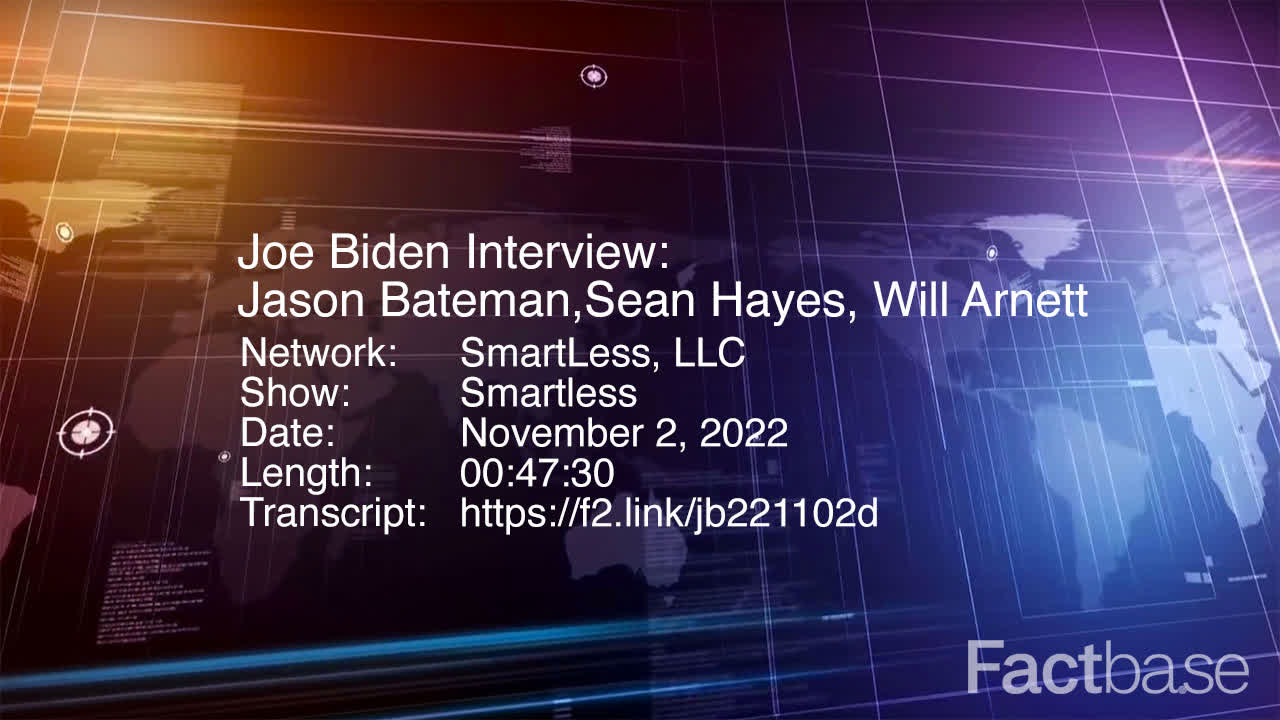
00:39:45-00:40:08 (22 sec)

"Could I ask you to commit to consider over the next few days using your unique power as president to utilize the emergency alert system? For -- for the listener, this is the system that's in place to alert citizens of -- of impending danger. Yes, it's usually for the weather or killers or -- or kidnapping or whatever."
431
Jason Bateman
Very Negative
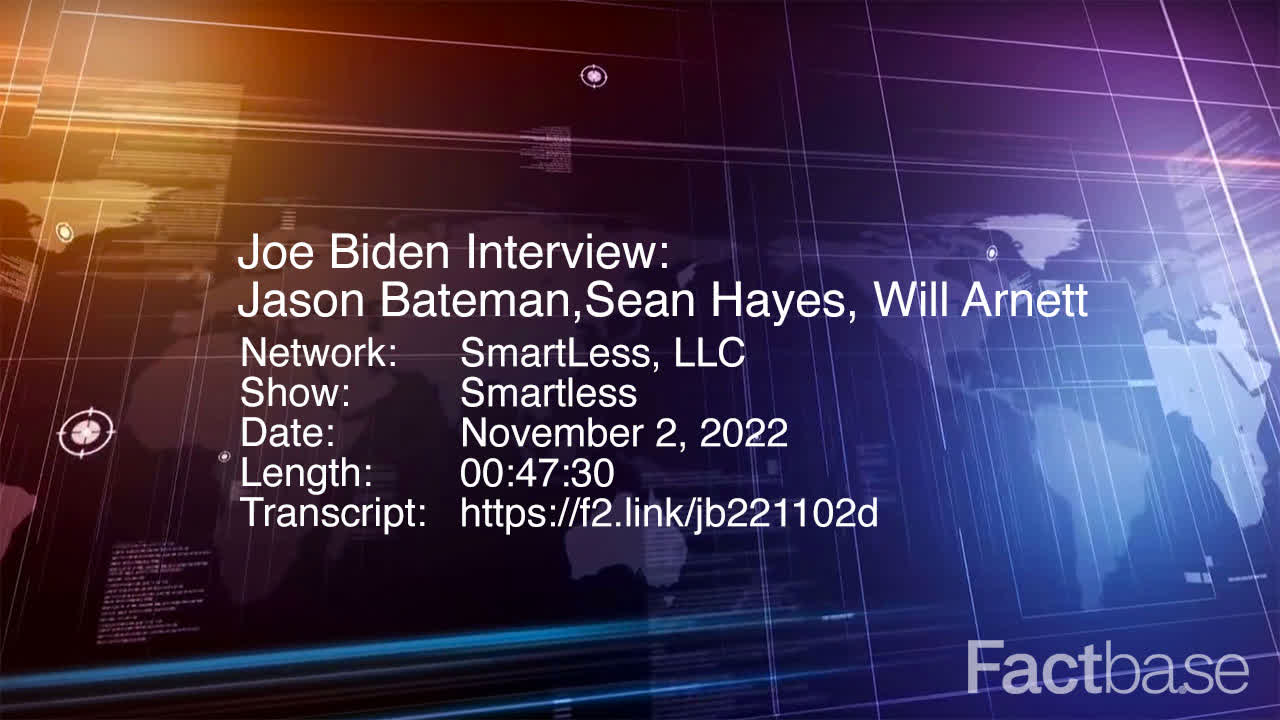
00:40:08-00:40:31 (23 sec)

"But I don't think it's an exaggeration to categorize this as a light crisis, an existential threat. Just ask the families of the COVID victims what danger is if -- with poor leadership; or the citizens of Russia or Ukraine, what happens when the electoral process is merely a facade? So, our TV and radio outlets are required to deliver presidential alerts."
432
Jason Bateman
Somewhat Positive
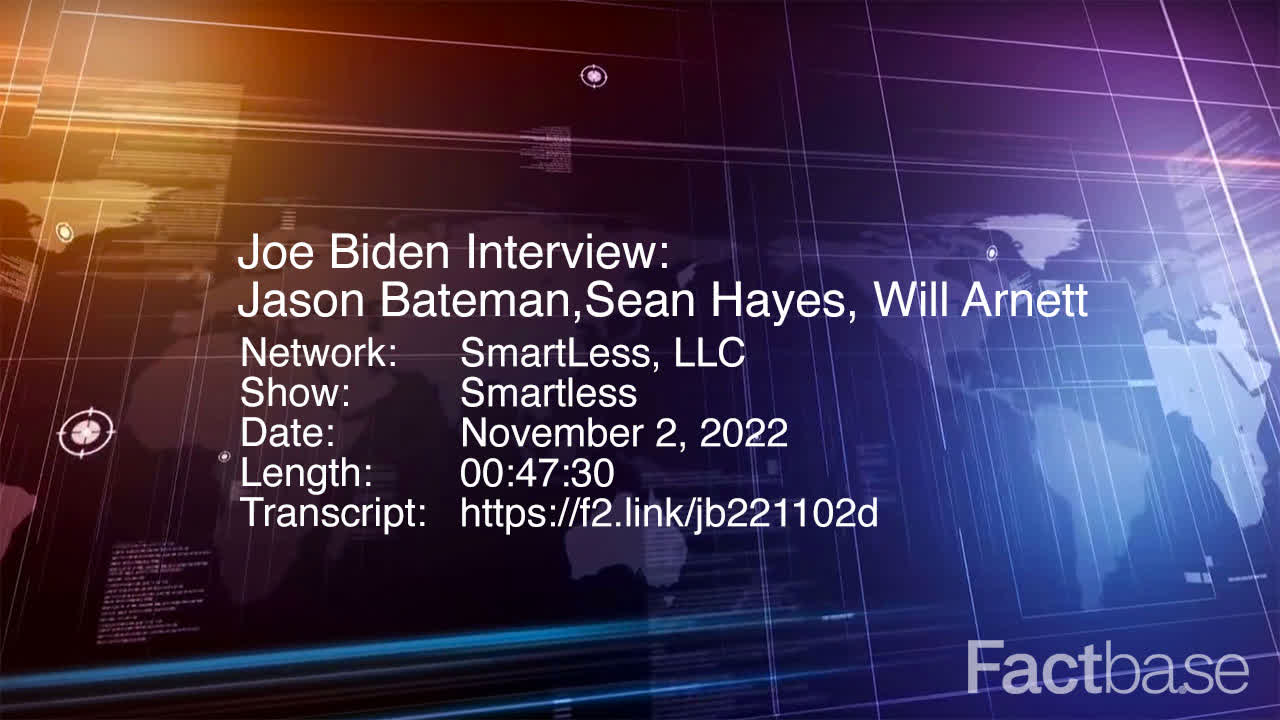
00:40:31-00:40:44 (14 sec)

"And all this would be to simply to air once a night leading up to Election Day on every TV, satellite, and cable channel a quick 10-second card that just simply says, "Please vote on November 8th." That's all."
433
Sean Hayes
Very Positive
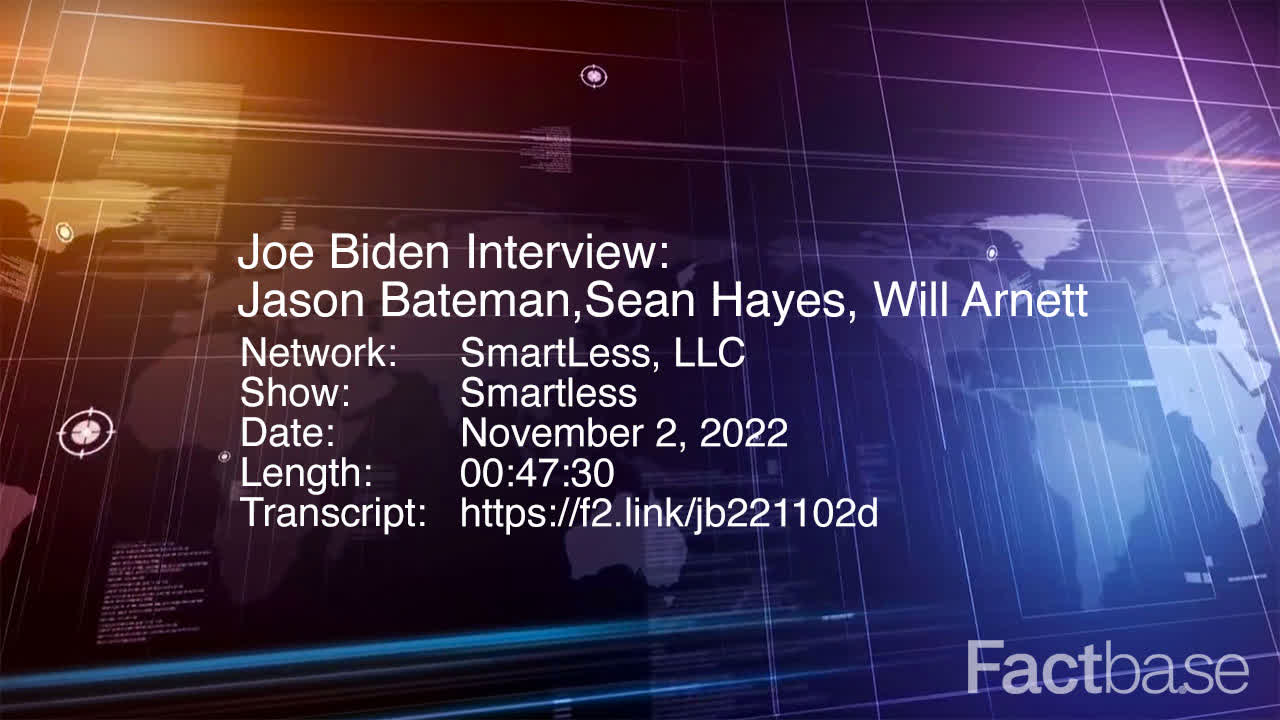
00:40:44-00:40:45 (1 sec)

"That is a great idea."
434
Jason Bateman
Neutral
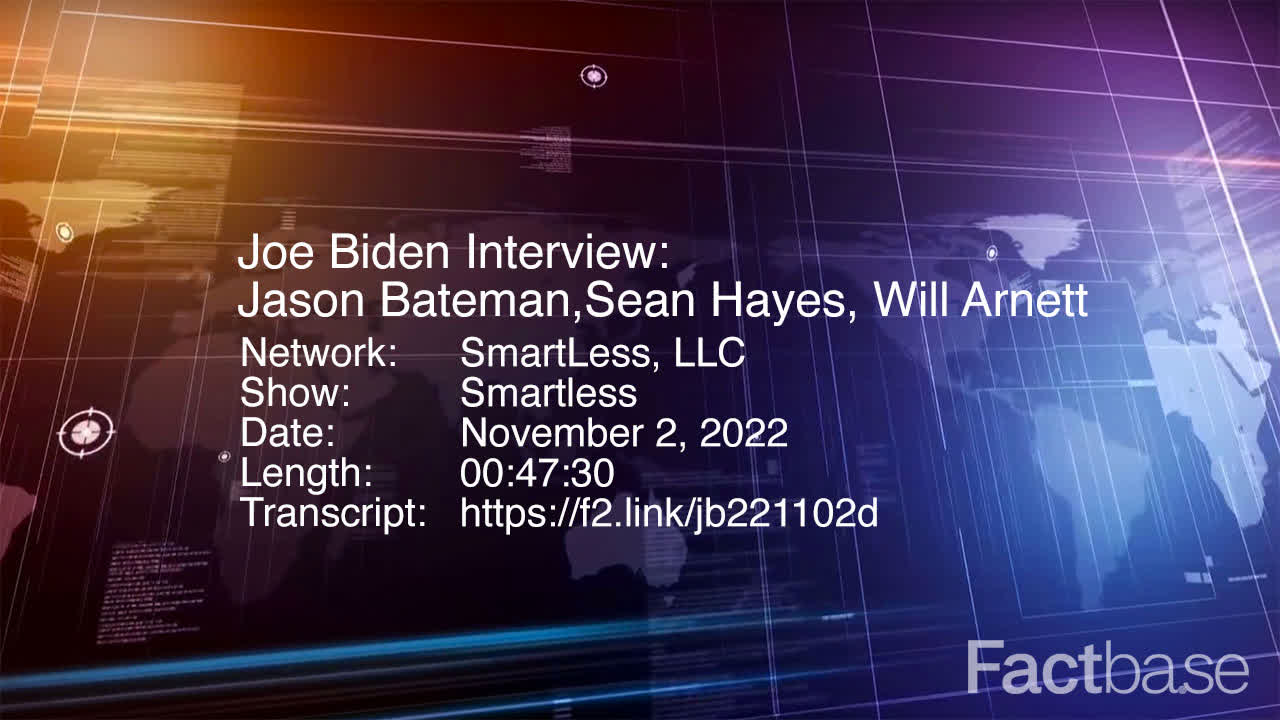
00:40:45-00:40:47 (2 sec)

"Is there any way you can consider --"
435
Will Arnett
Very Positive
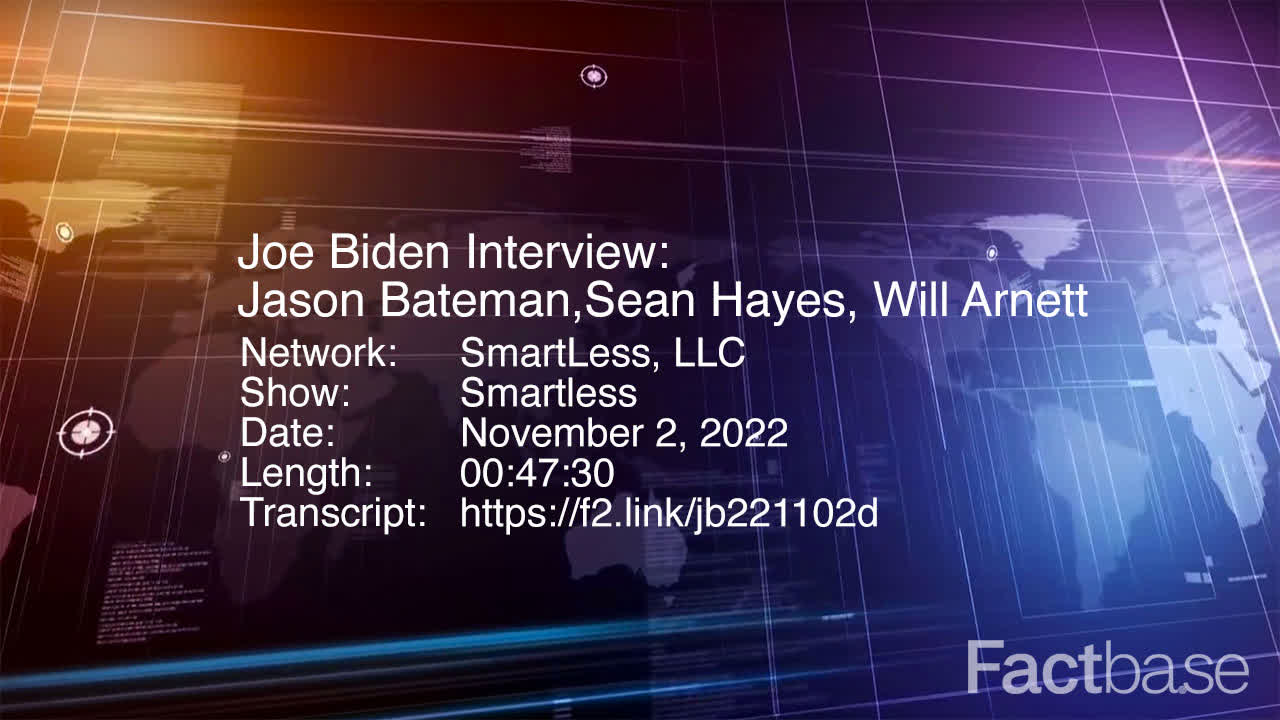
00:40:47-00:40:55 (9 sec)

"Wow. Great idea. And also, the -- officially, with the president, the longest Bateman question ever to simultaneously -- and it's a great idea, Mr. President."
436
Sean Hayes
Leans Negative
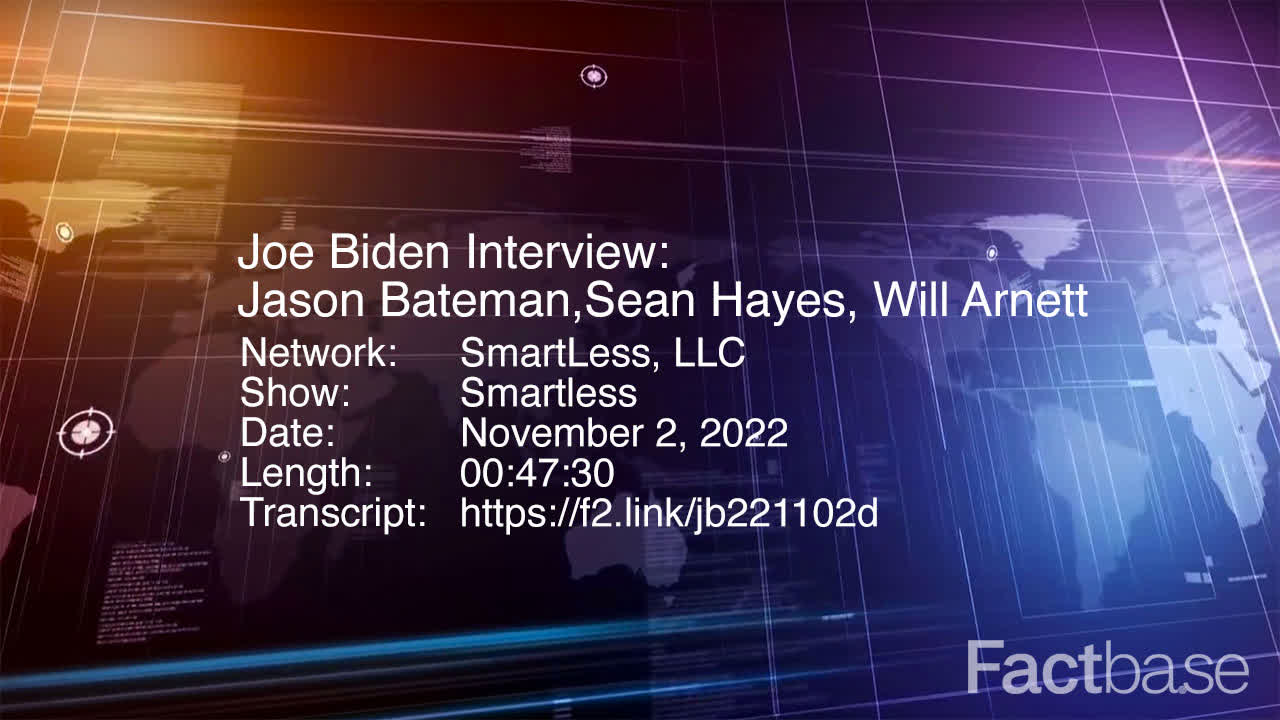
00:40:55-00:40:58 (3 sec)

"No, but I -- but I understand. I understand."
437
Joe Biden
Neutral
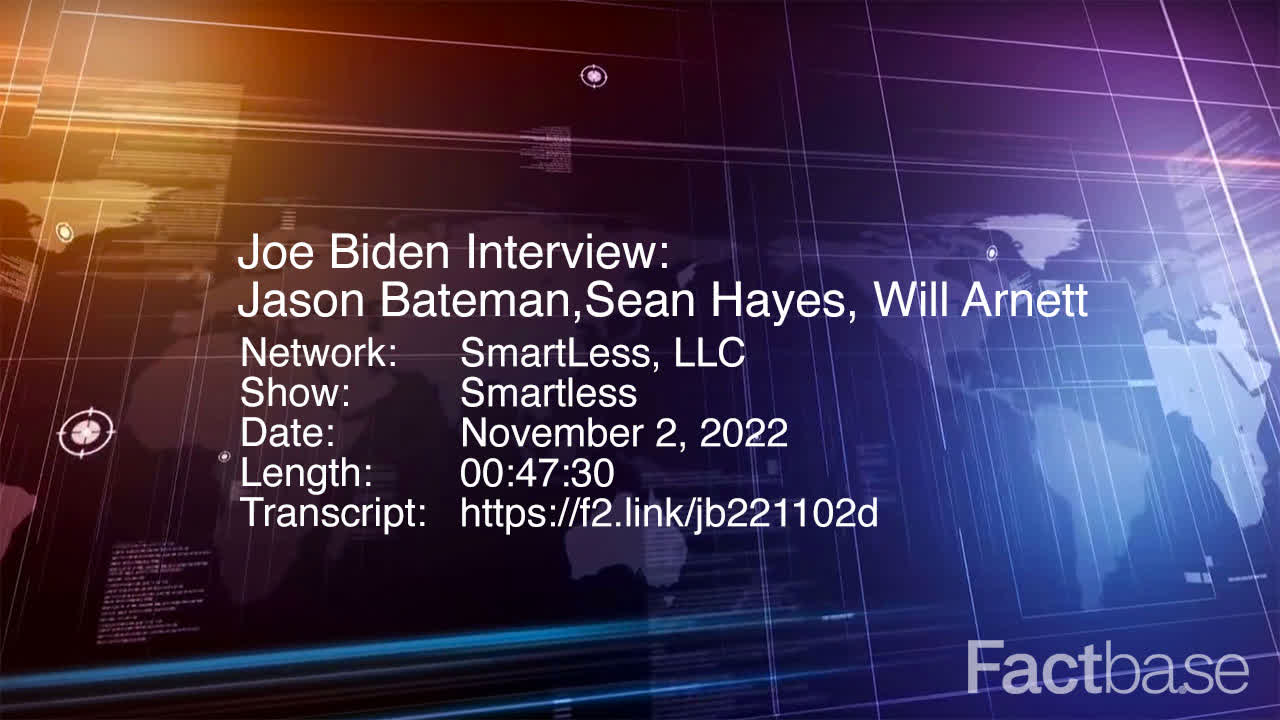
00:40:58-00:41:01 (3 sec)

"By the way -- by the way, the point you're making is the point."
438
Jason Bateman
Neutral
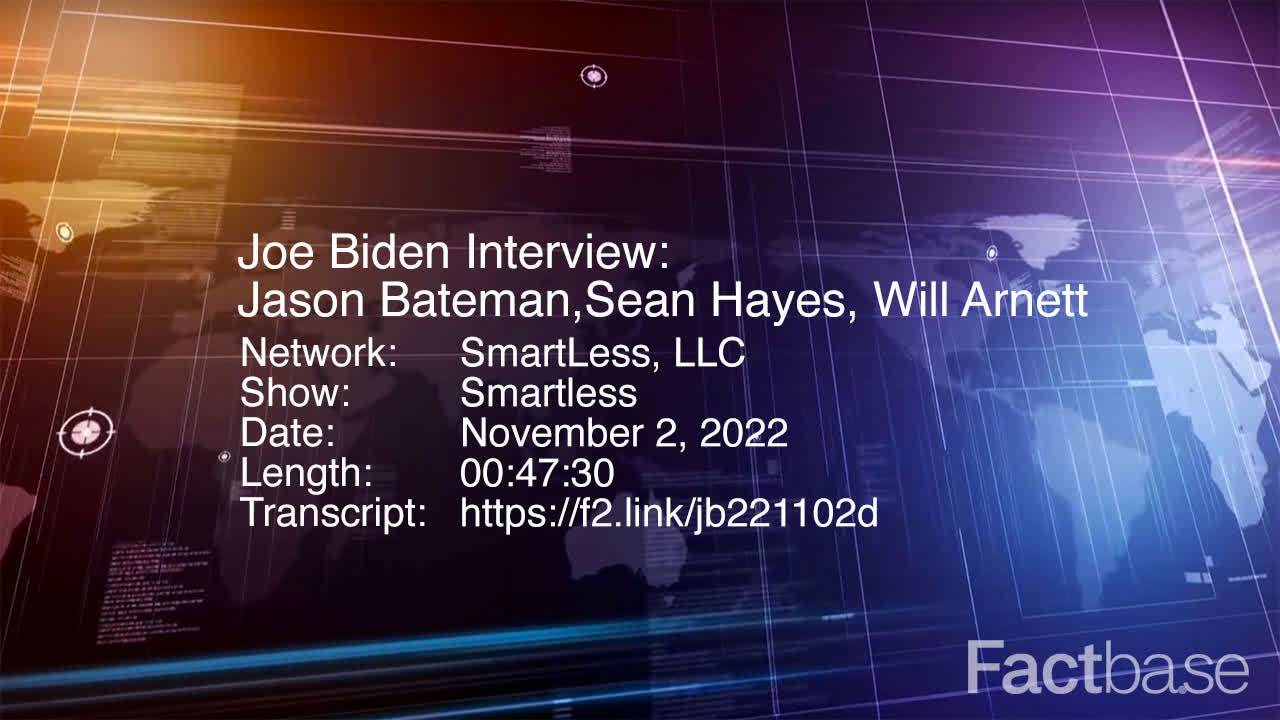
00:41:01-00:41:02 (1 sec)

"Just to get --"
439
Joe Biden
Neutral
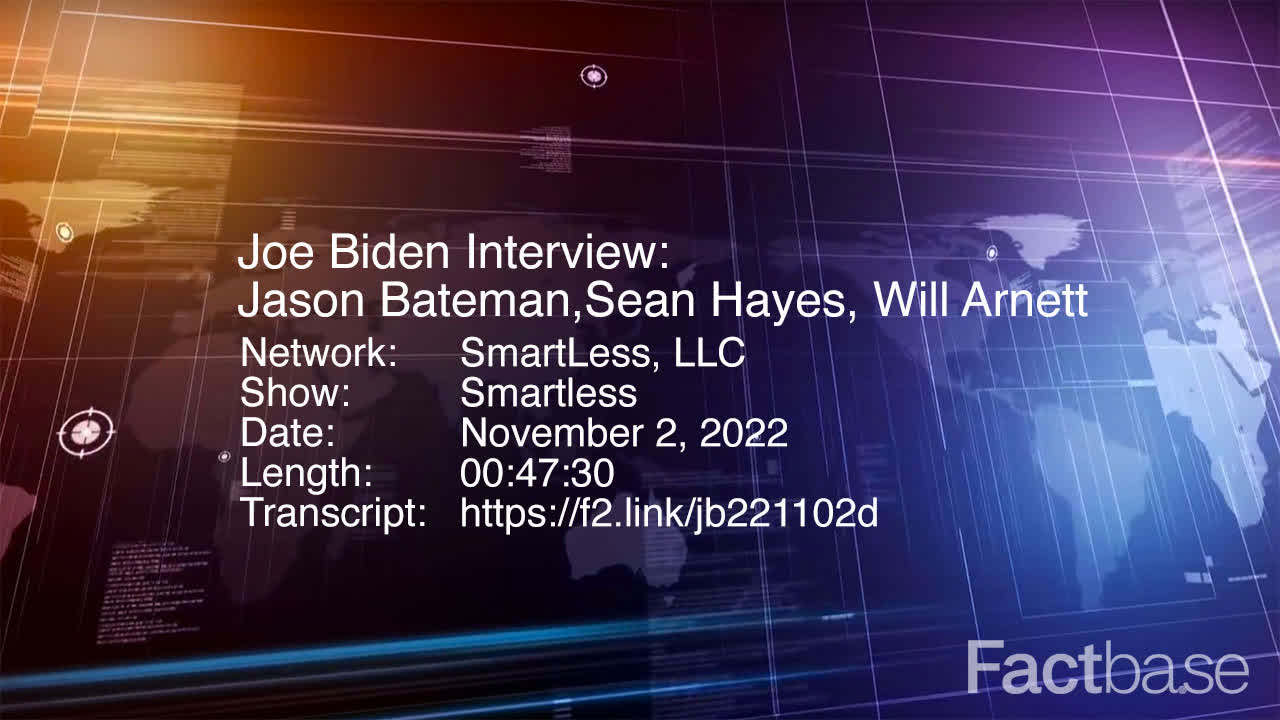
00:41:02-00:41:04 (1 sec)

"People have to vote."
440
Jason Bateman
Slightly Positive
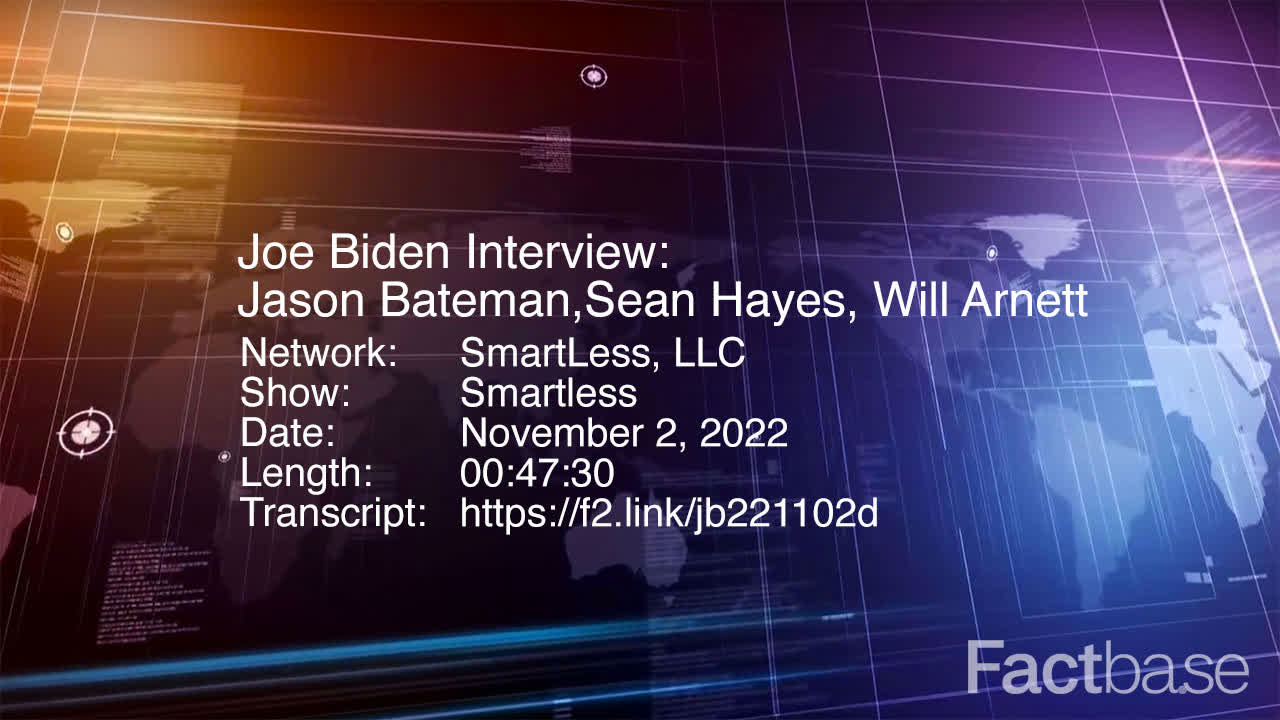
00:41:04-00:41:04 ( sec)

"Yeah."
441
Joe Biden
Very Positive
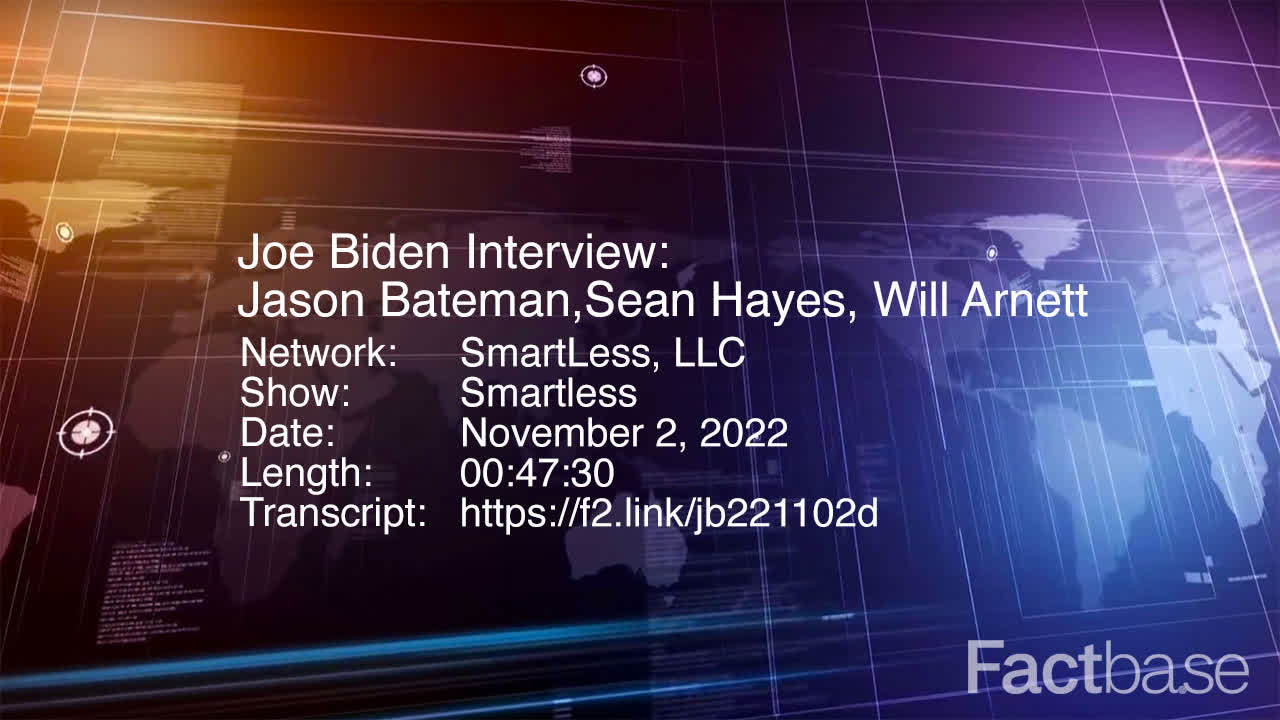
00:41:04-00:41:11 (7 sec)

"But look, you saw -- I mean, the best example is the Supreme Court in the Dobbs decision --"
442
Will Arnett
Slightly Positive
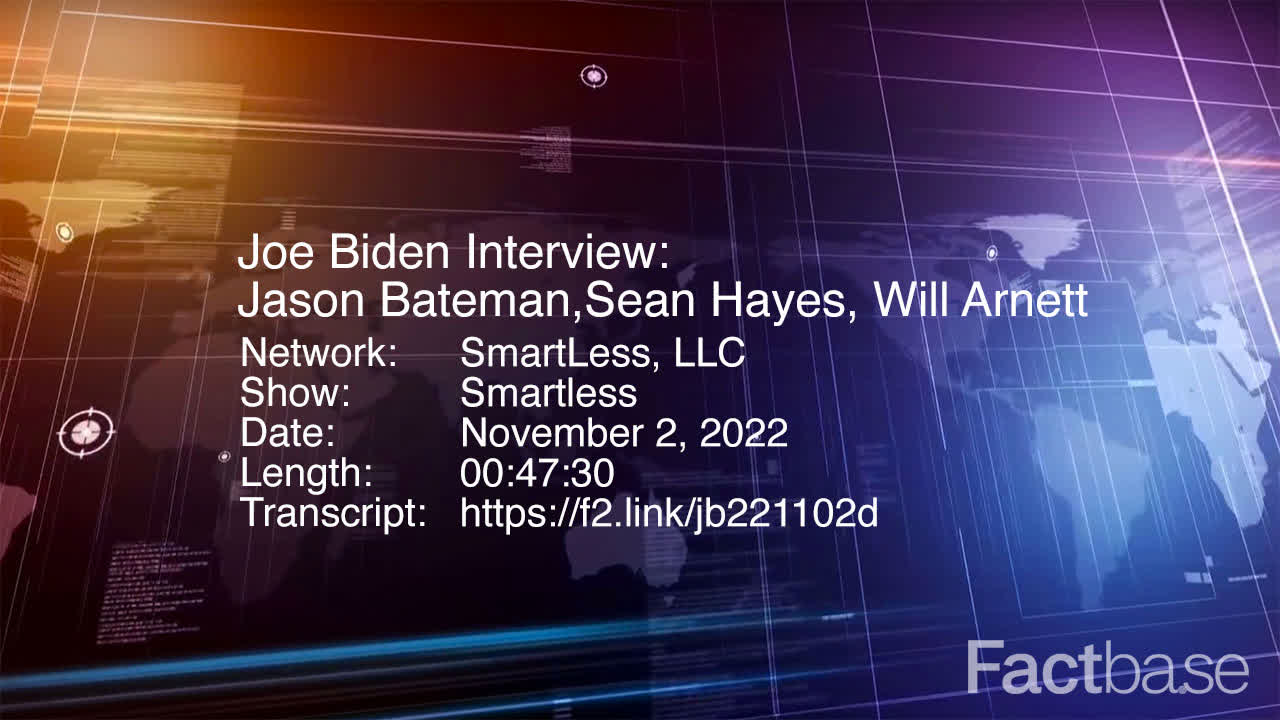
00:41:11-00:41:11 (1 sec)

"Yeah."
443
Joe Biden
Neutral
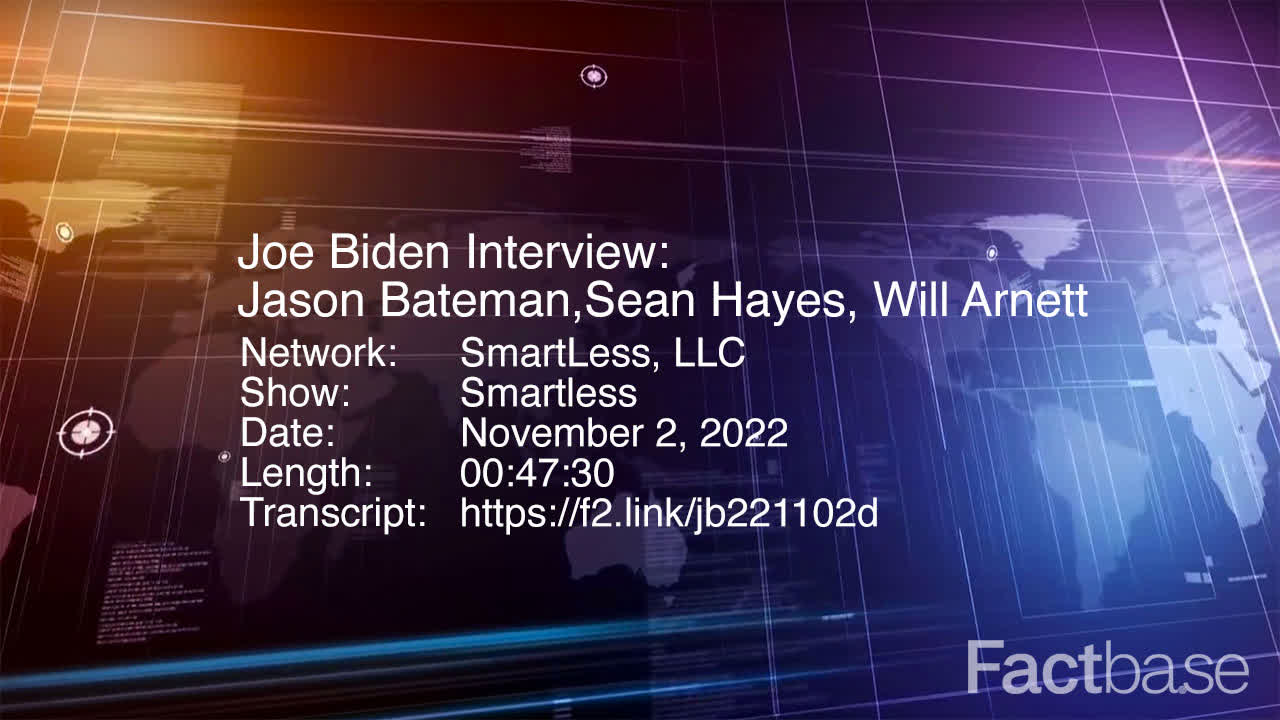
00:41:11-00:41:17 (6 sec)

"Said -- there's a line from one of the justices saying women have a right to vote. We'll see -- but basically, we'll see if they do."
444
Jason Bateman
Slightly Positive
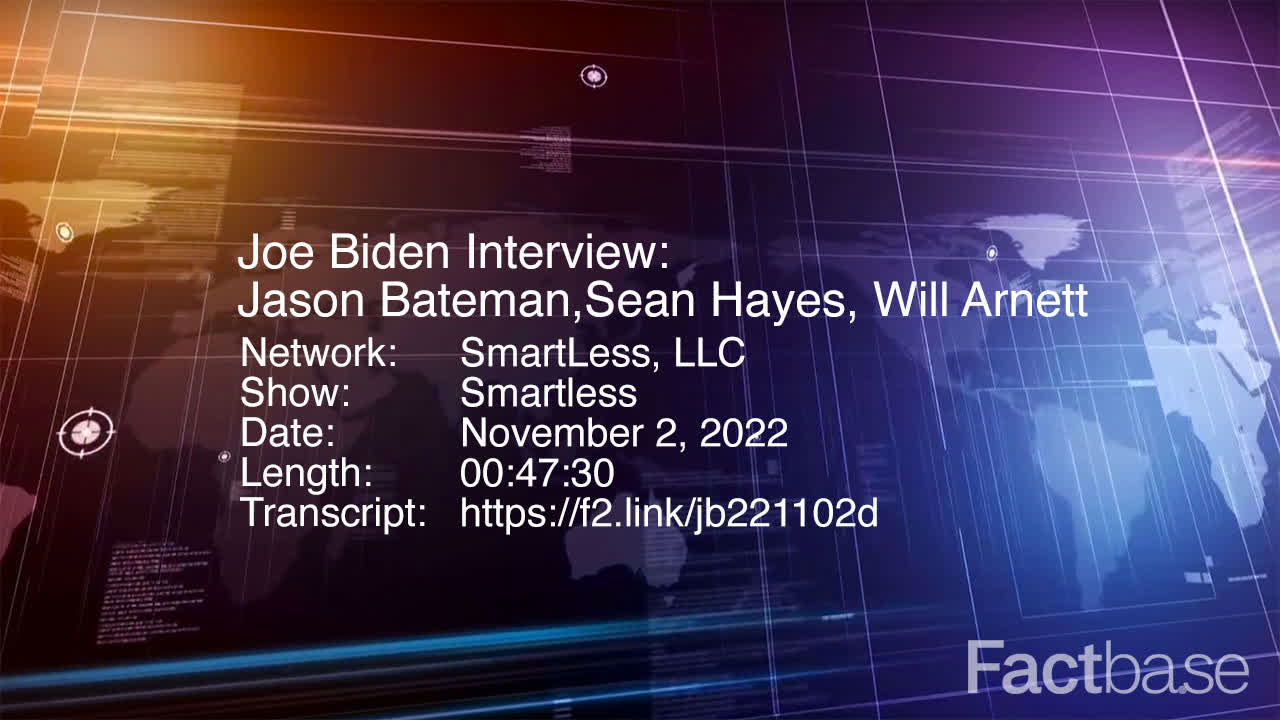
00:41:17-00:41:18 (1 sec)

"Yeah."
445
Joe Biden
Neutral
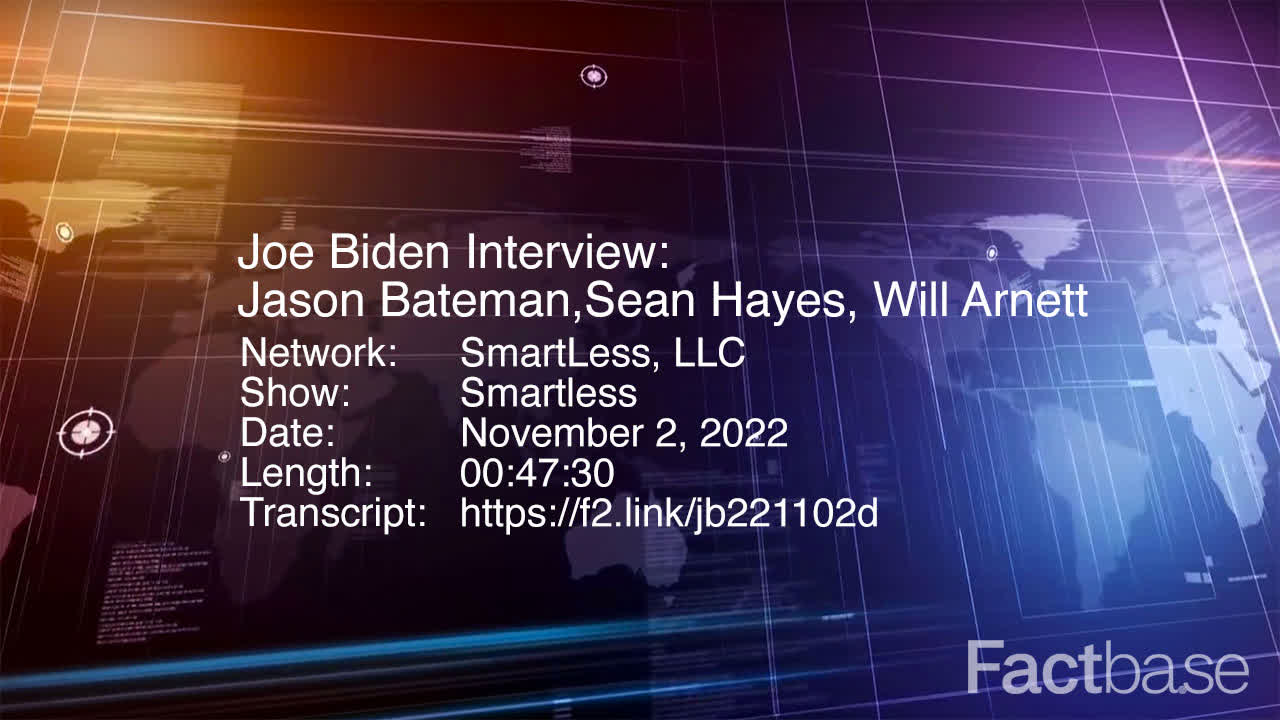
00:41:18-00:41:32 (14 sec)

"You saw what happened in Tennessee. Women showed up and vote. Women are out-registering men for the first time significantly for this new election."
446
Jason Bateman
Slightly Positive
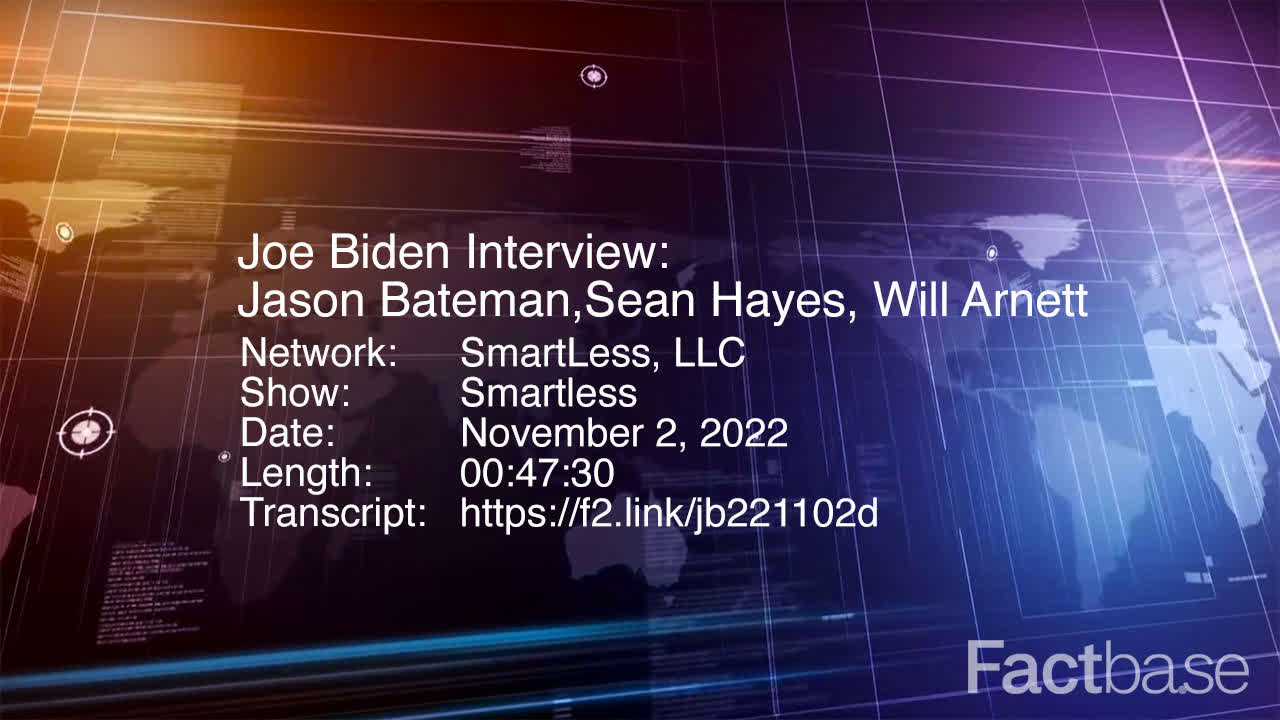
00:41:32-00:41:33 ( sec)

"Yeah."
447
Will Arnett
Neutral
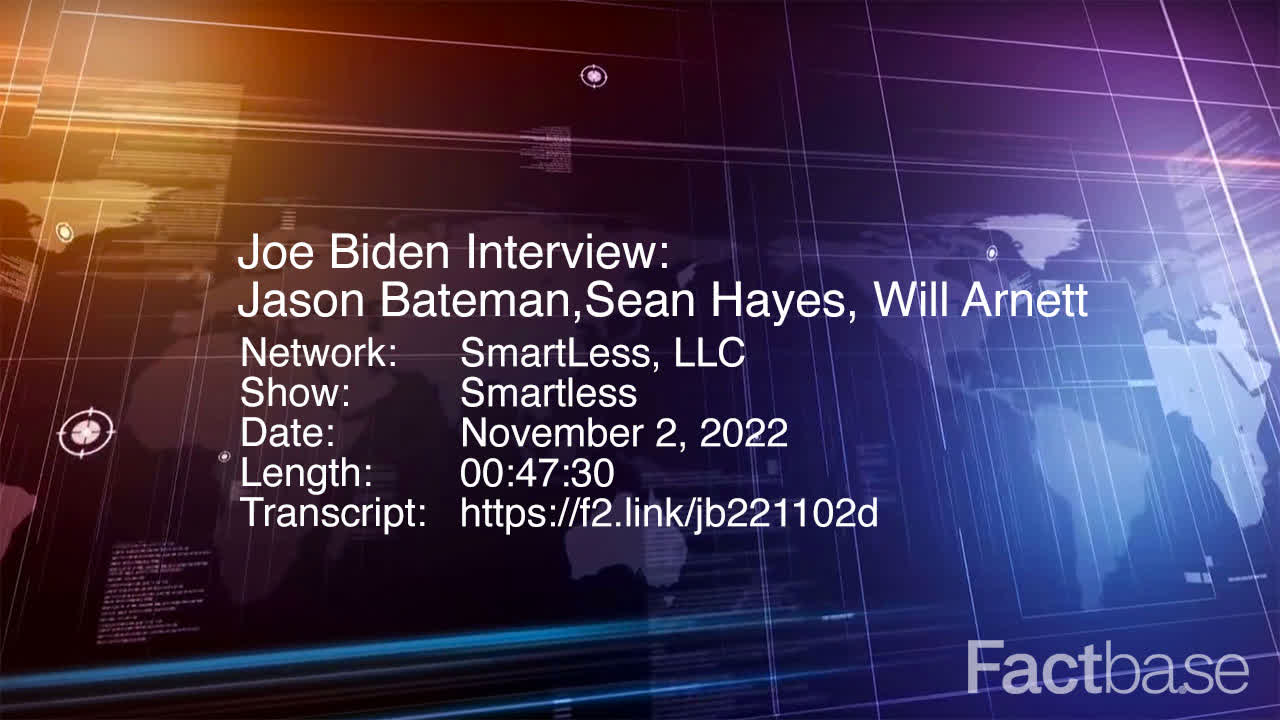
00:41:33-00:41:37 (4 sec)

"And that was immediate, wasn't it? I mean, that --"
448
Joe Biden
Neutral
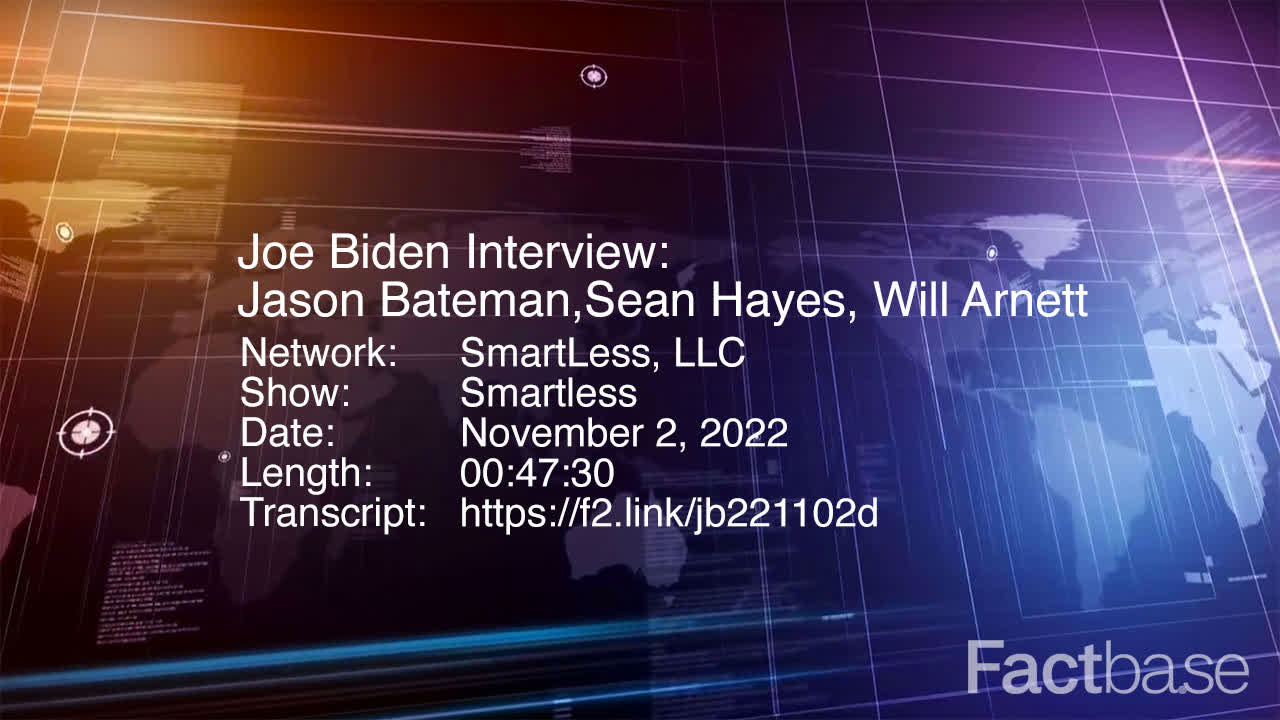
00:41:37-00:41:54 (17 sec)

"Oh, that -- that was immediate. And so, my generic point is, I think people, particularly younger people, that's where I'm spending most of my time trying to focus on, people under 30. They, in fact, understand that vote matters."
449
Will Arnett
Somewhat Positive
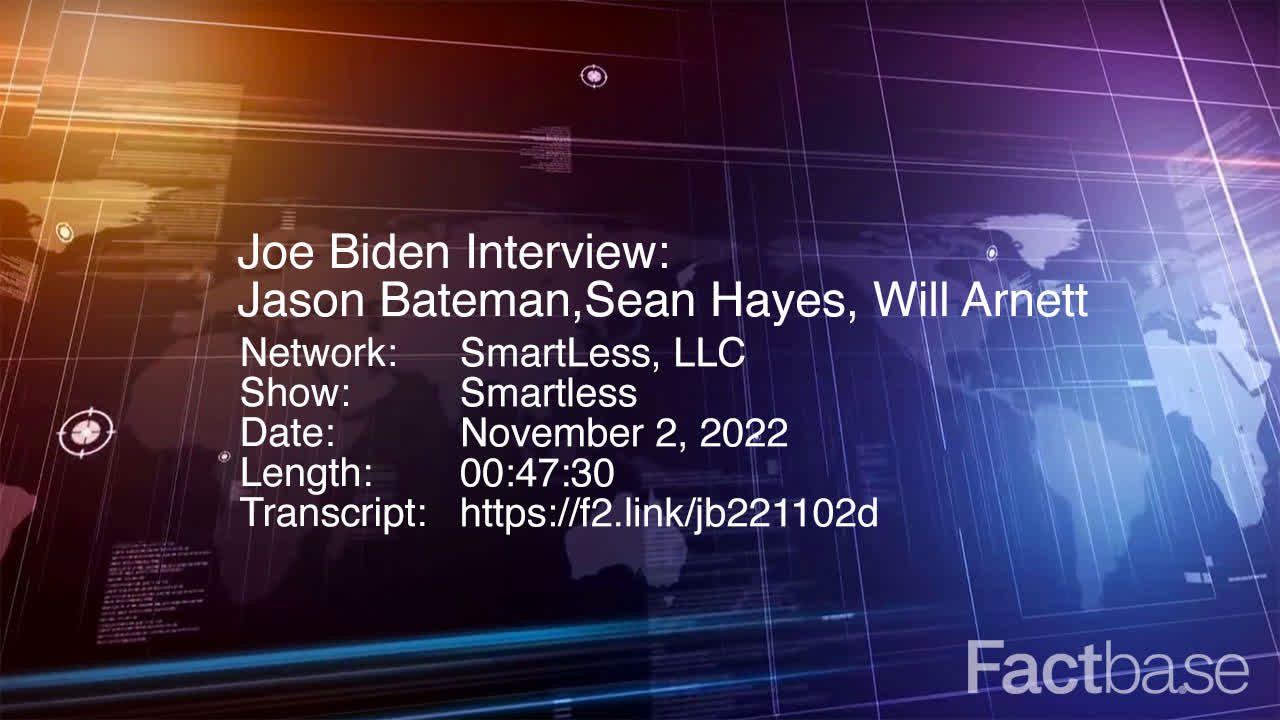
00:41:54-00:41:55 (1 sec)

"Right. They sure do."
450
Joe Biden
Very Negative
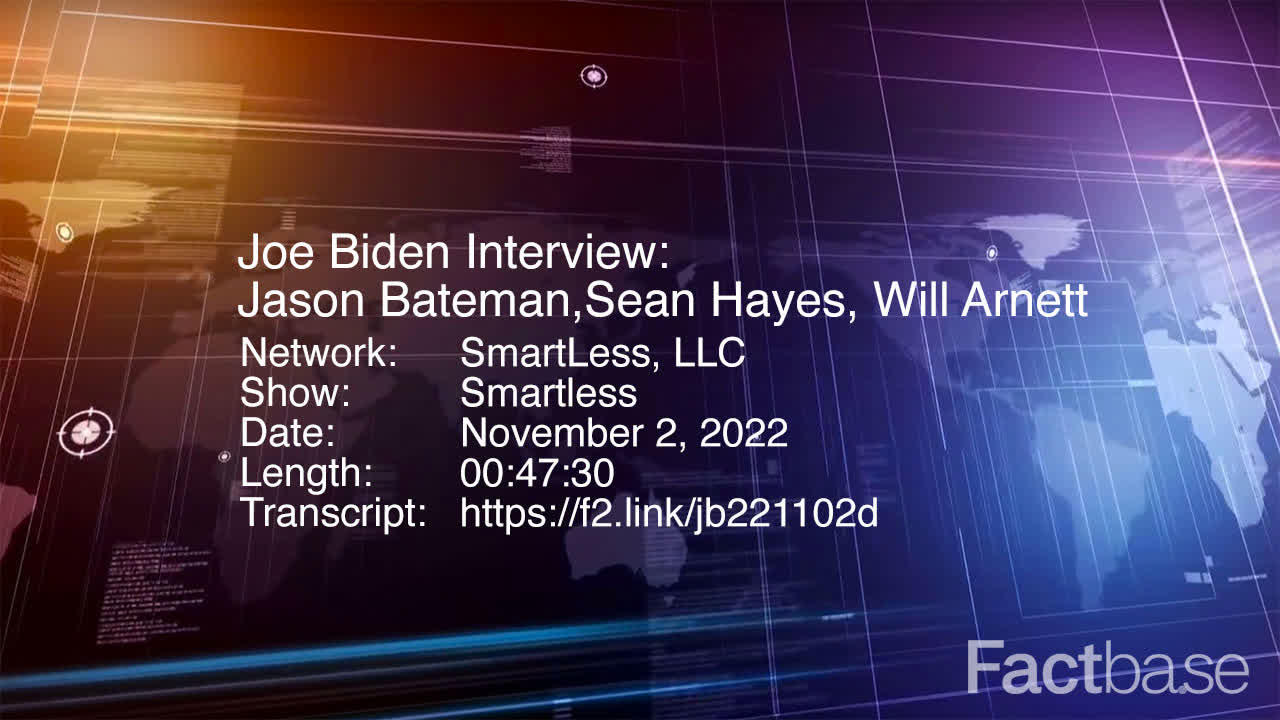
00:41:55-00:42:03 (7 sec)

"What I worry about -- I worry about the states that have the election deniers in them making it harder practically for them to vote."
451
Will Arnett
Neutral
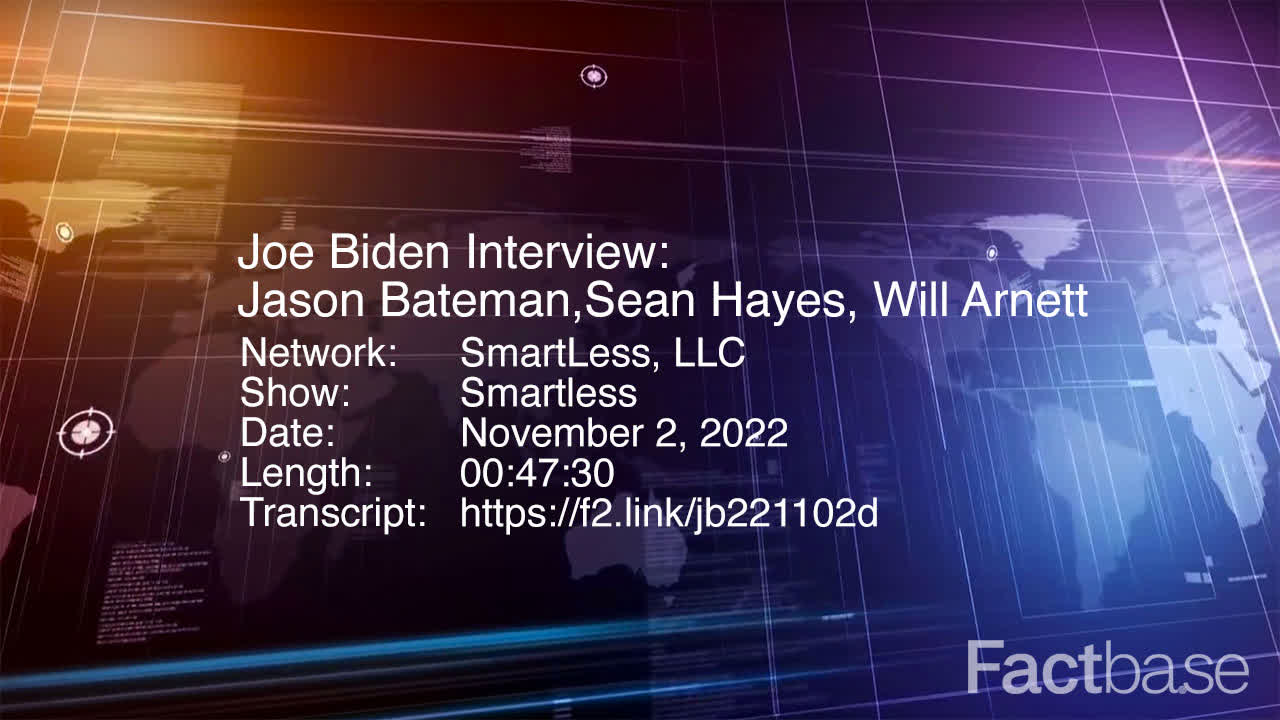
00:42:03-00:42:05 (2 sec)

"Right."
452
Joe Biden
Slightly Negative
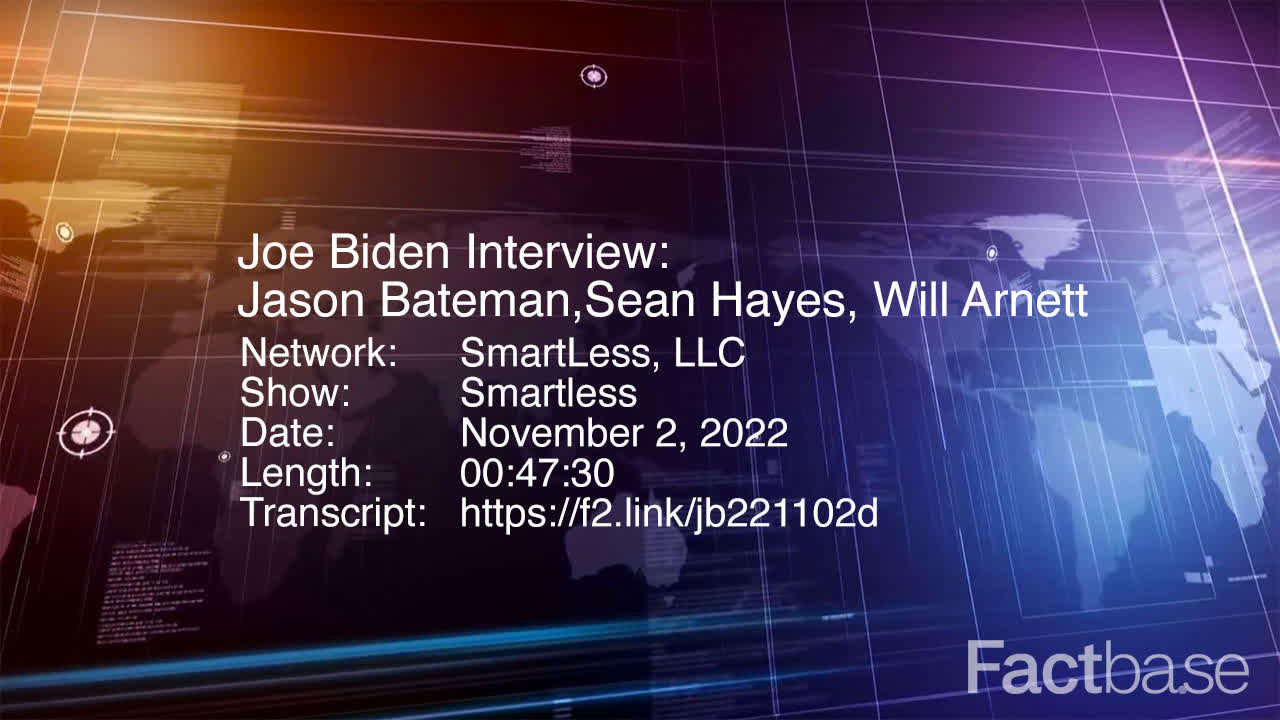
00:42:05-00:42:33 (28 sec)

"That's what I worry about, the Supreme Court decisions on voting that are coming down -- that are going to be coming down. And so -- but vote, vote, vote. That's been my -- I end all my speeches, everything I talk about. For me to do what you're suggesting, my -- I imagine it would end up being a gigantic fight, whether I was using an emergency system designed to save "lives" for political purposes."
453
Joe Biden
Neutral
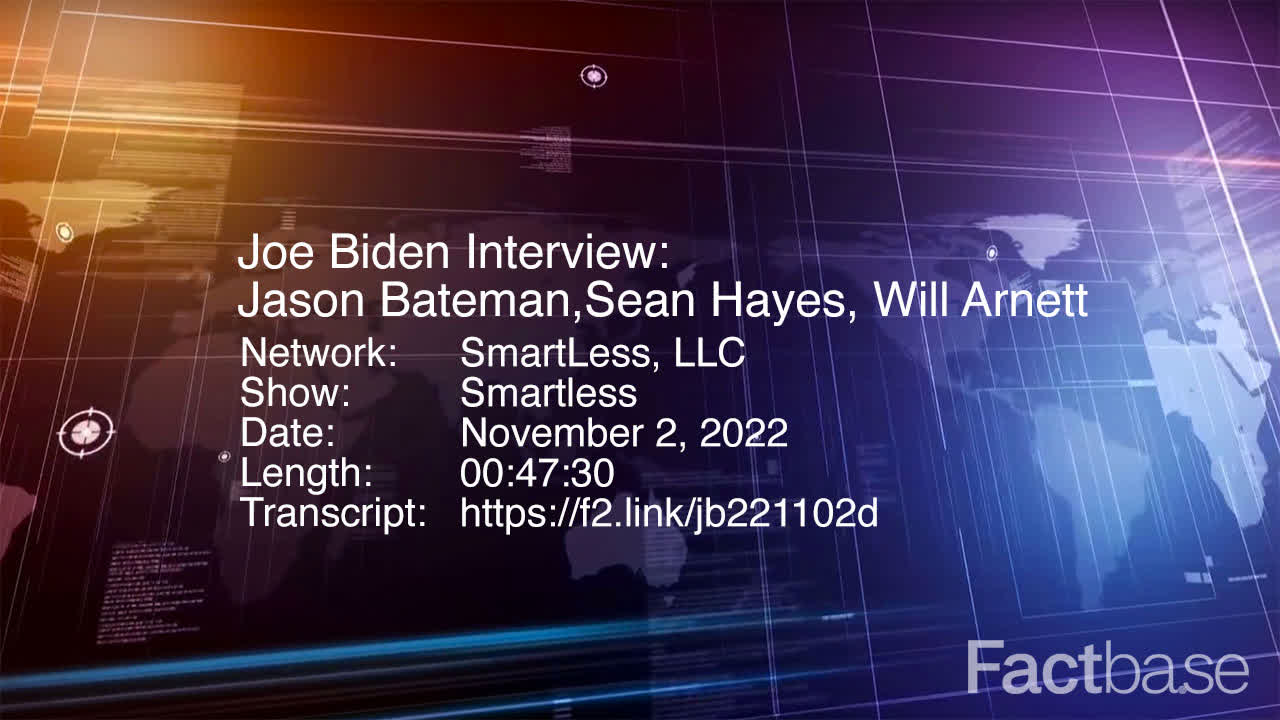
00:42:33-00:42:34 (1 sec)

"It's not."
454
Jason Bateman
Slightly Negative
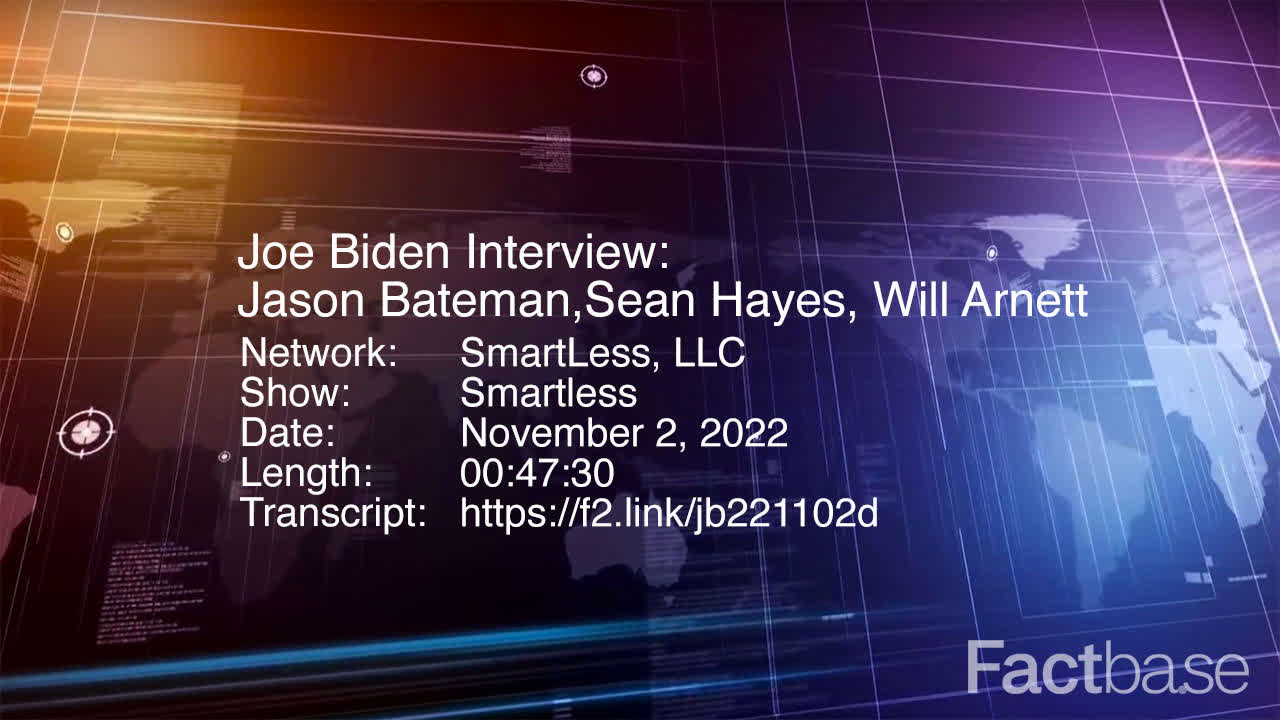
00:42:34-00:42:34 (1 sec)

"No, it's not."
455
Will Arnett
Neutral
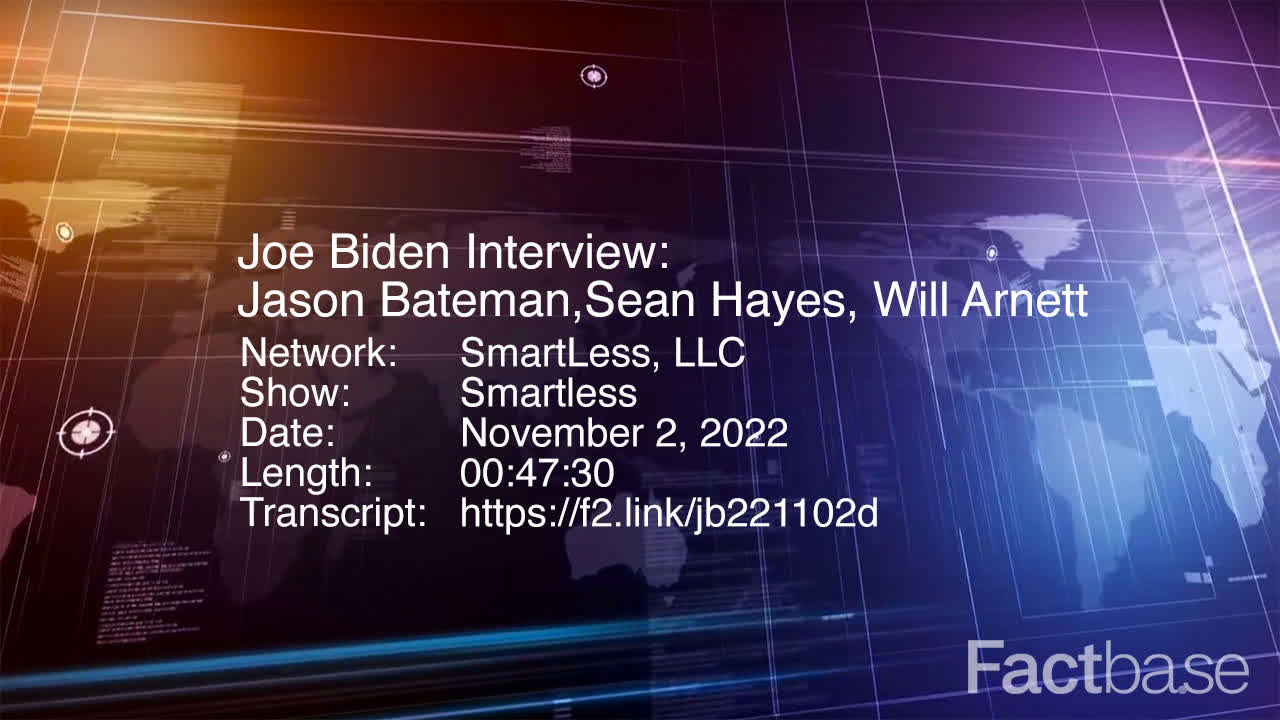
00:42:34-00:42:36 (1 sec)

"It's not, but you are saving lives."
456
Jason Bateman
Neutral
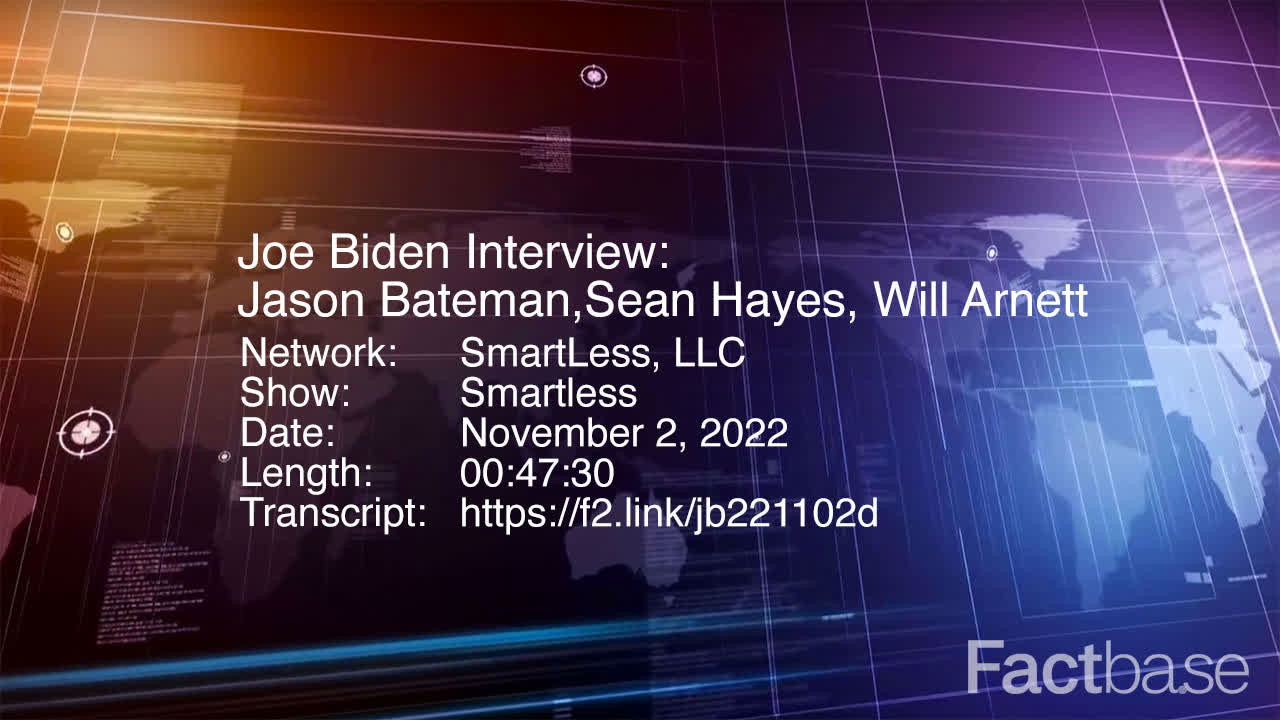
00:42:36-00:42:43 (7 sec)

"It's not for Republican or Democrat. It's just participate in the American process of voting. Just a quick a 10-second."
457
Joe Biden
Very Positive
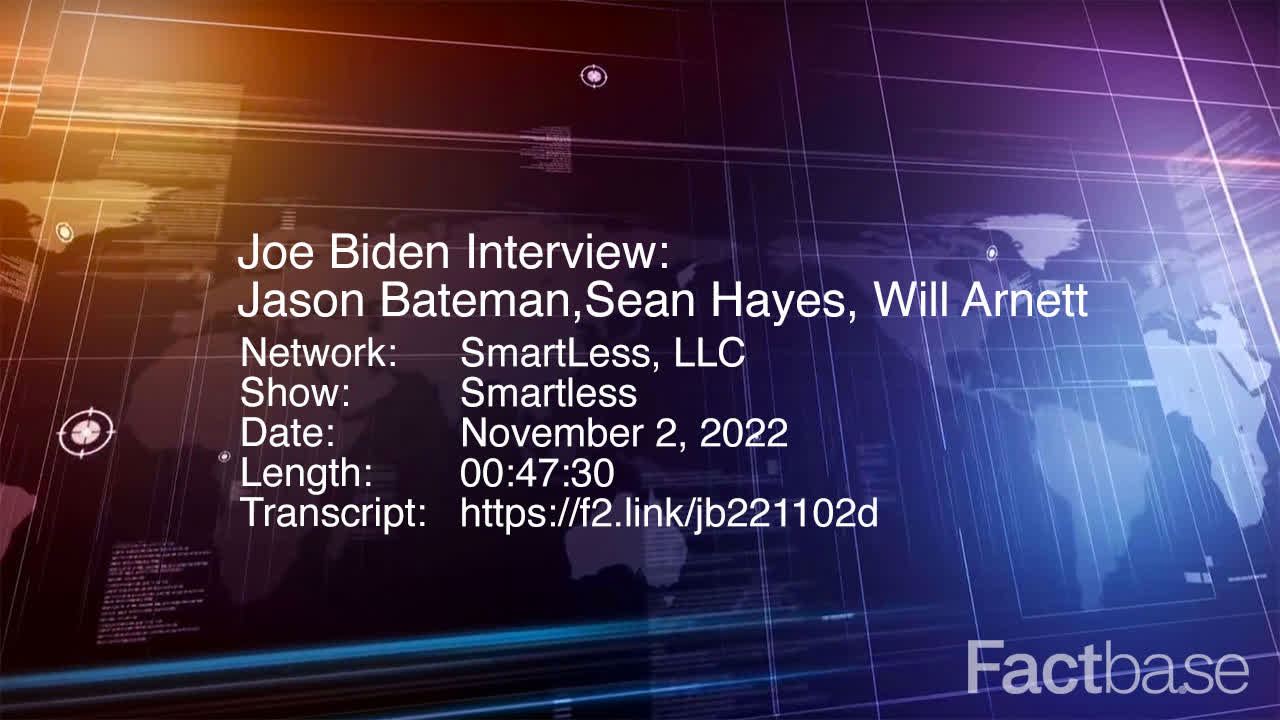
00:42:43-00:42:52 (9 sec)

"Well, guess what? Well, it's great. But guess what? The whole idea is the other team doesn't want people to vote. They don't want open voting. They don't want to be able to mail-in ballots. They don't want --"
458
Sean Hayes
Positive
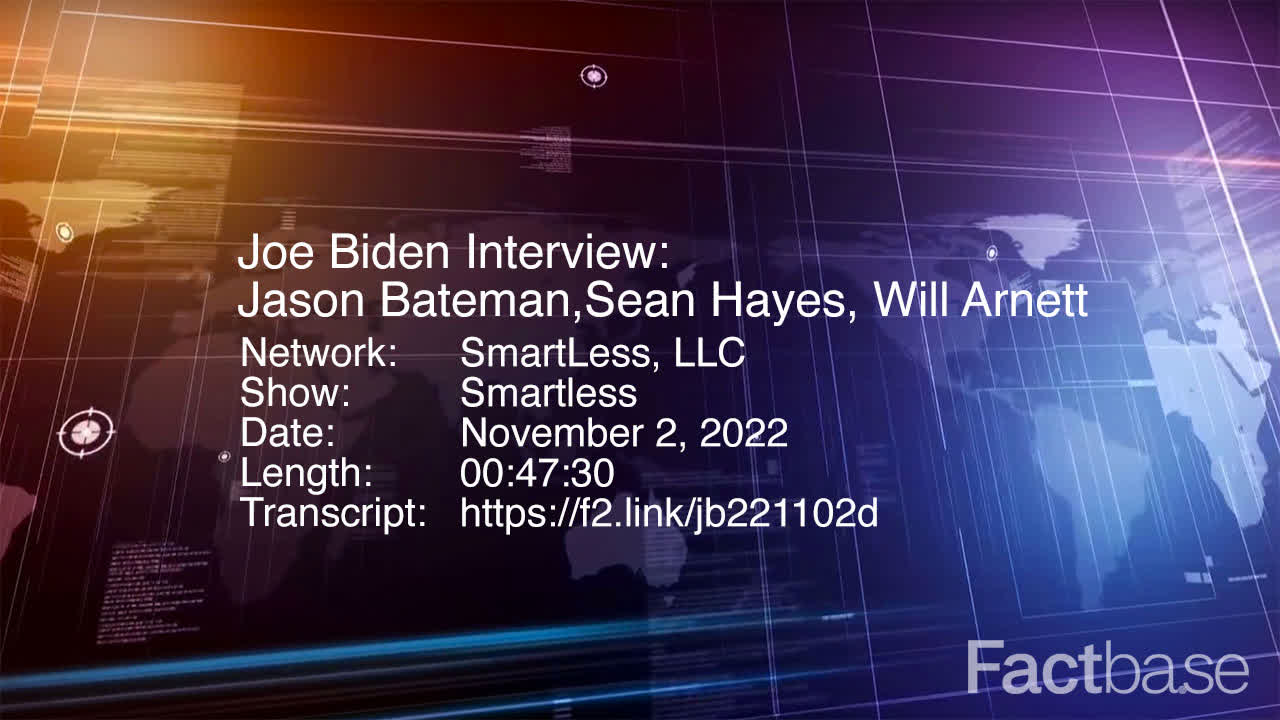
00:42:52-00:43:01 (8 sec)

"But they get to do what the president says, at least until while you're still president. You could put that little card up there, get everybody voting, and save our elections."
459
Joe Biden
Very Positive
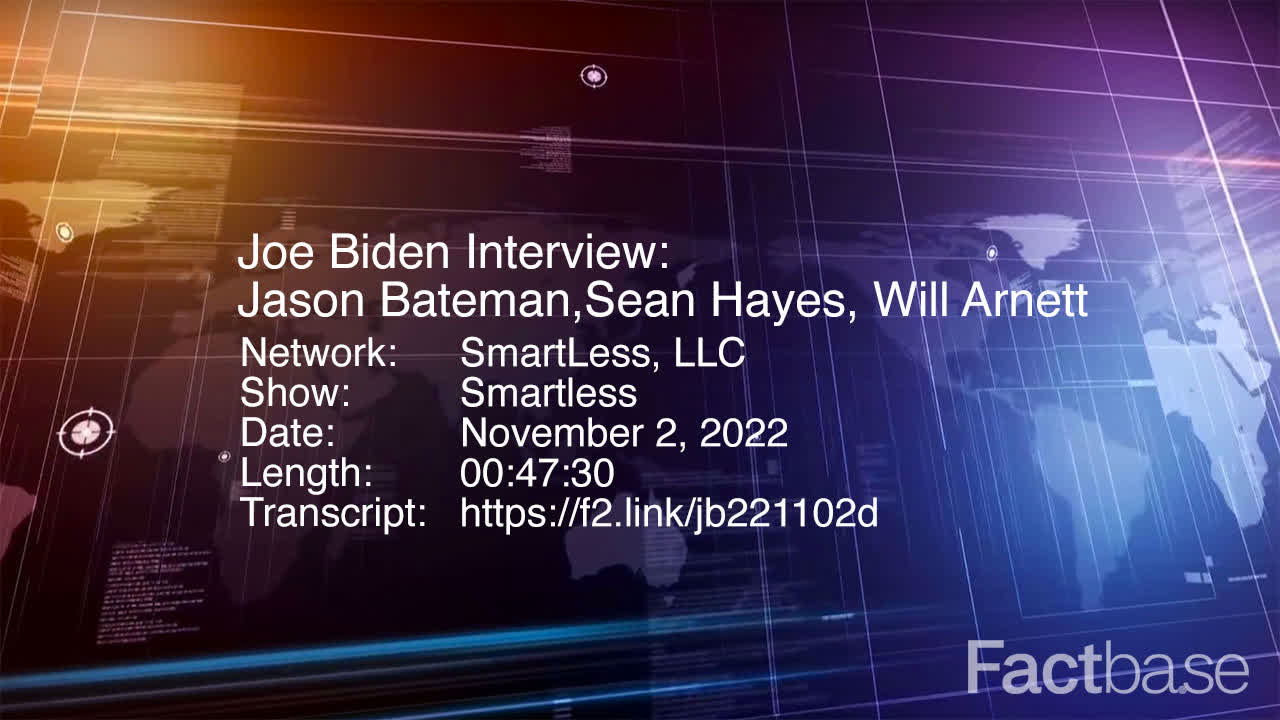
00:43:01-00:43:03 (2 sec)

"Well, we're praying to try to put that card."
460
Will Arnett
Very Positive
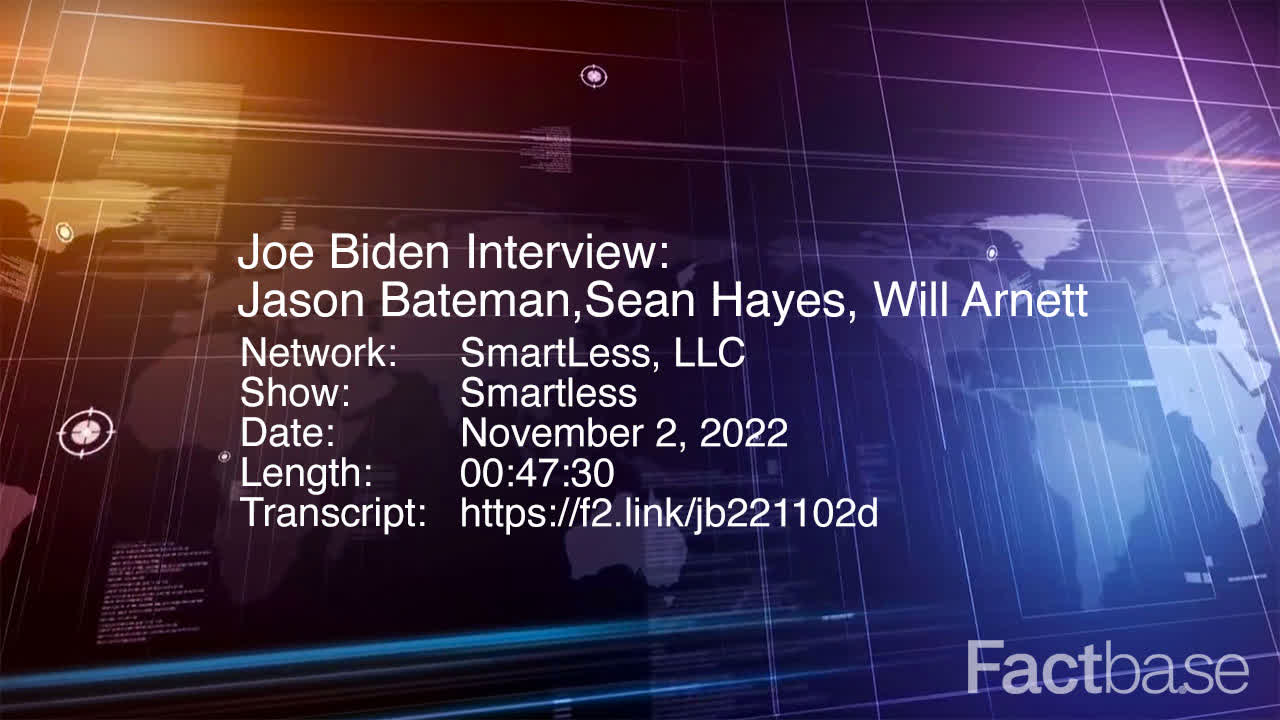
00:43:03-00:43:08 (5 sec)

"It'd make a great movie. We need to thank you, Actor Jason Bateman. Hey, can I just say --"
461
Joe Biden
Neutral
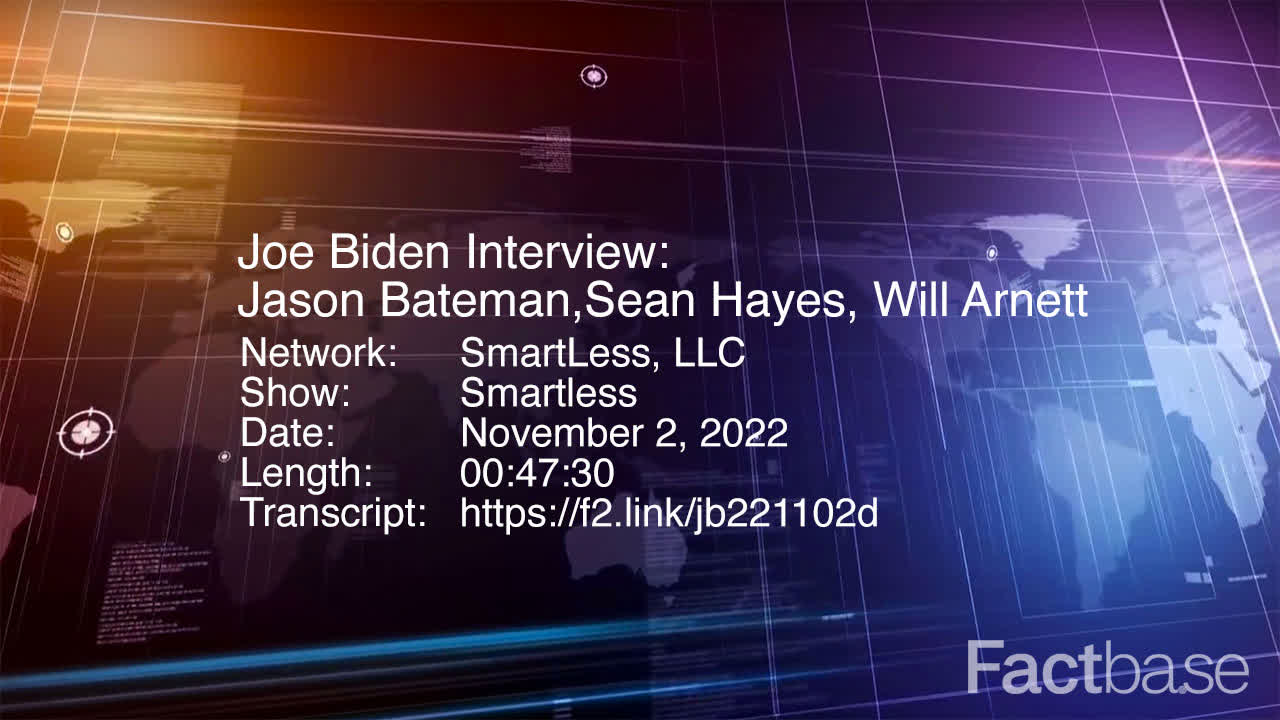
00:43:08-00:43:09 (2 sec)

"I'm serious, Jason. You're right."
462
Will Arnett
Very Positive
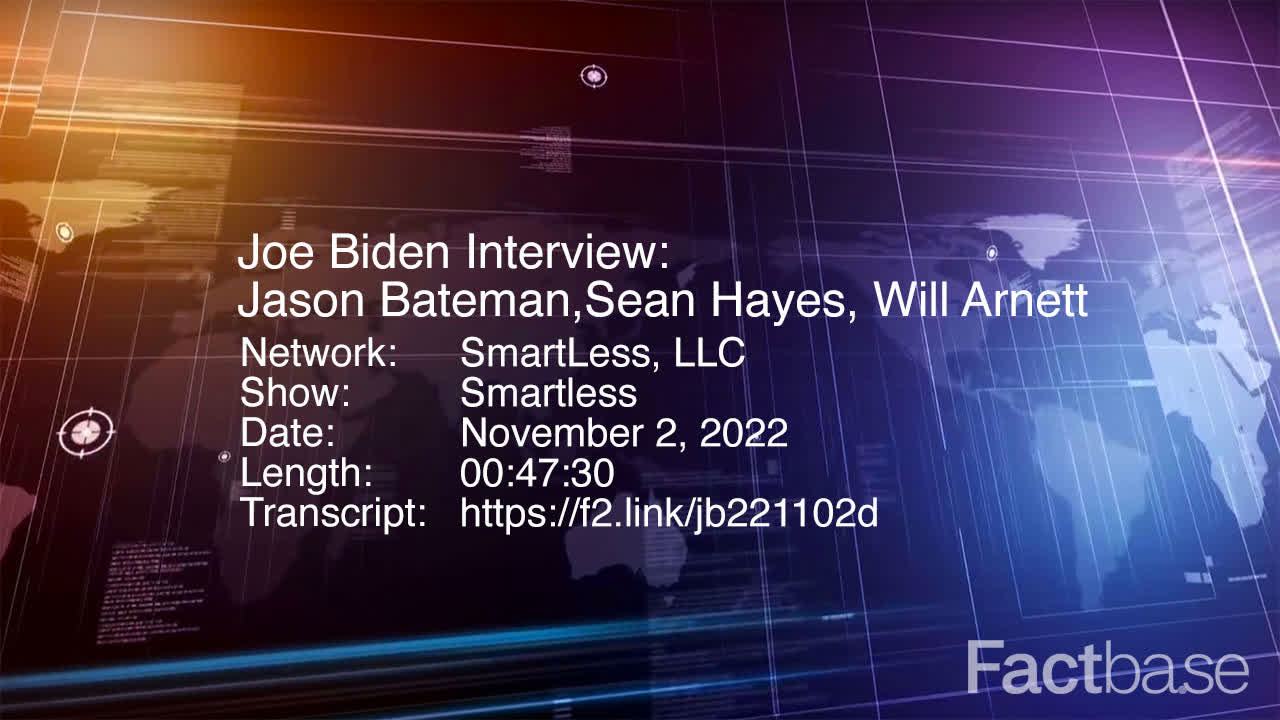
00:43:09-00:43:21 (12 sec)

"No, he's a great -- by the way, it's a great idea. And I really like that. I think that that's pretty awesome, and it would be a good use of it. But I think you're right. It would be hijacked, if you will, by -- by people who would think you're politicizing --"
463
Sean Hayes
Slightly Positive
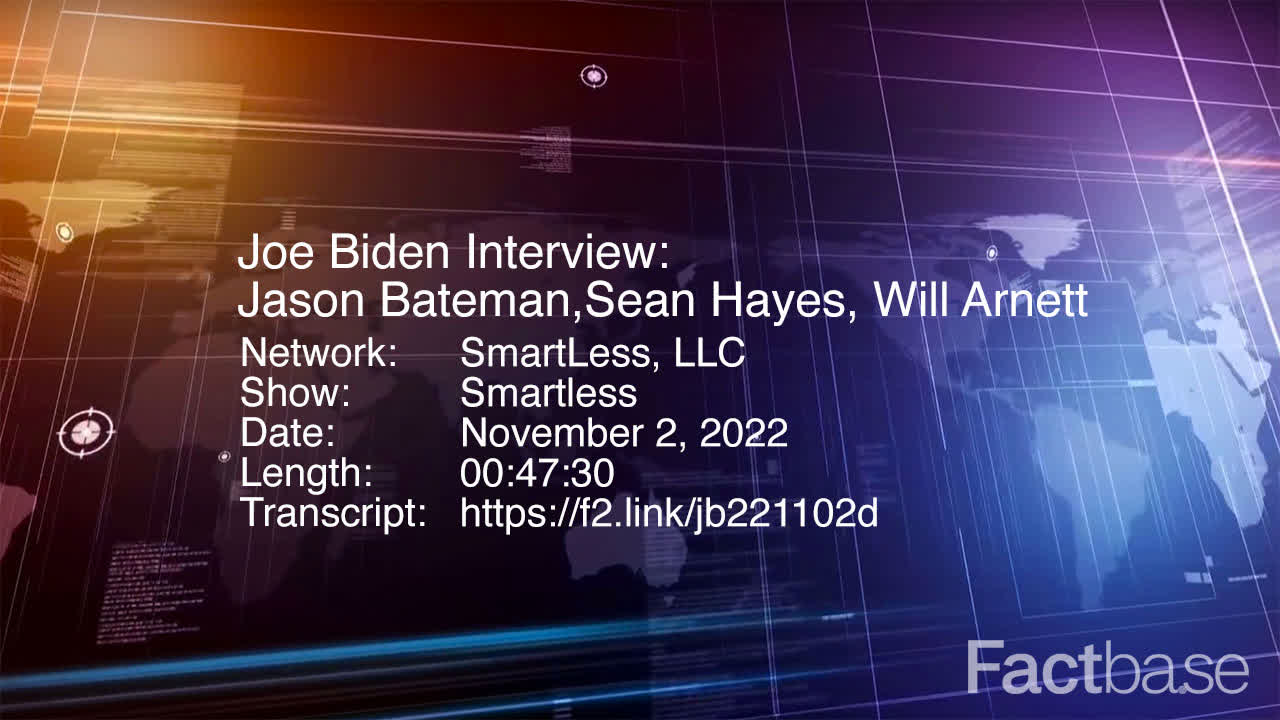
00:43:21-00:43:25 (4 sec)

"Well, they you should do it one -- you know, they're in charge, too. I mean, it's just voting."
464
Will Arnett
Very Positive
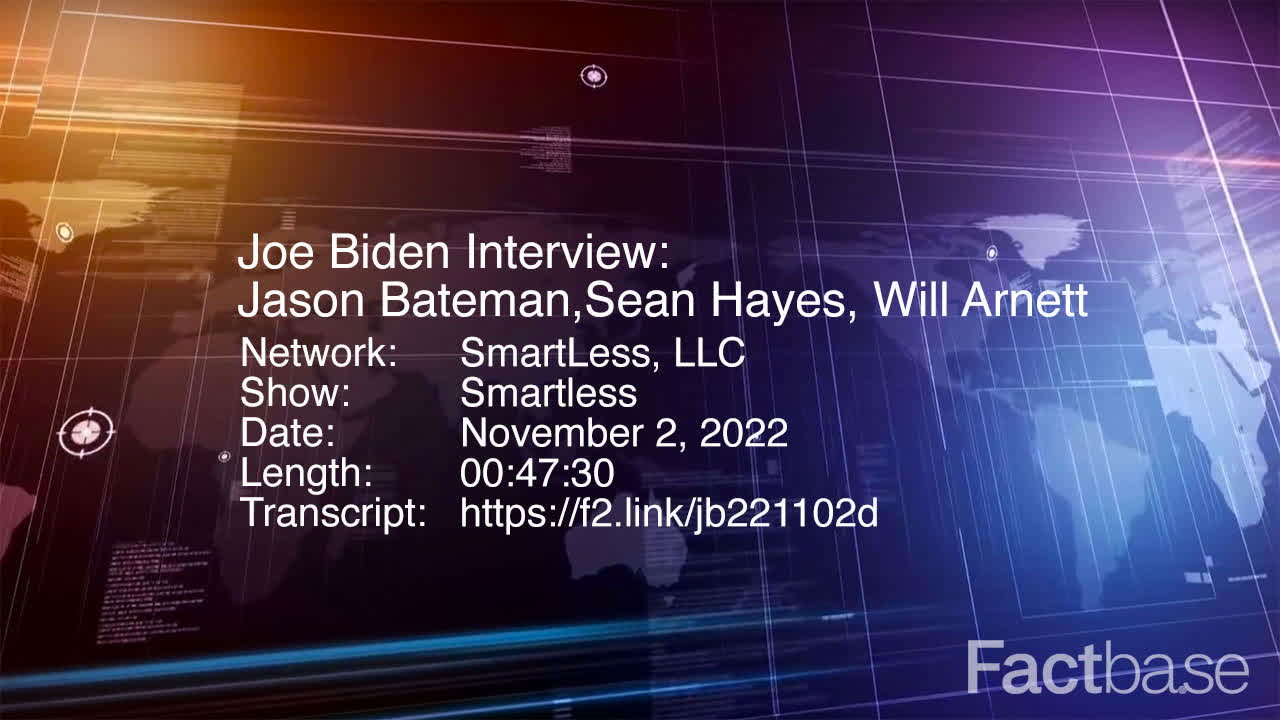
00:43:25-00:43:44 (19 sec)

"I just want to say, Mr. President, what's crazy for us is we started this podcast in the middle of COVID when everybody else was locked down and we were, too. And for us, it was a way to connect. We've been friends for 20 years. I get to do it with these two guys that I love a lot and who are my -- my best friends."
465
Will Arnett
Very Positive
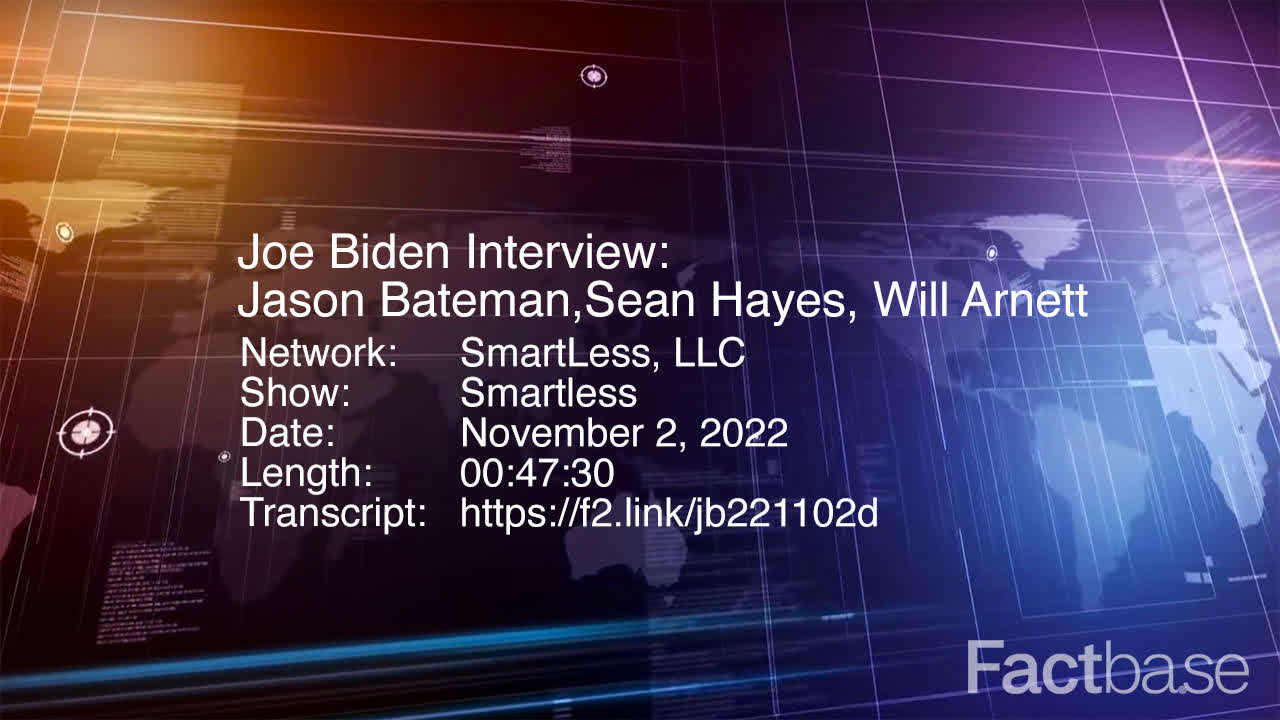
00:43:44-00:43:59 (15 sec)

"And we -- we just started. We didn't know where we were going. It gives us a lot of joy to know that it gave people -- that it uplifted people and made people feel more confident or made people feel more positive in a -- in a tough time."
466
Joe Biden
Very Negative
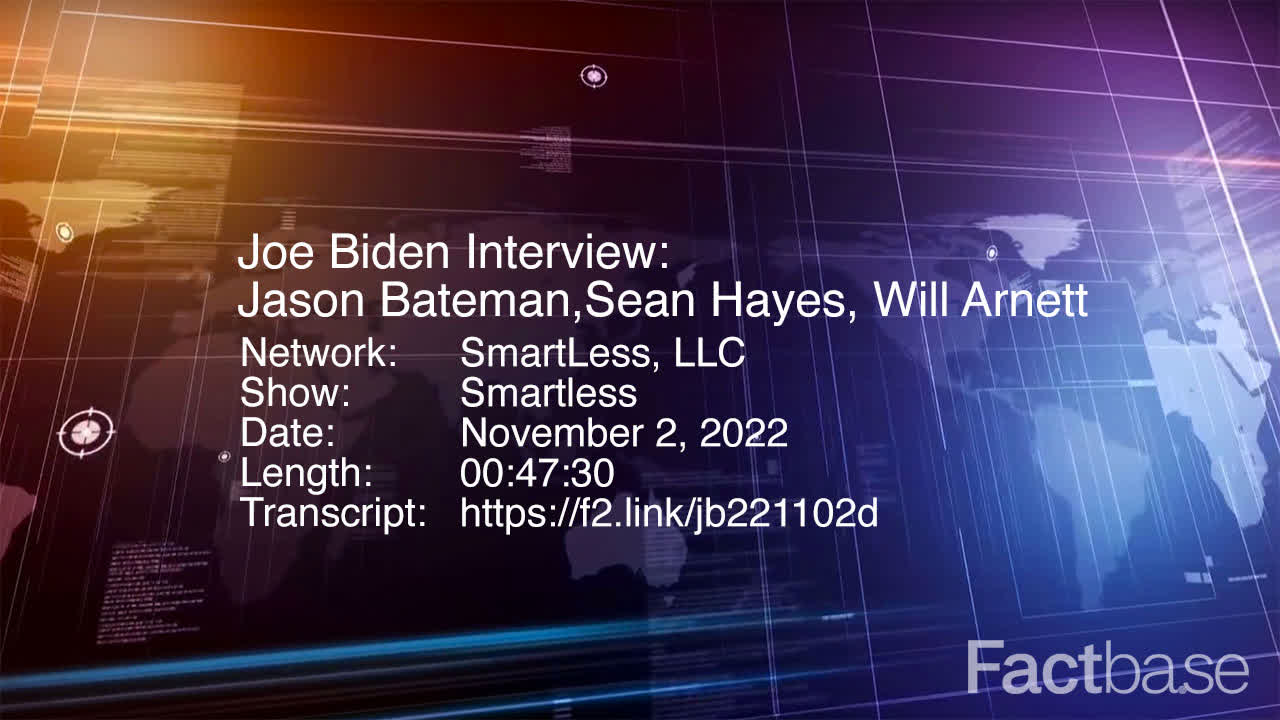
00:43:59-00:44:19 (20 sec)

"You gave them hope. Look, guys, two things are going to go down in history. Number one, more than a million people died. A million people died. And the estimates are those million people had nine close related people, whether their family or otherwise. The psychological impact on the nation has been profound."
467
Joe Biden
Somewhat Negative
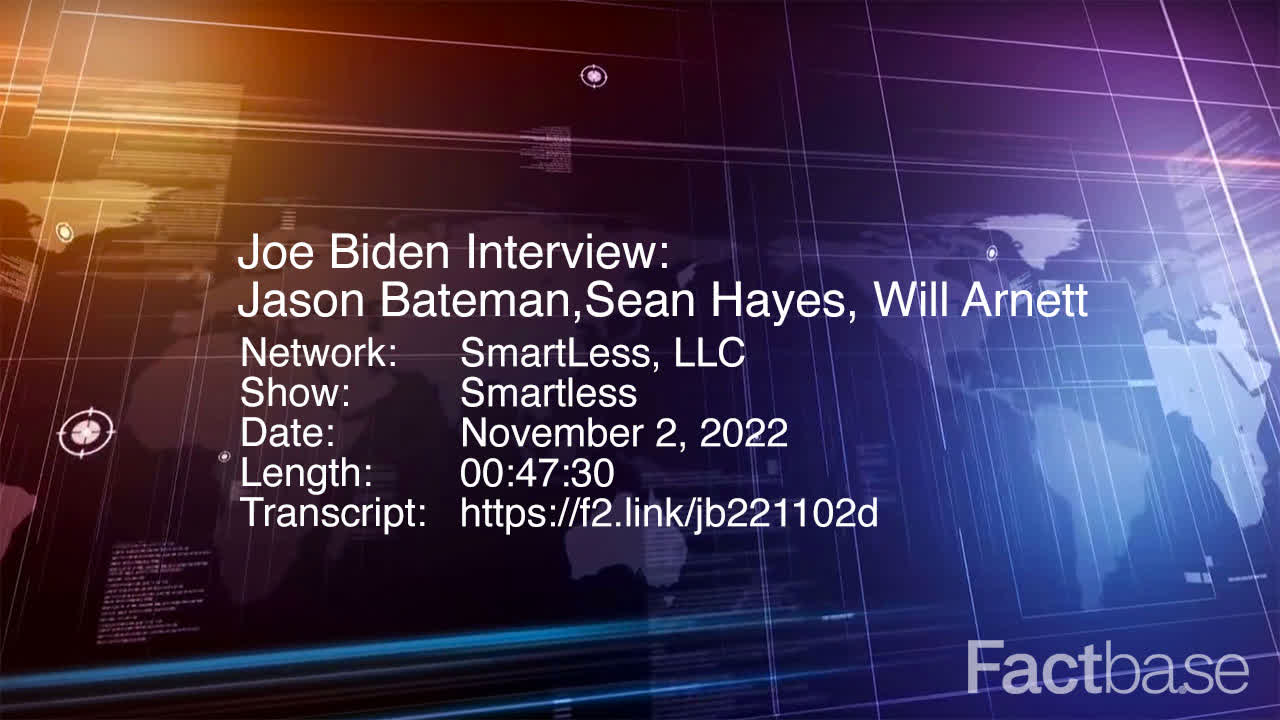
00:44:19-00:44:41 (22 sec)

"Absolutely profound. And the other thing is, the whole idea that we're moving -- think about this, graduating from -- when you graduated from high school, you had -- you had your prom, you had, you know, the -- the graduation ceremonies you had. What do these kids have? The kids are graduating. What are the things that they, in fact, missed that are consequential?"
468
Joe Biden
Very Positive
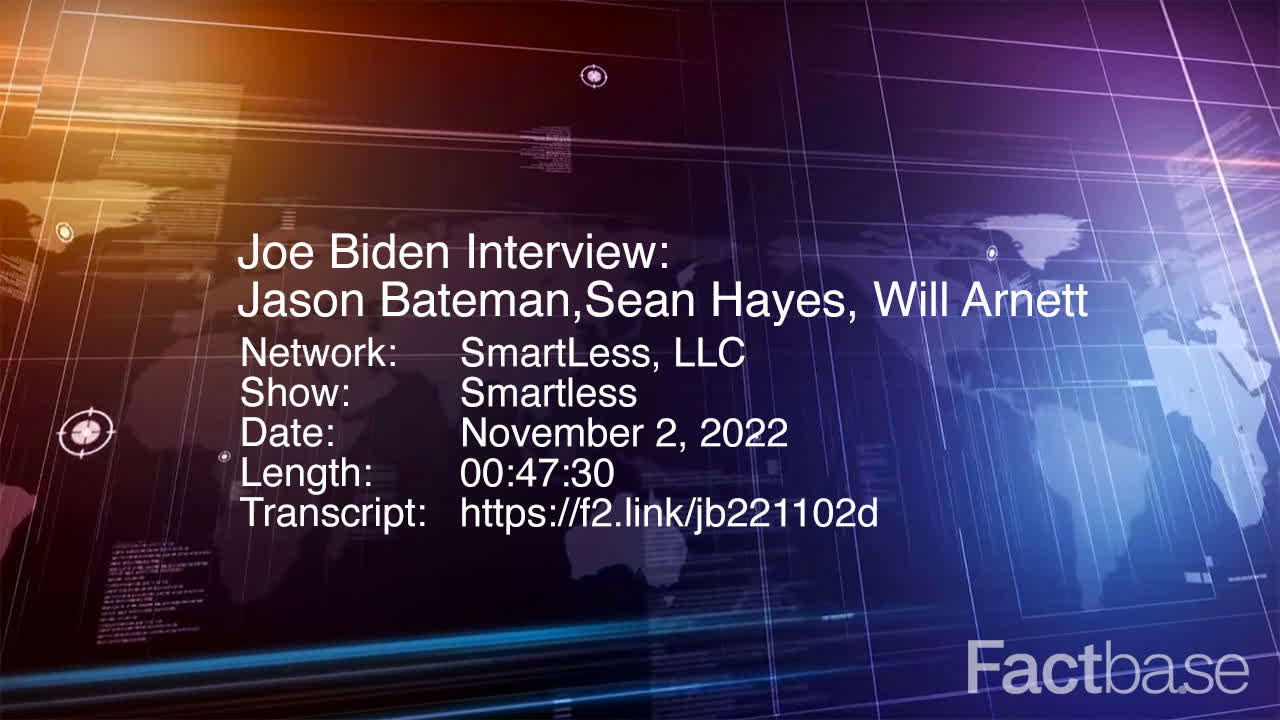
00:44:41-00:44:59 (18 sec)

"That junior prom, that senior prom, that graduation ceremony. They -- all -- all those parties, all -- I mean, it's like -- and it's like the difference. Everybody asked me what was the most exciting thing when you got elected and so on. You know, I was really honored to be -- I mean, it's the greatest honor in the world."
469
Joe Biden
Leans Positive
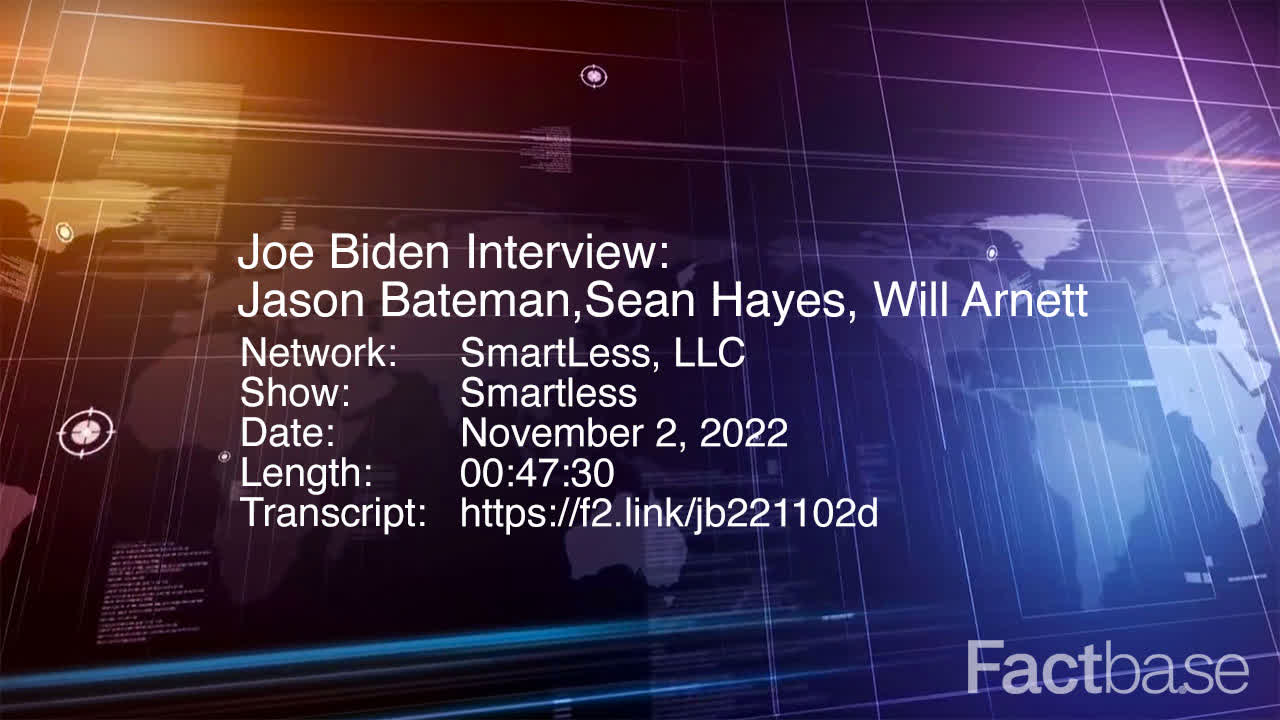
00:44:59-00:45:02 (3 sec)

"OK? But there was no celebration about it."
470
Jason Bateman
Slightly Positive
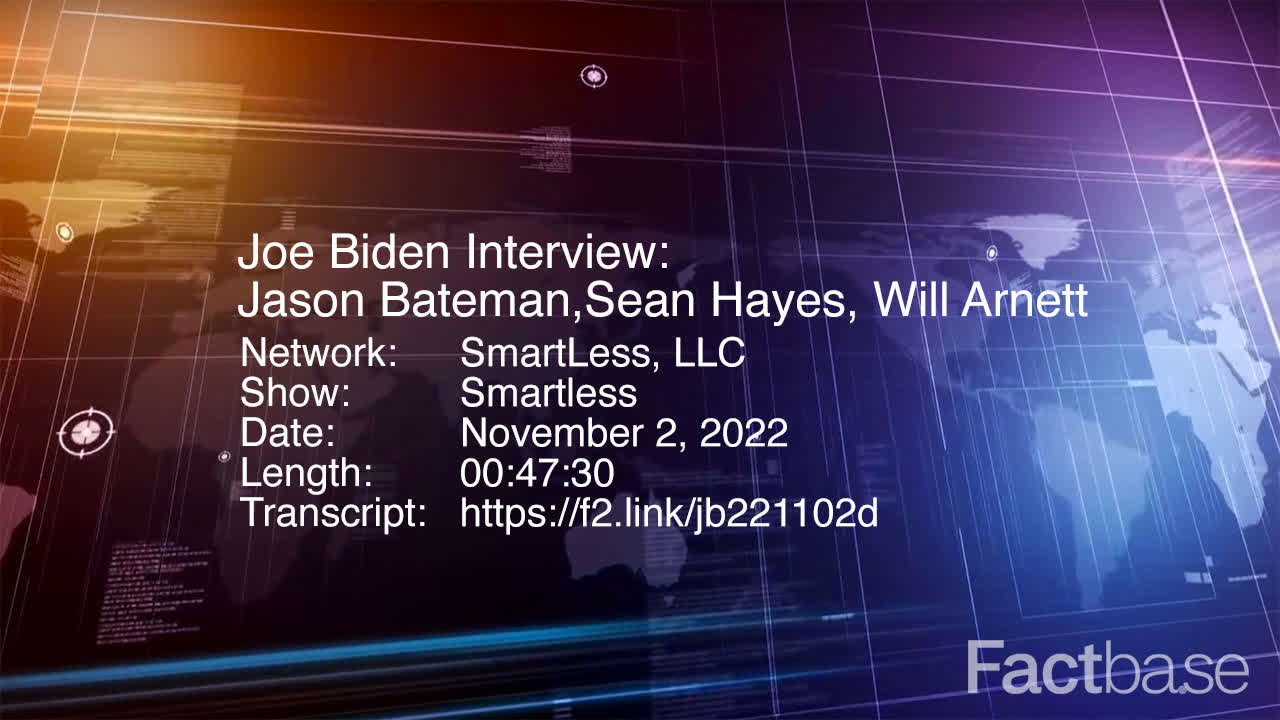
00:45:02-00:45:05 (3 sec)

"Yeah, you were having to do rallies with cars honking."
471
Joe Biden
Slightly Negative
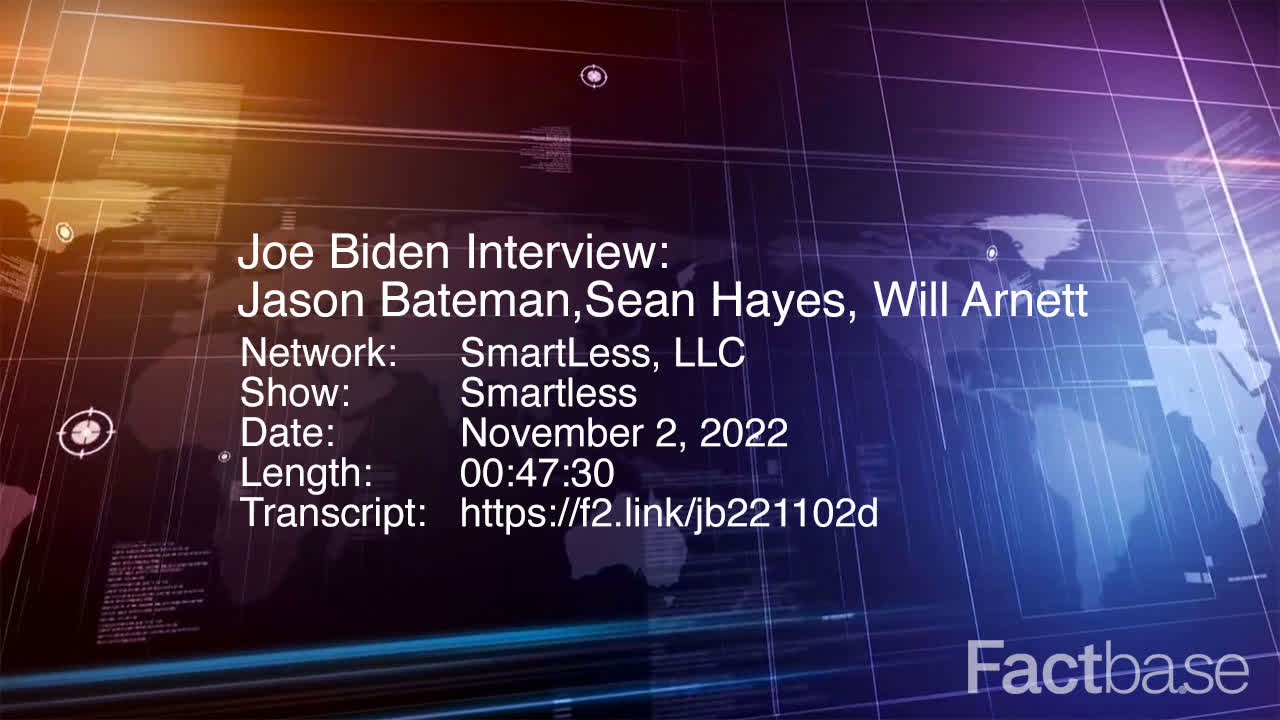
00:45:05-00:45:09 (4 sec)

"No, no, but -- but -- but I mean it. And that's not who we are."
472
Will Arnett
Neutral
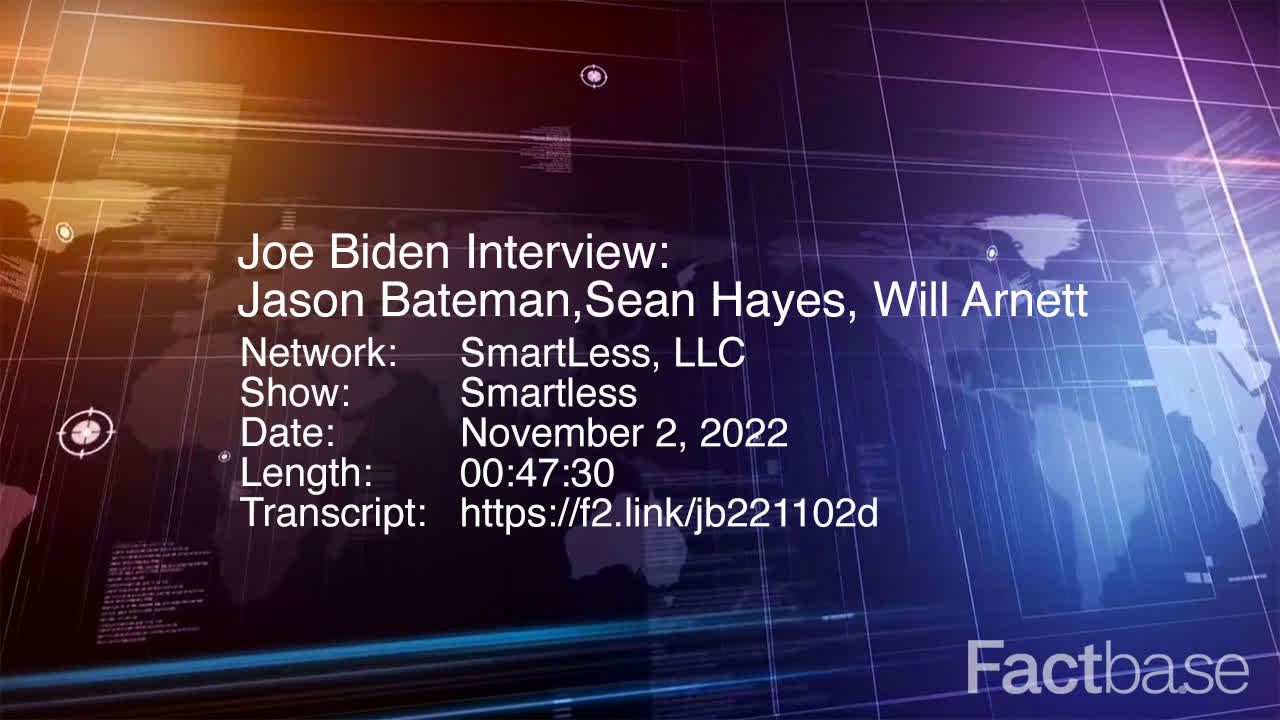
00:45:09-00:45:09 ( sec)

"Right."
473
Joe Biden
Leans Positive
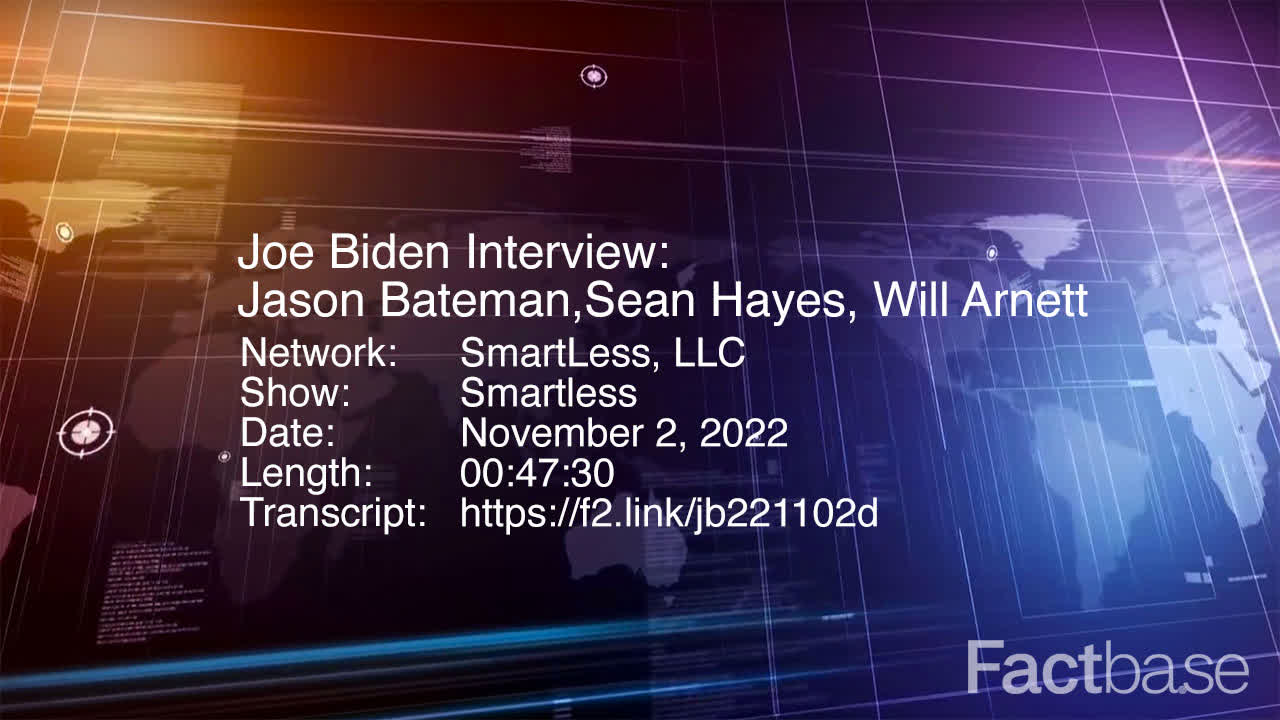
00:45:09-00:45:15 (5 sec)

"And the other thing people have to remember, our strength lies in our incredible diversity."
474
Will Arnett
Slightly Positive
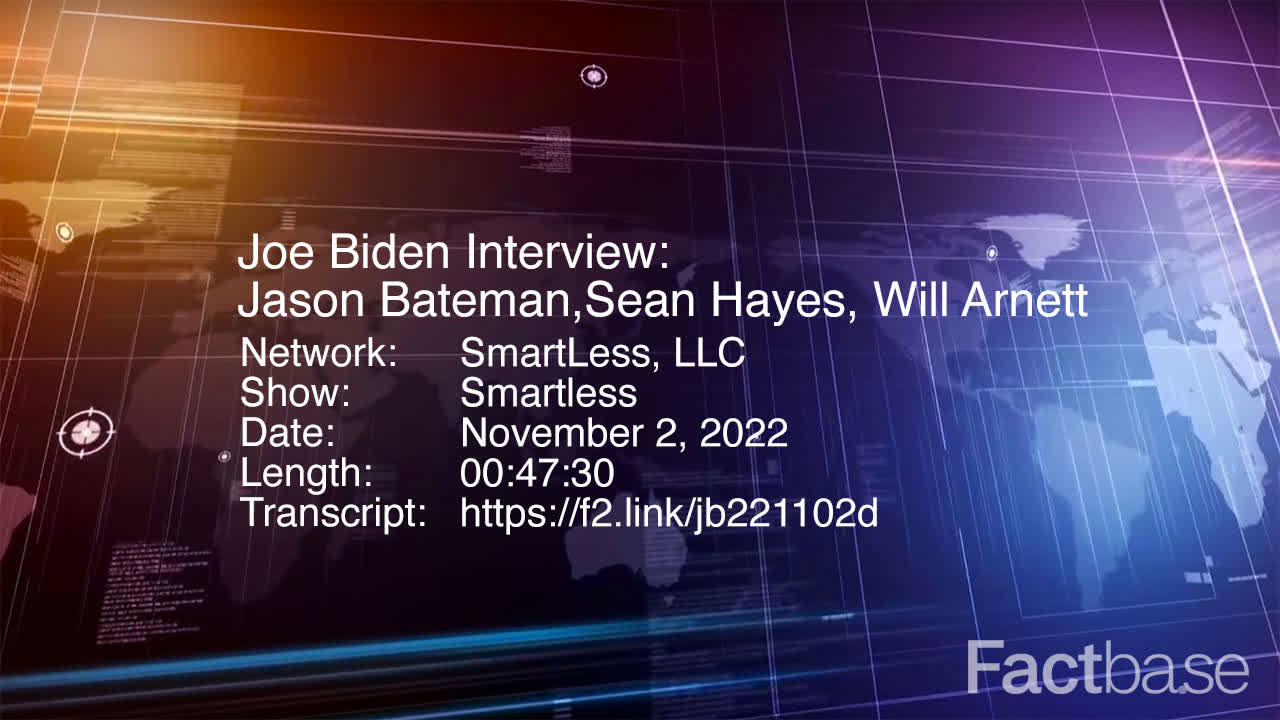
00:45:15-00:45:15 ( sec)

"Yeah."
475
Joe Biden
Neutral
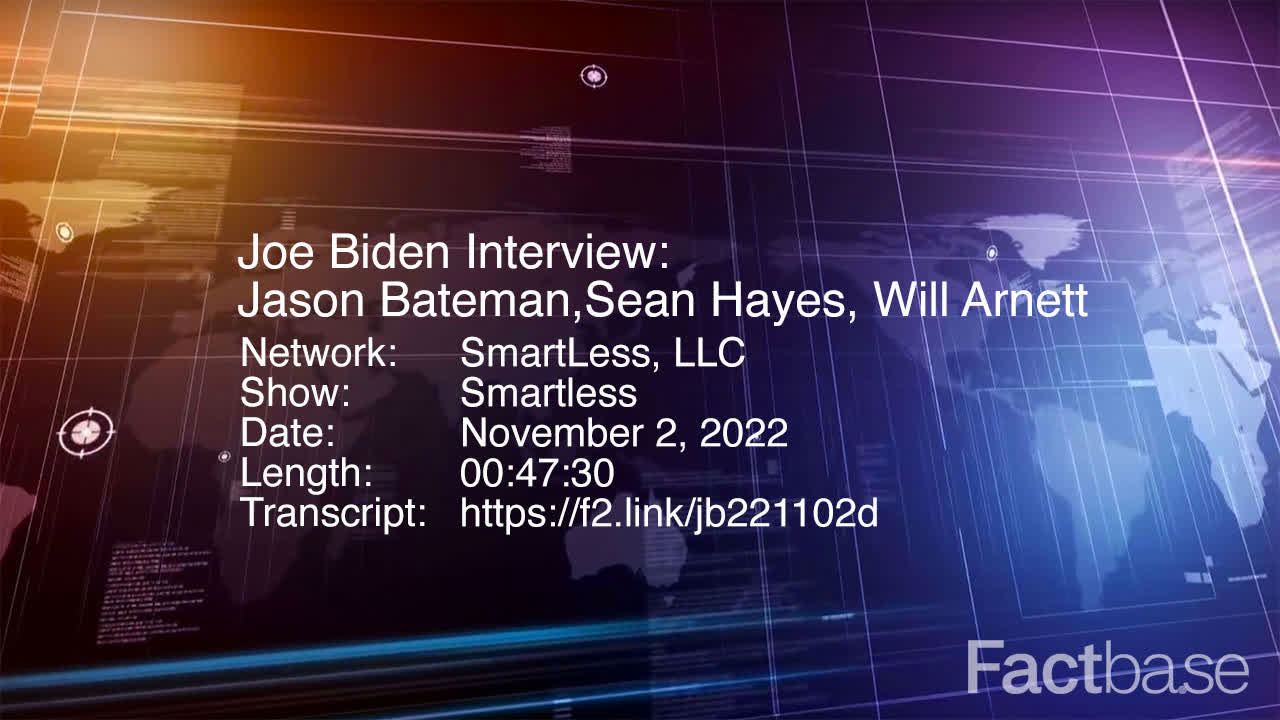
00:45:15-00:45:16 (1 sec)

"It's incredible."
476
Sean Hayes
Neutral
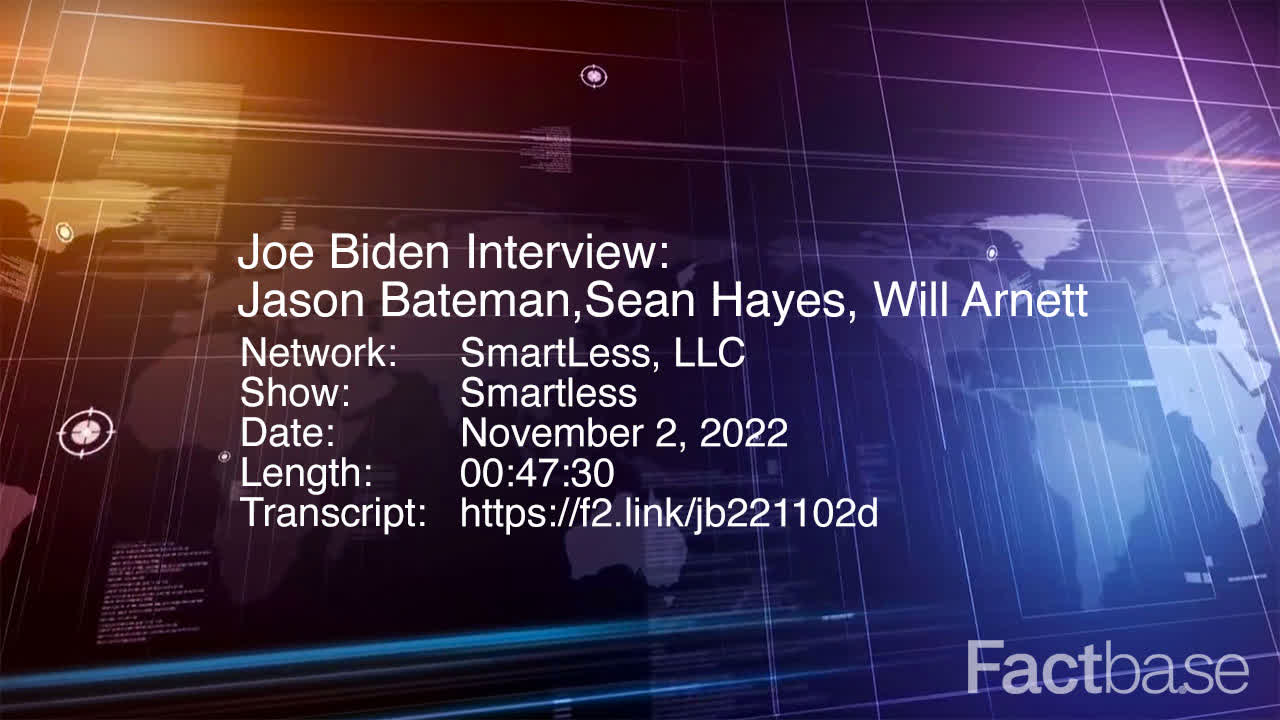
00:45:16-00:45:17 (1 sec)

"Absolutely."
477
Joe Biden
Neutral
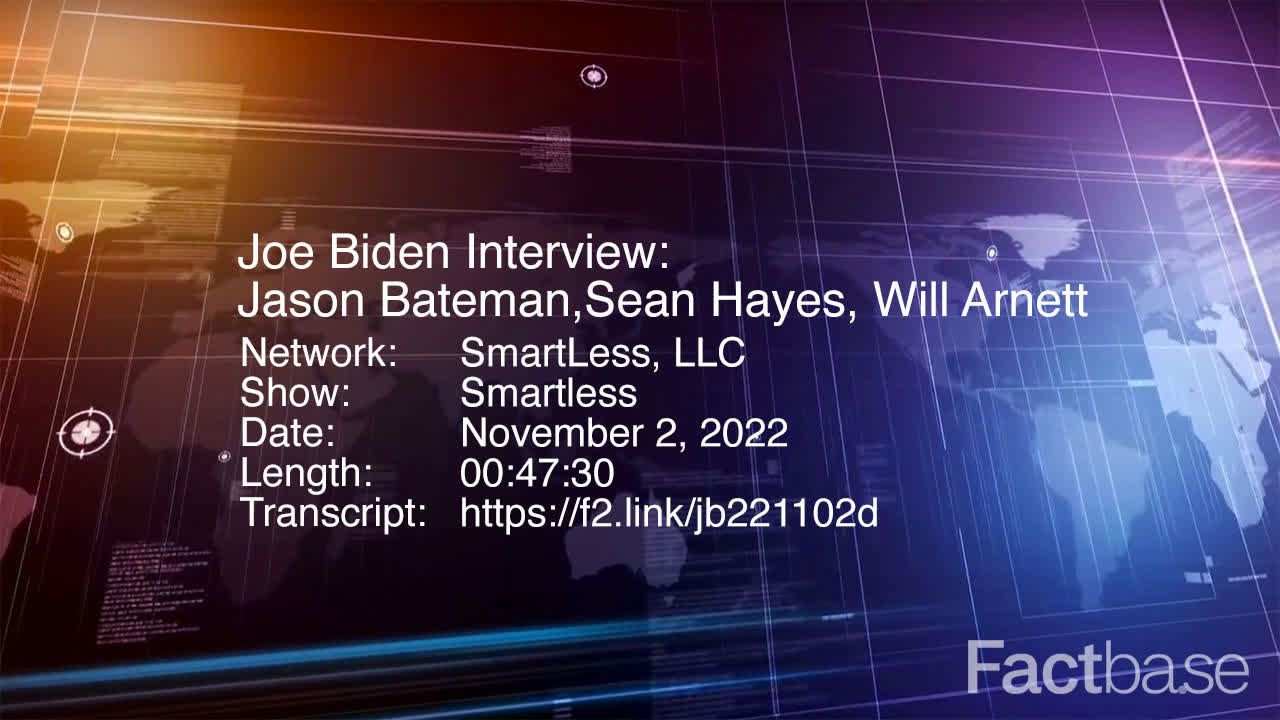
00:45:17-00:45:18 ( sec)

"Incredible."
478
Sean Hayes
Neutral
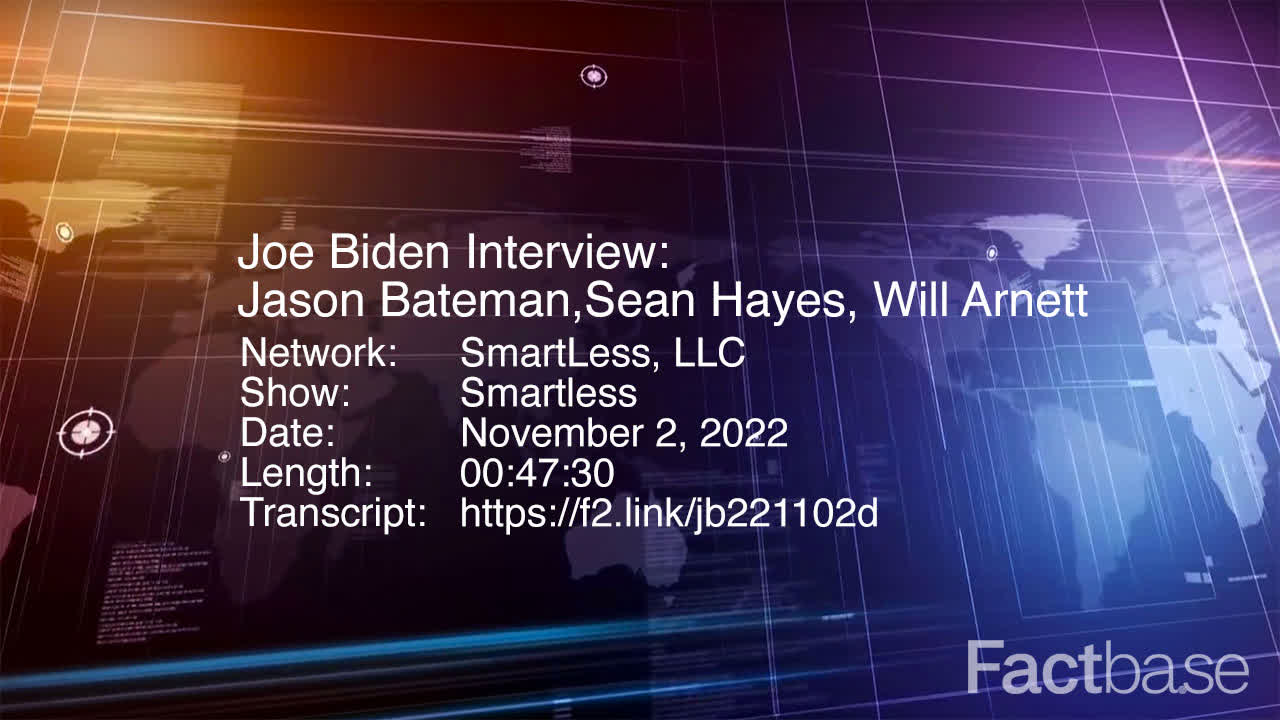
00:45:18-00:45:18 (1 sec)

"Absolutely."
479
Joe Biden
Very Positive
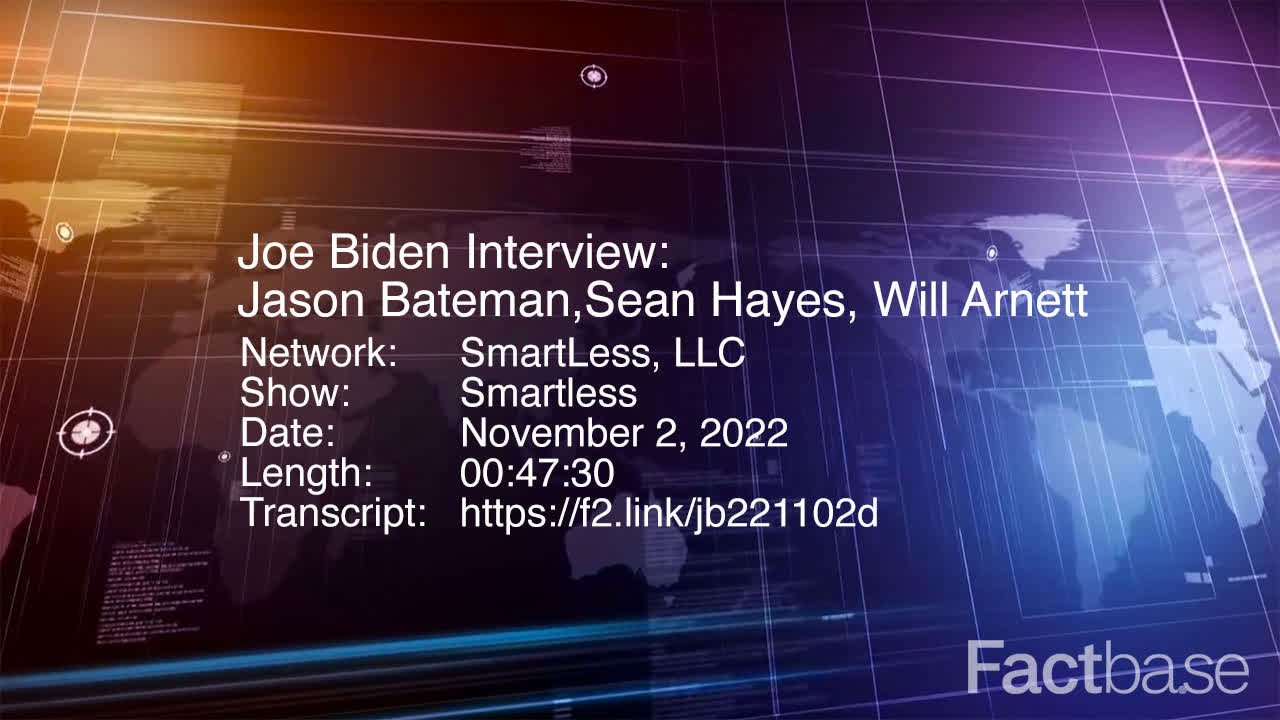
00:45:18-00:45:23 (5 sec)

"And other nations are realizing that that's why they want to invest here. That's why they want to get engaged here."
480
Jason Bateman
Neutral
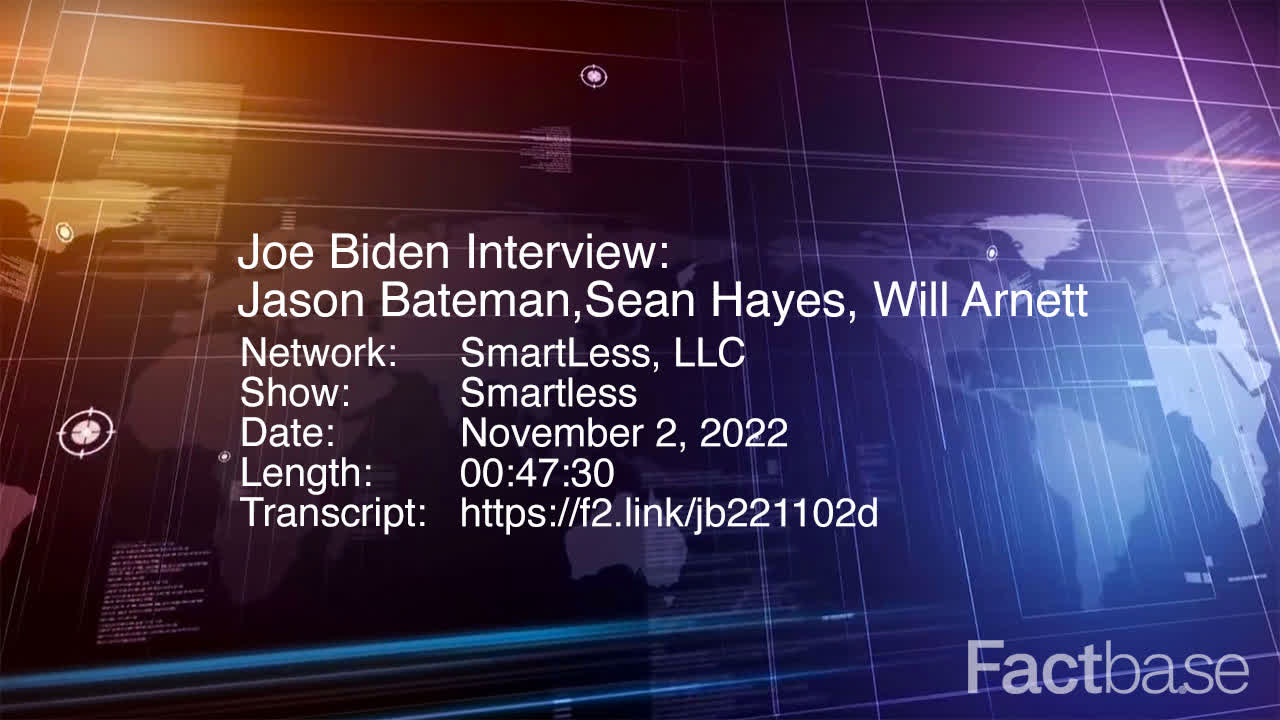
00:45:23-00:45:25 (2 sec)

"Or come here for education."
481
Joe Biden
Negative
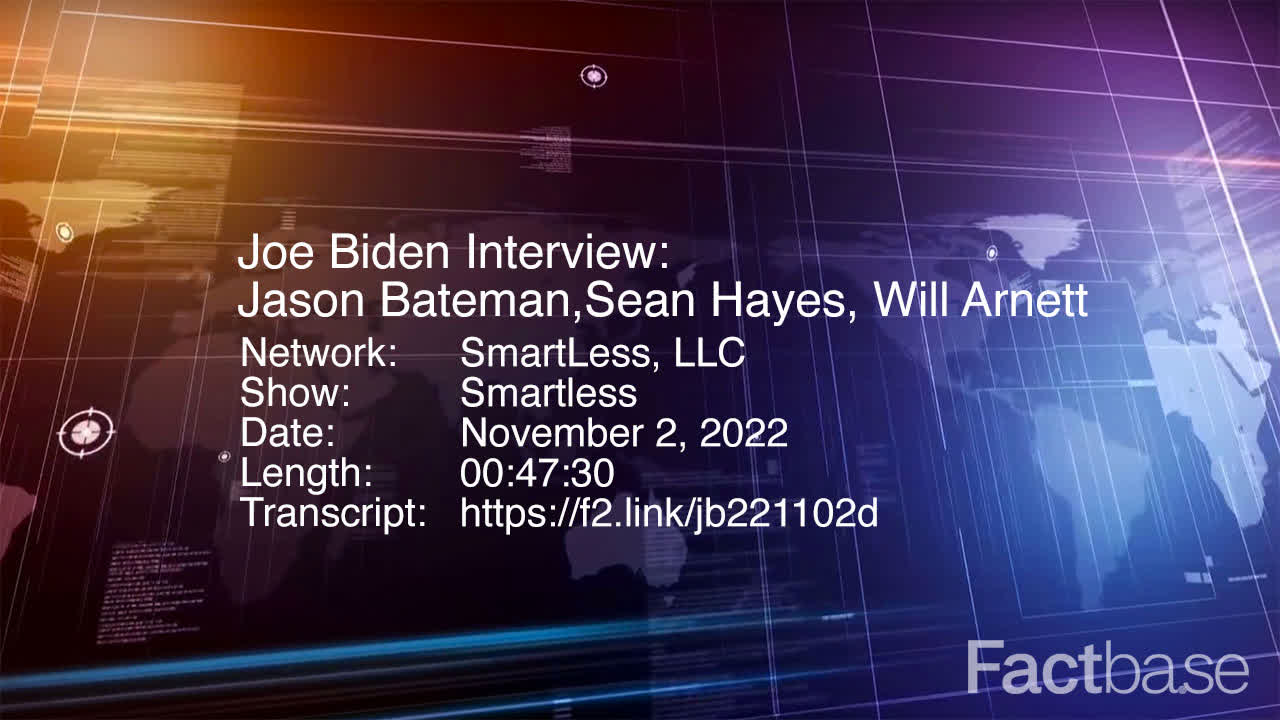
00:45:25-00:45:31 (6 sec)

"Exactly right. And so, there's so much. And by the way, I'm convinced, we're going to be able to do a hell of a lot."
482
Sean Hayes
Very Positive
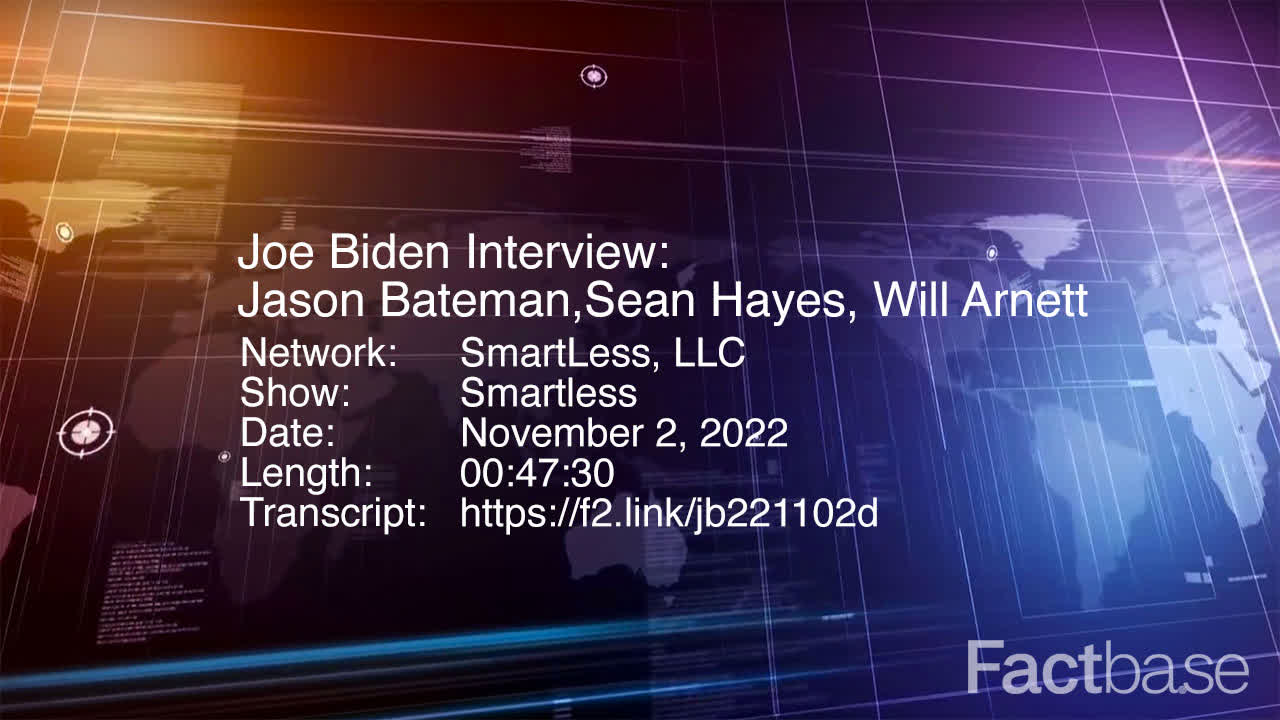
00:45:31-00:45:31 ( sec)

"I love that."
483
Will Arnett
Somewhat Positive
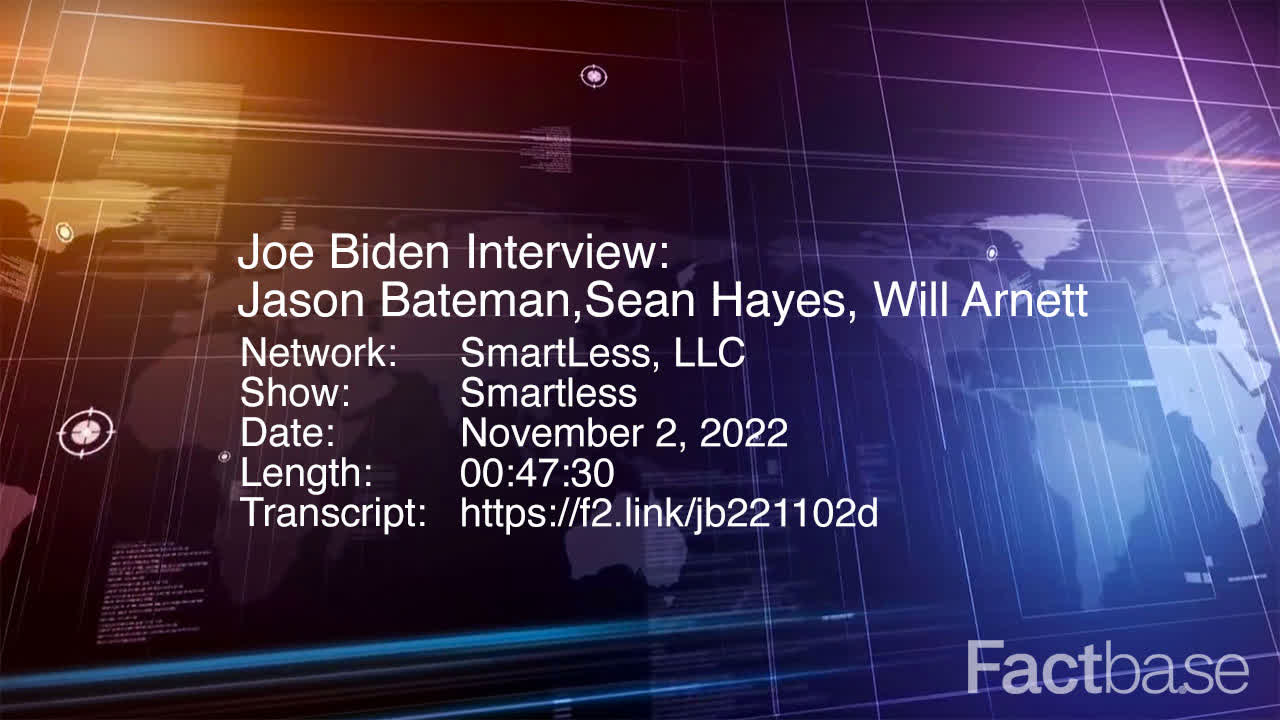
00:45:31-00:45:46 (15 sec)

"Me, too. And I got to tell you, during a time -- I can speak for me, during a time that felt really hopeless and dark and it felt like a number of years where the -- the sort of the sentiment of the nation was quite dark, Mr. President, you brought a lot of light. So, you did bring a lot of hope to a lot of people."
484
Sean Hayes
Neutral
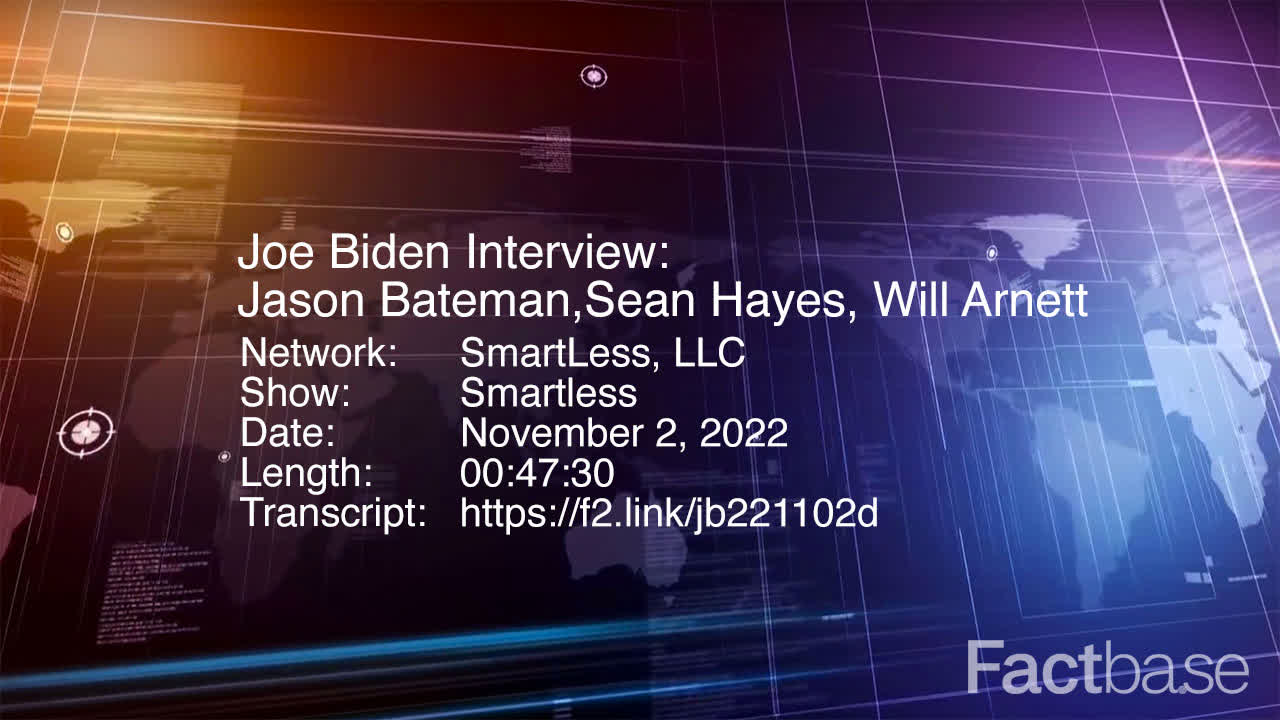
00:45:46-00:45:47 (1 sec)

"Absolutely in this --"
485
Will Arnett
Neutral
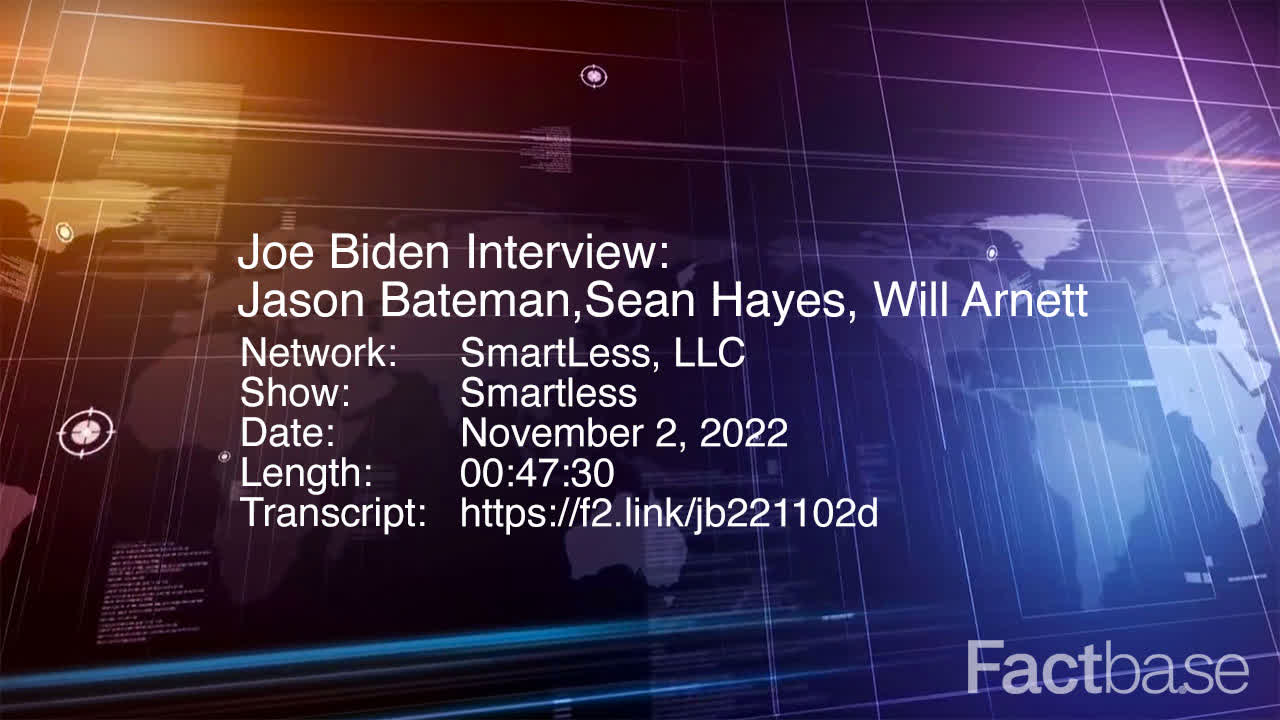
00:45:47-00:45:48 (1 sec)

"And we fed on that --"
486
Jason Bateman
Neutral
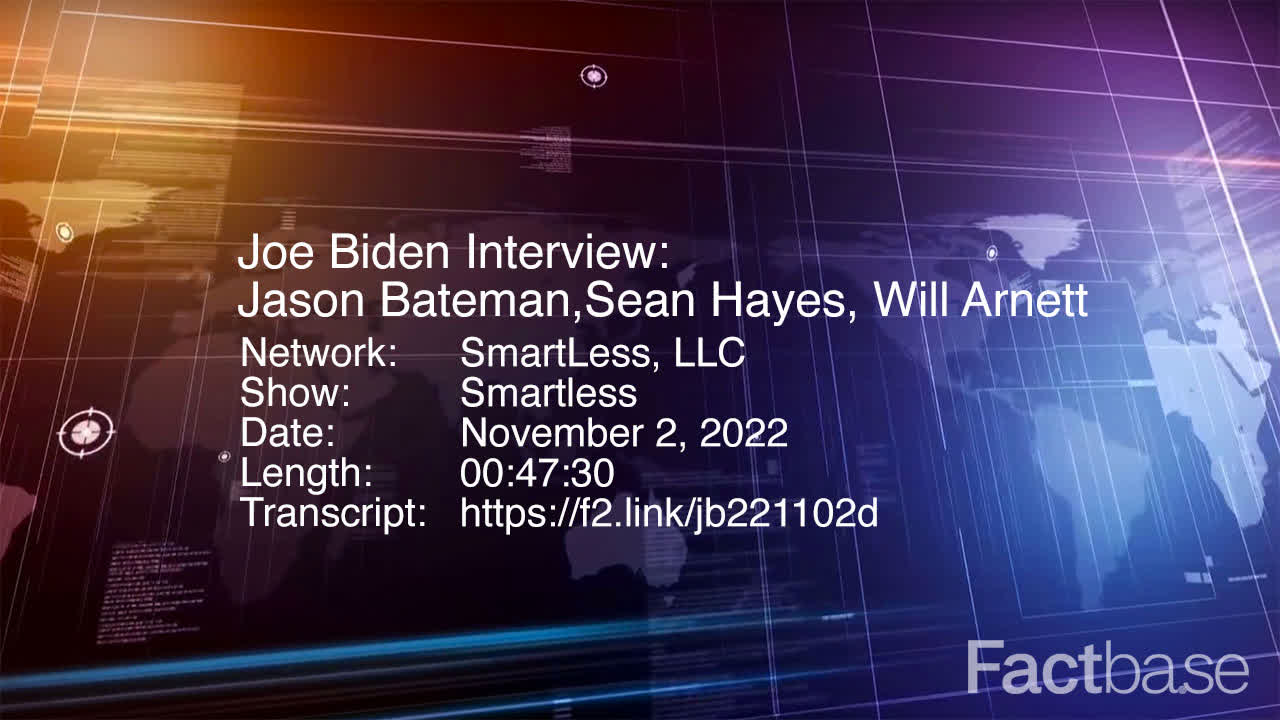
00:45:48-00:45:49 (1 sec)

"Common sense."
487
Will Arnett
Somewhat Positive
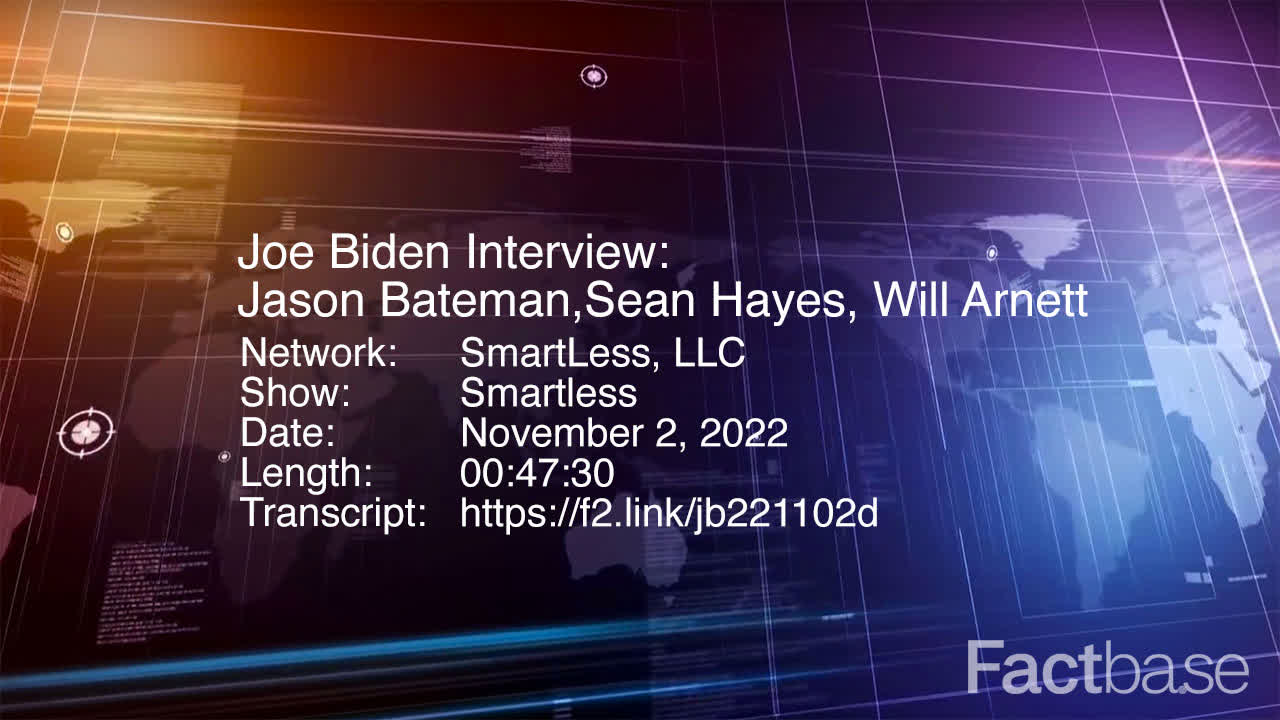
00:45:49-00:45:52 (3 sec)

"And common sense. And -- and I thank you so much for that."
488
Sean Hayes
Neutral
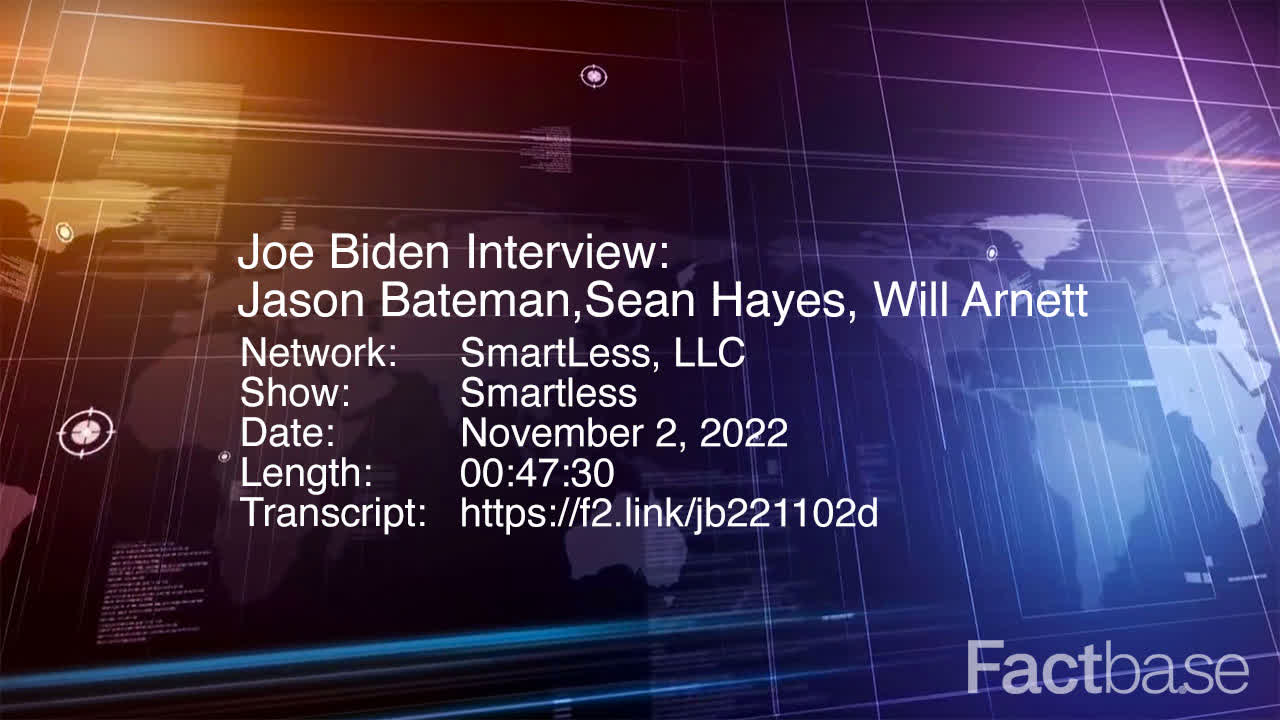
00:45:52-00:45:52 ( sec)

"Yup."
489
Will Arnett
Neutral
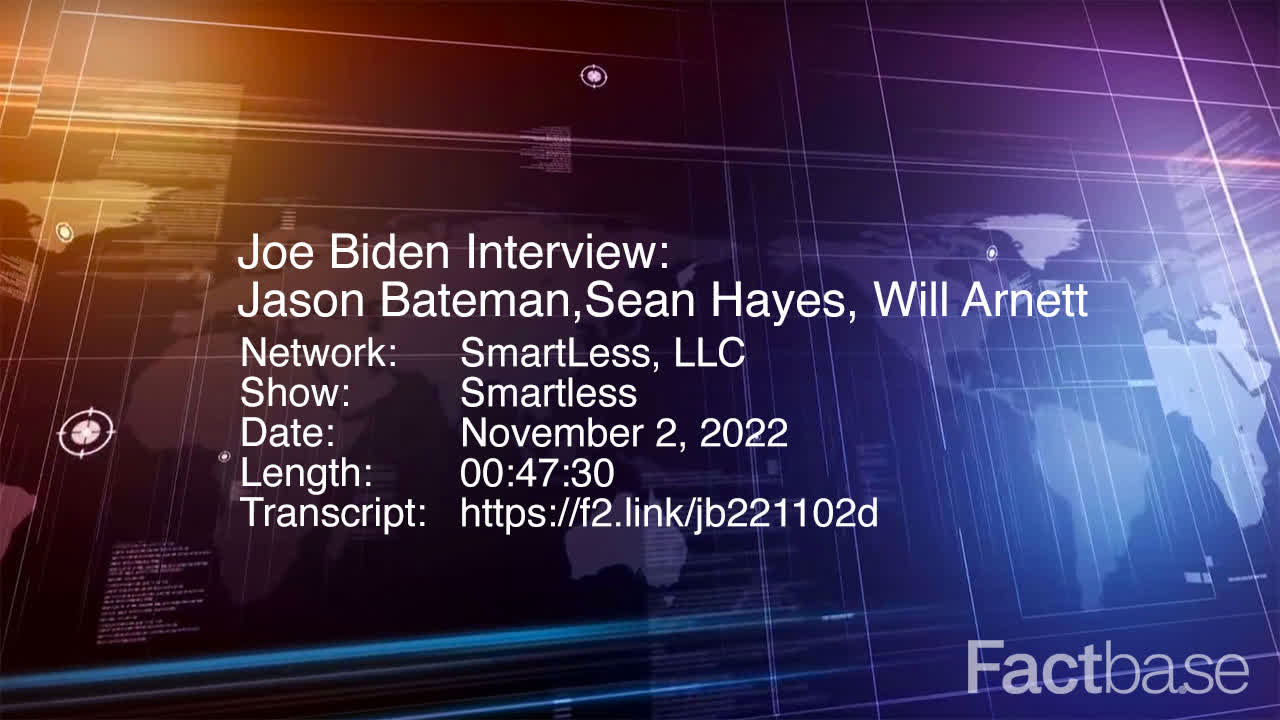
00:45:52-00:45:55 (2 sec)

"I -- I think that you -- you were able to light it towards your [Inaudible]"
490
Joe Biden
Neutral
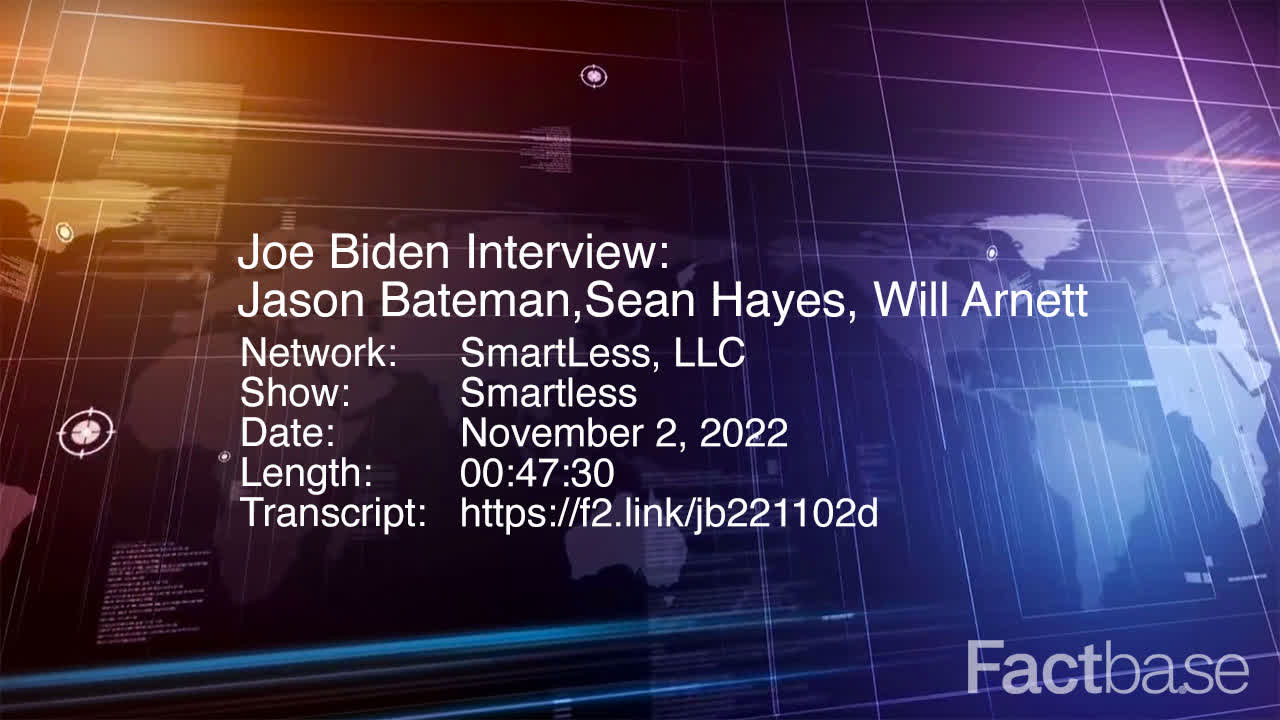
00:45:55-00:46:03 (8 sec)

"Well, the biggest thing I'll say is one more thing. One of the things is that people understand that I understand loss."
491
Jason Bateman
Positive
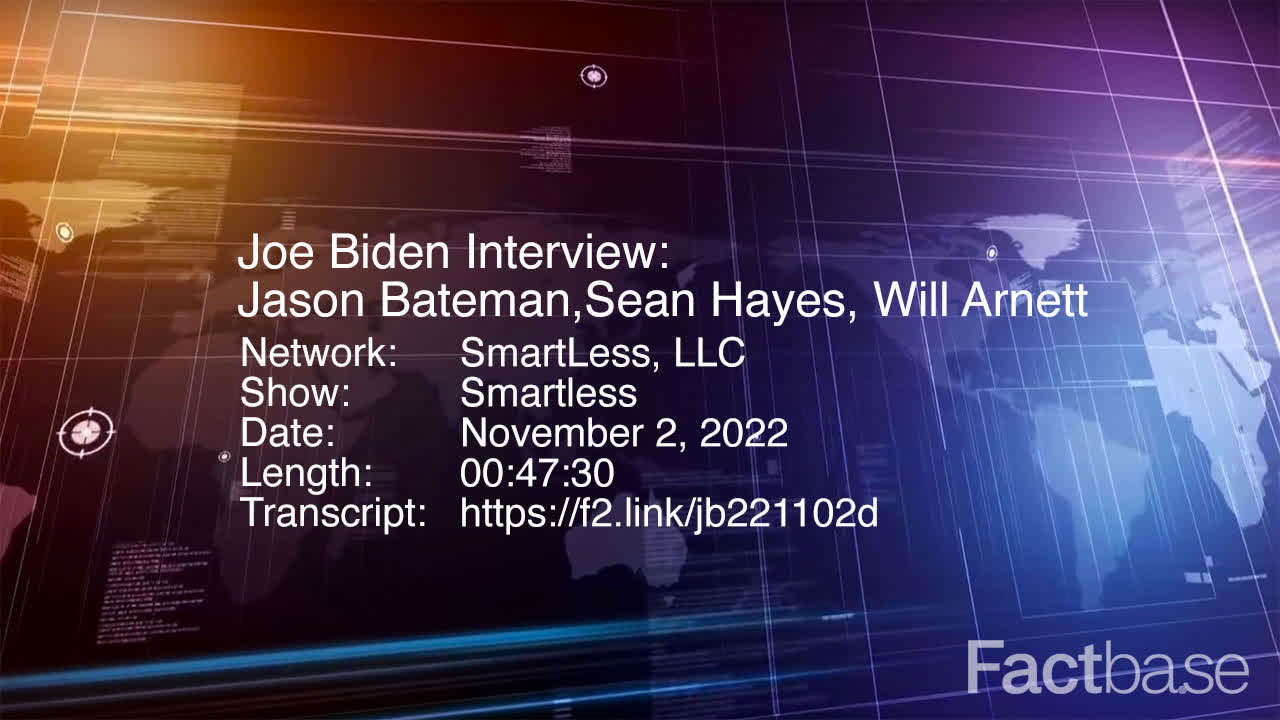
00:46:03-00:46:04 (2 sec)

"Yes."
492
Joe Biden
Somewhat Negative
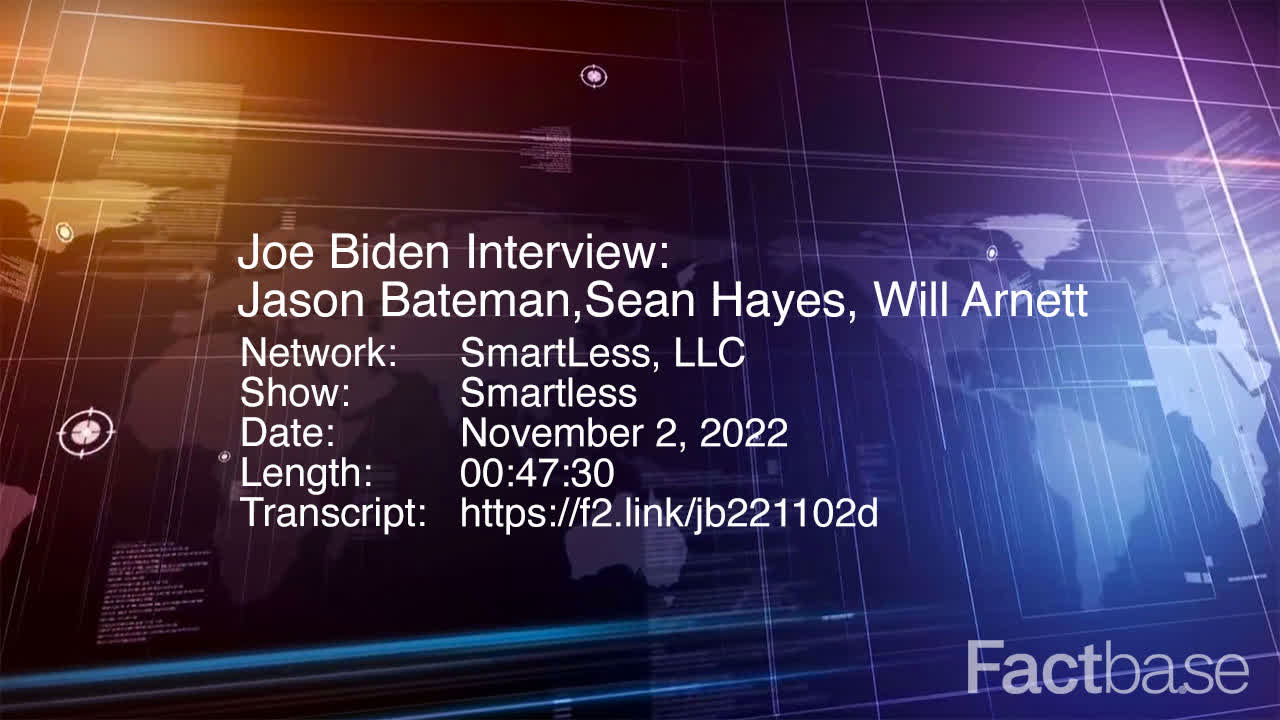
00:46:04-00:46:30 (26 sec)

"And I -- I think it's so important that people understand that from that loss, it's never -- the pain never goes away, but you can do incredible things. The person you lost never leaves your heart. I don't know how many times I ask myself, "What would Beau do?" I'm not joking. And so, you just -- there's so -- people are genuinely empathetic if you give them a shot."
493
Joe Biden
Positive
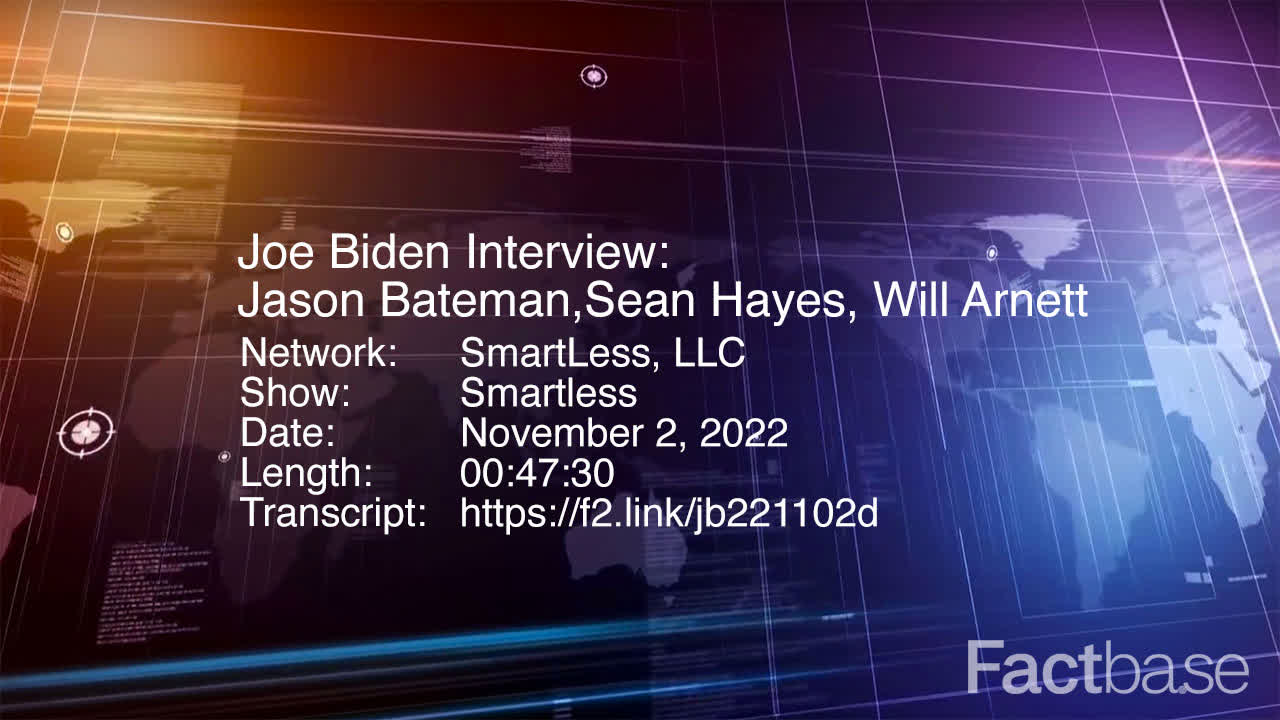
00:46:30-00:46:37 (7 sec)

"And I think just reaching out to people. Not me president, but just reaching out to people matters."
494
Jason Bateman
Slightly Positive
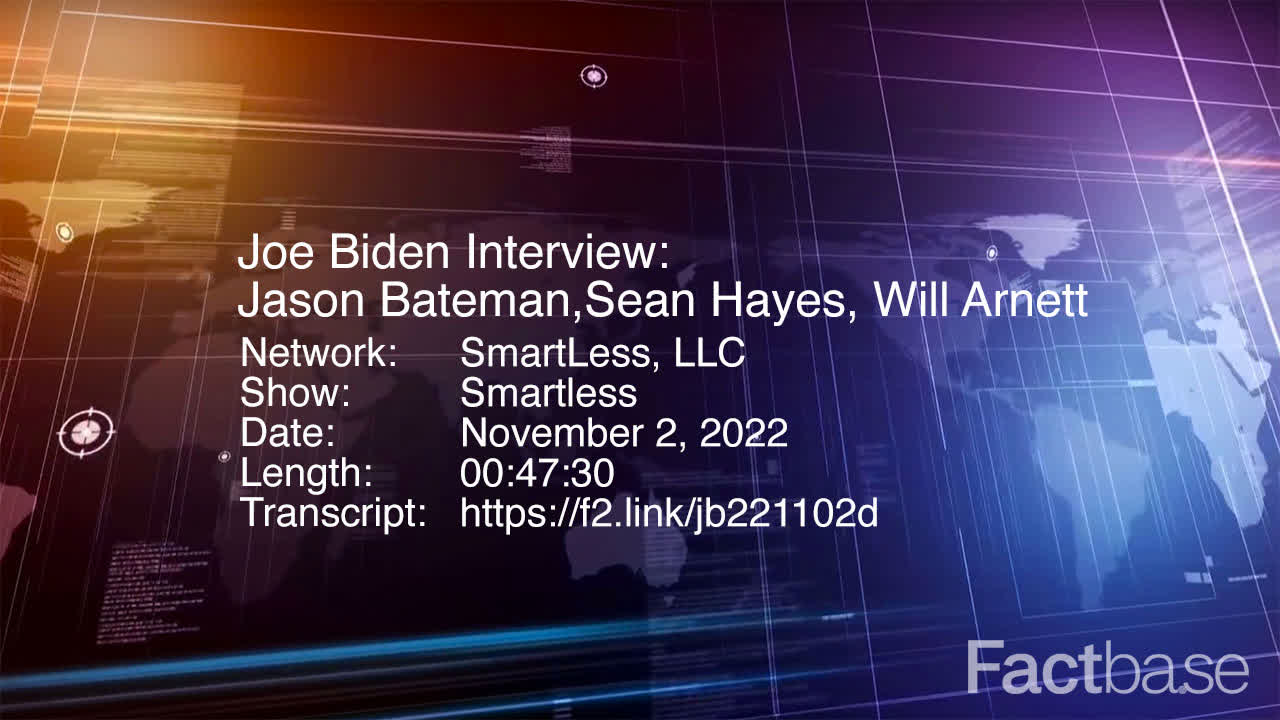
00:46:37-00:46:37 ( sec)

"Yeah."
495
Joe Biden
Very Negative
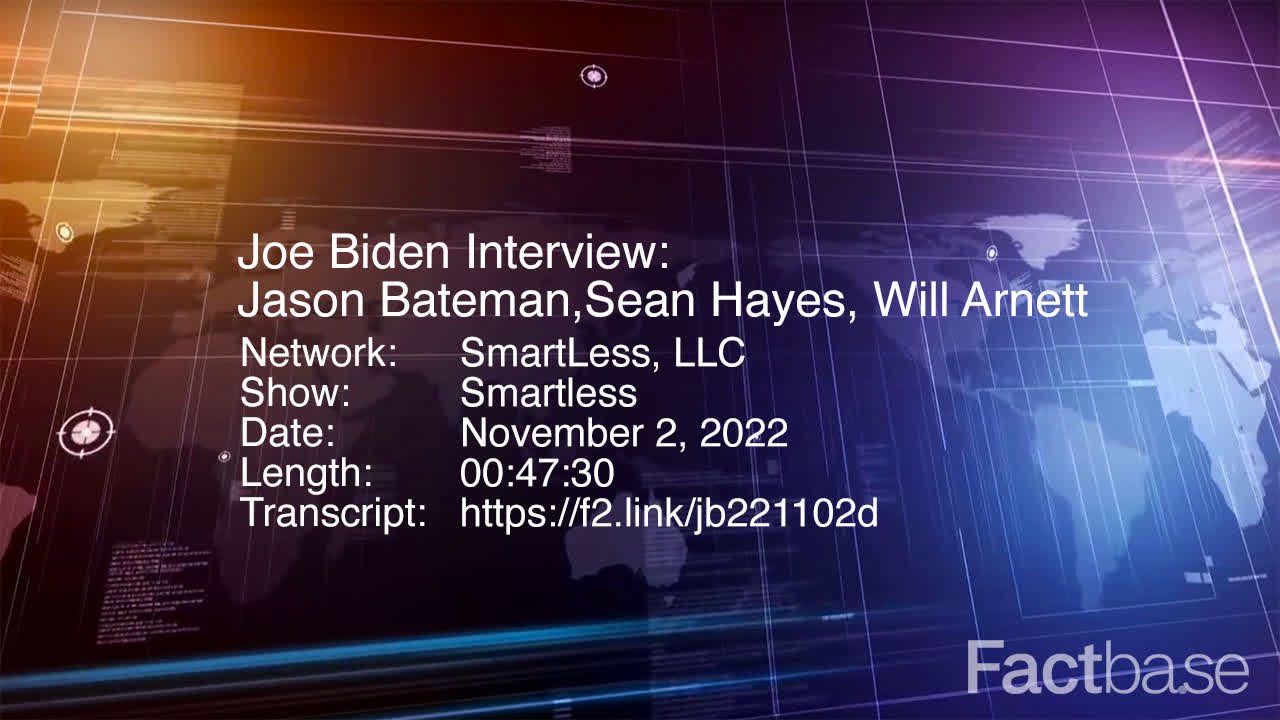
00:46:37-00:46:42 (5 sec)

"Think of the number of people who are down and out, wonder where in the hell am I going to go."
496
Will Arnett
Slightly Positive
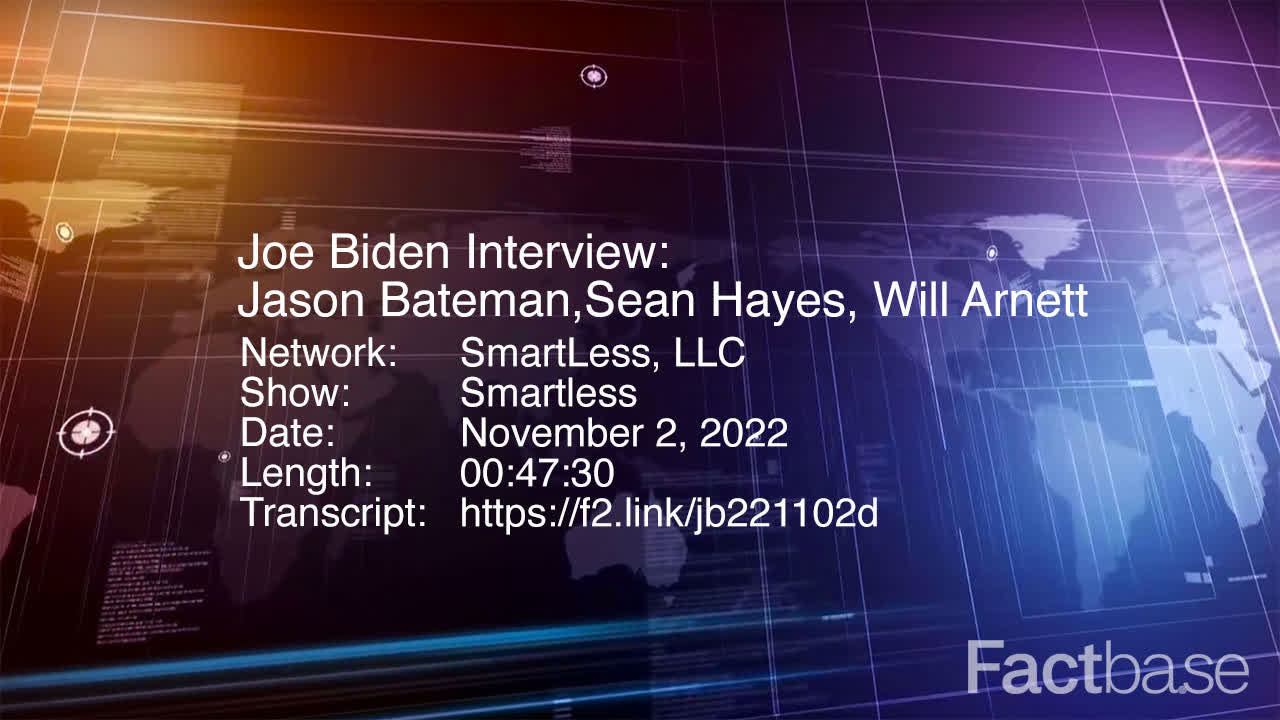
00:46:42-00:46:43 (1 sec)

"Well --"
497
Joe Biden
Neutral
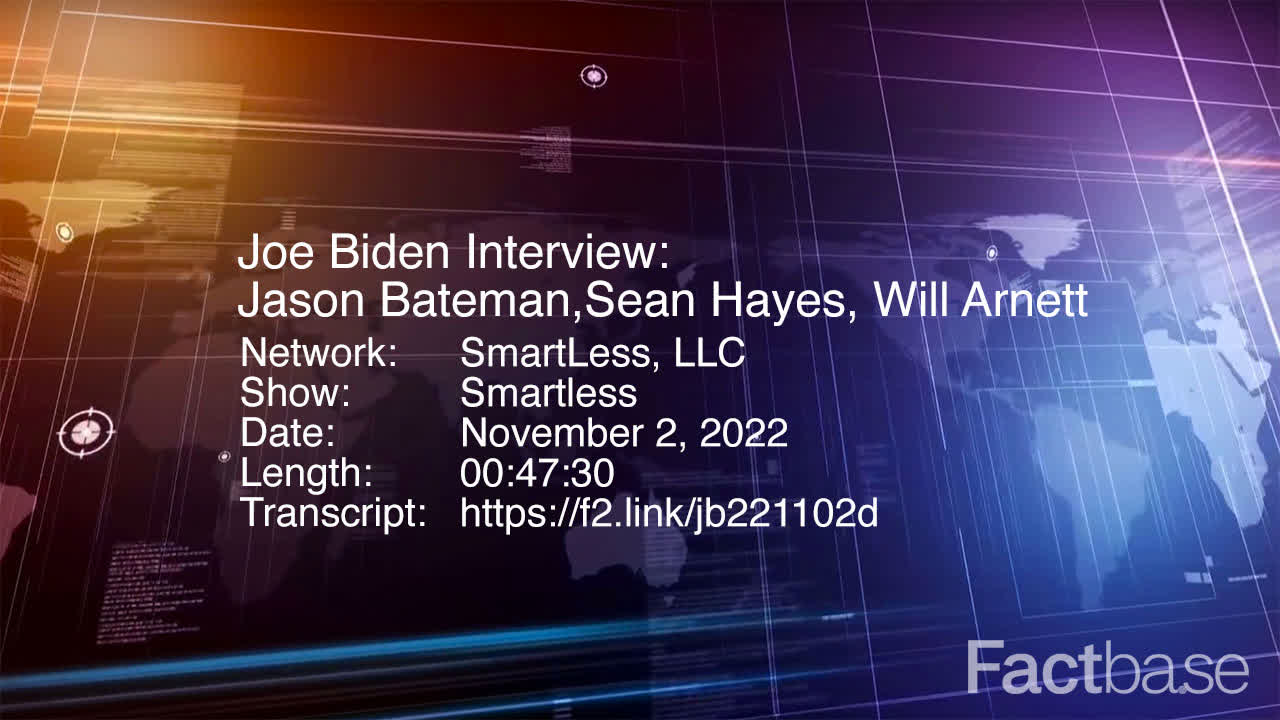
00:46:43-00:46:44 (1 sec)

"What happens?"
498
Will Arnett
Very Positive
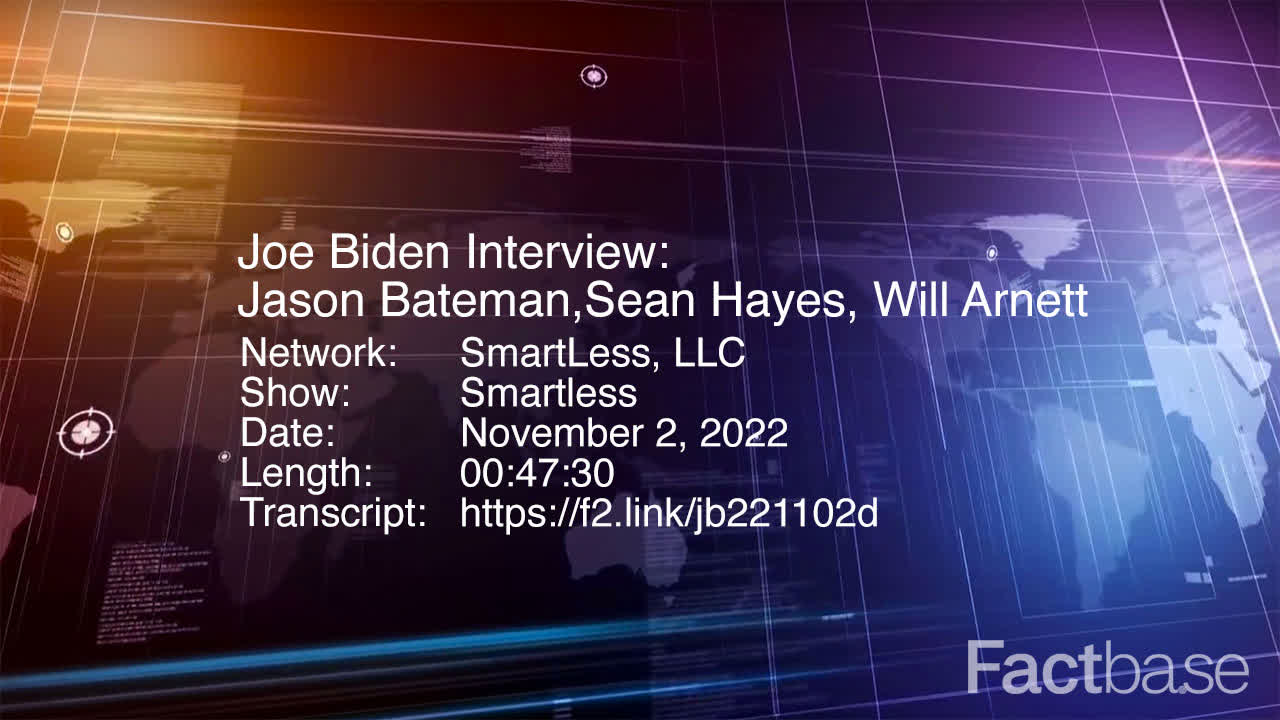
00:46:44-00:46:50 (6 sec)

"Your -- your empathy is -- is genuine, it's sincere, it's infectious. And it's a pleasure to be led by you."
499
Sean Hayes
Positive
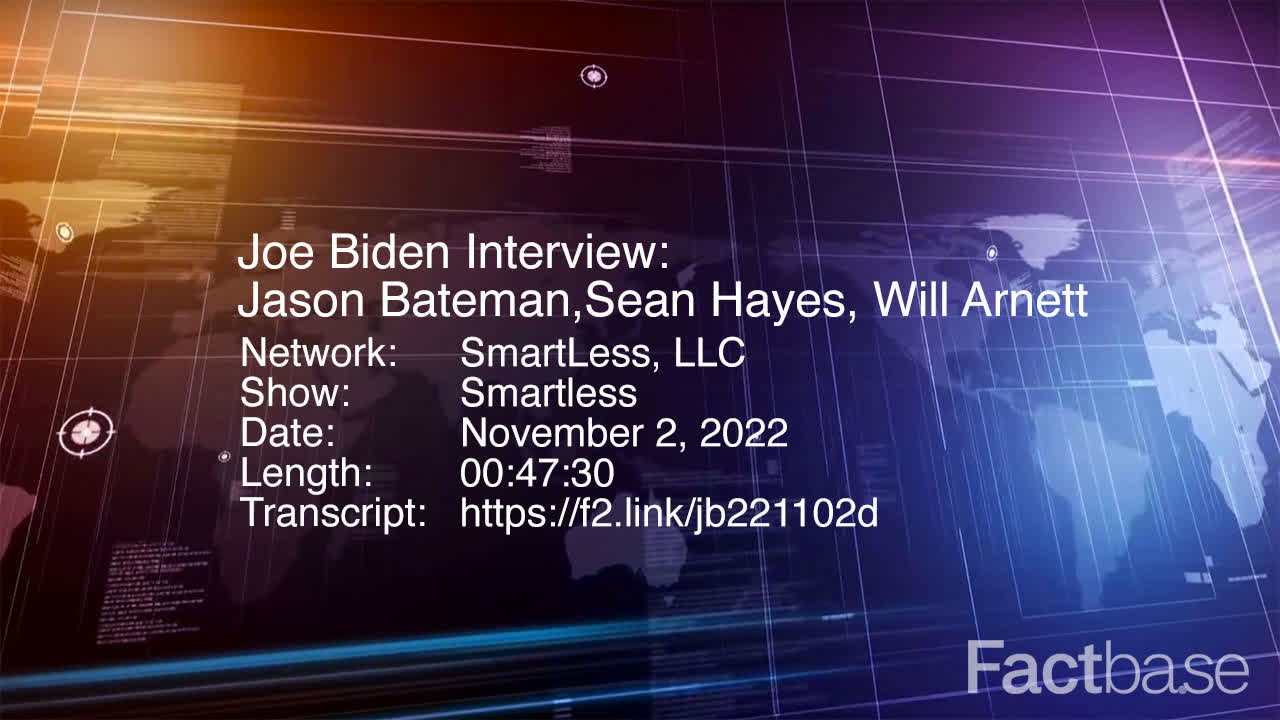
00:46:50-00:46:51 ( sec)

"Yes."
500
Joe Biden
Very Positive
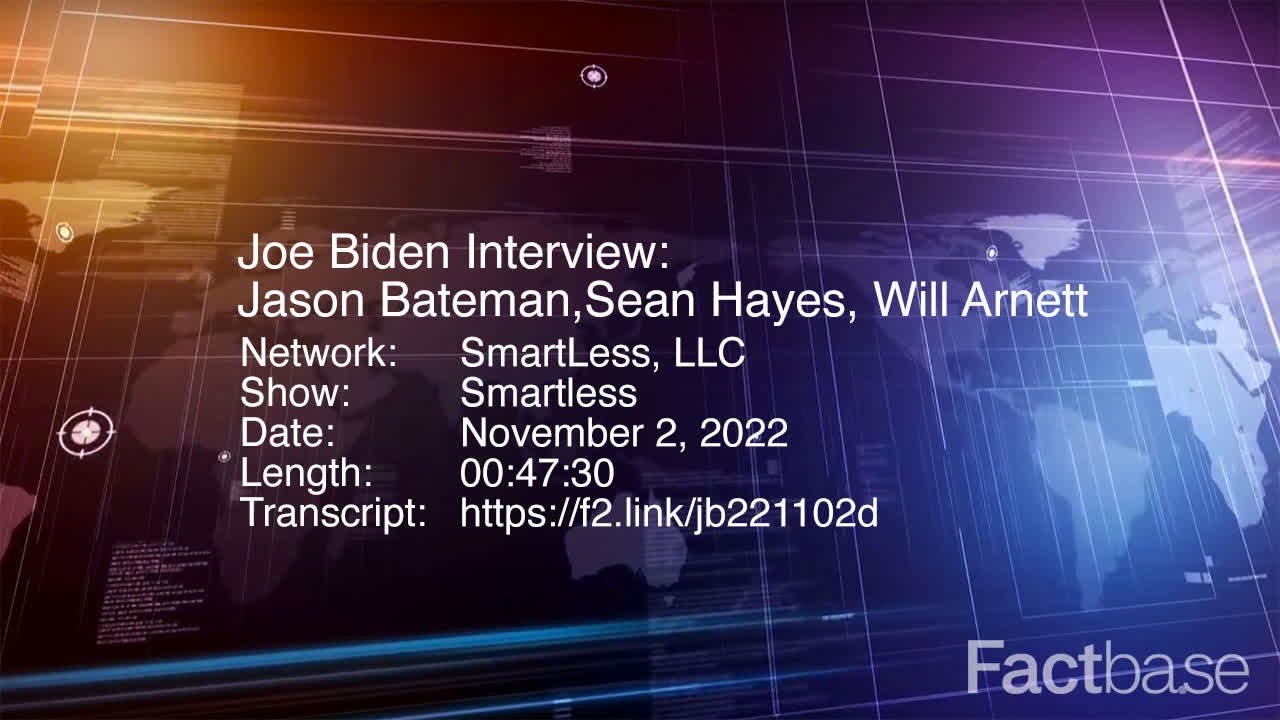
00:46:51-00:46:53 (2 sec)

"Well, you guys are giving me more credit [Inaudible]"
501
Jason Bateman
Very Positive
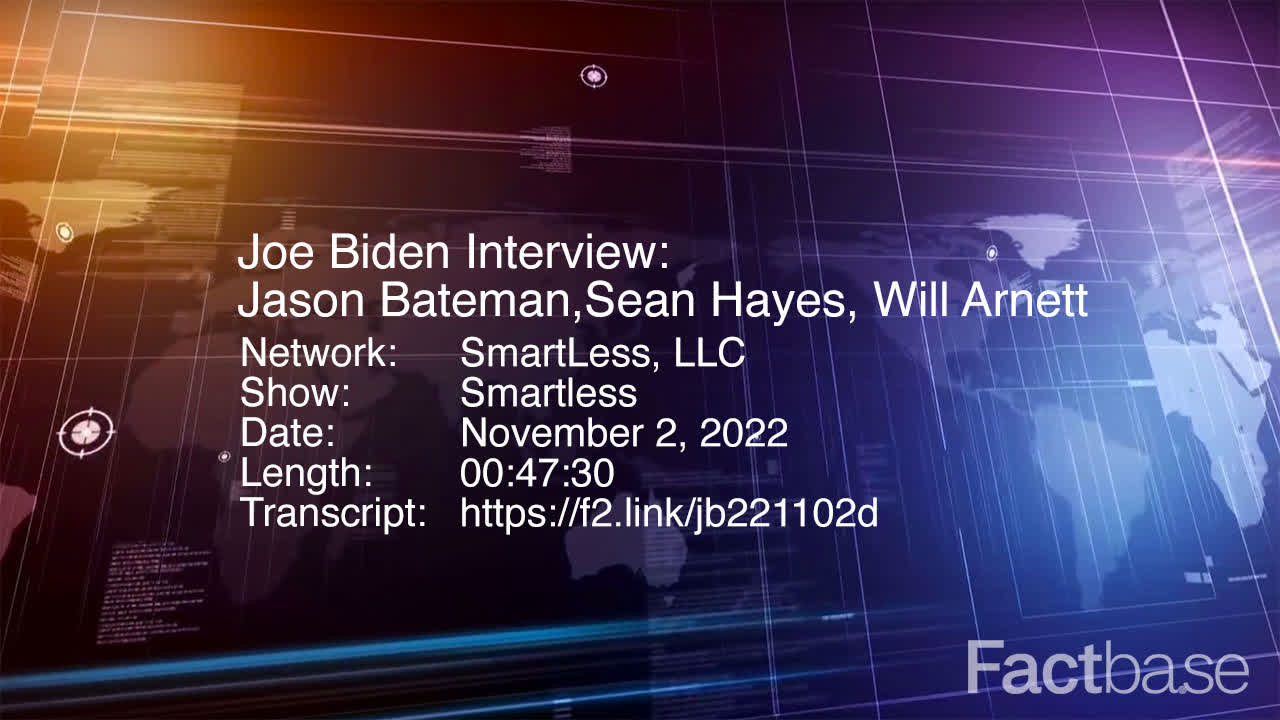
00:46:53-00:46:56 (3 sec)

"And thank you for the -- thank you for the hope that you -- you give to everybody."
502
Joe Biden
Very Positive
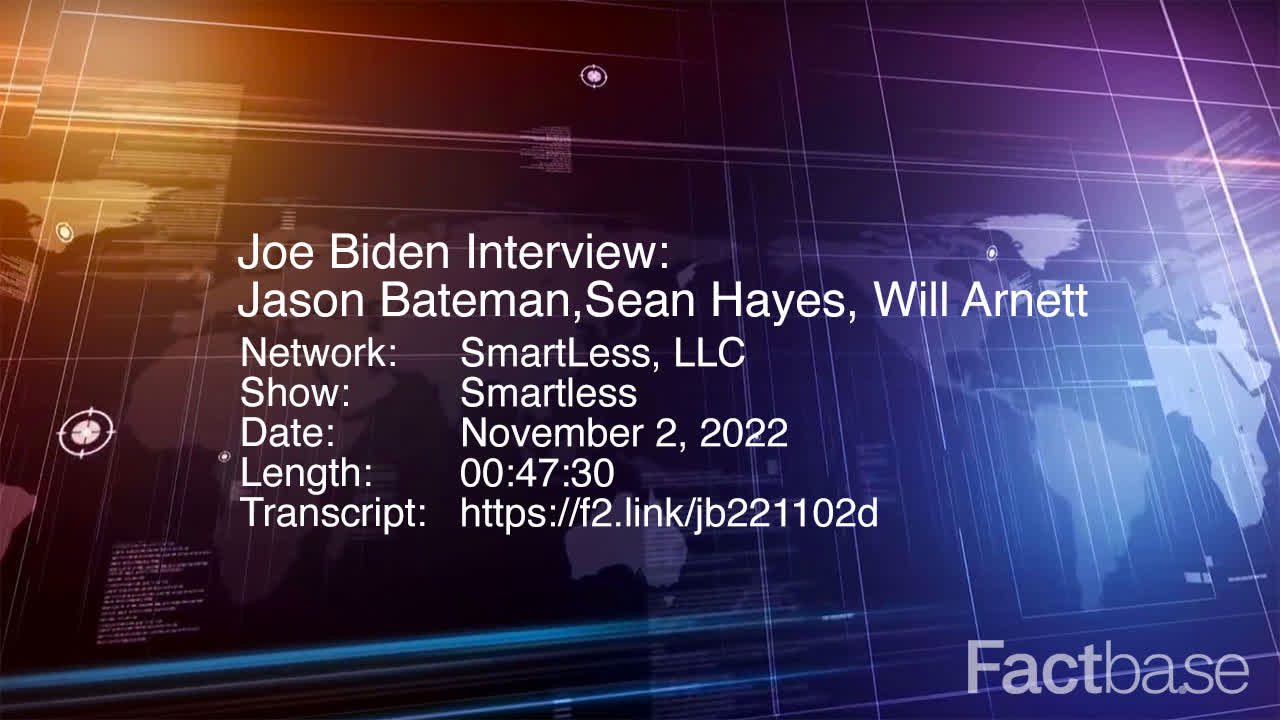
00:46:56-00:46:59 (3 sec)

"I really do. I am optimistic. I truly am."
503
Sean Hayes
Neutral
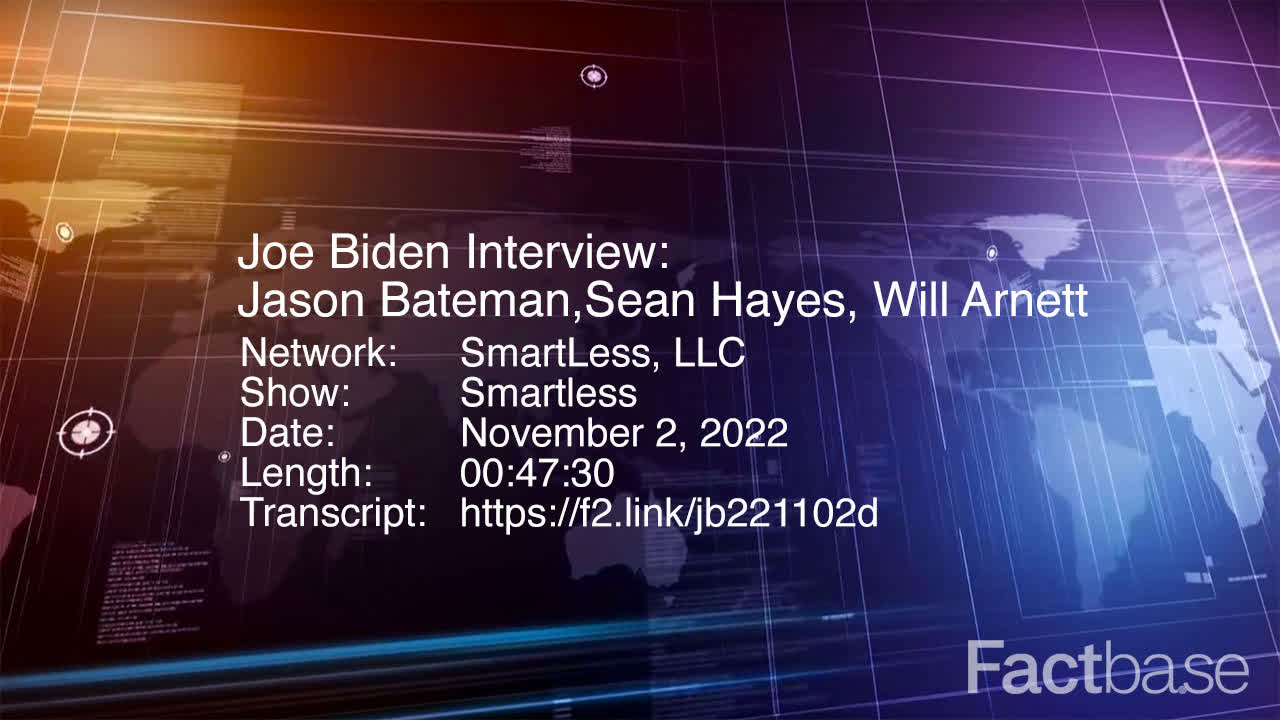
00:46:59-00:47:00 (1 sec)

"I'm with you."
504
Will Arnett
Very Positive
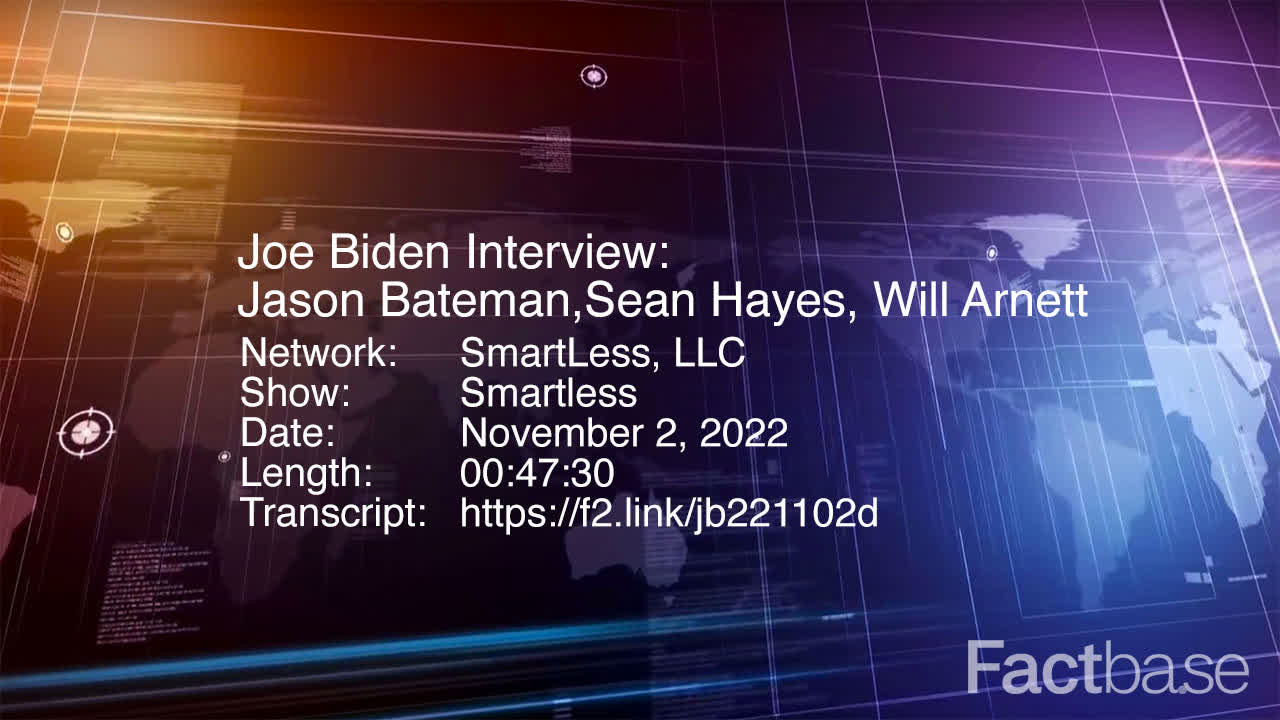
00:47:00-00:47:09 (10 sec)

"You know, I -- I will leave you, and we -- we take -- you know, we say this to everybody. We have taken up too much of your time. I have a friend of mine who always says, if you're feeling down, call five people and tell them how much you love them."
505
Sean Hayes
Slightly Positive
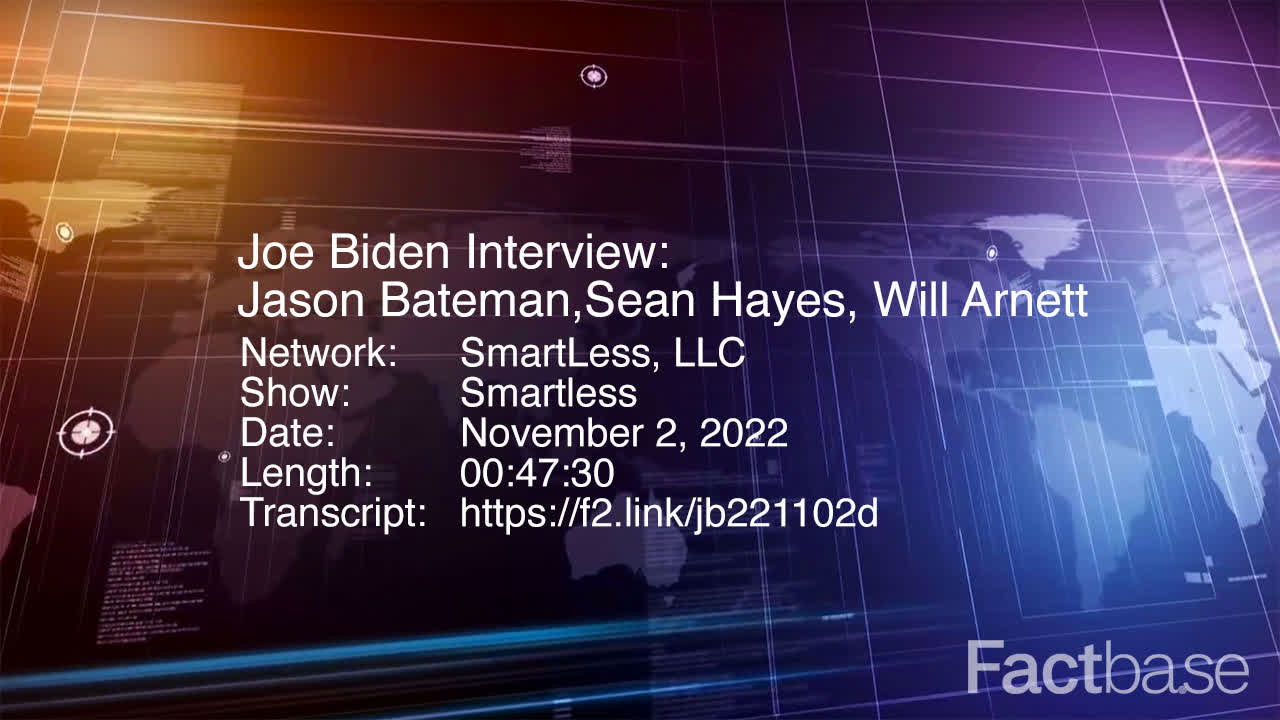
00:47:09-00:47:10 (1 sec)

"Yeah."
506
Will Arnett
Neutral
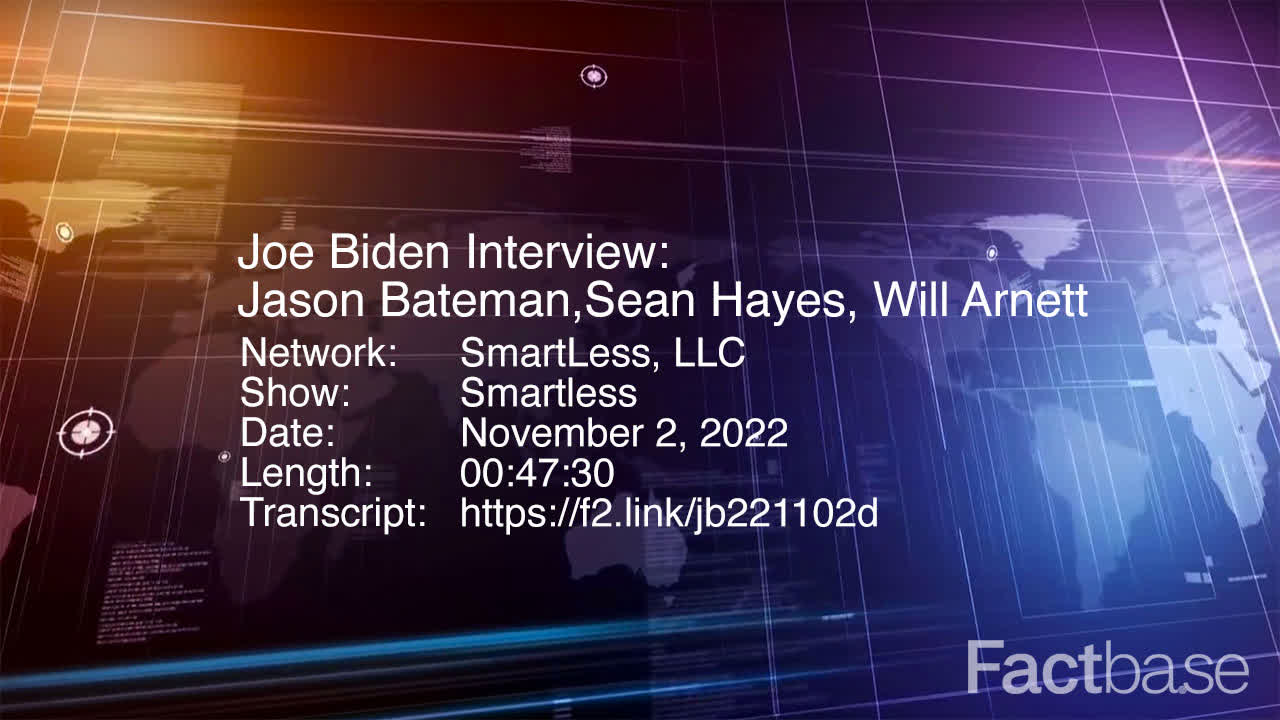
00:47:10-00:47:12 (2 sec)

"And you know what? It works."
507
Joe Biden
Neutral
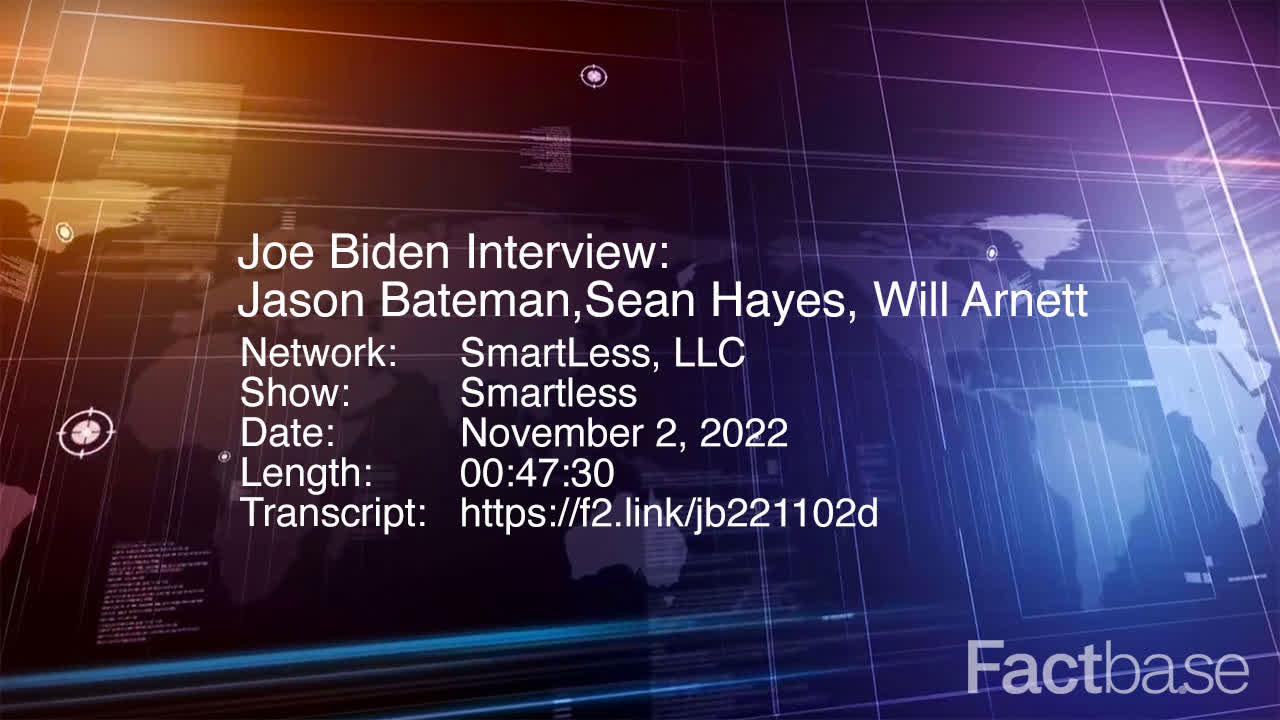
00:47:12-00:47:13 (1 sec)

"It does work."
508
Will Arnett
Slightly Positive
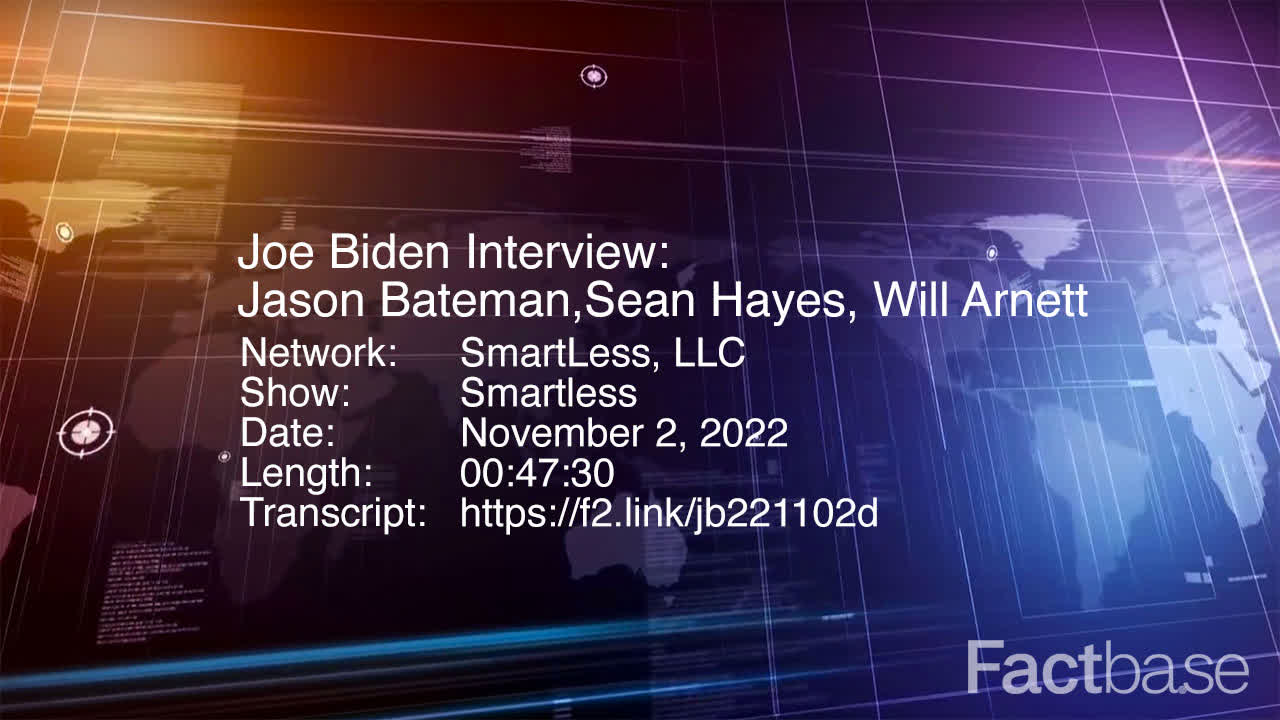
00:47:13-00:47:14 (1 sec)

"Yeah."
509
Joe Biden
Neutral
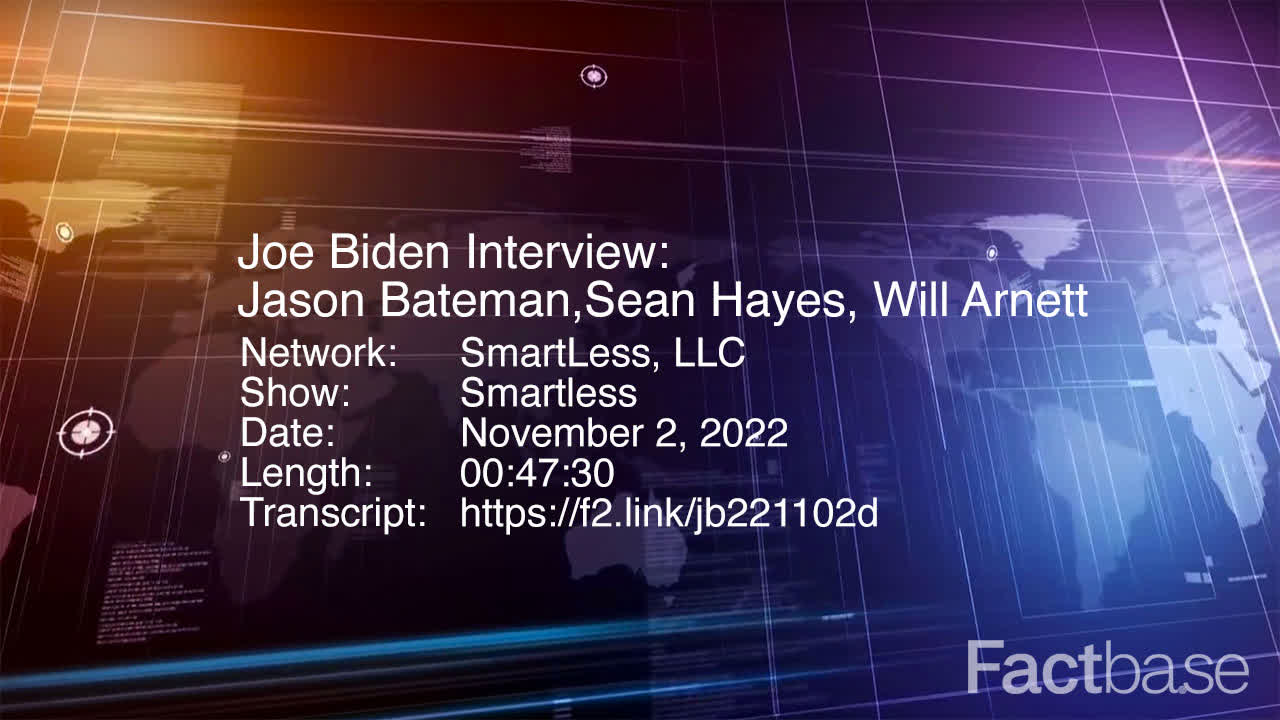
00:47:14-00:47:14 (1 sec)

"It does work."
510
Sean Hayes
Neutral
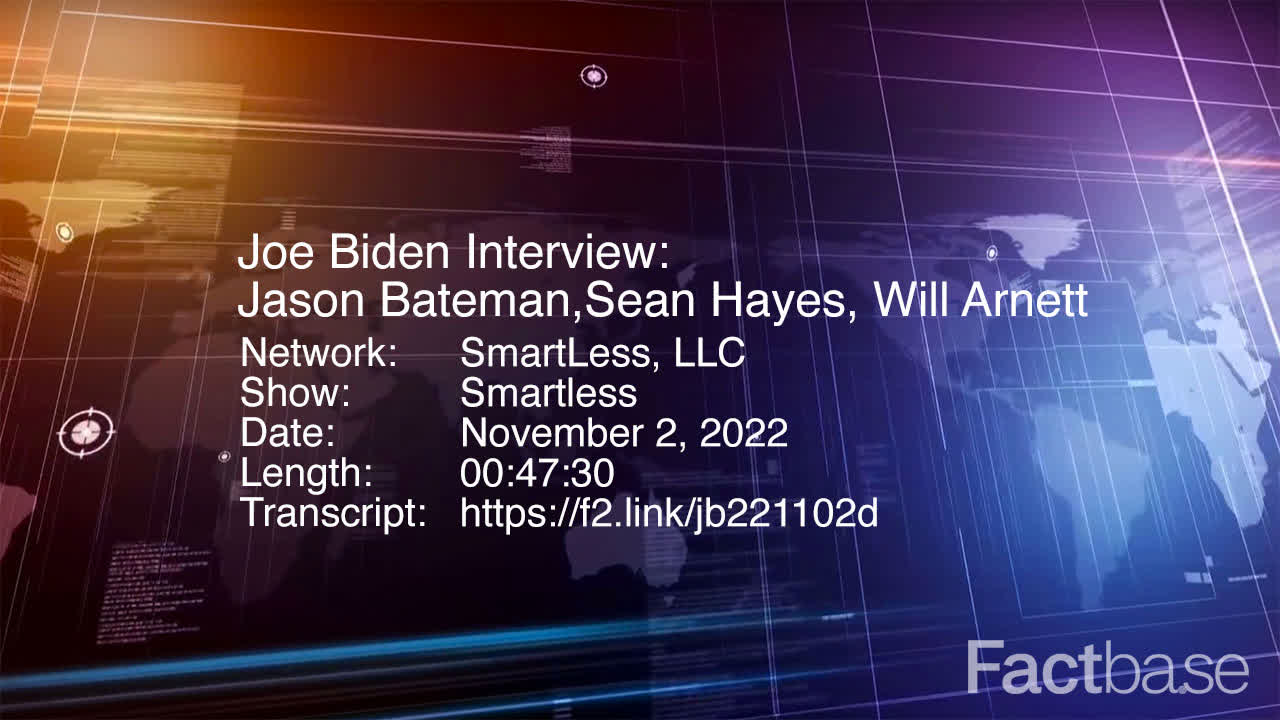
00:47:14-00:47:16 (1 sec)

"So, give me your number."
511
Will Arnett
Very Positive
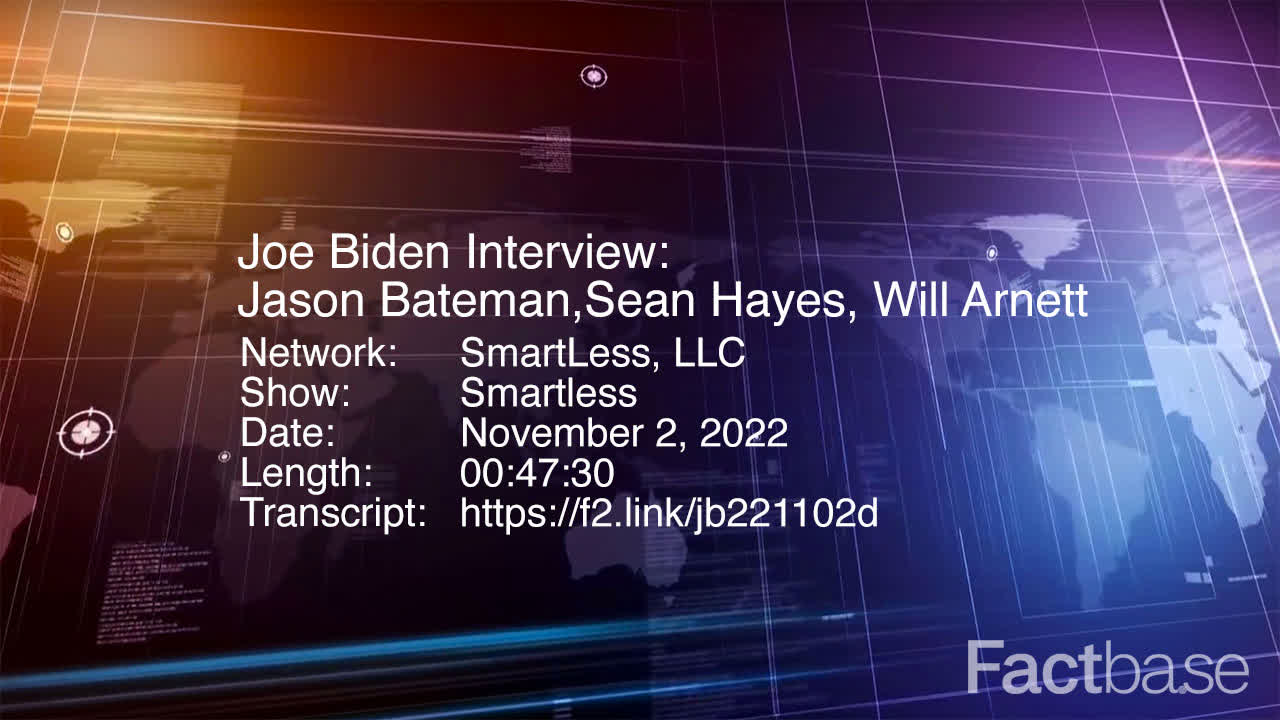
00:47:16-00:47:21 (5 sec)

"Yeah. If we can get your cellphone. It'll just be a text. I promise. It won't be -- Mr. President, thank you so much."
512
Jason Bateman
Somewhat Positive
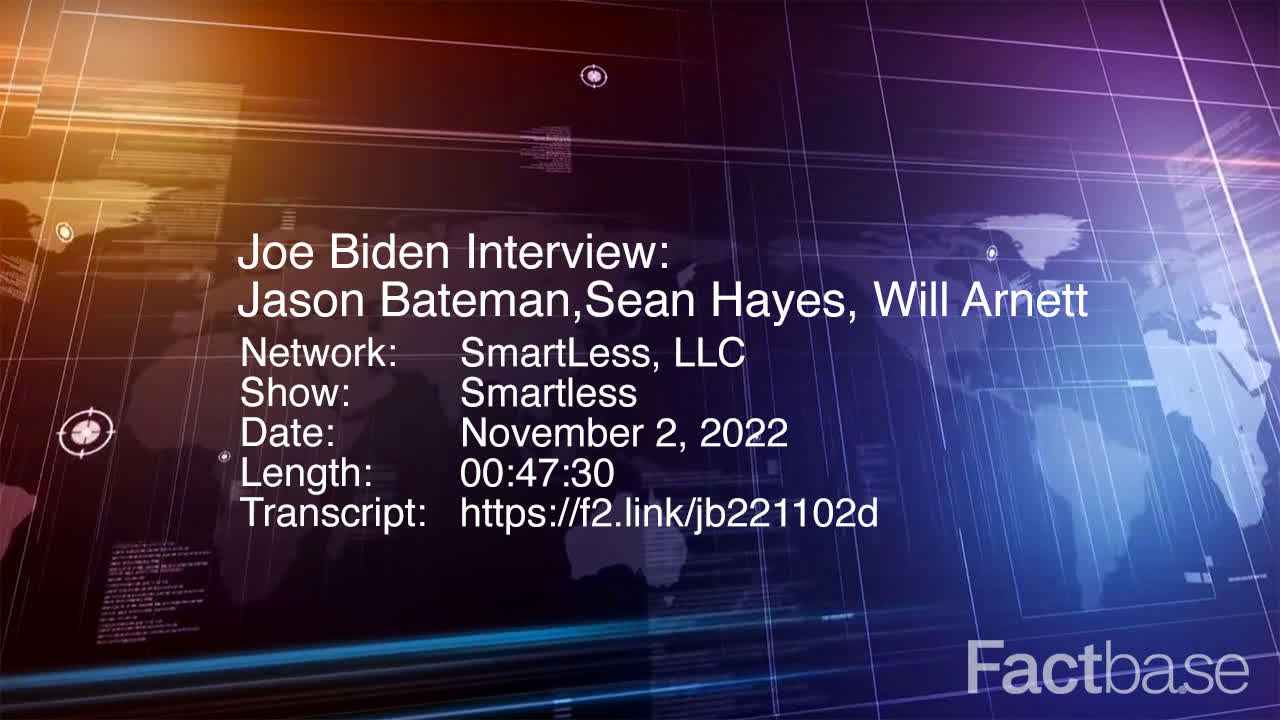
00:47:21-00:47:21 ( sec)

"Thank you so much."
513
Sean Hayes
Somewhat Positive
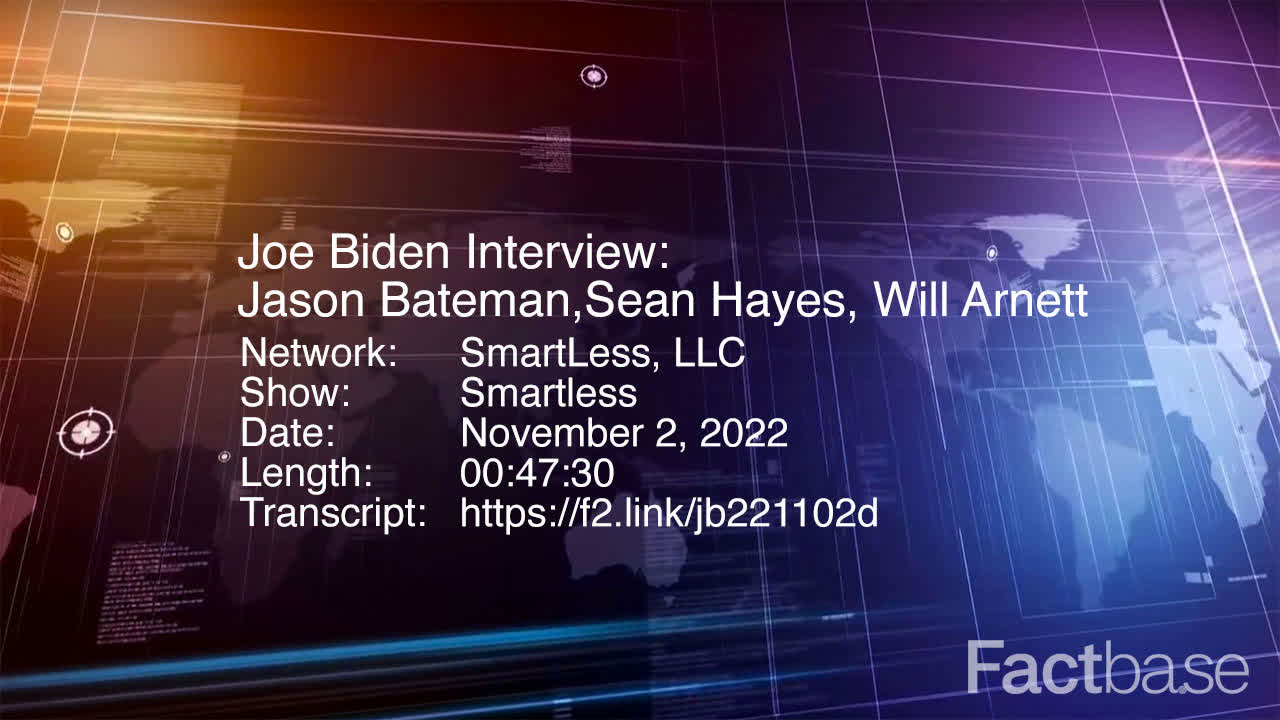
00:47:21-00:47:23 (1 sec)

"Thank you, sir, very much."
514
Joe Biden
Very Positive
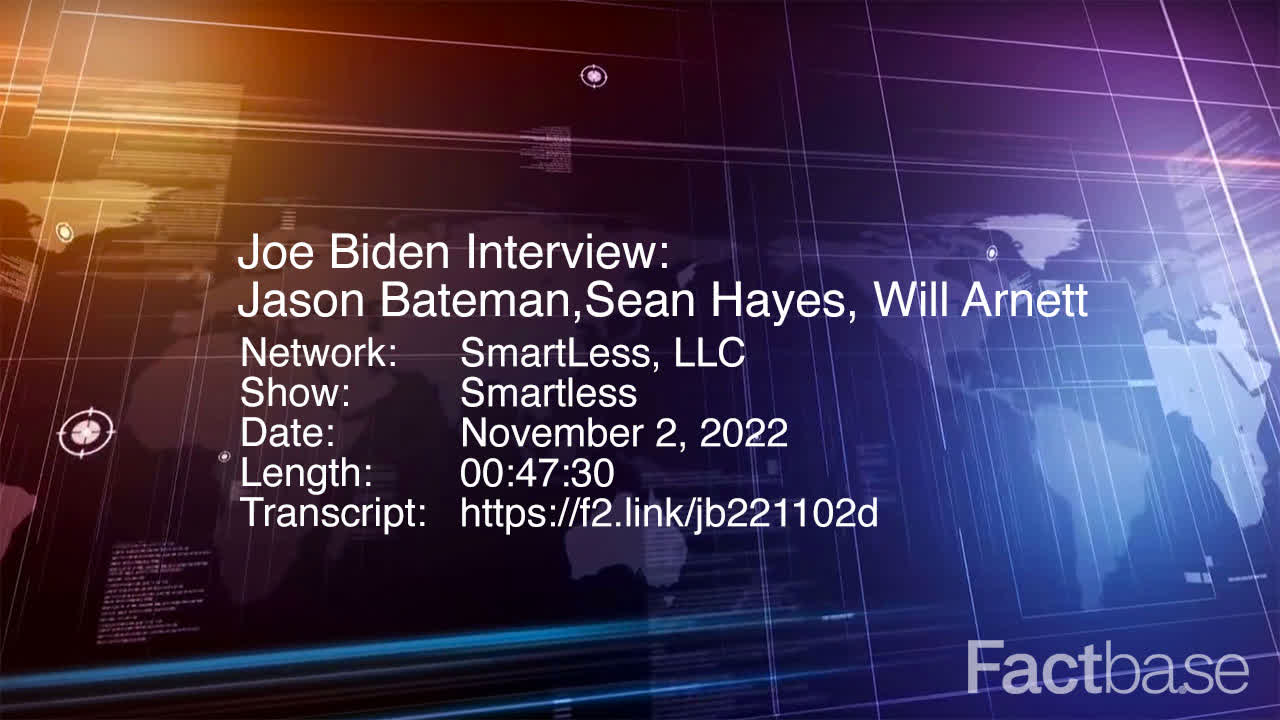
00:47:23-00:47:27 (4 sec)

"Thank you, guys. No, I really -- I enjoyed it. Thank you. Invite me back."
515
Will Arnett
Neutral
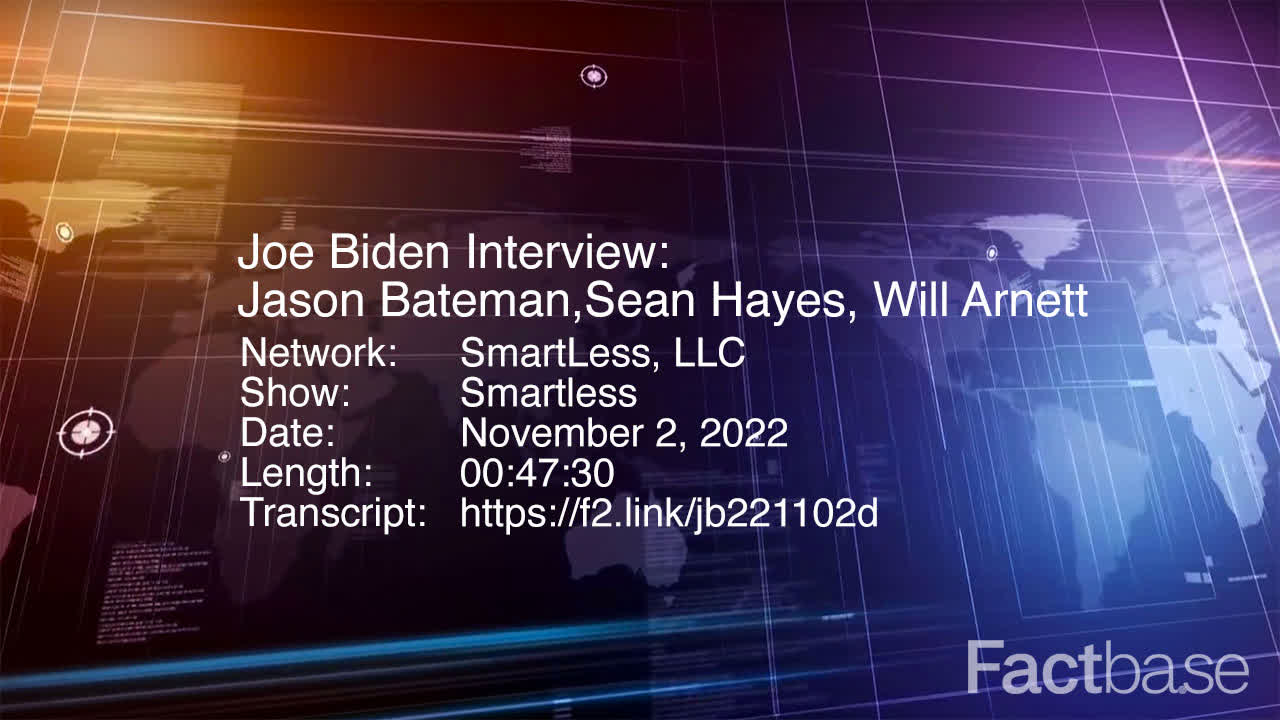
00:47:27-00:47:28 (1 sec)

"We will."
516
Jason Bateman
Neutral
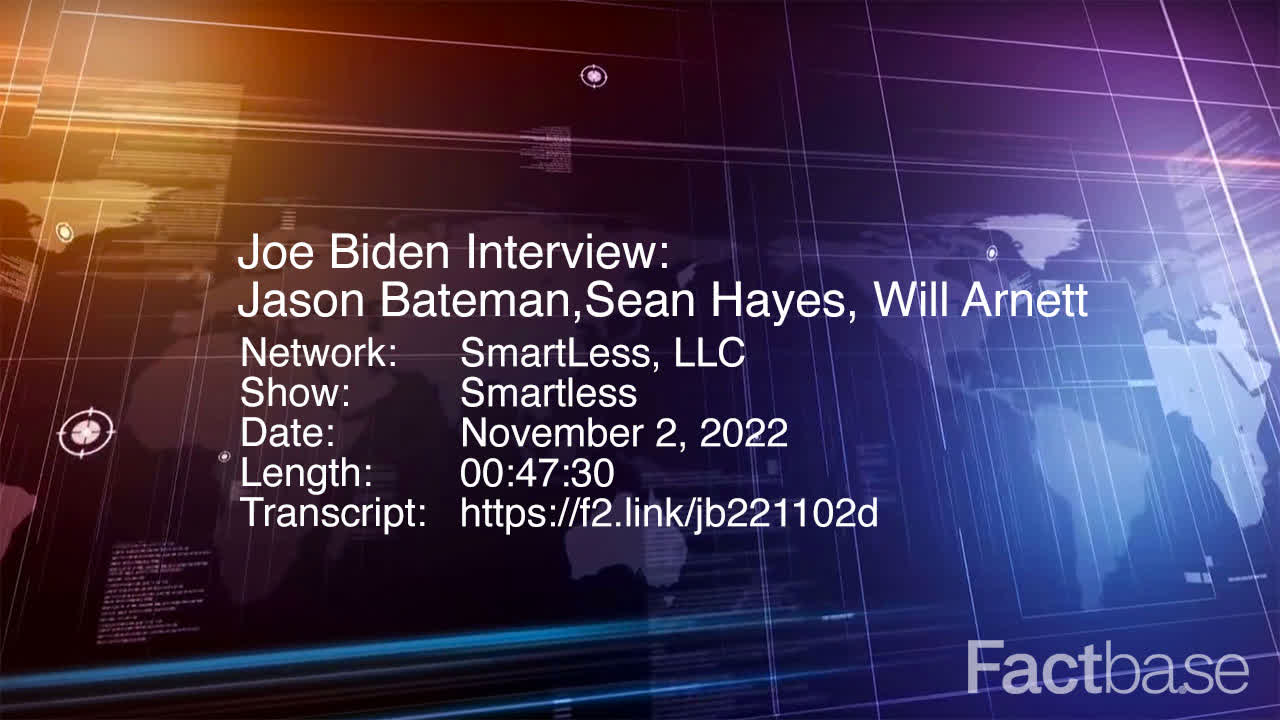
00:47:28-00:47:30 (2 sec)

"You got it."
517